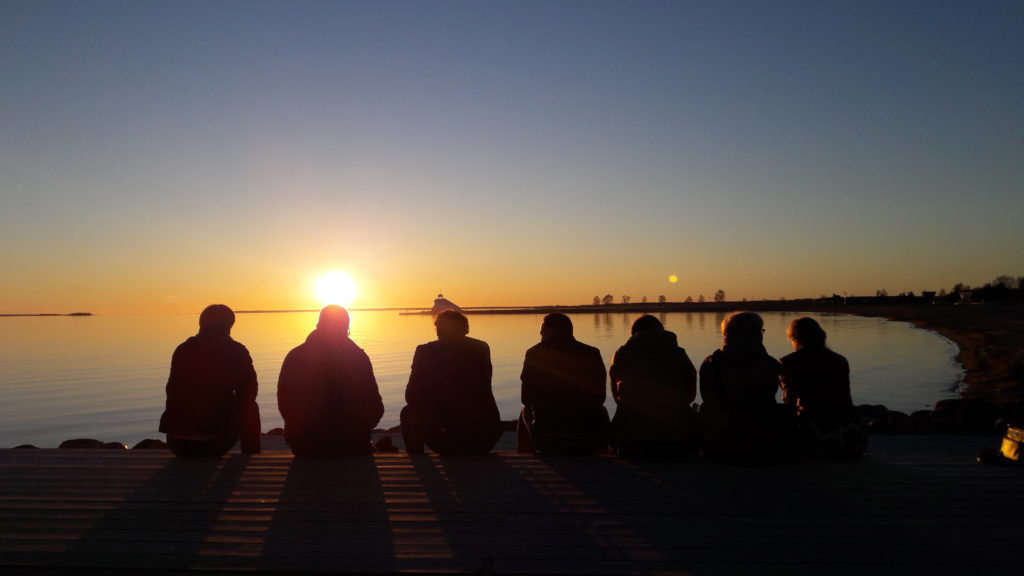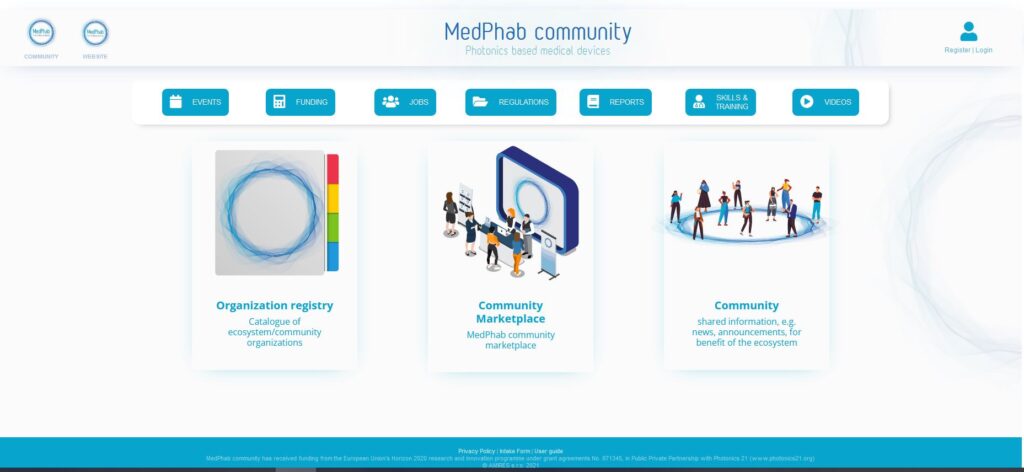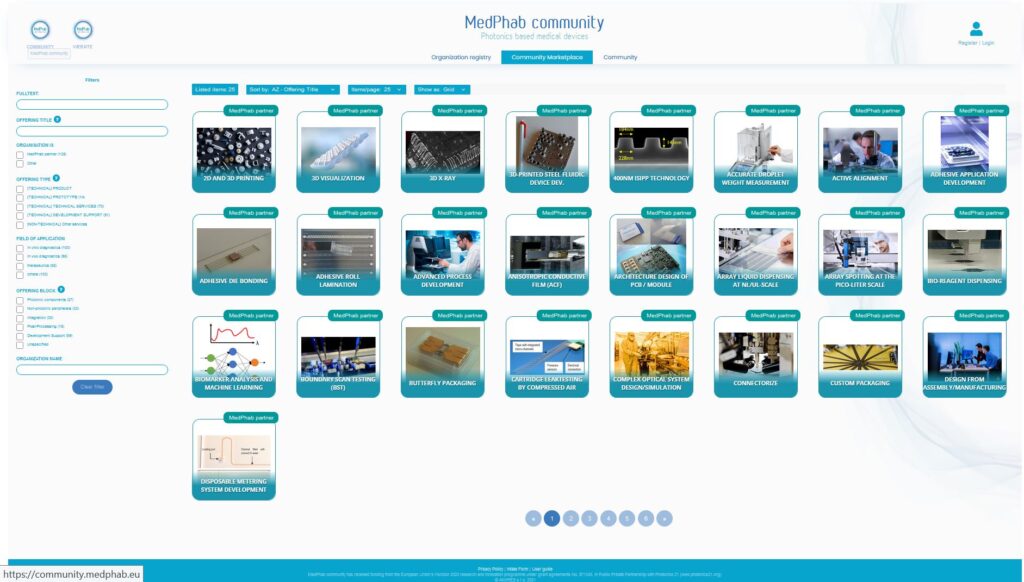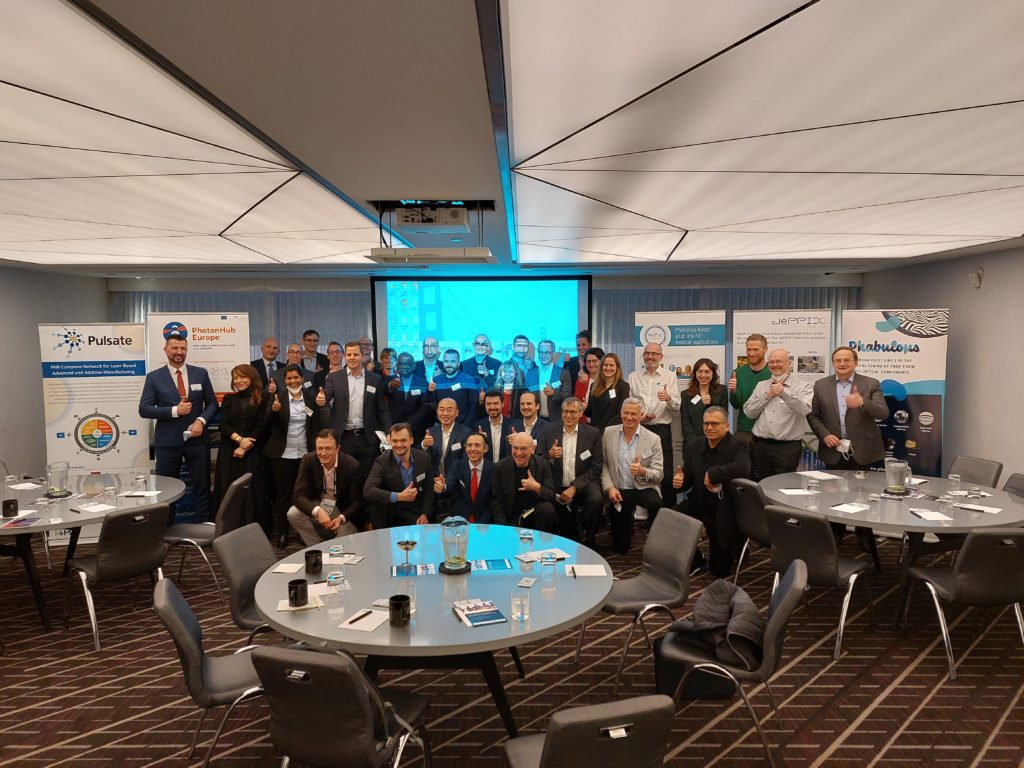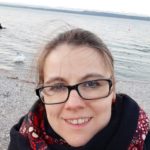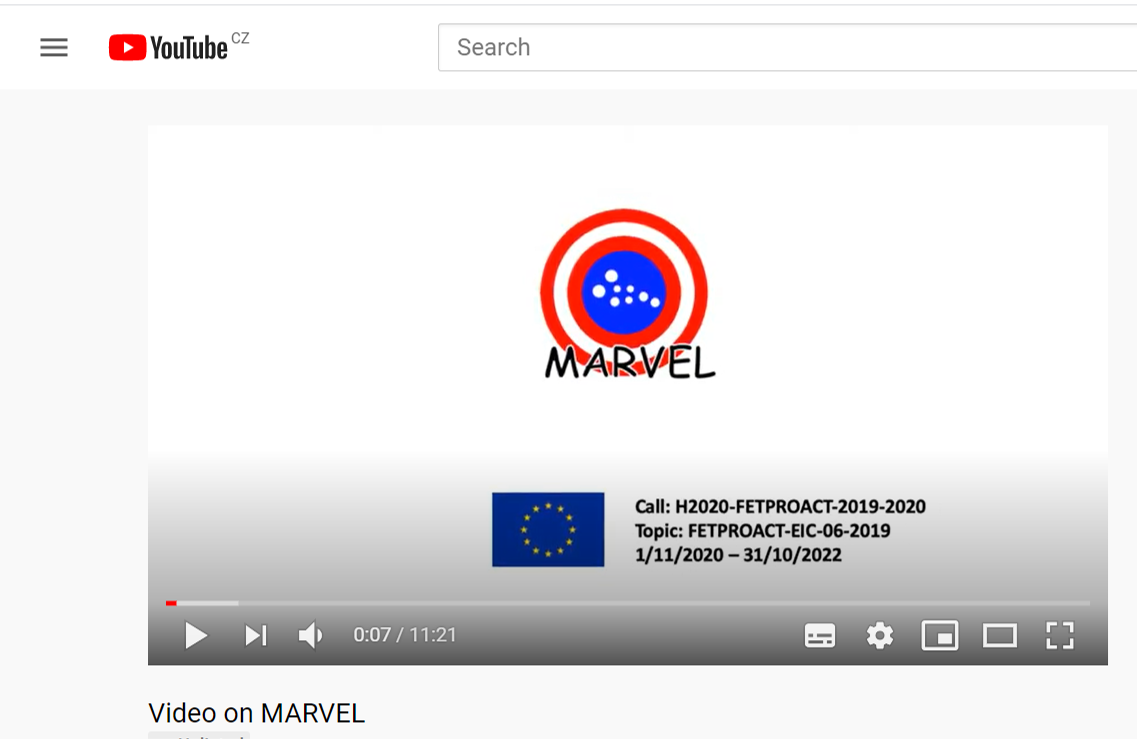Feedback opportunity for Horizon Europe work programme 2025
Contribute to the development of the Horizon Europe work programme 2025 by filling in one or more surveys.
How to participate
This is an opportunity to provide input for the development of the Horizon Europe ‘main’ work programme 2025. Responses submitted through the survey will contribute to the co-design of the work programme 2025, covering all 6 clusters, research infrastructures, European innovation ecosystems, the 5 EU Missions and the New European Bauhaus facility.
The feedback opportunity is open for 3 weeks from 15 April and closes on 6 May 2024 midday, CET.
The feedback is being collected at the level of the ‘Destinations’ or Missions. To structure the input, the Commission services have provided an orientation document for each Destination and Mission, outlining the impacts and outcomes expected from the actions to be funded in 2025.
- Expected impacts are the wider long-term effects of groups of projects on society, the economy and science. The expected impacts are defined in the Horizon Europe strategic plan 2025-2027
- Expected outcomes explain what a group of successful projects should achieve overall in the medium term, and on the way to the longer-term
More information HERE!

Exciting Opportunities Ahead from Qu-Test & Qu-Pilot!
We discussed progress within 21 internal use cases. The network’s service providers are in the process of fine-tuning their facilities and advancing technology, incorporating insights from these use cases to prepare their pilot lines and testbeds for external businesses to enter through an OPEN call, starting in June 2024.
Qu-Test: Pioneering open testing and experimentation, Qu-Test is breaking barriers by making quantum technology facilities and services accessible across all 27 EU countries.
Qu-Pilot: Spearheading experimental production capabilities, Qu-Pilot is opening doors to public and privately-owned facilities, providing unprecedented support for quantum technology endeavors.
Don’t miss out on their service catalogue and open call initiatives.
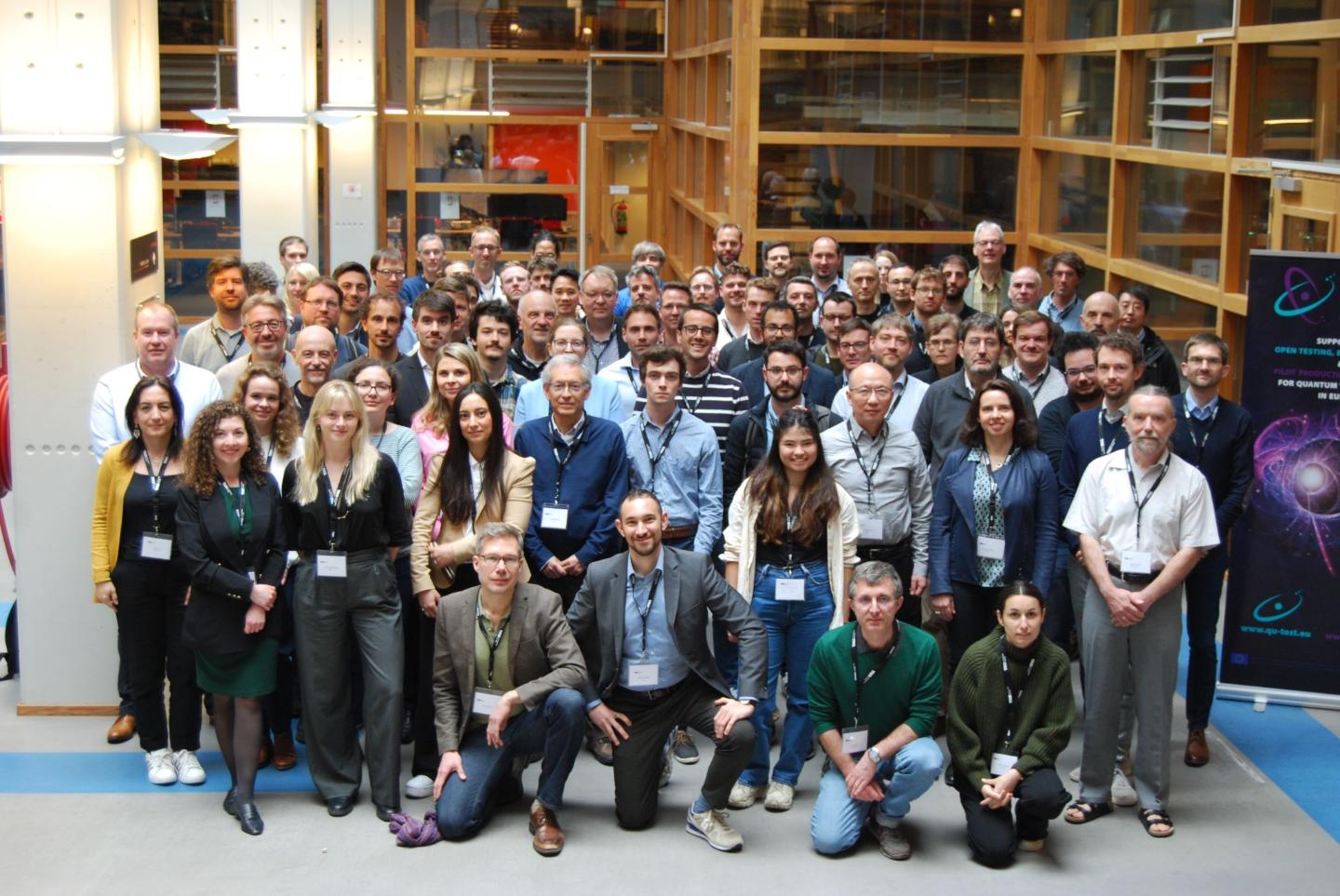 |
Join the Czech Republic’s Largest Business Mission to North America!
We are thrilled to invite you to participate in the Startup and Innovation Mission led by the Minister of Industry and Trade of the Czech Republic, Jozef Síkela, along with the Business Delegation of the Czech Confederation of Industry to the United States of America and Canada.
Event Details:
- Date: April 29 to May 3, 2024
- Locations: Boston, Toronto, Chicago, and Seattle
- Goal: Enhancing Czech-U.S. cooperation in innovative sectors and merging technologies, creating new opportunities for Czech and U.S. startups
- Focus Group: Startup community, accelerators and incubators, venture funds, business executives, sector stakeholders
What Can You Expect?
- Over 60 representatives of startups, scaleups, and innovative businesses from the Czech Republic, spanning sectors such as ICT and emerging technologies, health and biotech, smart manufacturing, cybersecurity, and IT solutions.
- Business cooperation and networking opportunities, fostering startup ecosystem cooperation and partnerships.
Mission Objectives:
- B2B collaborations, investments, and sales, partnerships, and incubation.
- Research and innovation cooperation.
- Government-to-government relations and government-to-business collaboration.
Mission Agenda:
- Boston – April 29: Pitch session and networking event at the Cambridge Center for Innovation.
- Toronto – April 30: Pitch session and networking event.
- Chicago – May 1 to 2: Pitch session and networking event.
- Seattle – May 3: Pitch session and networking event in collaboration with the Washington Technology Industry Association.
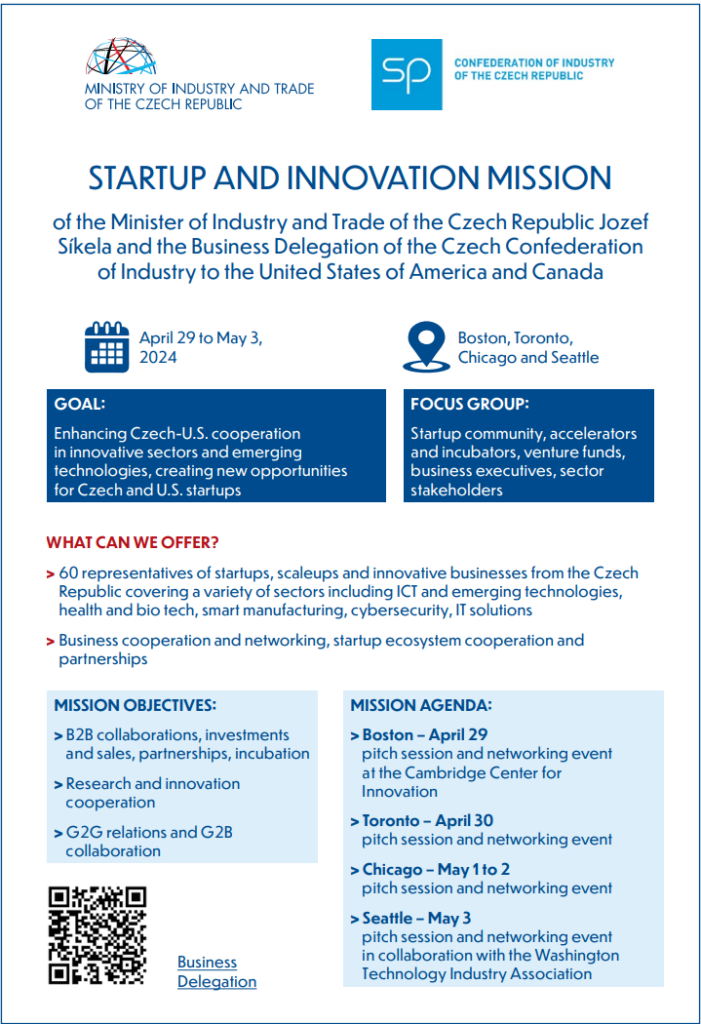
Join us on this exciting journey to explore new opportunities, expand business operations, and forge valuable connections in North America’s dynamic startup ecosystem!
Exploring CCU, Power-to-X, and Solar-to-X Innovations (4-5 June, Genk)
Discussions will span the whole innovation chain: latest results from excellent academic research, ways to scale up innovative solar-to-X technologies, demonstrations of mature solutions on their way to commercialisation and their integration into the existing energy system. Next to plenaries and panel discussions, the conference will offer the opportunity to showcase European innovations, either in form of a project pitch or by exhibiting a demonstrator (tangible, no poster).
What you can expect:
- Gain a comprehensive overview of the current state-of-play of solar-to-x technologies
- Pitch your project or present your results in diverse working groups
- Exchange with leading academics, visionary entrepreneurs, industrial leaders, policymakers, and investors
- Discuss ways to move from technology readiness levels to manufacturing readiness levels
- Explore viable business models for solar-to-x technologies
- Contribute to the development of a holistic techno-sustainability methodology
- Find partners for future projects and enjoy ample opportunities to network
|
|
FRIENDSHIP at Liten Days 2024 in Grenoble
Participants had the chance to engage with industry leaders, explore emerging trends, and gain valuable insights into the future of renewable energy. Notably, the event showcased the participation of 55 speakers, 6 sponsors, and 9 partners, underscoring its significance within the global energy landscape.
The FRIENDSHIP project was selected to feature in the dedicated booth for EU projects. Led by Project Coordinator Valery Vuillerme, FRIENDSHIP exemplified the collaborative spirit and innovative drive that defined Liten Days 2024. Additionally, three dynamic side events, including PEPR H2 Days and workshops on heat and electric power, offered further avenues for knowledge-sharing and collaboration.
With its networking opportunities, insightful discussions, and immersive experiences, Liten Days 2024 drove innovation and fostered meaningful connections within the industry.
The next edition of Liten Days will take place on18 and 19 March 2026.
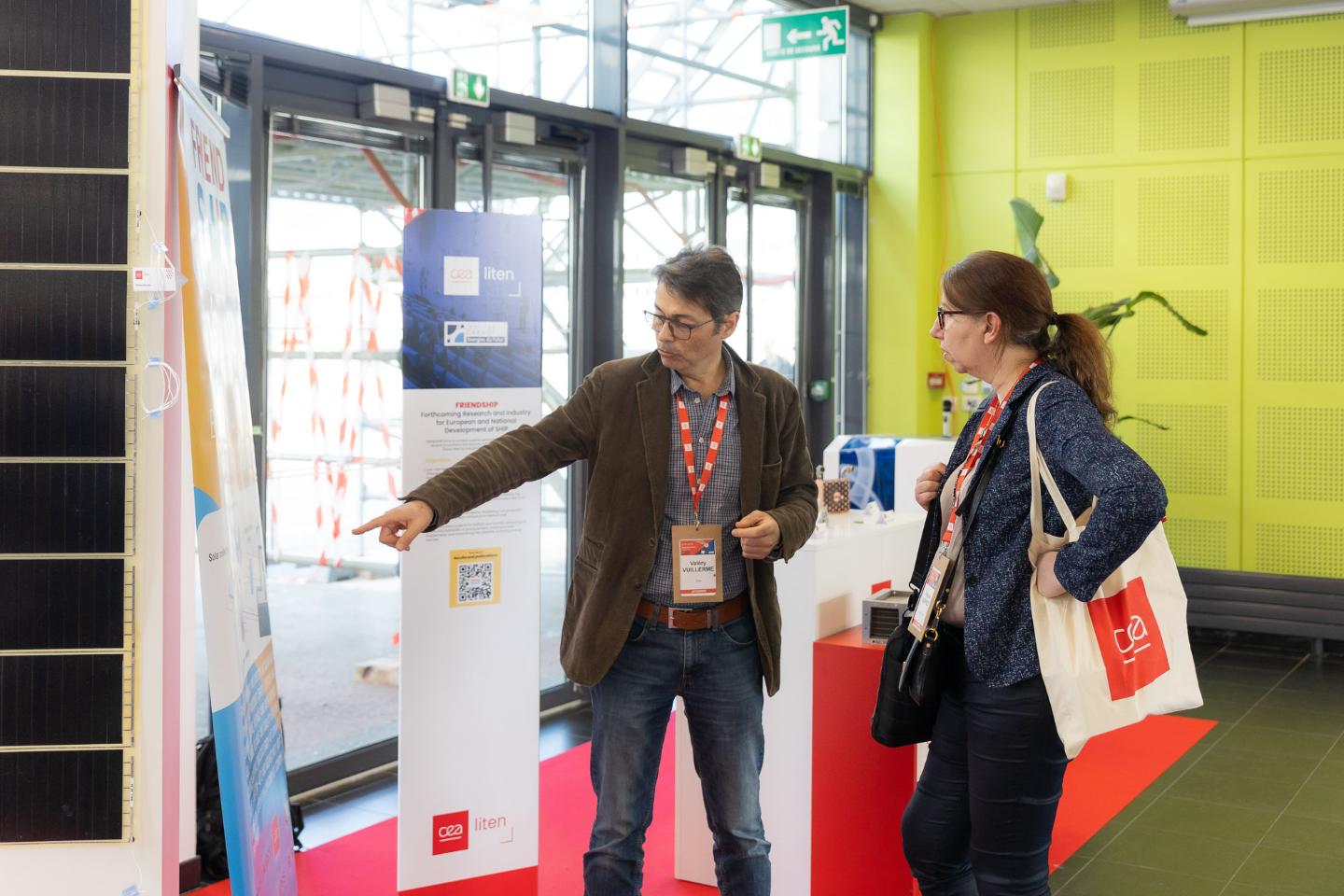 |
AMIRES is happy to share that the TINKER project has finally come to an end!
The EU Horizon 2020 project focused on the fabrication of LiDAR and RADAR sensor packages enabled by additive manufacturing technologies for autonomous driving. As the Dissemination and Exploitation Leader, AMIRES closely monitored the project’s developments and shared the highlights of its impact on the automotive sector.
On the 19th and 20th of March 2024, the final meeting, hosted by Notion Systems at their headquarters in Schwetzingen, Germany, served as a platform for presenting the project’s tangible outcomes. Among these was the live demonstration of a 3D-printed radar sensor, showcasing the capabilities of Notion’s inkjet printer alongside UV-curable inks from TIGER Coatings and conductive inks from PV Nano Cell Ltd. The integration of a laser system by Foundation for Research and Technology – Hellas (FORTH) facilitated the sintering process, resulting in a sensor poised to advance autonomous vehicle technology. Moreover, the partners presented the 3D technology On Chip LIDAR demonstrator, developed by CEA-Leti, in collaboration with Marelli.
During this meeting, we had the opportunity to collect valuable feedback from our Project Officer and Technical Reviewer on the project’s results.
It has been a pleasure to work with TINKER’s consortium, with which AMIRES shares the best wishes to collaborate in the near future.
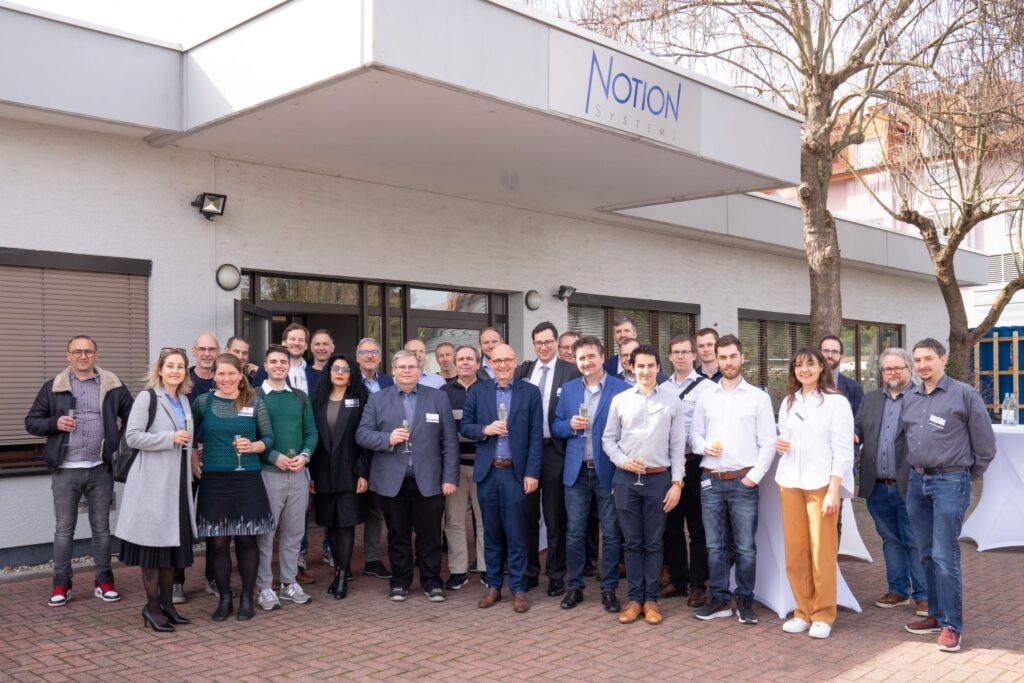
Check TINKER’s website and LinkedIn page to see the whole project’s journey!
One step forward in Gender Equality: AMIRES Gender Equality Plan Report 2023
Gender Equality in Europe is progressing, although further efforts are still needed. To achieve gender equality internally and promote it also externally AMIRES published in 2022 its Gender Equality Plan (GEP) with defined actions and targets.
Overall, AMIRES is reaching its defined targets of this GEP, as described on the 2023 Report. For example, the European funded projects in implementation phase in which AMIRES participates (as project manager and/or communication and dissemination manager) the percentage of women in leading positions increased in the period from 2022 to 2023, such as coordinators, and advisory board members, however in some cases our projects are still not reaching the defined target. In addition, the project proposals, which AMIRES supports to prepare, had more female coordinators than in the previous period, meanwhile the other leading positions in the project were kept at similar numbers. A development to be highlighted is the improvement on the awareness of the use of inclusive language and gender-neutral visuals in materials within AMIRES team, as well as the continued absence of negative comments from evaluators on gender aspects in project proposals.
Although these are positive results, AMIRES still finds room for improvement when it comes to avoiding zero representation of women in leading positions in ongoing projects This also applies in keeping a good proportion of speakers and panellists in events organized by AMIRES. Further actions will be implemented to achieve the targets set out in AMIRES GEP and continue the improvement on Gender Equality.
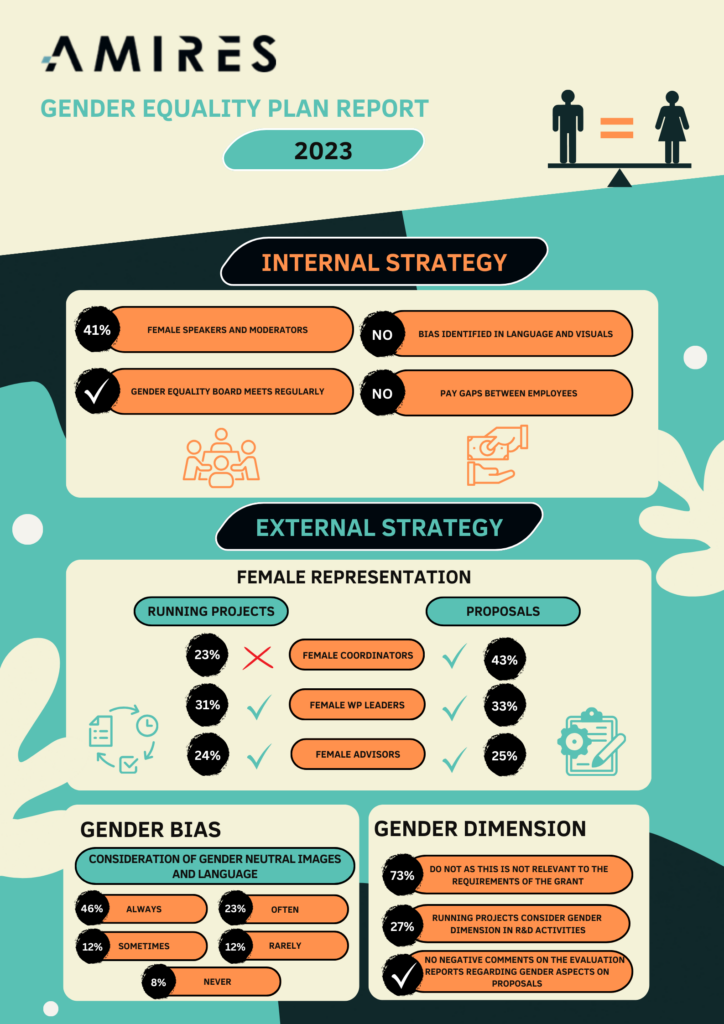
Stay tuned to our latest updates on our social media – AMILinkedIn!
2024 SEASON OF LOPEC CAME TO AN END!
With the conclusion of the 2024 season of LOPEC, another successful chapter draws to a close. AMIRES is honored to have been among the 3000 visitors hailing from 48 countries, converging in Munich for this prestigious event.
Our presence provided an excellent opportunity to reconnect with our key partners in the flexible, organic, and printed electronics industry. It was an ideal platform to showcase the significant progress of our projects, highlighting the strides we’ve made.
Across various sectors, including automotive, renewable energies, and healthcare, there’s a notable surge in the adoption of these critical technologies. Companies are increasingly leveraging these innovations to bolster their commitment to being environmentally friendly and sustainable. We eagerly anticipate witnessing the positive impact of these initiatives in the years to come.
As we bid farewell to this year’s event, we eagerly anticipate returning next year with a fresh array of European innovations to share and explore!
Stay tuned on AMILinkedIn!
AMIRES and Tensor Ventures join forces to drive innovation in emerging technologies
We are thrilled to announce an exciting collaboration between AMIRES, a leading consulting company, and Tensor Ventures, an innovative investor group, aimed at fostering innovation in emerging technologies.
Digital AI, Future Computing, Advanced Physics, Quantum Technologies, Cybersecurity, and Novel Energy & Climate Tech has never been greater. Recognizing this growing need, AMIRES and Tensor Ventures have come together to pool their expertise and resources to support research, development, and innovation projects in these critical areas.
Through this partnership, AMIRES and Tensor Ventures aim to create a synergistic ecosystem that fosters collaboration, knowledge sharing, and cross-pollination of ideas. By bringing together their respective strengths in consulting and investment, they are well-positioned to support the development and commercialization of innovative solutions that address some of the most pressing challenges facing society today.
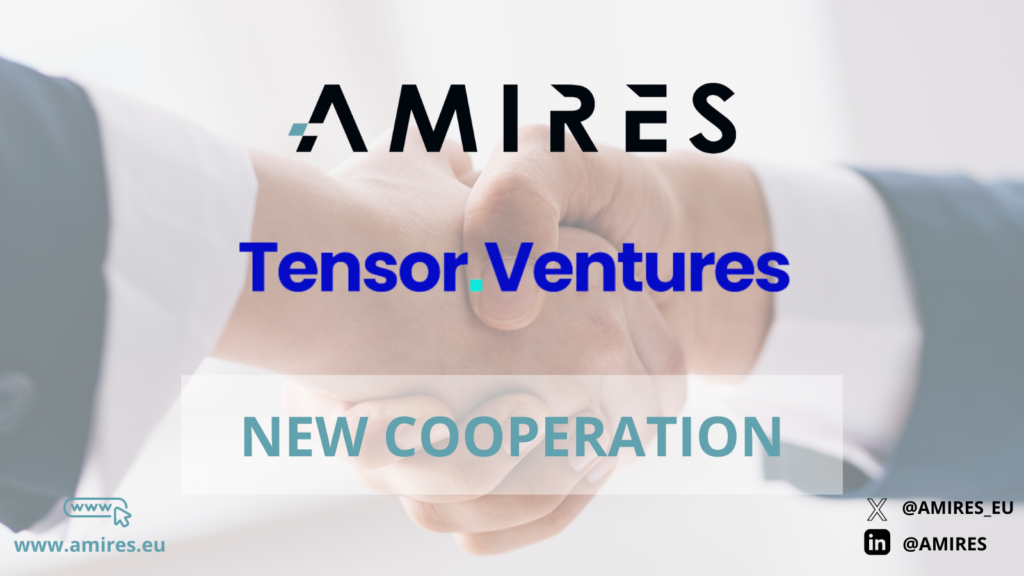
Stay tuned for more updates and insights as we embark on this exciting journey of discovery, collaboration, and innovation
NetZeroAICT: Pioneering Sustainable Healthcare with AI-Enhanced CT Imaging (Video Guide)
Discover how NetZeroAICT revolutionises CT Scans using AI!
The project trailer (video) is available HERE!
NetZeroAICT, a cutting-edge Horizon Europe project, is transforming the landscape of CT imaging.
Our groundbreaking solution, ‘CT Digital Contrast,’ enhances image quality without administrating harmful contrast agents, making CT imaging more accurate, more comfortable for the patient and more sustainable for the environment.
In our project trailer, you can meet our core team, explore our goals, and learn about our co-design approach and expected impacts.
At NetZeroAICT, we are committed to improving healthcare and well-being across Europe and beyond.
Do not miss out – follow us on LinkedIn and X and stay updated with the latest project news!
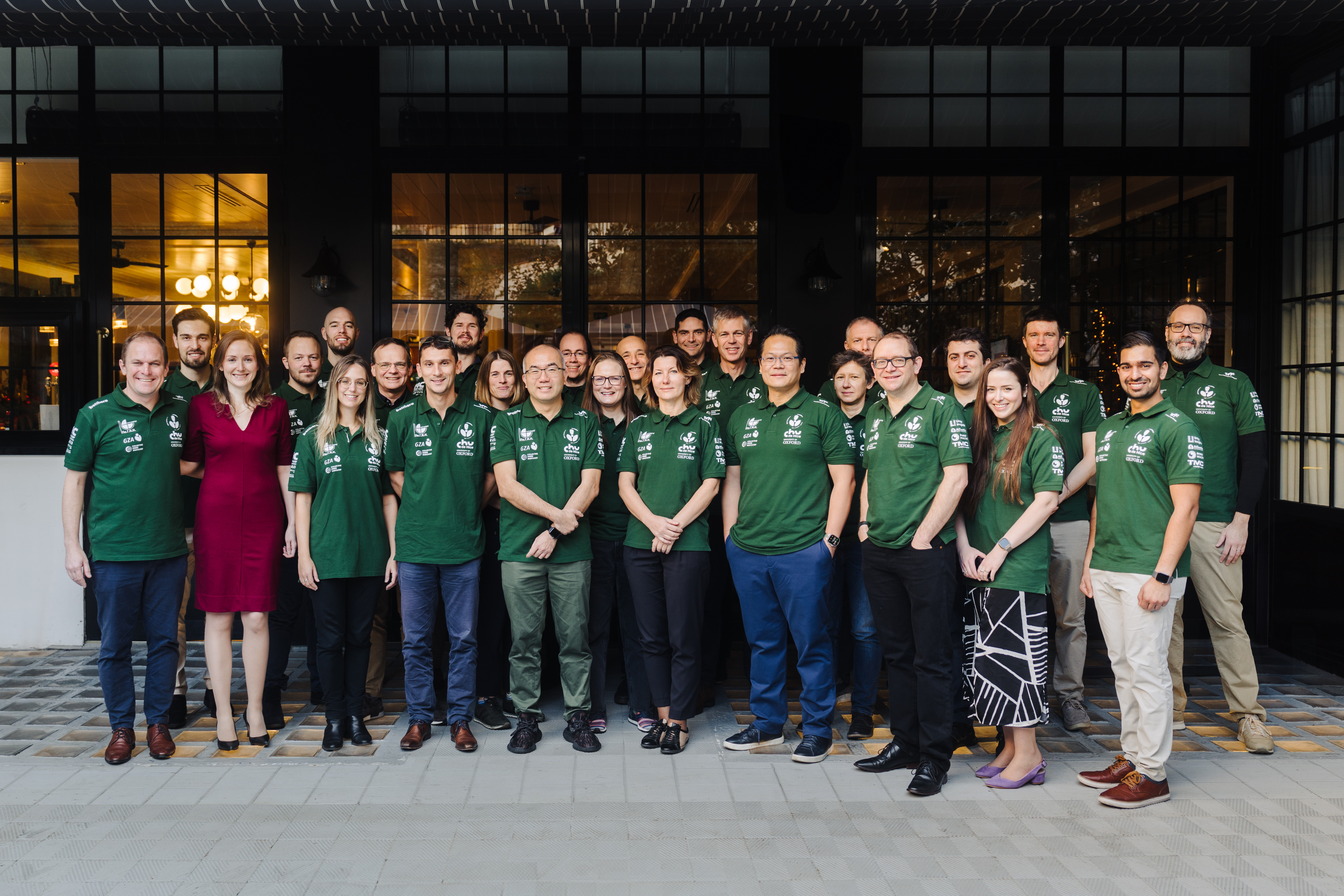
Excited to announce that our team has been awarded a grant from the European Commission to develop a quantum-enhanced benchtop nuclear magnetic resonance spectrometer (QUENCH).
QUENCH will use quantum 💎 diamond sensors, which are micro-scale devices that can detect tiny magnetic fields with high precision, to enhance the nuclear magnetic resonance signal of the sample. This will enable us to perform NMR spectroscopy with a compact and low-cost benchtop instrument, without the need for expensive and bulky superconducting magnets.

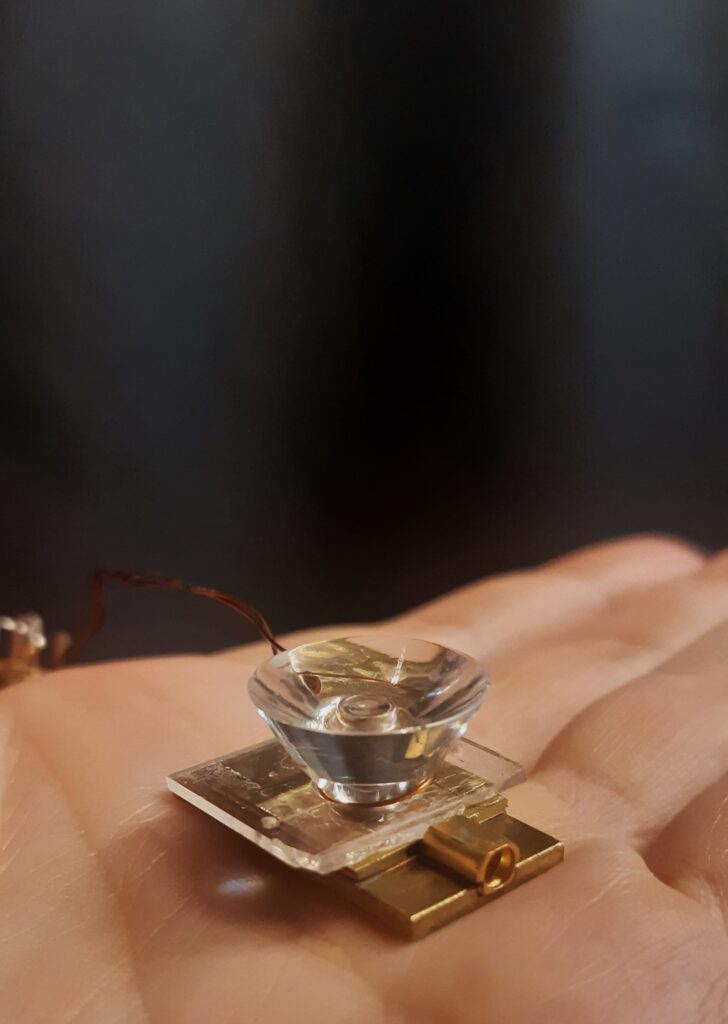
🔷 This project aims to harness the power of quantum technologies to improve the #sensitivity and #resolution of NMR spectroscopy, which is widely used for molecular structural analysis in various fields, such as chemistry, biology, medicine, and materials science.
🔷 Our team (consists of Technical University of Munich, Universidad del País Vasco/Euskal Herriko Unibertsitatea, TECNALIA Research & Innovation, Technion – Israel Institute of Technology, Fraunhofer-Gesellschaft, Magritek Ltd and AMIRES) of experts from academia and industry, with complementary skills and backgrounds in quantum physics, NMR spectroscopy, diamond nanotechnology, signal processing, and machine learning.
During our kick off meeting on January 24-25, 2024 in Munich, we discussed the project plan and expected impacts. Thank you to Technical University of Munich for hosting us. Our sincerest appreciation goes out to our EC project officer Markus Ritter, PhD for joining us.
Stay tuned for more updates on QUENCH visit our website HERE.
Exploring the Landscape of Digital Health: Takeaways from the Pioneering Digital Transformation in Healthcare Workshop!
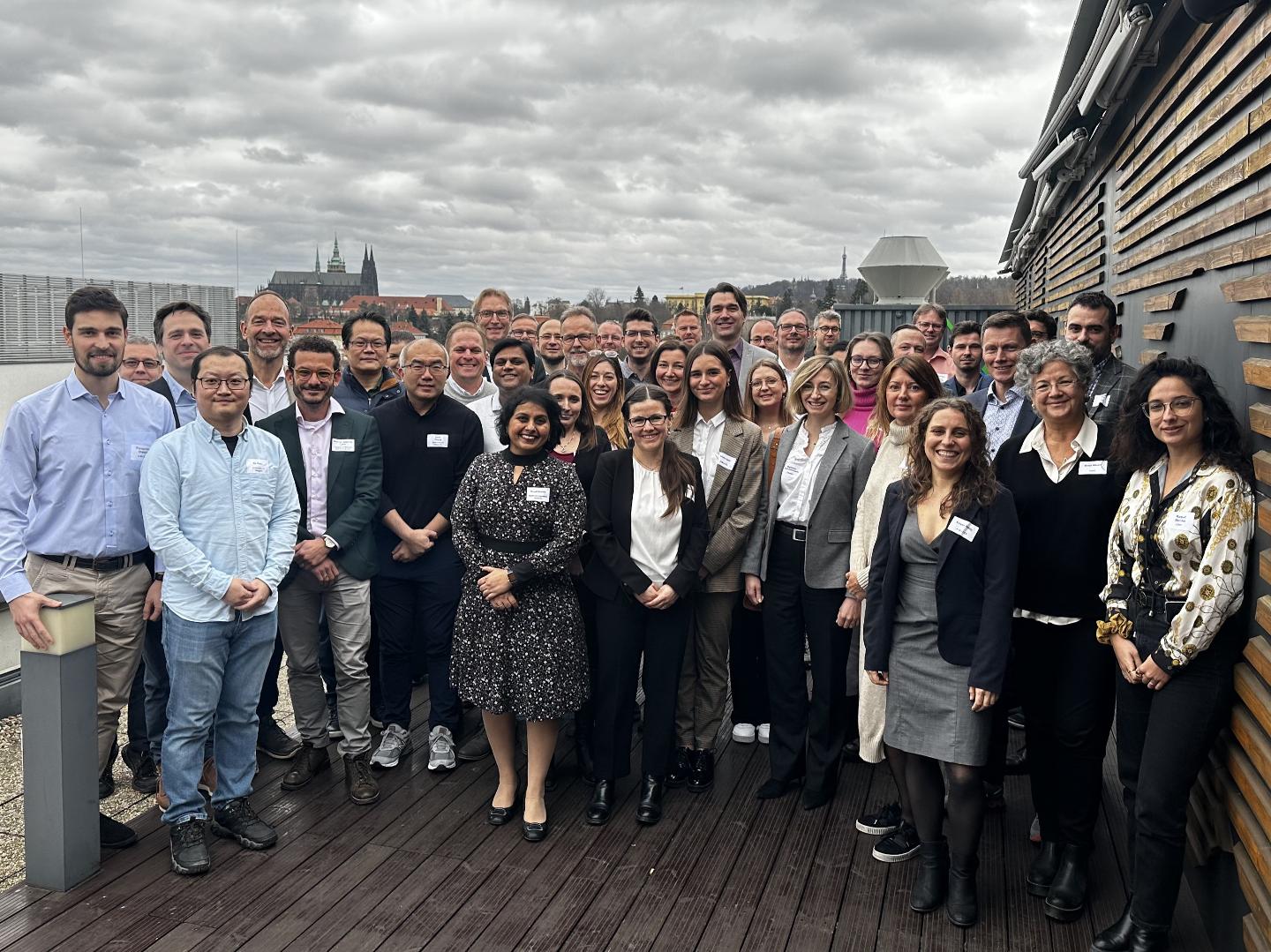 |
- While AI in radiology is already quite popular amongst technology developers and end users, there is much unexplored potential in other areas of digital health such, data management, wearables and device allowing continuous monitoring for clinical application.
- For targeted and effective new tools, digital health innovation requires cooperation from all stakeholders: researchers from different fields (biologists, radiologists, computer scientists, and more), technology developers, end users (e.g. hospitals, clinicians, patients), regulators, state actors and more.
- Despite their large potential, digital tools in healthcare are facing a lot of hesitation for adoption from all sides due to the high stakes, making it a more challenging market than digital transformation in other domains.
- Addressing ethical questions and uncertainties over issues such as data privacy and accountabilities for mistakes made by AI, are crucial to increase trust in e-health services and solutions.
- Regulation imposes many challenges on technology developers, but it is key to work with the rules to maximise the safety and potential of new technologies for patients.
- Although the AI Act may cause delays in the development and production of AI technologies, it can offer regulatory clarity and increase trustworthiness to make a leap of faith towards AI technologies (quote from Steven Van Wortswinkel)
- Some key pieces of legislation currently in the EU pipeline (EHRS, AI act, etc.) will transform the digital health landscape, providing important new opportunities.
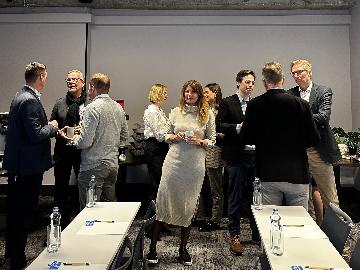 |
 |
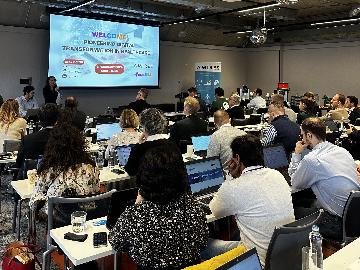 |
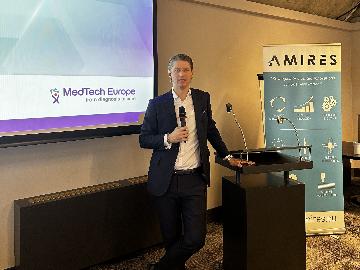 |
We would like to thank all speakers and participants for the active engagement during the workshop and look forward to continuing bringing people together at similar events in the future!
One Year of MADE-3D improving the materials research for additive manufacturing.
The MADE-3D project is pleased to announce that on February 8th and 9th, a pivotal one-year meeting took place at CSEM headquarters in Neuchâtel, Switzerland.
The session commenced with a detailed project overview presented by AMIRES project manager Marina de Souza Faria and project coordinator Dennis Lehnert from the University of Paderborn. This comprehensive overview highlighted the progress made over the past months and outlined plans for future milestones.
Special acknowledgment is extended to John Aristeidakis (QuesTek Europe AB) for exemplary leadership during the design and modelling phase, which is progressing meticulously. Furthermore, commendation is given to the task leaders from CEA for their insightful presentations on completed tasks.
Christopher Singer’s (Fraunhofer IGCV) exceptional contributions to materials and tools, particularly in powder material atomization and process parameter optimization in the transition zone, warrant special recognition.
The MADE-3D project extends gratitude to all partners and gracious hosts for their unwavering support and dedication, which have been instrumental in making this one-year milestone a resounding success. Here’s to many more achievements on the horizon! At the LinkedIn page of the project there to keep updated from the outcomes – HERE.
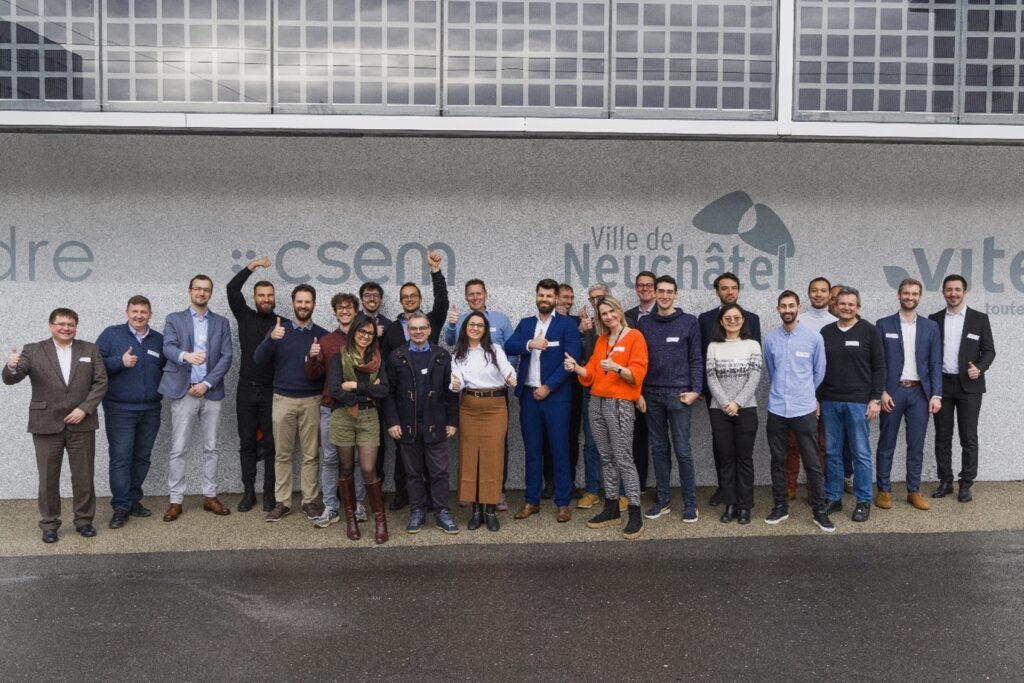
INSPIRE results presented at Photonics West 2024: Micro-transfer printed III-V on silicon nitride narrow-linewidth laser with extended frequency chirp capability for distributed acoustic sensing (DAS) measurements
At Photonics West 2024, Guénolé Dandé presented recent achievement of INSPIRE project: experimental results of OFDR distributed fiber sensing obtained with micro-transfer printed laser.
INSPIRE consortium fabricated hybrid tunable laser based on the micro-transfer printing of a pre-fabricated InP gain section on the IMEC low-loss silicon nitride platform.
The laser incorporates a dual-ring Vernier frequency selective mirror, with a loaded Q-factor of 46k, and delivers -3dB optical power (in fiber) with a Lorentzian linewidth of 3 kHz. At such Q-factor, by solely modulating the SOA drive current, the frequency chirp amplitude of the laser is limited by mode hopping at 4-5 GHz, which is still insufficient for sub-cm DAS resolution. To overcome this issue we simultaneously modulated the rings of the Vernier filter through thermo-optic tuning, and obtained a FM chirp amplitude of 20 GHz at 1kHz repetition rate, with limited phase noise penalty. Thales showed DAS measurement with this laser, concluding that INSPIRE laser overperform all lasers in terms of spatial resolution.
Tunable lasers and photonic integrated circuits are a promising technology to provide compact and high performance solutions for coherent remote sensing applications such as Lidar, and distributed acoustic fiber sensing (DAS). INSPIRE project enables such applications by establishing world´s first PIC platform capable of hosting all optical functions while remaining scalable for mass production.
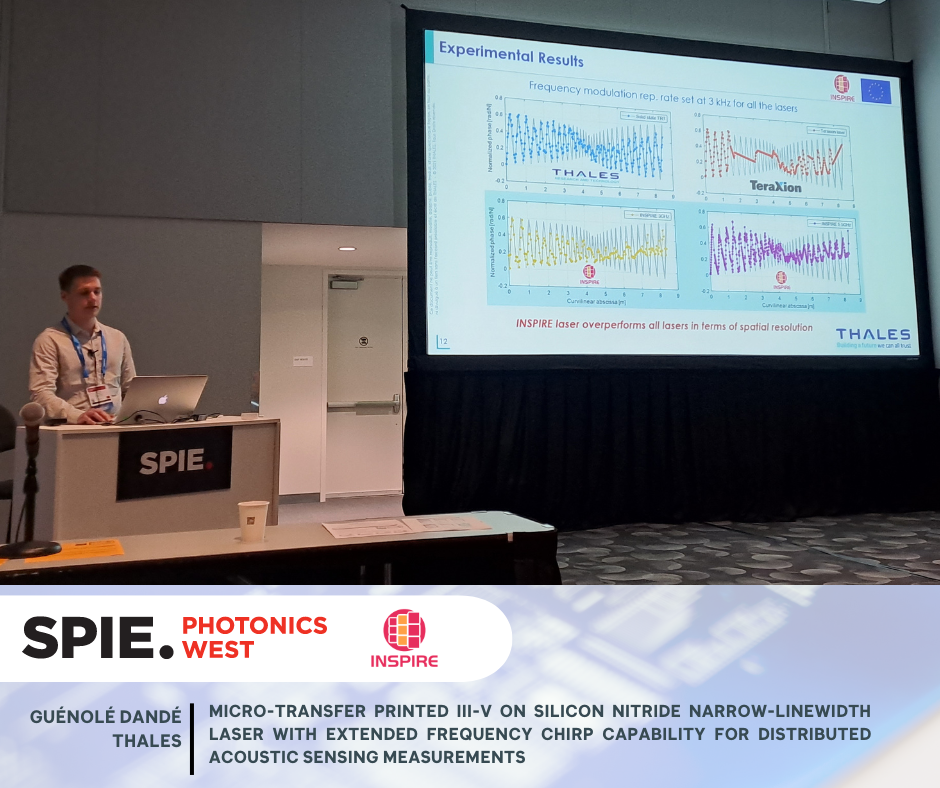
AI for Pancreatic cancer – from development towards validation: The PANCAIM M36 Meeting in Prague
PANCAIM is dedicated to advancing multimodal AI integrating genomics, pathomics, and radiomics data for a more comprehensive understanding, diagnosis, and treatment of pancreatic cancer. Through the teamplay platform, we aim to bring our AI to the hospital for clinical validation and ensure brand new possibilities for clinicians to offer personalised treatment recommendations for PDAC patients.
AMIRES is participating in PANCAIM as partner for project management and dissemination and is actively engaged in consortium coordination, taking an active role in organising the meeting and preparing materials, moderating discussions around data sharing and strategic questions in the project such as its sustainability exploitation.
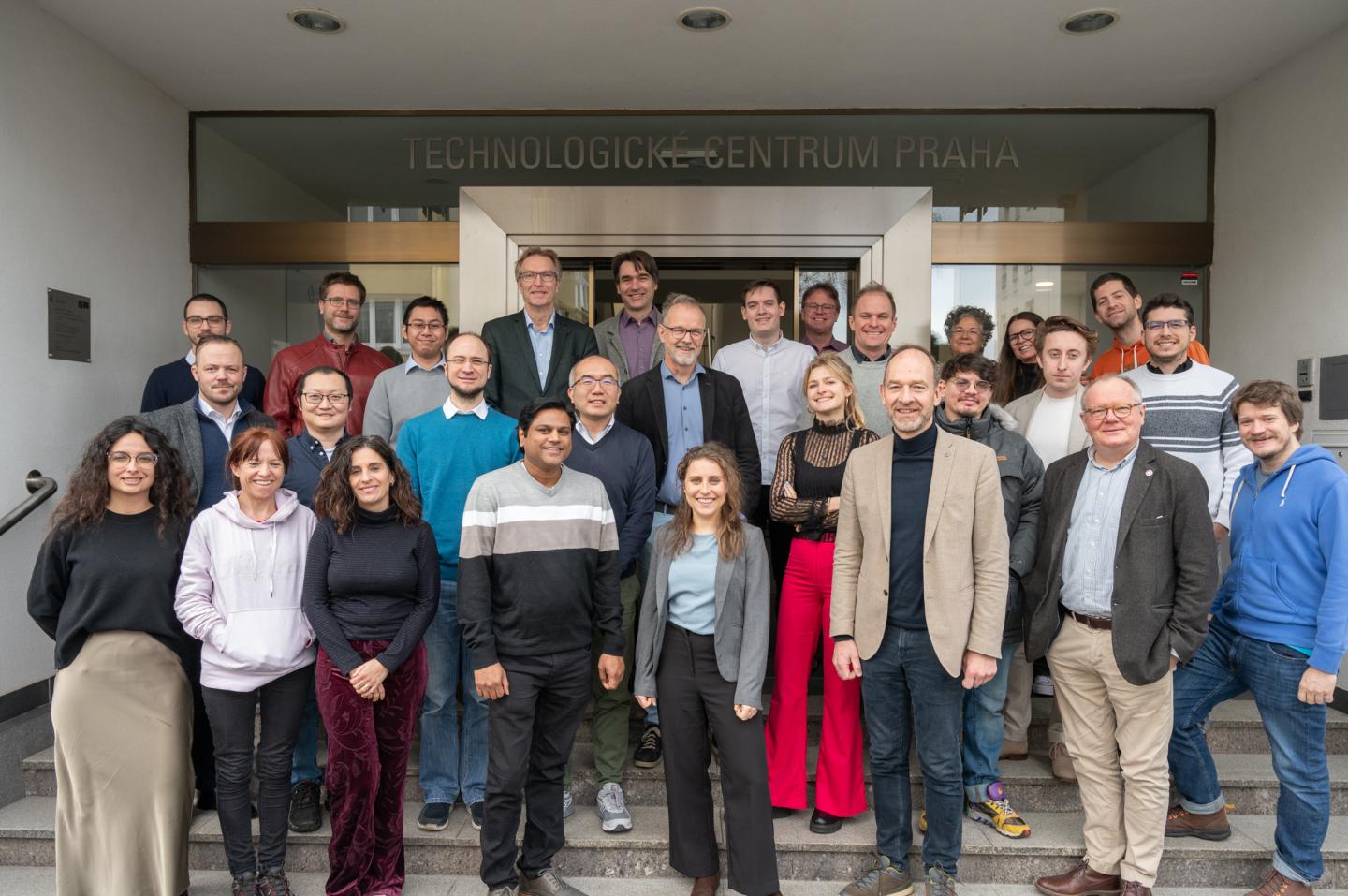 |
The most promising AI algorithms developed in the project, which have demonstrated their capability to predict clinically relevant outcomes, will then be integrated within an established healthcare platform and further validated in an environment that resembles a routine clinical application as closely as possible.
Kristin Aldag, PANCAIM project manager from AMIRES presented the progress in Dissemiation and Communication activities, and briefed the consortium about all current and upcoming matters regarding the project management, administration and coordination.
During a dedicated session, the consortium also discussed the exploitation and sustainability plans to make sure that project result will continue to make an impact even after the end of the funded period. Lastly, with the upcoming project review meeting, the agenda dedicated some time to rehearse presentations, align on priorities, and define the key messages to showcase the progress we’ve achieved through our collaborative efforts. Many active discussions also took place informally over lunch, coffee breaks and delicious Czech dinner.
A big thank you to our hard-working partners for the productive meeting and the good collaboration in this demanding project – we are already looking forward to the next meeting which will take place in September 2024 in Glasgow.
Lots of work remains to be done in the project, but we’re glad to see that PANCAIM is steadily moving towards its objectives of providing unique new digital tools for pancreatic cancer clinicians and patients. For more about the project, please visit https://pancaim.eu/ .
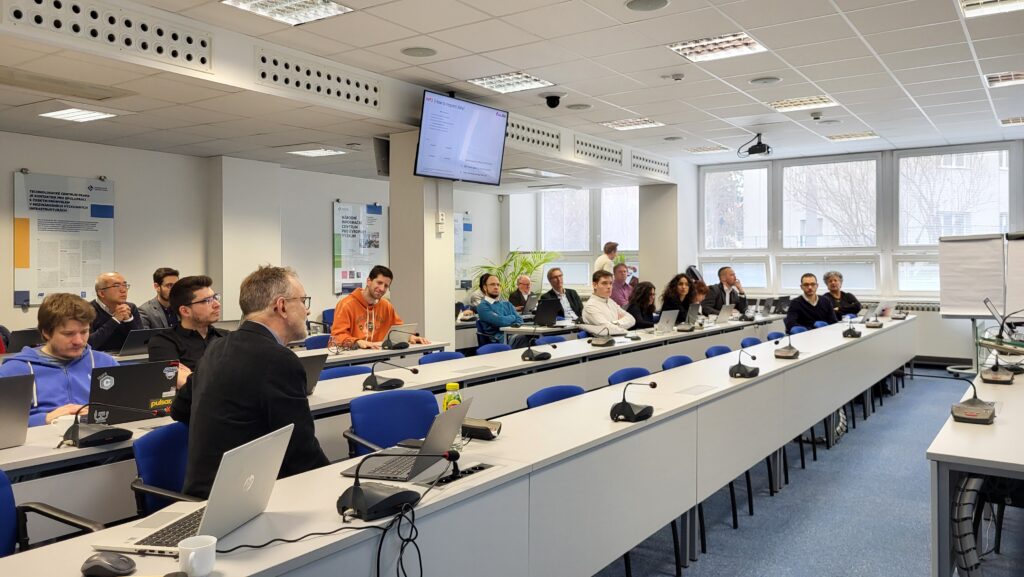
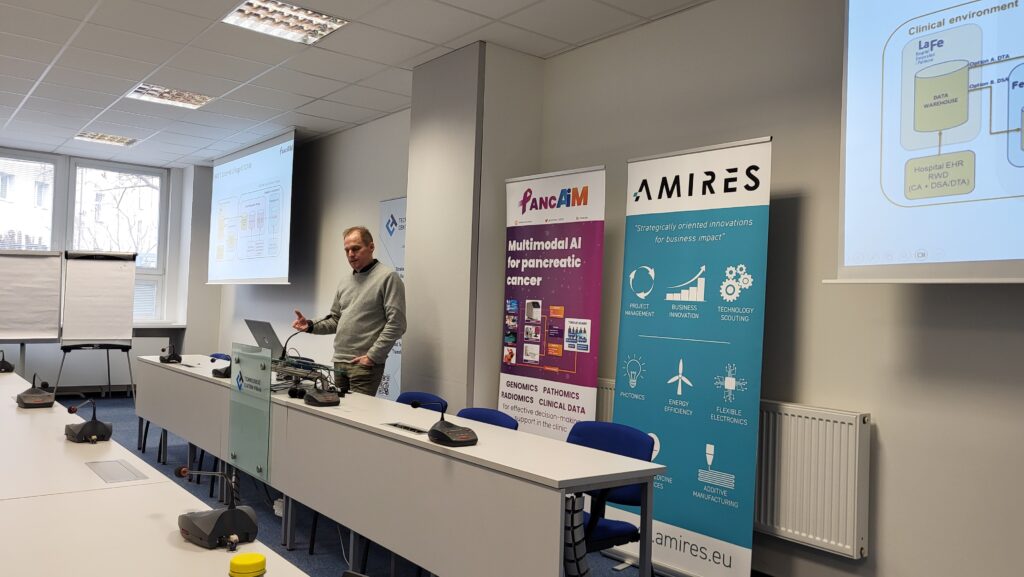
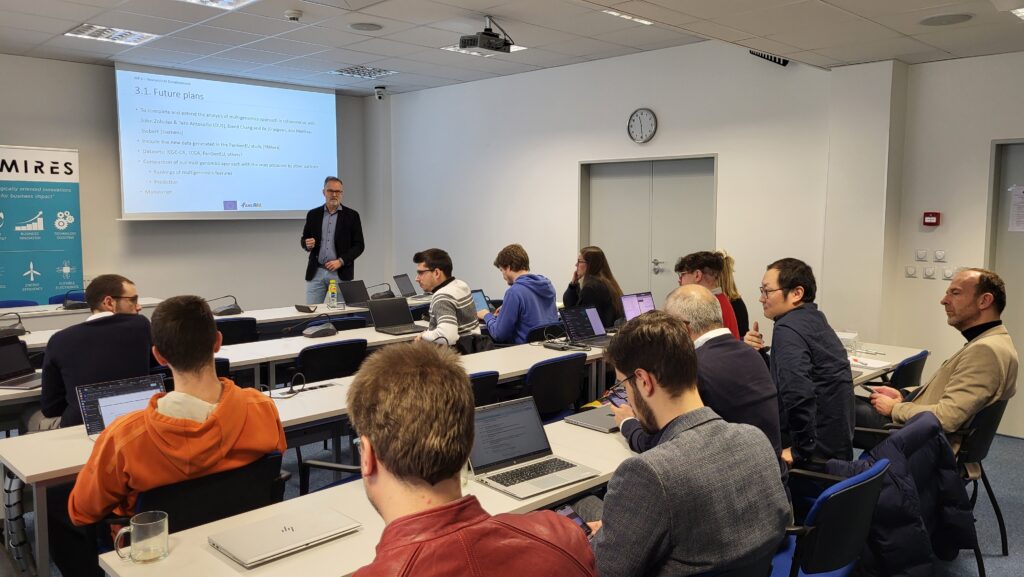
Open Call for Business Pilot Cases
The Call is open for Small and Medium-sized Enterprises (SMEs), start-ups and/or enterprises seeking to commercialize a technical result. All successful applicants will receive business support to prepare them for investors and assist in identifying and securing investment opportunities.
The Call will be open until 29th February 2024. Applicants will be able to apply anytime during this period (deadline: 17:00 CET). If you are interested in applying to the Call, please fill in a simple Application form (HERE).
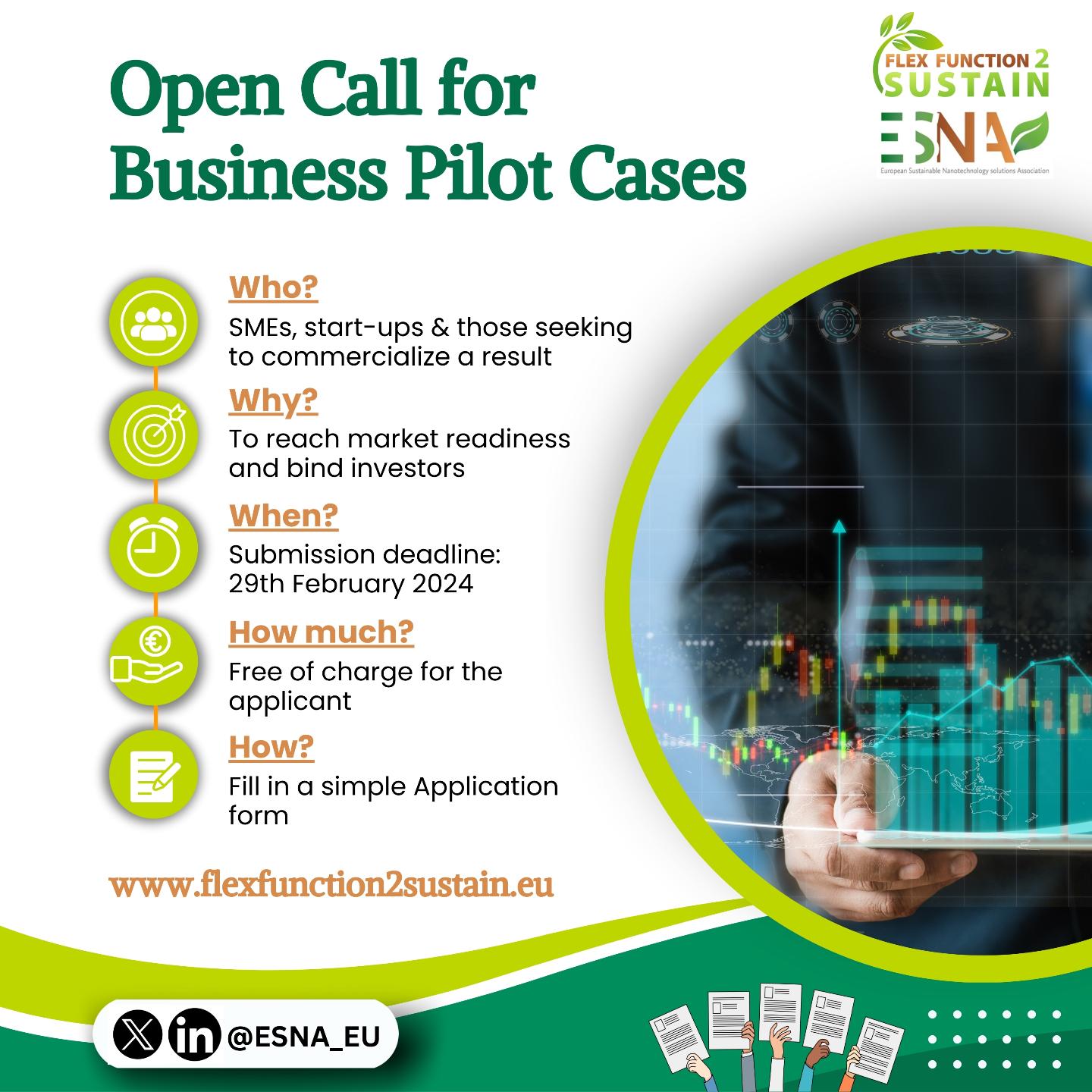 |
Graphene Flagship common Kick-Off meeting and Science and Technology Forum (STF).
Next-2Digits participated in the Graphene Flagship common kick-off meeting and Science and Technology Forum, organised on 5-6 February 2024 by the Graphene Flagship Coordination and Support Action project and hosted by Chalmers University of Technology, in Gothenburg, Sweden. The Next-2Digits project had the chance to meet in person with the other 11 RIAs/IAs involved in this partnership: 2NEURALVISION, GATEPOST, GRAPHERGIA, Project ARMS, MUNASET, 2D-BioPAD, GIANCE project, 2D-PRINTABLE, 2D ENGINE, 2D-SPINTECH, SAFARI. The meeting aimed to strengthen connections and collaboration among the RIAs/IAs, as they collectively strive to transition graphene technologies from labs to markets.
The Kick-Off meeting on February 5th aimed to officially start the cooperation between the 12 RIAs/IAs, addressing the goals that these projects have in common. The event also focused on innovation road-mapping, standardization, and outreach opportunities to expedite the practical applications of graphene.
The Science and Technology Forum (STF) on February 6th focused on the future of graphene development and EU funding, particularly in the context of the European Union’s strategic partnership, Innovative Advanced Materials for the EU (IAM4EU). As stressed during this Forum, the next few years will be decisive in defining the future of 2D advanced materials.
For more information on the Graphene Flagship Common Kick-Off meeting, click here and the preparation for the Graphene Week 2024 that will take place in Prague. Explore also the Next-2Digits project here.
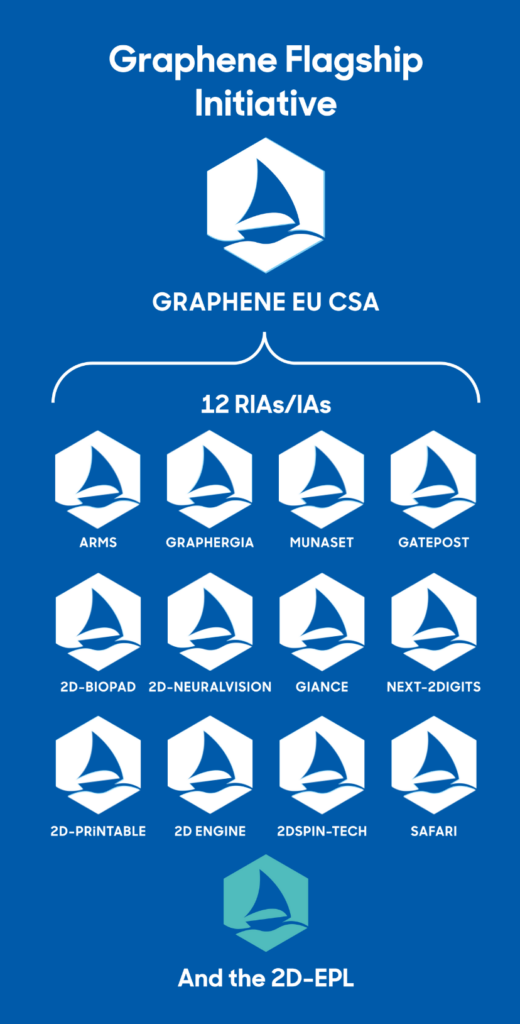
FRIENDSHIP Webinar on Solar Heat for Industrial Processes Decarbonisation
A special word of thanks is warranted for the all the speakers, who presented their research findings with clarity, conciseness, and factual accuracy:
Valery Vuillerme (CEA) – Coordinator of the FRIENDSHIP project – exposed the objectives and components of the project, highlighting the research behind the technology and its transformative potential for industries.
Dr. Ivan Jerman (NIC) – Researcher at the National Institute of Chemistry, Slovenia, – shared insights into Solar Thermal Field & Coatings, focusing on the lifetime evaluation approach for competitive SHIP
collector coatings.
Ole Marius Moen (SIN) – Researcher at SINTEF Energy Research (Norway)- showcased the functionality and efficacy of heat pumps within the FRIENDSHIP solution, offering a glimpse into their role in optimizing energy efficiency.
Anouk Muller (CEA) – Research Engineer at CEA Liten’s Laboratory for Thermodynamic and Solar Technologies – explained the process of cold production within the FRIENDSHIP framework, emphasizing its contribution to sustainable cooling solutions.
Julien Grosse (CEA) – Research Engineer at CEA – revealed the heat storage mechanisms in the FRIENDSHIP system, underlining their crucial importance in the solution.
Valery Vuillerme (CEA) detailed the management system of FRIENDSHIP, offering insights into its integration into industrial operations.
Pierre Dury (INES) – Solar Thermal Engineer at the National Institute of Solar Energy, France – showcased the educational materials and the tool developed within the FRIENDSHIP project, emphasizing their role in knowledge dissemination and capacity building.
Following the presentations, a dynamic panel discussion provided a platform for speakers to address audience queries, fostering a deeper understanding of the subject matter.
For those willing to have a look at the presentations or revisit key insights, recordings are available:
Presentations link
Webinar recoording link
E-learning videos link
We invite you to explore these resources and to follow the progress of the FRIENDSHIP project!
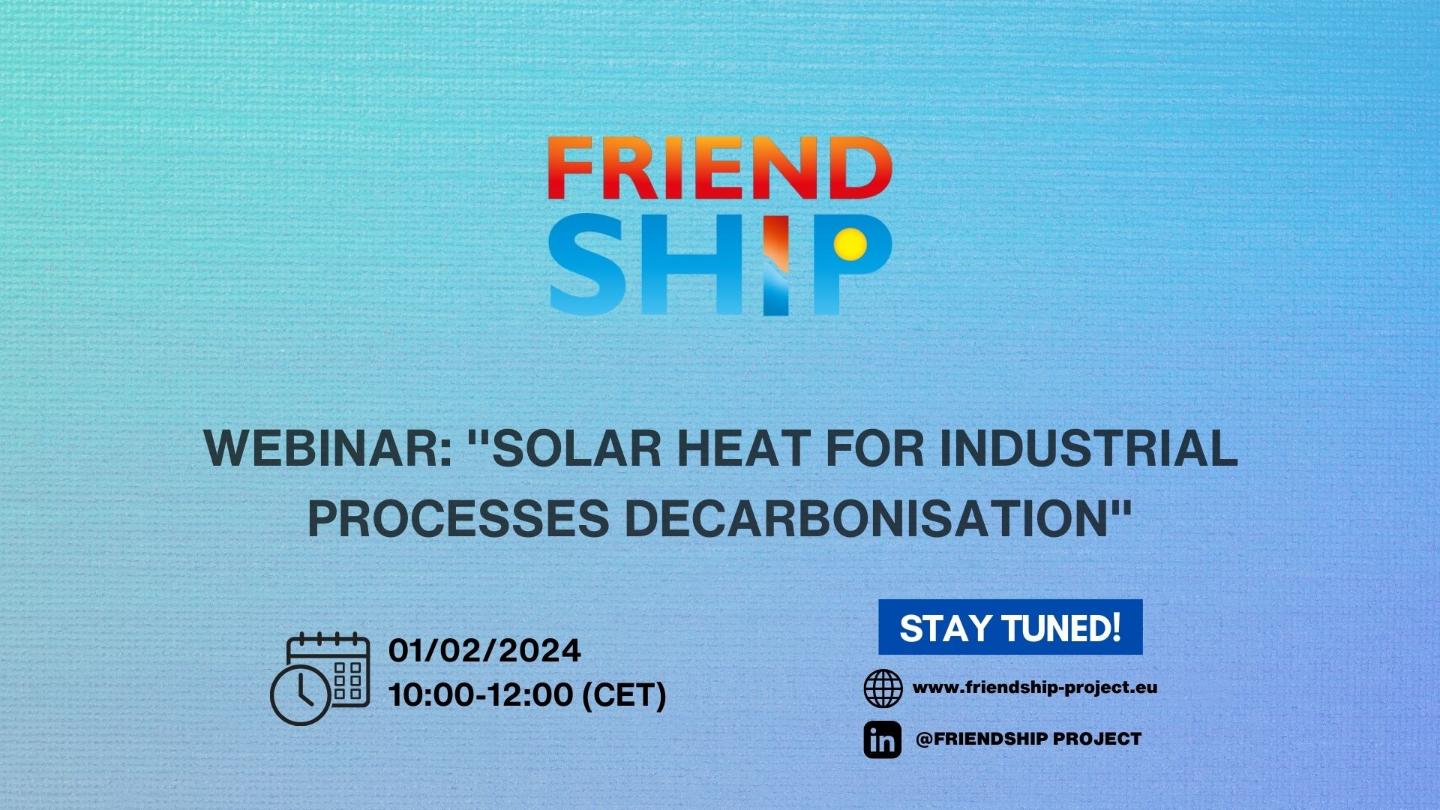 |
The successes and shortcomings of Horizon 2020
The review of the €75.6B eighth framework programme will feed into evidence to be published this year that will shape the future of EU research and innovation.
The €75.6 billion Horizon 2020 framework research programme that ran from 2014 – 2020 had a huge impact on the European economy, its scientific output, and on society, but was short on budget, needed simplification and should have included better support for women researchers and entrepreneurs, a review shows.
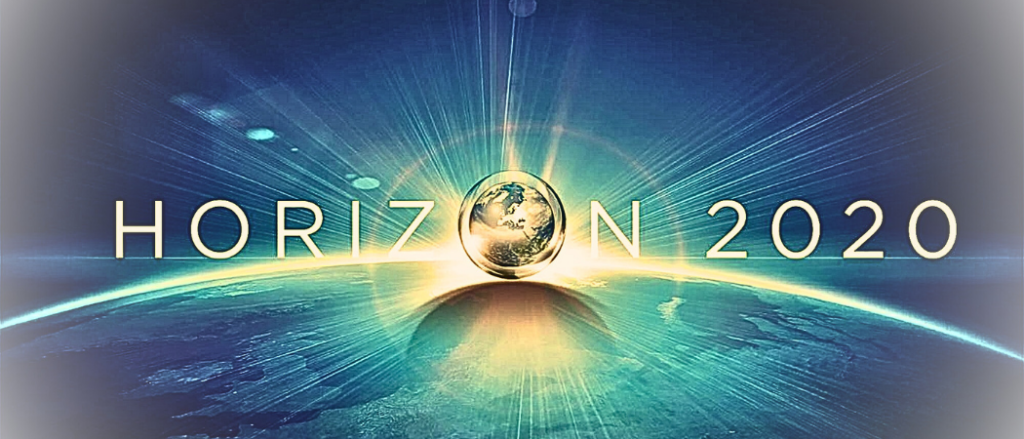
The Horizon 2020 evaluation, carried out by the European Commission, is one of the first major documents that will inform the scope and aims of the next research programme, Framework Programme 10 (FP10), which will start in 2028.
Horizon 2020 helped fund over 35,000 projects around the world, but was €159 billion short of being able to fund all proposals judged to be “above the quality threshold” in each call. In addition, it lacked the support needed to make the most of the quality research it funded, and despite seeing the introduction of Widening measures, failed to close the research and innovation gap between Europe’s top and bottom performers.
Some of the shortcomings in this final evaluation were also identified in the mid-way review, published in 2017. That led to improvements being put in place for the current programme, Horizon Europe.
More information on ScienceBusiness website!
Elevate your career with AMIRES – where innovation meets opportunity
Hey future teammate! Exciting news – AMIRES is on the lookout for someone awesome to be the Project Manager for European R&D&I projects in Energy & Sustainability.
What will be your daily tasks? The role involves comprehensive project administration and management, including communication with international partners, progress monitoring, report preparation, and community management. Additionally, the chosen candidate will actively contribute to project proposal preparation.
Are you a master of project dynamics, fluent in English (bonus points for French or German), you have strong communication skills, and are you familiar with the European R&D&I landscape?
If you are you ready to join our team in our offices in Prague 6 and you will be comfortable with business trips around Europe send your CV and motivation letter to bajarova(at)amires.eu by February 13th, 2024. Successful candidates will be contacted by February 16th, 2024.
If you are not still sure, check our advert HERE.
We are looking forward to meeting you soon!
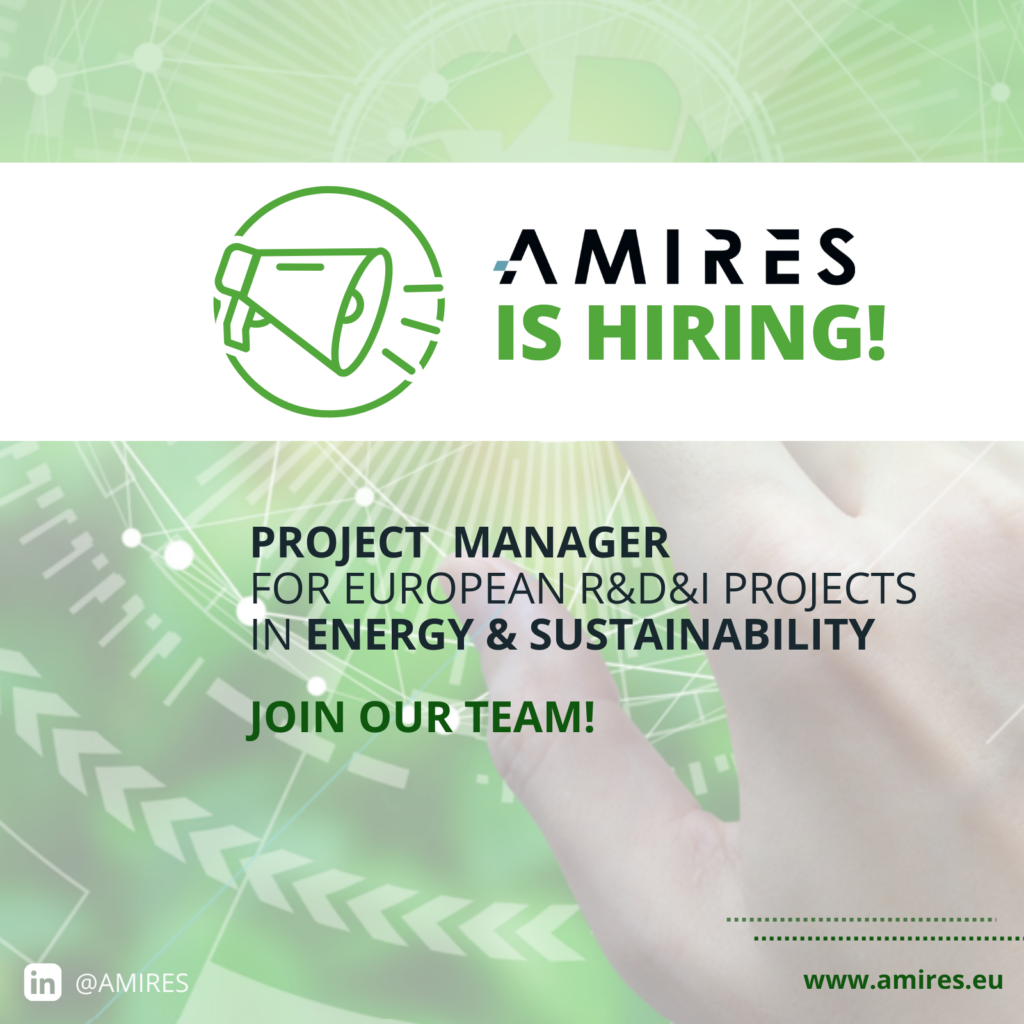
SPINUS: Pioneering scalable solid-state quantum computing
Leveraging Nitrogen Vacancy (NV) Centers: A Quantum Advantage
SPINUS will leverage nitrogen vacancy (NV) centers in diamond, respectively silicon carbide as a promising approach towards quantum computation. SPINUS builds on recent developments in engineered electronic and nuclear spin networks, solid-state quantum simulators, and computers to propel this technological approach towards scalable solid-state quantum computing.
Quantum Simulation Beyond 50 Quantum Units
SPINUS sets its sights on mature hardware platforms for quantum simulation, aiming to unlock quantum advantages. SPINUS activities aim to go beyond the state of the art with three distinct quantum simulator prototypes: a 3D nuclear-spin simulator, a 3D electron-spin simulator, and a 2D nuclear-spin simulator.
Spin-Based Quantum Computing Beyond 10 Qubits
The project aims at elevating quantum computing platforms based on NV centers by increasing the usable qubit number beyond 10. The main goal is to develop platforms that allow for universal quantum computation based on two-qubit gate operations facilitated by controllable dipolar couplings between adjacent NV centers.
Also, the project delves into improving methods for controlling and reading out the state of qubits, crucial for achieving high-fidelity gates and accurate measurements. Lastly, SPINUS aims to enhance the performance of quantum algorithms concerning distinct use cases.
AMIRES’s role within the project is to support the management activities, besides leading the Work Package on Dissemination, Communication, and Exploitation.
Keep an eye on SPINUS to witness a quantum leap in quantum technologies!
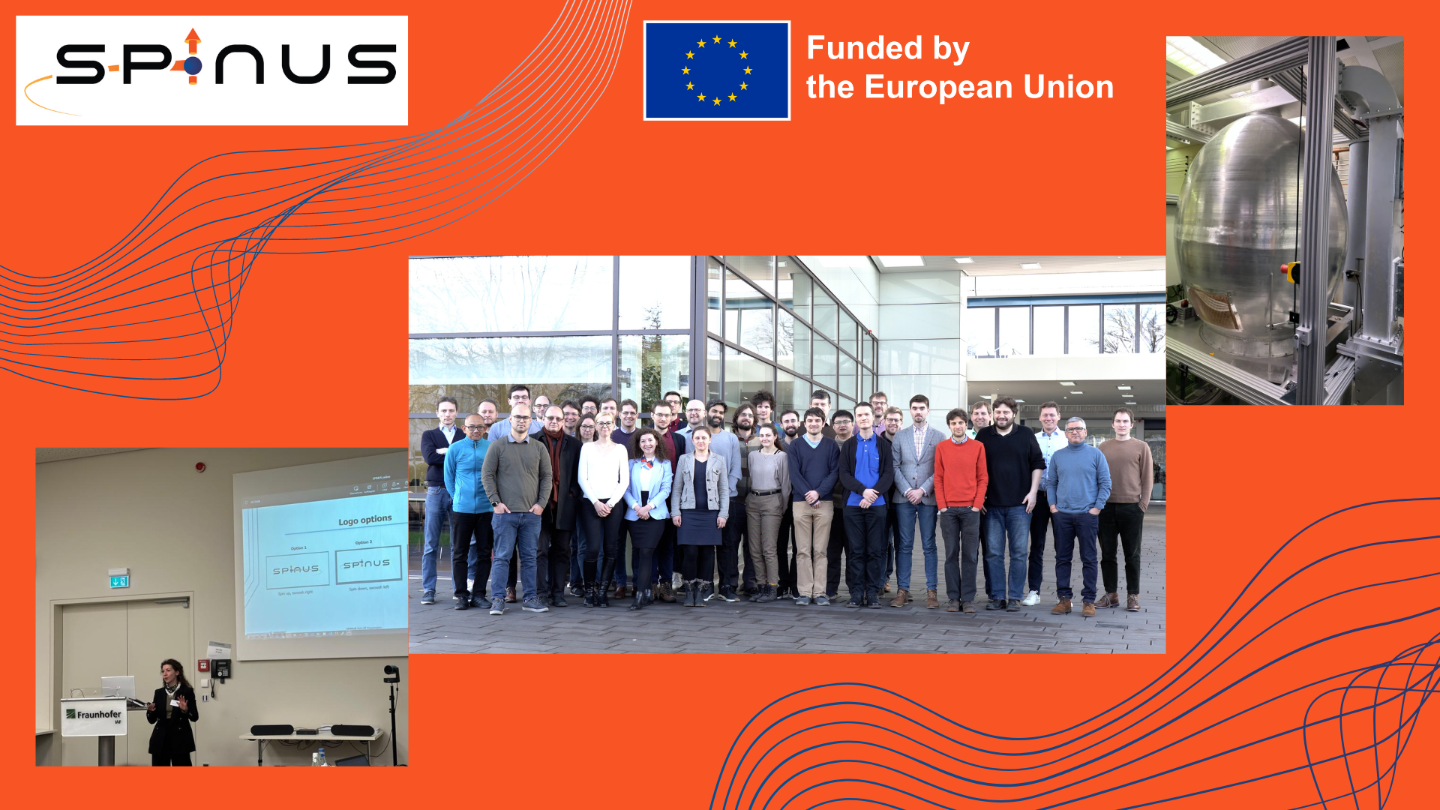 |
INDHEAP Kick-Off Meeting: Pioneering Solar Solutions for Industrial Processes
The inaugural meeting for the INDHEAP project marked a pivotal moment in the journey towards revolutionizing industrial energy consumption through innovative solar technologies. Funded by the European Union – 101136140 – and coordinated by CEA, INDHEAP is set to demonstrate groundbreaking approaches at Technology Readiness Level 7 (TRL7) that integrate solar thermal (ST) and photovoltaic (PV) energies to meet the heat and power requirements of mid-temperature industrial processes, up to 250°C.
Project Overview:
INDHEAP aims to showcase the synergy between solar thermal and photovoltaic technologies by developing and integrating a flexible thermal Energy Storage (e-TES) system, powered by electric heaters, to optimize the utilization of thermal and electrical solar renewable energy. This project will encompass the development of methodologies, tools, and specific components tailored to enhance energy efficiency, reduce peak demands, and maximize the use of solar heat and power in industrial settings.
Key Objectives:
- Energy Efficiency Optimization: Analyzing demand elasticity and harnessing waste heat to reduce heat and power peak demands.
- Technical-Eco-Environmental Criteria: Determining the optimal balance between ST and PV based on various criteria.
- System Architecture: Designing the hybrid ST-PV system’s architecture and components for optimal integration and control.
- Prototype Installation: Deploying a prototype on an industrial lubricants blending process owned by Total Energies in Spain for validation at TRL7 through a comprehensive one-year test campaign.
Meeting Highlights:
The kick-off meeting, held on Chambery (France) – 17th and 18th of January -, brought together consortium partners from leading research institutions and industry experts to delve into the project’s plan and expected impacts. Hosted at CEA facilities, participants had the opportunity to exchange ideas, explore collaboration opportunities, and gain valuable insights from esteemed external advisory board members and the project officer, Clara Astudillo Llorente.
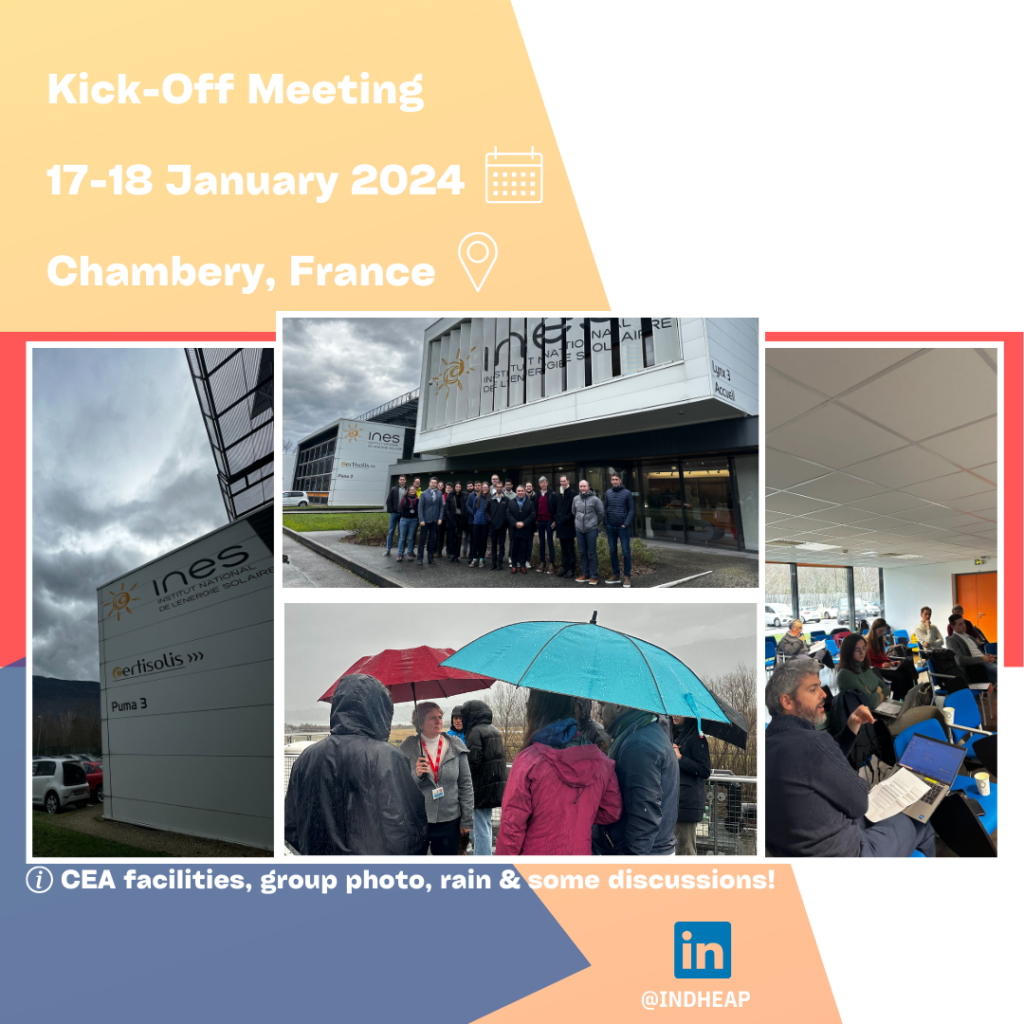
Stay tuned on INDHEAP official LinkedIn page.
TRIATHLON Kick-Off Meeting
Funded by the European Union and CINEA – European Climate, Infrastructure and Environment Executive Agency, the project involves 8 partners:
• Materials Innovation Institute M2i (Project coordinator)
• Delft University of Technology (Technical coordinator)
• Technische Universitaet Dresden
• Ergon Research
• Sabanci Universitesi
• Cryomotive
• Lithoz
• AMIRES (Dissemination and exploitation activities)
The project’s Kick-Off meeting, held at Delft Technical University, Faculty of Aerospace Engineering, on 23-24 January 2024, was marked by insightful discussions on the project plan and expected impacts. Participants also had the privilege of exploring the university’s Materials Laboratory, the SAM XL Collaborative Research Centre, and the workspace of Aero Delft students crafting their aircraft.
TRIATHLON can also count on an impressive External Advisory Board, which will bring in their expertise along the project, featuring industry excellences such as Safran, H2Pulse, Avio Aero, and Ge Turkey, who provided invaluable insights into the project’s workplan during the Kick-Off Meeting.
Also, the Project Officer, Hugues Felix, joined the meeting and supported the consortium in setting priorities.
TRIATHLON is ready to take off!
|
|
The Commission adopts its own approach on development and use of Artificial Intelligence
The Communication on the Artificial Intelligence in the European Commission (AI@EC) outlines its strategic vision to foster the internal development and use of lawful, safe and trustworthy AI.
When using or deploying AI, the Commission will:
- Develop internal operational guidelines that give staff – users, developers or procurers of AI systems – clear and pragmatic guidance on how to put such systems in operation.
- Assess and classify AI systems that the Commission is using or planning to use – based on a risk-based approach and using the Commission’s operational guidelines.
- Refrain from using AI systems that are considered incompatible with European values or that represent a threat to the security, safety, health and fundamental rights of people.
- Put in place organisational structures to fulfil the obligations of the Commission in relation to AI.
In doing so, the Commission will consider the planned EU political and legislative initiatives as well as all applicable existing legislation, including on non-discrimination, accessibility, information security and data protection. It will also consider the best practices and examples from industry at both, the national and international levels. When deciding on new IT investments, the Commission will consider the AI aspect to ensure compliance with the Commission’s operational guidelines.
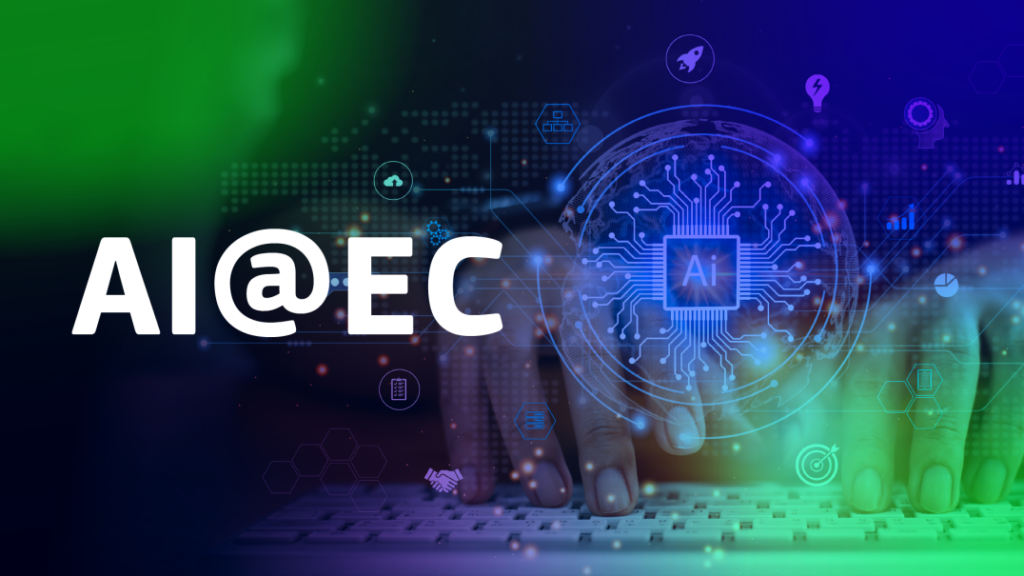
The full article is available on European Comission website!
HyperImage Project Kicks Off with Promising Innovations in Spectral Imaging Technology
In an electrifying start to the new year, the HyperImage project marked its official kick-off with a dynamic and forward-looking meeting, unveiling ambitious plans to revolutionize spectral imaging technology. The meeting was held on the 16th and 17th of January 2024 at Fraunhofer IWS in Dresden, Germany. The consortium is made of key stakeholders, industry, academia, RTO, and collaborators at the forefront of this groundbreaking initiative.
HyperImage aims to develop a universal, fast, modular, and cost-effective spectral image-sensing platform for both short- and long-range applications. The project envisions the integration of cutting-edge photonic components, including electrically tuneable liquid lenses, pixel shifters, fast steering mirrors, and configurable SMD-style IR micro-emitter arrays.
The incorporation of AI machine learning algorithms will elevate the capabilities of these cameras, translating spectral image data into functional product properties. This transformative feature is particularly significant for applications such as autonomous driving, where accurate decision-making is paramount.
Validation in Real-world Scenarios:
- The project outlined its strategic approach to validation, with a focus on four industrial use cases:
- Quality control in the manufacturing of high-power electronics.
- Fully automated vertical farming for monitoring crop growth of salads, herbs, and microgreens.
- Spectral image-based vision and navigation for off-road autonomous driving.
- Development of a lightweight, high-resolution hyperspectral vision system for unmanned geo-surveillance drones.
The meeting was charged with enthusiasm as team members, industry experts, and collaborators shared their insights and contributions. The collaborative spirit and dedication exhibited during the meeting set a positive tone for the journey ahead, as HyperImage endeavors to redefine the landscape of spectral imaging technology.
AMIRES’s role within the project is to support the management activities, besides, dissemination, communication, and exploitation.
Stay tuned for more updates as HyperImage.
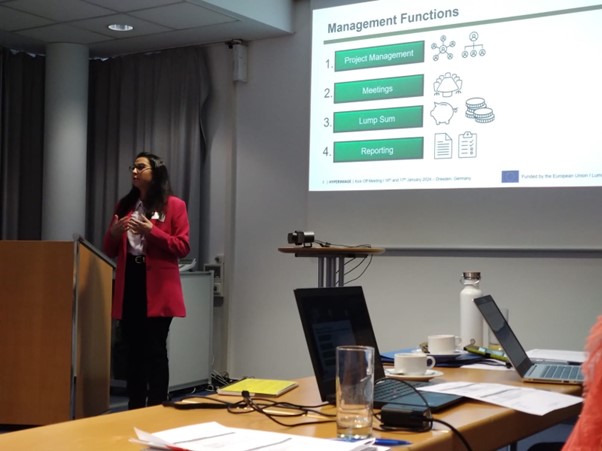
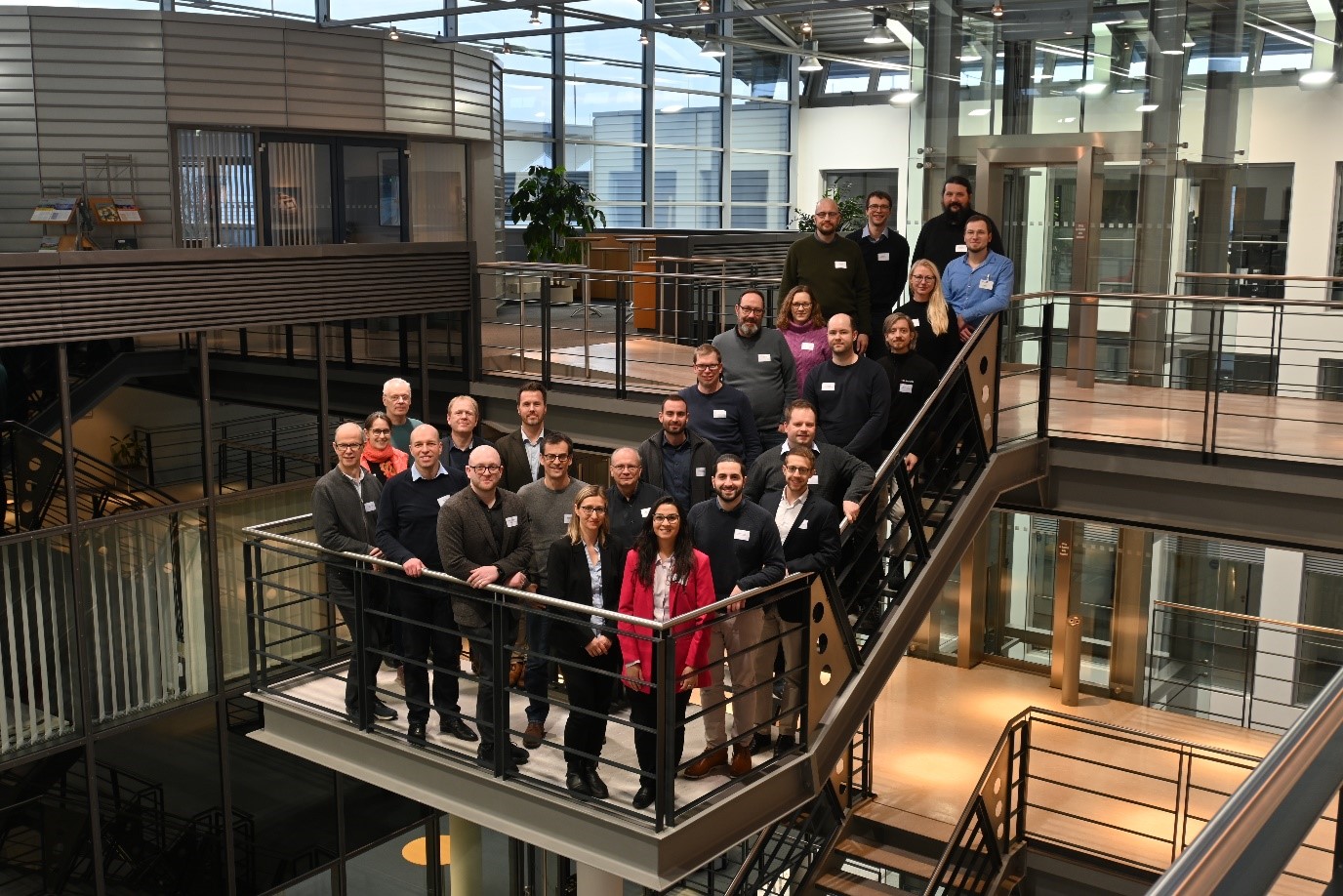
MEET OUR TEAM: Stefania Pavel
We are gladly welcoming our new Project Manager Stefania. She graduated from University of Bucharest in 2018 with a Bachelor’s in International Relations and European Studies, followed by the Erasmus Mundus Joint Master Degree in European Politics and Society with Charles University and Jagiellonian University in 2020. She gained a vast understanding of EU affairs and policy making while being an intern at the Communication Office of a Member of the European Parliament, Presidential Administration of Romania, and Ministry of Defence of the Czech Republic. Between 2020 and 2023 she worked as Network Manager with the European Development Agency, in Prague. Here she strengthened the international presence of the company by increasing project participation, establishing novel partnerships, and opening new business cases. At the same time, she was the Grant Writer for the Institute for Regional Development. Stefania has been developing proposals for Erasmus+; Visegrad Grants, European Social Fund+; Citizens, Equality, Rights and Values Programme (CERV); EEA-Norway Grants; Interreg; UNICEF; UNHCR; Biodiversa+; COST Action; and Horizon Europe. Stefania was also the lead administrator of ESF+ Employment and Social Innovation National Contact Point for the Czech Republic. As of April 2023, she has been an Expert Evaluator with the European Institute of Innovation and Technology, EIT Culture & Creativity.
In her free time, she enjoys: baking by sneaking vegetables into cakes, plating colourful cheeseboards (project manager throughout the week, cheese/board manager during the weekend), and painting.
In AMIRES, Stefania is involved in Horizon Europe SPINUS (Spin based quantum computer and simulator) and Qu-Test (Supporting open testing and experimentation for quantum technologies in Europe) projects.
Welcome on board Stefania, we wish you all the best luck!
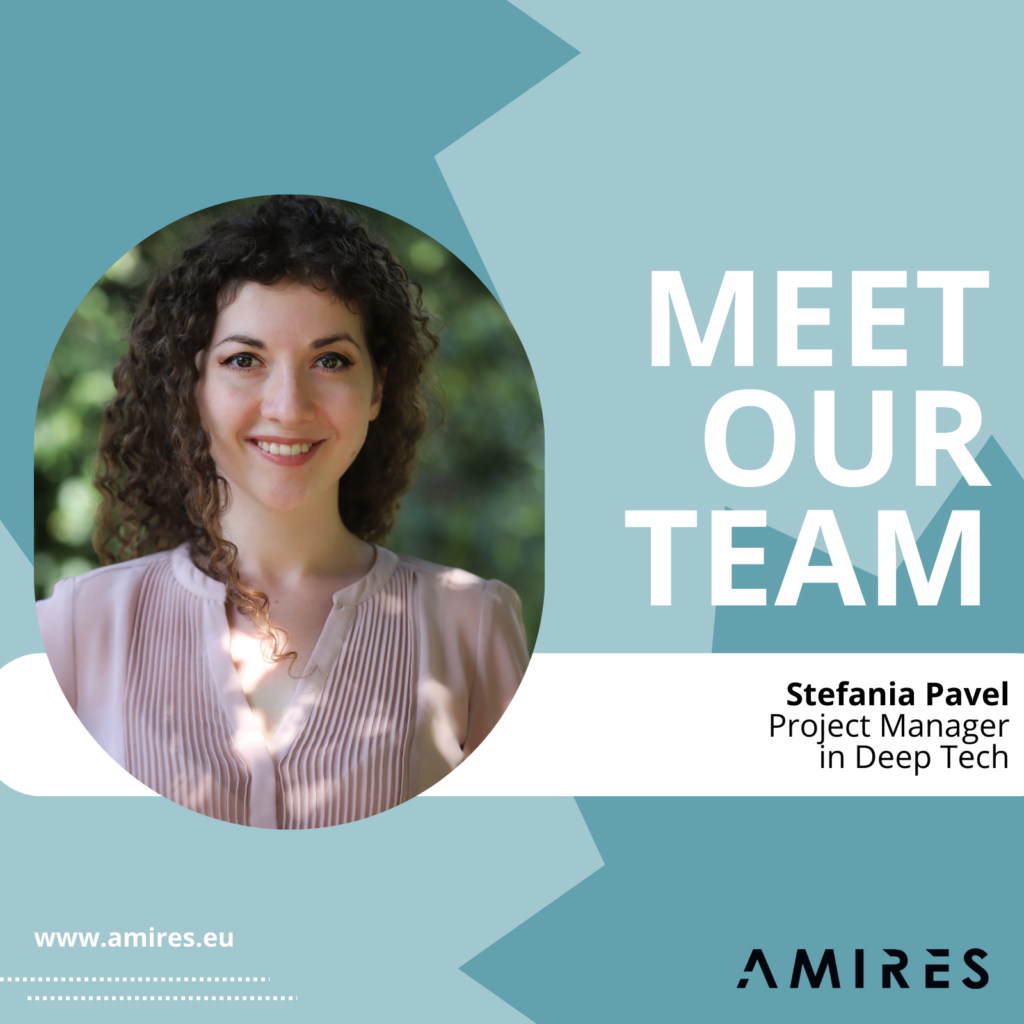
ESNA full website is now up
ESNA is an open ecosystem, established within FlexFunction2Sustain project, that provides access to innovative solutions, empowering the next generation of environmentally friendly plastic and paper products. The association offers customer and solution-focused advice to accelerate market penetration of novel products. Authorized Sales Representatives are ready to assist SMEs and by providing expert support through the innovation chain from an idea to a successful product. An online contact form is available on the website to send an inquiry or get in touch with the team if further questions remain.
Stay tuned for the latest news and keep up-to-date with details on dissemination activities.
Click at https://esna-assoc.eu/ and happy exploring!
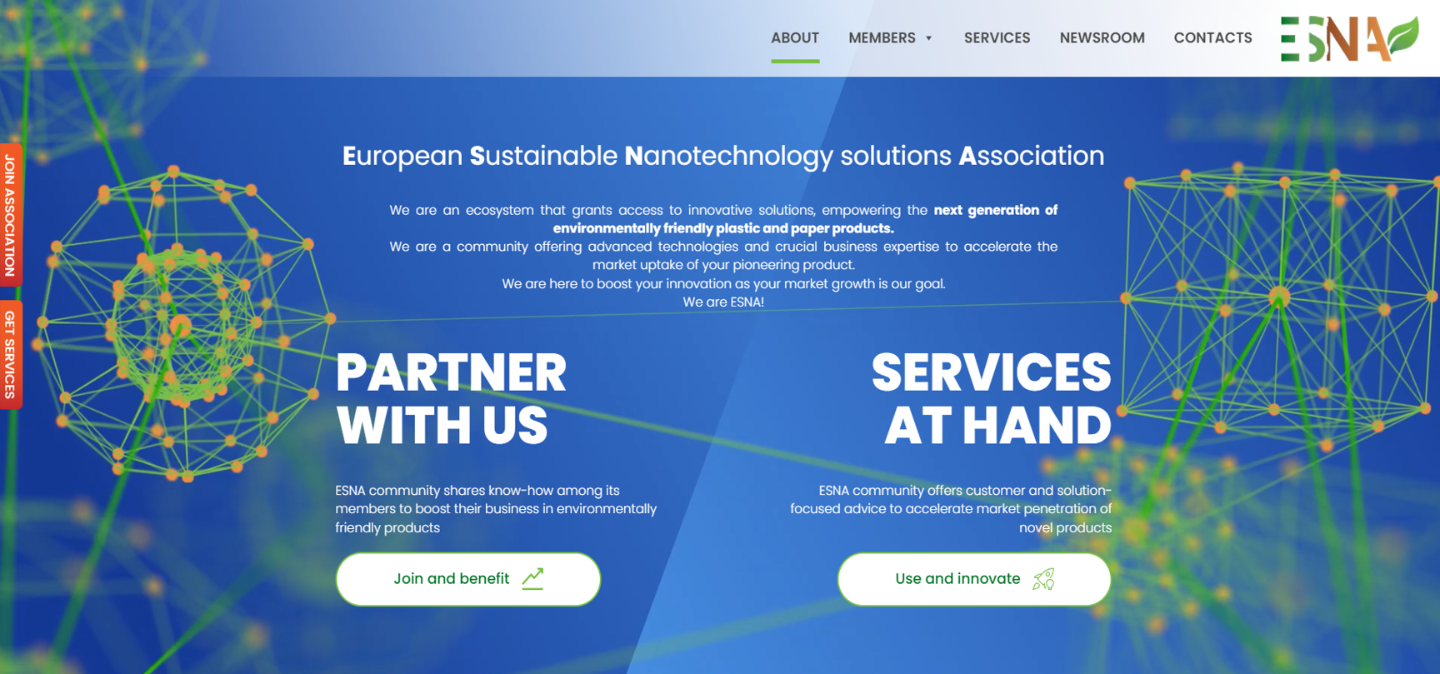 |
Publication on absorption chillers for negative cooling in SHIP systems
FRIENDSHIP is glad to present the newest paper about multi-effect and multi-stage NH3/H2O absorption chillers for negative cooling in SHIP systems, which is now published online in the AIP Conference Proceedings.
The paper, Numerical study on multi-effect and multi-stage NH3/H2O absorption chillers for negative cooling in SHIP systems, was written by CEA and it is based on the research work on innovative ejector chillers for cold production, done in the framework of FRIENDSHIP.
Indeed, FRIENDSHIP is investigating an innovative absorption chiller design that improves heat and mass transfers, thus performance, at decreased costs, as the needed components are standardized and available in the market. Hence, two variants are simulated for -20°C and -40°C cooling production and two-stage absorption cycles are also simulated for -40°C cooling production.
More specifically, the article presents a numerical comparison identifying the best solutions for the SHIP integration, giving an overview on the operating temperature ranges for each cycle.
Congratulations to the authors!
| |
Innovation in Healthcare: Insights from the Front Lines
In cardiac emergencies, every minute counts and fast and effective interventions are absolutely crucial to save the life of patients. New lifesaving technologies such as ECMO – a temporary support system for patients with severe cardiac or respiratory failure that acts as an external heart and lung – offer to revolutionize cardiac care. But to really make a difference the technologies need to be closely aligned with clinical needs and fit into the reality at the hospital.
To see some of these innovations in action and get a better understanding of the needs of the healthcare system with regards to novel technologies and solutions, AMIRES Health & Biotech Team recently visited the General Faculty Hospital in Prague (Všeobecná fakultní nemocnice v Praze; VFN). We were welcomed by Dr. Bělohlávek, experienced interventional cardiologist, intensivist and head of the Second Internal Medicine Department.
|
|
Our main takeaway: The collaboration between researchers, technology developers and clinicians is absolutely crucial to ensure effective uptake of the developed innovations and lead to improved patient outcomes. We’re excited that AMIRES is on the front lines of this intersection and look forward to strengthening this position even more in the future.
Current projects in the AMIRES Health and Biotech program include PANCAIM, Tumor-LN-oC, eCAP, ORGANTRANS and Medphab – with several more in the pipeline!
A big thanks for the VFN Team – We greatly appreciate the hospitality and the opportunity to witness the impact of healthcare innovation in a real life setting!
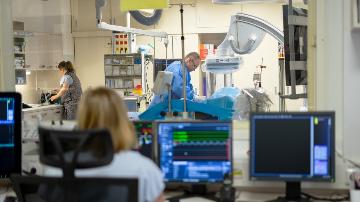 |
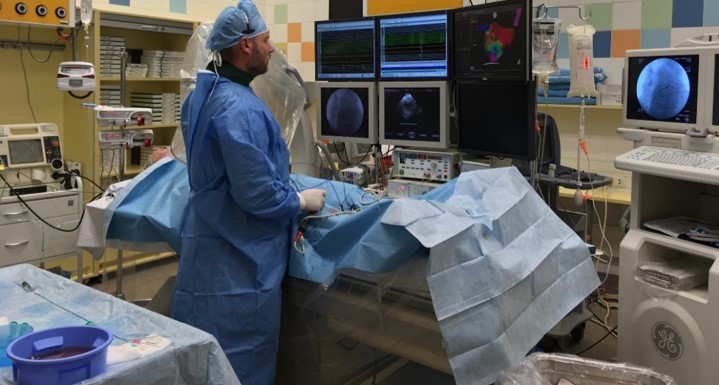 |
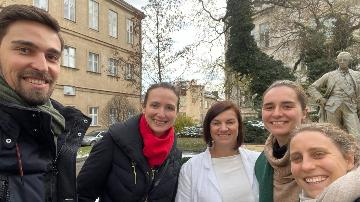 |
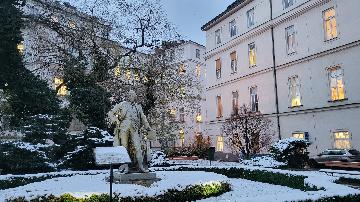 |
MEET OUR TEAM: Panagiotis Chatzis
We are happy to welcome to our team Panagiotis Chatzis who joined our team as a Project Manager in November 2023. He obtained his bachelor’s degree in Greece where he also served military service at the Public Affairs Office at NATO HQ. He pursued his passion for service by taking on various administrative roles in the Ministries of Foreign Affairs and Education. As he developed a thorough understanding of government policies and structures, he also experienced the impact of the deep Greek government-debt crisis that turned him towards the European Union by joining the European Politics and Society Programme, an international joint master’s degree composed of 4 semesters in 3 different European cities: Prague, Kraków, and Leiden. Having nurtured avid support for European Integration, he engaged in three EU Framework Programmes: Horizon Europe, Erasmus+ and CERV.
Before joining us, he was a Trainee at the Office of the Director at the European Institute of Innovation and Technology, where he acquired comprehensive knowledge about creating jobs and delivering sustainable and smart growth through research and innovation.
He does enjoy spending free time in various ways that enrich the body and mind. Swimming is one of his favorite sports, as it helps him relax and stay fit. Listening to podcasts is another hobby of Panagiotis, as in this way he learns new things and hear different perspectives on various topics.
In AMIRES, Panagiotis is involved in the Horizon Europe Projects ECOBALLIFE and NetZeroAICT.
We are glad to have Panagiotis in our team and we wish him best of luck!
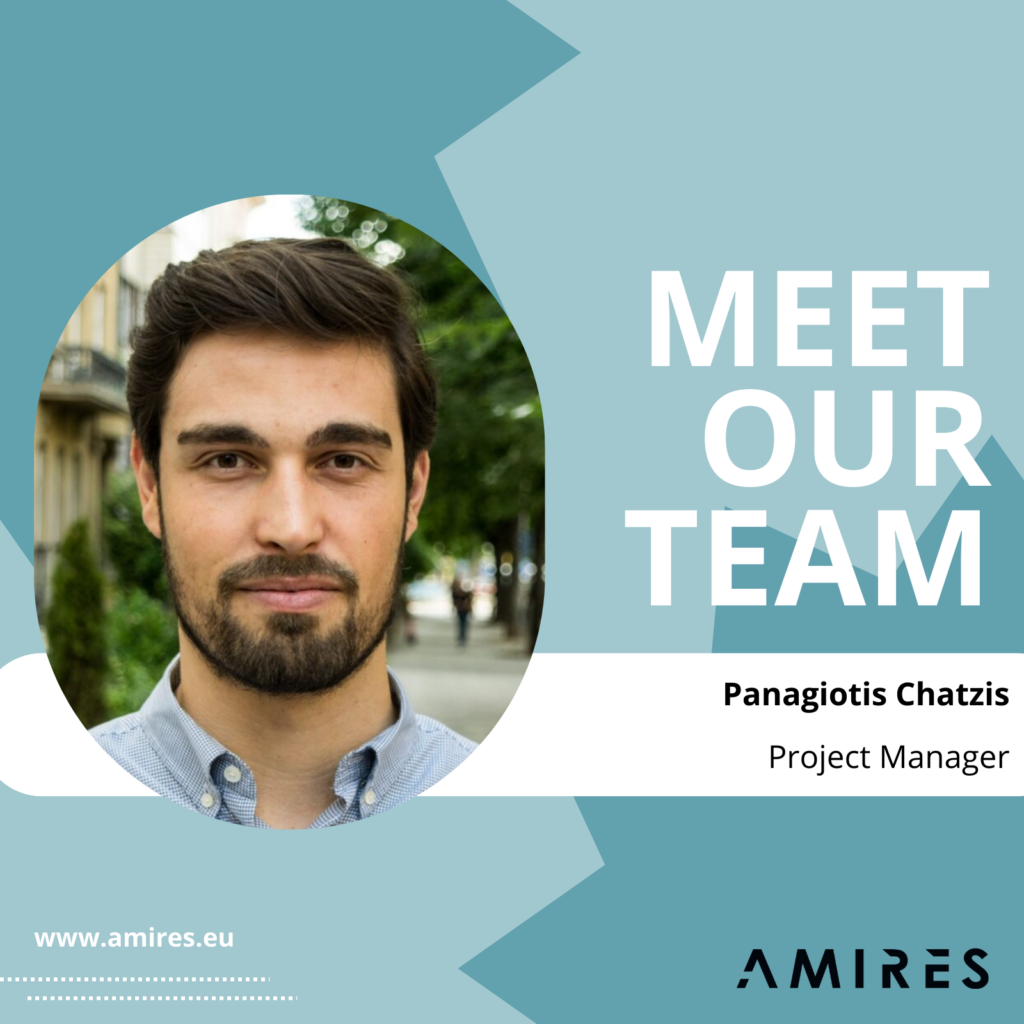
Canada to sign Horizon Europe association deal next year
Deal announced at EU-Canada summit opens door to wider transatlantic collaboration in research, energy, digital and other fields. Wanted now: ‘transformative discoveries’ by working together, EU president says.
After lengthy negotiations, the EU and Canada reached agreement for Canadian researchers to join Horizon Europe research programme from next year.
The deal was announced at an EU-Canada summit in St. John’s, Newfoundland 24 November as part of a package of expanded trade cooperation that includes research, energy, digital, aerospace and other fields.
Regarding research, the tone was almost triumphant. Canadian Prime Minister Justin Trudeau said: “Canada’s joining Horizon Europe, which is the greatest research and innovation mechanism in the world right now.” Ursula von der Leyen, European Commission president, was similarly ebullient at a press briefing, saying the deal will bring researchers from the two sides of the North Atlantic closer and she is already anticipating “the innovative breakthroughs and transformative discoveries that will emerge from our joint projects.”
Both leaders, however, were charry with details about the deal – apparently in part because administrative details have yet to be fully resolved. Von der Leyen said, “we expect the agreement will be signed soon, before mid next year. And once this is done, researchers in Canada will be able to receive funding from Horizon.” Later, however, EU officials told Science|Business they may put in place a “transitional arrangement” so the Canadian grant applications can start earlier in 2024 – though they still won’t have any money disbursed until the formal signing.
More information here!
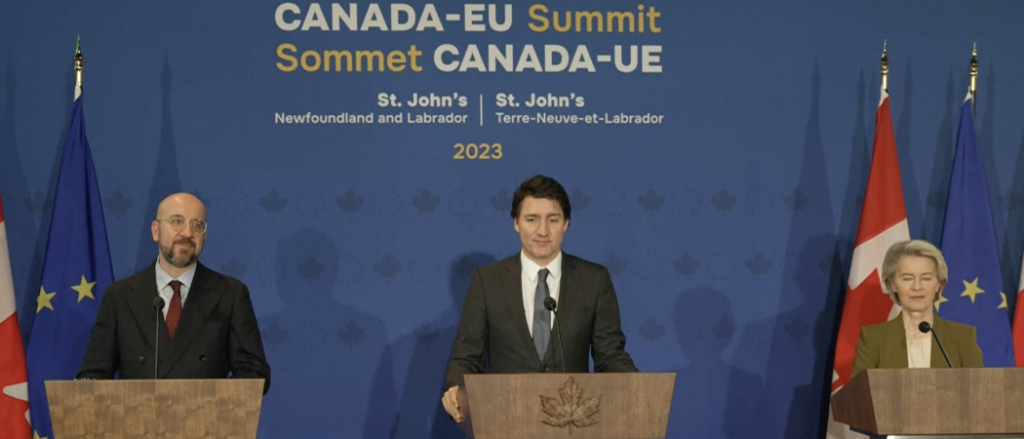
Latest updates regarding AMIRES on the news page!
From Microfluidics to Micro-Optics: Updates from the Tumor-LN-oC M30 Meeting
The H2020-funded Tumor-LN-oC project develops a sophisticated tumor-lymph node organ-on-chip platform which integrates several technologies ranging from a complex microfluidic system including of artificial cilia which mimics the natural lymph flow, to analytical instruments such as Mid-IR spectroscopy to a micro-optics module with automatic image analysis via deeplearning. The ultimate objective is to oberve, in real time, interactions between tumor and lymph node cells and thus achieve a better understanding of lung cancer metastasis through the lymph system.
The meeting was hosted by Alpes Lasers – an innovative SME developing and producing a wide variety of laser sources, covering a very broad range of the electromagnetic spectrum.
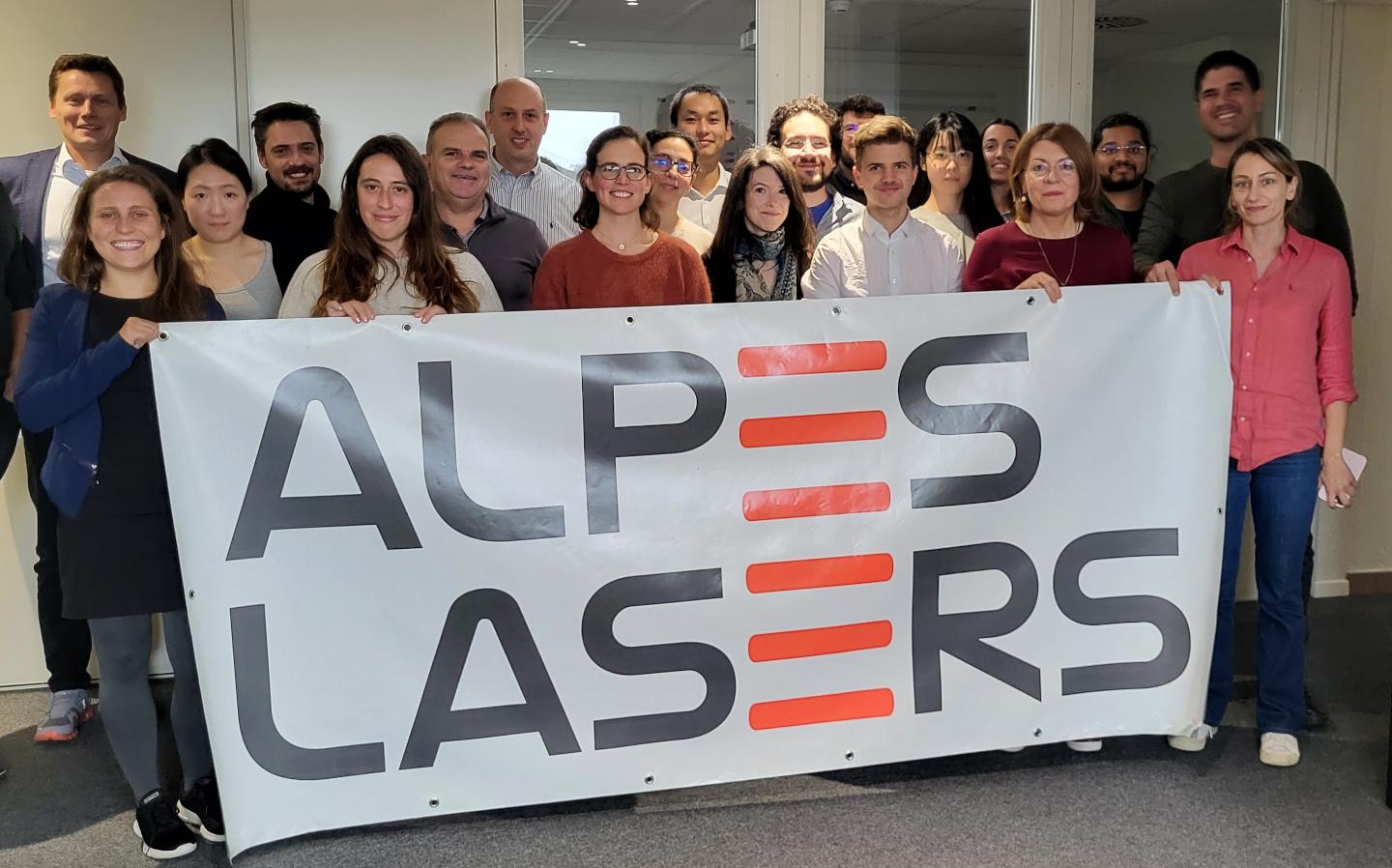 |
We presented our recent AMIRES activities in the management, dissemination and exploitation of the project and got a detailed status updates by other project partners on the development of the various technological modules which will soon be integrated into the first assembled prototype!
We thoroughtly enjoyed the common dinner and networking with our partners during formal sessions and coffee breaks and are proud of the progress and achievements after 2.5 years of hard work in the project – the first promising, tangible results of this research and innovation project are slowly emerging!
We discussed the next steps, priorities and for the next 6 months to meet all project milestones as planned. Major upcoming tasks will mostly center around molecular characterization of cells the chip and the modalities of the integration of the individual modules into the overall platform.
Visit the Tumor-LN-oC website to learn more about the project and stay tuned for more exciting results!
FRIENDSHIP M42 Meeting in Prague
On the agenda over the two days, the consortium gave an overview of the work performed in the running Work Packages and planned the next steps towards the finalization of the project. More specifically, the consortium started to think about the organization of the final event, when the final workshop and the site visit will take place, in Grenoble (France).
In addition, RINA organized a workshop on the exploitation strategy of each Key Exploitable Results (KER). Besides, partners had the opportunity to brainstorm on the risk analysis of selected results. All the collected output will be part of the TRL9 Roadmap, which will be a public document.
The event was the right occasion to host the last External Advisory Board (EAB) meeting. All the EAB members joined the meeting and gave very valuable insight into possible funding possibilities for a follow up project and into collaboration possibilities in the last phase of the project. The presence, the interest, the participation, and the contributions of the EAB member, Dr. Thomas Ammerl (BayFOR), were particularly appreciated and were beneficial for the consortium, which had an external point of view of the project.
The project is ready to enter the last phase. Do not miss our future posts!
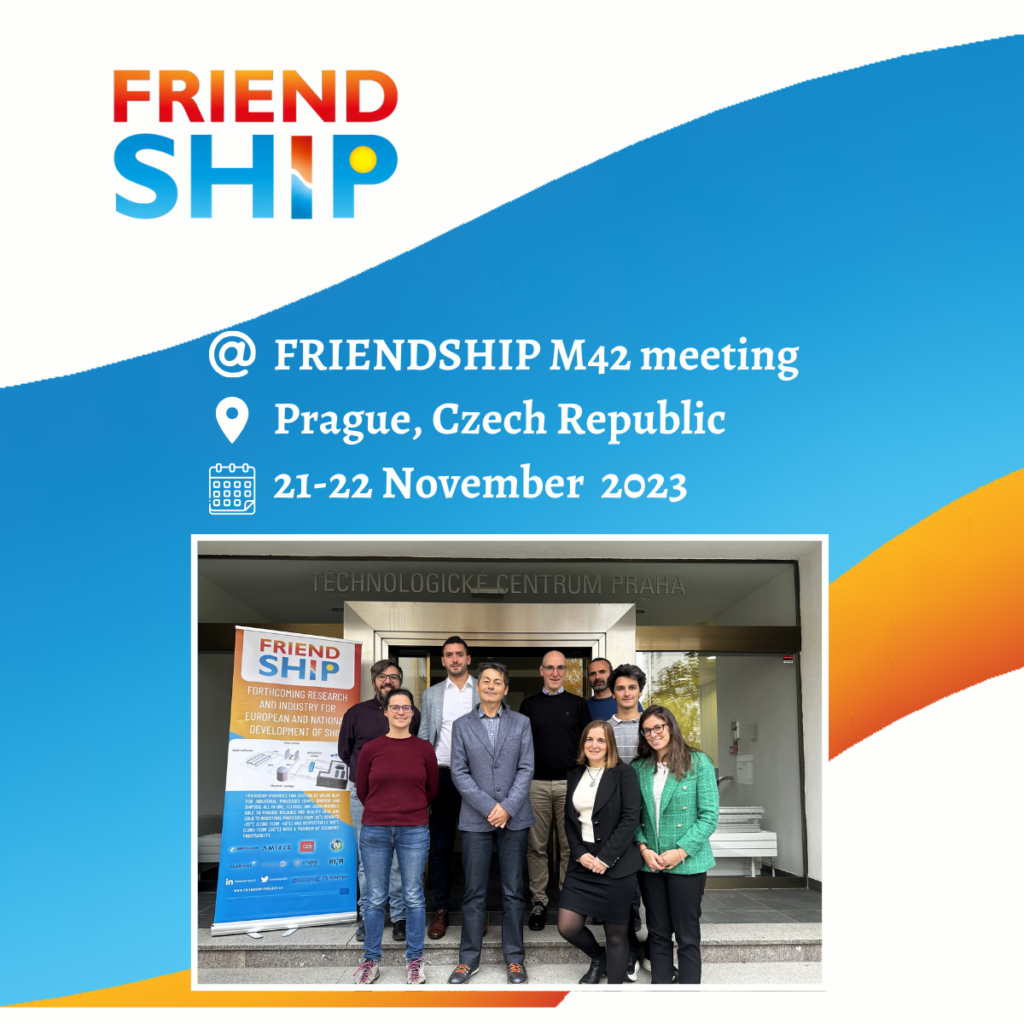
AMIRES and MedPhab in the hotspot of the global healthcare industry – MEDICA/COMPAMED 2023
AMIRES Health & Biotech team recently participated in the MEDICA – Leading International Trade Fair and COMPAMED trade fair and conference!
From 13th to 16th November 2023, 5300 exhibitors from almost 70 countries and more than 83 000 visitors from various sectors of the global healthcare industry gathered in Düsseldorf, Germany, at MEDICA and COMPAMED – the world’s leading trade fairs in the field of medical technology. Every year, these two events bring together stakeholders from medical technology: Developers, producers and manufacturers, service providers, suppliers, integrators, buyers and policy makers. The interactions during this event facilitate new networks, projects, ideas, and business partnerships benefiting the healthcare industry. Among them, AMIRES and our project partners from MedPhab pilot line project!
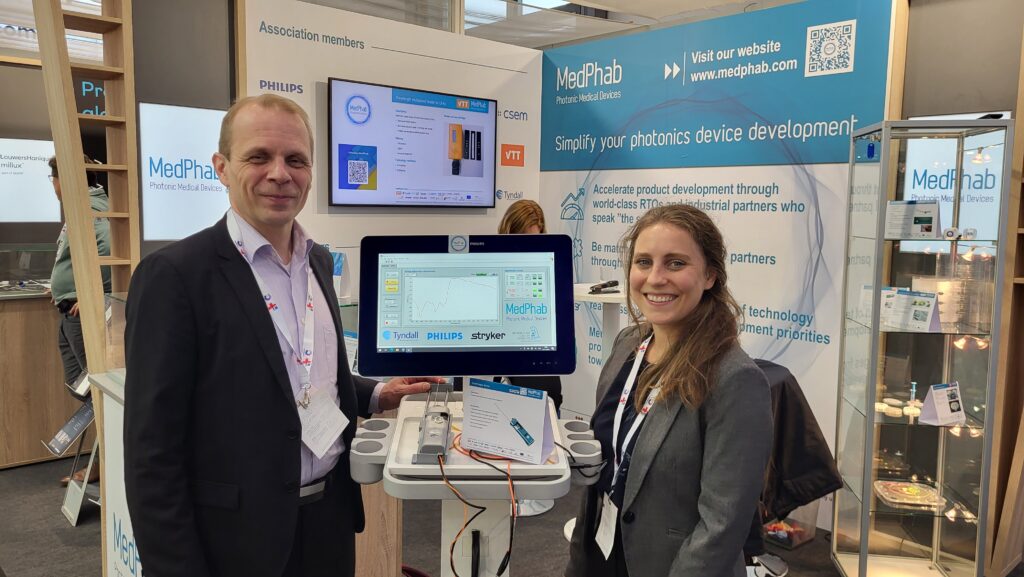
Our partners from MedPhab project introduced their pilot line offering for the manufacturing, testing, validation, and upscaling of new photonics technologies for medical diagnostics to interested visitors. Even beyond the funded project, the MedPhab pilot line enables accelerated product launch with reduced R&D costs. Visit the website to learn more!
Meanwhile, our colleague Kristin explored the trade fair floor in all 17 halls of Messe Düsseldorf, reconnecting with familiar faces and networking with other organisations and companies to grow our partner database for future Horizon projects. While attending the lectures and panel discussions and engaging in discussions with exhibitors, we are staying up to date on the latest trends and technologies shaping the future of healthcare, such as artificial intelligence, robotics, and innovative diagnostics.
AMIRES is at the heart of these topics – With our large partner network consisting of research organisations, universities, and companies as technology and knowledge providers, we are at the source of innovation. On the other hand, we are in close contact with health economics and regulatory experts, as well as hospitals and clinicians as end users of the new technologies. We believe that building bridges and connecting organisations throughout the healthcare ecosystem will contribute to accelerating the introduction of innovative products to the market and revolutionizing healthcare. This position allows to leverage our extensive knowledge and expertise in European framework projects that impact healthcare.
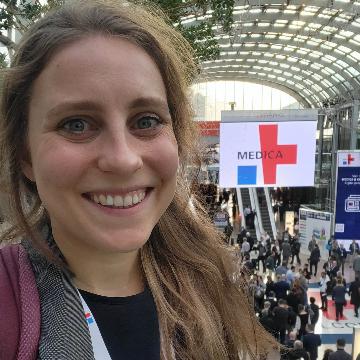 |
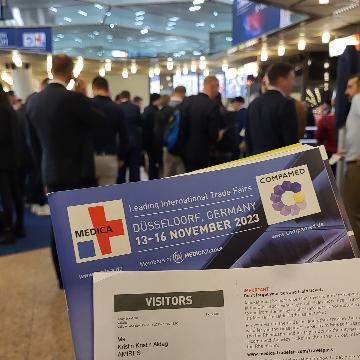 |
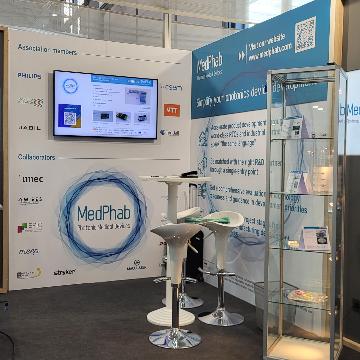 |
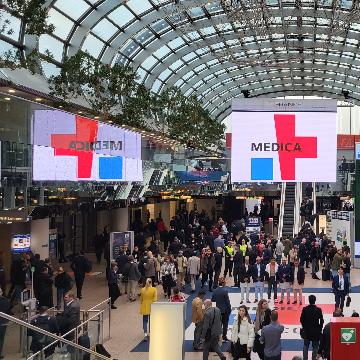 |
Check out some the current research and innovation projects in Health and Biotech domain, which AMIRES is involved in:
- eCAP – digital solutions for the worldwide gatroesophageal reflux epidemic
- Organtrans – Controlled Organoids transplantation as enabler for regenerative medicine translation
- PANCAIM – Pancreatic cancer AI for genomics and personalized Medicine
- Tumor-LN-oC – Tumor and Lymph Node on Chip for cancer studies
- MedPhab – Photonics Solutions at Pilot
Scale for Accelerated Medical Device Development
The European Innovation Council Fund has approved €1 billion in deep tech venture investments in one year
The Commission announced that nearly €1 billion of investments in deep tech companies have been approved by the European Innovation Council (EIC) Fund since the Fund started its operations in September 2022. The EIC Fund is the venture investment arm of the European Innovation Council, which was launched under Horizon Europe to support breakthrough technologies and innovations. In just over one year, 159 start-ups and SMEs, all selected under the EIC Accelerator programme, have had their investments approved. By reaching this €1 billion milestone, the EIC consolidates its position as the investor of choice for European deep tech companies.
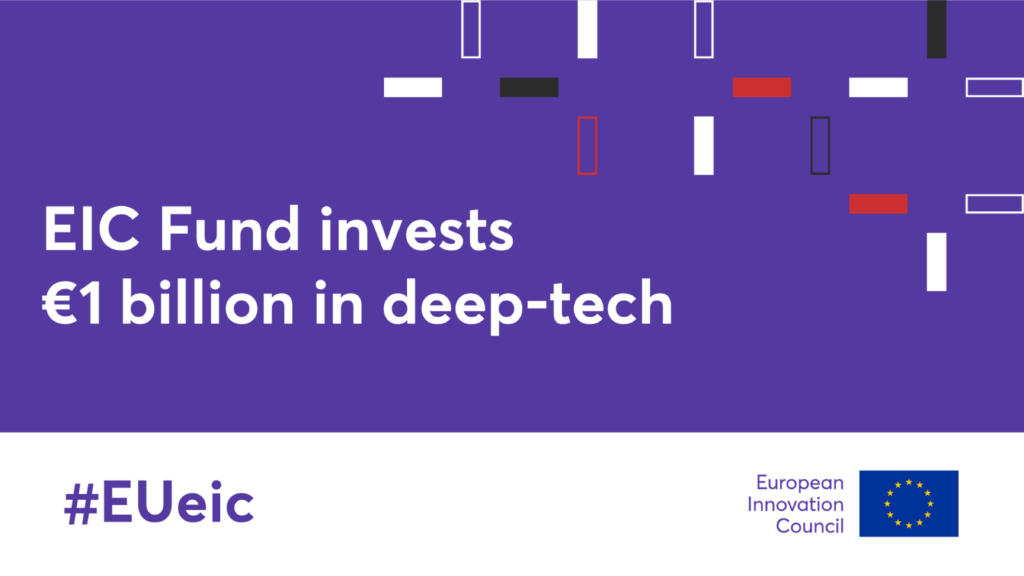
To know more about AMIRES news, click here!
CONDOR: THREE YEARS COMPLETED!
The meeting was opened by Prof. Paola Ceroni, Department of Chemistry “Giacomo Ciamician” at the University of Bologna and also coordinator of CONDOR project, who provided a comprehensive review of the research work completed to date. Over the past months, the efforts were concentrated on assembling and testing the flow photoelectrochemical cell (Compartment 1), which was conducted by ENGIE in collaboration with the University of Ferrara. Simultaneously, the Utrecht University and HYGEAR focused on Compartment 2 by designing and manufacturing the (photo)chemical reactor for conversion of syngas into fuels. Overall, the project has progressed in alignment with the work plan, with no significant deviations. The partners discussed the next steps and remaining activities for the last year of the project, which are related to the assembling, integration and testing of the CONDOR system.
The meeting also welcomed members of the External Advisory Board (EAB), who tracked the progress and provided valuable feedback and recommendations for the project’s future work.
As we look ahead to the final year of the project, there is undoubtedly lots of work still to be done. However, we are happy to slowly but steadily be moving towards. Thanks to the hard-working consortium partners and all EAB members for their contributions to the productive meeting and fruitful collaboration in this challenging project!
Gain additional insights on CONDOR by visiting its website https://condor-h2020.eu/. Stay informed by keeping track of the project’s updates on social media (follow @CONDOR_EU on LinkedIn and Twitter).
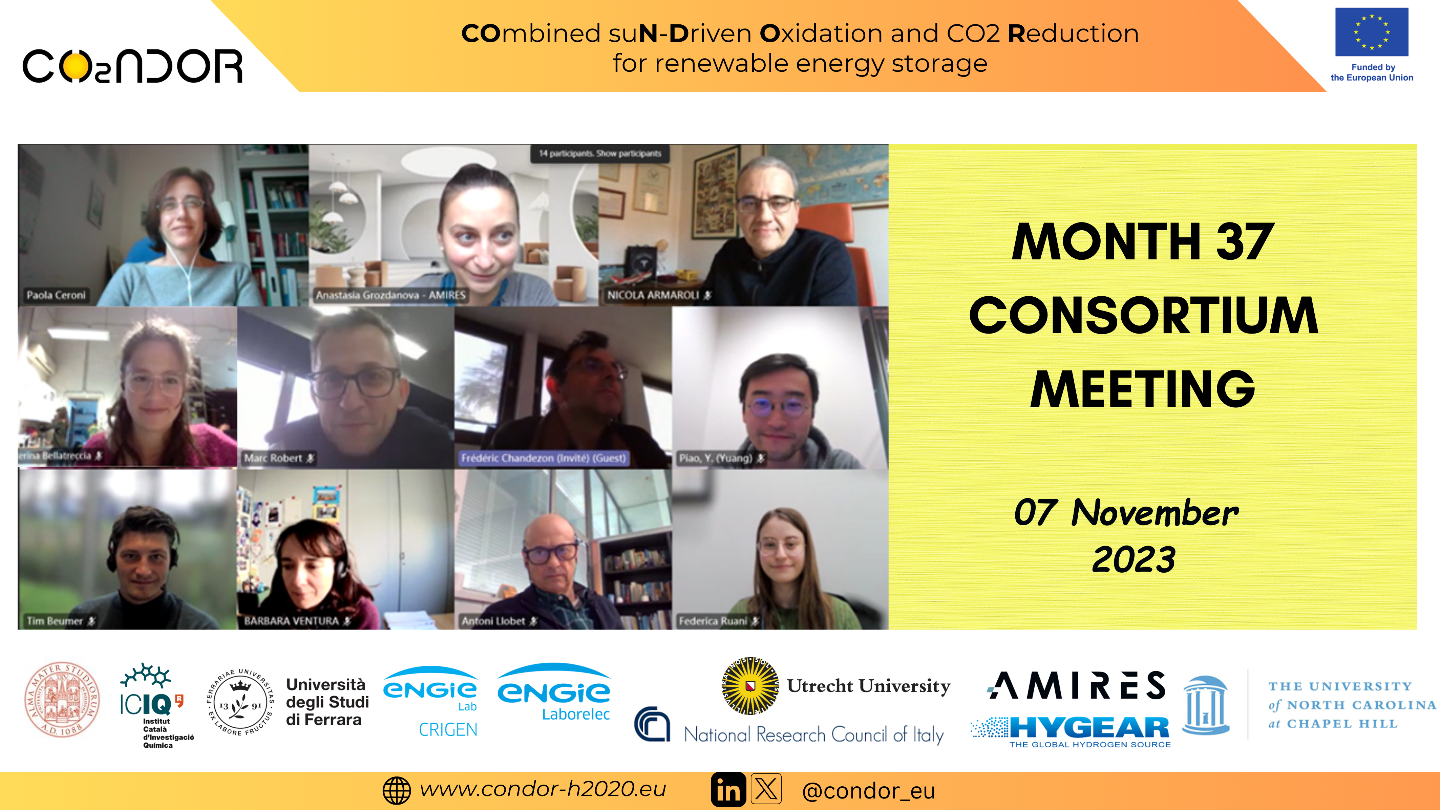 |
FRIENDSHIP at the symposium “Colloque du Pôle Cristal” 2023
Organized every year by the Pole Cristal, with the support of the International Institute of Refrigeration and of the Carnot Institute, the meeting brought together more than 100 players from the world of refrigeration and climate engineering. The common thread of the 2023 edition was refrigeration for decarbonization.
During the symposium, in a session named: “European Project FRIENDSHIP: development of a solar thermal solution to meet the demand for industrial heat and cold”, Anouk Muller and Hai-trieu Phan from CEA presented the FRIENDSHIP Project. During the presentation, special attention was paid to the absorption chiller developed in the framework of FRIENDSHIP and several questions were arisen by the public.
Big thanks to our CEA partners who represented FRIENDSHIP at the symposium “Colloque du Pôle Cristal!
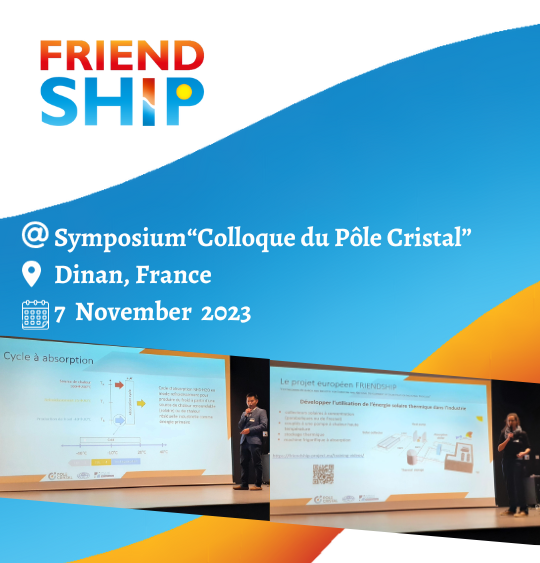 |
Highlights – RoLA-FLEX final webinar!
On the 27th of October, in the scope of the RoLA-FLEX project, the online webinar on Next-Generation of Flexible and Wearable Electronics was organised.
Moderated by AMIRES, it was a successful morning (the webinar took place from 10 AM to 1 PM CET), with very fruitful discussions on the future of these next-gen technologies.
The real added value of this webinar has been the presence of great speaking guests, who shared their experience and knowledge gained by many years of working in these fields and by the work developed in the RoLA-FLEX project. In the pictures below you can find the agenda with the presentation titles and a picture with all our guests.
For more information here – Visit the official project website!
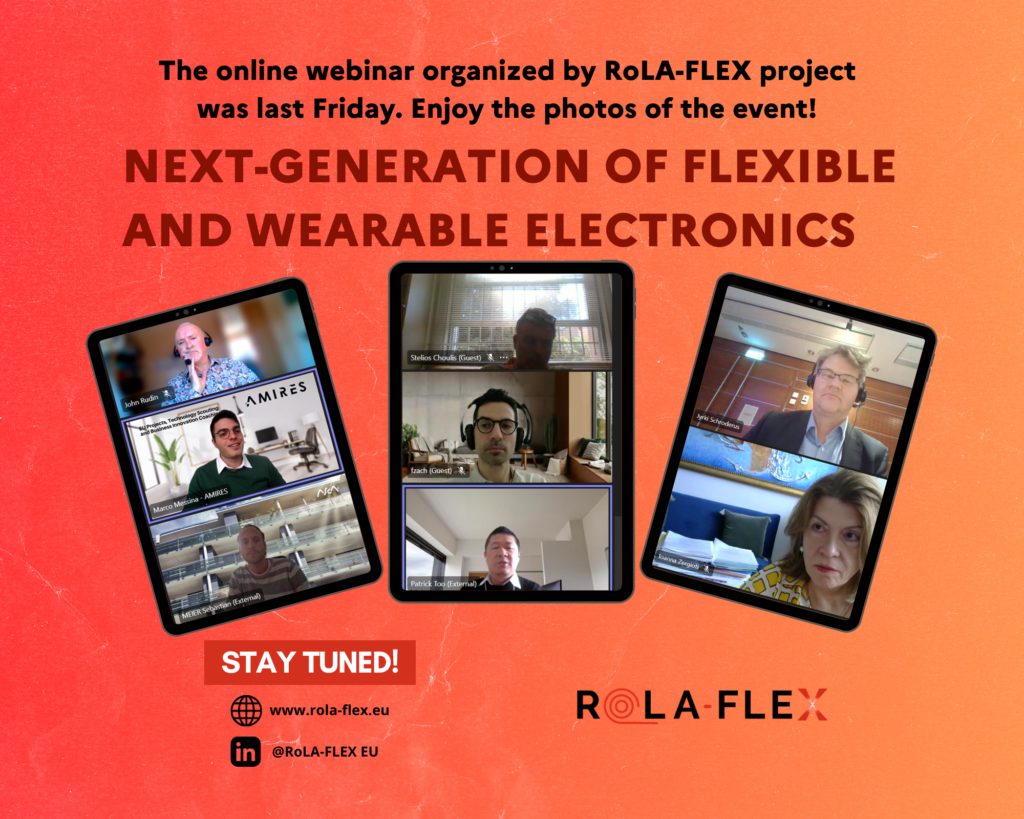
Keep posted regarding projects where AMIRES is involved in our news section :)
OITBs workshop sparks inspiration and collaboration
Under the slogan “It all begins with a conversation”, the workshop gathered representatives from various ecosystems to discuss crucial issues in the OITB projects’ implementation. In order to accommodate valuable discussions, the agenda was structured in three sessions covering: experiences from first generation OITBs, best practice of collaboration between OITBs, round table for addressing specific challenges. The event was also aimed at exploring future actions that can strengthen the community and ensure the long-term viability of the ecosystem.
A condensed overview of the presentations and discussions conducted during the workshop is now available and can be found here. The key moments are captured in a short video – here.
FlexFunction2Sustain Progress Meeting in Braga
Before the meeting start, the Board of Directors of ESNA (European Sustainable Nanotechnology solutions Association) took time to discuss the interaction with a Single Entry Point company that will commercialise the results created in the framework of the FlexFunction2Sustian Open innovation Test Bed as well as to identify the most suitable events where the association can be presented.
Besides numerous important discussions, the two days in Braga showed that we have been able to announce great progress with the project in the past months, including the results of the Use Cases. The hard work of our industrial partners came to a successful end, and they took the opportunity to present all their results in a nutshell. The final innovative prototypes of novel, eco-friendly plastic and paper products which were prepared within FlexFunction2Sustian project included: optical features on biodegradable film (sustainable biodegradable optical film for security and design – Hueck Folien), marine biodegradable shampoo sachets (Procter & Gamble), membrane based syringe filters for diagnostics and water filter applications (i3Membrane), Dashboard component with touch functionality (Centro Ricerche Fiat), fully recyclable drink pouches (Capri-Sun), high-barrier paper solution for food packaging (SONAE MC). The first day was rounded up with a lab tour at INL, which allowed the partners to explore their cutting-edge experimental research facilities.
The second day was focused on the project finalisation and discussion on the project’s timeframe. Furthermore, the partners dived into the details of the pilot case selected from the Open Call by checking where we stand with regard to their implementation. The operations of the Single Entry Point and investor relations were also topic of discussions. At this final stage, we are now strongly focused on the dissemination and communication activities, as well as in the development and promotion of the OITB pathway.
A huge Thank You goes to our partners from INL, the main force behind organising the Consortium Meeting and warm hospitality in Braga, as well as to all participants onsite for their contribution and support!
Discover more about FlexFunction2Sustain project and its main advancements HERE. Keep up to date by following ESNA (@ESNA_EU) on the social media channels LinkedIn, X and YouTube.
|
|
Revolutionizing Organ Transplants: THE ORGANTRANS
- 6 countries
- 8 Partners
- 42 months of intensive work
- 62 key deliverables
- 6720 working hours
This is ORGANTRANS: Controlled Organoids transplantation as enabler for regenerative medicine translation.
Within the realms of the EU-funded ORGANTRANS project, experts have developed an alternative that can change the landscape of organ transplantation as we know it. This pioneering method harnesses the power of bioengineering, 3D bioprinting and stem cells to craft new liver tissue within laboratory conditions.
It is known, that liver diseases account for 1 million deaths worldwide every year. While liver transplantation is the most effective way to restore normal functions for various diseases acute Liver failure, inherited metabolic disease and chronic liver failure, less than 30 % of global transplantation needs are currently met.
The ORGANTRANS project potentially offers a lifeline to those in dire need. It covered the entire development cycle from cell source to tissue engineering. This innovative process revolves around utilizing a patient’s own healthy cells to cultivate new liver tissue in controlled laboratory settings The building blocks such as the spheroid sorting platform, bioink, 3D bioprinting, and the maturation platform were meticulously synchronized and integrated into one 3D liver tissue bioprinting platform, paving the way for the development of a functional liver construct.
Moreover, the ORGANTRANS project’s impact is not confined to liver transplantation alone, it has opened the door to innovative technologies that have the potential to revolutionize other organ systems and tissues within the field of regenerative medicine.
Watch a short video about the ORGANTRANS project and the incredible innovations achieved within this groundbreaking initiative.
Follow the project on organtrans.eu
Know more about the latest updates regarding AMIRES projects here!
eCAP meeting in Prague sets the scene for preclinical and clinical studies for innovative diagnostics of digestive disease
On 11-12 October, eCAP consortium partners were welcomed by ABIMI in Prague for a biannual project progress meeting. eCAP project is an Innovation Action from our health portfolio, developing a smart capsule with multiple sensors and integrated e-health platform for detecting biochemical and physiologic events associated with gastrointestinal disorders.
At month 18 of the 4-year project, a lot has been achieved since the consortium last met. To name a few:
- The battery prototype developed by Integer is ready for eCAP capsule.
- Tyndall National Institute and the Imagination Factory are finalising mechanical work in preparation of animal testing.
- First iterations of the e-health platform have been developed by RDS.
- Clinical study protocol has been drawn up by IHU.
- Thorough training on regulatory matters has been conducted by EnteraSense and Betthera to maximise patient safety and accelerate eventual marketing approval process for the novel medical device.
The meeting was dedicated to working out a detailed plan for the major milestones upcoming in the project: animal testing, manufacturing the first batch of eCAP1 capsule and launching the first-in-human clinical trials in France in 2024. In addition, eCAP will undergo its first project review in January 2024, a task which ABIMI is happy to support the consortium with.
While the agenda was packed with important discussions, the partners found some time to enjoy the beauty of Prague and catch up informally. Nothing beats meeting in person – we were glad to have you!
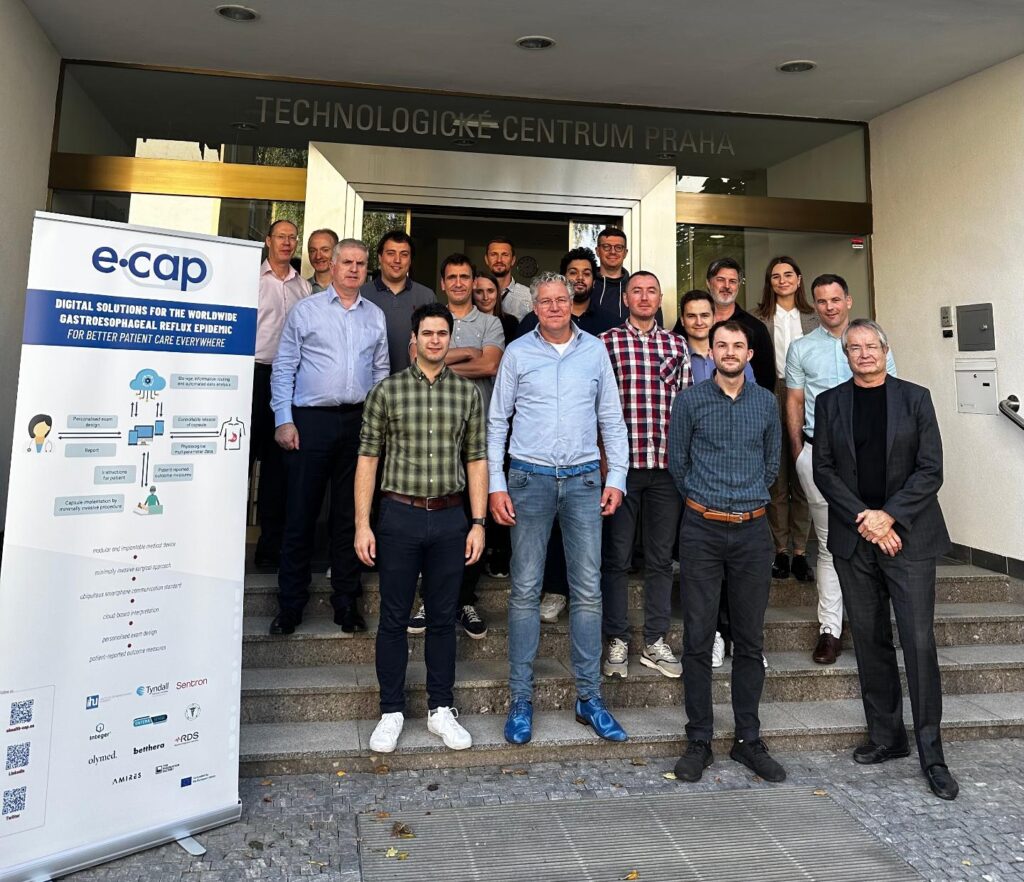
MEET OUR TEAM: MARTINA NEŠVEROVÁ
We are very pleased to introduce our Programme Manager Martina, Martina even though she was on the parental leave she was actively contributing to the projects and as well as to the proposal writing. From September Martina is back on full time and we are happy to welcome her back!
Martina leads the Health and Biotechnology programme, she studied the University of Economics in Prague, Faculty of International Relations, major: International Trade in 2009 and her master’s degree at Touro College in New York, Graduate School of Business, major: International Finance in 2011. Martina has been developing her expertise with grant preparation and management since 2010. In the capacity of the Executive Assistant to the Dean at Touro College’s Graduate School of Education she, among other responsibilities, participated in preparation and management of two grants funded by the US Department of Education. As the Manager of International Projects and, subsequently, Member of the Board of Directors at AGEL Research a.s. she coordinated involvement of the AGEL Healthcare Group entities in international research consortia projects submitted for funding into Horizon 2020 competition. Martina also served as Director of Program Management and Chief Liaison for EU at IMPACT Leadership 21, a New York based global platform providing leadership solutions that drive change toward inclusive and sustainable economies. She was a representative to the United Nations.
Martina spends her free time with her family (a husband, a daughter and two stepchildren), taking trips and visiting larger family members and friends who are spread across the Czech Republic. Being raised on a farm in a small village, Martina maintains a micro garden nearby her Prague apartment and enjoys spending as much time outside of civilization as possible.
About her work she says: “I am enthusiastic to support the master minds of European research in shaping their break-through ideas into projects and bringing impacts for European patients and health systems. I also very much appreciate the friendly and cheerful atmosphere at AMIRES, and the company unlimited support to one’s development.”
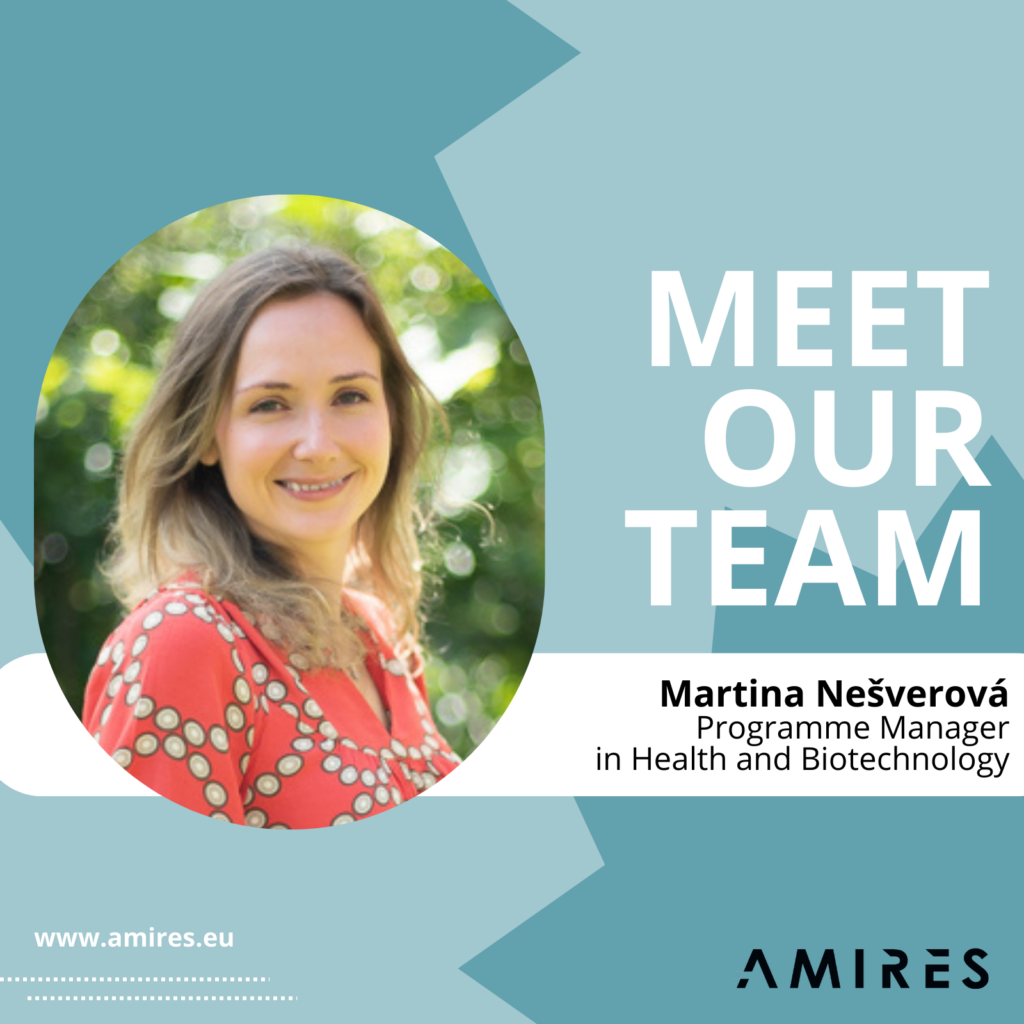
Next-2Digits project kicked off in October!
We are happy to welcome to our portfolio a new Horizon Europe project: Next-2Digits – The next generation of sensors and imagers enabled by 2D materials digital integration.
On 17th October 2023, our colleagues Roman and Marco travelled to Athens, Greece, to kick off the Horizon Europe project Next-2Digits, coordinated by the National Technical University of Athens.
With a consortium of 11 partners from 8 different countries, Next-2Digits aims to tackle the challenges associated with Photonic Integrated Circuits (PICs), Optoelectronic Integrated Circuits (OEICs) and 2D materials.
Next-2Digits benefits from the presence of well-reputed academic, research and industrial teams, whose areas of work span from photonics, material science, application-based integration technologies and validation.
The proposed technology to integrate graphene into PICs, being one-step and free of chemical processing, will have significant advantages in terms of cost, material and energy saving, and reduced resulting waste.
Next-2Digits envisions to develop the first hybrid Graphene-based photodetectors (PDs) and modulators (MDs) which will be integrated into three device demonstrators:
1) A miniaturized LiDAR; for Unmanned Aerial Vehicle (UAV).
2) PIC greenhouse gas sensor; which will be installed in the premises of a biogas production company
3) An on-chip polarization diversity receiver (PDR); which will be used for biomedical optical coherence tomography (OCT) imaging in a cardiovascular application
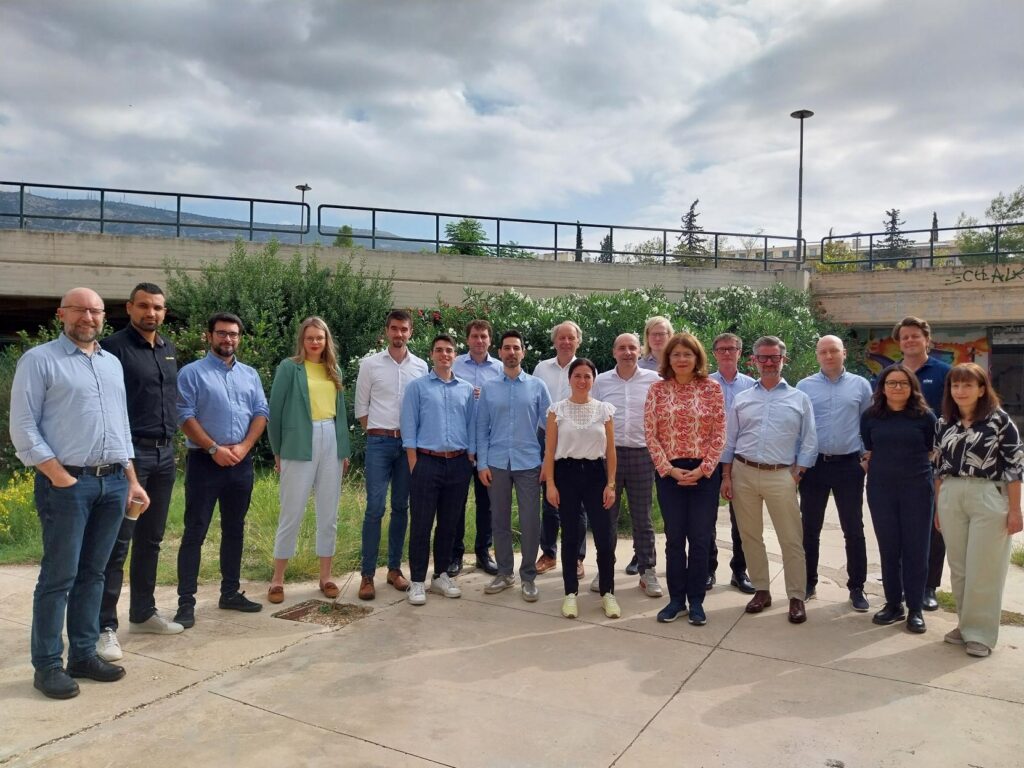
Want to know more about the project and its partners? Visit Next-2Digits website!
We are looking forward to this collaboration! Follow the project also on LinkedIn and Twitter to receive all the latest updates!
Visit AMIRES website if you are interested in more projects!
ECOBALLIFE started last September in San Sebastian!
On the 13th of September, ECOBALLIFE kick-off meeting was celebrated in San Sebastian. The event was organized and hosted by Tecnalia.
It is a new adventure for AMIRES – our first ever participation in an European Defence Fund.
We are glad to welcome in our AMI portfolio the ECOBALLIFE project – Research in Eco-Designed Ballistic Systems for Durable Lightweight Protections Against Current and New Threats in Platform and Personal Applications – which will identify, create and improve knowledge, new materials and technologies to ensure a high level of protection against a wide range of threats, reducing the risk of injury to soldiers.
Project partners under the leadership of Tecnalia met in San Sebastian to discuss first steps on how to reach the project objectives of finding new material concepts and technologies to create proof-of concepts of new personal and military platform protection solutions that can protect against new threats.
In the picture below you can see the participants who were present during the kick-off meeting in San Sebastian.
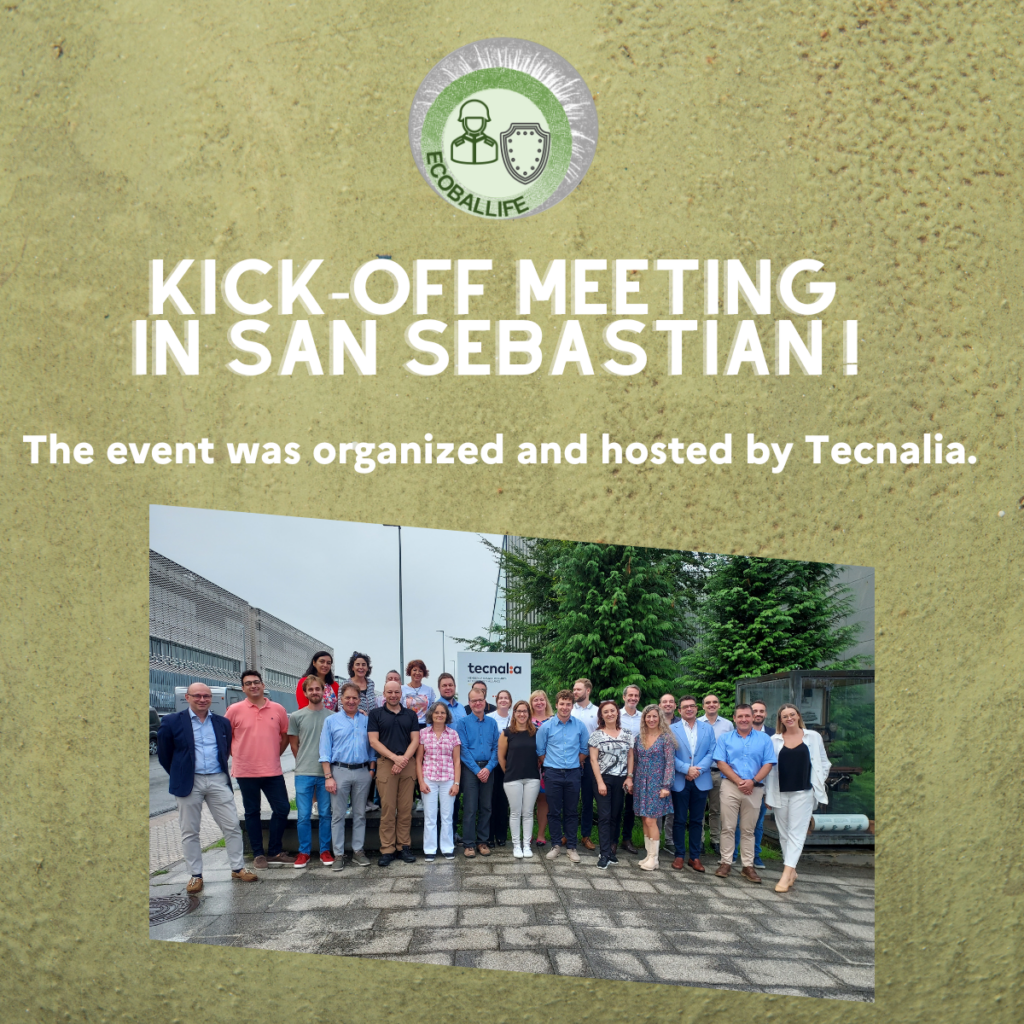
Latest updates regarding AMIRES projects here!
AMIRES will be present at the European Quantum Technologies 2023 in Hannover, Germany
On Wednesday, prepare for a feast of knowledge during the Plenary Session. We’ll be diving deep into “Shaping Europe’s Digital Future: Chips Act and Pilot Lines” and “QT User Take-up: Success Stories and Infrastructure Access.” Mika Prunila from VTT, along with some other incredible speakers, will be the guides.
And on Thursday at the Parallel Sessions, “Scientific Advances Across the Quantum Domains.” The first track will be about “Deployment of Quantum Technology: Pilot Lines, Test & Measurements, and Standardization Partners.”. QU-Test coordinator and partners will be there to share groundbreaking insights.
For fresh updates and in-depth information, we invite you to follow our project page on LinkedIn and Website.
Stay tuned to discover the outcomes of this event as we anticipate the exciting developments that will unfold.
We are eagerly looking forward to this remarkable gathering, and we can’t wait to engage with you at the forefront of quantum technology.
PANCAIM organises PANORAMA Study: Pancreatic Cancer Diagnosis – Radiologists Meet AI!
PANORAMA: Pancreatic Cancer Diagnosis – Radiologists Meet AI!
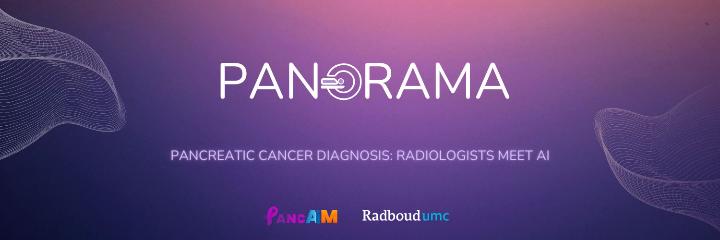 |
PANORAMA consists of two sub-studies:
- An AI study where an annotated dataset representing clinical reality will be used by global AI development teams to develop AI models. Trained algorithms will be submitted to the GrandChallenge platform for evaluation. Submitted algorithms will be ranked based on their performance on a hidden testing cohort of 400 unseen scans.
- A reader study which will include around 400 cases from multiple institutions that will be read by a panel of 40+ international readers with varying levels of expertise.
Ultimately, PANORAMA aims to benchmark state-of-the-art AI algorithms developed in the grand challenge, against abdominal radiologists participating in the reader study to evaluate the clinical viability of modern pancreas-AI solutions at PDAC detection and diagnosis in CECT.
To learn more, check out the article on the PANCAIM website!
If you are an abdominal radiologists handling contrast CT scans in your routine clinical practice and interested to join the PANORAMA reader study, please sign up using this form and be part of this journey to push the boundaries of early pancreatic cancer detection!
WE ARE HIRING!
“Quantum Immortality…..The Joke That Never Dies”
Technologies that rely on quantum phenomena are all around us. If you would like to be a part of the Horizon Europe Quantum projects do not hesitate and BECOME ONE OF US!
We are friendly multicultural company with lovely offices (full of coffee and cookies) based in Prague 6. We cannot wait to welcome YOU on board, we can promise that you will meet new people, you will travel and you will be given space to learn and grown.
If you would like to know more about the position, read HERE.
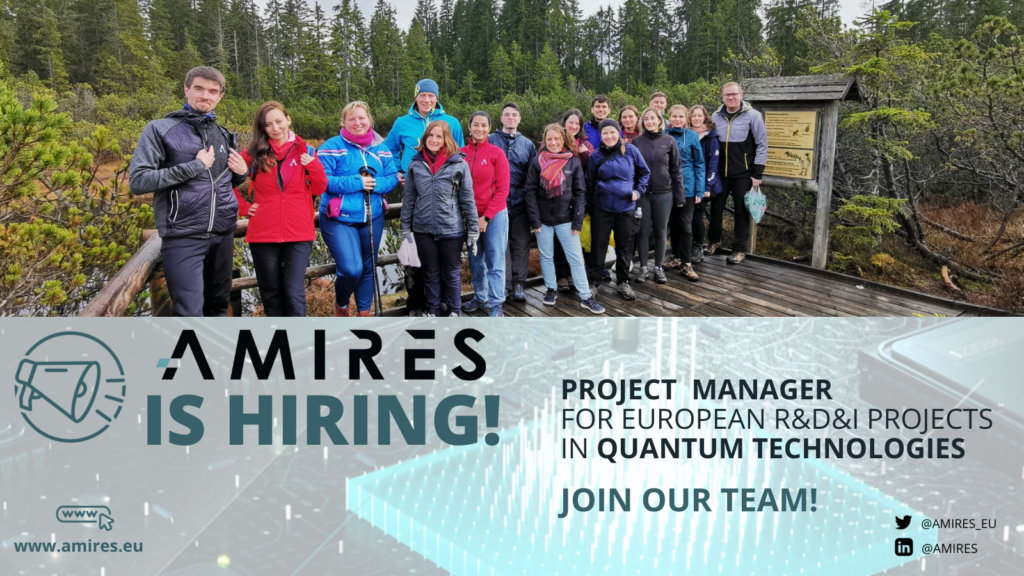
Relive the Highlights of Switch2Save final workshop!
From the 20th of September to the 21st of September, Switch2Save celebrated the workshop on Smart & Efficient Building Envelopes: Lessons Learned & Future Prospects and the final meeting at Impact Hub Athens.
Thanks to National Technical University of Athens that hosted and organized the event. It was an opportunity for partners to present, to learn, to visit the windows installation and to participate in an interesting discussion about the next steps of the project. Also, the attendees had the opportunity to meet the brilliant students behind the award-winning “Smart Stores” project.
Moreover, the line-up was amazing! We had a very exciting presentations in two different sessions – for the Switch2Save project and for the end-user perspective – where the expert speakers illuminate the path forward.
Below, you can see a group photo that summarize the two-days event. Also, you can watch here a short video summarizing what the event was about!
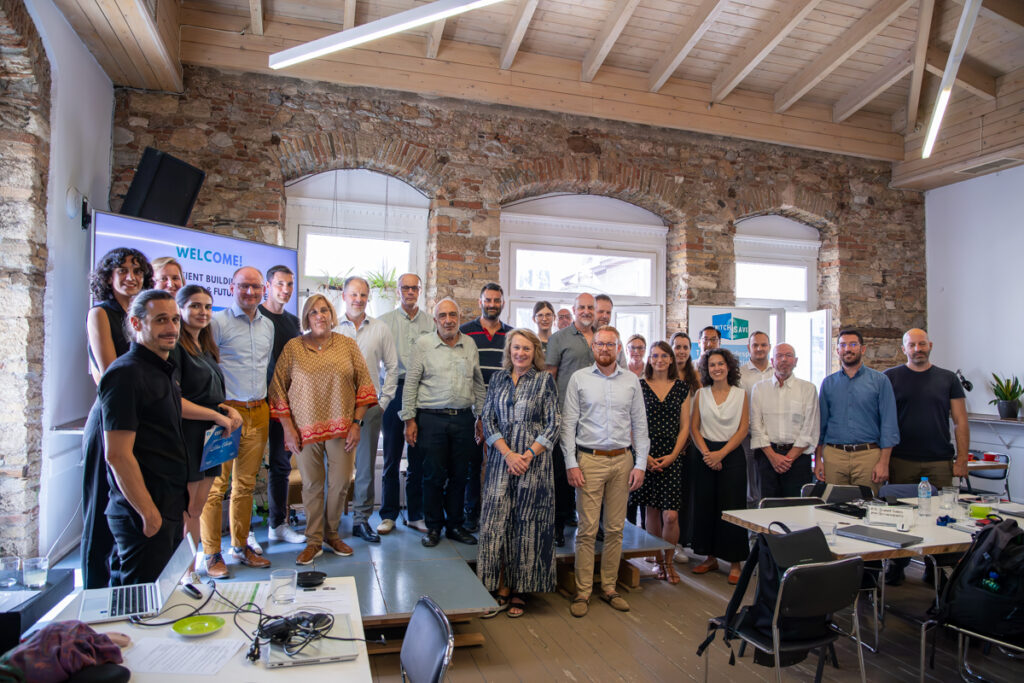
More AMIRES projects here!
Looking for partners to improve stroke care
AMIRES and University of Hradec Králové are looking for collaborators for the upcoming Innovative Health Initiative (IHI) call on improved prediction, detection, and treatment approaches for comprehensive stroke management – HORIZON-JU-IHI-2023-05-03.
University of Hradec Králové mHealth platform HealthReact enables patient-specific health interventions based on real-time data collection & evaluation and integration of vital data from a variety of sources, with great potential for application in stroke care.
Key features of the platform include:
- Data Integration: seamless gathering of data from wearables, unobtrusive sensor pads, accelerometers for movement patterns, cognitive assessment tools, and heart rate variability monitoring via API, ensuring a comprehensive view of patient health.
- Real-time Evaluation: real time data processing, enabling timely interventions and care adjustments based on patient-specific rules related to vital signs.
- Dynamic Interaction: event-triggered prompts and feedback mechanisms for patients tailored to individual health metrics and trends, enhancing patient engagement.
- Comprehensive Reporting: regular insights on patient health metrics, trends, and potential areas of concern, ensuring continuous remote monitoring and feedback for healthcare professionals.
Find out more about the technology and project ideas here and get in touch.
We look forward to cooperating on Horizon Europe & other research and innovation projects!
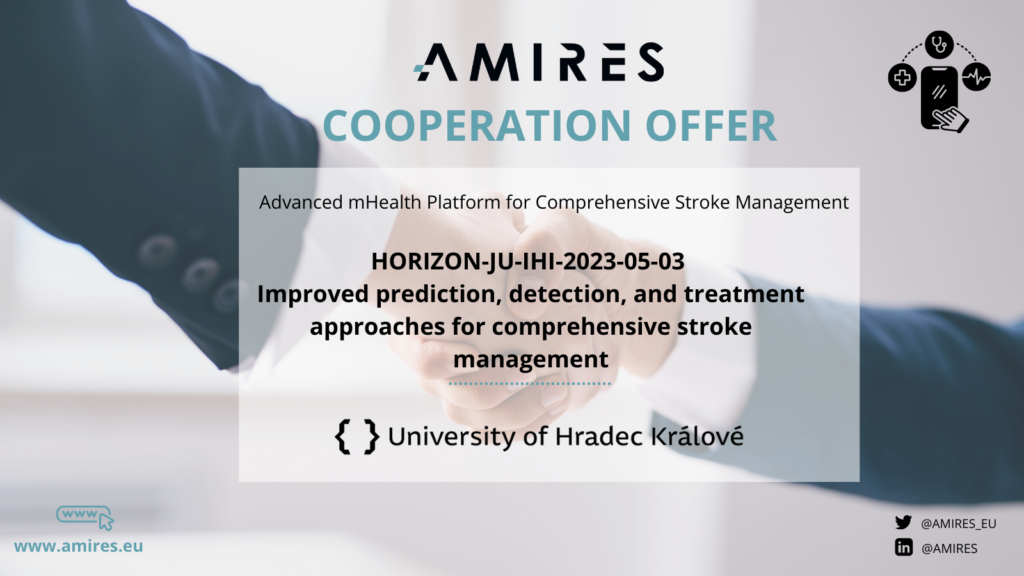
AMIRES at theNext-Gen OoC and Organoid Workshop
Organised by AMIRES long-term partner CSEM, the event held on 24-25 August 2023 brought together a dynamic mix of pharma and biotech industry, startups and academic groups in the Organ-on-Chip (OoC) and organoid field and we were happy to be among them!
AMIRES is active in the OoC and organoid field mainly with our projects Tumor-LN-oC and Organtrans.
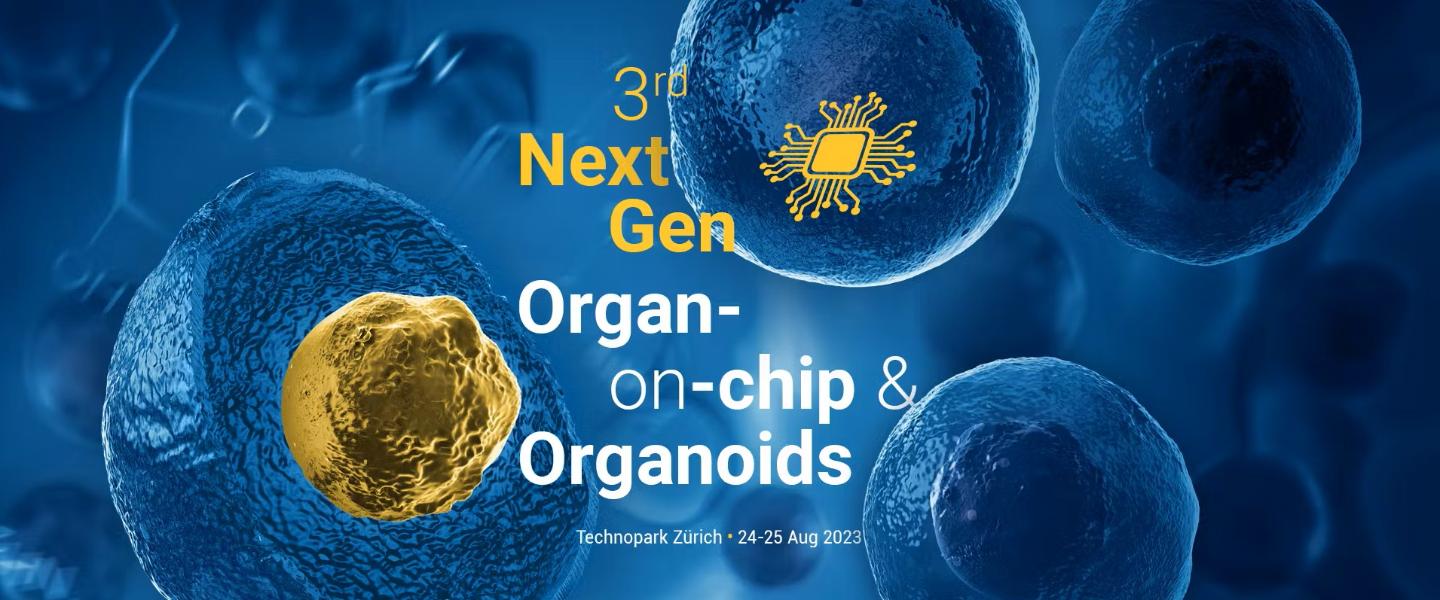 |
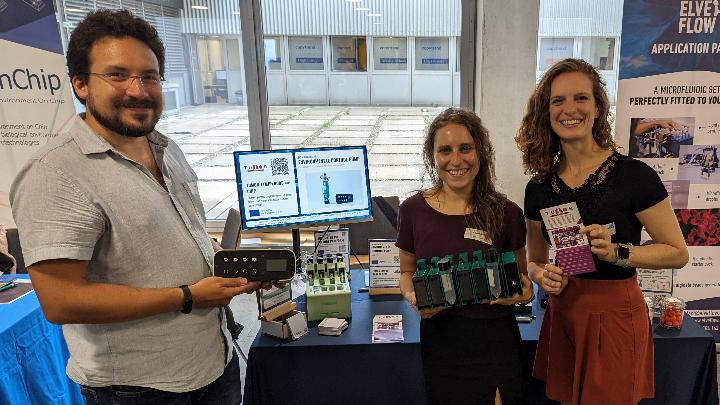 |
Our key takeaways from the workshop include the fact that OoC technology is the emerging state of the art in biomedical research and will play a determine role in the future. The field has progressed immensely in last 20 years, however many challenges remain which hinder or slow down the adoption on a large, industrial scale. These include the questions of standardisation / harmonisation of the technology for enhanced cross-compatibility, questions of validation and model qualification as well as regulatory acceptance. As a result, OoC are currently used and developed mainly on a smaller, experimental scale for research applications and are not yet accepted as a gold standard in large-scale industrial applications (e.g. drug development), or in clinical applications (e.g. personalised medicine, regenerative medicine). Neverhteless, there is a big European innovation ecosystem with many SMEs and startups active in the field and developing novel solutions for biomedical research, which result in a lot of innovation activities, demonstrating the huge potential for revolutionising drug development, disease research and personalised medicine.
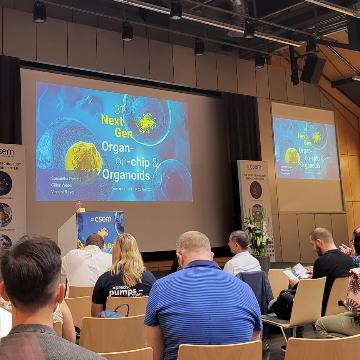 |
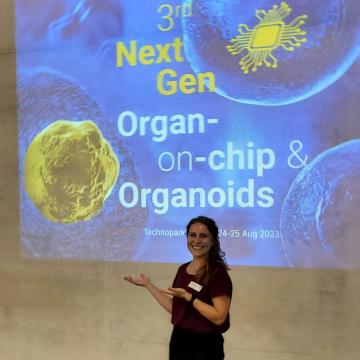 |
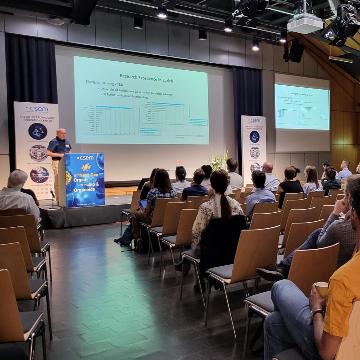 |
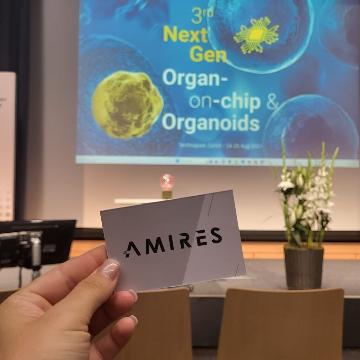 |
A big thank you to the organizers for putting together such an insightful and impactful event and the chance to be a part of the discussions! It was a great opportunity to exchange ideas, grow our partner network and gain valuable insights that will undoubtedly contribute to ongoing and future projects at AMIRES. We are looking forward to applying the knowledge gained and continuing to drive innovation in the Organ-on-Chip and organoid field with our projects!
Takeaways from the AMI deep tech event “the PRAGUE NEXT-GEN TECHNOLOGY MEET-UP”
|
|
|
|
|
|
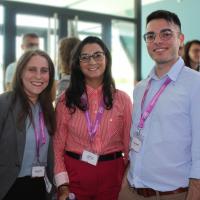 |
|
|
|
|
- PHABULOuS Pilot Line- there is still a possibility to sign up for their Open Call that may help you to move towards volume production of free-form micro-optical components.
- PhotonHub provides a unique service by collating the broad training offerings in photonics from RTO’s, training centres and industry across Europe into a single online catalogue of the European Photonics Innovation Academy.
- The 2D Experimental Pilot has launched its fourth multi-project wafer (MPW) run where universities, research institutes and companies can include their designs as dies on joint wafers. (Visit 2D-EPL multi-project wafer run 4 | Graphene Flagship)
- MedPhab Pilot Line is the first EU Pilot line that supports photonics medical device development.
- There are two projects in 2D materials- MatEl (PZT and Graphene MATerials innovations for advanced opto-Electronic applications in AR and biosensing) and Next-2Digits (The next generation of sensors and imagers enabled by 2D materials digital integration).
We also supported attendees with information on how Czech companies can take advantage of public funding by applying in open calls (if you still need some support contact us here).
|
|
A special thanks to our speakers Ioanna Zergioti, from National Technical University of Athens:; Nathalie DEBAES, from Vrije Universiteit Brussel; Jan Hesse, from JOANNEUM RESEARCH; Miika Soikkeli from VTT and Harry Heinzelmann, from CSEM; to our great moderator Roman Pašek and last but not least to Tomáš Mocek, Sanin Zulić, Jana De Merlier and Martina Řeháková who supported us in organizing.
FRIENDSHIP public deliverable on Environmental Mitigation Potential is on air!
In the deliverable, SINTEF assessed the integration and environmental mitigation potential of the solutions for solar heat integration in industrial processes developed in FRIENDSHIP.
The assessments are carried out on 4 facilities partnering in the project: Moosburg, Tarragona, Nettgau and Mangualde. The facilities are spread out both geographically, from the North to South of Europe, and industrially, from chemicals to wood processing. Therefore, the results reflect the potential of the FRIENDSHIP solutions in a variety of locations and for a range of resources and energy-intensive industries, allowing an extrapolation to industries outside the FRIENDSHIP consortium.
Based on the findings described in the report, SINTEF identified a set of general recommendations that are meant to identify facilities within resources and energy-intensive industries in Europe where the FRIENDSHIP solutions have high integration and environmental mitigation potentials.
Download the deliverable here!
|
|
It’s official: UK to associate to Horizon Europe
After multiple false dawns, London and Brussels have finally agreed a deal to allow the UK to rejoin. The UK will also join the Copernicus space programme, but is out of Euratom and the ITER fusion project.
The UK government and European Commission have have struck a deal to allow the country to associate to Horizon Europe after more than two and a half years of delay.
This morning they released a joint statement that will have UK and EU scientists breathing a sigh of relief after being stuck in limbo since 2021.
“The EU and UK are key strategic partners and allies, and today’s agreement proves that point,” said Commission president Ursula von der Leyen in a statement. “We will continue to be at the forefront of global science and research.”
The deal means that UK scientists will now be able to receive European Research Council grants and coordinate academic-industrial consortia in the Framework programme.
Up to now, they have been forced to rely on UK equivalent grants and funding instead of being seamlessly integrated into Horizon Europe.
While UK academics have still been able to join consortia under the industrially-focused Pillar 2 of the programme – the biggest part by value – uncertainty about the future meant that UK participation in the programme halved, raising fears that UK scientists were being forced out of European academic networks built up over decades.
UK-based ERC grant winners have faced an agonising choice over whether to move to the EU to keep their awards, or stay and settle for a UK equivalent scheme.
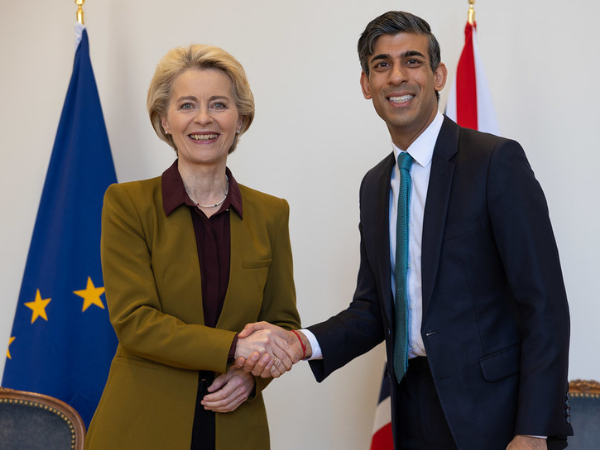
More information here!
Nearly €170 million to support novel technologies
The European Innovation Council (EIC) has selected the next set of proposals under the 2023 EIC Pathfinder Open call. 53 new projects will receive altogether up to €169.5 million and will develop cutting-edge technologies throughout a wide range of fields – health, artificial intelligence, computing, environment, and energy.
The successful applications were chosen among 783 evaluated submissions, with the highest number of selected applicants coming from France, Spain, Germany, Italy and the United Kingdom. Participants mostly come from higher education and research organisations, with SMEs accounting for around 18% of participants.
Selected proposals will receive not only grants, but will also have access to tailor-made coaching under the EIC Business Acceleration Services.
More information here!
Stay tuned for new updates regarding our projects!
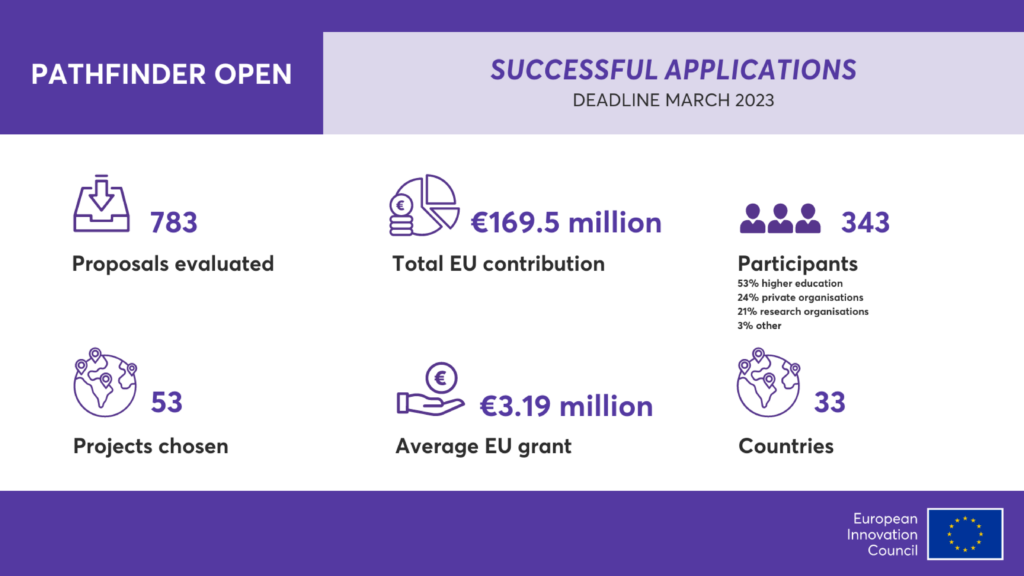
FRIENDSHIP at the International Congress of Refrigeration 2023
The 26th International Congress of Refrigeration (ICR) took place in Paris from 21st to 25th August 2023 with around 1 000 participants.
Organized by the Association Française du Froid (AFF) and held every four years, this is the world’s largest gathering of scientists and professionals in the field of refrigeration and air conditioning. This year the selected theme was “Towards efficient, controlled and smart Refrigeration”; therefore, experts could present and disseminate their results of research, development, and innovation in this field.
In the technical paper session 49 “Sorption systems: equipments” , Hélène Demasles, Anouk Muller, and Hai Trieu Phan presented their paper entitled: “Development of NH3/H2O absorption chillers for negative cooling in industrial solar systems”, written in the framework of FRIENDSHIP.
During the presentation, the whole FRIENDSHIP solution was presented to the public, who was also encouraged to explore the e-learning videos created by INES PFE.
The paper focuses on the work carried out by the CEA-Liten team within Work Package 4, in particular the conception and manufacturing of the 10kW ammonia-water chiller prototype. After a technical highlight of the GAX architecture, the results obtained during the characterization test campaign were presented and discussed with peers.
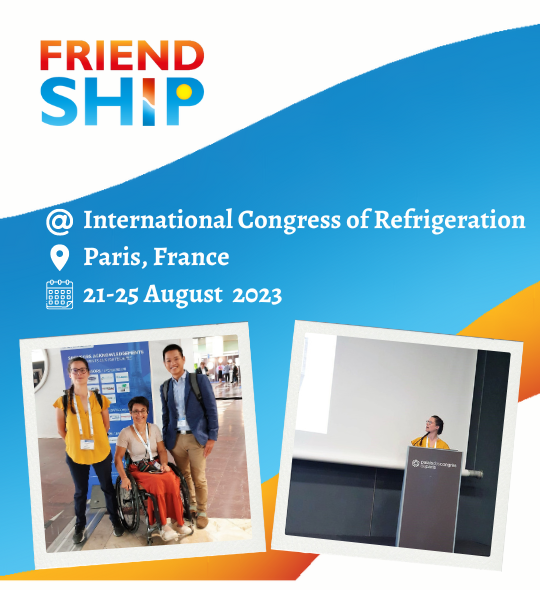 |
PANCAIM realizes implementation of a novel AI algorithm for earlier detection of pancreatic cancer on CT
In our pursuit of generating breakthrough knowledge to increase understanding of PDAC biology and patient stratification for pancreatic cancer by the seamless AI–powered integration of genomics, medical imaging and clinical data in order to optimize treatment strategies in a personalised medicine approach, PANCAIM has now reached an important moment.
Last year, Radboudumc developed and published an AI algorithm that has been demonstrated to detect PDAC cancers on CT images that can easily be overlooked even by experienced radiologists, At the project meeting in July, this algorithm was for the first time implemented via the teamplay digital health platform, a cloud platform owned by project partner Siemens Healthineers, on a real, new pancreatic cancer case at the Karolinska Institutet.
Read our full press release here!
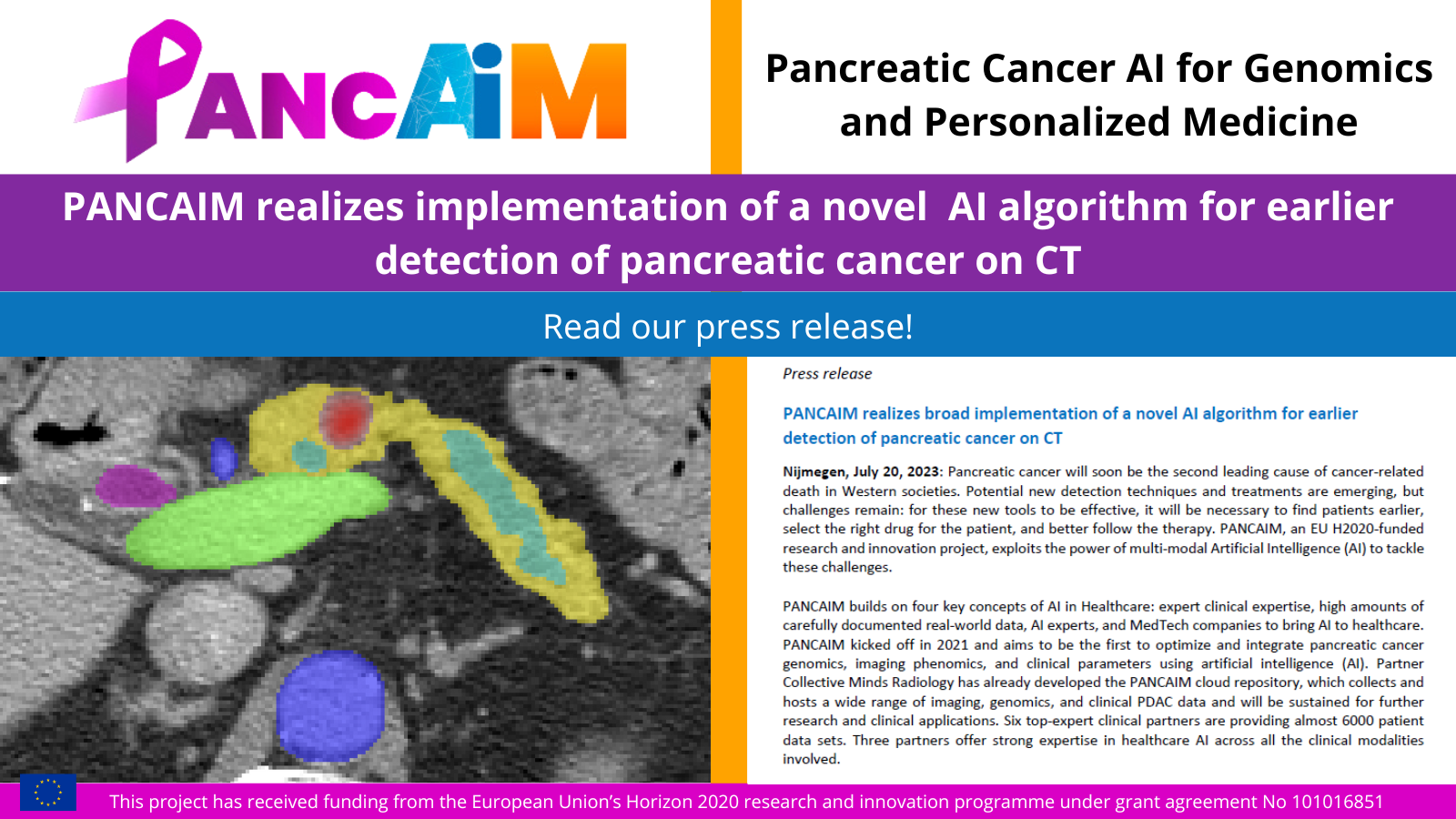 |
As we celebrate this technical milestone, we’d like to thank our partners for their excellent collaboration, expertise, and a commitment to advancing pancreatic cancer diagnosis and treatment.
The project will now focus on upscaling developed unimodal AI algorithms, drive forward the development of multimodal AI models and start the clinical validation process required in order to implement these algorithms routinely in the clinical workflow to offer AI-based decision-making support to clinicians in diagnosis and treatment of pancreatic cancer.
MEET OUR TEAM: MATHIAS LEANDRO FERNANDEZ
Meet Mathias Leandro Fernandez, a 23-year-old visionary hailing from San Juan, Argentina. With a multilingual edge in Spanish, English, and Italian, Mathias embarked on a journey in Industrial Engineering at UNSJ, Argentina, before advancing to Industrial Organization Engineering at the University of Málaga, Spain.
Driven by a lifelong interest in emotional intelligence and self-growth, Mathias transformed into a Life Coach after training at the Leadership Training School, Buenos Aires, in 2022.
Mathias’s thirst for knowledge extends to project management, innovation, and entrepreneurship, culminating in his recognition during the Flash Session Hackathon 4 by UMA Link in May 2023. Awarded a scholarship, he excelled at the European Innovation Academy 2023 in Porto, Portugal, contributing as Chief Product Officer for HOTTBOXX. This startup optimizes delivery driver routes, elevating service quality.
Mathias Rodriguez embodies youthful vigor, innovation, and a commitment to personal and collective progress. His journey is an inspiring testament to continuous learning and making a positive impact.
Beyond his achievements, Mathias enjoys sports, travel, and channeling positivism towards animal welfare.
In AMIRES, Mathias will be working as an Intern involved in different tasks helping our team. Thanks to IAESTE Czech Republic every year we open a door to an intern who spends with us 2 months, this year we are pleased to welcome Mathias for our new internship.
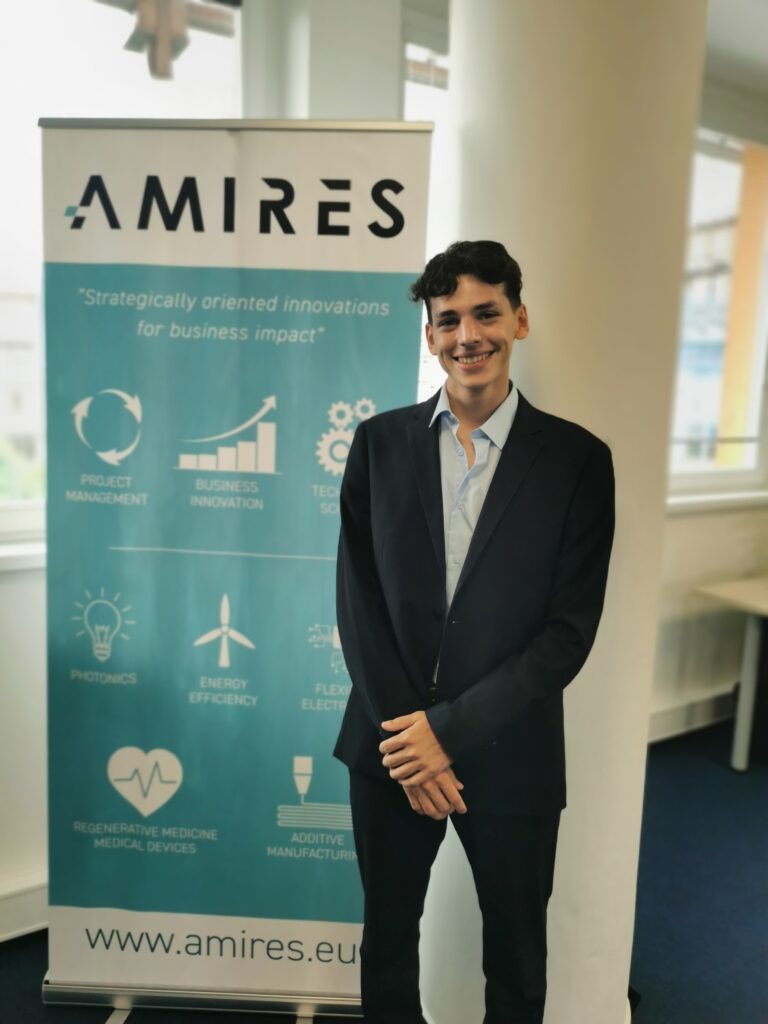
Policy report on Open Innovation Test Beds
Under Horizon Europe and Horizon 2020 the Commission invested €319 million in supporting Open Innovation Test Beds. OITBs address the challenges of the industrial transformation by providing support to the scale-up and diffusion of technologies. The core services provided by OITBs are to develop, test and upscale technology to advance from validation in a laboratory to higher Technology Readiness Levels (TRLs) prior to competitive market entry.
OITBs potential users are mainly industrial players, especially SMEs, which seek support to develop and integrate innovative technologies towards commercialisation of new products, processes and services, whilst ensuring feasibility and regulatory compliance. More information can be found in the Explanatory Note on OITBs.
Read the full report here: https://op.europa.eu/en/publication-detail/-/publication/0aaf1e05-2082-11ee-94cb-01aa75ed71a1/language-en
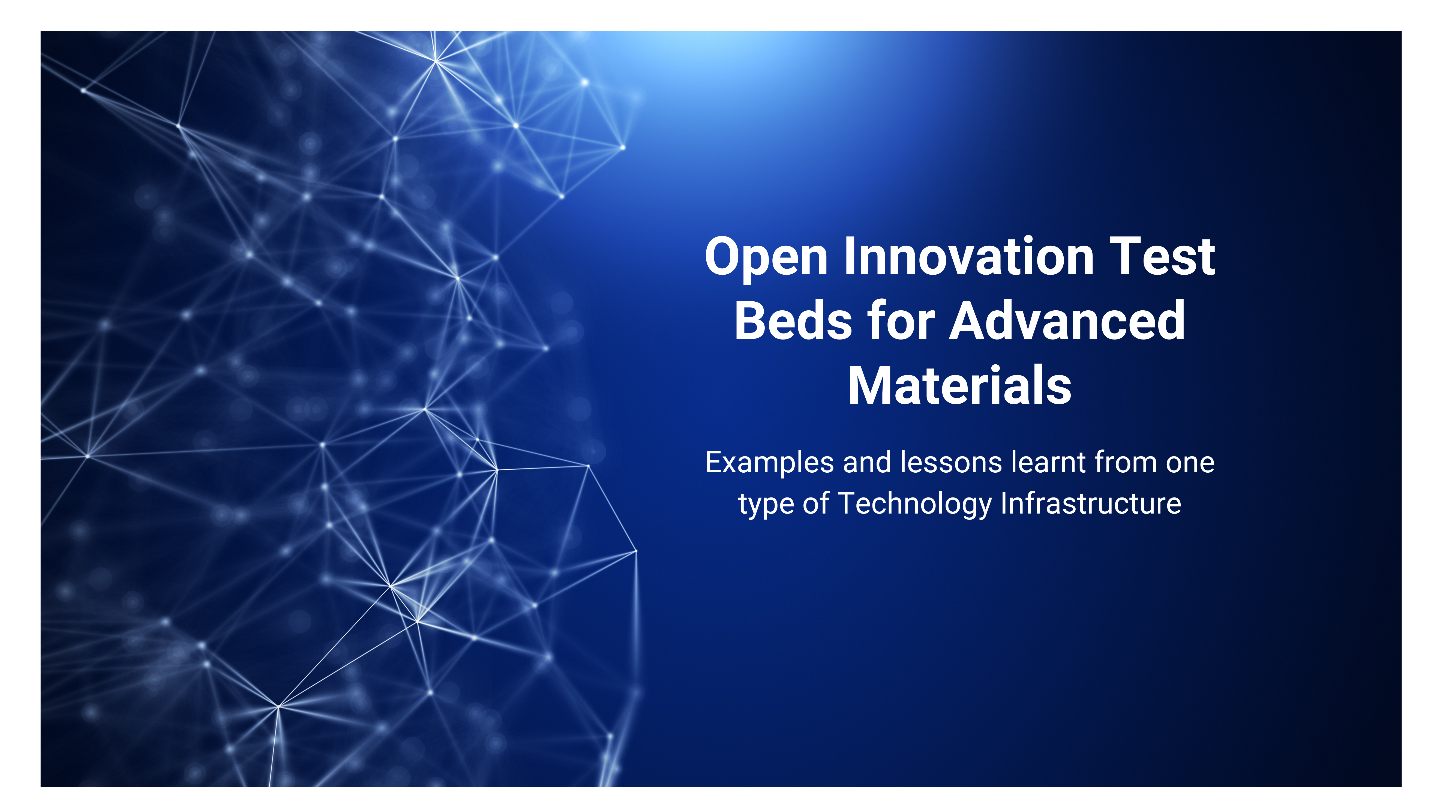 |
EC adopts new guidelines: Building a Climate-Resilient Future
New guidelines to help EU countries update their climate adaptation strategies.
The European Commission today adopted a new set of guidelines to assist Member States in updating and implementing comprehensive national adaptation strategies, plans and policies, in line with the European Climate Law and the EU Strategy on adaptation to climate change.
From extreme heatwaves and devastating droughts, to deadly forest fires and rising sea levels eroding coastlines, the inevitable impacts of unchecked climate change are well known and starting to manifest themselves. The latest findings of the Intergovernmental Panel on Climate Change (IPCC) report underlined the urgency to adapt to the impacts of climate change. Today’s guidelines aim to help Member States upgrade their preparations for this emerging reality of rapidly intensifying impacts.
Read the original article here.
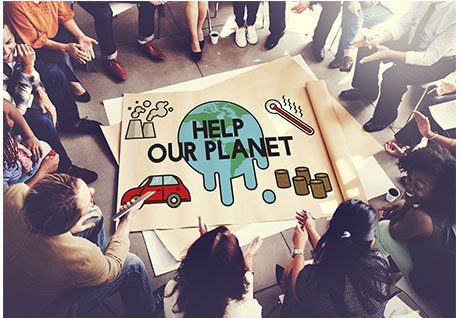
Read news related to AMIRES projects on our website!
Commission proposes 10 new industrial Horizon Europe partnerships
Policymakers will have to decide whether to back partnerships in new sectors, including brain health, forestry, solar photovoltaics and raw materials.
The plan for the next Horizon Europe partnerships that are due to start from 2025 is finally on the table, with the European Commission proposing ten new programmes that will pool public and private funding.
These will cover topics including brain health, cultural heritage, solar power, and textiles, adding to the current portfolio of 49 joint research programmes.
If approved by policymakers, these partnerships will be part of the strategic plan for Horizon Europe from 2025-2027, the final three years of the current €95.5 billion research and innovation programme.
Research partnerships that combine private and public money have been part of the EU’s research frameworks for the last three decades. They are intended to boost industries that need a leg up to advance innovation. In more recent years, they have been looked to as a tool to advance EU policy and geopolitical goals in areas such as the green and digital transitions.
The entire article here
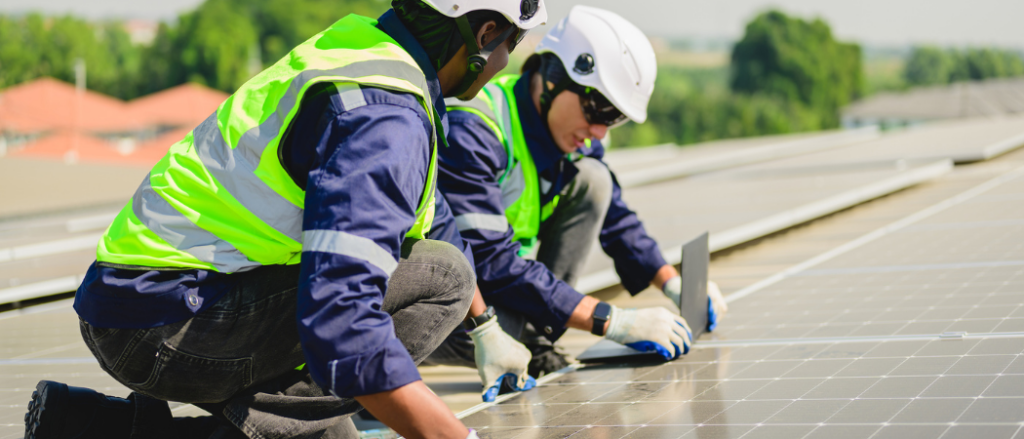
More information regarding to AMIRES projects in our website!
FRIENDSHIP passed the second review!
On the first meeting day, the M36 meeting took place and the partners concentrated on the progress of the running Work Packages, their highlights, results, and challenges. In the end, the consortium members reached a clear vision of the directions to take and on the objectives to accomplish in the next 12 months.
During the second day, the Review meeting was held, and the discussion focused on past deviations, future timeline and expected results. As for the 1st Review meeting, the Project Officer, Charles André Lemarie, also joined the meeting and provided valuable feedback on the behalf of the The European Climate, Infrastructure and Environment Executive Agency (CINEA).
The project is reaching the validation phase; therefore, several publications are expected in the upcoming months.
|
|
LASER World of PHOTONICS is over and it was an incredible festival of photonics
The fair trade featured a combination of research and technology trends that are shaping applications and end markets. We loved seeing the offering and impact of projects in which AMIRES partners, namely 3 pilot lines lowering access barrier for innovative European business in three domains:
JePPIX: Open access pilot line for manufacturing of InP-based photonic integrated circuits.
Phabulous: Highly advanced & robust manufacturing technology for optical free-form micro-structure.
MedPhab: Manufacturing of diagnostic devices and instruments for treatment based on photonics.
Part of the trade show was for the second time also event on quantum technology where Quantum Flagship presented a portfolio of projects, including QU-TEST & QU-PILOT, recently launched projects which will support open testing, experimentation and pilot production capabilities for quantum technologies.
Moreover, automatica event on smart automation and robotics took place in parallel with LASER World of PHOTONICS for the first time. In their start-up competition, we could spot Meep, who presented themselves with their doctor-at-home device based on silicon photonics chip technology. A great example of innovative solution supported by PhotonHub and MedPhab ecosystems!
Finally, this event also marked 20th anniversary of EPIC – EUROPEAN PHOTONICS INDUSTRY CONSORTIUM and we wish them many more years of supporting partnerships in photonics industry!
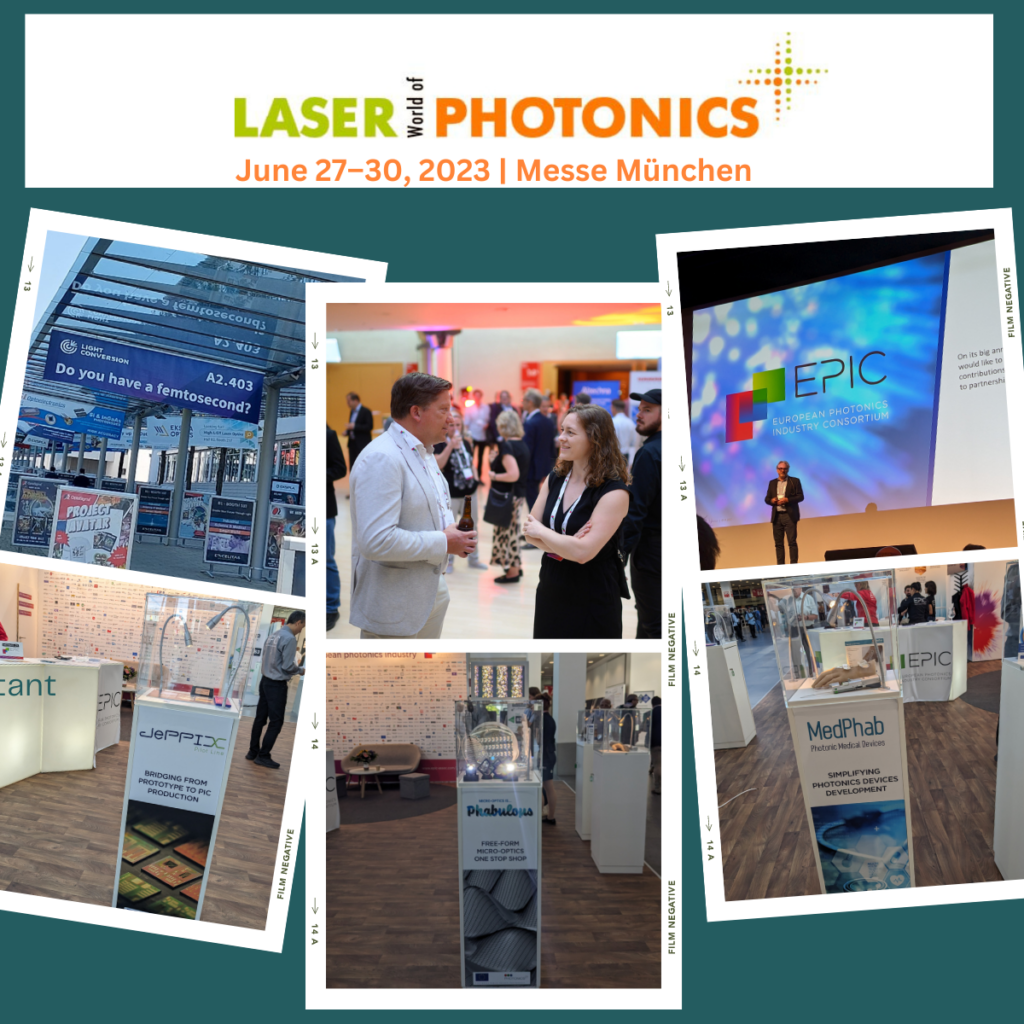
Nanotechnology for a sustainable future
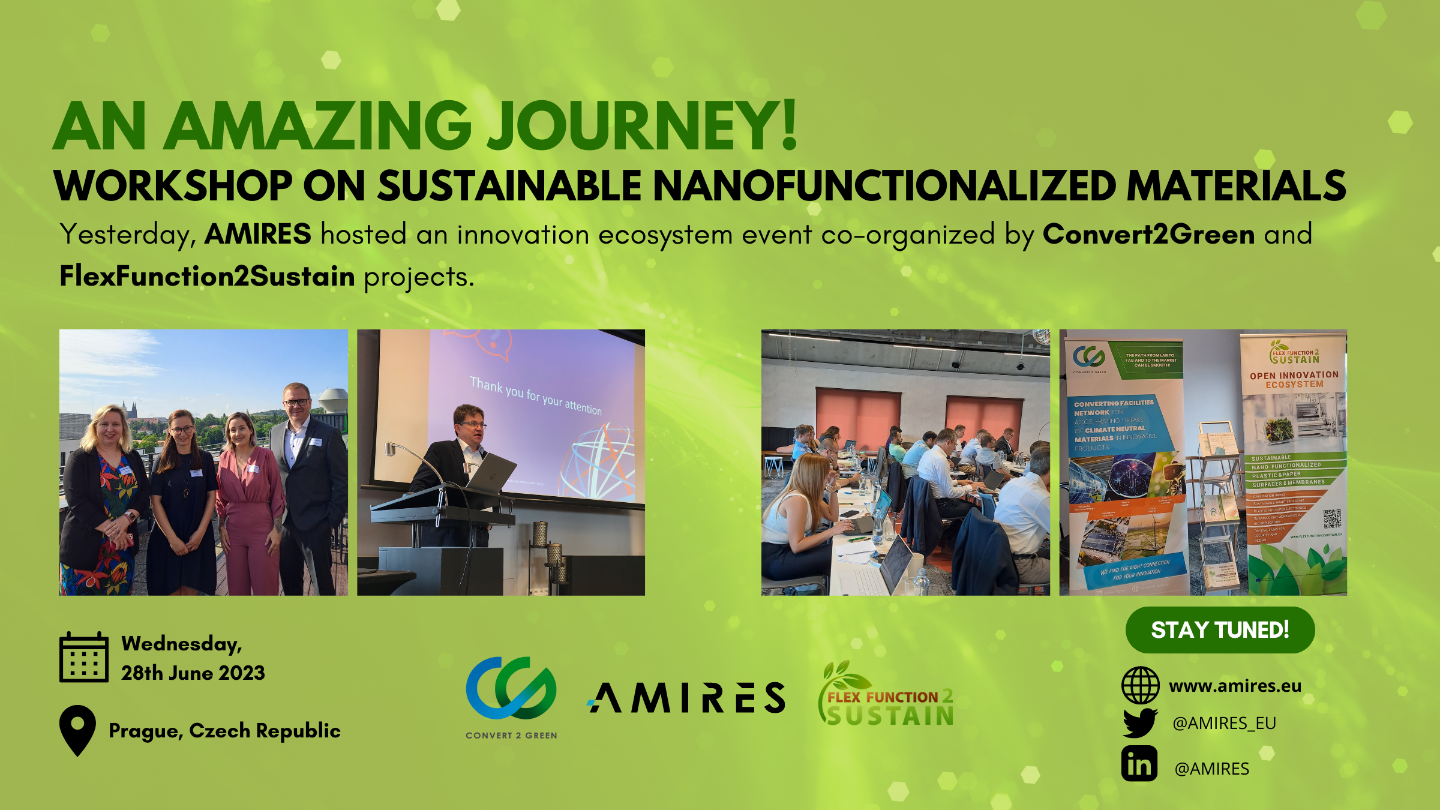 |
MedPhab 3.5 years of successfully accelerating innovation in photonics-based medical devices
Cork, Ireland was the location in where MedPhab partners gathered for their M42 meeting on June 14 and 15, 2023. The host Tyndall Institute made sure their guests were comfortable to discuss the progress of the pilot line in the last six months.
The Consortium, led by Prof. Jussi Hiltunen and supported by the management of ABIMI, is in a good position on the progress of the project’s objectives after successfully passing the review meeting with the European Commission and reviewers few months back. The use-cases, that validate technology maturity of MedPhab partners, are close to finish, however still challenges are ahead on the last steps of this process. The open call for the external demo cases finalized in April 2023, and 8 cases were selected in the last cut-off to start implementation in July 2023. For this reason, the Consortium will propose extending the project duration and formally requesting approval from the European Commission. Special attention was given in the discussions about the MedPhab non-profit association as the continuity and sustainable model for MedPhb project, led by Christina Liedert, the Executive Director. In addition, the efforts of the dissemination and marketing were acknowledged and encouraged to continue in the upcoming events, such as COMPAMED MEDICA in Düsseldorf in November this year.
Do not miss to follow this successful story on the medphab.eu and medphab.com websites and their social media channels!
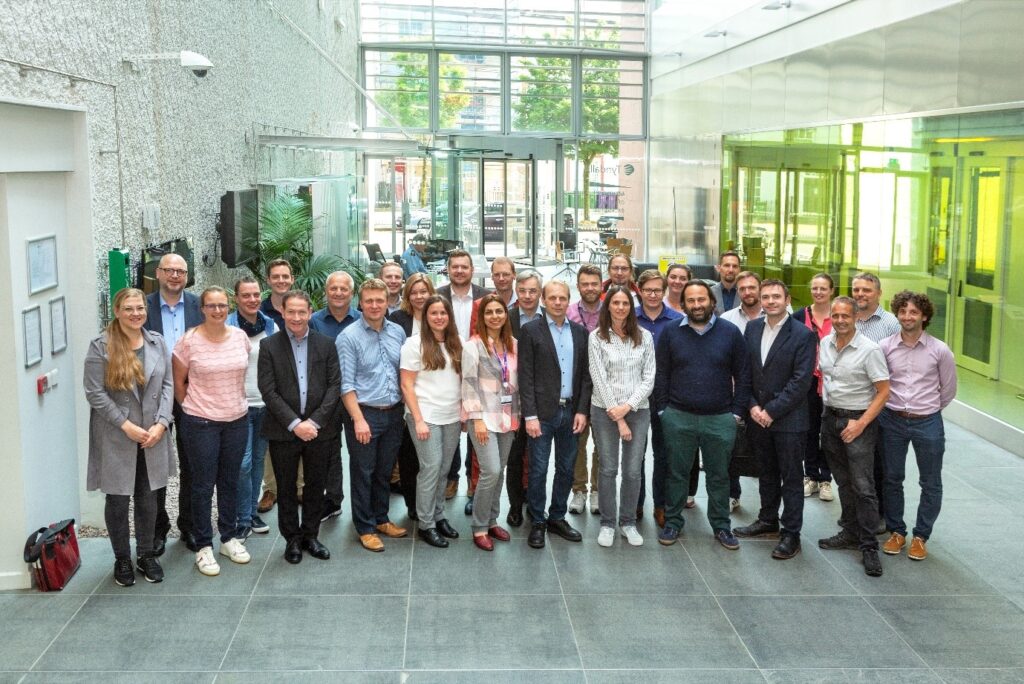
PANCAIM M30 Meeting in Stockholm: Promising progress on datasharing and AI development
Project partners presented their respective work packages and activities over the past six months. AMIRES is participating in PANCAIM as partner for project management and dissemination and is actively engaged in consortium coordination, taking an active role in organising the meeting and preparing materials, moderating discussions around data sharing and strategic questions in the project such as its sustainability exploitation.
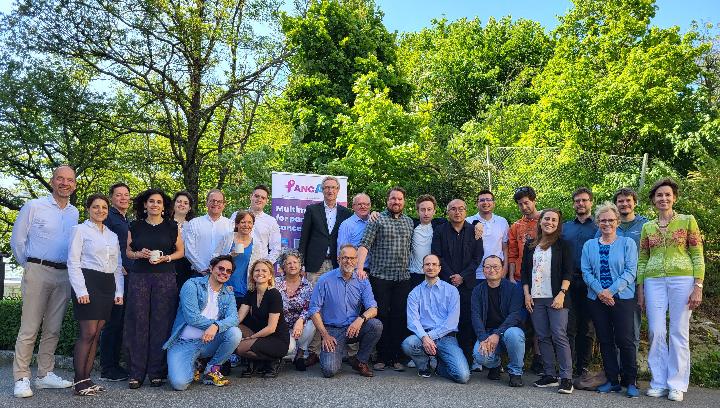 |
AI developers in the consortium shared updates on the development of unimodal and multimodal AI algorithms: There have been good advancements in developing unimodal AI algorithms with the potential to contribute to early detection and accurate diagnosis of pancreatic cancer and a better understanding of the disease. Additionally, first steps have been made in the development of multimodal AI algorithms that will enhance diagnostic accuracy, and survival predictions and offer personalized treatment recommendations for pancreatic cancer patients.
In addition, we have started to discuss the validation of the developed algorithms and their clinical deployment. Rigorous validation of AI algorithms is considered a top priority of all partners and absolutely crucial before deploying them in real-world clinical settings. Therefore, we are starting to discuss the validation with previously unseen data to assess the accuracy of developed models to estimate the prognosis of individual patients at diagnosis, to predict treatment response and to evaluate treatment, in order to ensure that developed models achieve the highest levels of effectiveness, precision, and reliability. The most promising AI algorithms developed in the project, which have demonstrated their capability to predict clinically relevant outcomes, will then be integrated within an established healthcare platform and further validated in an environment that resembles a routine clinical application as closely as possible.
Many active discussions took place at the meeting, both during the sessions as well as informally over lunch and coffee breaks. For instance, we started discussing and trying to identify solutions that will support the continued growth and impact of our research and activities, and therefore ensure the long-term sustainability of the PANCAIM project and its results. We are also exploring possible ways for the inclusion of additional data sources to our repository and sharing access to gathered data to researchers to be used for further investigations.
Lots of work remained to be done in the project, but we are happy about the progress and proud to be steadily moving towards our objective of providing unique new digital tools for pancreatic cancer clinicians and patients. For more about the project, please visit https://pancaim.eu/
Thanks to our hard-working partners for the productive meeting and the good collaboration in this demanding project – we are already looking forward to the next meeting which will take place here in Prague!
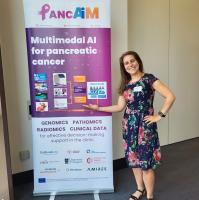 |
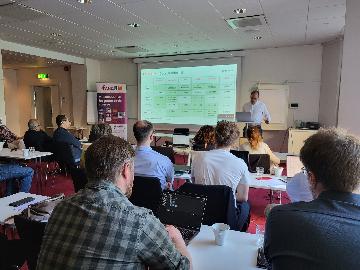 |
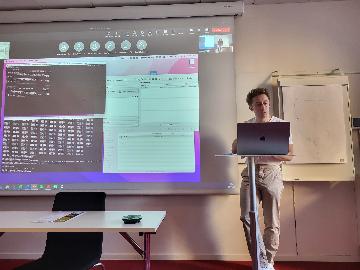 |
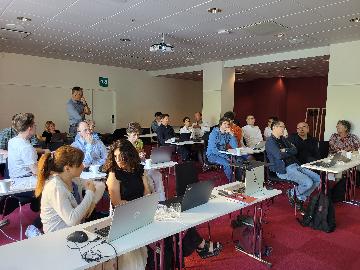 |
ORGANTRANS M42 and review meetings in Prague!
Exciting Developments in EU-Funded ORGANTRANS project: M42 and review meetings in Prague!
We are thrilled to share the remarkable progress made during the final ORGANTRANS project M42 and review meetings that were hosted by AMIRES in Prague, Czech Republic on 30-31 May. The meeting aimed to present the consortium’s results and discussing plans for the exploitation and continuation of the groundbreaking technology developed under the project. The consortium members also addressed vital regulatory considerations that facilitates the swift integration of these advancements into clinical practice. Additionally, representatives of the European Commission were present to review the progress made by the project and provide valuable feedback.
The ORGANTRANS project aimed to revolutionize organ transplantation by leveraging the power of stem cells, bioengineering and 3D bioprinting. The platform developed within the project is a future alternative for organ transplantation medicine as it proposes a disruptive alternative to donor organs for patients with chronic end-stage liver diseases. The innovative approach involves utilizing a patient’s own healthy cells to generate new liver tissue in laboratory conditions using a cutting-edge liver tissue bioprinting platform. Additionally, this research created novel technologies that can be applied to other organ systems and tissues in the field of regenerative medicine.
Thus, the story goes on, see us soon!
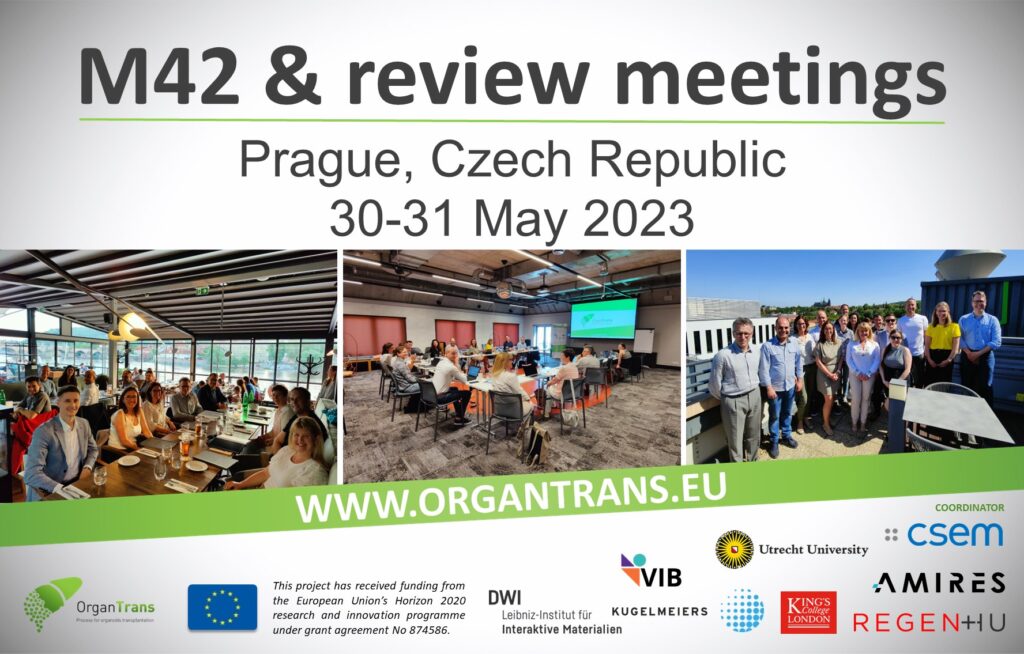
Follow us on the project website!
More AMIRES news here!
AMIRES at Sustainable Places Conference 2023!
Last week (14-16 June 2023) AMIRES was at Sustainable Places Conference 2023!
This year more than 250 people gathered in Madrid to present their Horizon projects, discuss their findings and network with each other.
AMIRES was there to represent our energy projects ComBioTES, Condor, FRIENDSHIP and Switch2Save.
ComBioTES joined the workshop: “Low-TRL Renewable Energy Technologies” for the second year in a row. Although the discussion was brief, ComBioTES got many hints for improvements and several points of reflection.
FRIENDSHIP took part in the workshop: “Renewable Heating and Cooling Solutions for Buildings and Industry: 4th Edition“, where H2020 EU-funded projects experts from the biomass, geothermal, solar thermal, waste heat recovery, and heat pump sectors discussed a common strategy and next steps forward.
Switch2Save was presented in the workshop: “50 Shades of Industrial Deep Energy Retrofit”, where the speakers shared their feedback and lessons learned to empower the next phase of housing retrofit policies.
Finally, FRIENDSHIP, in cooperation with ASTEP, organized and moderated a workshop dedicated to “Solar Energy in Industrial Processes: How to Meet the Expectations of the European Commission”. The presentation of the projects was followed by a panel discussion about the main challenges and solutions for the broad implementation of SHIP systems in Europe.
As always, Sustainable Places was a great way to enhance projects` visibility and to find new opportunities of networking and potential future collaborations.
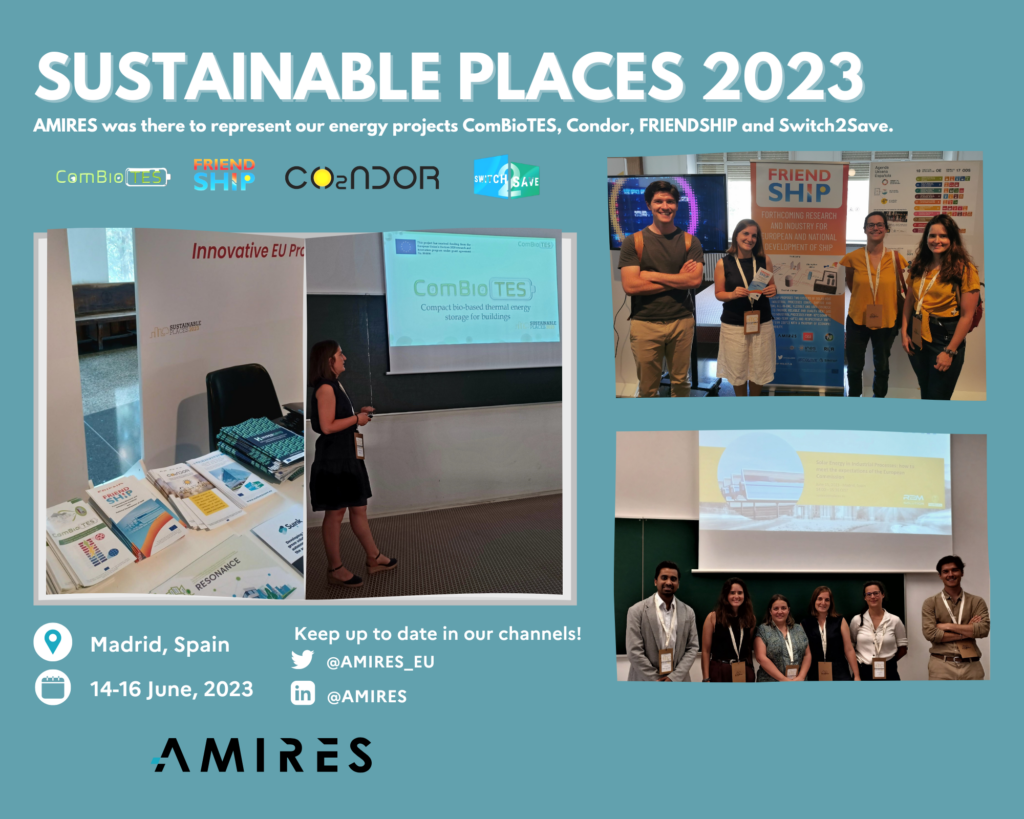
AMIRES and CSEM gladly organised the 3rd Regenerative Medicine workshop
On 1st June, 2023, in the frame of the OrganTrans EU-funded project, bringing together researchers, SMEs and clinicians in the field, who exchange their perspectives regarding the opportunities and challenges in Regenerative Medicine. The speakers had the opportunity to network a day before during the dinner and enjoy an excellent traditional venue at Café Imperial.
Structured around a keynote lecture, and sessions focusing on clinical needs, and enabling technologies presentations, the workshop was the perfect opportunity to exchange on future technology solutions, network, and start new collaborations with information about enabling the funding of the research in this field.
During the keynote speech, renowned clinician and researcher Prof. Jan Belohlavek from the General University Hospital in Prague, explained the current status in the clinics and research of refractory Cardiac Arrest, extracorporeal cardiopulmonary resuscitation (ECPR), reperfusion (ECMO), microcirculation, and different ECMO settings. He enlightened the audience with a summary of the opportunities of new methods that may help patients to survive prolonged cardiac arrest and how more research is needed for the complete regeneration of essential organs, such as the heart.
Four EU-funded projects (AMELIE, PREMSTEM, JOINTPromise and Organtrans) were represented at the event. All of them are funded by the European Union under the same Horizon2020 topic call titled SC1-BHC-07-2019 – Regenerative medicine: from new insights to new applications. The workshop provided an invaluable platform for representatives from these projects, to interact, network, and exchange their experiences and challenges faced in their respective fields of research. Representatives presented how the research and development process for complex solutions on RegMed which have potential to reach the clinics for diverse diseases and conditions, e.g. muscle, bone, liver, brain. All these solutions require work, time and funds to provide evidence of their effectiveness, from the proof of concept through preclinical studies and clinical trials.
The next block of the event consisted of three presentations on different aspects of clinical needs in Regenerative Medicine, starting with the Czech company, BIOINOVA who is involved in clinical trials for the validation of their cell therapy products. Daniel Scherman, founder of the “Paris Centre of Pharmaceutical Research” at the Paris Pharmacy Faculty in France , presented the potentials of molecular methodologies for cell engineering and provide alternatives to cell therapies modifications using non-viral methods but plasmid-based modifications. SME Betthera presented how it is essential to consider health economics and regulatory aspects from the early stages of development of Regenerative Medicine solutions, and how they could help if they are medical devices, new therapies or ATMPs (Advanced therapy medicinal products).
Lastly, three SMEs and one research centre, HEALIVA, PHOSPRINT, CELLAION and CSEM, presented us their groundbreaking work on the field as technology enablers. From cell therapies for wound healing, to laser bioprinting, liver therapy solutions, lab automation and AI, biomonitoring and technology transfer to industry.
The Q&A session and the networking breaks allowed a fruitful exchange between the speakers and the audience, as a result of the diverse points of views of the participants, positioned in different places of the value chain. Thanks to our inspiring speakers for coming to Prague and sharing your thought-provoking presentations, which facilitated insightful discussions! We also thank our wonderful audience for your engagement with the speakers on this challenging field.
We were glad to see so much interaction during the coffee breaks and hope that the event will inspire new collaborations and partnerships!
Read the final report here.
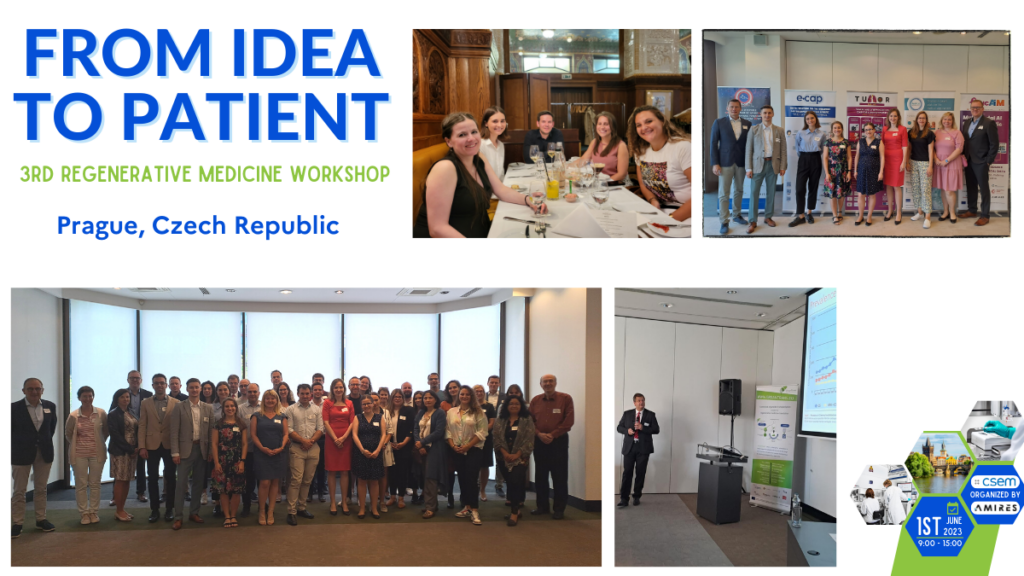
More information about AMIRES projects in our website!
AMIRES had the pleasure to attend EuroNanoForum2023
EuroNanoForum 2023: transitions from academic research to industrial applications
From 11 until 13 June, AMIRES team had the pleasure to attend EuroNanoForum 2023 and to become part of the major European conference on nanotechnologies and advanced materials. Following the tradition to be held every other year in the country currently holding the presidency of the Council of the European Union, the 2023 edition of EuroNanoForum took place in Lund, Sweden.
Organised in the premises of Lund University, one of Scandinavia’s oldest and largest institutions for education and research, the event provided an open forum for representatives from industry experts, academics, policymakers, and other stakeholders to discuss the latest developments in nanotechnology. The program boasted an exciting mix of sessions with insightful discussions on the materials for fossil-free energy production, energy storage and energy efficiency, novel applications for 2D materials, quantum technologies.
The event put a focus the ‘safe and sustainable by design’ concept, highlighting the need to take it into consideration from the very start and showed how it builds on experience acquired from work on nanomaterials. During the panel discussions on European Infrastructures, the participants presented their view on innovations and industrial applications by identifying the key aspects and collaborative models for reaching success.
Deep Tech & ENESUS teams were lucky to take part in the event and to contribute by sharing the impactful outcomes from their work. Several projects from our portfolio related to both nanotechnologies and advanced materials were presented on AMIRES booth in the exhibition area or showcased as good examples during various presenters’ talks. The projects RoLA-FLEX, MatEl, Qu-Test and Qu-Pilot, FlexFunction2Sustain were presented by posters during a separate session when the visitors had the possibility to interact with the authors. As always, it was a great pleasure to meet partners from our projects and long-term clients as well as to pave the way to new collaborations.
In addition to that, our colleagues participated in a closed on-site Workshop on the Future of Open Innovation Test Beds, organized as a satellite event on 14 June in the framework of Convert2Green and FlexFunction2Sustain projects. Under the slogan “It all begins with a conversation”, the workshop got together representatives from various ecosystems in order to discuss crucial issues that are unfolding during the OITB projects’ implementation. Lots of positive examples from completed OITB projects and best practices in terms of the collaborations between the ecosystems were shared.
During the round table discussion, specific challenges related to the standardization activities and IP management in OITBs were addressed and all participants agreed on the importance of those activities. All OITBs brainstormed on the future actions that can strengthen the community and how to ensure the long-term viability of the OITB ecosystem. During the discussion, it was clear that system sustainability can only be ensured if OITBs cooperate in a regular way with the central aim of addressing industry needs by promoting a broad and consolidated access to physical facilities, capabilities and services across Europe.
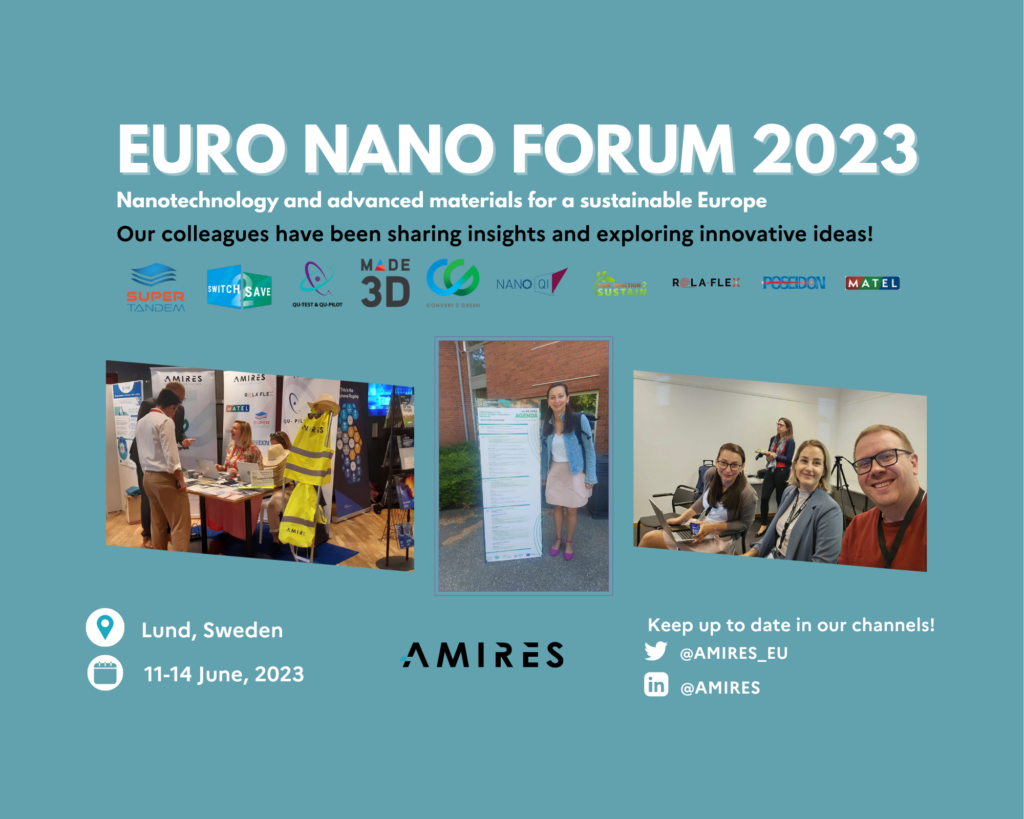
More information about our participation in new events here!
MEET OUR TEAM: MARTINA CHOPART
Soon it will be 2 years since Martina joined AMIRES as Project Manager. She started in the Deep Tech team, however, her passion for the environment attracted her strongly enough that she moved this month to the Energy & Sustainability team where she will take care of project Convert2Green (Converting Facilities Network for accelerating uptake of climate-neutral materials in innovative products).
Martina graduated from the Bachelor’s program in Translation and Interpreting at the Charles University of Prague and she continued her studies at the University of Valencia, following the Master in European Studies program at the Faculty of Law. In 2019, she obtained a Master of Science degree in International Development from the University of Manchester, focusing her research on the impacts of fossil fuels extraction in South America.
She gained her first professional experience at Chameleon Events Ltd., where she organized international conferences in the Energy sector. After returning to Prague, she worked for the Investment and Business Development Agency under the Ministry of Trade, supporting strategic investment projects from the EcoTech and HealthTech sectors in establishing themselves in the Czech Republic.
About her job Martina says: It brings a lot of opportunities to learn, travel and meet interesting people, and of course, great colleagues are the best part.
In her free time she loves going to the gym, traveling, reading and petting animals
Moreover, In AMIRES, Martina is involved in H2020 projects NanoQI (Multimodal X-ray and Hyperspectral Thin-Film Nano-material Evaluation and Quality Imaging), and TINKER (Fabrication Of Sensor Packages Enabled by Additive Manufacturing).
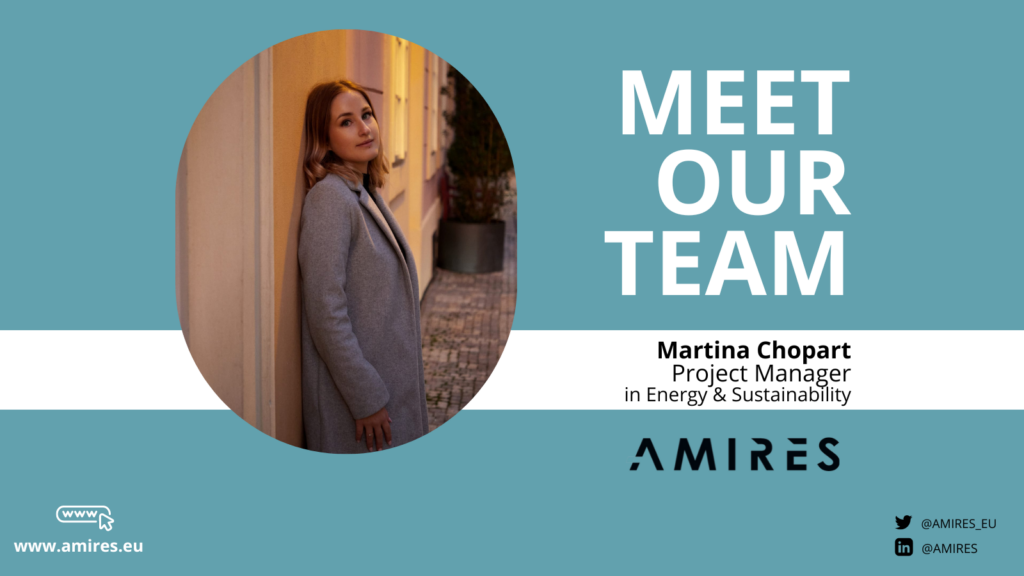
Clustering four cutting-edge projects!
During our Regenerative Medicine Workshop in Prague, Czech Republic, on June 1, 2023, we had the privilege of clustering four cutting-edge projects (ORGANTRANS, AMELIE, PREMSTEM, JOINT Promise).
All of them are funded by the European Union under the same Horizon2020 topic call titled SC1-BHC-07-2019 – Regenerative medicine: from new insights to new applications.
The workshop provided an invaluable platform for representatives from these projects, coming from four different countries (Switzerland, England, France, Belgium) to interact, network, and exchange their experiences and challenges faced in their respective fields of research. Through engaging discussions during the session and in the networking spaces, they explored innovative solutions and fostered collaborations to overcome obstacles and drive advancements in regenerative medicine.
Gilles Weder (CSEM, Switzerland) presented the groundbreaking #ORGANTRANS project that addresses the growing need for liver transplants, which are the only effective treatment for various liver diseases, causing 2 million deaths annually worldwide. To date, only 10% of transplantation needs are met. Targeting chronic end-stage liver diseases and residual healthy tissues, ORGANTRANS combines autonomous self-assembly with biomimicry. The project relies on organoid technologies as building blocks, complemented by bioprinting for the recreation of the architecture of the tissue for vascularisation. Additionally, this research created novel technologies that can be applied to other organ systems and tissues in the field of regenerative medicine.
Chara Simitzi (University College London, England) unveiled the remarkable AMELIE project, which targets obstetric sphincter injuries that occur in 5.5% of postpartum women, and the current surgical management is not appropriate for all patients. AMELIE is developing a novel tissue engineered product consisting of autologous skeletal muscle cells attached to microspheres for the treatment of obstetric trauma induced incontinence.
Cindy Bokobza (INSERM, France) shed light on the PREMSTEM project, which focuses on regenerative #stemcelltherapy for repairing #braindamage caused by #prematurebirth, that might affect to the 15 million babies that are delivered prematurely every year. PREMSTEM project evaluates human mesenchymal stem cells to repair the preterm brain. In addition to migration capacity and regenerative properties, mesenchymal stem cells are immunosuppressive, anti-inflammatory and enable relatively simple and minimally invasive access via the umbilical cord.
Isaak Decoene (KULeuven, Belgium) took the audience on a journey through the @JOINT Promise project, unveiling the fascinating world of complex #jointimplants that enables regeneration within the body and holds great promise for individuals seeking relief from #joint-related ailments. There is no joint defect treatment leading to permanent regeneration for the time being. The project is setting up an end-to-end automation platform for the manufacture of complex organoid-based implants.
Four perspectives, with four outstanding developments that try to solve four different clinical needs: chronic liver disease, sphincter muscle disfunction, brain damage in neonates and joint-related diseases. These solutions will benefit from newborns, postpartum women, to the people that suffer joint issues or liver disease. These projects are solutions for treating and managing disease and disability, improving the European Commission objective of the SOCIETAL CHALLENGES in Health, demographic change and well-being.
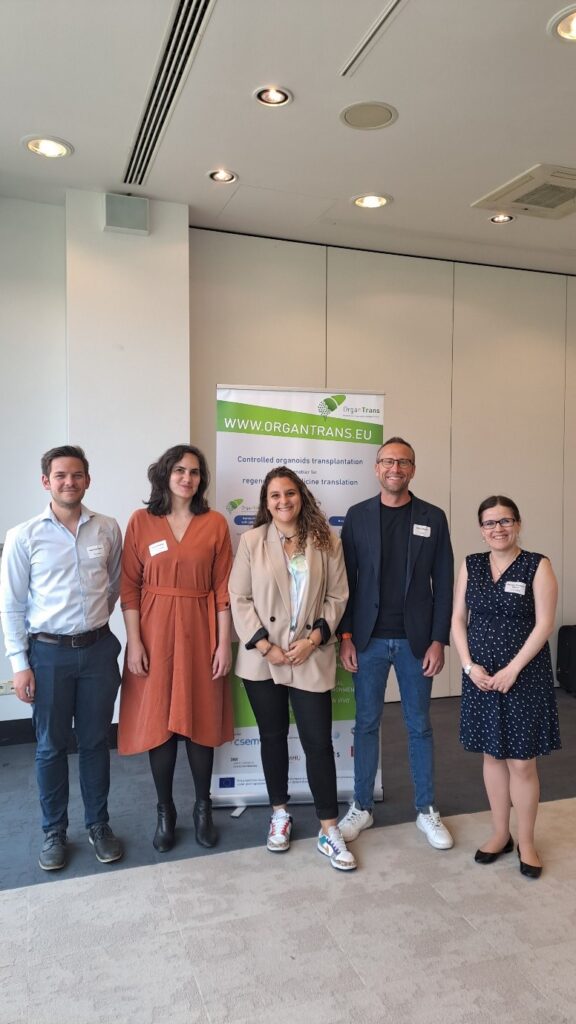
Commission puts forward €13.6B research budget for 2024, with €12.8B for Horizon Europe
The European Commission wants the EU to spend a total €13.6 billion on research and innovation next year, with €12.8 billion going to Horizon Europe. That is €400M more for the research programme than 2023, but in the face of rampant inflation the European Parliament doesn’t see this as a major increase.
Under the Commission’s proposal for the 2024 EU budget, in addition to €12.8 billion for Horizon Europe, a further €800 million for research would come from other programmes, such as €281 million for the Euratom nuclear research programme.
The largest chunk of the Horizon Europe money, €6.4 billion, will go to collaborative projects under pillar II. Funding for fundamental research amounts to €3.4 billion, of which €2.1 billion is to be distributed through European Research Council grants. The innovation pillar gets €1.66 billion, including €1.1 billion for the European Innovation Council.
All parts of the EU’s research and innovation landscape would get more money – if not more spending power – apart from ITER, the magnetic fusion device under construction in France. The project will see a €250 million cut to €556 million, “due to a slowdown of the budget implementation.” Of this, €50 million will be transferred to energy initiatives in the EU infrastructure programme, the Connecting Europe Facility.
Inflation is combining with challenges ranging from ushering in a net-zero future, to cushioning the blows from Russia’s war in Ukraine, leaving MEPs with the sense that the €189.3 billion overall budget for 2024 put forward by budget commissioner Johannes Hahn, cannot sustain the union’s ambitions.
The budget has also been hit by an increase in interest rates, with Hahn telling MEPS the cost of borrowing “almost doubled from the amount initially forecast for 2024.” This is a new type of budgetary headache for the EU, which only began borrowing in its own right two years ago, before rising inflation led the European Central Bank to increase interest rates. Based on 2020 numbers financing costs for 2024 were expected to be €2.1 billion. The latest forecast is €4 billion.
The European Parliament has been calling on the Commission to revamp the budget to ensure it is fit to deliver on policy promises. The Commission may deliver – a review of the long-term EU budget is scheduled for 20 June. While it’s unclear whether it could spell major changes, MEPs hope for the review to shake up what they see as an unsatisfactory proposal.
“For us, this is a decoy budget for next year, because the actual budget is going to come later on, in a couple of weeks,” said centre-left MEP Victor Negrescu in a discussion at the Parliament’s budget committee. “We want to see not only a review but an actual improvement that would allow us to meet people’s expectations.”
The Commission’s doesn’t see it this way. Hahn insisted the review and the 2024 proposal are separate matters. But Jan Olbrycht, chair of the budget committee, said the review and next year’s budget are “more or less two sides of the same coin.”
The member states and the Parliament will now start working on their respective positions on the budget before they convene to negotiate the final numbers in late October. But the Commission’s review of the long-term budget may shake up the budget talks and will be weighed in the negotiations.
To read the full article, take a look here!
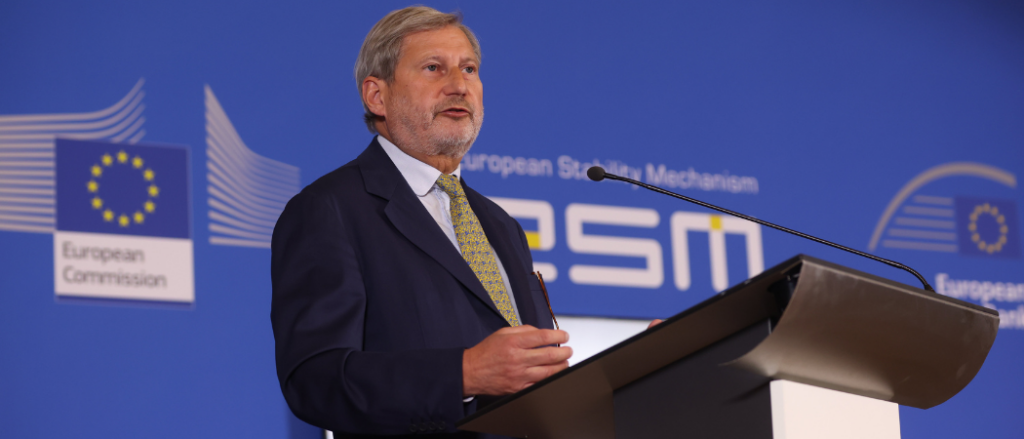
For news related to AMIRES projects, click here!
European Green Deal: EU Modernisation Fund invests €2.4 billion to accelerate the green transition in seven EU countries
Today, the European Union’s Modernisation Fund has disbursed €2.4 billion to 31 projects in seven beneficiary countries to help modernise their energy systems, reduce greenhouse gas emissions in energy, industry and transport, and improve energy efficiency. It is the joint largest disbursement to date and will provide a boost to Europe’s green transition. These investments help those Member States to reduce dependency on Russian fossil fuels, meet their 2030 climate and energy targets, and contribute to the EU’s long-term commitment to reaching climate neutrality by 2050.
Thanks to revenues from the European Emissions Trading System, additional investments were made in Romania (€1.1 billion), Czechia (€1 billion), Bulgaria (€197 million), Poland (€47 million), Croatia (€88 million), Latvia (€5 million) and Lithuania (€1 million). The amounts disbursed today bring total disbursements from the Modernisation Fund since January 2021 to around €7.5 billion, benefitting 10 eligible Member States. The projects supported today focus on renewable electricity generation, modernisation of energy networks and energy efficiency.
Examples of proposals that have received funding today include:
- modernisation of the electricity distribution grid in Bulgaria to accelerate the electrification of transport, storage deployment, and the decarbonisation and decentralisation of energy consumption and production;
- deploying photovoltaic and energy storage capacity for public water service providers in Croatia;
- improving energy efficiency and energy savings in new buildings for the public sector through the ENERGov Programme in Czechia;
- introduction of electric vehicles and corresponding charging infrastructure in Latvia;
- renovation of multi-apartment buildings in Lithuania;
- supporting cogeneration for district heating in Poland;
- new renewable electricity production capacities, district heating, and gas infrastructure to replace coal-powered energy in Romania.
The next deadline for beneficiary Member States to submit investment proposals for potential support by the Modernisation Fund is 15 August 2023 for non-priority proposals , and 12 September 2023 for priority proposals.
More information here!
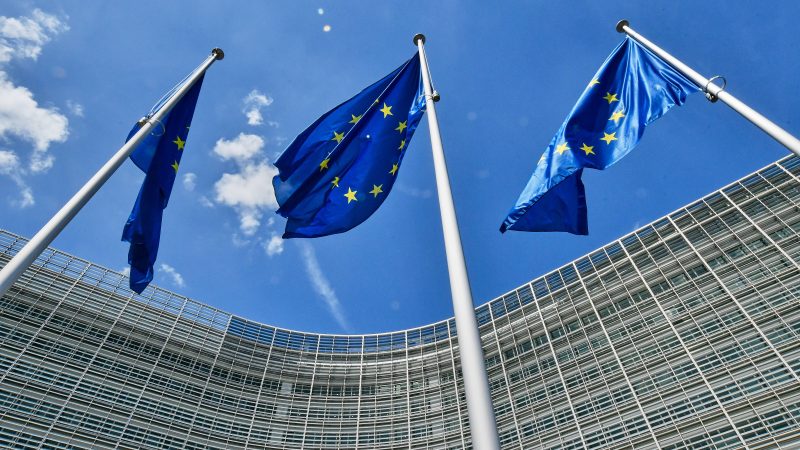
For news related to AMIRES projects, click here!
Launch of ESNA – hybrid alliance for open innovations!
Read the Press Release HERE!
 |
CONDOR Progress Meeting in Paris
On May 22-23, the CONDOR consortium met for a project meeting to share updates and align on next steps for building up a modular device for solar-driven production of energy. The all-round enjoyable visit was cordially hosted by ENGIE LAB CRIGEN at their premises in Stains, Paris. Those partners who could not make it in person were able to connect digitally so that discussions with the entire consortium could take place.
The two-days concise but vivid meeting gave the partners the possibility to get an overview of the current status of the development process of CONDOR technology. Being at Month 31, it was crucial at this point to review the specific research activities performed for both device compartments and to discuss how the outcomes can be integrated. In the coming 6 months, the partners will work on the design and assembly of CONDOR prototype. In this regard, a draft of the P&ID integrated system was presented together with an outlook for the planned activities. Moreover, the consortium discussed the device validation in the testing site, which will be on the rooftop terrace of CNR-ISOF in Bologna, Italy.
In line with the discussion hold, the partners visited the laboratory of ENGIE Lab CRIGEN. Being known for its experience in the energy transition, devoted to green gases (hydrogen, biogas and liquefied gases), new energy uses and emerging technologies, the host showed the outcomes of various collaborations. In addition to that, they presented their work for CONDOR project related the photoelectrochemical cell system for the production of syngas by co(photo)electrolysis of CO2 and H2O.
A big thank you to ENGIE Lab CRIGEN for hosting the meeting, and thanks to all our partners for joining in Paris and online for many discussions and important decisions!
Find out more about CONDOR on project website https://condor-h2020.eu/ and follow their social media channels LinkedIn and Twitter to get the latest updates.
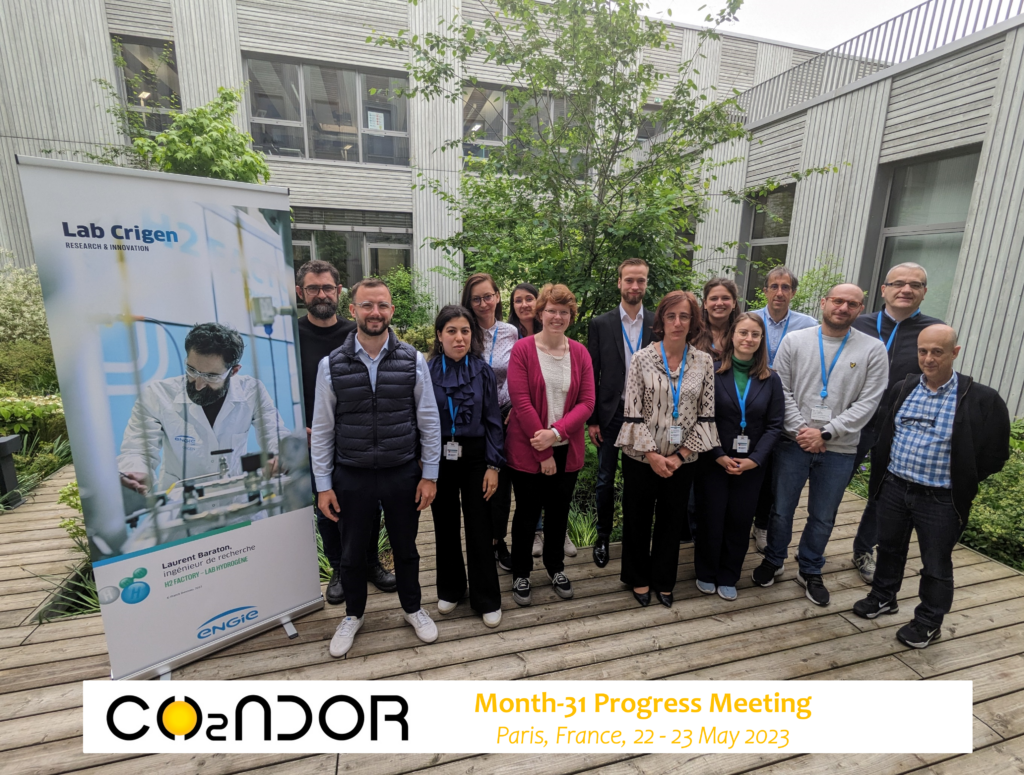
eCAP consortium makes strides towards improved diagnostics of reflux disease
On 18-19 April 2023, the first annual progress meeting for eCAP project took place in Strasbourg, France, hosted by the project coordinator – Institute of Image-Guided Surgery of Strasbourg. The consortium devoted the two days to taking stock of the progress made in the first year of the project and fleshing out the work plan going forward. eCAP ambition is to develop a novel medical device combining a smart capsule with an e-health platform to enable enhanced diagnostics and patient empowered disease management for gastroesophageal reflux disease (GERD). Therefore, leading to improved clinical outcomes for patients suffering from gastrointestinal disorders across the globe.
In the first year of the project, the consortium focused on the mechanical design of the device, steered by Tyndall National Institute. The collaborative efforts are yielding promising results: the Imagination Factory, Tyndall National Institute and EnteraSense have designed and fabricated the first iteration of the capsule and implantation device. Meanwhile, Sentron has developed a novel flow detection method for diagnosing GERD and Integer is working on maximising the battery life of the capsule to ensure longer and more accurate patient monitoring. Meanwhile, the e-health workstream of the consortium has been further strengthened by the addition of a new partner – RDS (Rhythm Diagnostic Systems).
In the coming 12 months, the partners aim to deliver the first fully functional version of the eCAP capsule and digital platform, ready for clinical validation in France. This testing will be followed by clinical trials in Ukraine and Kenya to test the universality of the approach.
AMIRES is humbled to contribute to the management and communication activities of such an international project and looks forward to hosting the consortium partners in Prague in October for the next project meeting.
Read more on project progress on eCAP website and stay tuned by following us on LinkedIn and Twitter.
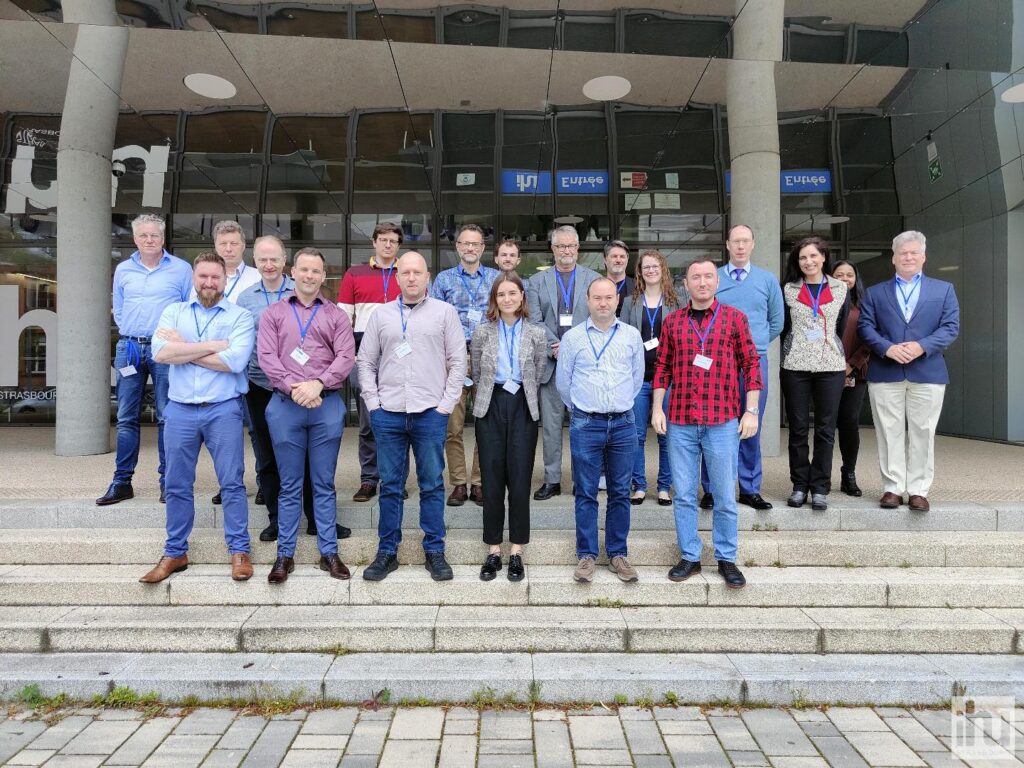
Innovative new tools for cancer research: Tumor-LN-oC project enters second half
Last week, AMIRES travelled to Finland for the Tumor-LN-oC M24 project meeting, marking the halfway point of the 4-year project. The meeting took place in Turku and was hosted by Abo Akademi University, the only Swedish-speaking university in Finland.
The meeting was an opportunity for the consortium to share updates and find solutions to shared challenges in the development of the tumor-lymph node-on chip platform. A virtual meeting with the project officer confirmed that we are well on track to achieve the project objectives and adjustments to the workplan do not negatively impact the project as a whole.
Jointly with the coordinator Ioanna Zergioti from the National Technical University of Athens, AMIRES led the presentation on project management, administration and finances. This is especially of interest since Tumor-LN-oC is the first lump sum project which AMIRES manages, which requires some additional clarifications, but ultimately gives us valuable experience when it comes to growing number of lump sum projects in Horizon Europe.
AMIRES also presented on the activities we are leading on the dissemination, communication and exploitation work. Tasks in this work package also include the project IP strategy, as well as the commercialisation roadmap which was produced by AMIRES during the last months in a second, updated version in cooperation with all the partners. The prospects for commercial exploitation of this technology look very promising, though the path to the market will be long and accompanied by many regulatory processes, necessary approvals and certifications to ensure the reliability and efficacy of the platform as a research tool and potentially, in the future, IVD device.
The formal discussions were complemented by a guided visit to the laboratories in the Turku Bioscience Centre in which local researchers presented their facilities and experimental setups, a common dinner and viewing party of the Eurovision semi-final.
Overall, we are happy to report that the Tumor-LN-oC project has made considerable progress in its 2 years of implementation: the different technological modules that are essential to the development of the platform, including microfluidics, spectroscopy, microoptics, automatic image analysis and bioprinting have been developed and optimise independently.
The second half of the project will now focus on integration of all these modules into the Organ-on-Chip platform and its optimisation with the ambition to keep the platform as user-friendly and affordable as possible, despite its complexity. The consortium will also soon start planning the validation of the integrated organ on chip platform with real patient samples, which will be a critical step in demonstrating the efficacy of the technology and its potential for clinical use.
Thanks to the Tumor-LN-oC team for their excellent work and to the Abo Akademi University for hosting us in Turku, it was a pleasure!
As we move into the second half of the project and continue with the development of the Tumor-LN-oC platform, we are excited about the potential of this technology and the impact it could have on cancer research by providing unique new tools for metastasis diagnosis, drug development and personalised medicine. We look forward to continuing our collaboration with our partners and exploring new ways to enhance this innovative technology!
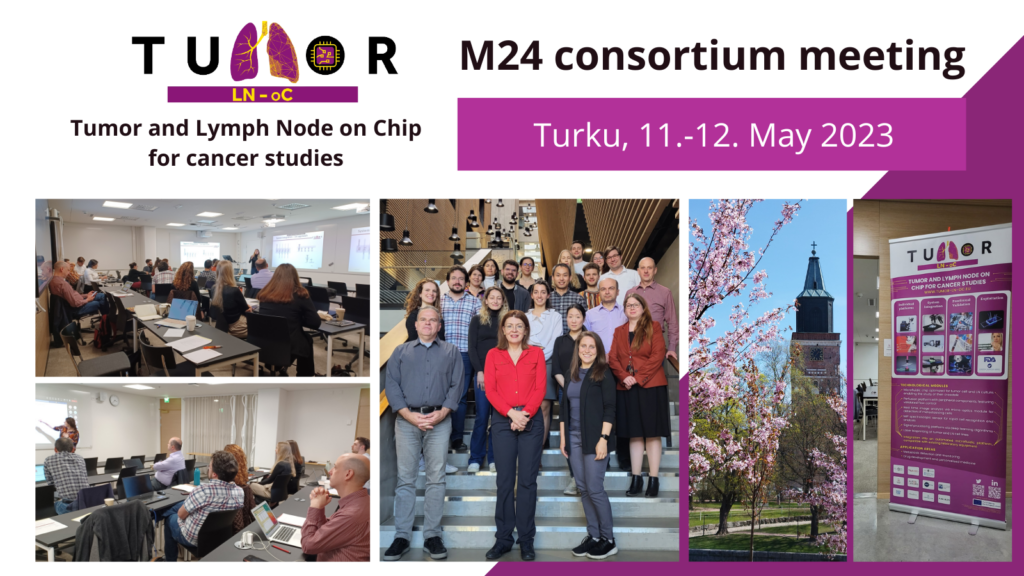
Learn more about the project and our progress so far on the website!
AMIRES was in the M42 meeting for Switch2Save!
Our colleagues, Lenka Bajarova and Vaclav Smitka, enjoyed the M42 meeting hosted by Fraunhofer_ISC in Würzburg, Germany!
It was an interesting journey, full of discussions, presentations, and feedback, between the partners.
With only few months to go, it was crucial at this point to review the technical facilities by checking the building installations and the pre- and post-installation assessment.
During the M42 meeting, the jury decided the winners of the Architectural Design Competition, and a brainstorming session took place for the final workshop. You can already save the date in your calendar for 20/9/2023!
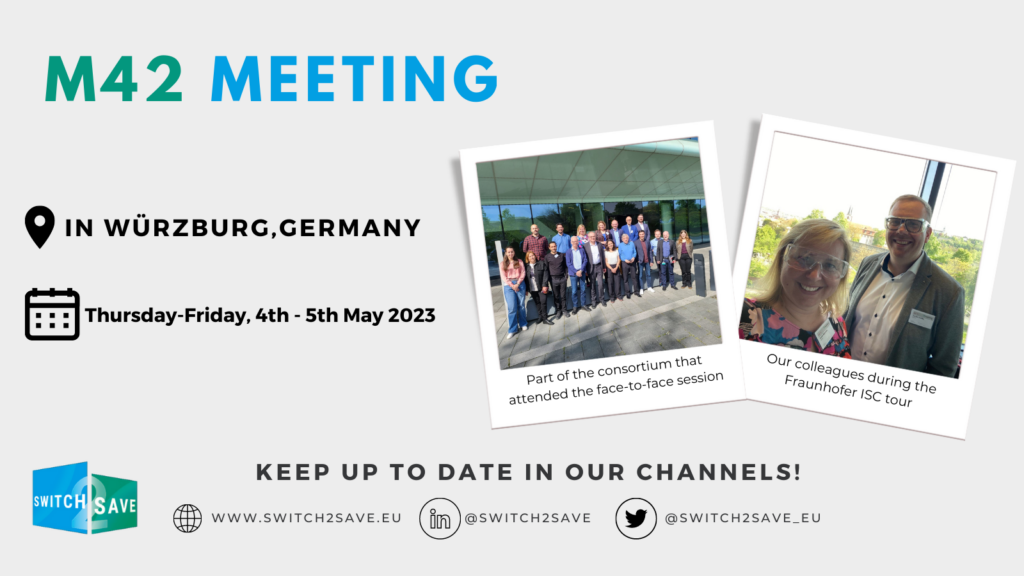
More information about the final event coming soon. Keep up to date here!
Keep up to date following S2S social media:
MARVEL project workshop | 21 April 2023, Milan, Italy
The workshop was attended by 48 experts and young investigators working in the expansive field of Extracellular Vesicles. Structured around presentations from invited speakers, the workshop aimed to maximise the exploitation potential of the developed results and to create a base for future networking and new partnerships. With this aim, participants also had the chance to participate in a round-table discussion with industrial representatives and leading researchers in this field. The round table titled “Engage & Connect: best practices on the innovation pathway” was structured around short presentations of the panellists on the current needs in their specific areas of interest and on envisioned future trends. During the roundtable discussion, the panellists emphasized the nowadays needs and trends in the EVs field from the point of view of academia, translational (clinical) research, and market.
Overall, the workshop was a success and provided an excellent platform for experts to share their knowledge and collaborate to advance the field of EVs. We would like to express our cordial thanks to all who attended the workshop and helped make this event a success. We have much pleasure in thanking our invited speakers, MARVEL partners and several organizations, in particular: CNR SCITEC ‘Giulio Natta’, CNR-ITM, Libera Università Vita-Salute San Raffaele, USI Università della Svizzera italiana, Ente Ospedaliero Cantonale (EOC), HansaBioMed Life Sciences Ltd, Paperdrop Diagnostics and Amires for their support and the very efficient help during the symposium.
The organizers gladly acknowledge also many other local people from CNR SCITEC ‘Giulio Natta’ where the event took place, in particular scientific organizing committee (Marina Cretich and Alessandro Gori), local organizing committee (Paola Gagni, Greta Bergamaschi, Roberto Frigerio) and communication and dissemination manager (Yevhen Horokhovatskyi), who helped with the organization and ensured that in all instances the formal steps went smoothly.
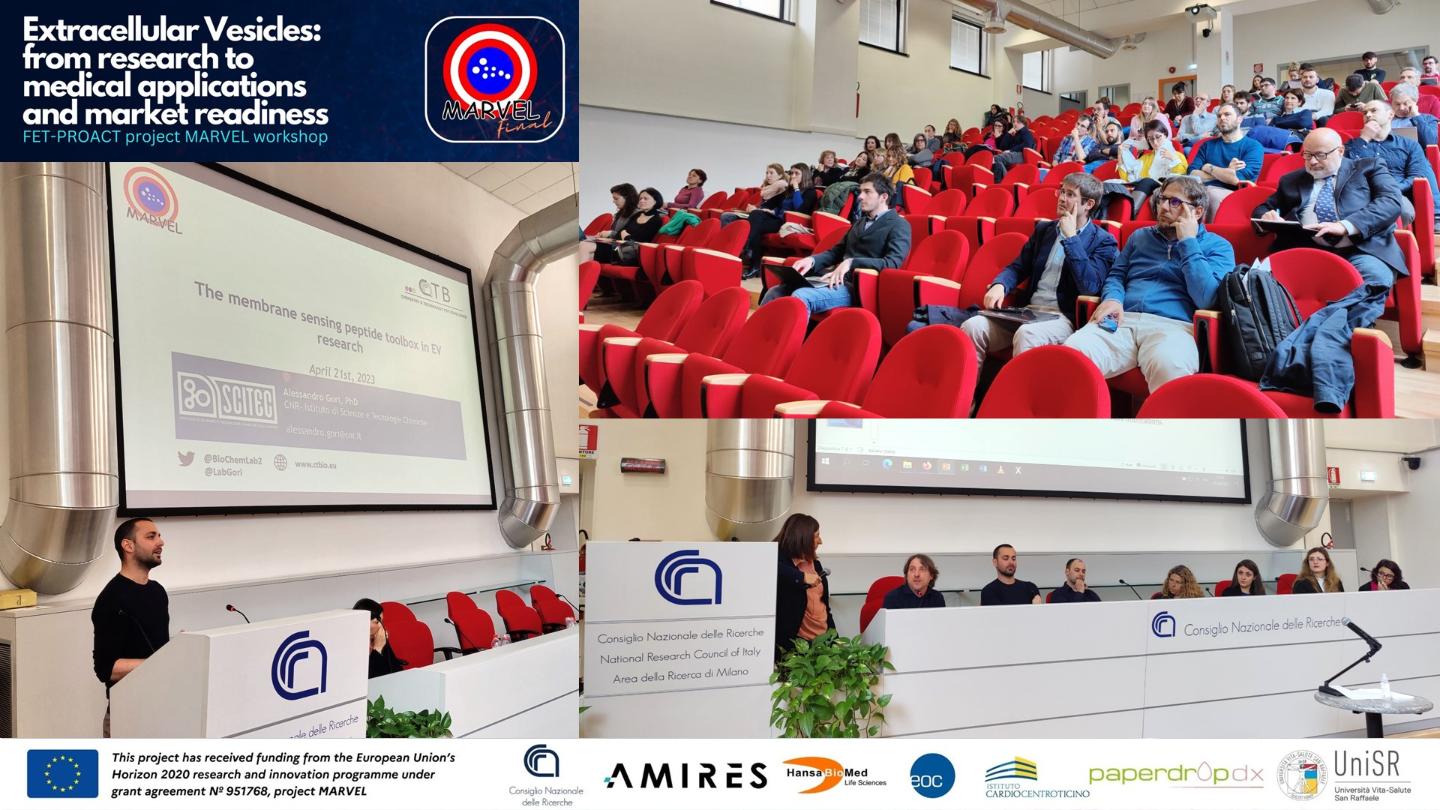 |
MARVEL project – final
On 20th April 2023, MARVEL project partners (SCITEC-CNR, ITM-CNR, Istituto Cardiocentro Ticino, UniSR Università Vita-Salute San Raffaele, HansaBioMed Life Sciences, Paperdrop Diagnostics SL, Amires) met for the final MARVEL meeting in Milan, Italy, hosted by the project coordinator, SCITEC-CNR. This was a unique opportunity to meet in person again and share the vast amount of experimental results obtained by the MARVEL team over the past 30 months, as well as decide further strategy for the exploitation of the developed technology.
Preface
The idea of the use of extracellular vesicles (EVs), specifically exosomes, as biomarkers, carriers, and therapeutic agents has been well demonstrated in different researches, leading to the explosion of interest in EVs in the early 21st century. Nevertheless, to be able to use EVs for clinical research or therapeutical development the EVs must be separated from multiple contaminants, often of similar size and/or density. Apart from this, a particularly arduous task is to move the isolation of specific EVs subpopulations beyond the analytical scale and towards scalable processes.
MARVEL story
MARVEL was an ambitious, multi-actor project, gathering 6 European partners and funded by the EU’s research and innovation funding programme – Horizon 2020 for 30 months under the support of the European Innovation Council. The project started in November 2020 and finished in April 2023. For the 30 months of the project, MARVEL has implemented various approaches to overcome bottlenecks in extracellular vesicles isolation to scale up the process beyond the analytical. For this purpose, MARVEL’s team employed a new technology for reversible isolation implemented with membrane-sensing peptides. This represented a paradigm shift from antibodies to peptides as an alternative class of affinity ligands characterized by the high efficiency of extracellular vesicles capturing.
Summing up the 30 months of the project’s implementation, it is worth saying that the achieved results were perfectly aligned with the planned objectives. To achieve these objectives, the project was divided into several stages. The first stage was dedicated to the analysis of technical requirements and specifications as well as the selection of the criteria for the system demonstration. In addition to this, specific attention was given to the biological sample’s parameters, their selection, and processing.
During the second stage, a strong focus was given to the development of new affinity peptide ligands that outclass antibody-based isolation methods in terms of capturing efficiency, versatility, and cost-effectiveness. The third stage focused on the integration and optimization of the developed technology into several systems and clinical environment testing, leading to ground-breaking innovations for extracellular vesicles deployment in cardiac repair and the non-invasive diagnosis of bladder cancer. Moreover, our consortium agreed to perform additional research analysis on the characterization of the isolated extracellular vesicles. This step led to a more precise evaluation of the effectiveness of the MARVEL multifaced and versatile platform for scalable extracellular vesicles isolation.
Finally, since the MARVEL platform can be scaled to other systems, the fourth stage of the project was focused on further plans and actions for the commercial exploitation of knowledge and MARVEL technology after the project ends. Thus, the story goes on, see us soon!
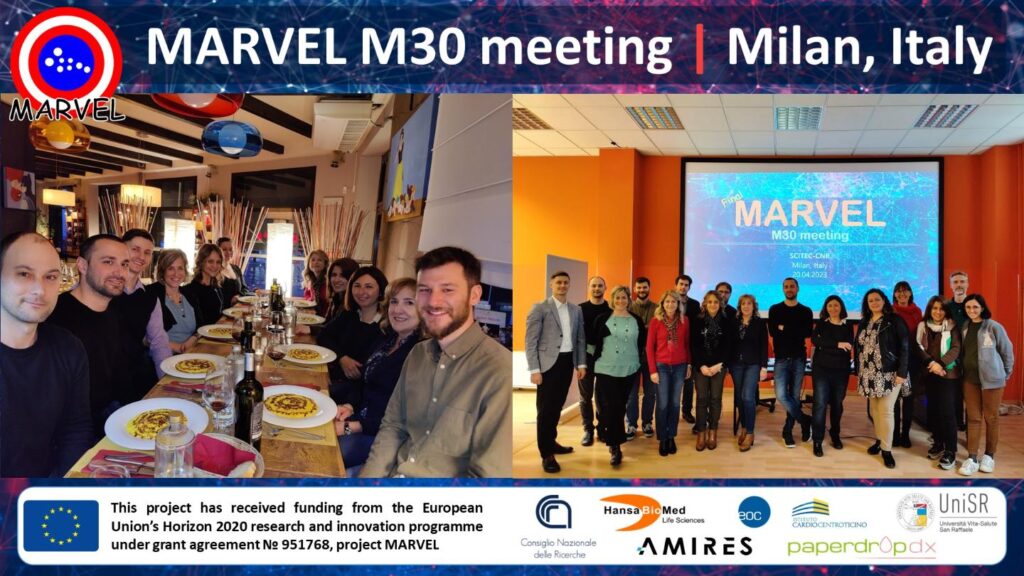
AMIRES has been on teambuilding!
We are sorry we have been out for three days, but we were in Šumava National Park enjoying nature, working and having fun! It was a great experience where we combined working sessions and hiking.
These working sessions were led by our CEO, Rudolf Fryček, and divided in teams. We had useful time for presentations and discussions. Also, we had enough time to play the guitar, bowling and card games.
We have recharged our batteries and we are ready for everything that lies ahead. We cannot wait for the upcoming projects, the next meetings and following events!
In the pictures below, you’ll find out some of our activities and why AMIRES is the smiling company.
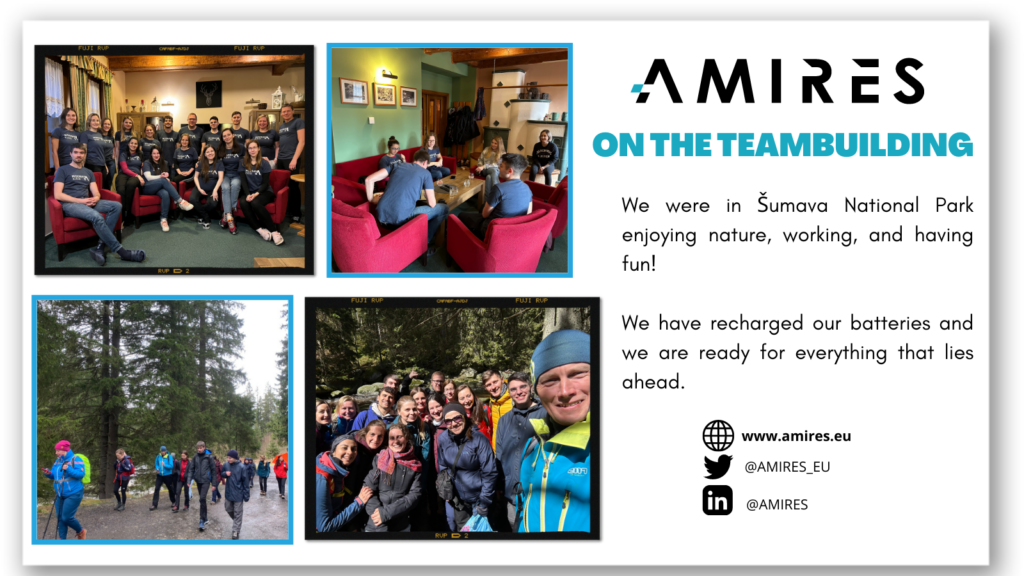
Kick-off meeting of the Qu-Test & Qu-Pilot!
We are glad to welcome in our AMI portfolio the Qu-Test & Qu-Pilot projects. These Quantum projects will support pilot production capabilities, open testing and experimentation for quantum technologies in Europe.
From the 19th -20th of April, AMIRES hosted the kick-off meeting where more than 80 quantum key leaders met in Prague, including the European Commission Project Officer, Christian Trefzger, PhD, who has presented quantum projects contribution to EU quantum roadmap.
The setup of the Quantum Testbed and Pilot line were the key topics of this first meeting.
You can watch the highlights from the kick-off meetings in the video below!
Keep up to date on QU-TEST & QU-PILOT page to know more about our quantum projects that have just started! Discover more about our projects here!
AMIRES at Hradec Economic Days 2023
AMIRES was invited to the HradecEconomicDays2023 on April 14, 2023 hosted by the University of Hradec Kralove in the Czech Republic. AMIRES Health & Biotech programme manager, Dr. Mariana Pacheco Blanco, participated as a panellist during the Technology transfer session, chaired by Prof. Ondrej Krejcar.
Mariana presented the opportunities from Horizon Europe (HE) for funding research and innovation projects in the Health/Biotechnology sector, as well as how AMIRES can support organisations in preparing competitive proposals.
Many upcoming calls from HE in the health cluster with a deadline in Fall 2023 are organised as two-stage evaluations and with a new type of grant: lump sum grants. There are some small but significant differences between a conventional grant type and the lump sum, and those also impact in the way the project has to be designed during proposal preparation. AMIRES has experience in the lump sum proposal preparation in HE for other clusters. In addition, AMIRES counts in its portfolio of a running project (TUMOR-LN-OC) which is part of the H2020 lump sum pilot programme.
From the other presenters, the attendees could learn about the programmes to support Czech companies for funding their R&D (Research and Development) activities, for example. through Czech invest and to researchers and other organisations through the Technology Agency of the Czech Republic (TACR) grant programmes. The second part of the session featured successful stories in the knowledge and technology transfer, and their funding search experience, with speakers from Prague Bio, an incubator and innovation centre, Spadia laboratory, one of the largest diagnostic providers in the Czech Republic, Malaysia University and the venture for skin care, She Empire company, as well as TRILAB Czech 3D printing company.
After the sessions, a networking lunch took place in which the speakers could interact between each other and with the other participants.
We are looking forward to next year’s conference to learn more about successful technology transfer!
Visit our website to know more about the upcoming events!
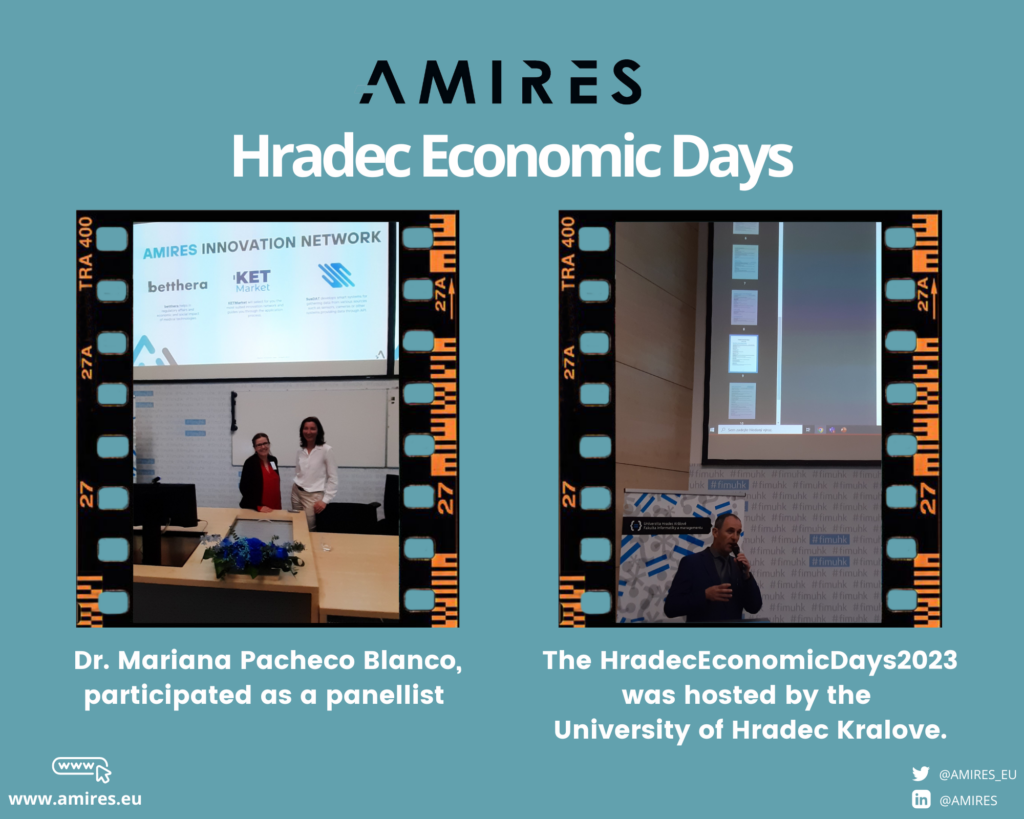
FRIENDSHIP presented at « BePositive »
This is a national event in the energy and sustainable building sector with 4 exhibition sectors: new energy systems, energy in buildings, building solutions and wood energy.
During the event, one of our partners, Pierre Dury from INES – PFE, presented results that were generated in the framework of FRIENDSHIP, in a speech entitled: “SOLAR HEAT IN INDUSTRY AND SOLAR DISTRICT HEATING: A VECTOR OF SAVINGS AND DECARBONISATION”.
The presentation arose the interest of more than 40 professionals attending the meeting, who asked several questions.
|
|
Regenerative medicine in the 3rd edition
Did you know that we are already organising the 3rd edition of the Regenerative Medicine Workshop? However, the story begins earlier.
The first edition took place as an intensive Virtual Regenerative Medicine Workshop “FROM LAB TO CLINIC”, which took place on 28 April, 2021. Together with speakers more than 80 people attended this event.
The second workshop was organised on 12 October 2022 in Prague under the motto “From project to market”: Paving the way towards real world impact of European Research and innovation. Around 50 participants discussed, among others, the importance of Health Technology Assessment for the economic and social impact of new therapies, medical devices and emerging technologies.
The third workshop will take place on 1st of June in Prague. It will bring together different EU-funded projects, initiatives, companies and researchers to exchange outcomes and experiences in the development of innovative technologies in the regenerative medicine field. It is the perfect opportunity to learn more about relevant technology trends and interests of the key players in this field.
Registration is now open! Take a look here!
Find out more about the REGMED story and for the 3rd edition REGMED2023 workshop in Prague
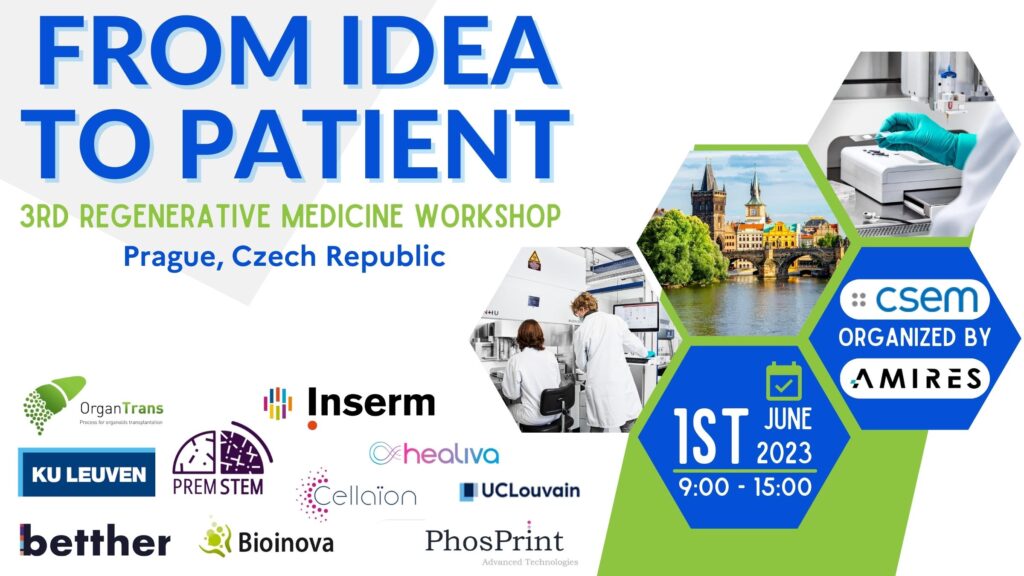
Switch2Save smart windows now being installed in Sweden and Greece
Lightweight, switchable and smart glass technologies can significantly improve the energy management of buildings with large-area windows and glass facades and contribute significantly to reducing energy consumption for heating or cooling. Improving the availability and cost efficiency of such smart glasses and the corresponding manufacturing processes is the declared goal of the EU-funded Switch2Save joint project. The project partners are now on the finish line and have installed the first electrochromic insulating glass units to demonstrate and test the potential energy savings in a Swedish office building as well as in the demonstration site in Athens.
The project led by Fraunhofer FEP was launched in 2019 and in the meantime, prototypes of novel switchable windows have been developed. These windows can be retrofitted in existing buildings to support the energy efficiency of heating and air conditioning systems. The new solution is characterized by its ability to integrate different types of optically variable smart coatings into a building envelope. The partners Chromogenics AB from Sweden and the Fraunhofer Institute for Silicate Research ISC have developed novel electrochromic coatings for this purpose. These enable a window to be switched between a dark and a clear state. Fraunhofer FEP and the University of West Bohemia Pilsen have realized a roll-to-roll deposition process for thermochromic vanadium oxide. This material leads to a self-sufficient regulation of the transmitted thermal radiation depending on the outside temperature. The use of roll-to-roll technology also supports the development of cost-efficient manufacturing. Both types of these smart coatings can be produced on lightweight, flexible substrates such as ultra-thin glass and PET films.
Two buildings with different climatic conditions in Greece and Sweden were selected for the project. In Sweden, in the Vasakronan owned Rental Office Building in Uppsala (VAS), the Switch2Save consortium have already replaced 50 windows and 200 m² glass façade area with the smartglass solution and is performing a full “before-after” comparison of the energy demand. In Greece, the installation is at this moment done at the test site at National Technical University of Athens. Later, it would be installed in late spring in the General State Hospital of Nikaia Agios Panteleimon (NHOSP). All the findings will accelerate the widespread implementation of energy smart glass and significantly contribute to the goal of a CO2-neutral building stock in the EU before 2050.
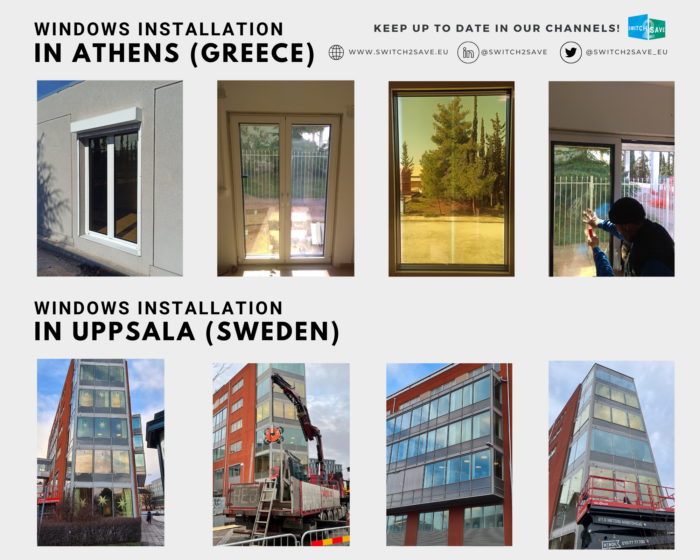
As the project will finish at the end of September 2023, its results and real time installations will be presented during a final workshop, that will take place on September 21st in Athens, Greece.
Follow the LinkedIn project page !
Keep up top date to all AMIRES projects here!
MedPhab successful second review meeting
On March 29, MedPhab completed the second EC review meeting since the start of the project in January 2020.
During this meeting, achievements and highlights of the pilot line during the last 18 months were presented to the EC Project Officer (PO) and three experts who evaluated the progress as external reviewers. The main topics included: a) the progress of the pilot line operational processes through the Front Office and the aligned way of working of the pilot line, b) the technology maturation through the use cases and the external demo cases, c) the progress on the engagement with external companies through the open calls, d) dissemination to stakeholder groups within the medical community, e) growth of the ecosystem through the community management platform (https://community.medphab.eu/ ) and interactions with other EU initiatives and pilot lines (e.g. PhotonHub) and f) the business planning, through a sustainability model of a non-profit association, which has launched the commercial website (https://medphab.com/ ). In addition, on the frame of the review, two of the external companies (Spectracure and Femtoarrays) that had participated as demo case,s were interviewed by the Project officer and reviewers. Overall, they have been fully satisfied with the services received from MedPhab pilotline.
The pilot line has encountered some challenges, including technical and changes on the consortium. However, mitigation strategies have been implemented successfully. During an open discussion, the reviewers and PO have acknowledged and congratulated the consortium for the progress during this period. They appreciated the openness and transparency of the consortium and the dedication of partners and coordinator, Prof. Jussi Hiltunen. The positive evaluation of this panel from the European Commission, strengthen the motivation and efforts to continue the work on the MedPhab photonics pilot line dedicated for medical diagnostics.
ABIMI is very happy in contributing to this successful story!
Know more about our projects in our website!

MEET OUR TEAM: MARCO MESSINA
We are thrilled to introduce our new colleague Marco who joined AMIRES team as a Project Manager in April 2023. After obtaining his bachelor’s degree in International and Diplomatic Affairs at University of Bologna, Italy, Marco obtained his Master’ degree in International Relations at University of Bologna.
Before joining AMIRES, Marco has worked in a Public Administration, in the South of Italy, as a support for the programming and planning of public projects, as well as their management, monitor and control.
Marco likes to spend his free time with friends and play different kinds of sports, mainly football and volleyball, which he has played since he was a child. Also, he likes watching movies and listening to music. Finally, when able to, he likes to travel and discover new places.
In AMIRES, Marco is supporting the Deep Tech team and will be involved in RoLA-FLEX, Next-2Digits and ECOBALLIFE projects.
Welcome on board Marco!
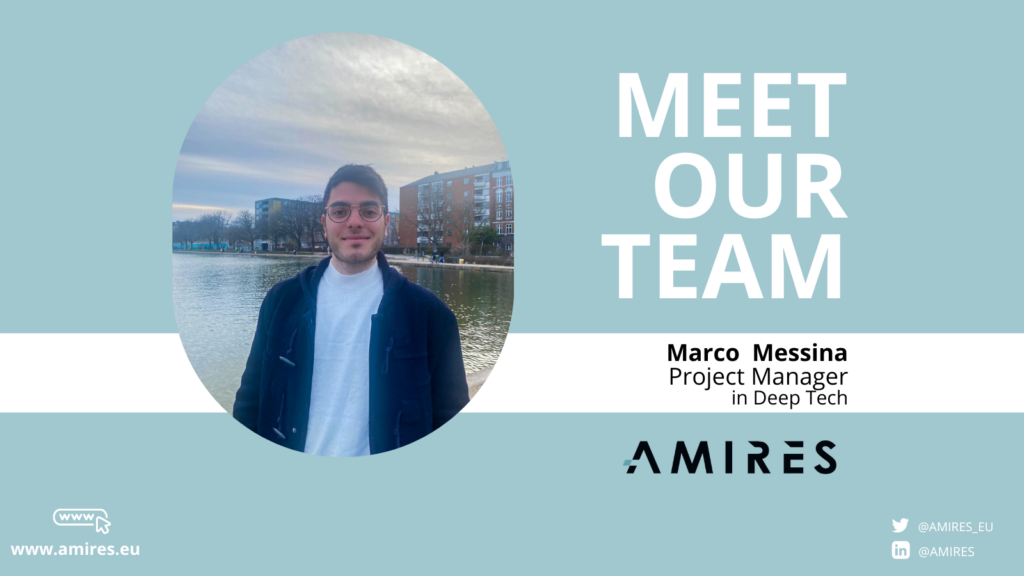
Last cut-off of open calls on the MedPhab demo cases programme
Last chance for SMEs and companies to take part on the MedPhab demo cases programme.
AMIRES leads the application procedure and helpdesk of MedPhab open calls for the demo case programme. Do not miss the opportunity to receive high quality services in the development of medical devices using photonics technologies in the last cut off on April 30 2023.
This is the last chance you can receive up to 75% support of the funding of these services from the EU budget.
For more information please visit Open-Call Medphab post or contact our helpdesk here!
To know more about MedPhab project, click on the following link!
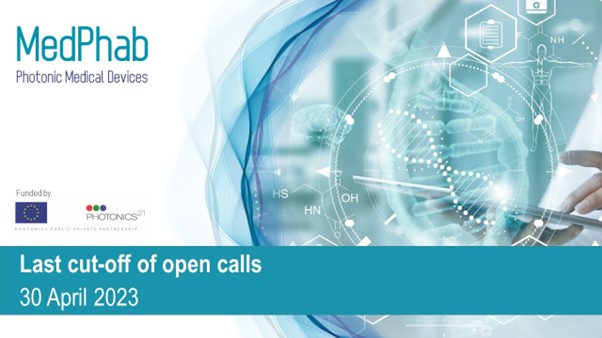
AMIRES will participate in Hradec Economic Days
We will be presenting at Technology transfer workshop.
The session is held on 14 April 9:00 at the room J1. Participation in the session is free of charge and takes place in the building of the Faculty of Informatics and Management of the University of Hradec Králové.
Our colleague Mariana Pacheco Blanco will speak at the conference about the current Horizon Calls.
You can check the agenda on the following link, so you don’t miss a thing 😊
Looking forward for it!
Know more about our upcoming events!
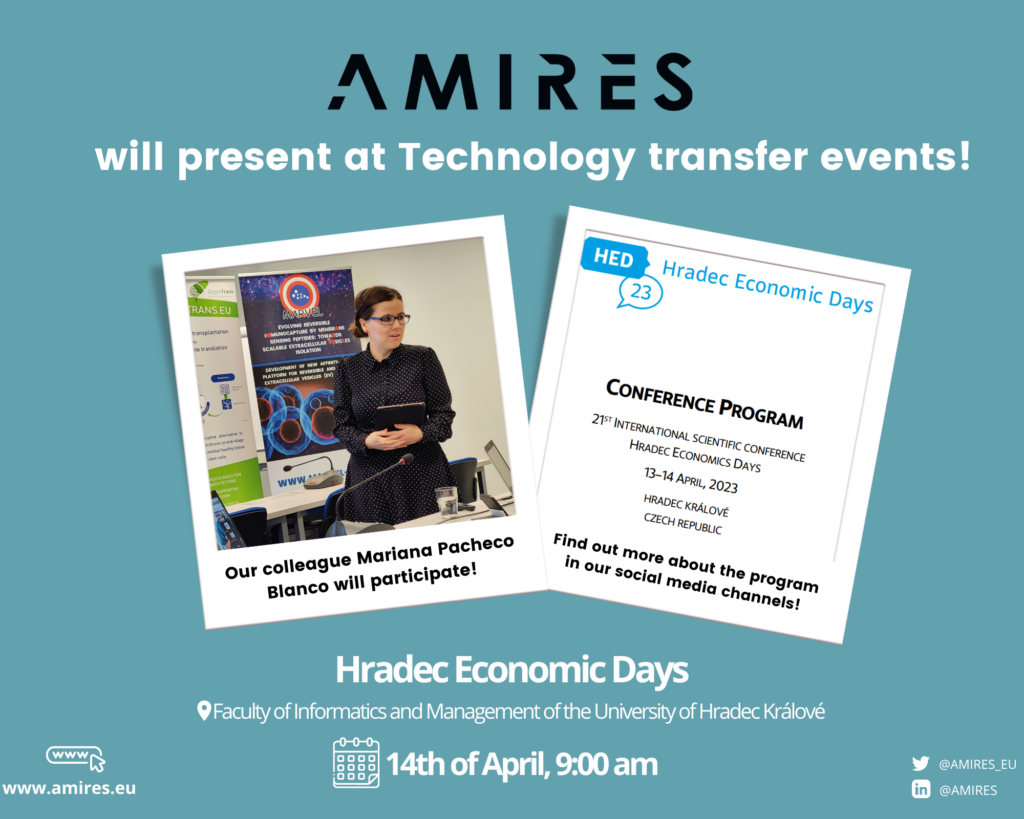
FlexFunction2Sustain in M36: what has been done?
As a step in the establishment of the Ecosystem, ESNA –European Sustainable Nanotechnology Solutions Association has been registered. Created as non-profit association according the French 1901 Law of Associations with a place of business in Paris, France, the association will closely interact with for-profit independent companie(s) who will commercialise the results created in the framework of the OITB activities. The Single Entry Point (SEP) will provide an easy access point to the services of the OITB partners for the customers worldwide, with a main focus on the European Union market. SEP will be selected through a tender procedure which will be launched in the upcoming days.
Discover more about FlexFunction2Sustain project and its main advancements HERE.
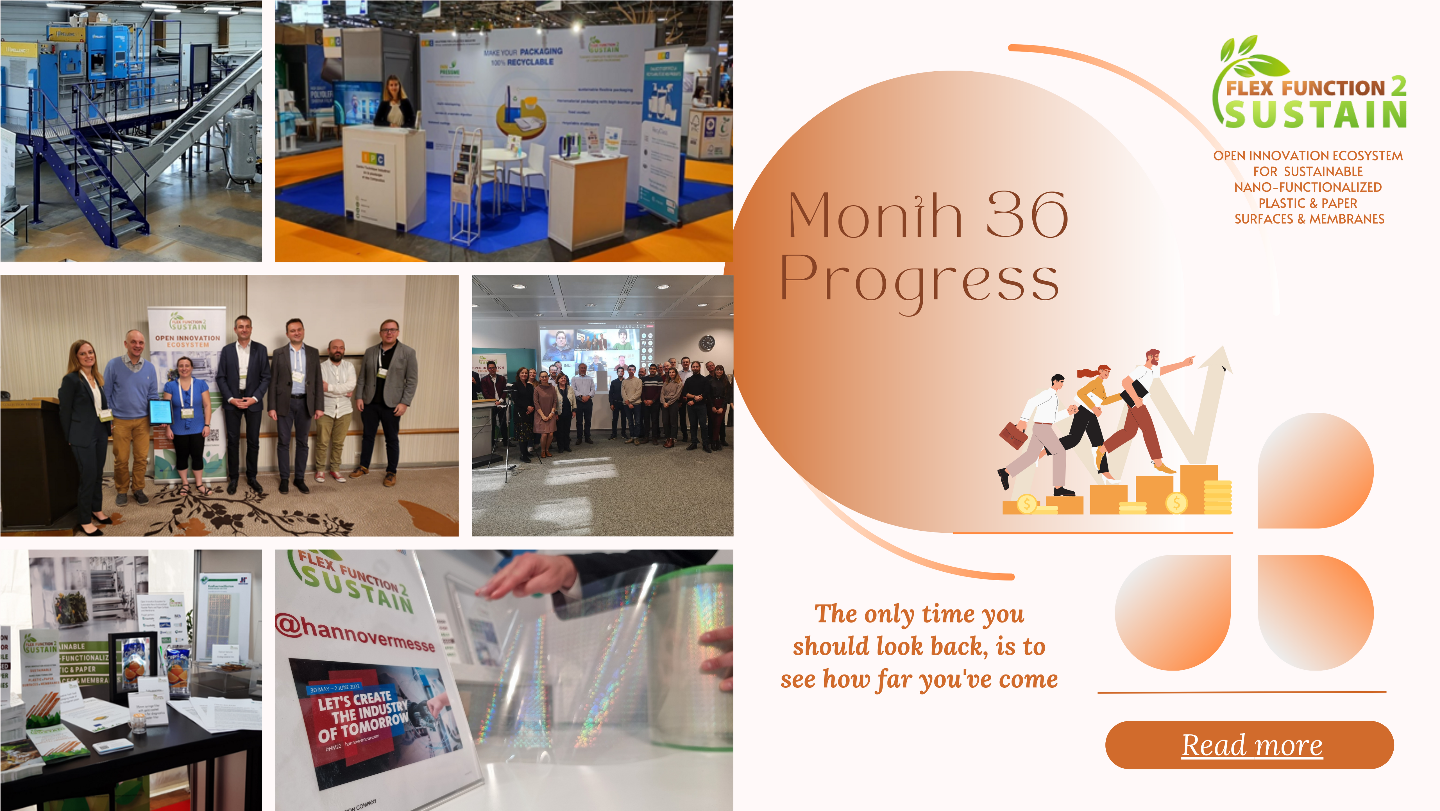 |
A new group of deep tech start-ups to receive Accelerator investments with increase in women-led start-ups
A new set of 32 companies have been selected to receive European Innovation Council (EIC) funding, combining grants and equity, following the first 2023 EIC Accelerator cut-off in January. They were selected out of applicants that applied for the Accelerator Open call. This first cut-off in 2023 did not include the EIC Accelerator Challenges calls. 40% percent (13 of the 32 companies) have a female CEO, CTO (Chief Technology Officer) or CSO (Chief Scientific Officer) which is the highest share to date.
The companies were selected in a highly competitive process, in which 159 companies were interviewed by juries of experienced investors and entrepreneurs, out of a total of 476 applications. The 32 selected companies will together receive close to €196 million of funding in a combination of grants and equity investments. The equity investments will be made through the EIC Fund. The selected companies have a geographical spread spanning 14 countries. 94% of recommended funding is for beneficiaries in EU Member States, of which 17% is for widening country applicants.
While the blended finance (grants combined with equity investments) recommendation remained broadly the same as in recent cut offs (53%), grant first recommendations rose again (38%) with grant only moving in the opposite direction (9%).
More information pin the EIC website!
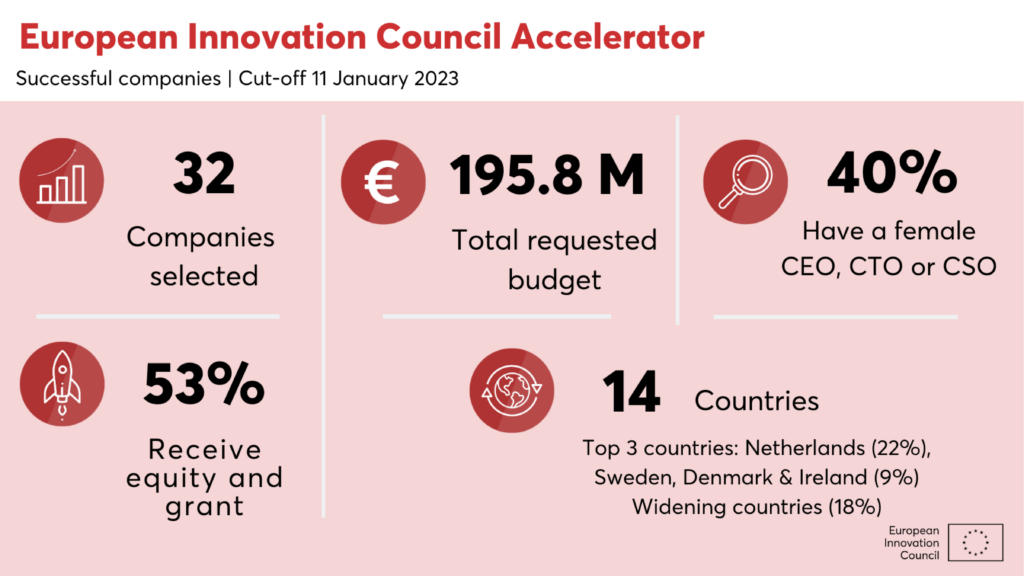
The Quantum Future Begins in Prague
These projects open up new applications in the fields of metrology, imaging, secure communication, and highly complex calculations by supporting SMEs of the quantum supply chain with experimental production and open testing for quantum technologies in computing, communication, and /or sensing in Europe. Renowned quantum scientists will gather in Prague to build upon their spectacular achievements in quantum research:
- In the Qu-Pilot, they are aiming to develop and provide access to the first, federated European production facilities for quantum technologies, linking together existing infrastructures in Europe.
- The network of the Qu-Test will support the creation of a trusted supply chain through the validation of quantum devices, chips, components, and systems by the testbed network as an independent third party.
Both projects are intended to cater to the needs of the industry and support it via Open Calls, thus boosting EU’s position in the quantum race.
Involved partners: VTT (FI); TNO (NL); IMEC (BE); CEA (FR); AIT (DE); FBK (IT); FhG (DE)- (departments: HHI, IAF, IOF, IPMS, INRIM); CSIC (ES); SHP (DE); ABIMI (CZ); IFAG (DE); IQM (FI); QILIMANJARO (ES); Thales Alenia Space (IT); CRYOHEMT (FR); Lab14 (DE); LUXQUANTA (ES); QUANDELA (FR); THINKQUANTUM (IT); Diatope (DE); MAGCAM (BE); PTB (DE); INRIM (IT); LNE (FR); OBSPARIS (FR); IOTA (FR); IFAT (AT); QUANTWARE (NL); SILENT WAVES (FR); ALICE & BOB (FR); Alea Quantum (DK); AUREA TECHNOLOGY(FR); Single Quantum (NL); exail (FR); QUANTUM OPTICS JENA (DE); SENER (ES); and CRYOCONCEPT (FR).
Download the full press release HERE.

|
|
European Prize for Humanitarian Innovation: first edition kicks off
The prize will be awarded to organisations and companies that are developing technology to deliver better quality humanitarian assistance to vulnerable people affected by crises and natural hazards.
The Commission launched the first edition of the European Prize for Humanitarian Innovation (InnovAid) at the European Humanitarian Forum, on 21 March 2023.
The European Prize for Humanitarian Innovation (InnovAid), supported by the European Innovation Council (EIC) under Horizon Europe, recognises the European actors that have developed game-changing and lifesaving technological solutions which have enhanced the efficiency and cost-effectiveness of humanitarian response. The prize is aimed at incentivising change and inspiring other humanitarian actors to scale up actions and foster innovation.
Know more about it in the European Innovation Council website!
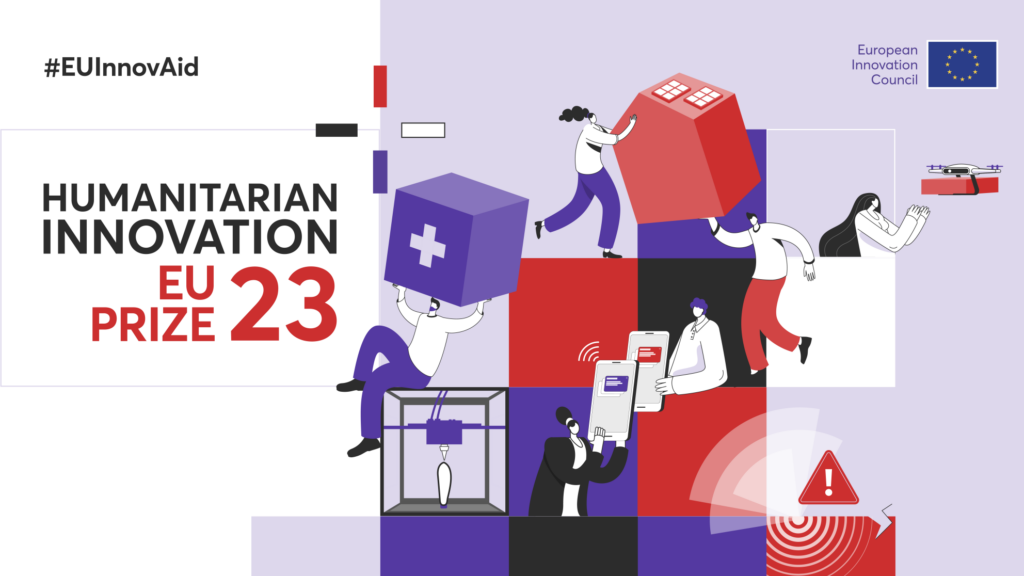
Commission supports 151 reform projects in Member States to strengthen resilience and competitiveness
The Commission has approved a new round of 151 projects under the Technical Support Instrument (TSI), to support all Member States in preparing, designing and implementing up to 326 cutting-edge reforms in 2023.
The supported projects respond to a reform need expressed by Member States while being strongly aligned with the European Union’s priorities for modern and efficient public administrations, sustainable growth strategies and resilient economies.
Many reform projects are also linked to the challenges of the Recovery and Resilience Plans and the REPowerEU Plan.
Read the full article in the European Comission website!

LOPEC: the perfect place to experience the future of printed electronics
We were lucky to take part in the event and the key benefits of our participation can be summarised as follows:
- Projects’ dissemination and impactful outcomes
Great achievement that needs to be mentioned is the smart-ski, which was successfully developed within the Horizon 2020 project Smart2Go (where AMIRES was involved in the project management, dissemination and exploitation activities), was awarded as Best Publicly Funded Project Demo category at the OE-A Competition 2023. Combined with the high laboratory-based reliability and validity of the PyzoFlex® prototype, the developed technology aims at providing skiers with relevant information about the skis’ condition as well as performance feedback which has a positive impact on both the safety of the skier and the product lifetime. For further information for the large potential for the smart system integration as a turn-key solution for energy management of wearables can be found on Smart2Go project website (HERE).
- LOPEC 2023 Start-up Form
- New ideas and knowledge sharing
LOPEC is, indeed, the perfect place to experience the future of printed electronics.
Looking forward to LOPEC2024!
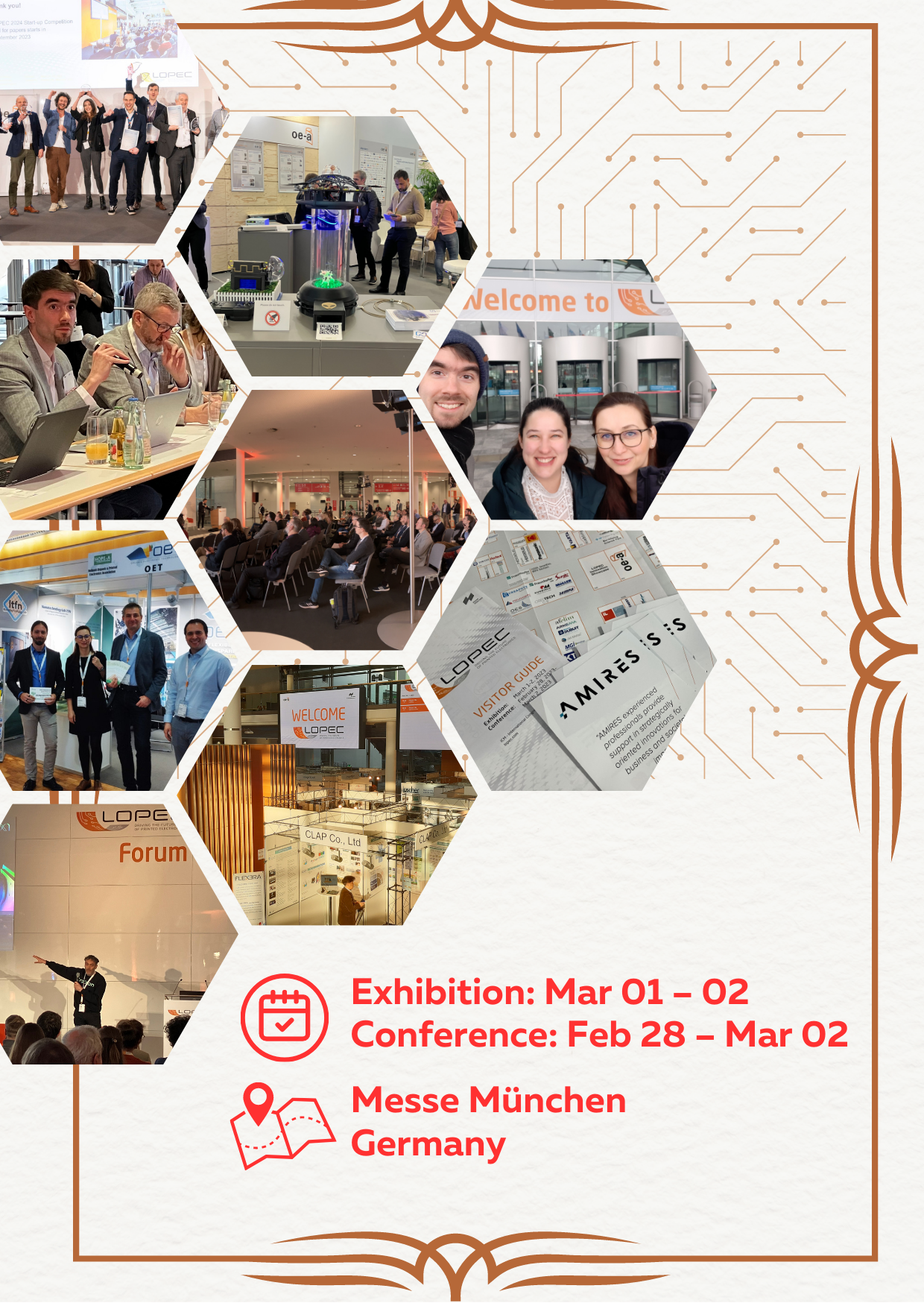 |
MARVEL project | Meet our partner HansaBioMed Life Sciences
Today, we would like to introduce one of our partners, HansaBioMed Life Sciences Ltd. The company is entirely dedicated to the research and development of products in the field of exosome sciences. Their mission is to develop and commercialize proprietary platforms, kits, reagents, and equipment for exosome research in the Life Science market. HansaBioMed collaborates with various international research groups, both Academic and Industrial, and participates in research projects, such as the MARVEL project.
Watch an INTERVIEW with one of the HansaBioMed representatives Dr. Natasa Zarovni to know more about HansaBioMed, their involvement in the MARVEL project and current challenges and horizons in Extracellular Vesicles research.
|
|
FRIENDSHIP: Publication on one-dimensional ejector model for mixtures!
The paper, One-dimensional mathematical modeling of two-phase ejectors: Extension to mixtures and mapping of the local exergy destruction, was written by SINTEF and it is based on the research work on innovative ejector chillers for cold production, done in the framework of FRIENDSHIP.
The article addresses the knowledge gap on the efficiency of ejectors operating with mixtures, by presenting a one-dimensional ejector model for mixtures. The authors also present new experimental data for ejector operation with CO2 that improve the model as well as critical mass flow rates and pressure lifts from experiments reproduced within 3%.
Congratulations to the authors!
|
|
ComBioTES public deliverable about Energy Management System is on air!
One of ComBioTES` objectives is to develop a modular-based intelligent optimal energy management system (EMS) algorithm based on a data-driven approach, with each module carrying out certain functions, e.g., control, communication, data management, modelling, forecast and optimal decision-making.
The developed algorithm will optimally manage and control the energy flows of the compact thermal energy storage, to meet a number of operational objectives simultaneously, e.g. meeting end users‘ comfort requirement, operating the system at minimum cost and using its flexible storage capacity to provide various electricity grid operation needs, like peak load reduction, reducing renewable energy curtailment and grid balancing.
DTU wrote a public deliverable containing explanation and requirements of the EMS architecture, each module and specification of modular interfaces, in order to guide the EMS development and implementation. An MPC-based control architecture is also presented, as an illustration of the minimum requirement.
Download the deliverable here!
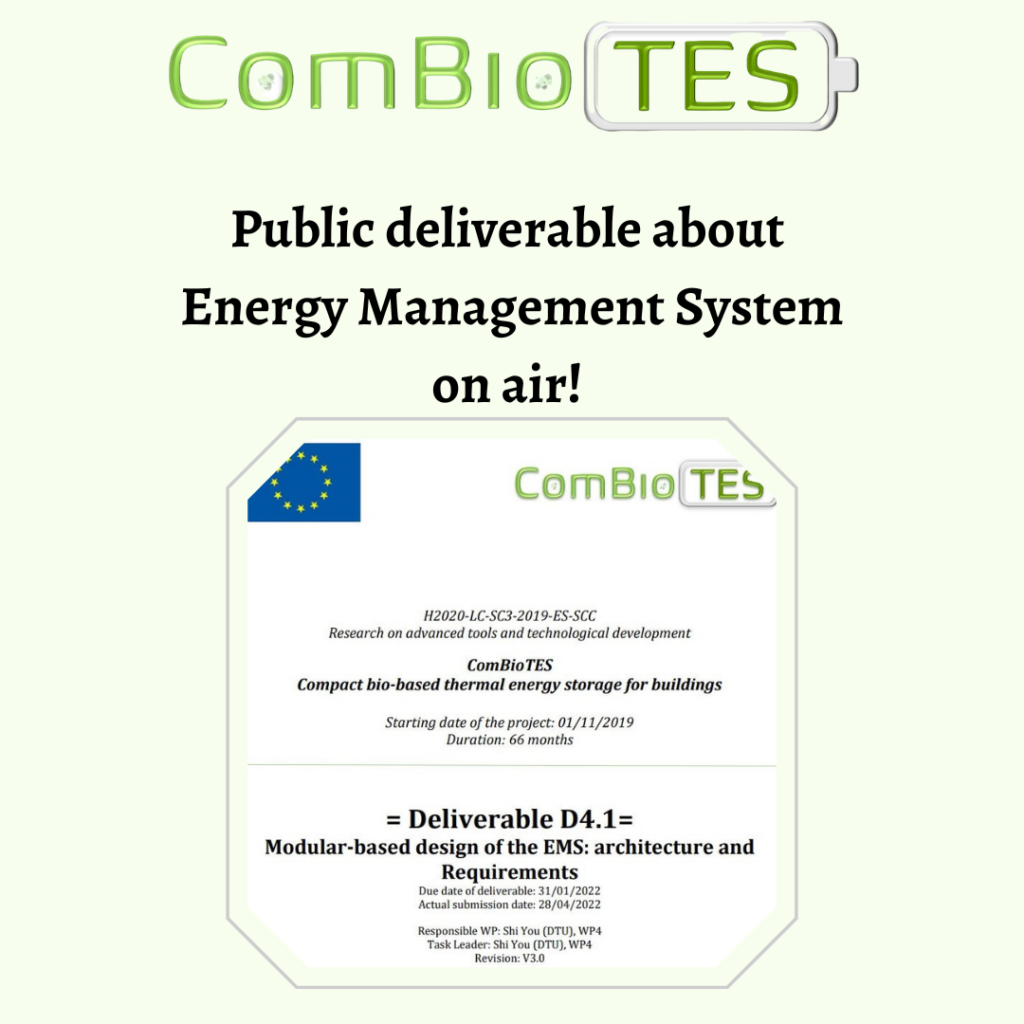
FlexFunction2Sustain Progress Meeting in Freising
With only a year to go, it was crucial at this point to review the technical facilities by checking the statues of the machine upgrades and their interconnection with the ongoing use cases. Among the achievements highlighted during the meeting was the upgrade of REMIX Pilot line and its accreditation for PP flexible film recyclability evaluation as well as the upgrade of BIODEGRADIX Pilot line certified for TUV Austria audit. In line with the discussion hold, the partners visited the technical facilities at Fraunhofer IVV known for its experience and offering in roll-to-roll coating, extrusion of flexible polymer films and in developing corresponding multilayer structures for flexible packaging applications with various functionalities.
On the second day, the partners summarised what has been achieved during the course of the project from business perspective. The European Sustainable Nanotechnology Solutions Association (ESNA) association is now being registered. The very next step is the announcement of a call for tender and selection of a Single Entry Point, which will be a one-stop shop for future customers. Moreover, discussion on the successful transition to a sustainable OITB business by ESNA took places and how to moved forwards towards the future operation of the association and its sustainability in terms of potential investment opportunities.
The Project Adviser Susana Xará at Health and Digital Executive Agency (HaDEA) and the External Advisory Board members also joined the meeting. They followed the progress and gave valuable feedback and recommendations for the future work of the project.
Striving for better results becomes easier when we combine the strengths. The FlexFunction2Sustain partners are strongly motivated to collaborate in the remaing months till the end of the project and to put their best efforts in order to achieve impressive results to showcase.
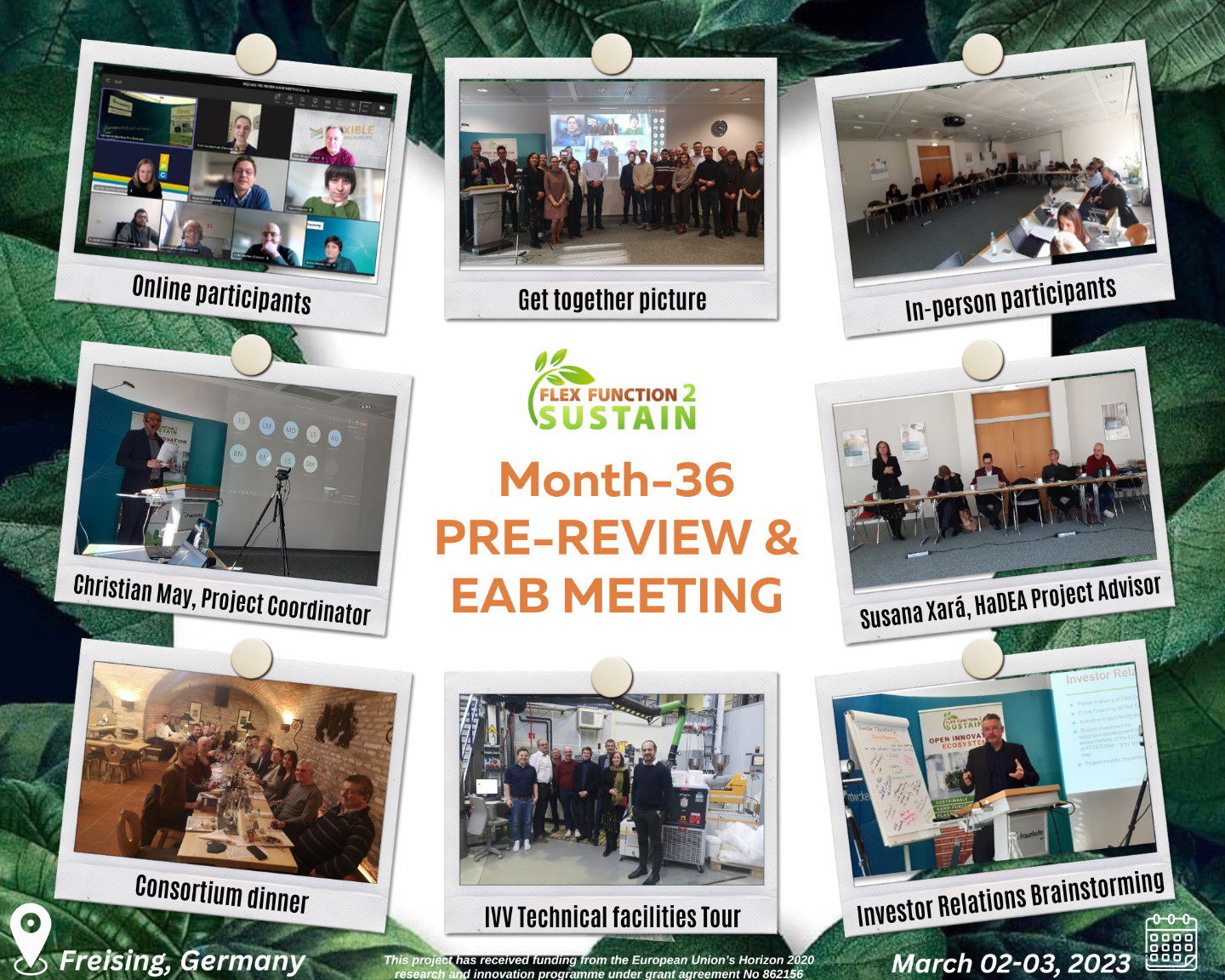 |
FRIENDSHIP: New publication on electroplating of selective cobalt-chromium coating!
The paper, Environmentally sustainable electroplating of selective cobalt-chromium coating on stainless steel for efficient solar collectors, was written by Absolicon Solar Collector AB and the Department of Physics of Umeå University and it is based on the research work on electroplating of selective cobalt-chromium coating for solar collectors.
Indeed, the most important component in a solar collector is the receiver, which by use of a selective surface absorbs and converts solar irradiance to thermal energy. In the article, a novel selective surface for low-to mid-temperature solar collectors is developed, studied, and presented. The surface is produced by electroplating a cobalt-chromium coating on a stainless-steel substrate using an electrolyte based on a deep eutectic solvent. The method described makes electroplating more sustainable, efficient and competitive to industry standards.
Congratulations to the authors!
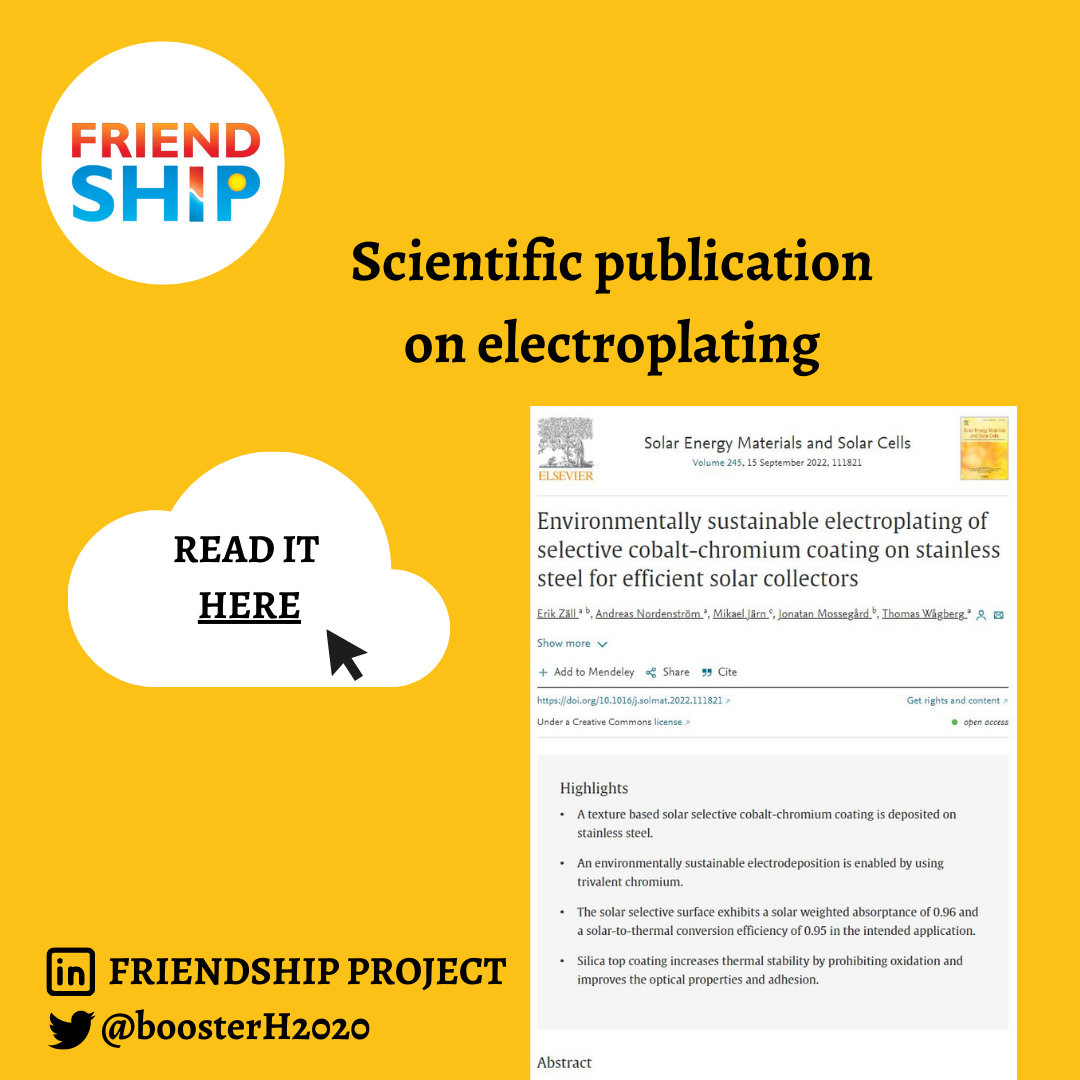 |
PRESS RELEASE: SuPerTandem to bring new Photovoltaic Technology with higher efficiency
We find ourselves in an era when the demand for affordable green energy exceeds the alternative energy supply and thus, we have to look for new alternatives to the currently well-known sources of renewable energy.
EU leaders have allocated huge financial resources to help scientists and industries to put their hands and heads together to work on new technologies and manufacturing techniques to secure supply of green energy technology in Europe and increase implementation of green energy.
One of the successful examples of such collaboration between top European research capacities and industrial players is the SuPerTandem project financed with the sources from Horizon Europe research aid programme and SERI, the Swiss state secretariat for education, research, and innovation.
The SuPerTandem project team is working on a breakthrough perovskite photovoltaic tandem technology with the aim to offer to the solar energy market a perovskite solar panel which is affordable for only 20 EUR per square meter, made of low-cost, widely available raw materials and manufactured by low carbon footprint production process.
Project coordinator Sjoerd Veenstra, TNO, explains the potential of the technology: “The novel perovskite solar modules we jointly develop are flexible, ready for integrated solutions, highly efficient, thin, lightweight, and circular – a combination of qualities which cannot be found in nowadays Photovoltaic panels. “
The above listed attributes increase the attractivity of the new technology throughout the whole spectrum of end users such as electric car manufacturers, farmers, or simply everyone who enjoys spending some days off grid.
The professional team formed by top notch researchers and industrial players met at SAULE Technologies, in Wroclaw to share the latest results and best practise and to unite on further steps to work on efficiency, stability, circularity and scaling the technology to an industrial relevant level.
The project partners come from 15 Top European institutions active in the field of perovskite photovoltaics – namely represented by: TNO – Netherlands Organisation for Applied Scientific Research, HZB Helmholtz Zentrum Berlin, Fraunhofer ISE, SAULE Technologies and Saule Research Institute, TuE – Eindhoven University of Technology, CEA – Alternative Energies and Atomic Energy Commission, 3D Micromac, FOM Technologies, SALD – Spatial Ald Innovators, Tecnalia, AMIRES, EMPA, Flisom and Fluxim.
You can find us on our website or LinkedIn.
SuPerTandem Project Coordinator: Sjoerd Veenstra, TNO, sjoerd.veenstra(at)tno.nl
SuPerTandem Project Manager: Jaroslava Kašparová, AMIRES, kasparova(at)amires.eu
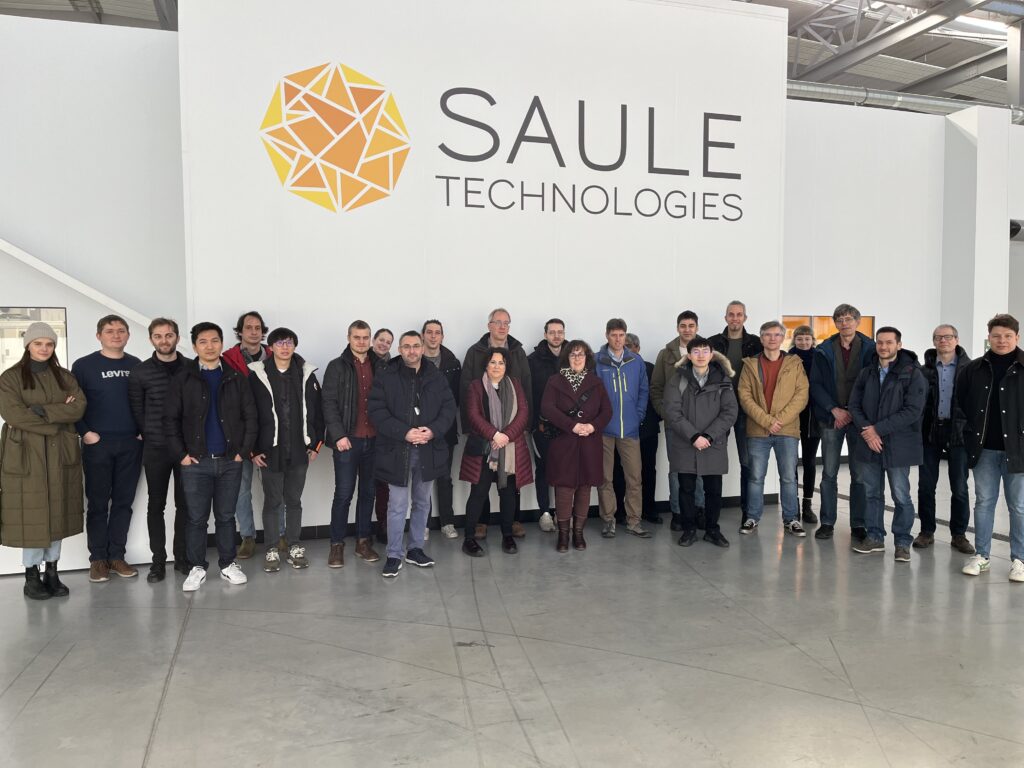
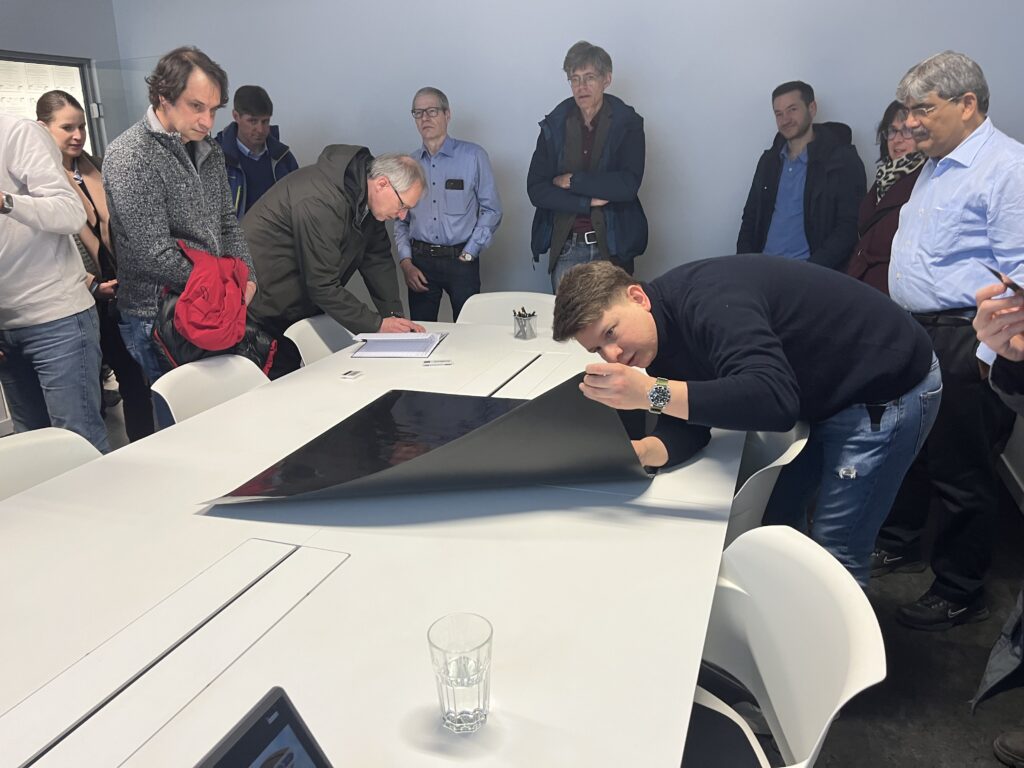
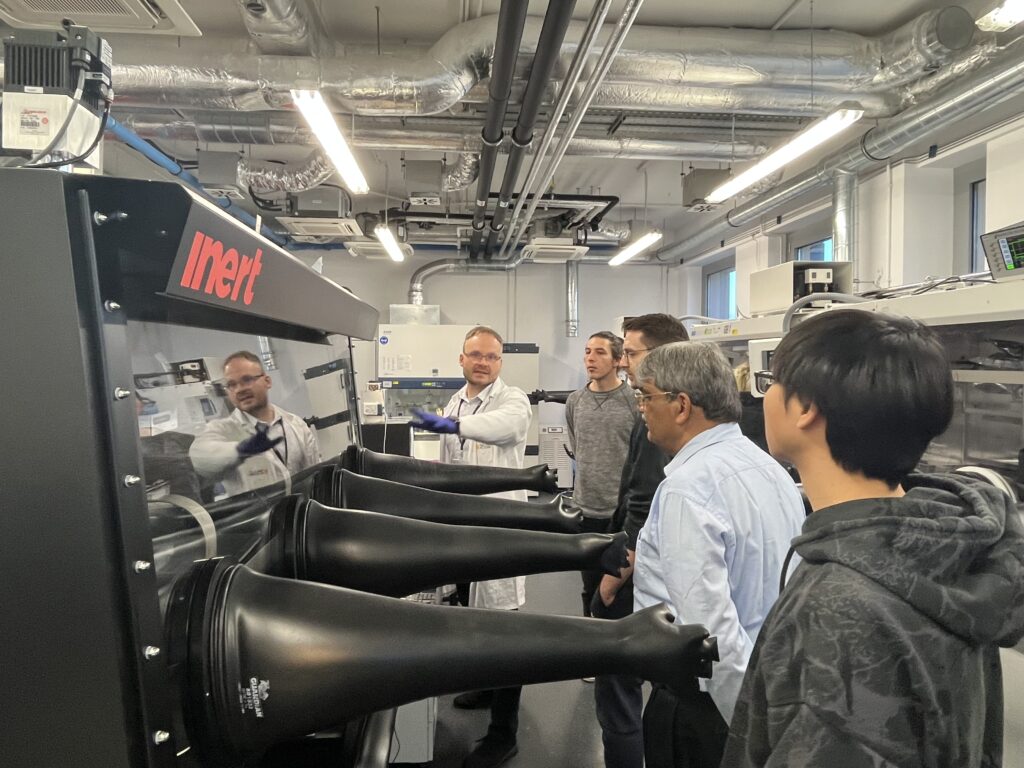
ORGANTRANS: Consultation with EMA expert panel for regulatory approval
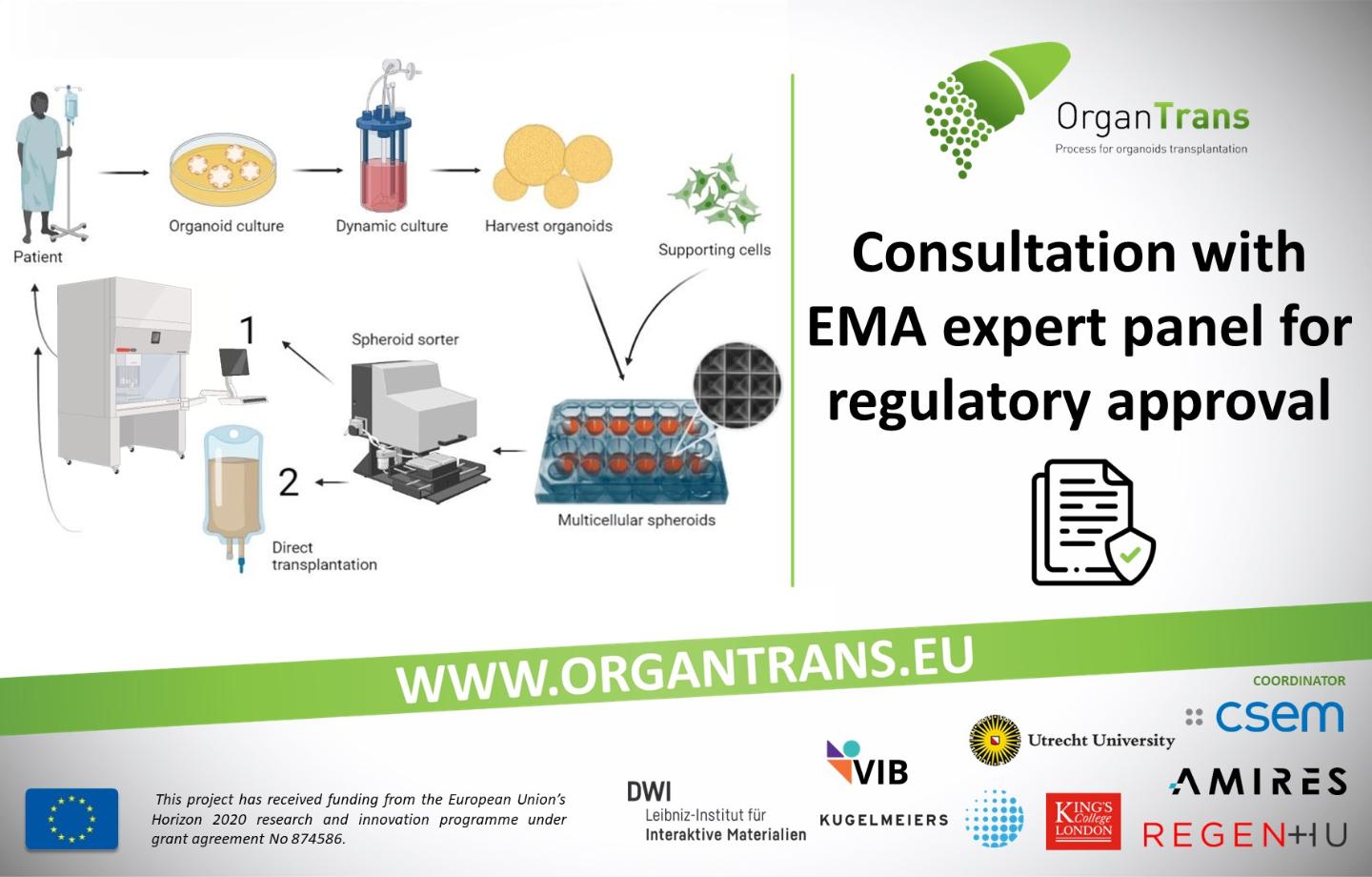 |
FRIENDSHIP: Ongoing manufacturing of the Thermal Energy Storage
Several heat exchanger designs were considered, using parallel or concentric tubes, with or without inserts, in square or triangular array. Thermal performances of these configurations were then assessed using both a 2-D Finite Element Method tool and a one-dimensional dynamic model to estimate whether the storage prototype can be charged and discharged within rated charge and discharge times. The simulation results from these models helped to refine tubes and inserts dimensions, resulting in the selection of three promising storage options.
Unfortunately, the manufacturing of the storage prototype suffered from severe delays due to the manufacturer and its subcontractor in charge of the drawings and calculation note to comply with the requirements of the selected manufacturing code.
However, meanwhile CEA had the time to adapt the existing test facility, LHASSA, to reach the testing conditions of the FRIENDSHIP prototype (higher mass flow rates), and to upgrade its control system.
The estimated delivery date of the prototype is now June 2023.
Do not miss FRIENDSHIP next publications!
|
|
ORGANTRANS technology was featured in Horizon Magazine
For some people with liver cancer, a liver transplant is the only hope for a cure. However, the availability of donated organs for transplant is severely limited and patients on transplant waiting lists are often dying.
Nowadays, many scientists are working on different alternatives to donor transplants for saving the lives of liver-cancer victims. One such alternative is developed within the EU-funded ORGANTRANS project. This technology proposes to take some of the patient’s healthy cells and print them with a 3D bioprinting liver tissue platform into a new organ in laboratory conditions.
Recently, the coordinator of the ORGANTRANS project, Gilles Weder from the Swiss Center for Electronics and Microtechnology (CSEM), gave an interview about this technology describing its readiness level, current challenges, and 10-year horizon. The interview was published in the Horizon: The EU Research & Innovation Magazine in the article entitled “A silent killer, liver cancer prompts race to improve organ replacements”.
Find more about the ORGANTRANS technology here.
Visited our website to know more about projects!
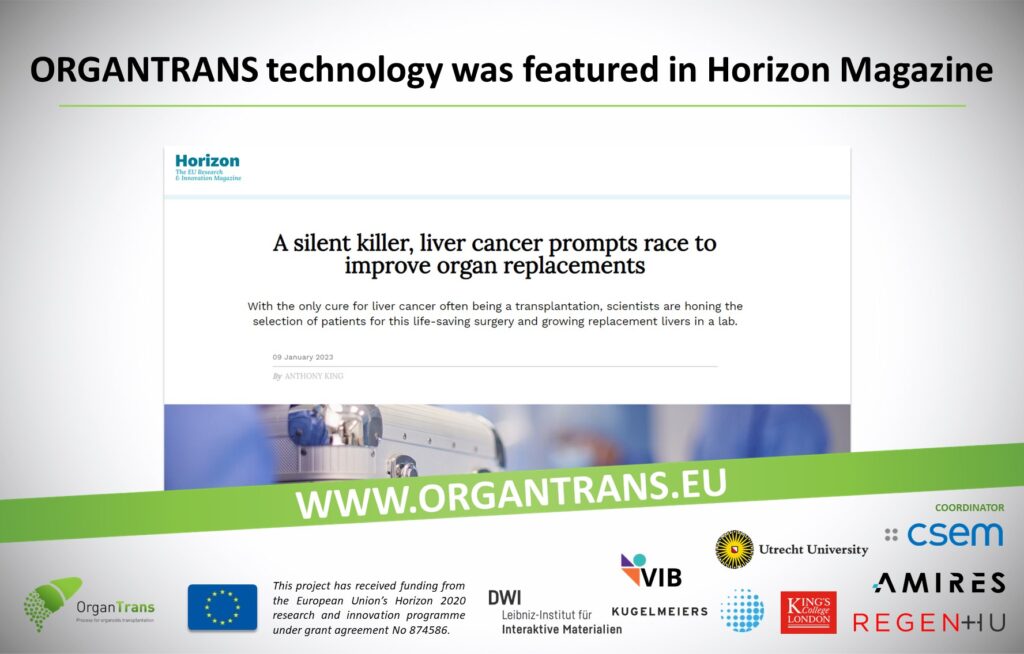
MEET OUR TEAM: VÁCLAV SMÍTKA
Today we would like to introduce you Václav, our Chief Technology Officer. Václav joined AMIRES in 2013 as one of the first employees of the company.
He graduated from the Czech Technical University in Prague, Faculty of Civil Engineering in 2009. At the same faculty he finished his Ph.D. in 2013 with the specialization on laser scanning and deformation measurements methods.
His first contact with the research and innovation project is dated back to the time of his studies and employment at the Department of Special Geodesy where he took part in many research and development programmes and projects as a coordinator as well as a member of a research team. At that time he had no idea that preparation and management of these projects would become one of the main part of his professional career.
In AMIRES, Václav started out as a Project Manager, but over time he became more and more involved in the preparation of new project proposals, which became his main job in the company. Currently, he oversees all the activities associated with the new projects preparation and is also involved in new customer acquisition. In addition, Václav is a leader of the Energy and Sustainability team.
About his work he says: “As a tech enthusiast, what I value about my work is that I can be in close contact with people who not only come up with brilliant innovative ideas, but can also transfer and implement them into concrete devices and technologies.
Václav divides his free time mainly between family and sport. He loves volleyball, which he has been playing for more than 25 years. He is also a big fan of ice hockey and American football. His favourite teams are HC VERVA Litvínov and Pittsburgh Steelers.
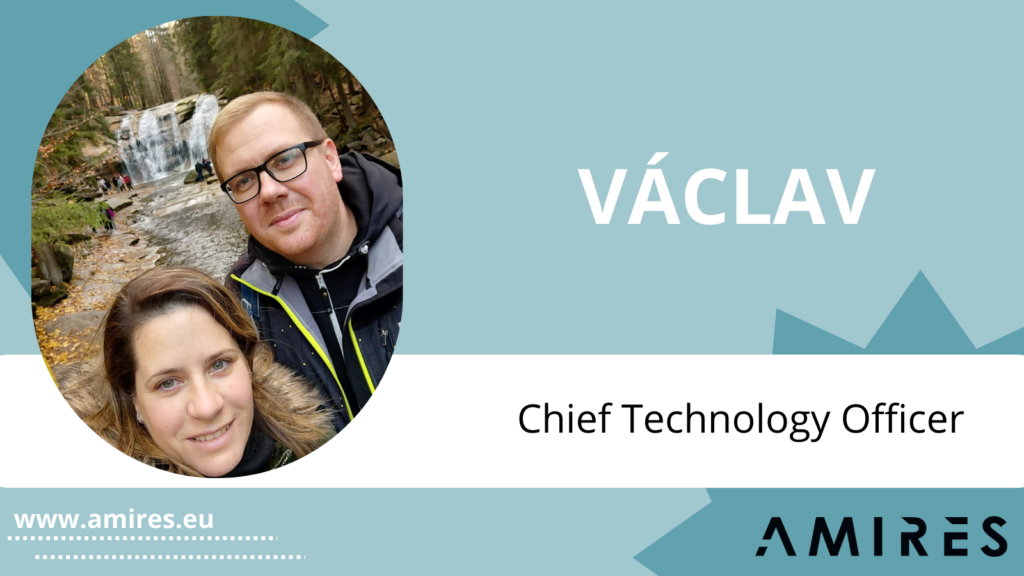
AMIRES will host the Kick-off Meeting of the Quantum projects
The Qu-Pilot consists of 21 partners from 9 different countries aiming to develop and provide access to the first, federated European fabrication (production) capabilities for quantum technologies, building on and linking together existing infrastructures in Europe. Qu-Pilot will implement the first stage of the capability innovation roadmap for providing experimental (pilot) production capabilities and a roadmap for transferring such capabilities to an industrial production environment, as was proposed in the awarded FPA. It will provide experimental production capabilities for quantum technologies in computing, communication and /or sensing through 13 service-provider organizations available to users, including industry, in particular SMEs and contribute to developing European standards in the field. Qu-Pilot will provide services for the development of a European supply chain of quantum technologies, provide European industry, especially start-ups and SMEs, with the necessary innovation capacity, and make sure that critical IP remains within the EU. The initial service offering will be validated through use-cases with companies within the SGA. A minimum of 20 such use-cases are expected and of those 11 are already part of this Qu-Pilot.
The Qu-Test brings together 13 service providers for a federated network of testbeds and 11 industrial users from the European quantum community. The network brings together competences and infrastructures across Europe to offer testing and validation services. A first goal of this cooperation is to support the creation of a trusted supply chain through the validation of quantum devices, chips, components and systems by the testbed network as an independent third party. A second goal is to discuss and agree on unified sets of parameters to characterize quantum devices. Methodologies and procedures will be harmonized among the partners of the testbed network in a step towards establishing standards for quantum technologies. Qu-Test is aligned along three testbeds: quantum computing, quantum communication, quantum sensing. In more detail, the Quantum Computing Testbed will measure, characterise and validate cryogenic quantum devices, cryogenic qubits such as superconducting and semiconducting qubits, photonics qubits and ion traps. The Quantum Communication Testbed will characterize devices for Quantum Key Distribution (QKD) and Quantum Random Number Generation (QRNG) and provide design and prototyping services to support innovation in the supply chain of quantum communication technologies. Finally, the Quantum Sensing Testbed will benchmark sensing and metrology instruments provided by industry and use a large suite of quantum sensors (clocks, gravimeters, magnetometers, imagers) to validate industrial use cases aiming at generating new business cases for quantum sensing and metrology devices. With additional services of IPR support, business coaching and innovation management, Qu-Test supports the European quantum industry.
We are exited to welcome more than 60 quantum key leaders who will move the full ecosystem forward.
You can find more about AMIRES projects in our website! Don’t forget to follow us to be keep up to date!
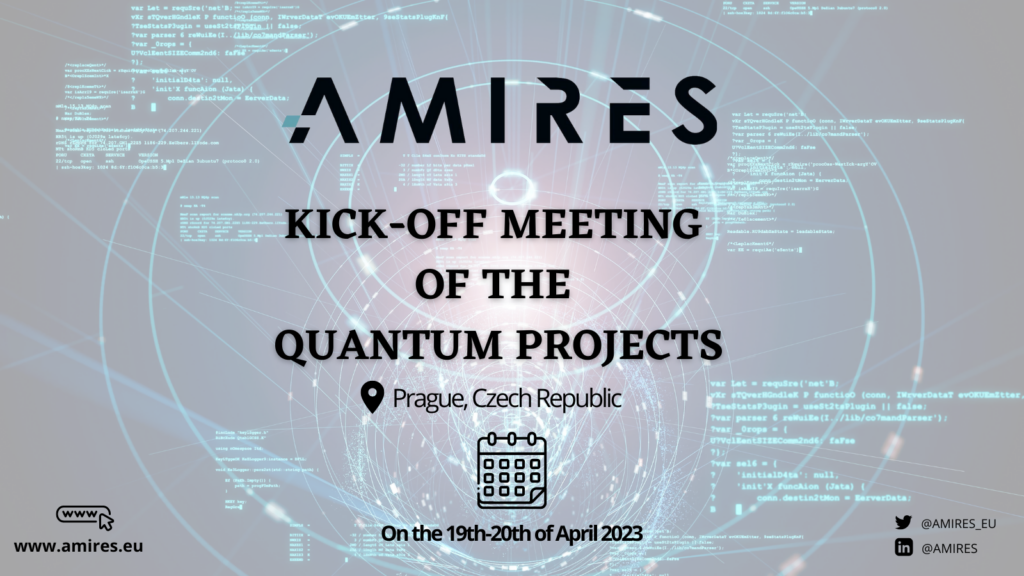
Programming Vascularization on Micro- and Macro-Scale in 3D Printed Tissue Constructs
When it comes to growing tissue constructs in vitro, ensuring the cells’ supply with oxygen and nutrients by integrating functional vascular structures remains a major challenge. Within the ORGANTRANS project, DWI Leibniz-Institute for Interactive Materials is developing a synthetic bioink that supports the growth of microvascular structures from dispersed spheroids. At the same time, the bioink can be printed into 3D structures with open, interconnected networks to ensure the nourishment of growing functional liver tissue.
This element is an essential block of the ORGANTRANS technology which aims to create a liver tissue 3D printing platform and replace liver transplantation for end-stage liver failure patients. In the long run, this platform can be scaled to other organ systems, as organoid technology is one of the largest parts of regenerative medicine.
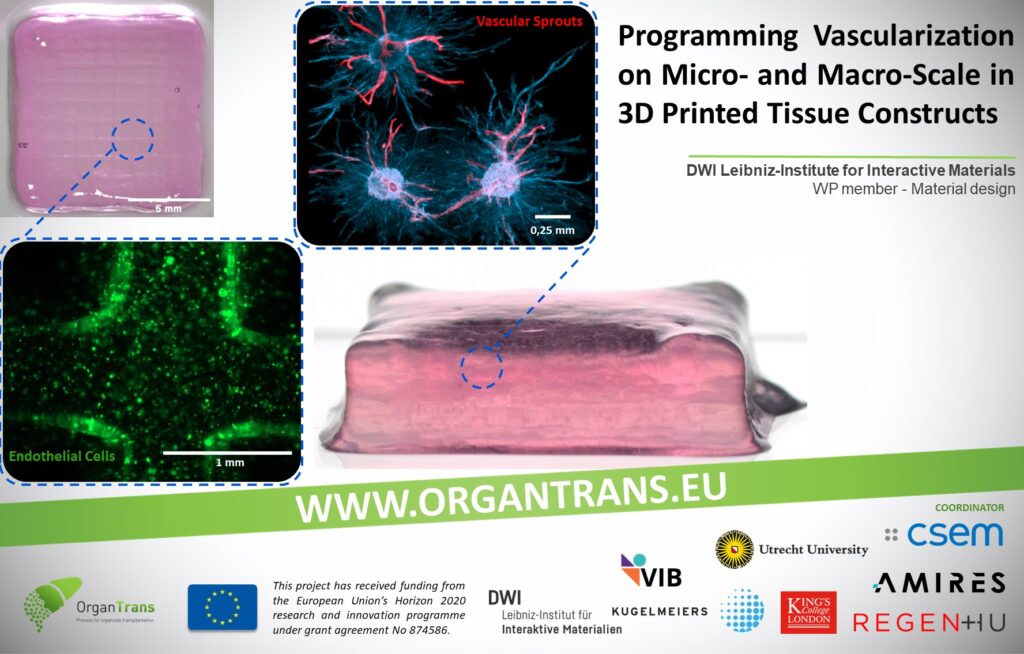
ComBioTES: Publication on Demand Response applications!
ComBioTES project is pleased to announce that our first scientific article, written by the Technical University of Denmark (DTU), is now published online in the journal Energy Reports.
The paper is related to the research work on the development of the control system to shift the electrical load of the system to low price periods, while satisfying the specified indoor comfort requirements.
More specifically, a building heating system coupled with an active Phase Change Material (PCM) TES device and a Heat Pump is simulated to characterise its potential for Demand Response applications. A control-oriented numerical model for the PCM TES was developed to simulate the dynamics of the coupled building heating system. Indeed, simulation results indicate that utilising an active PCM TES over a sensible TES offers significant advantages for DR applications in building heating systems in terms of load shift flexibility, energy costs and consumption.
Congratulations to the authors!
Read the full article here: Demand response with active phase change material based thermal energy storage in buildings.
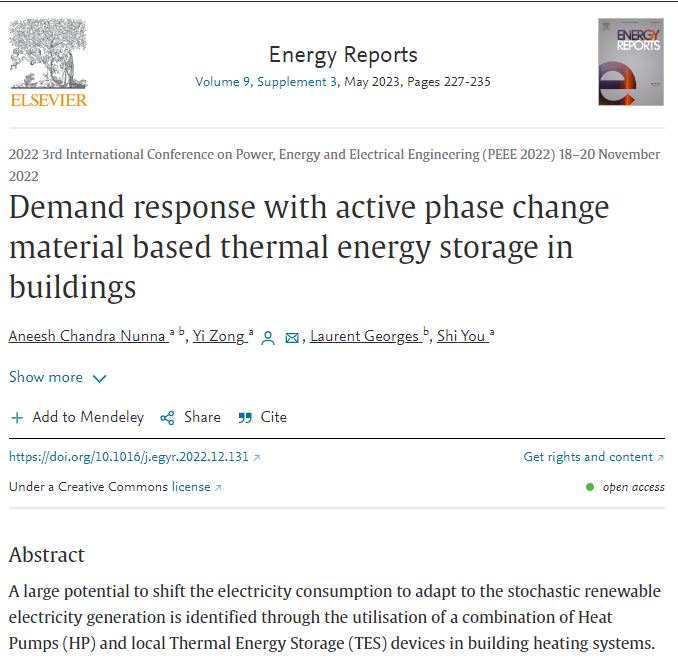
New project in 3D printing using multi-material components
On the 30th and 31st of January, we travelled to Paderborn University to kick off the Horizon Europe Project MADE-3D.
The project has 13 partners, from 10 different countries around Europe. The objective is to optimize the printing process of multi-material components, providing solutions to the most often issues that happen, such as residual stress, cracks, or thermal expansion.
MADE-3D’s ambition is to provide design freedom for highly complex components by using concurrent engineering, besides, Additive Manufacturing process modifications, component design, and recyclability will be developed in parallel.
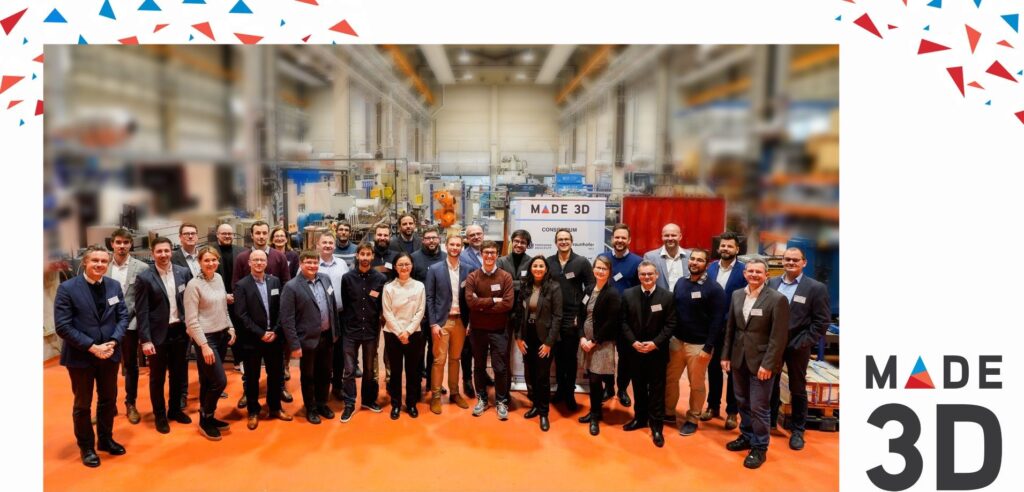
Kick-off meeting of Convert2Green project in Athens!
We are happy to welcome in our portfolio new Horizon Europe project Convert2Green – Converting Facilities Network for accelerating uptake of climate neutral materials in innovative products.
From the 18th -19th of January, Convert2Green team met in Athens to launch the works on specialised services and aid tools for innovative SMEs heading towards Greener Europe.
The OITB will provide services for SMEs and start-ups with innovative ideas and products to help them to move quickly and safely from lab to fab and to the market.
Clean Autonomous Vehicles, Smart health, Industrial Internet of Things, Low Carbon Industry and Clean energy – are the industrial domains to be focused on.
The innovators from the above mentioned fields can start looking forward to the top-notch services delivered by Convert2Green OITB representatives all over Europe: Business model creating, Value chains access, Novel financing strategies, Economic feasibility assessment, or Business case calculation.
Open calls for SMEs interested to try our services to be opened soon!
You can know more about our projects here!

OrganTrans gathered for the prefinal M36 meeting
The meeting was hosted by Utrecht University partner in the unusual and interesting place, the railway museum in Utrecht (Netherlands) with the participation of Amires and other partners of the EU-funded.
Since the project will be finishing in June, it was an important moment to discuss and make final decisions on the integration and synchronization of the key components (bioprinting, bioink, cells, maturation platform) as well as optimization of the workflow for the development of a functional liver construct. Key decisions on the functional analysis of the constructs were discussed. Additionally, during this meeting, OrganTrans Consortium received valuable recommendations from the experts of the External Advisory Board.
The platform developed within OrganTrans project, is a future alternative for organ transplantation medicine as it proposes a disruptive alternative to donor organs for patients with chronic end-stage liver diseases. Importantly, this research creates novel technologies that can be applied to other organ systems and tissues in the field of regenerative medicine.
Follow our progress on our posts and see you at 3rd Regenerative Medicine Workshop on June 1st in Prague, Czech Republic.
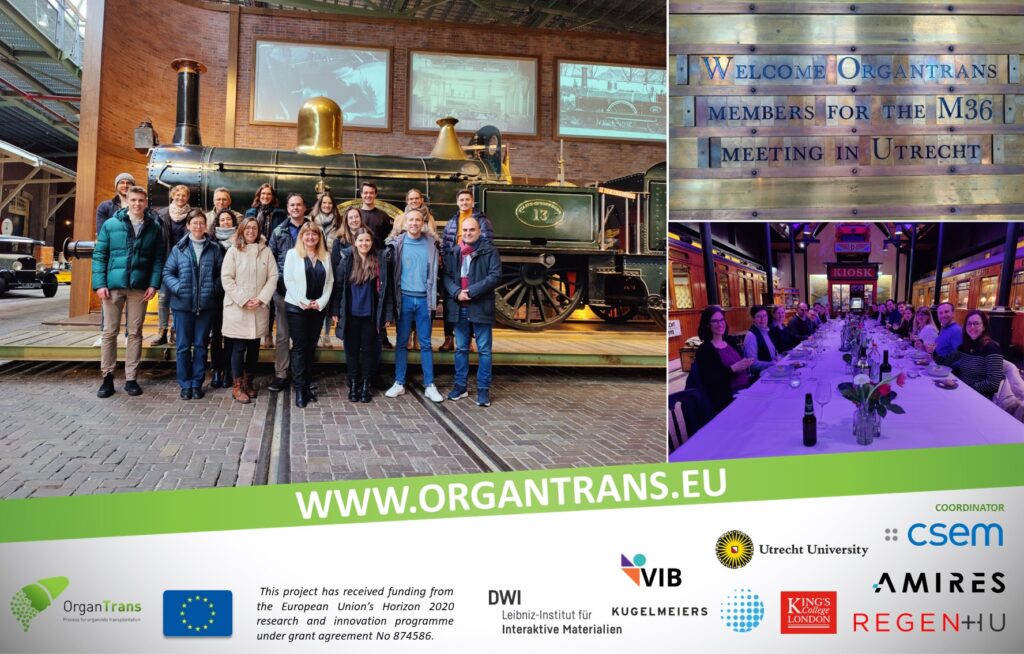
Workshop on “Integration of novel materials into silicon photonics”
AMO GmbH and RWTH Aachen University organized a workshop on November 21-22, 2022 in Aachen, brought together experts from academia and industry to discuss recent advances on the integration of novel materials into silicon photonic platforms and presented the recent advances of the field, and to discuss the possible advantages and challenges posed by different materials – from quantum dots, to perovskites, to 2D-materials, etc. – and by different integration strategies.
The workshop was organized by AMO GmbH and supported by H2020 projects – POSEIDON nanophotonics, INSPIRE platform, MOCCA, PlasmoniAC, Graphene Flagship and 2DEPL, and by the German BMBF via the project NeuroSys Cluster.
FRIENDSHIP: Prototype of the absorption chiller under testing
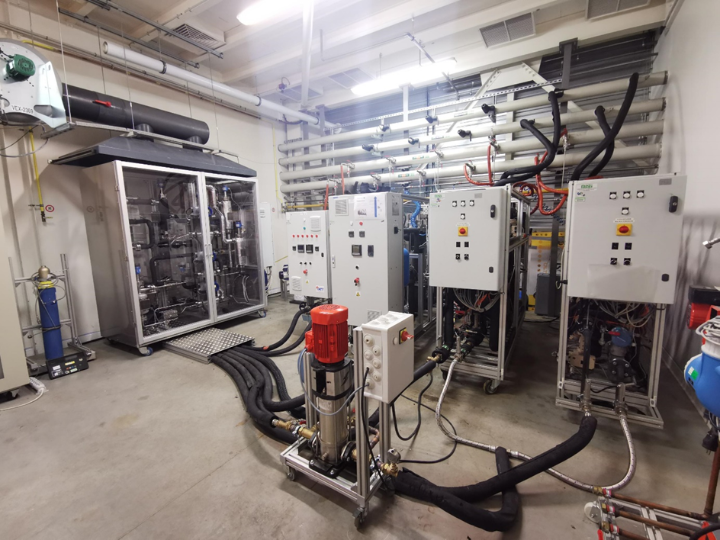 |
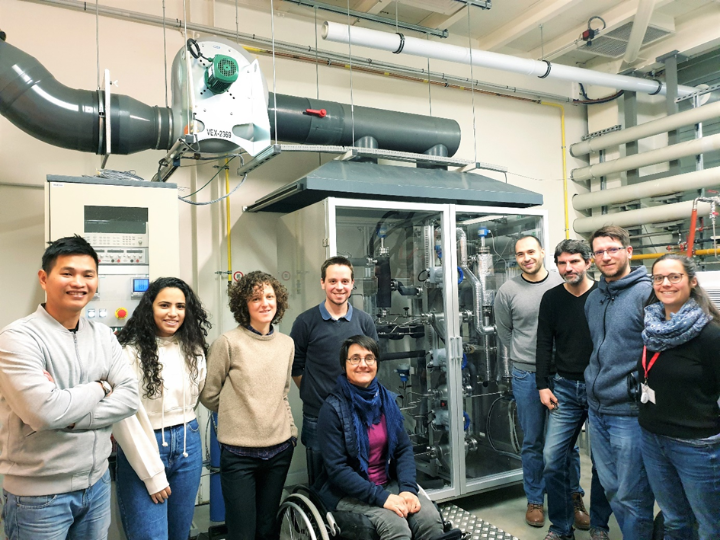 |
ComBioTES at BUILD-UP webinar
The webinar presented two projects that explore technological solutions for heating/cooling coupled with renewables (SunHorizon and HAPPENING) and two projects that explore aspects of energy/thermal energy storage (MiniStor and ComBioTES).
ComBioTES was presented by the Project Manager and the Project Coordinator who explained the state of art of the project, highlighting the first results and commenting on the challenges the project is facing at the moment.
The livestream of the presentation is available here.
|
|
Taking on pancreatic cancer with artificial intelligence: The PANCAIM M24 Meeting in Madrid
After 2 years of the project, the PANCAIM team reaffirmed the urgent need to improve healthcare and outcomes for pancreatic cancer patients. Overall, the meeting got the consortium a little bit closer to developing impactful and trustworthy AI applications to improve the detection, treatment and prognosis for patients with this critical disease.
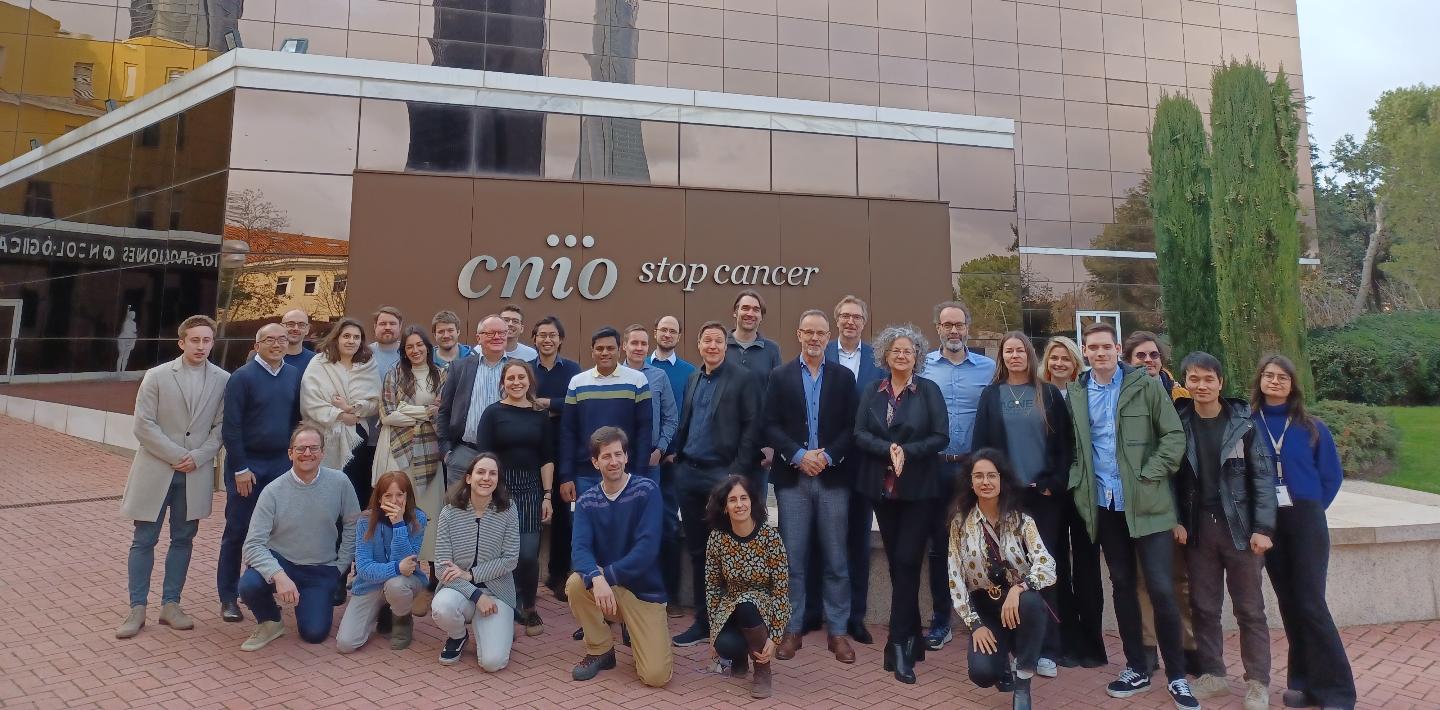 |
Among others, partners discussed how to speed up the transfer of data into the central PANCAIM repository and potentially connect to other clinical centers in the future to ensure sufficient quantity and diversity of source data – this is absolutely essential for both training and validation of the AI algorithms which should finally serve as decision-making support for doctors in the hospital.
In the next few months, the PANCAIM team will work hard to train and improve unimodal AI applications, which will serve to identify the most relevant features in radiomics, pathomics and genomics respectively. The current status of these models was presented and critically reviewed in the meeting with our External Advisory Board in the afternoon, who gave valuable feedback and recommendations which will be taken into account going forward.
A delicious Spanish dinner and delicious pastries during the coffee breaks kept all participants happy and ready to engage. A big thank you to CNIO for hosting us, and thanks to all our partners + EAB members for joining us in Madrid and online!
Follow the project on LinkedIn and Twitter to receive all the latest updates. We are looking forward to continuing this project and make a much necessary impact for pancreatic cancer patients in Europe!
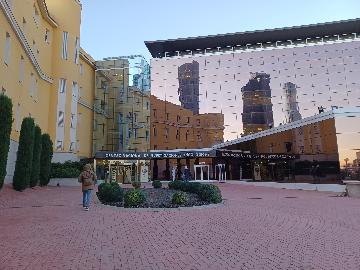 |
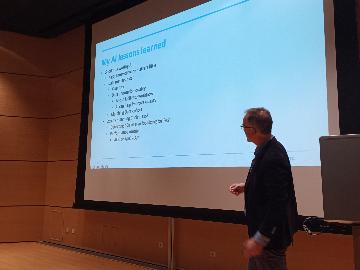 |
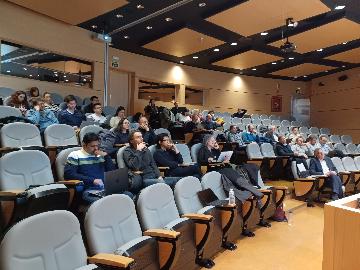 |
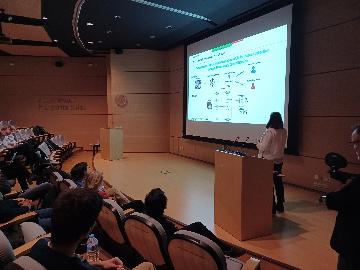 |
European Cancer Imaging Initiative
The European Cancer Imaging Initiative will unlock the power of imaging and Artificial Intelligence for the benefit of cancer patients, clinicians and researchers.
The European Cancer Imaging Initiative is one of the flagships of the Europe’s Beating Cancer Plan (EBCP). One of the objectives of the Plan is to make the most of the potential of data and digital technologies such as Artificial Intelligence (AI) or High-Performance Computing (HPC) to combat cancer.
The aim of the European Cancer Imaging Initiative is to foster innovation and deployment of digital technologies in cancer treatment and care, to achieve more precise and faster clinical decision-making, diagnostics, treatments and predictive medicine for cancer patients.
The Initiative will showcase how medical images can be accessed, used and pooled, while ensuring a high level of ethics, trust, security and personal data protection in full compliance with EU values and rules. It will make large amounts of cancer images and linked clinical data easily accessible to European clinicians, researchers and innovators in line with the European data strategy and supporting the goals of the European Health Data Space.
Red the full press release at the European Commission official website.

Commission launches new calls worth over €600 million
Following the adoption of the Horizon Europe 2023-2024 work programm, the European Commission has launched new calls for 2023 worth over €600 million to support research and innovation under the five EU Missions – Adaptation to Climate Change, Cancer, Restore our Ocean and Waters, Climate-Neutral and Smart Cities and A Soil Deal for Europe.
This investment is expected to result in, for example, better preparing local and regional authorities to face climate-related risks, optimizing minimally-invasive diagnostic cancer interventions, restoring at least 25 000 km of free-flowing rivers, providing Climate City Contracts with 100 cities, and rolling out of the Soil Mission living labs.
More information about this article here!
Know more about other European Commission news in our website.
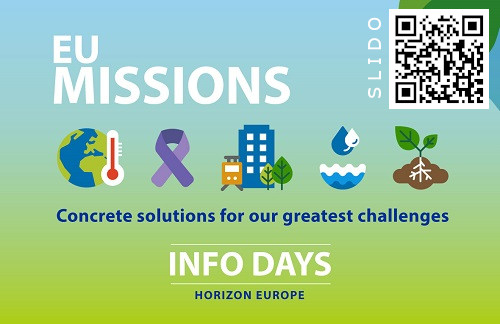
New Project on Material Innovations for Advanced Optoelectronic Applications Has Just Started!
The vision of this project, which unites eight partners from five European countries, is to create the next generation of optoelectronic devices with multiple functionalities in a miniaturized footprint.
Project MatEl’s objective is to introduce novel on-chip integration schemes enabled by innovative laser processing of advanced materials, such as graphene or PZT.
We aim to demonstrate the universal vision of the project on two applications in Augmented Reality (AR) and advanced biosensing, accelerating the industrial adoption of hybrid OEICs.
MatEl project benefits from the strong presence of innovative award-winning SMEs, key players in nanomaterial development, and the academic excellence of the coordinating National Technical University of Athens.
We are looking forward to this collaboration! Follow the project on LinkedIn and Twitter to receive all the latest updates!
|
|
Innovative technique for extracellular vesicles isolation developed in the MARVEL project
MARVEL project partner, CNR-SCITEC, is currently working on the optimization and validation of membrane-binding peptide-modified beads for unbiased (universal) and scalable isolation of extracellular vesicles (EVs) from different kinds of biological fluids (plasma, urine, serum, etc.).
Extracellular vesicles are secreted by cells into the extracellular space and they are implicated in a wide range of physiological processes and diseases. This has led to an explosion of interest in using EVs in a variety of tissue engineering applications. For example, EVs have great potential to be used as markers for disease initiation, progression, and response to treatment, as well as hold huge potential as mediators of tissue regeneration. Nowadays, the main drawback of antibody-based affinity isolation by beads is the low scalability and underrepresented isolation (only sub-populations are isolated).
In MARVEL, we are developing a bead-based affinity isolation system by using a universal, yet highly specific, interaction with membrane sensing peptides. This allows scalable capturing of all small EVs unbiased by the differential expression of surface markers. The MARVEL technology outperforms tetraspanin antibody capturing and ensures high recovery and exquisite specificity against common contaminants.
Currently, we are validating our technology in cell culture supernatants, serum/plasma, and urine.
More information about the MARVEL project here.
We would like to remind you that the MARVEL project consortium met for the M24 meeting hosted by AMIRES in Prague, Czech Republic. We are happy to be a part of this progress!
You can find out how it went in our article.
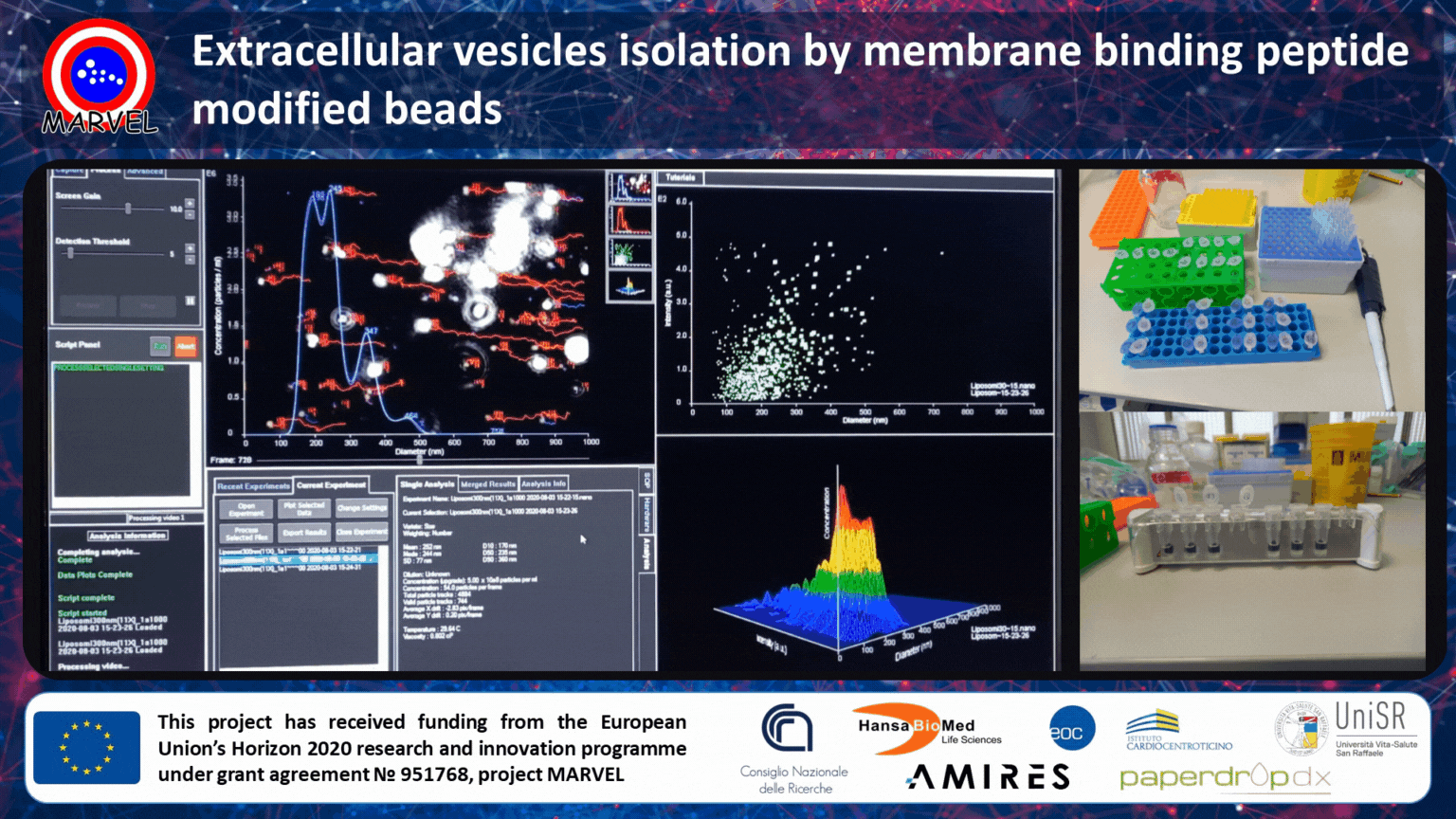
1st Review meeting for ComBioTES
On 10th and 11th January, ComBioTES consortium met together in Brussels to discuss the project advancement in the first 36 months and to have the 1st Official Review Meeting.
On the first meeting day, the M36 meeting took place and the partners concentrated on the progress of the running Work Packages, their highlights, results, and challenges. In the end, the consortium members reached a clear vision of the directions to take and on the objectives to accomplish in the next 6 months.
During the second day, the Review meeting was held, and the discussion focused on past deviations, future risk assessment and mitigation plans. The Project Officer, Juan Ramon De la Cuevas, also joined the meeting and provided valuable feedback on the behalf of the The European Climate, Infrastructure and Environment Executive Agency (CINEA).
ComBioTES M36 and Review meetings were characterized by a collaborative and proactive behaviour of all the participants.
Exciting six months are ahead of us. Do not miss our next publications!
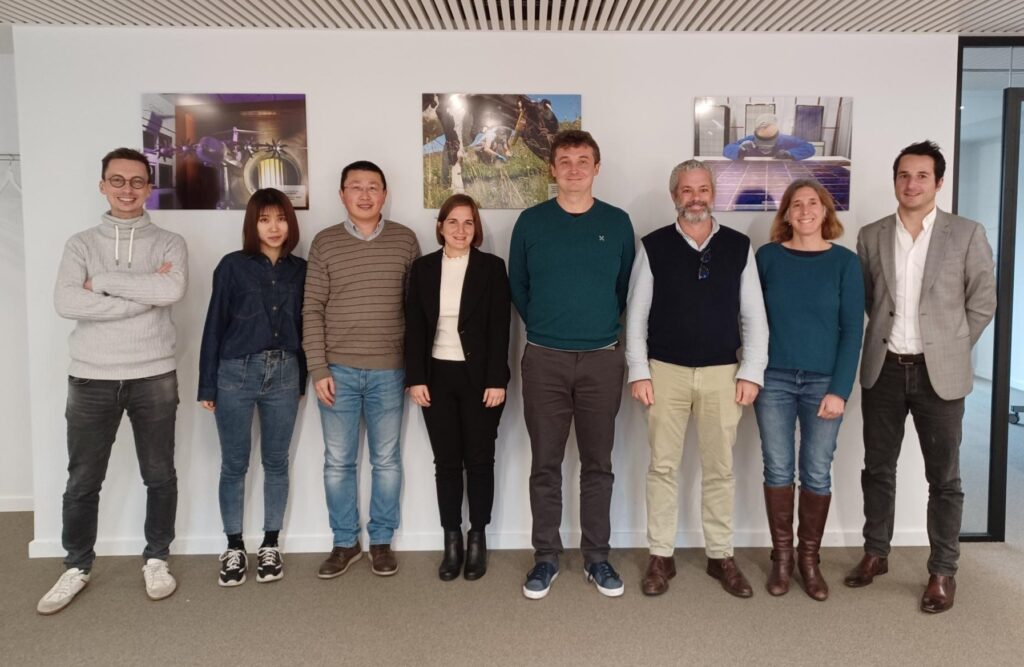
AMIRES Gender Equality Plan is right here!
We are excited to announce that its Gender Equality Plan has been just published. We always believe that, in order to make big changes in the world, one must start with small steps on the individual and organisational level. AMIRES has always believed that within those steps it is natural to support women in their professional and private lives.
Also, we believe that a successful team is based on diversity and a multidisciplinary approach. Apart from diversity in terms of gender, AMIRES is an example of cultural diversity, bringing together individuals from Brazil, Bulgaria, Czechia, Estonia, Germany, Italy, Mexico, the Netherlands, Slovakia, Serbia, Spain, and Ukraine.
In addition, the AMIRES female team is a perfect example of multidisciplinary expertise, bringing together a combination of skills and knowledge that encompasses different fields, such as business, political sciences, engineering, international affairs, languages and biomedicine. Therefore, in AMIRES we have learned that tackling situations from different angles provides more efficient and effective solutions thanks to a multidisciplinary and enriched vision.
Furthermore, AMIRES is committed to promoting gender equality even beyond its organisation. Namely, AMIRES will go a step further and take actions to promote gender equality among its partners and clients. These activities mainly relate to proposal preparation and project implementation phases where AMIRES is involved.
Although, AMIRES has encouraged the female representation in leading positions in consortia and has in place the revision of the Gender Dimension section in proposals by the Gender Equality Board, these actions have been not monitored through formal procedure.
The AMIRES management together with the Gender Equality Board will ensure that attention is paid to gender aspects and will suggest appropriate actions where necessary. AMIRES is proud creating a positive and favourable working environment for all its employees regardless of their nationality, gender, age, ethnicity, religious affiliation or disability. This action plan is a living document and will be updated if relevant.
Read the AMIRES Gender Equality Plan HERE.
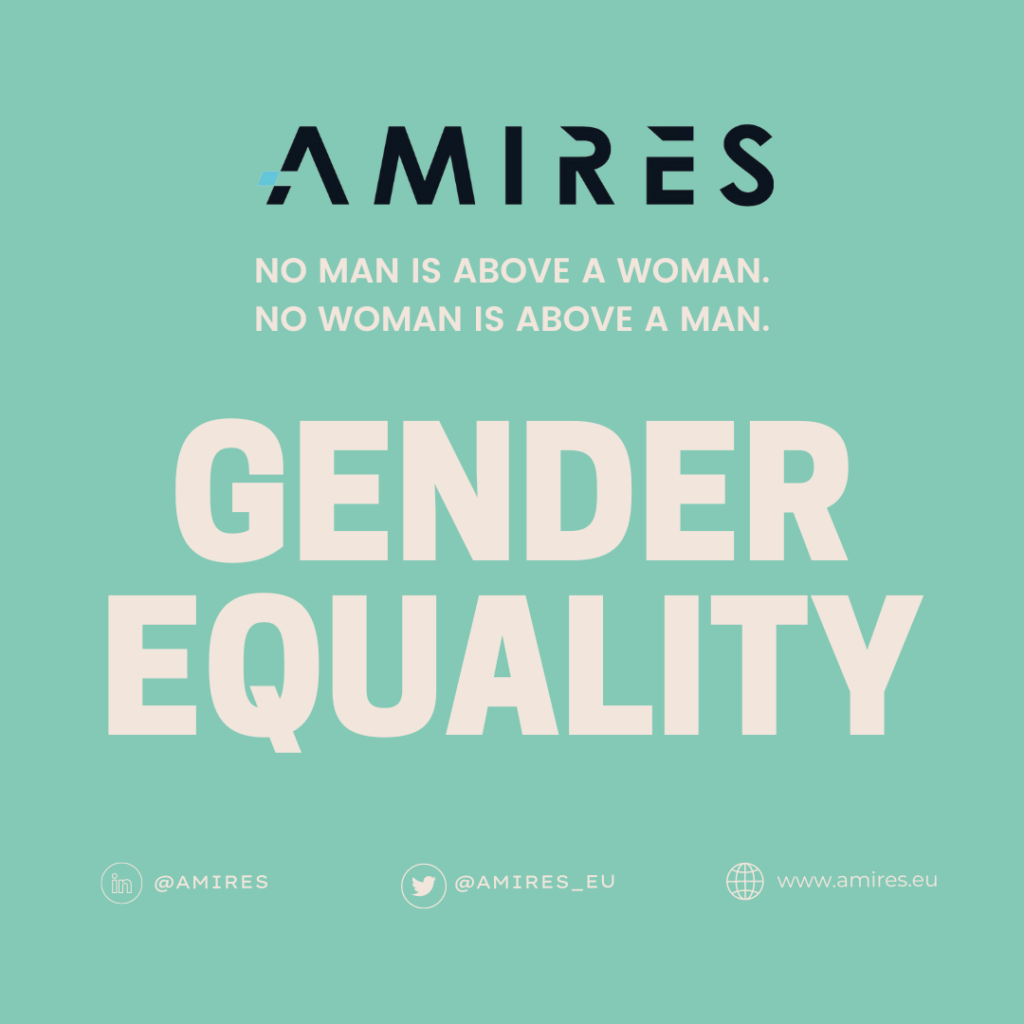
Commission welcomes Energy Community’s agreement
Commission welcomes Energy Community’s agreement on 2030 energy and climate targets.
The 20th Ministerial Council meeting of the Energy Community, held in Vienna on December 15th, has reached agreement on a number of important issues which will further enhance energy cooperation between the EU, the Western Balkans and the three Eastern Partners – Ukraine, Moldova and Georgia. Crucially, the Contracting Parties agreed on an ambitious renewable energy target of 31% for 2030, as well as energy efficiency and greenhouse gas emissions targets.
At the Ministerial meeting today, the Parties also agreed to implement the EU electricity market rules. Once this is achieved, they will be able to fully access the EU electricity markets, and therefore to freely trade electricity with the EU. Member countries also agreed on strengthened compliance and enforcement of agreed energy rules. The meeting was chaired by Yaroslav Demchenkov, Deputy Energy Minister of Ukraine, which currently holds the rotating Presidency of the Energy Community.
Read more about it here.
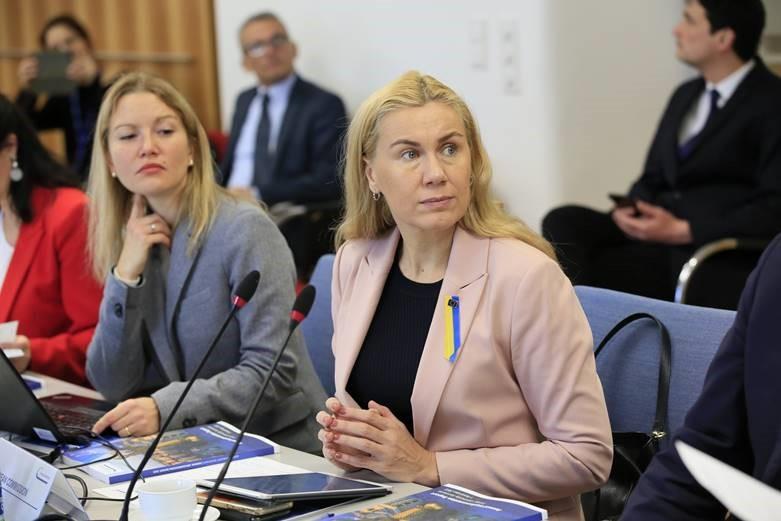
First Czech-led Research and Innovation Action in health to revolutionise quality of stroke care
2022 marked a new milestone on the health research landscape in the Czech Republic. For the first time, a Research and Innovation Action coordinated by an organisation in the Czech Republic has been funded in the field of health. As part of the European Commission’s flagship programme Horizon Europe, a grant of EUR 8 million was awarded to the project entitled “RES-Q+: Comprehensive solution for improving health care using a global register of stroke care quality”. The project is coordinated by the Institute of Health Information and Statistics of the Czech Republic (IHIS) under the leadership of researcher and neurologist Robert Mikulik, supported by Co-Coordinator Hendrik Knoche, an Associate Professor in human-computer interaction at Aalborg University, Denmark. AMIRES is glad to have supported the proposal writing and project management of RES-Q+.
The goal of RES-Q+ is to improve the quality of care for stroke patients, save patients’ lives and reduce healthcare costs. The project will build on the Registry of Stroke Care Quality (RES-Q) – a global academic platform launched in 2017 and the largest stroke care quality registry in the world to date. To achieve its ambitious objectives, RES-Q+ will strive to automate data input and maximise the use and benefits of the platform by:
- creating a fully automated tool for obtaining & processing data on the health care services provided to the patient;
- evaluating data & providing feedback to care providers through AI-enabled virtual assistants, which precisely target problem areas;
- creating virtual assistants for stroke patients to monitor their condition.
RES-Q+ will be carried out by a consortium of 21 leading European institutions: hospitals from Eastern, Western and Southern Europe, universities, IT companies, law firms, as well as the World Stroke Organization, Stroke Alliance for Europe, and ANGELS Initiative, which supports providers in enhancing stroke care worldwide.
Find out more on the project in the press release here. See the news coverage of RES-Q+ in Czech Television here (CZ only).
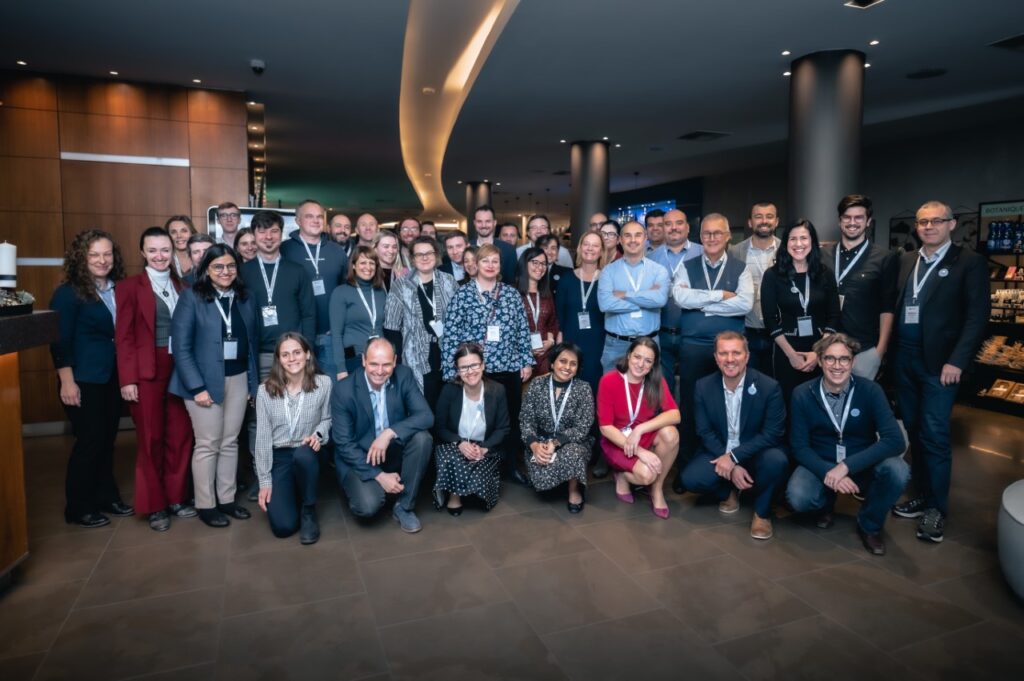
Become a PROJECT MANAGER of European R&D&I projects in ENERGY & SUSTAINABILITY
To reinforce our team, we are opening position for Project Manager of European R&D&I projects in Energy & Sustainability domain. The chosen candidate will be responsible for the overall administration and management support of H2020 / HE projects and will also actively contribute to the preparation of other project proposals.
Is admin and analytical work something what is not boring you?
Do you want to learn more about projects which are good for our future?
Do you want to be a part of international dynamic team?
Let us know, we are already looking forward meeting you!
Read full info HERE.
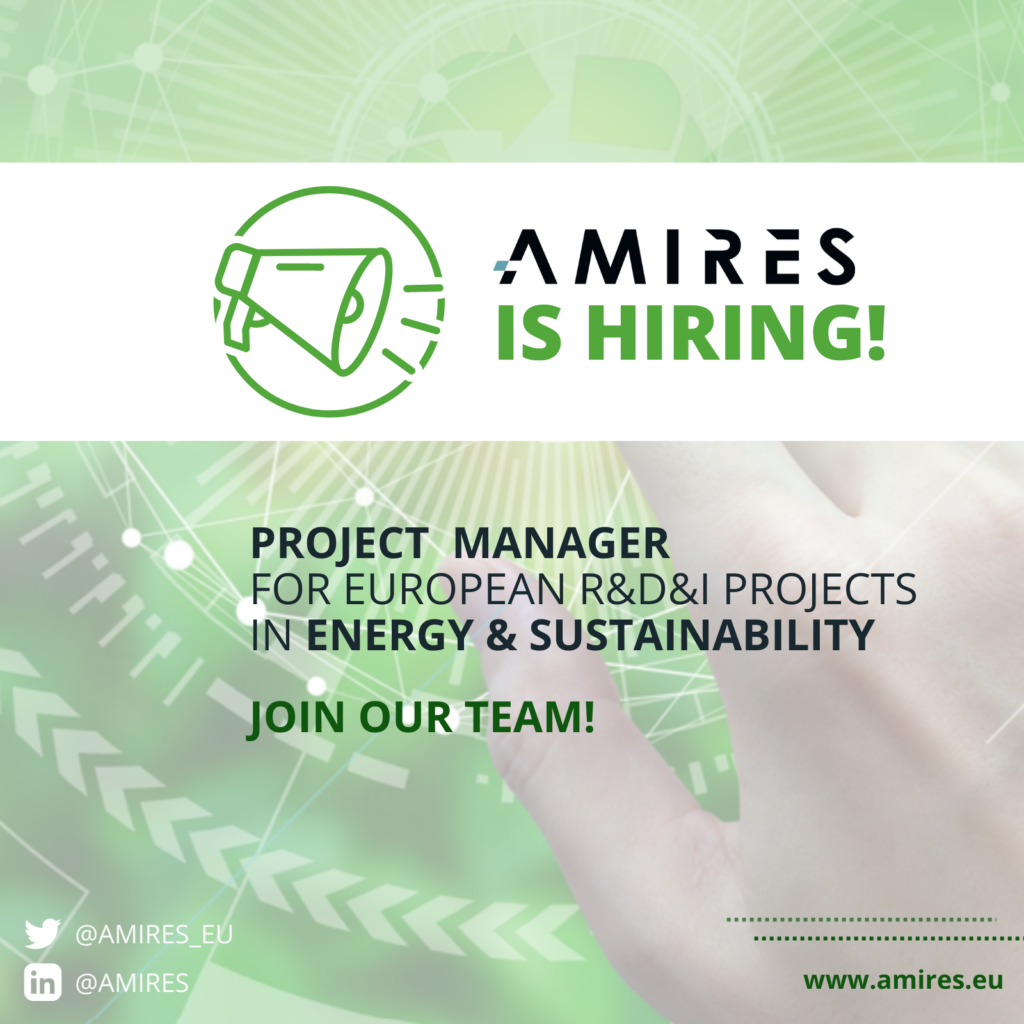
MedPhab: Congratulations for your three years!
It has been three years of advancing medical devices based on photonics technologies
Three years already finalized for MedPhab, pilot line for photonics-based medical devices, and EU-funded initiative. To discuss the progress and remaining challenges, the consortium met in Philips premises in Eindhoven December 13 and 14, 2022. Key highlights of the results of MedPhab include the successful participation of the pilotline in COMPAMED/MEDICA trade fair this year, the interest of almost 30 companies in MedPhab services, the implementation of six external demonstrator cases selected by an open call, the preparations for the sustainable plan and operations, as well as the building of the ecosystem through the community management platform. In addition, we received recommendations on the sustainable operations of our experts in the External Advisory Board: Furio Gramatica, Ulrich Stärker, and Robert Sanders, which will be taken in consideration for the last year of the project.
Next year brings high expectations in the completion of several activities, including the establishment of MedPhab sustainable operations and continuation of further demonstrator cases, as the open call remains open until April 2023. If you are an SME that would like to further develop a medical product utilizing photonics technologies, find more information HERE. Or if you belong to the ecosystem of the medical devices using photonics, you can be part of MedPhab community here.

Webinar Recording: How to apply for FlexFunction2Sustain Open Call?
On 30th November 2022, FlexFunction2Sustain organized a Webinar Feasibility meets economical interest. The event was specifically aimed at promoting the Open Call for proposals for innovative solutions for sustainable and smart products powered by nano-functionalized paper and plastic in order to support SMEs, start-ups and industries in the development and market launch of pioneering products. The webinar provided insights on the FlexFunction2Sustain Open Innovation Test Bed offering and details of the Open Call application and selection process.
The video recordings for each session can be found at the following links:
- Feasibility meets economical interest, Dirk Brückner (GEMIFO)
- Strategic protection of innovation, Dr. Robert Harrison (SHP)
- Introduction to FlexFunction2Sustain, Dr.-Ing. Christian May (Fraunhofer FEP)
- Open Call insights: application and selection process, Anastasia Grozdanova (AMIRES)
The overall budget for the Open Call programme is 2.25 M€. Up to 20 projects will receive a granted access to complete set of services integrating technical, business, ecosystem expertise which will enable them to build up sustainable business cases. The Open Call will remain open for applications until January 27th, 2023.
Detailed information about the conditions of the Call can be found here. Further assistance is available through the Helpdesk by email to helpdesk@flexfunction2sustain.eu or by phone to +420 226 217 422 (Monday – Friday from 9 AM to 5 PM CET).
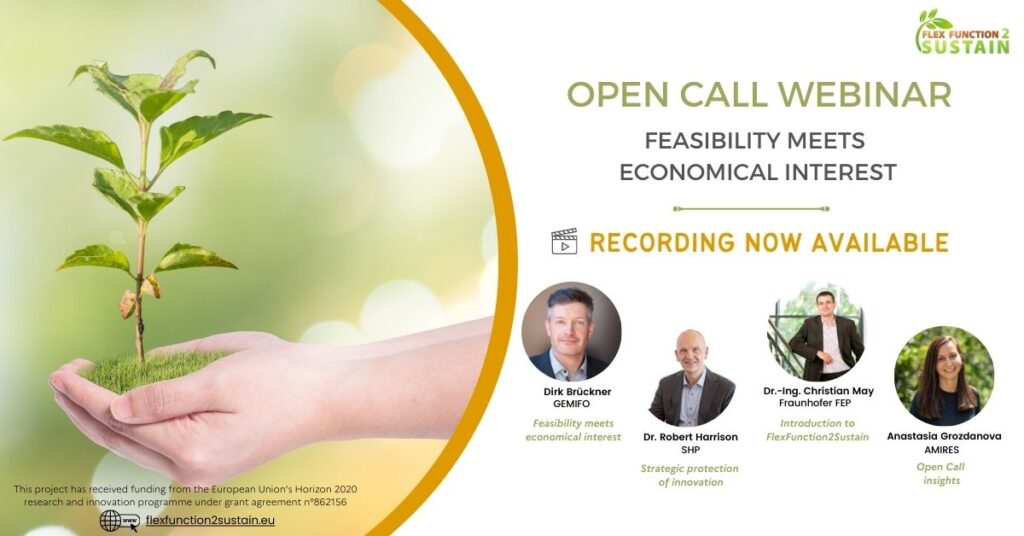
MEET OUR TEAM: JOAN GUARDIA
We are thrilled to introduce our new colleague Joan who joined AMIRES team as a Junior Marketing Specialist in December 2022. After graduating from a bachelor’s programme in Business and Management at Universitat de Barcelona, Joan obtained his master’s degree in Marketing and Commercial Management at ESIC Marketing & Business School in Barcelona. While doing his master’s degree, Joan worked in FMCG at Affinity Petcare as a Consumer Insights Assistant.
In his free time Joan enjoys running, reading, and is taking up yoga classes. Also, he is a FC Barcelona supporter and loves to travel and visit new places. Finally, he is currently studying an online degree in history, art and geography. In AMIRES, Joan is supporting the marketing activities of the company.
Welcome on-board Joan.
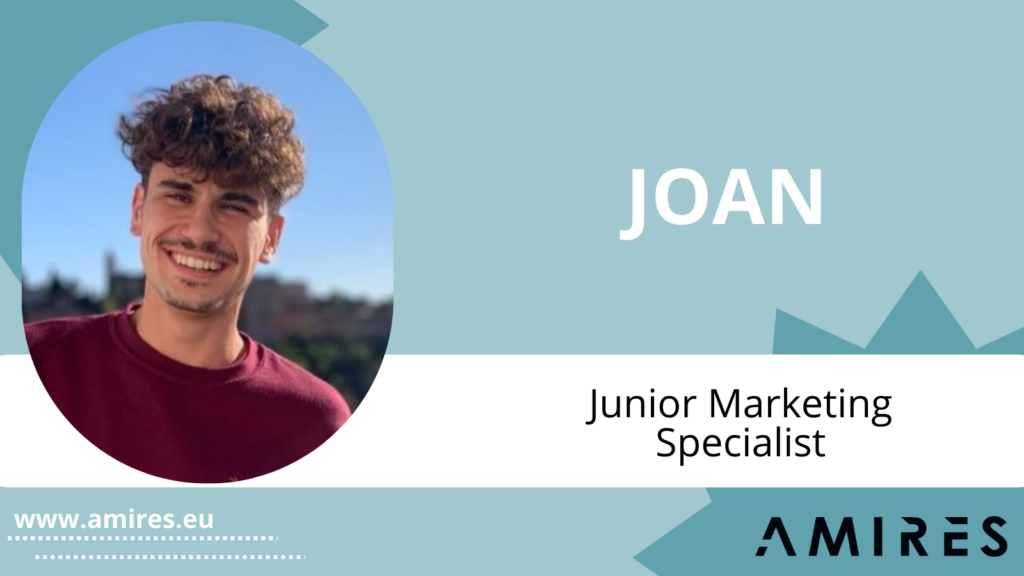
ComBioTES: bio-based PCM selection process
One of the goals of ComBioTES is to select a Bio-based Phase Change Material (PCM) for heating and hot tap water, which is biodegradable, chemically stable and with as less safety issues as possible.
In the first place, Roquette and CEA has developed a grid of selection of the bio-based PCM, with relevant parameters on performance, safety, supply, cost etc. It led to a first screening PCM suitable for ComBioTES, with the selection of Octadecanol, RT70HC, Crodatherm 74 and Isosorbide (more specifically, POLYSORB® PA developed by ROQUETTE, which contains an additive to improve stability and reduce the risk of thermal degradation).
Octadecanol, RT70HC and Crodatherm 74 were already known and have already been characterized by partners from ComBioTES in previous projects. Since Isosorbide experiences supercooling, preliminary characterization and tests were performed to assess (or not) its use as PCM.
Thus, Roquette characterized the thermo-physical properties of the Isosorbide in lab conditions with measurements at small scale of the properties relevant for TES applications. Roquette supplied 150 Kgs of Isosorbide to CEA to test it in actual TES conditions.
Eventually CEA performed some melting/solidification tests with the 500 mL dedicated installation in photo. CEA also completed tests without and with systems to help the solidification. Those systems were “seeding” (i.e., addition of solid particles of Isosorbide to initiate the solidification) and “bubbling” (i.e., nitrogen bubbling inside the vessel). The test results show that Isosorbide is experiencing supercooling at small-scale reactor, with primary nucleation and that seeding, and bubbling are efficient to initiate the crystallization.
In the end, Isosorbide is kept as potential PCM in ComBioTES. Its performances and its supercooling behaviour will be evaluated at reactor-scale (prototype of PCM thermal storage) in task T2.1 to conclude on its suitability (or not) in the project.
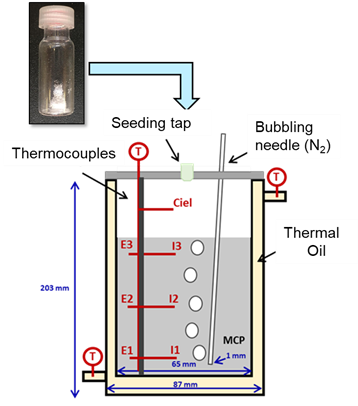
Introducing our new partner: SusDAT – Data miracles for SUStainability – Partner for data collection and processing
SusDAT develops smart systems for gathering data from various sources such as sensors, cameras or other systems providing data through API. Gathered data can be processed on-site using edge computing methods and/or sent to a cloud for deep analysis. Data from various sources are combined using data fusion methods. SusDAT creates algorithms for data processing, classification and decision making using machine learning methods. Performed analysis could include image analysis, anomaly detections or pattern recognition.
Visit the official website HERE.
For more information please contact : info@susdat.com or frycek@amires.eu
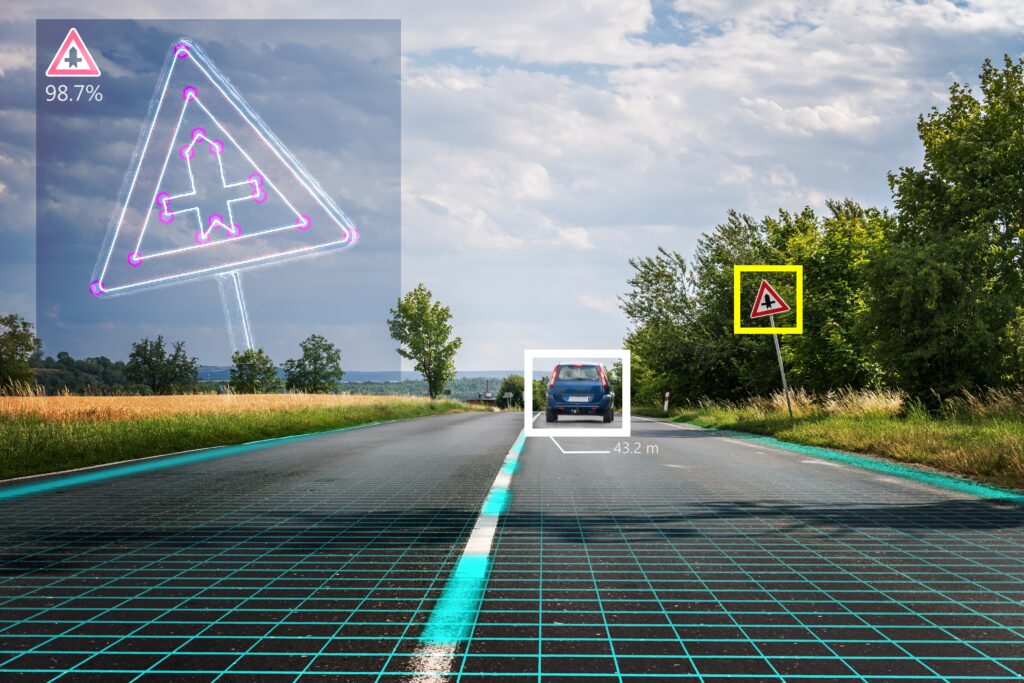
EU to invest €13.5 billion in research and innovation for 2023-2024
The Commission has adopted the main Horizon Europe work programme 2023-24, with around €13.5 billion to support researchers and innovators in Europe to pursue breakthrough solutions for environmental, energy, digital and geopolitical challenges.
As part of the broader EU €95.5 billion research and innovation programme, Horizon Europe, this funding will contribute to the EU reaching its climate goals (€5.67 billion), increasing energy resilience (€970 million), and developing core digital technologies (€4.5 billion). It will also address targeted actions to support Ukraine (€70 million), boost economic resilience and contribute to a sustainable recovery from the COVID-19 pandemic (€1 billion).
More than €600 million will be invested in the five EU Missions in 2023. This will support research and innovation, which is expected to result in, for example, better prepared local and regional authorities to face climate-related risks, the restoration of at least 25 000 km of free-flowing rivers, Climate City Contracts with 100 cities, the roll-out of soil monitoring programmes or optimise minimally-invasive diagnostic cancer interventions.
Read the full Press release HERE.

Marie Skłodowska-Curie Actions: €1.75 billion in new calls for researchers and institutions
On the 7th December 2022 the Commission announced new calls to support researchers’ training, skills and career development under the Marie Skłodowska-Curie Actions (MSCA), the EU’s flagship funding programme under Horizon Europe for doctoral education and postdoctoral training. With a total budget of €6.6 billion over 2021-27, the MSCA support researchers from all over the world, at all stages of their careers and in all disciplines. They also benefit institutions by supporting excellent doctoral, postdoctoral programmes and collaborative research and innovation projects, boosting their global attractiveness and visibility and fostering cooperation beyond academia, including with big companies and SMEs.
The MSCA will provide over €856 million in 2023 and €902 million in 2024 covering the five main actions of the work programme:
- MSCA Doctoral
- MSCA Postdoctoral
- MSCA Staff Exchanges
- MSCA COFUND.
- MSCA and Citizens
Under the new work programme, the MSCA will also fund a Feedback to Policy initiative to make stronger thematic links between MSCA projects, raise visibility of their contribution to key EU policy priorities and gather stakeholder feedback on ways to maximise the programme’s impact.
The calls follow the adoption of the Horizon Europe 2023-24 work programme.
Red the full press release at the European Commission Press corner.

AMIRES Investments as pre-seed or seed partner
AMIRES Investments s.r.o. is a newly created legal entity with the aim to support young entrepreneurs and companies. It provides a broad range of support, from the advice and guidance during the incorporation and in early stages of the company, through interim management up to a membership in governing bodies (e.g. Board of Directors) to help companies achieve their business aspirations. The broad range of contacts collected by experts during many years will be mobilized for significant advancement of technology readiness and customer feedback collection. AMIRES Investments will also advise on and facilitate private and public fundraising via multiple national or international opportunities. This equity-based support is focused on DeepTech companies, active in Medical, Energy, Environment, Industrial and Agrotech domains.
AMIRES Investments activity:
- Pre-seed, Seed and Angel Equity investments
- Advisor and/or Board member
- Interim management (incl. general management, marketing and sales)
- Strong support for public (Horizon Europe) funding
- Early-stage financing (e.g. before incorporation or TRL 3-6)
Advantage of AMIRES Investment support:
- Acceleration of company business planning
- Strengthened partnership with suppliers and/or pilot or early-stage customers
- Balanced team expertise needed for further fundraising
- Significant growth and validation / demonstration enabled by various funding instruments
- Increased overall company performance
For more information, contact Rudolf Fryček – frycek(at)amires.eu
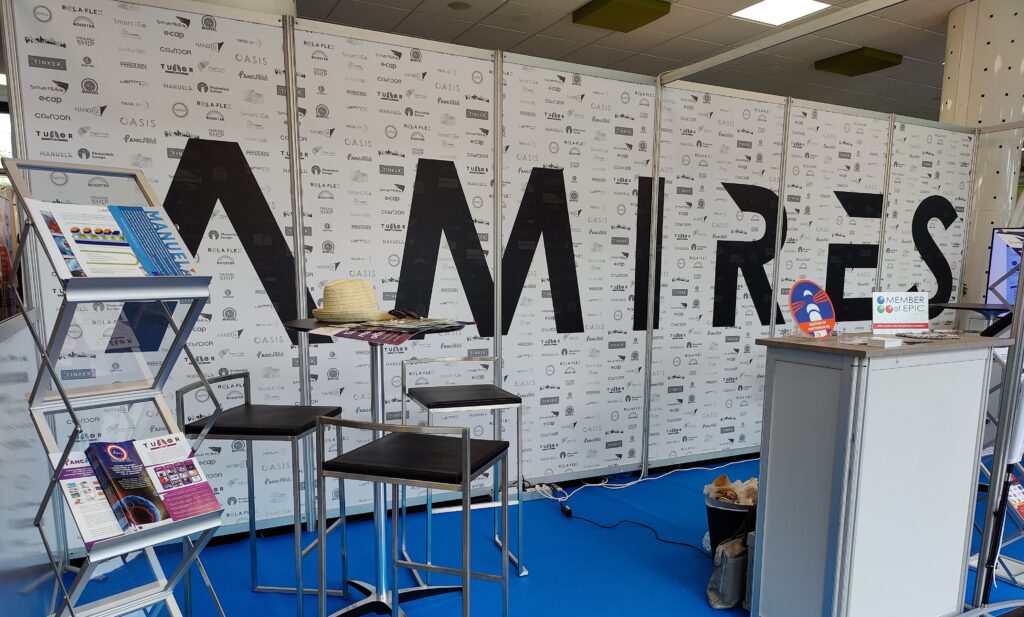
European Green Deal: Commission proposes certification of carbon removals to help reach net zero emissions
The European Commission adopted a proposal for a first EU-wide voluntary framework to reliably certify high-quality carbon removals. The proposal will boost innovative carbon removal technologies and sustainable carbon farming solutions, and contribute to the EU’s climate, environmental and zero-pollution goals. The proposed regulation will significantly improve the EU’s capacity to quantify, monitor and verify carbon removals. Higher transparency will ensure trust from stakeholders and industry and prevent greenwashing. Carbon removals can and must bring clear benefits for the climate, and the Commission will prioritise those carbon removal activities which will provide significant benefits for biodiversity. Moving forward, the Commission, supported by experts, will develop tailored certification methods for carbon removal activities delivering on climate and other environmental objectives.
This proposal is essential to the EU’s goal of becoming the world’s first climate-neutral continent by 2050. To achieve this goal, the EU needs to reduce its greenhouse gas emissions to a minimum. At the same time, the EU will have to scale up the removal of carbon from the atmosphere to balance out emissions which cannot be eliminated.
Read more about the proposal HERE.

Towards a Tumor-Lymph Node-on Chip platform: M18 meeting and first successful review of Tumor-LN-oC
To do so, the project utilises a wide selection of tools ranging from cell and tissueengineering to laser bioprinting, MIP spectroscopy and a software for automatic image analysis. All of these technologies will be integrated in an automated system which can be interfaced with standard lab equipment.
From 16-18 November, AMIRES travelled to Greece to meet representatives from all 11 partner organisation for the project M18 project meeting to present and discuss progress and challenges of the activities, and to find common approaches to individual and shared obstacles.Overall, partners are making promising advances in the development of their individual technological modules, and the integration into a consolidated organ-on-chip combined platform is starting to be in reach.
The 2-day internal meeting was followed by the review meeting where partners presented results and achievements of the first 18 months of Tumor-LN-oC to HaDEA, the EU funding agency, and the appointed external expert. The project received good feedback from the reviewers, as well as many useful comments and valuable recommendations that will be taken into account during future months.
The interdisciplinary consortium which unites partners with a background in biology, chemistry, physics, computer science and machine learning and much more has proven to be well equipped to meet the ambitious objectives of the project. AMIRES leads the project management, dissemination and commercialisation work of Tumor-LN-oC, all of which are key for smooth implementation and exploitation of the project, thus creating and amplifying the desired impact. Tumor-LN-oC is also the first Horizon lump sum project in AMIRES portfolio giving us valuable experience with this type of project, which will become much more prevalent in coming years.
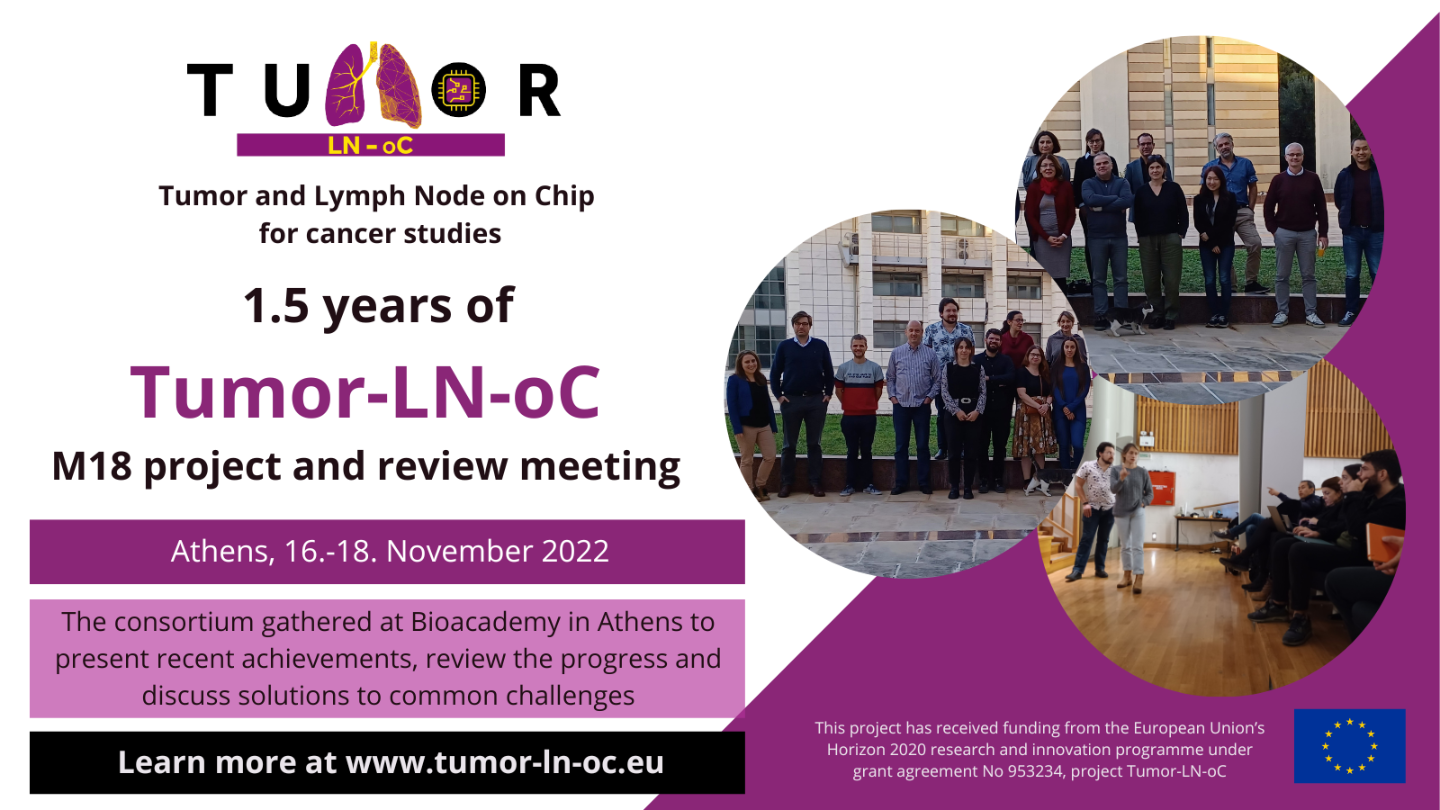 |
FRIENDSHIP Progress Meeting in Munich
On 24th and 25th of November, FRIENDSHIP team got together for the M30 progress meeting. Six months after the first in-person meeting in Sweden, the consortium met again in Munich (Germany), hosted by Clariant, one of the project’s industrial partners.
At the beginning of the meeting, the Project Coordinator, Valéry Vuillerme (CEA), presented the project’s progress and took the opportunity to thank everyone for their hard work.
On the agenda over the two days, the consortium summarized the progress achieved so far and gave an overview of the work performed in the running Work Packages. In the end, partners also set the course for the future activities.
Whereas, on the second day discussions took place in specific workshops dedicated to the pre-design and decision-making tools, which will be implemented in the FRIENDSHIP website, and to the first training video that will be released soon.
In a separate workshop, the partners had a brainstorming session on the exploitation strategy of each Key Exploitable Results (KER). Thus, for each KER, result general description, IPR and TRL level were checked, discussed, and updated.
In addition, at the end of the meeting the consortium had the opportunity to visit Clariant industrial site in Moosburg and to see first-hand the structure of the plant and the challenges related to the implementation of the FRIENDSHIP solution there.
Exciting six months are ahead of us. Stay tuned for details!
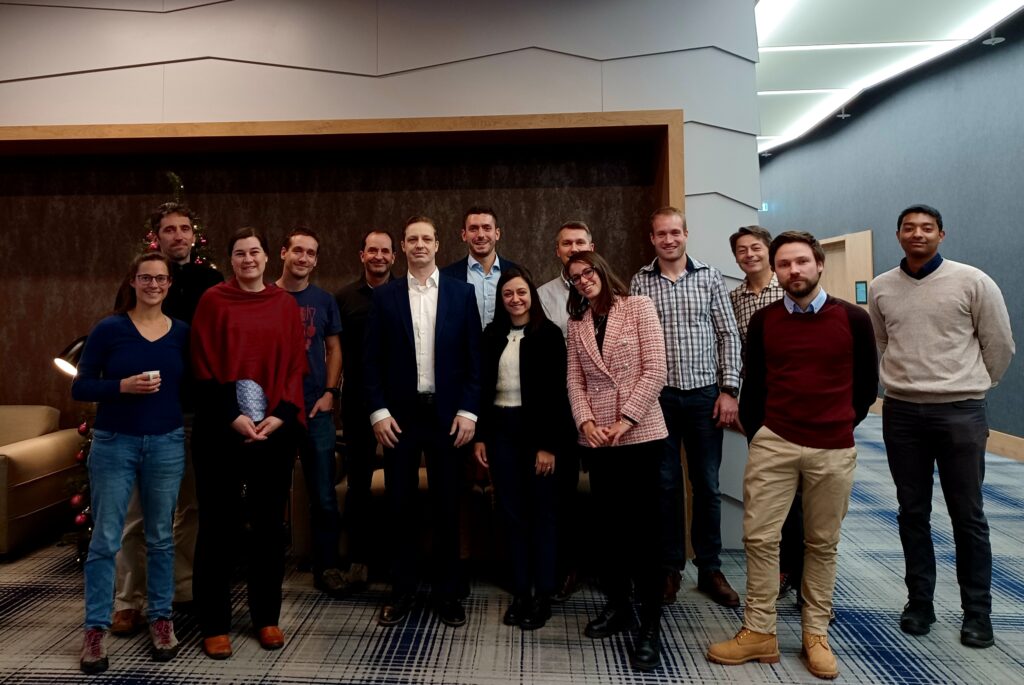
MEET OUR TEAM: Marina de Souza Faria
Marina de Souza Faria joined AMIRES team as a Project Manager in November 2022. She has a bachelor’s and a teaching degree in Geography from the University of Sao Paulo, in Brazil. During her studies, she got a merit scholarship to study for one semester at Charles University, Prague, Czech Republic. For her master’s degree, she joined the Czech University of Life Sciences Prague, the Faculty of Environmental Science for the program landscape planning/landscape engineering which she graduated with honours presenting her master’s thesis “Spatiotemporal Changes at Krkonose Mountains Alpine Tundra”. The thesis was a part of her internship at the Botanic Institute of the Czech Academy of Sciences. Due to her research background in environmental science and technology (spatial science) she kept improving her experience at INRAE in Grenoble, France working on a biodiversity project concerning the spatial analyses of invasive species.
In her free time Marina likes to be in the nature, hiking and travelling to meeting different cultures and landscapes. Besides that, she like to enjoy the time talking with her family and friends.
In AMIRES Marina is supporting the Deep Tech team and will be involved in MADE-3D project.
Welcome on-board Marina!
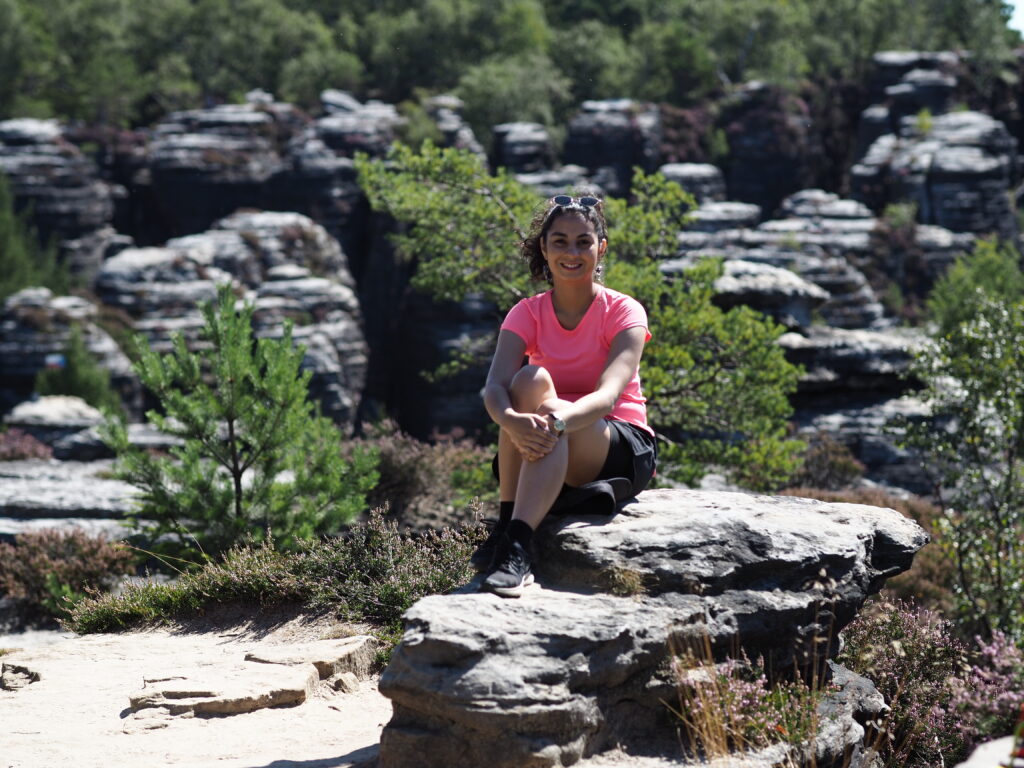
AMIRES Community Management Platform for photonics-based medical devices presented at COMPAMED
For four days, from 14th to 17th November, 5000 exhibitors from 70 countries and more than 81 000 visitors from various sectors of the global healthcare industry travelled to Düsseldorf, Germany, to attend MEDICA 2022 and COMPAMED 2022 (the biggest fair in the field). Among them, was MedPhab pilot line, which was one of the exhibitors of the IVAM Product Market (The International Microtechnology Business Network) at COMPAMED. In addition, several partners of MedPhab – VTT, Screentec, CSEM, Philips, Jabil – gave individual presentations at the High-Tech Forum IVAM.
Every year, COMPAMED/MEDICA dual event brings together stakeholders from medical technology and service providers, suppliers, integrators, and policy makers. The interactions ignite the new networks, projects, ideas, and business partnerships benefiting the healthcare industry. The COVID pandemic has accelerated the digitalization of healthcare, through acquisition and deployment of technologies such as artificial intelligence, robotics, electronic medical records, sensors, high-performance components, biocompatible materials, and others. The deployment of these innovative technologies is dependent on product approval, regulatory affairs, certification as well as market peculiarities.
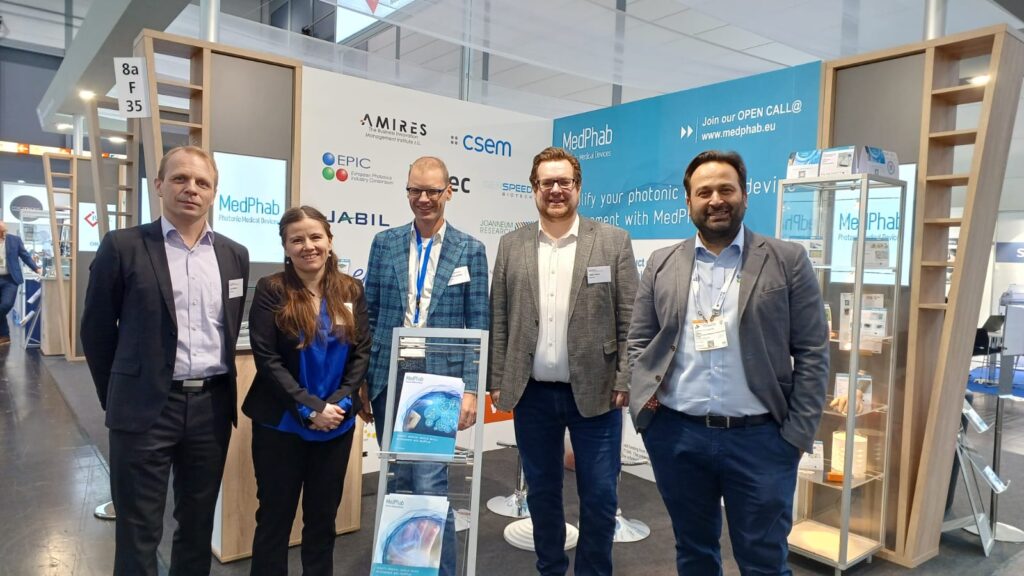
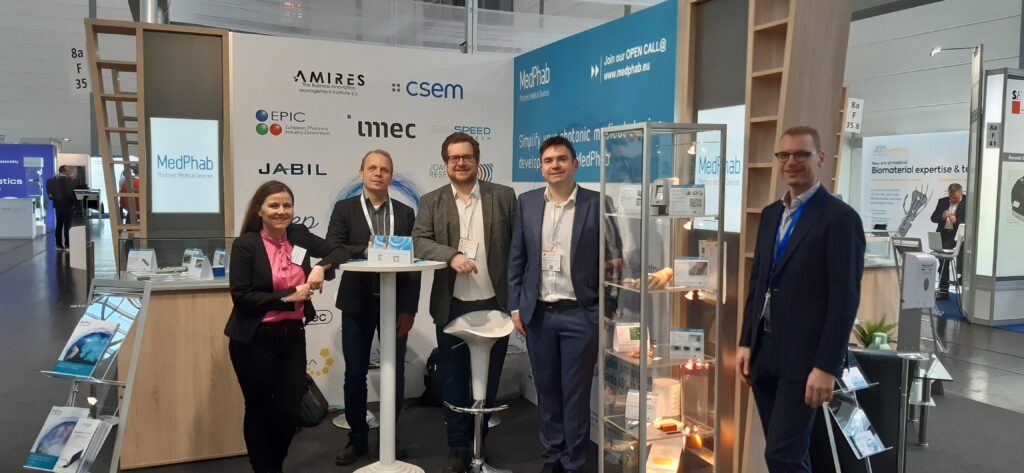
AMIRES is at the heart of these topics. On the one hand, AMIRES has a relevant network with research organisations, universities, and companies as technology and knowledge providers. On the other hand, it is in close contact with health economics, regulatory experts, and clinicians. This position allows to leverage the company’s extensive knowledge and expertise in European framework projects that impact healthcare.
With this vision, combined with the need to connect numerous stakeholders of the medical supply chain, specifically in photonics technologies, AMIRES and its sister organisation ABIMI (AMIRES, The Business Innovation Management Institute, z.ú.) have created the community platform for medical photonics through the MedPhab pilot line (EU-H2020 funded project No. 871345). MedPhab community management platform, presented at COMPAMED-MEDICA is a digital platform that showcases a comprehensive catalogue of prototypes, technologies, products, and services in medical photonics and enables sharing information, announcements, and news to the benefit of the ecosystem. The community management platform is available HERE.
Organizations that belong to the value/supply chain of photonics-based medical devices and actively contribute to the ecosystem as key opinion leaders or stakeholders, can become part of the platform. Building bridges and connecting organisations through the ecosystem will contribute to accelerating the introduction of innovative products to the market and revolutionizing healthcare through photonic technologies.
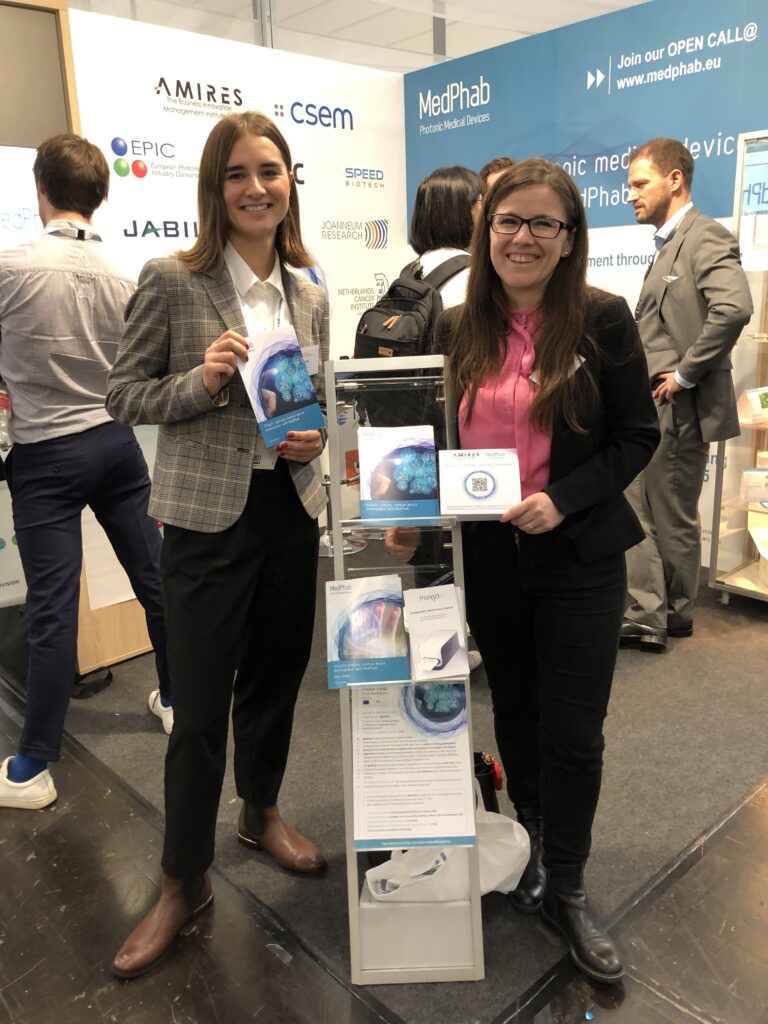
One of the building blocks of the ORGANTRANS technology: Vascularization of 3D hydrogels in vitro by endothelial and mural cells
All organs depend on blood vessels for nutrient and oxygen supply. The growth of functional blood vessels in 3D bioprinted tissue constructs for regenerative medicine applications currently remains a challenge. VIB, in collaboration with DWI Leibniz-Institute for Interactive Materials, assesses vascularization approaches of 3D hydrogels in vitro, by incorporating vascular endothelial and mural cells into the hydrogel bio-ink.
For liver tissue engineering, these approaches will be applied in the ORGANTRANS project to generate bioprinted, hydrogel-based liver organoid structures with preformed microvessel networks to facilitate connection with the host vasculature.
Find out more about the ORGANTRANS technology HERE.
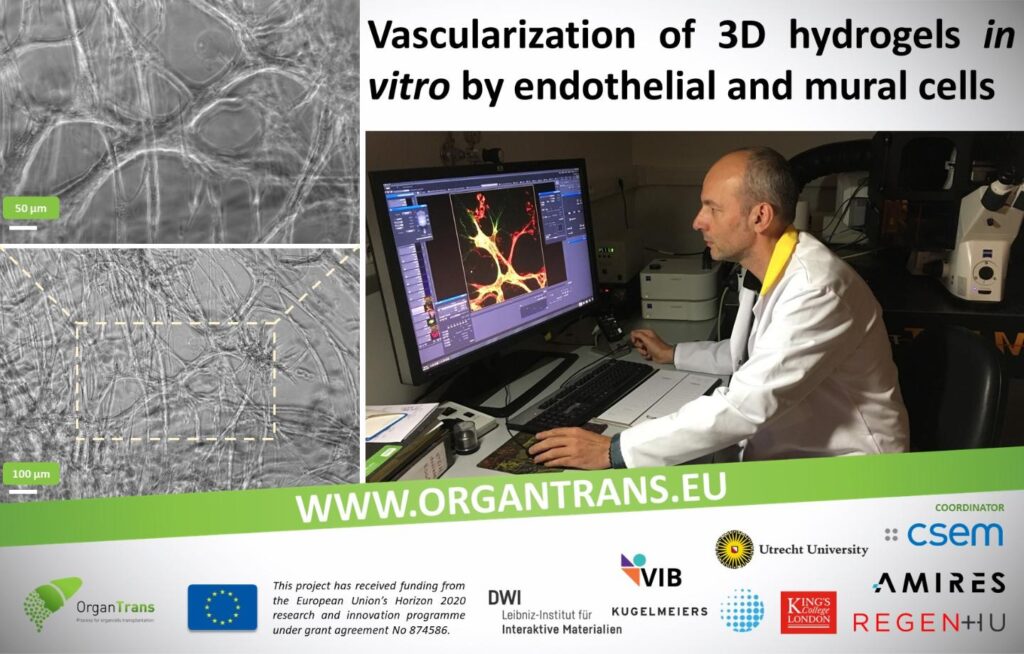
Compressor prototype for the heat pump is installed!
In the last months, SINTEF developed a lubrication free turbo-compressor for the steam heat pump of the FRIENDSHIP system.
The designed compressor prototype allows temperature lifts of up to 30 Kelvin in a single stage compression and was dimensioned to a capacity range of around one ton per hour of compressed steam, based on a heat source temperature of 100°C (atmospheric pressure).
The prototype was designed for a multistage compression approach and the last stage has the ambition to achieve a pressure of 15 bar, which will give a condensation temperature of approximately 200 °C.
In October the turbo compressor rig was finally installed in Norway, with a two-stage setup using turbo compressors from Rotrex. The impellers are made from titanium, rotate up to 90.000 rpm and operate oil free. Also, they are equipped with a purge chamber, where pressurized air is used to drain out steam condensate, for improving sealing between the impeller and the oil filled gearbox.
Moreover, after each compression stage de-superheating stage through water injection is employed to reduce the inlet temperature into the next compression stage.
In the end the steam is extended in an expansion valve and regenerated in a condenser, i.e., steam supply tank.
Now it is time to begin the testing phase, which will include the testing of the new compressor flange seals, of the new thermos-seals between compressor section and steam regenerator tank, the testing of water supply and purge air system.

InPulse project success story: PhotonFirst creates Modular Photonics Platform with chips from JePPIX Pilot Line
Photonic integration is essential in realizing our digital future: light-speed, super-efficient, precise and compact. The JePPIX Pilot Line enables fabless businesses to bring their Photonic Integrated Circuits (PIC)-based product to market fast and cost effective. We bridge the gap from prototype to PIC production by facilitating an open-access foundry model.
The possibilities of PICs are many. PhotonFirst, the global innovation leader in integrated photonics sensing, collaborated with partners of the JePPIX Pilot Line to design and fabricate indium phosphide optical chips for their Modular Photonics Platform. With standardized building blocks, this platform allows PhotonFirst to configure a dedicated sensing solution for each customer without developing the system completely from scratch. With a wide range of combinations, this covers the vast majority of customer requirements and lowers the threshold of using integrated photonics for measurement and data generation substantially. PhotonFirst’s customers are active in various fields of applications, including aerospace, mobility, and medical.
The next steps of the Modular Photonics Platform are miniaturization and greater manufacturability. Nick Singh, CTO of PhotonFirst, says: “Our ongoing cooperation with the partners in the JePPIX Pilot Line and our customers will enable us to make high-quality chip-based sensing more accessible in the next few years. Together, we are committed to driving the industrialization and use of high-performance indium phosphide Photonic Integrated Circuits.”
The JePPIX Pilot Line brings together Europe’s key players in the fields of PIC manufacturing, design, software, equipment development and technology R&D. Amires is part of InPulse project which has been enabling JePPIX Pilot Line since January 2019. JePPIX is now open to provide extra support to innovative businesses through co-financing their development projects aimed at transitioning from the first proof-of-concept circuit to production.
Find out more about JePPIX services at www.jeppix.eu/jeppix-pilot-line/services/ and about financial support to EU-based business at https://www.jeppix.eu/jeppix-pilot-line/request-financial-support/
MARVEL M24 meeting in Prague
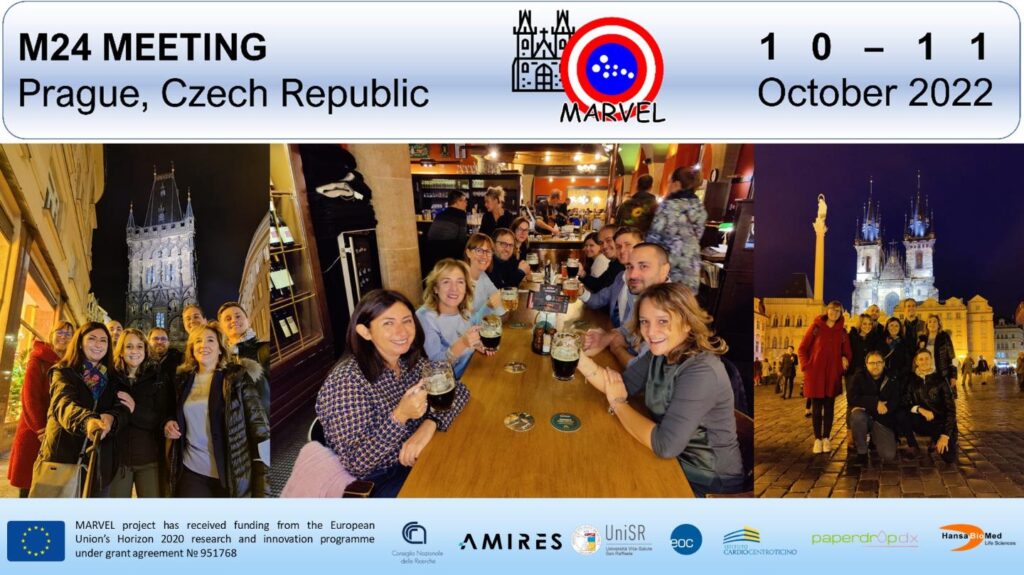
First six months of eCAP confirm the need for innovative e-health solutions in digestive disease diagnostics
November marks the end of the first six months of eCAP – a collaborative research and innovation project determined to tackle the worldwide gastroesophageal reflux (GERD) epidemic by developing a diagnostic smart capsule connected to an e-health platform. On the occasion of this milestone, the consortium partners met over a day-long teleconference to discuss project progress and plan next steps. ABIMI is supporting the dissemination and management activities within eCAP.
Over the course of the last half a year, the consortium has successfully completed the activities laying the groundwork for eCAP specifications and user design. Moreover, partners have undertaken the initial mapping of the regulatory landscape and established the methodology for the health technology assessment and cost-benefit analysis of eCAP. This scoping work is aimed at ensuring the project results in meaningful innovation catering to the needs of a growing patient population on the one hand, and health care systems stretched for resources on the other.
The stakeholder interviews conducted by Imagination Factory – work package leader for User Specifications – indicate eCAP consortium is on the right track. Both, patients and clinicians look forward to innovative technologies to increase the accuracy and ease of use of tests utilized for diagnosing gastroesophageal reflux. While patients would appreciate improved comfort, clinicians and nurses stress the need to cut the inefficiencies and costs related to the devices currently on the market. The stakeholder input gathered will feed into the mechanical design of the smart capsule, the work for which has been kicked off under the leadership of Tyndall National Institute.
At the M6 Progress Meeting, the consortium was also happy to welcome the contributions from its freshly formed External Advisory Board and Ethics Advisory Board. The Boards are composed of renowned experts from fields ranging from gastroenterology and medical devices to regulatory and ethics.
Read more about the meeting and project progress on eCAP website here.
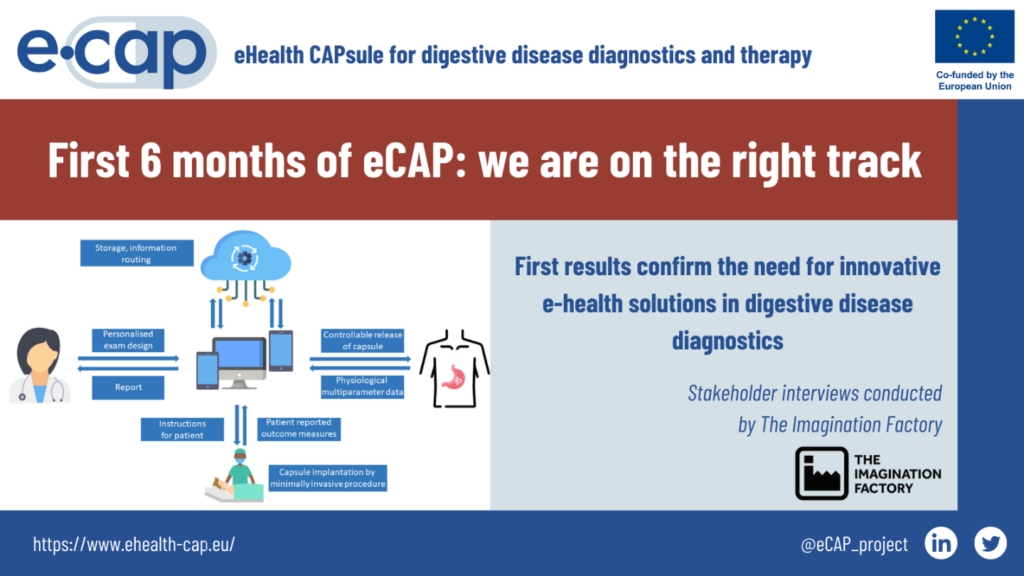
First NanoQI Workshop and M30 Meeting
On the 18th of October, the NanoQI project partners had a chance to meet after over a year to discuss their progress on the M30 meeting. All partners were glad to discover in person one of the application sites – the thermal curing oven of perovskite solar cells at the TNO, in Eindhoven and to receive feedback from our external advisors.
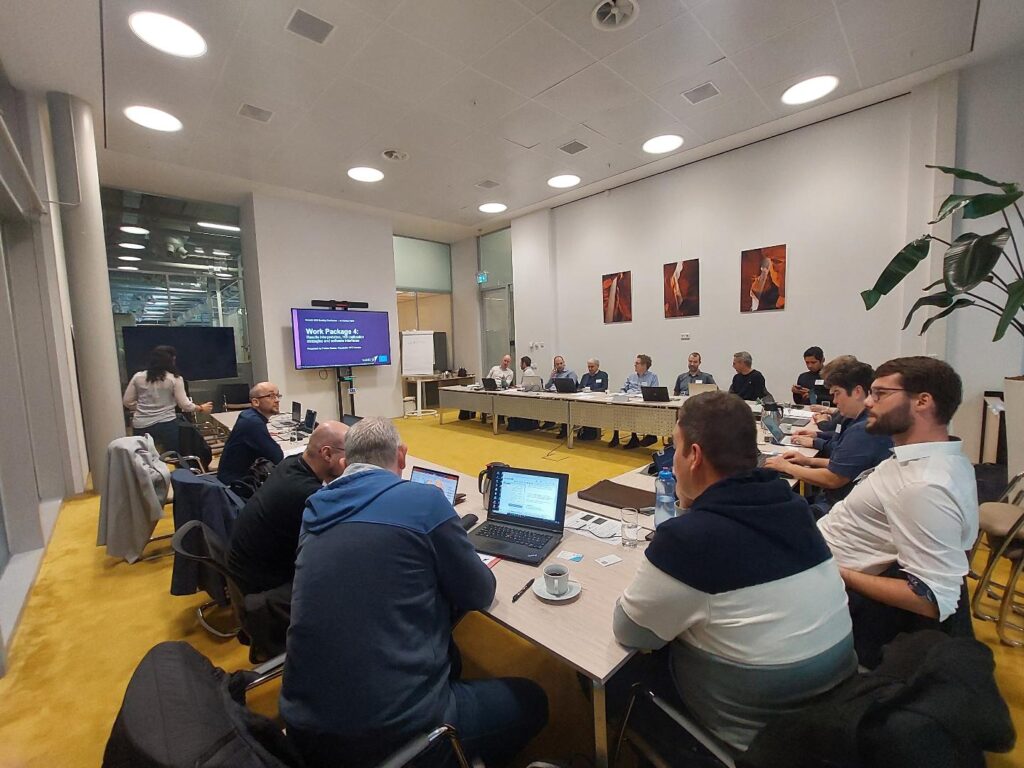
On the second day, 19th of October, the meeting continued with an external event, showcasing the project results to almost 60 external participants during the Quality Control in Thin-Film Applications workshop.
TNO & Solliance welcomed us at the High Tech Campus Eindhoven where the project partners presented their impressive results and explored the potential pathways to industrial applications of the NanoQI methodology. Perovskite and tandem solar cells were the overarching theme in the talks, as well as the exhibition.
To close the day, the workshop participants could experience the project first-hand in a live demo of the hyperspectral imaging cameras, which were on display as well during a tour of the TNO pilot line, where the integrated x-ray diffractometer was also introduced.
We are looking forward to successfully finishing the NanoQI project!
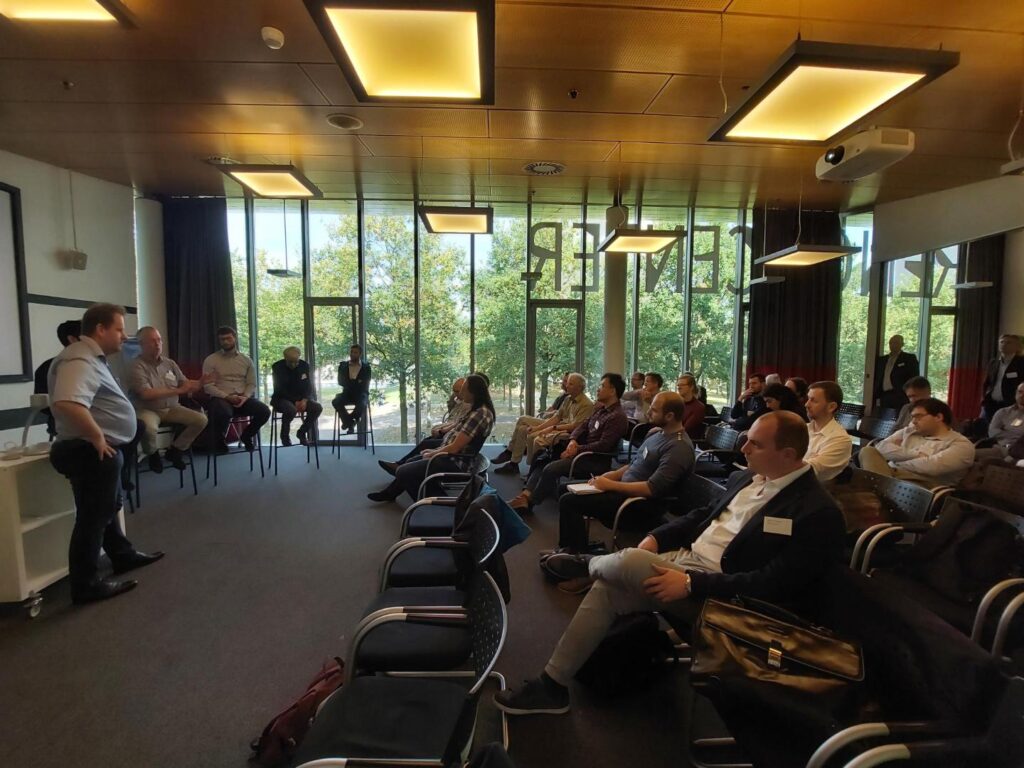
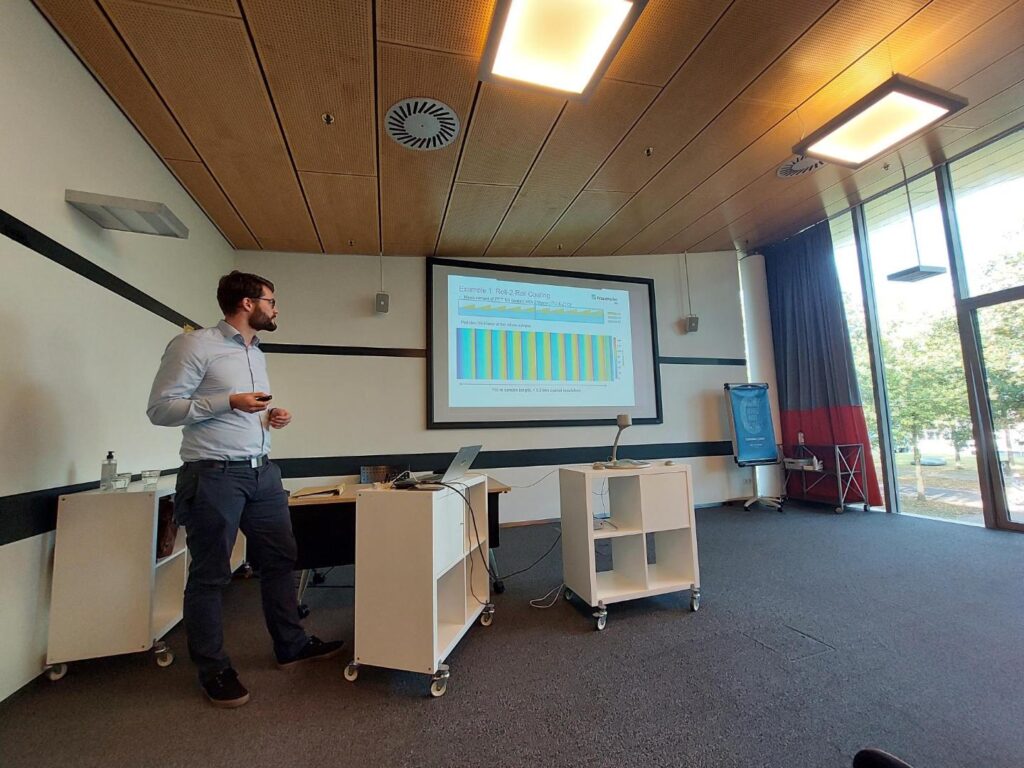
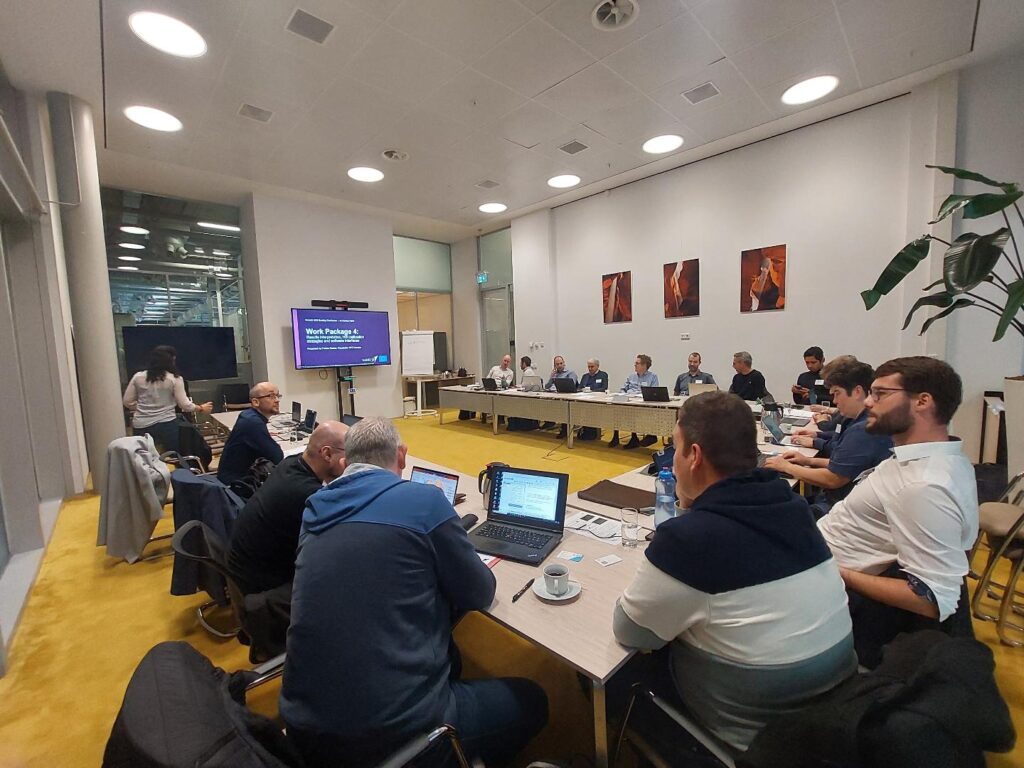
ComBioTES: storage system designed!
ComBioTES system is composed of two storages, one PCM-TES (Phase Change Material-Thermal Energy Storage) and one Versatile TES. Therefore, one of the most crucial tasks of the project is to design and manufacture them.
In the first place, CEA performed four batteries of tests in their equipped laboratory, to determine the behaviour of the PCM and the latent TES. The first batteries of tests were done to compare the real performances of the HMH’s latent heat storage with the Sodium Acetate Tri-hydrate (SAT) as PCM and with the first bio-based PCM supplied by Roquette. Whereas, the following batteries of tests were performed on CEA’s highly instrumented experimental TES, to learn more about the PCM behaviour, in perfectly known and controlled heat exchange conditions.
Afterwards, CEA finalized the design of the PCM-TES and Versatile TES, according to the requirements established in the first phase of the project. The PCM-TES has an optimal design and 3 backup designs, while, for the Versatile TES the design is complete, and the engineering phase has just started.
The plan for the next months is to manufacture both TES and start the testing phase in Spring 2023. There is more to come!
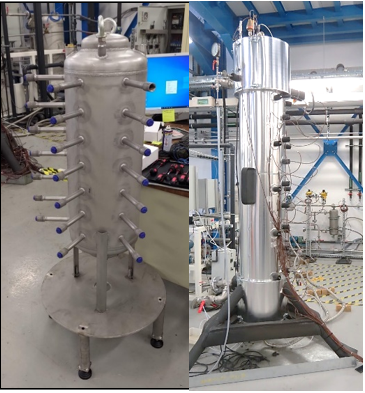
AMIRES long term cooperation with the Department of Biomedical Engineering and Measurement of the Technical University of Košice
In Prague, we were glad to kick off the collaboration between AMIRES, and the Department of Biomedical Engineering and Measurement of the Technical University of Košice (TUKE), Slovakia.
AMIRES acknowledges Marek Schnitzer, and part of his team Dr. Miroslav Kohan, Tomáš Bálint, Nikola Lisá in joining the Second Regenerative Medicine workshop on October 12 at the Technology Centre CAS, as well as in the RegMed workshop dinner a day before, on October 11.
Marek Schnitzer presented during the workshop the capabilities, results and use cases on bio-additive and additive manufacturing in personalized 3Dprinted implants of the TUKE Department of Biomedical Engineering and Measurement. All presented implants were designed in cooperation with the Department of Biomedical Engineering and Measurement (KBIaM, SjF, TUKE) with the spin-off company CEIT Biomedical Engineering, s.r.o., later Biomedical Engineering, s.r.o.(ISO13485 certified) and produced by the additive technology with porous structure from titanium alloys Ti-6Al-4V, composites and other materials.
The main interests of the Department of Biomedical Engineering and Measurement at TUKE are development of biodegradable materials such as polymers, composites, and others, development of instrumentation for additive manufacturing (production /printers) in clinical settings, bioreactors and quality measurement of filaments, composite structure, and ceramics. The members of the department have experience in collaborating in National projects, however they search to increase their collaboration with European organisations in the Horizon Europe framework.
The Department of Biomedical Engineering and Measurement at TUKE welcome organisations to partner in new endeavours to reach wider impacts on tissue engineering, implantology and regenerative medicine.
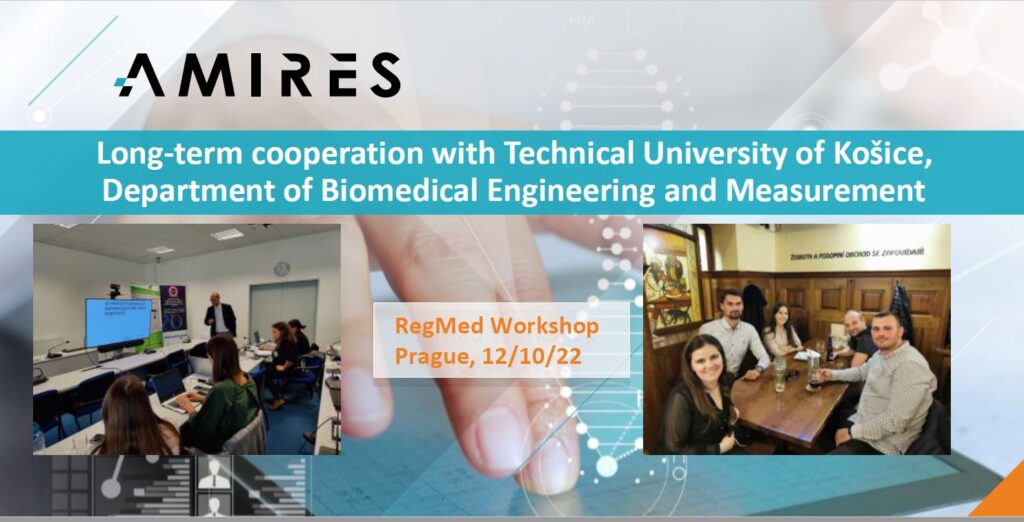
FlexFunction2Sustain M31 meeting was full of discussions
On 12th and 13th of October, AMIRES participated in the 31-month consortium meeting of the FlexFunction2Sustain project in Athens, Greece.
On the agenda over the two days, the consortium has recapped on the progress achieved forwards the objective to create an Open Innovation Test Bed (OITB) for sustainable nanofunctionalised flexible plastic and paper products. An overview of the work performed in the running Work Packages was presented and the partners set the course for the future activities. On the second day, discussions in specific workshops dedicated to the establishment of the OITB Association took place. As a symbolic act which expresses the intent of joining the Association, the partners signed the “Athens Declaration”. Equally important was the progress with the FlexFunction2Sustain Use Cases as well as the Pilot Cases included in the project via the Open Call which aims at validating the future OITB services. In a separate brainstorming session, the partners discussed how to increase the dissemination and promotional activities further to attract more proposals for the next and last cut-off date (27th January 2023).
We are looking forward to continuing working towards the launch of the OITB.
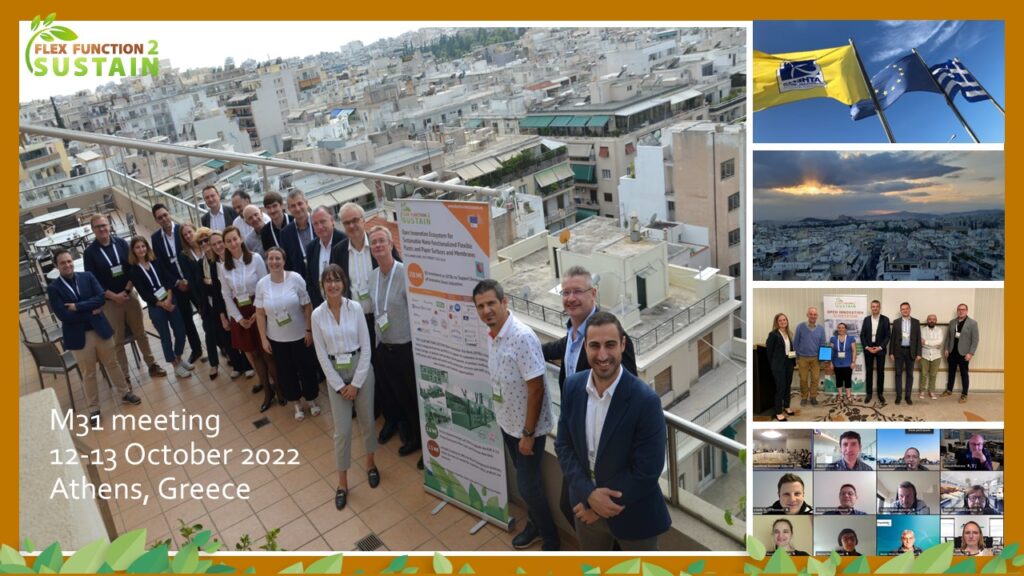
Despite challenges EU innovation performance continues to improve
The Commission has published the 2022 edition of the European Innovation Scoreboard, which reveals that the EU’s innovation performance has grown by about 10% since 2015. Compared to 2021, innovation performance in 2022 has improved for 19 Member States, and declined for eight. Compared to the EU average, global competitors such as Australia, Canada, Republic of Korea, and the United States continue having a performance advantage over the EU. Nevertheless, the EU has closed its performance gap with these nations and has surpassed Japan since 2021.
Members States fall into four performance groups: Innovation leaders (performance is above 125% of the EU average), Strong innovators (between 100% and 125% of the EU average), Moderate innovators (between 70% and 100% of the EU average) and Emerging innovators (below 70% of the EU average). Sweden continues to be the best performer in the EU. Other Innovation Leaders are Belgium, Denmark, the Netherlands and Finland.
In comparison to last year’s edition, three countries have changed performance groups. The Netherlands has become an Innovation Leader, Cyprus a Strong Innovator and Estonia a Moderate Innovator.
The Czech Republic is Moderate innovators.
The report covers the EU Member States and several other countries in Europe and around the world. Compared to the previous years, this year’s edition included three additional countries, namely Albania, Chile and Mexico.
The full report is available HERE.

AMIRES was presented at ICEFPE22 and AGRIVOLTAICS 2022
Amires was presented at the 12th International Conference & Exhibition on Green Flexible Printed Electronics Industry (ICEFPE22) and AGRIVOLTAICS 2022, which took place from 10th to 12th October 2022 in Athens, Greece. The event got together various stakeholders by providing them opportunity to discuss, network, make business and establish the strategy and policy for boosting the rapidly evolving Green FPEs Industry contributing to a Green, Digital, Decarbonized Industry and Circular Economy, Society and Planet.
During the event, Dr. Vaclav Smitka, Chief Process Officer at AMIRES, presented the company. His talk on R&I tools, services and opportunities: from research to impact provided a practical overview of the possibilities in the R&I ecosystem by justifying the tools, which could be utilised to further steer innovations. Moreover, successful examples from AMIRES portfolio of industry driven projects which will provide high-impact future innovative solutions in the Flexible Organic & Printed Electronics field were showcased. Financed by the European Union’s Horizon 2020 and Horizon Europe research and innovation programmes, the examples demonstrate how research and innovation efforts can be aligned to achieve maximum impact.
More information about the event available HERE.
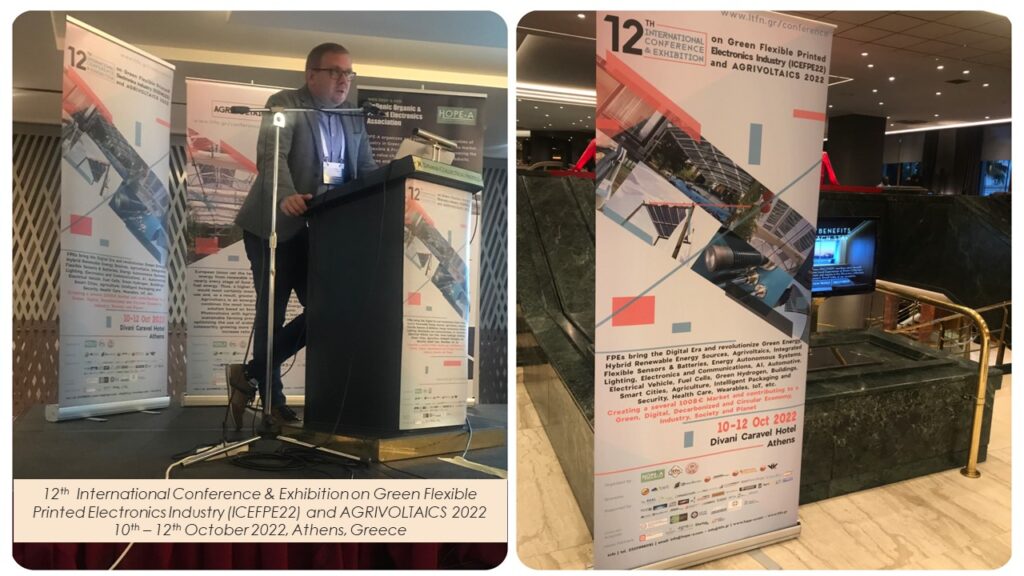
The registration for EIC summit 2022 is now open
The European Innovation Council is organising the second edition which will take place on 7-8 December 2022 in Brussels, in Tour & Taxi.
The first day of our flagship event will feature inspiring keynotes, major announcements and award the prestigious EIC Prizes. Mariya Gabriel, the European Commissioner for Innovation, Research, Culture, Education and Youth will open the EIC Summit and the exhibition, join the session on New European Innovation Agenda and announce the winners of the EIC Women Innovators Prize and the iCapital Award. The first day will be web-streamed and open to a broader public.
The second day of the Summit will be fully dedicated to our EIC beneficiaries. The programme will be packed with a variety of practical workshops on finance, intellectual property rights (IPR), and deep-tech technology that will help our beneficiaries in their day-to-day work.
During the event, there will be plenty of opportunities for networking and meeting investors, EIC Board Members and Ambassadors or the EIC Programme Managers.
More information is available HERE.
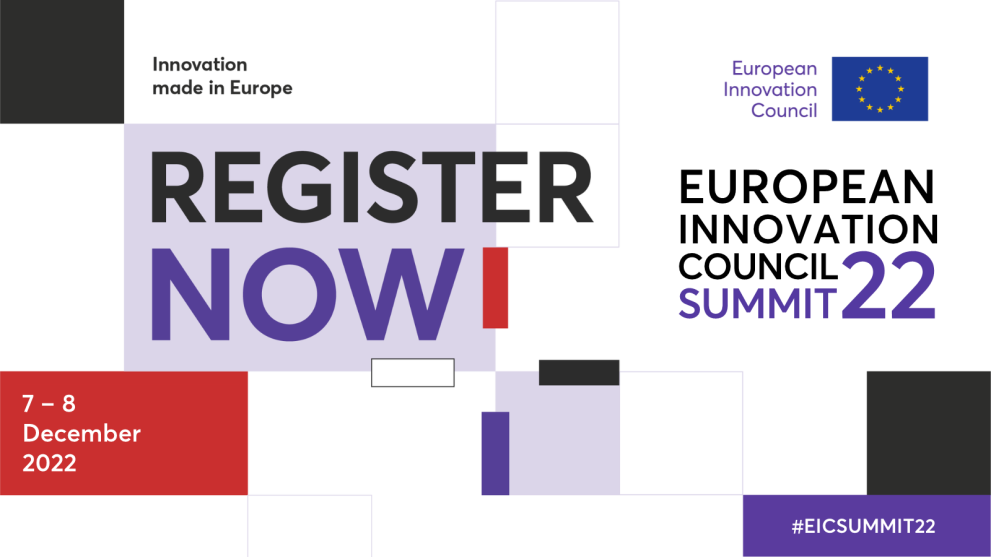
Launch of another amazing project in AMIRES’ portfolio on sustainable electronics – ECOTRON!
Printed circuit boards (PCBs) are a staple these days, you can find them everywhere, from automotive components to everyday objects such as smart watches and medical devices. Despite all their advantages, PCBs are unfortunately not environmentally friendly. This is where ECOTRON steps in: new printed electronics (PE) technologies will be developed to replace the state-of-the-art PCBs. In addition, novel biobased or compostable materials for PE will be developed as well as PE designs that can be recycled to improve to overall circularity of the production process.
Renowned research centres, a university, SMEs and industry have joined forces to demonstrate the developed technologies in four use-cases: an on-body drug dosing device, athletes’ sport tracker, LED light foil and smart packaging for medicinal drugs.
This 4-year project funded by European Union’s Horizon Europe has just started. Stay tuned for more news and first results!
 |
MEET OUR TEAM: Jaroslava Kašparová
We are very happy to welcome Jaroslava, who joined AMIRES and Energy & Sustainability team in October 2022. Jarka graduated from University of Economics in Prague with her studies focused on International Trade, European Integration and Anglo-American studies.
She gained her expertise in a public sector working for the Ministry of Industry and Trade: being responsible for OECD and EU research and development policies – fighting for national interests in this field. Furthermore, she actively worked on creation and development of frameworks and rules of EU funds (OPPIK – Operational programme for entrepreneurship, innovation and competitiveness) and National aid programme TRIO which was created to support projects especially in KETs and to enhance cooperation between research organisations and private companies. After five years’ experience in the area of Research, development and innovation she dedicated her further career to trade diplomacy and she gained experience at a position of trade officer for bilateral trade relations between the Czech Republic and China, Taiwan.
She loves to spend her days at the sea anywhere in the world. With respect to the fact that staying at the sea is not always possible – she loves to run away from Prague for weekends in nature. Besides of running away from the city life, she invests her time in her family and close friends, plays guitar, and loves to move her body. She doesn’t like complainers and all the injustice of the world. Ah – and Alain Delon is the only man in the world she would be willing to iron shirts for.
In AMIRES Jaroslava acts as a Project Manager in Horizon Europe SuPerTandem projects (sustainable materials for development of highly efficient all-perovskite photovoltaic modules) and Convert2Green (climate neutral materials in innovative products).
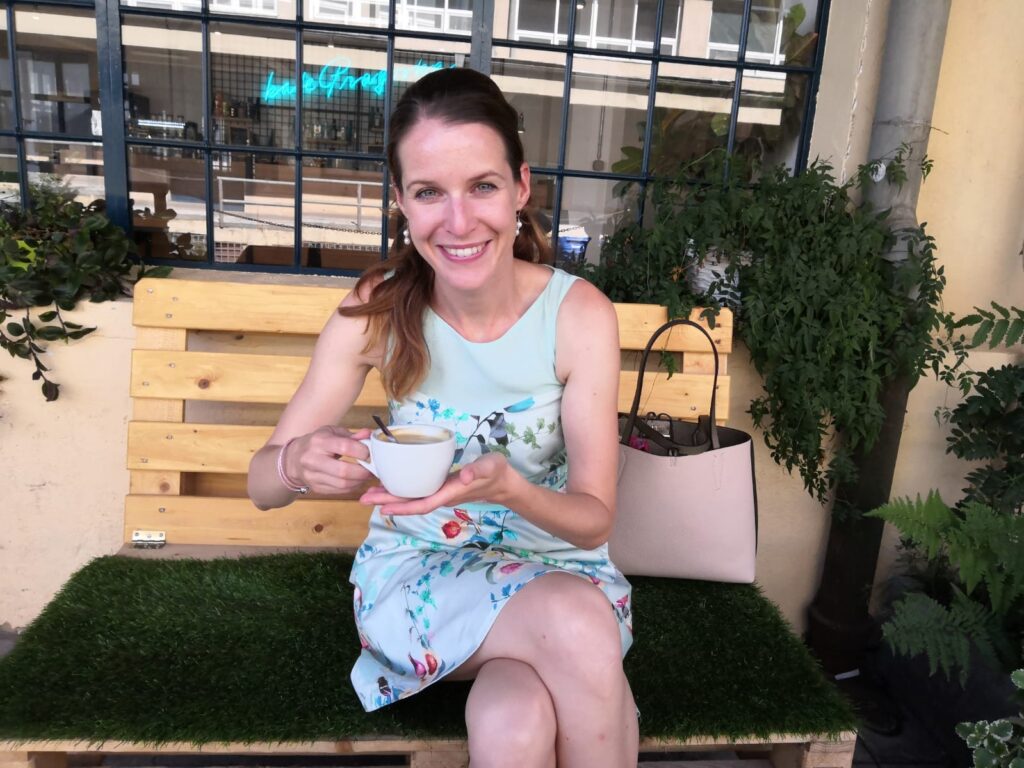
Affordable – safe – secure – sustainable photovoltaic technology – that is the SuPerTandem project!
On the 4-5th October 2022, a top-notch international research team met in Brussels to unite on the first steps of the SuPerTandem project which will bring Europe a novel low-cost environmental-friendly photovoltaic technology.
In the next 3 years the team will be developing an innovative, scalable, low CO2 footprint photovoltaic technology for highly efficient two-terminal tandem cells and modules based on perovskite absorbers.
The project is led by TNO (Netherlands Organisation for Applied Scientific Research) and AMIRES being responsible for project management and dissemination. The full consortium consists of 15 partners – creating an ideal combination of RTOs, Universities and SMEs.
Stay tuned for updates!
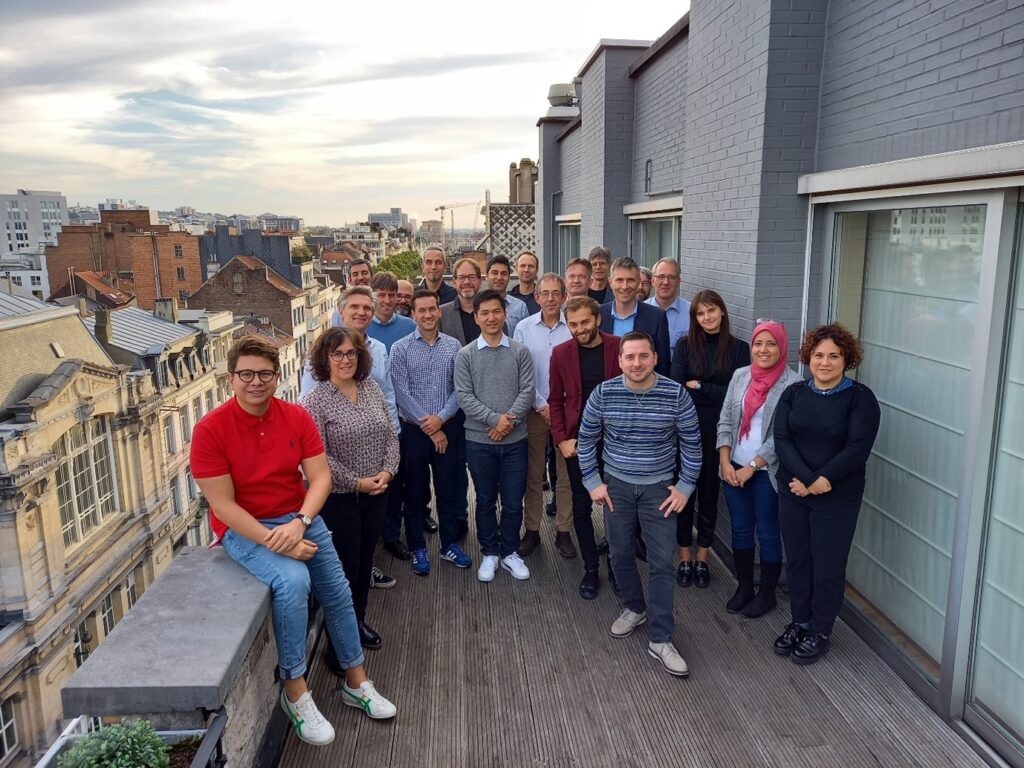
Is research the easy part? Key Takeaways from the Regenerative Medicine workshop
The event was kicked off the evening before with a networking dinner at which international guests had a chance to get to know each other and enjoy traditional Czech cuisine.
3 EU-funded projects (Tumor-LN-oC, MARVEL and Organtrans) were represented at the event and shared with the audience their ambitions and achievements to date but also the difficulties encountered.
- Tumor-LN-oC proposes the development and validation of tumor-lymph node-on-chip microfluidic platform that will connect primary surgically removed human tumors and lymph node tissue from the same cancer patient for metastasis research and drug test.
- ORGANTRANS (Controlled Organoids transplantation as enabler for regenerative medicine translation) aims to develop a disruptive solution that enables the 3D printing of tissue-engineered constructs and thereby provide an alternative to donor organs for patients with chronic end-stage liver diseases.
- MARVEL (Evolving reversible immunocapture by membrane sensing peptides: towards scalable extracellular vesicles isolation) aims to develop an out-of-the-box solution for scalable small Extracellular Vesicles (EVs) isolation that is based on a paradigm shift from antibodies to peptides as an alternative class of affinity ligands, characterized by high efficiency of EVs capturing.
One of the shared challenges noted by the project representatives was the strategic decision between publishing and protecting the outcomes of the project given the different and sometimes conflicting interests in the consortium. A second obstacle identified was the coordination of the project exploitation activities to ensure that project outcomes are commercialised and transferred to the market, which usually requires close collaboration beyond the project duration.
In the next block of the event, representatives from 3 companies (RESCOLL, Biomedical Engineering, Volumina Medical) shared their best practices and reflected on the challenges in transforming promising innovations in the RegMed field into a sustainable business model. The speakers and audience agreed that the biggest challenge in Regenerative Medicine is the successful transfer of innovations to the market and clinical practice, rather than the Research & Development itself, with the largest obstacle posed by the complex regulatory and legal landscape pertaining to medical devices: While in the pharmaceutical sector, manufacturers, as well as regulatory authorities, can operate under long-established processes, there are more gaps and uncertainties in biotechnology (such as cell and biomaterials production, bioprinting, organ-on chip devices), where regulation is barely keeping up with technological developments and possibilities. This goes hand in hand with the second key challenge identified: the fact that standardisation is (still) often absent and difficult to achieve, particularly when it comes to personalised medicine. This leads to the fact that quality management and regulatory procedures are considered only after successful prototyping, which is risky and expensive.
A potential solution is offered by Czech company Betthera, which specialises in Health Technology Assessment (HTA) looking into medical, economic, social and ethical implications of innovative technologies including a comprehensive cost-benefit analysis. Conducting this type of analysis in the early days of development is key to advance from the prototype to product. Not only is it crucial to determine the potential market and value of the technology, it also serves as evidence for public and private funding organisations.
Lastly, experts agreed that it is essential to keep a patient-centred perspective and engage with clinicians and patients both during the development stages and clinical validation phase, making sure that the innovation addresses a real clinical need that benefits patients and is implementable in the clinic. This goes hand in hand with the necessity to approach R&D “as simple as possible, as complex as necessary” and not over-innovate, which might lead to increased scepticism and hesitancy to adopt the novel solutions.
The fact that speakers came from different backgrounds ensured a diversity of perspectives and inspired a fruitful exchange, especially during the roundtable towards the end of the workshop. Thanks to our amazing speakers for coming to Prague and sharing your thought-provoking presentations, which facilitated insightful discussions! We were glad to see so much interaction during the coffee breaks and hope that the event will inspire new collaborations and partnerships.
A huge thank you also to our amazing audience both in the room as well as online, for your engagement with the speakers on this difficult topic!
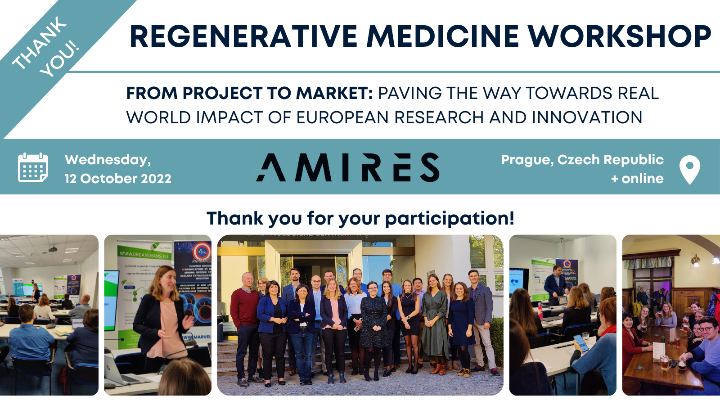
INSPIRE: new video released
INSPIRE projects has released a video! INSPIRE consortium aims to revolutionize photonic integrated circuit technology by combining the generic integrated foundry technology developed at Smart Photonics, and the silicon photonics pioneer IMEC, with the micro-transfer printing technology developed at X-Celeprint. INSPIRE has the ambition to strengthen the European manufacturing base by developing methods for SiN – InP integration which will remove expensive assembly steps in PIC-based product realization. Since the optical coupling happens through a silicon intermediate layer, the technology can be further ported to silicon CMOS photonics as well. INSPIRE will connect state-of-the-art manufacturing capability to leading-edge applications and also to industry clusters through JePPIX, ePIXfab and the EC manufacturing pilot lines. Learn more here.
Multimodal AI for pancreatic cancer: A new momentum for PANCAIM
On the 6th of September, PANCAIM had its first of three review meetings with the European Commission and appointed external experts to assess the progress of the project. After a successful rehearsal meeting, the consortium members presented the progress and achievements of the first 1.5 years of the project, but also addressed challenges encountered, risks identified and mitigation strategies. The appointed external reviewers were satisfied with the progress and curious to learn more about the timeline for the upload of available data into the repository as well as the common data model which was developed specifically for PANCAIM’s multimodal approach. The intense preparations for the review provided for a new momentum for the consortium and the work has picked up speed to reach the expected milestones and objectives of the next few months.
For a deeper view into the scientific activities in PANCAIM, check out the recent article published by PANCAIM researchers in the journal Cancers – “Setting the Research Agenda for Clinical Artificial Intelligence in Pancreatic Adenocarcinoma Imaging” which provides a comprehensive review of the state of the art of AI in PDAC and the need for improvements which will be made by PANCAIM (Available open access here).
In order to support the further work in PANCAIM and especially development of multimodal AI which will speed up significantly in the coming months, PANCAIM partner university of Glashow has shared a call for both a PhD student as well as a Research Associate/Postdoc – please share these offers with anyone who might be interested and feel free to contact the PANCAIM team if you are interested.
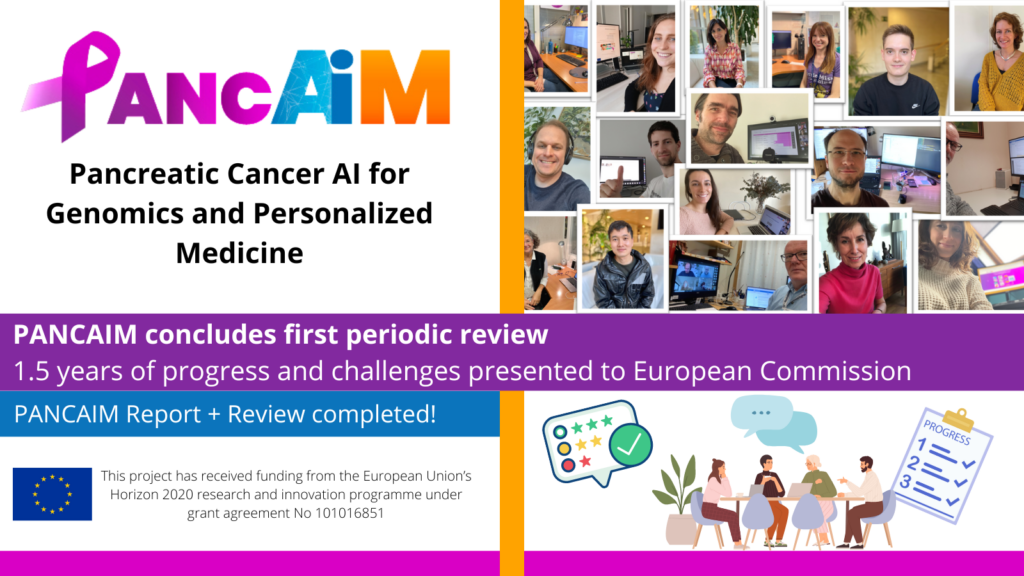
OASIS – Access smart, lightweight composite materials and components
We’re thrilled to announce the publication of OASIS project video – Access smart, lightweight composite materials and components.
OASIS is an ecosystem of 12 nanotechnology manufacturing pilot lines providing nanomaterials, nano-intermediates, nano-enabled products and associated services for the development and commercialization of lightweight multifunctional products based on aluminium and polymer composites. It is a one-stop-shop offering the full suite of services from design and modelling to manufacturing, testing, scale-up and business support. Always tailored-made according to the customer’s requirements.
Find our more about the project OASIS here.
Only 2 days until the 2nd Regenerative Medicine workshop organised by AMIRES!
The Regenerative Medicine workshop organised by AMIRES Health & Biotech team will take place on Wednesday, October 12th, 2022 in a hybrid format – at the Technology Center CAS in Prague, as well as online.
The event will bring together different EU funded projects, initiatives and companies to exchange outcomes and experiences in the development of technologies in the regenerative medicine field. The online form for registrations is available here.
We will discuss challenges and opportunities as well as best practices for innovations in regenerative medicine, among them:
- Laser Bioprinting for regenerative applications and organ on chips (TUMOR-LN-oC)
- EV-based therapeutics for cardiac repair and regeneration (MARVEL)
- New alternatives to chronic liver patients (ORGANTRANS)
- 3D printed personalized implantology and tissue substitute (Technical University of Kosice)
- Scaffold biomaterials: from ideation to clinical use (Volumina Medical)
- Economic and social impact of new therapies, medical device and emerging technologies (Betthera)
Click here to download the full agenda as PDF.
The event will close with a round table where speakers will exchange experiences on the challenges and hurdles of practical deployment of the new technologies in regenerative medicine.
Still not sure if you can join? Last-minute attendees are welcome! If you are interested in listening in, even for only few sessions, register here and connect using this Zoom link (the meeting opens on Wednesday 12.10. at 09:15 AM CEST). Participation is free of charge and open for all.
We’re looking forward to welcoming our speakers and participants in Prague and online and hope to see you on Wednesday!
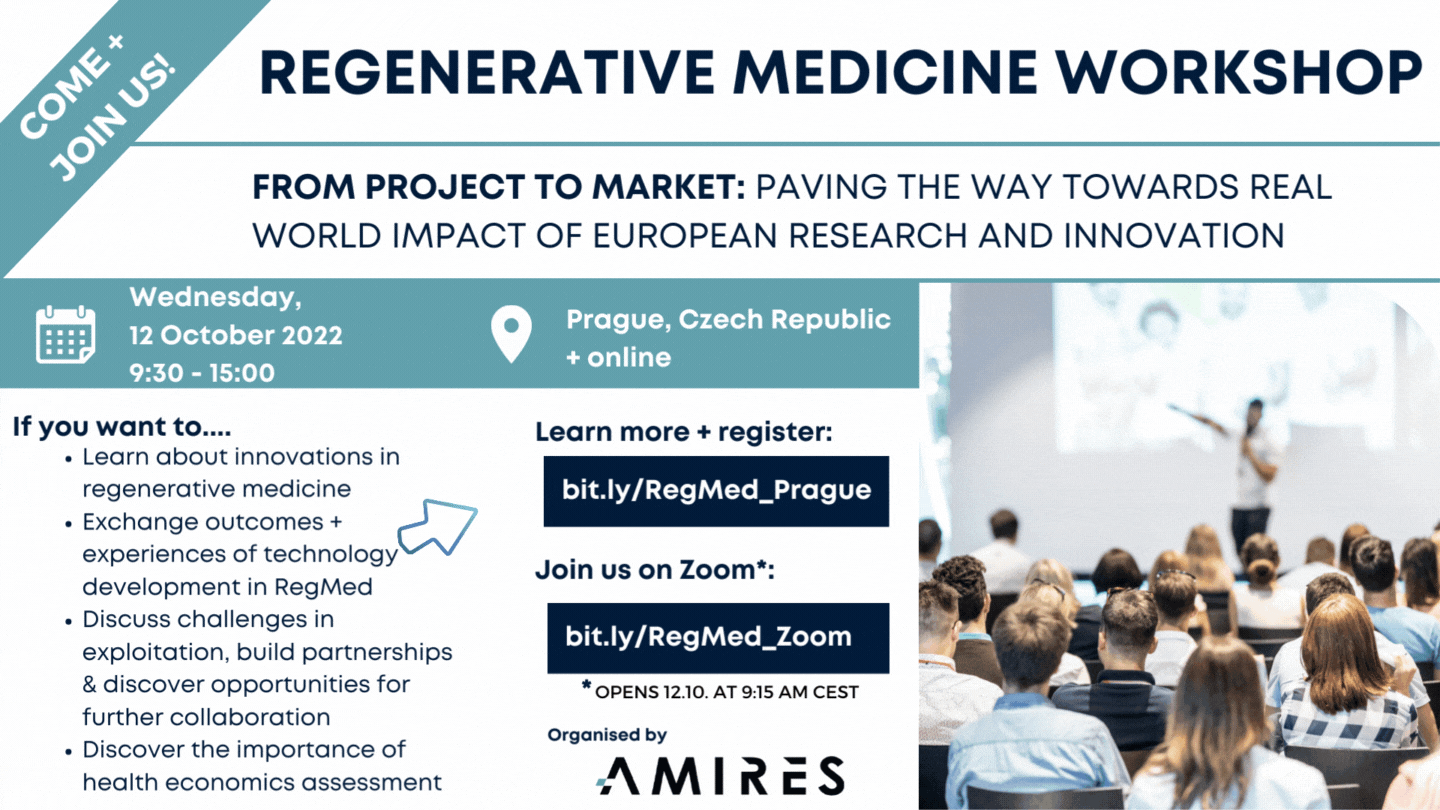
EuroSun 2022 – International Conference on Solar Energy for Buildings and Industry
EuroSun is one of the main events on solar energy for buildings and industry in Europe. This year the conference took place in Kassel (Germany), from 26th to 29th September, and its organization was a joint effort of the International Solar Energy Society (ISES) and the IEA Solar Heating and Cooling Programme (IEA SHC).
More than 480 participants from over 50 countries joined EuroSun and contributed with speeches, workshops, and presentations. In particular, FRIENDSHIP took part in the session “System Modelling, Artificial Intelligence, Digitalization”, where the Project Coordinator, Valery Vuillerme, presented the poster below entitled “Data Clustering and Genetic Algorithm for the Design Optimization of a Hybrid Concentrated Solar System for SHIP”.
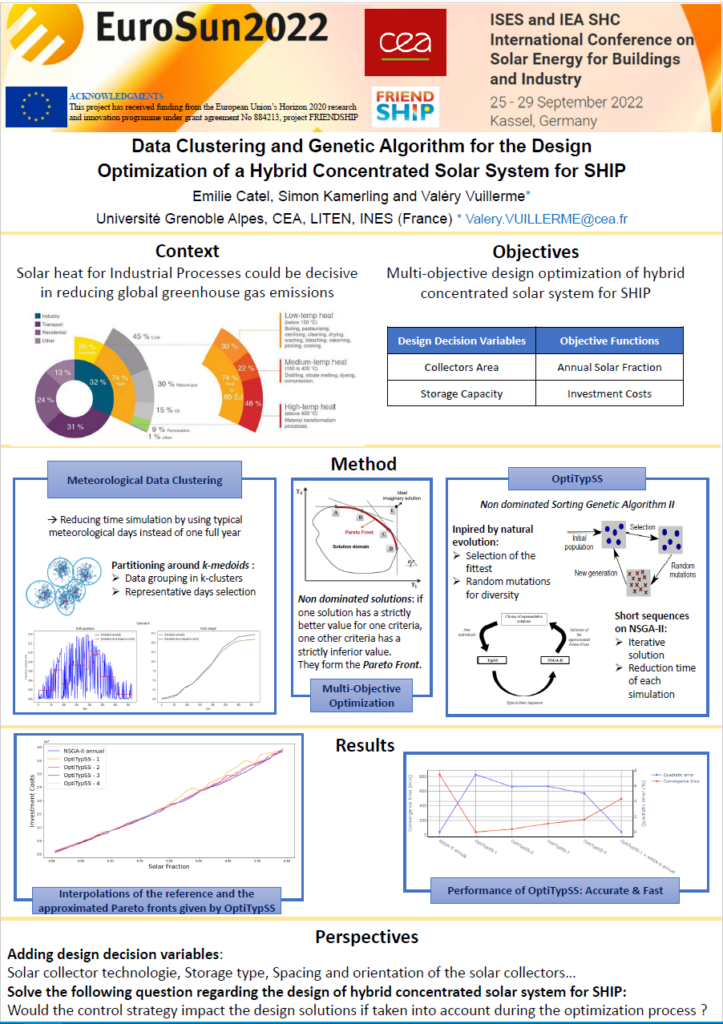
ComBioTES analysis of specifications and requirements
Since the beginning of ComBioTES, CEA, IEO, Voltalis and DTU have been working on the analysis of technical specifications and requirements for components of thermal energy storage (TES), to extract the full potential of the future system. They have also focused on system integration within buildings and consumer behaviour in the heating and electricity markets of several countries. As a result, now the project has a clear understanding of the technical challenges to overcome and a complete characterization of the market. Nevertheless, the team responsible of the task decided to limit long term predictions, as the unstable time we live in would have surely proved them wrong.
As a first step, IEO and Voltalis took into consideration 10 use cases, which refer mostly to power market rules and electricity tariffs for consumers in different countries in Europe and China. They categorized them into three general schemes: Use cases for power-to-heat with load shifting within the framework of time-of-use tariffs, use cases for PV prosumers, and capacity market use case.
At the same time, CEA identified technical constraints, specific constraints linked to the four demonstration sites and legal risks due to different National regulations. The constraints identified will be useful for the design of the TES, mostly to avoid considering designs that are not feasible, or whose installation on the different demonstration sites would be hazardous.
Finally, DTU made an overview of possible communication interfaces related to the energy management system (EMS) that could be applied in ComBioTES. Taking the Use cases defined previously as an input, they delivered technical specifications and a guideline for integrating the design and development of EMS and the TES component, from a function perspective.
More news about the TES design, the EMS setup and market analysis will follow!
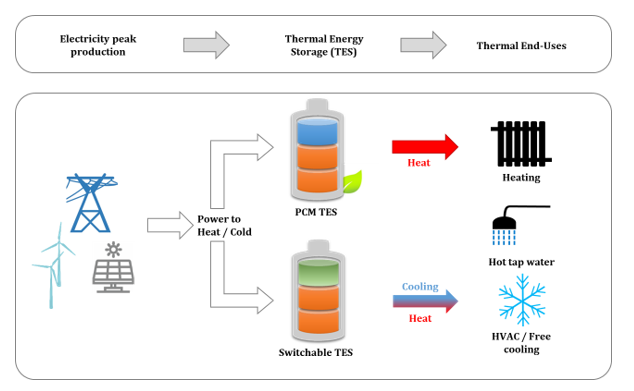
WE ARE HIRING: JUNIOR MARKETING SPECIALIST FOR INNOVATION PROJECTS
Our team in AMIRES has a suite of exciting industrial and innovation projects in Energy and Sustainable programme underway (funded especially by Horizon 2020 / Horizon Europe), and we are looking for the right candidate to help us execute them in the marketing role.
Our Junior Marketing Specialist will get involved in creating and running projects promotion campaigns and their content including social media and email marketing. Apart from that s/he will take care of the AMIRES brand and its continuous development.
Is Marketing your passion? Are you not scared of technical and innovative topics? Are you keen to learn and grown? If you answered YES, let us know, we are already looking forward to speak with you!
Click here to learn more about the role.
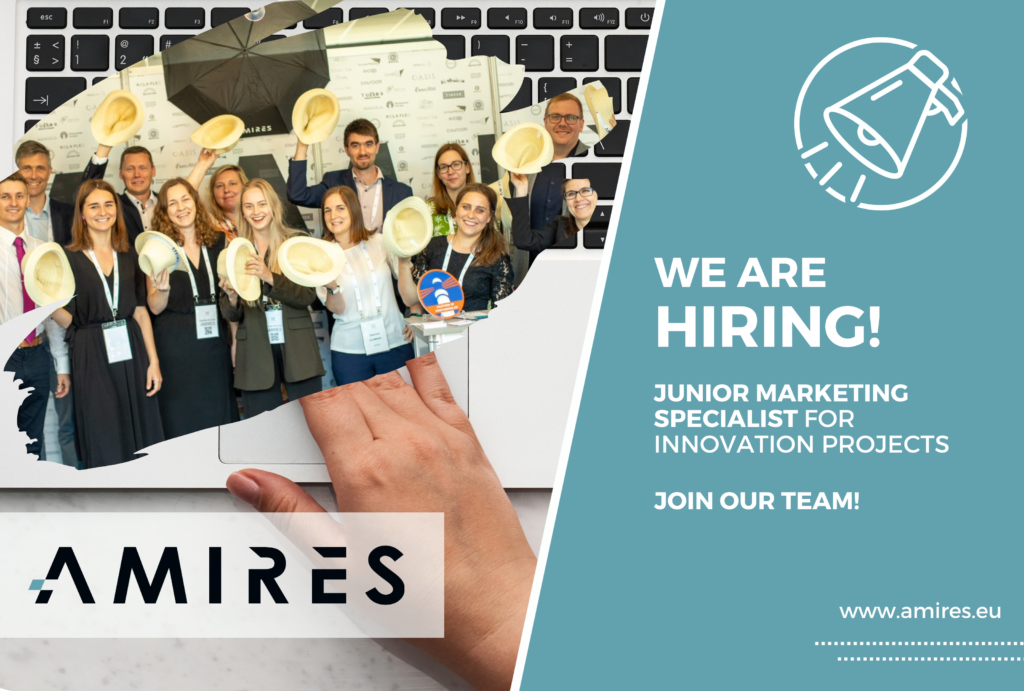
FRIENDSHIP: progress on the thermal storage
A prototype of TES (Thermal Energy Storage) is being designed for later tests at CEA, on two experimental facilities, with different Heat Transfer Fluids (HTF) -pressurized water and thermal oil- and operating ranges. Several heat exchangers designs have been considered, using parallel or concentric tubes, with or without inserts, in square or triangular array. A feasibility study was also conducted to investigate if extruded aluminium tubes could be used as HTF containers in the necessary temperature and pressure conditions. Thanks to this study, CEA has all the required documents to consult manufacturers for the CHS prototype, such as drawings and thermo-mechanical calculation notes in compliance with the European Pressurized Equipment Directive.

A suitable candidate for the PCM to be used in the storage unit was also characterized, thanks to thermogravimetric analysis, calorimeter evaluations, density measurement and heating cycles.
MEET OUR TEAM: OLJA KRISTIC
In September, our AMIRES family welcomed Olja Kristic, who joined us as a Project Manager in Energy & Sustainability programme.
Olja obtained a Master’s degree in Environmental Engineering from the University of Novi Sad in Serbia in 2012. Then, she continued working in the bioenergy sector in Serbia, Hungary and Germany – that is how she gained experience in research and international projects, market development and renewable bioenergy technologies.
Before joining us, Olja worked as a Project Manager in the European Commission in Brussels. The five years she spent there allowed her to learn a lot about the EU R&D funding framework, especially the Horizon 2020 and Horizon Europe Programmes, procedures and policies.
In AMIRES, Olja is managing Horizon Europe projects ECOTRON (How to minimize the ecological footprint for functional electronics?) and InVECOF (Innovative Value Chains for European Ceramic Oxide Fibres). She is also involved in proposals in Energy & Sustainability Programme.
In her free time, Olja likes to take long walks or go hiking. She is also very passionate about food and likes to explore new recipes and different cuisines.
We are happy to have Olja on board and we wish her the best of luck!
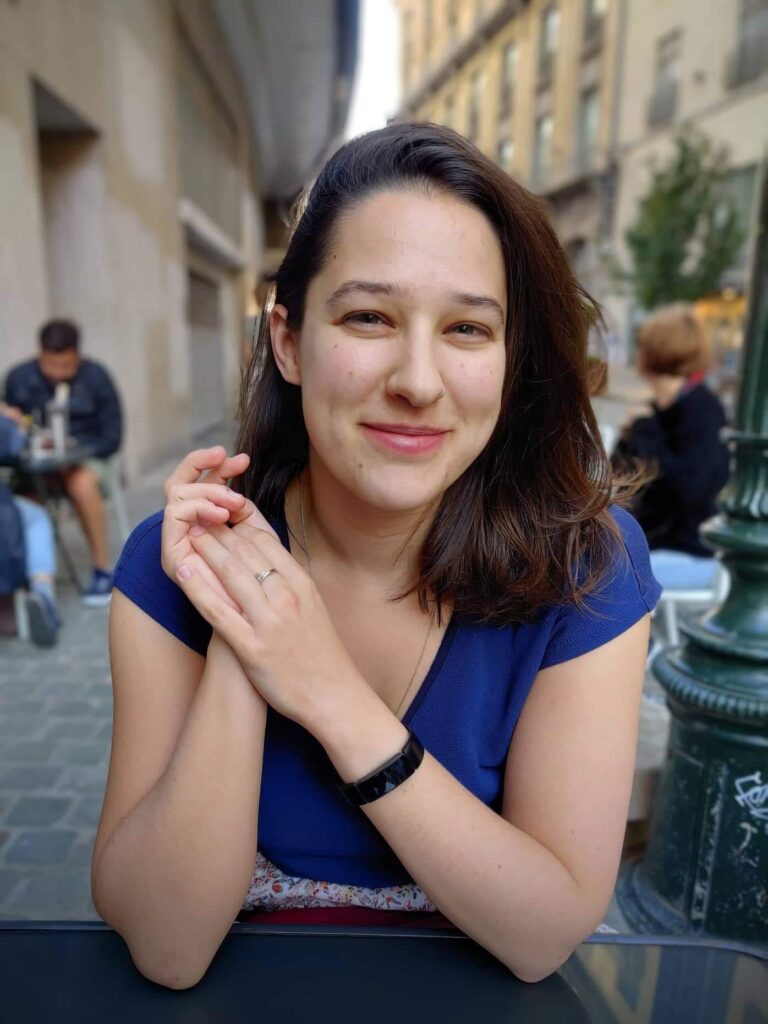
OASIS final event @ International Composites Summit 2022
This has been the last major dissemination event for the OASIS project itself as that will end in November 2022. However, that’s not the end but rather a new beginning. OASIS will continue to offer its services on a fully commercial basis taking advantage of the Single-Entry-Point structure that was established during the project.
We help companies access smart lightweight composite materials and components. We are OASIS.
|
|
Sustainable Places Conference 2022
AMIRES was represented by Anastasia and Eleonora, who supported our four Horizon 2020 projects participating in the event.
ComBioTES and CONDOR joined the Low-TRL Renewable Technologies workshop, where 12 selected EU-funded projects shared their experiences dealing with the challenge of researching, developing, and demonstrating innovative, efficient, flexible, cost-competitive and environmentally safe low-TRL technologies.
FRIENDSHIP was presented at the Renewable Heating and Cooling workshop, which focused on a common strategy for increasing the use of renewable energy technologies for heating and cooling for buildings and industry.
Switch2Save took part in the Off-Site Plug-and-Play Prefab Systems workshop that concentrated on hybrid “Plug-and-play” prefabricated envelop systems, that not only regulate energy gains and losses across the envelop but also actively interface with the building, integrating renewable energy production systems and storage technologies.
Finally, AMIRES had the opportunity to visit Nice Smart City Innovation Center (IMREDD), a space that allows stakeholders at the university and in research to work alongside industrial leaders in the fields of innovation and smart cities.
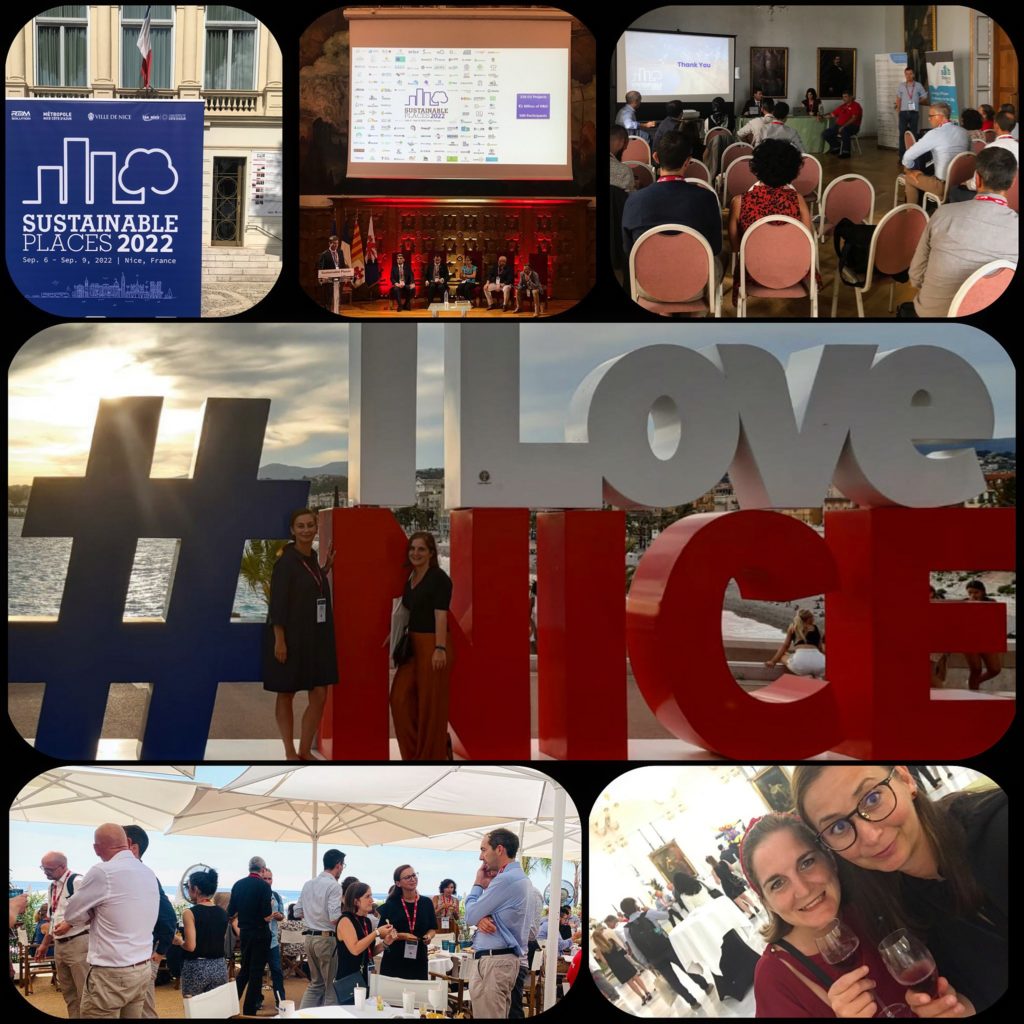
Meet our partner – Paperdrop Diagnostics
Watch a short interview with Dr. Daniel Quesada to know more about Paperdrop Diagnostics and their involvement in the MARVEL project.
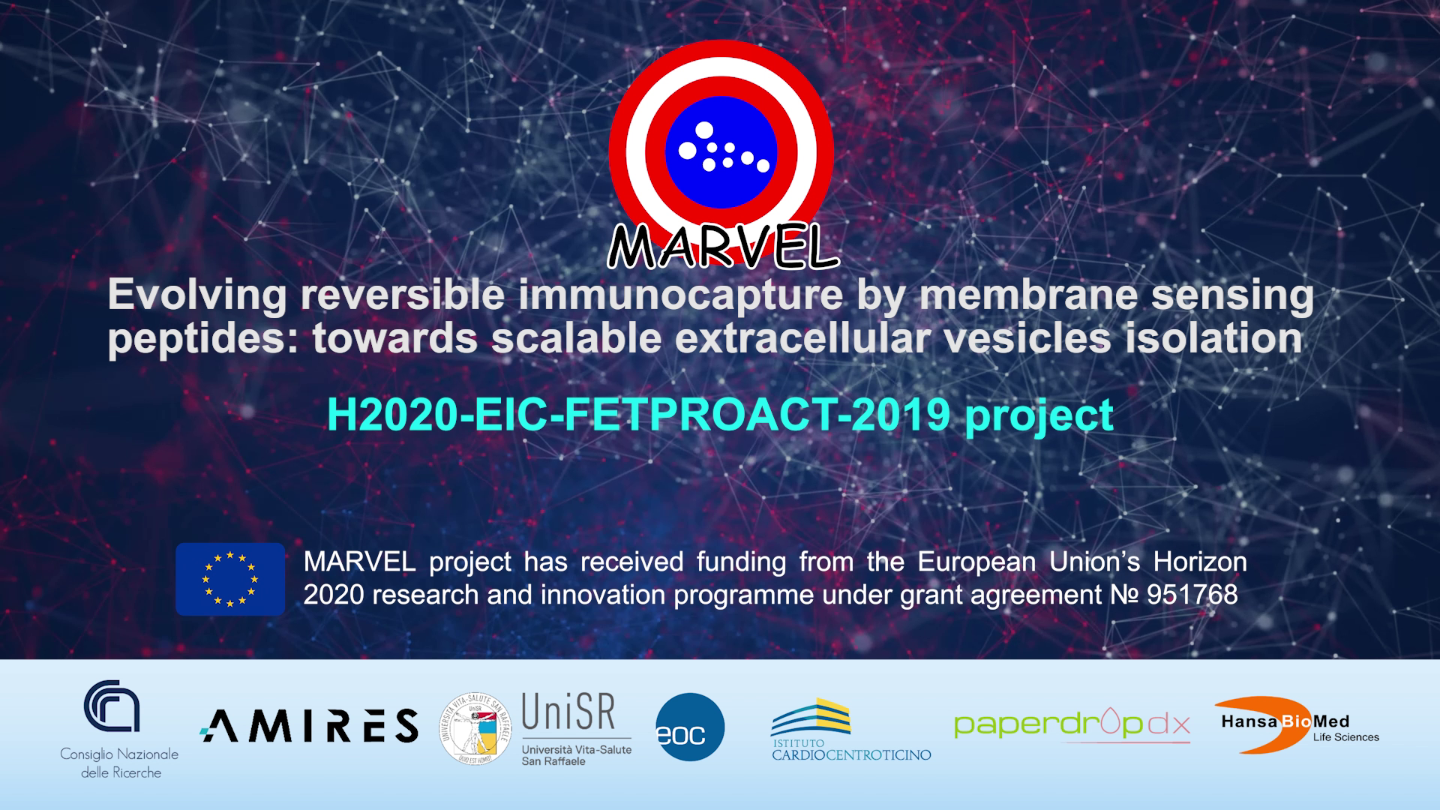 |
32nd Annual Conference of the European Society for Biomaterials | Bordeaux, France
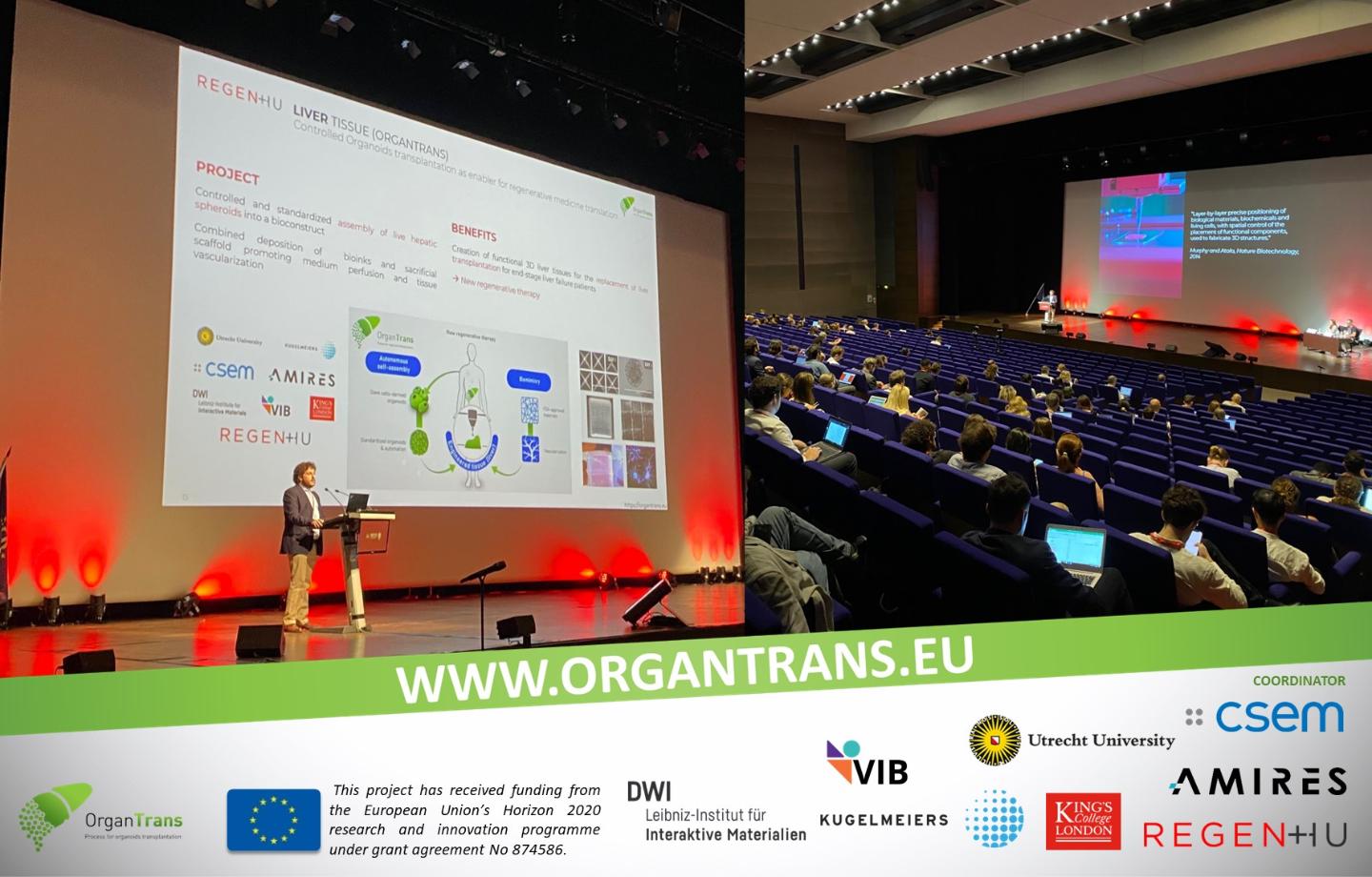 |
eCAP project website goes online
After a successful project launch in May, eCAP website is now online.
Visit the eCAP webpage to find out more about the gastroesophageal reflux epidemic, reasons for Gastroesophageal reflux disease (GERD) being severely underdiagnosed and what is eCAP consortium doing to help.
You can also get to know the project partners and ABIMI team involved and reach out to them for additional information via a dedicated contact form. The news section will keep you updated on the latest developments and project progress.
Click HERE and happy exploring!
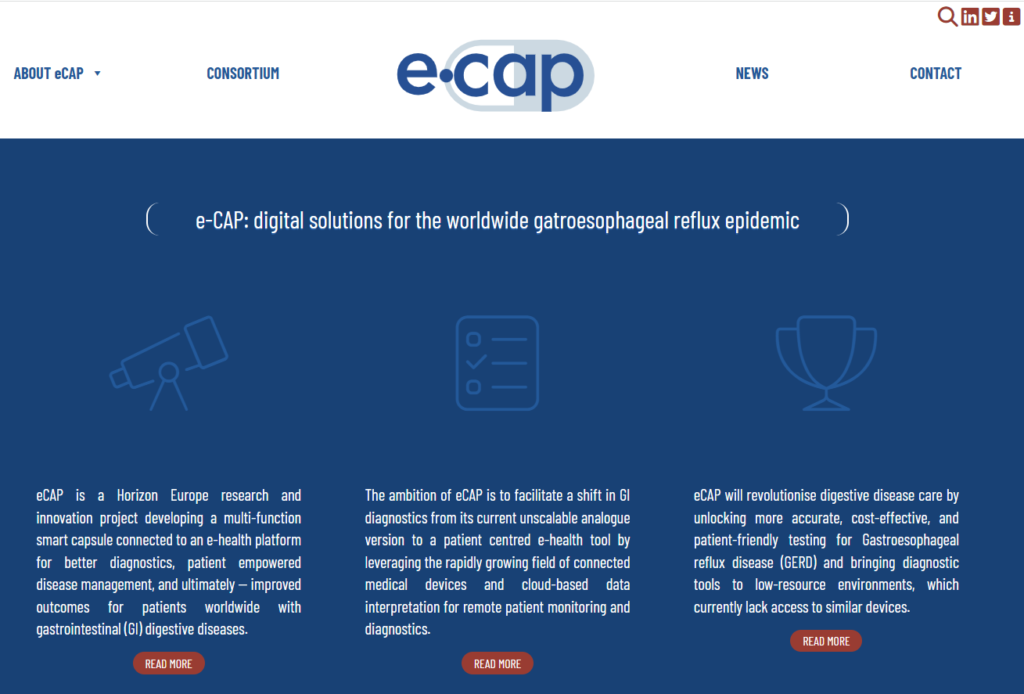
AMIRES COOPERATES WITH KETMarket: Accelerates your product development – test them
AMIRES is committed to provide broad support to innovation, therefore we have partnered with prototyping and upscaling experts from KETMarket:
In the recent years, multiple Open Innovation Networks have been established in Europe to support small and medium enterprises (SME) and industry in developing new products faster and more efficient. All these networks gather leading universities, applied research organizations and companies offering bundled development services.
These networks include:
- Open Innovation Test Beds – support you in testing your idea and accessing all necessary technologies & services for your product development
- Open Access Pilot Lines – provide pilot and small series OEM manufacturing services for new products for earlier market deployment
- Digital Innovation Hubs – guide you through the digital transition and make your processes more efficient through digital technologies
Some of the networks recently launched open calls, though which you may receive subsidized access to the technical and innovation services provided by the networks with a budget between 60,000 … 150,000 €.
How does it work:
You submit a short (2-5 page) proposal describing your idea and the required services. If your project is selected, the network will deliver their services with 70 – 100% discount as selected projects are supported by the European Commission!
The following networks have currently an active open call:
- FlexFunction2Sustain: Sustainable packaging, flexible electronics, and nano-enabled ecofriendly plastics and paper products. Deadline 27/01/2023
- NewSkin: Services to manufacture and characterize a wide range of nano-enabled products on metal and plastic surfaces. Deadline 31/12/2022
- NextGenMicrofluidics: Foil based microfluidic chips (lab-on-a-foil) or microfluidic composite devices. Submission is continuously open.
- PHABULOµS: Pilot manufacturing of free-form micro-optics and microstructured surfaces on wafer, sheets, and rolls: Deadline: 30/11/2022
- PHOTONHUB Europe: Photonics in a Broad Range of Applications: Test before Invest, Investor Access, Training and more. Submission is continuously open
KETMarket will select for you the most suited innovation network and guides you through the application process. Describe and submit your product development needs today by visiting their WEBSITE.
Or call them directly: +49 351 828 793 0
You are looking for more funding opportunities: Browse their funding database HERE.
Browse their technology and innovation database HERE.
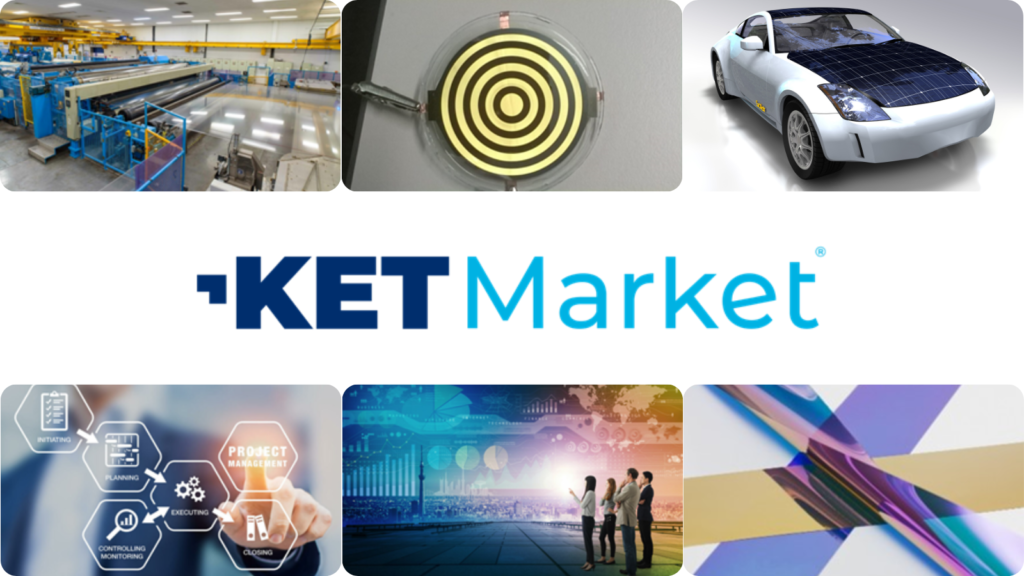
Takeaways from the 2nd Next Gen Organ-on-Chip & Organoids networking workshop
On 23-24 August, AMIRES attended the 2nd Next Gen Organ-on-Chip & Organoids workshop organized by the Swiss Center for Electronics and Microtechnology (CSEM) by WEDER Gilles, PAOLETTI Samantha, REVOL Vincent, etc. in Geneva, Switzerland. CSEM also coordinates the EU-funded OrganTrans project in which AMIRES is a partner. AMIRES was represented by the attendance of our colleague Dr. Yevhen Horokhovatskyi.
Organoids are small, self-organized 3D tissue cultures derived from stem cells (body’s raw materials from which all other cells with specialized functions are generated) that can be crafted to replicate much of the complexity of an organ. This way of culturing tissues gives scientists a detailed view of how organs form and grow, providing them with new insights into human development and disease.
At the same time, the combination of biomimicry (organ-on-chip systems) and self-assembly (organoids) technologies can emulate the physiological environment and functionality of human organs on a chip for disAt the same time, the Organ-on-a-Chip is a cutting-edge technology that can emulate the physiological environment and functionality of human organs on a chip. This allows disease modelling and drug testing, giving the opportunity to see how drugs interact with these “mini-organs”, potentially revolutionizing the field of drug discovery and opening new approaches to personalized medicine. All of this, eventually, shows great potential in the novel drug development pipeline and future regenerative therapies.
When CSEM first organized the Next Gen Organ-on-Chip & Organoids workshop in 2020 in Neuchâtel, Switzerland, it aroused great interest among both life science companies and research organizations. At CSEM first organized the Next Gen Organ-on-Chip & Organoids workshop in 2020 in Neuchâtel, Switzerland, and aroused great interest to this topic mainly among life science companies. At that time, many specialists, researchers, and leading industries attended this event presenting technical challenges and solutions in the application of the next generation organ-on-chip and organoids in disease modeling, drug testing, and organ replacement. Due to the COVID pandemics, CSEM organized also virtual events within this topic to replace the in-person event. However, after two years, CSEM hosted the 2nd networking workshop that had great success. Four partners of the OrganTrans project, CSEM, REGENHU, KUGELMEIERS, AMIRES, and more than 270 experts from the pharma & biotech industry, clinicians, organ-on-chip suppliers, regulatory experts, and researchers met under the same roof. Additionally, more than 25 organizations, including start-ups, large companies, and SMEs, presented their innovative products and emerging technologies at exhibition sessions.
Overall, the workshop focus was on the applications of organoids, 3D cell-based and organ-on-chip technologies for drug discovery and development, diagnostics, consumer safety, future regenerative therapies and organ replacement. The speakers presented data on the validation of the newest technologies of organ-on-chip, such as brain, kidney, lung, intestine, stomach, liver and many more. These chips are based on microfluidics, deep machine learning, automatized systems, and even personalized 3D bioprinting platforms. Such technologies complement the development of better disease organoid models, as well as the understanding of the different levels of interaction fostering future therapeutic approaches to human and animal health. However, the translation of this novel engineering platform into routine pharmacological and medical scenarios remains to be realized.
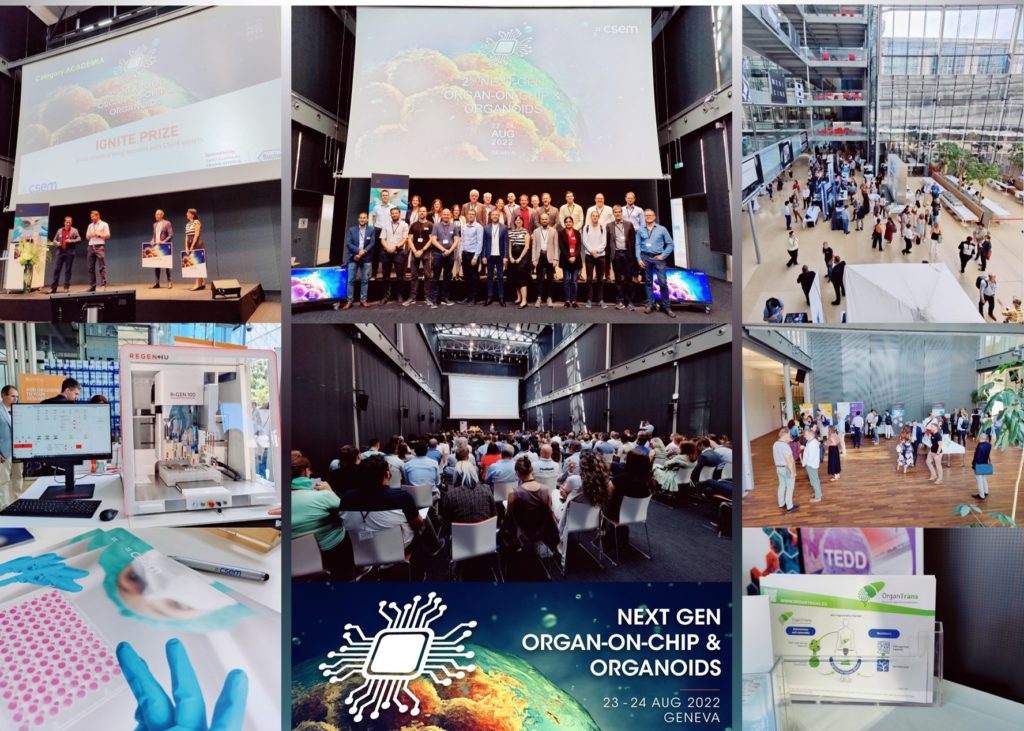
Summer internship at AMIRES
We are happy to say that we regularly open our door for a university student for an internship. Thanks to cooperation with IAESTE that is an international, non-governmental, non-profit organization that brings together students and academics around the world and strives for the professional and personal development of students and young graduates we were happy to welcome during this summer our intern Sowmya who arrived from India.
Here is what she says about her internship:
“I am Sowmya Ashok Kumar, an M. Tech (Master’s in Technology) Biotechnology graduate from Karunya Institute of Technology and Sciences, Coimbatore, India. I have always leaned towards research and development, which acted as a driving force for me to choose biotechnology which opened many opportunities to explore and learn fascinating concepts like how a single nucleotide can cause a radical difference in an organism. It completely changed my perspective on life and how research works. Apart from my course, I have worked on various projects with efficient product development. I was delighted to find this internship offer during my final semester through IAESTE, an international organization that coordinates internships for students and I applied for the same.
I was super excited about this offer, and my first trip to Europe. It was the best decision to apply for AMIRES, as the work culture was completely new to me, yet everyone was so kind and helped me adapt quickly. I got to work with new and upcoming concepts in LCA (Life Cycle Assessment), where I was free to explore different databases and software. It was a highly informative and creative process to discover various methods for modelling the life cycle of a product and assessing its sustainability and environmental impact on society. Thank you IAESTE and AMIRES for providing this great opportunity, which was a huge exposure for me.”
We thank Sowmya for her effort and help and we wish her all the best with her future!
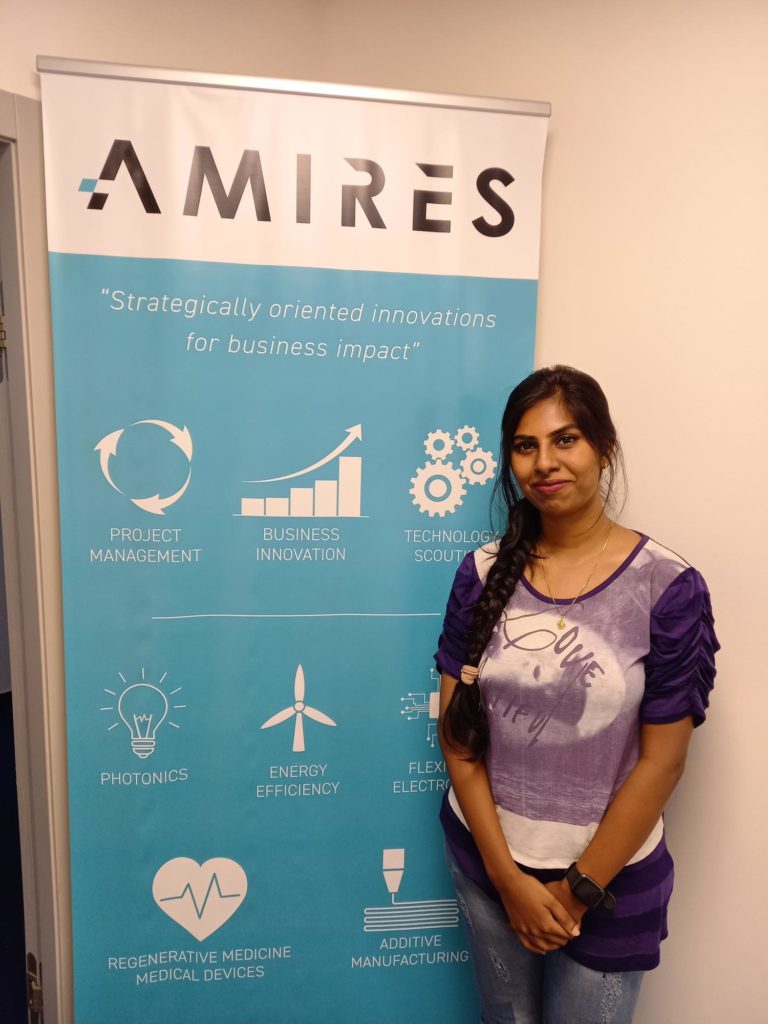
MatEl project proposal has been successful!
AMIRES is part of a consortium which has recently secured funding for the MatEl project – PZT and Graphene MATerials innovations for advanced opto-Electronic applications in AR and biosensing – which has ambitious goals.
Europe’s leading position in photonics and electronics can only be secured by adapting to the next generation of optoelectronic devices requirements: high performance, multi-functionality and cost efficiency in miniaturized footprint. These can only be achieved if novel schemes for on-chip integration emerge. Among the established platforms for optoelectronic integrated circuits (OEICs), silicon nitride as a wide-band and low-loss material stands outs. However, Si3N4 itself has no active effect and the heterogeneous integration of active III-V and II-VI semiconductor chips is currently very complicated and costly. MatEl offers a unique solution to this challenge and promises to enable a novel on-chip integration scheme: Laser Digital Processing – Laser Transfer and Laser Soldering – will be employed for the accurate and fast alignment and bonding of any type of chip package (OEIC) on Si3N4. The hybrid platform will be enhanced by the monolithic integration of advanced materials (graphene and high-quality PZT), which will enable multiple functionalities in miniaturized footprint. MatEl will thus demonstrate two next-gen optoelectronic devices at TRL5: 1) 2D light source for AR displays with integrated RGB lasers and OEIC-based demultiplexers. 2) Bio-photonic sensor for antibodies detection with on-chip VCSEL at 850 nm featuring graphene photodetectors. Overall, MatEl ’s hybrid platform will combine the wide bandwidth and high confinement provided by Si3N4 with the active functionality of III-V and II-VI lasers, supporting a broad spectrum of next-gen applications, extending far beyond these demo applications. Hence, MatEl will reinforce the existing collaborations within the consortium and introduce new eco-systems, estimated to strengthen the EU photonics and microelectronics industrial capability by generating multi M€ turnovers to the involved SMEs and more than 200 new employment positions by the end of its timeframe.
We’re looking forward to starting the work soon and supporting the development of game changing technologies in the opto-electronics field.

New Product in House: AMIRES Ecosystem Management Platform (EMP)

- Module: Marketplace of items (products/ services) search engine
- Module: Organization profiles search engine
- Module: Online content sharing – latest news, adds, reports…
- Module: Tracking progress of your projects
Appearance and layout of these modules can be customized. Differentiation is based on technology that you wish to showcase. Structure of the content is divided into individual filters on the left side and collected content on the right side. There are number of options to visualize your content with possibilities to add variety of labels (members, external…). AMIRES offers usage licence for EMP tool, with operational IT support. For more information, contact our product manager Jana Mwangi (mwangij@amires.eu).

European Research and Innovation Days – Registration is open
Bringing together policymakers, researchers, entrepreneurs and the public to debate and shape the future of research and innovation in Europe and beyond.
The event will take place online on 28 and 29 September 2022, allowing everyone to get involved from anywhere.
his year’s European Research and Innovation Days gives you the opportunity to discuss and shape new solutions to strengthen Europe’s resilience and its strategic autonomy. Join the event to debate how research and innovation deliver on the European Commission’s priorities.
More information and registration is available HERE.
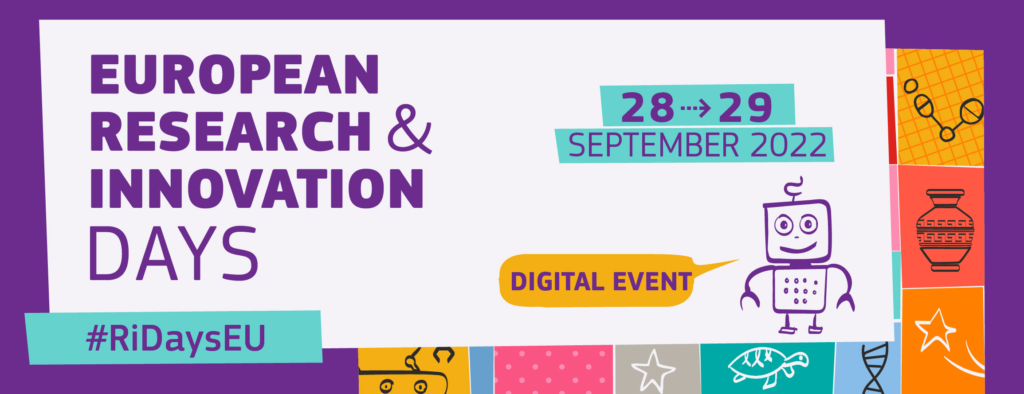
New project for AMIRES portfolio – InVECOF – Innovative Value Chains for European Ceramic Oxide Fibres
In May 2022, the InVECOF project was launched. InVECOF addresses the development of a European oxide fibre and O-CMC component industry, decreasing dependence on non-EU producers.
InVECOF aims at creating a commercially available market within the EU for manufacturers of fabrics and O-CMCs (oxide ceramic matrix composites). Both O-CMC manufacturers and industrial end-users will exploit these new fibres in their manufacturing due to their superior performance and ensured security of supply.
The InVECOF project is led by Fraunhofer ISC and AMIRES is responsible for project management and dissemination. The consortium consists of RTO institutions, industrial producers of ceramic fibres and their end-users from aerospace and manufacturing industry from five EU countries.
Stay tuned for more up to date information and the website which will be launched shortly.
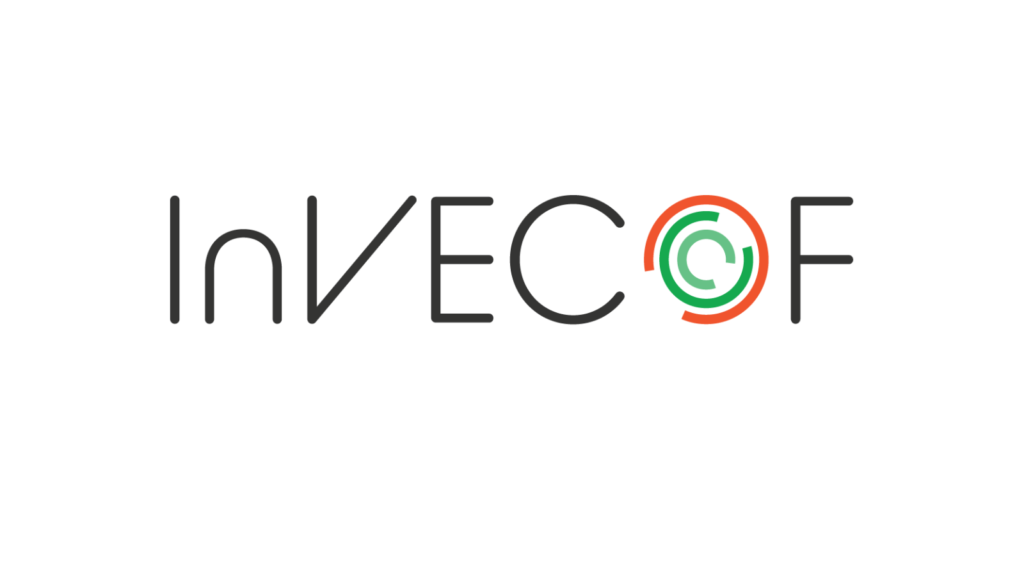
OASIS at International Composites Summit 2022
As part of the event, OASIS will be hosting a workshop on Wednesday 21st from 4 p.m. (see the detailed agenda) followed by a networking drinks reception. The aim of the workshop is to introduce to the industry what unique services and capabilities OASIS can offer and show examples of client projects OASIS has already developed.
Participation at ICS 2022 (including OASIS workshop) is FREE. You only need to register.
We cordially invite everyone interested in composites and the offering of OASIS to join us for this great event!
|
|
ORGANTRANS at EUROoCS 2022 Conference
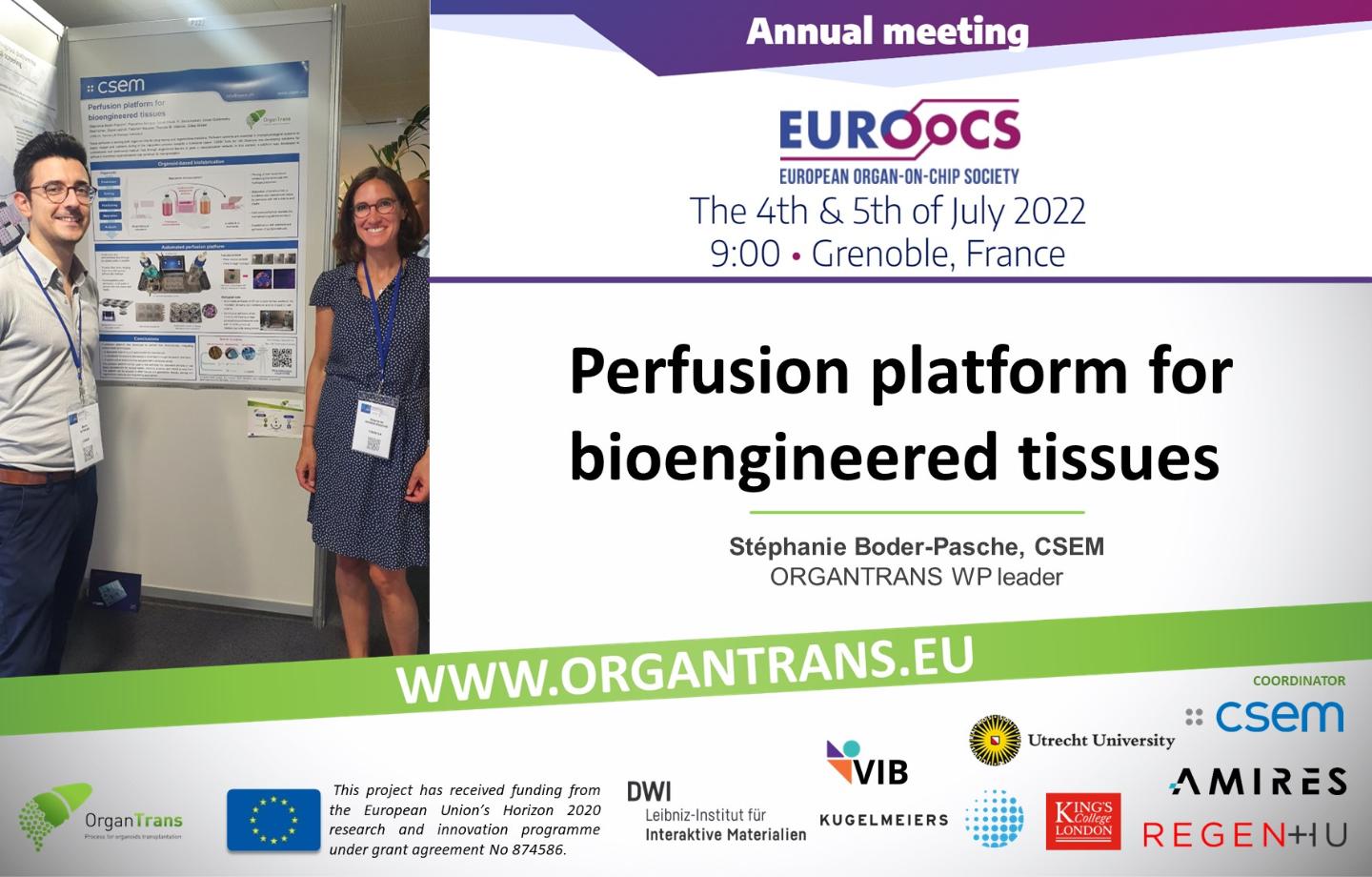 |
International Liver Congress™ 2022 | London
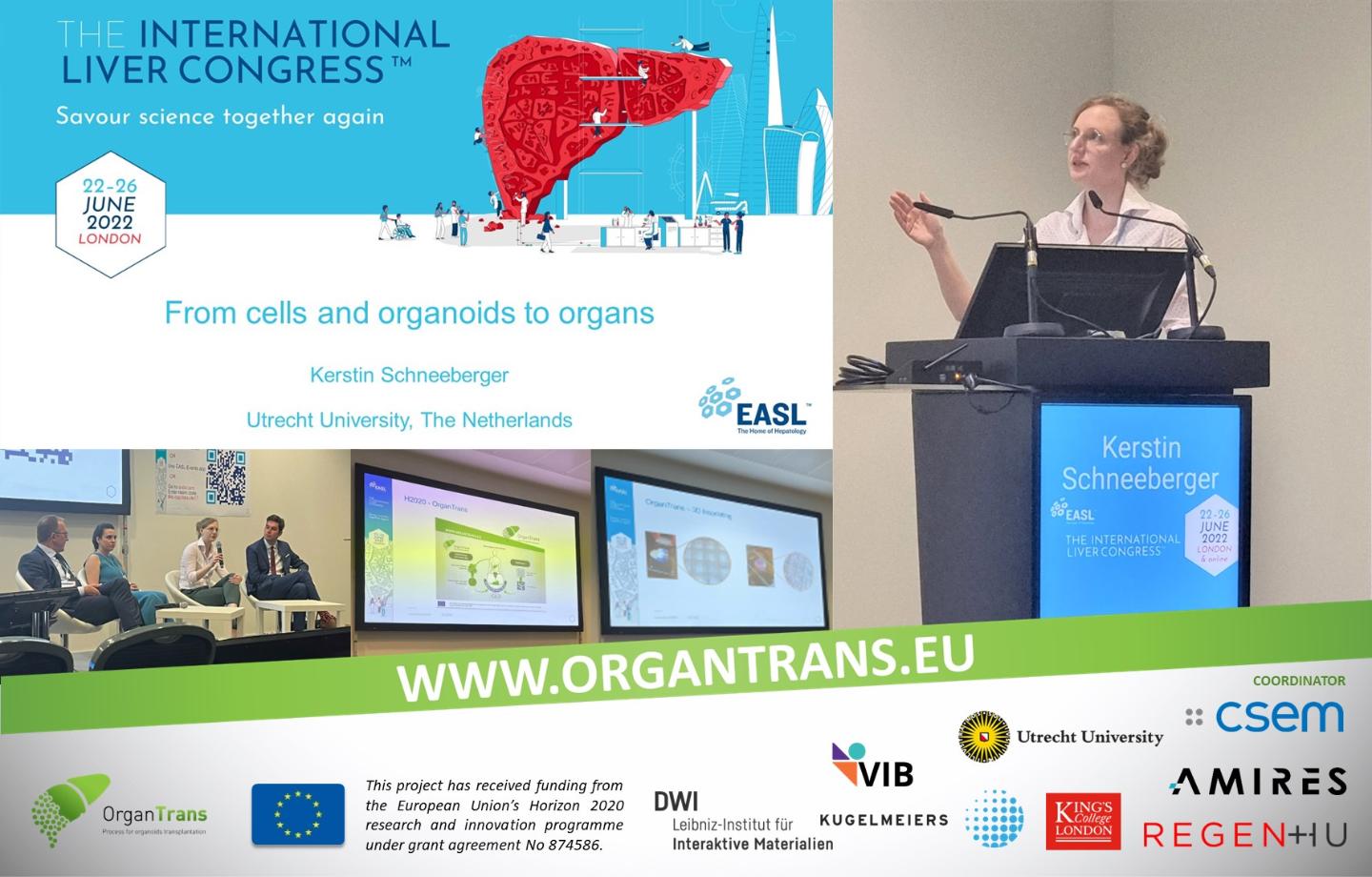 |
Women TechEU call is still open, apply by 4th October 2022, 14:00 (CET)
In June, the European Commission launched the second Women TechEU call. Following the very encouraging response to the first pilot in 2021, the Commission is more than doubling the budget to EUR 10 million this year, which is expected to fund up to 130 companies.
Women TechEU provides support to women-led startups at the earliest, riskiest stage of their company’s growth. In addition to a EUR 75 000 grant, the finalists receive mentoring and coaching for leadership, internationalisation, business modelling, implementation strategy, market entry, fundraising, negotiating with investors, and much more, through the EIC’s Women Leadership Programme.
By supporting women-led deep tech startups, the European Commission aims to create an equal and more prosperous European deep-tech ecosystem. In addition, the Women TechEU scheme promotes female leaders in their industries but also in their capacity of decision-makers.
This scheme is funded under the European Innovation Ecosystems work programme of Horizon Europe, with support from the European Innovation Council (EIC).
More information available HERE.
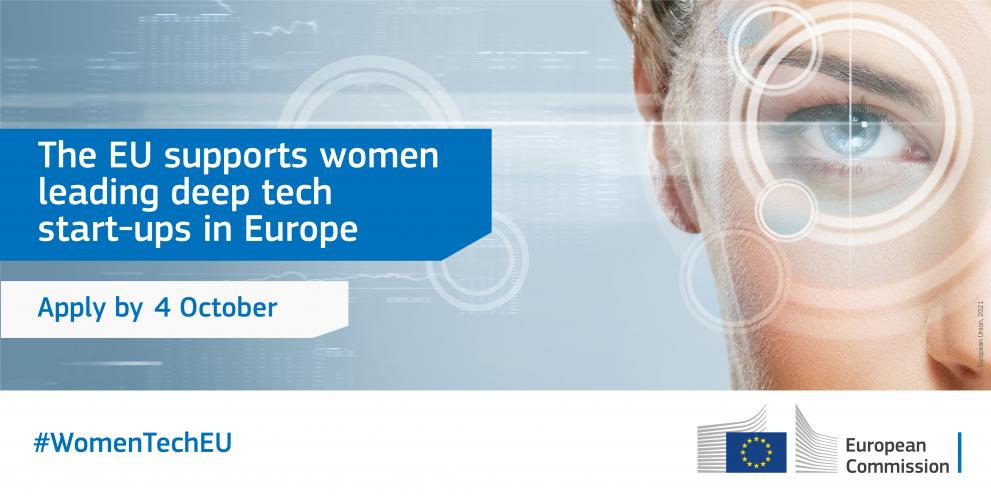
European Innovation Ecosystems Online Info Session – 07 September 2022
Do you want to know more about the calls and how to apply? On 07 September 2022, the European Innovation Council and SMEs Executive Agency (EISMEA) is organising an informative webinar to learn more about the European Innovation Ecosystems Work Programme (EIE) and the Startup Europe initiative under the European Innovation Council Work Programme 2022.
The focus will be on:
- building interconnected innovation ecosystems across Europe that foster inclusiveness (CONNECT destination)
- reinforcing network connectivity within and between innovation ecosystems for sustainable business growth in Europe (SCALEUP destination). This includes support to women-led companies in deep tech (Women TechEU call).
- building synergies with the wider European startup ecosystem via the second wave of actions under the Commission’s Startup Europe initiative (STARTUPEU call).
Five calls are currently open for various types of innovation ecosystem stakeholders. The deadline for submissions is 27 September 2022 for the CONNECT calls, 04 October 2022 for SCALEUP and Women TechEU, and 17 November 2022 for the STARTUPEU Call.
More information HERE.
Register HERE.
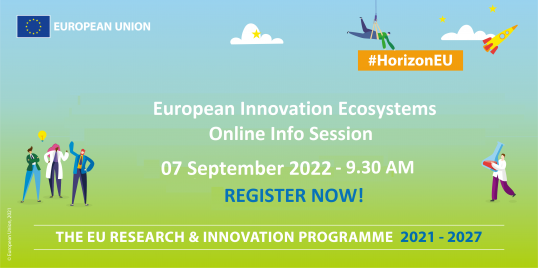
WE ARE HIRING – PROJECT MANAGER
To reinforce our team, weare opening position for a Project Manager of European R&D&I projects in Deep Tech domain. The chosen candidate will be responsible for the overall administration and management support of Horizon Europe projects and will also actively contribute to the preparation of other project proposals.
Are you ready to work in international environment? Are you ready to meet colleagues in the office? Do you enjoy communication and admin work? Are you eager to learn new things? If yes, then we are waiting for you!
See more details HERE. We are already looking forward to see you!
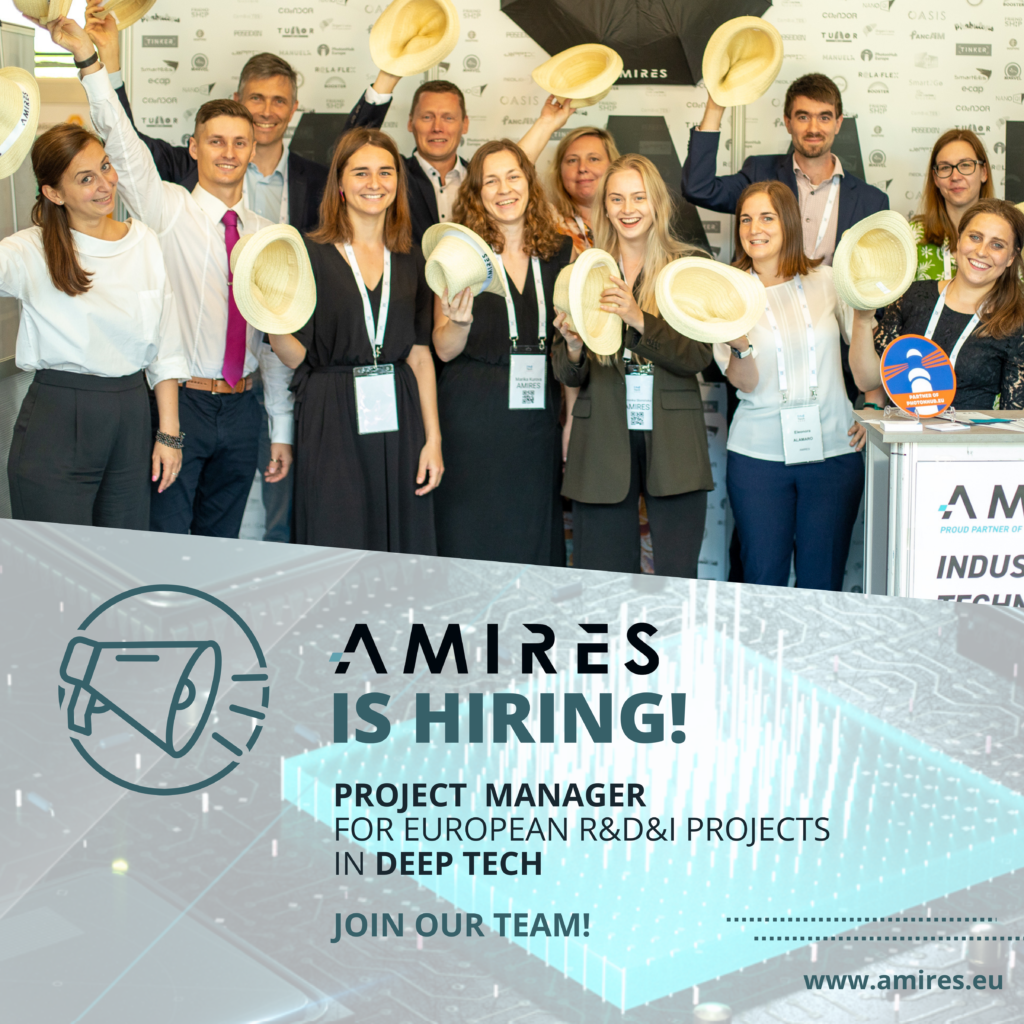
WE ARE HIRING – JUNIOR MARKETING SPECIALIST
Do you enjoy creating content? Are you fluent in digital media and interested in research, development and innovation projects?
If so, you would fit perfectly into our new open role in AMIRES. We are looking for a Junior Marketing Specialist to help us create and run innovation projects promotion campaigns and their content including social media and email marketing.
Read the whole job announcement HERE and submit your application till 12th of August 2022.

AMIRES visit to University of Hradec Králové
In July, AMIRES had the pleasure of visiting the Science Faculty of University of Hradec Králové (UHK), which we have been collaborating with in the last months.
The campus tour was followed by a great discussion on the plans for levelling up European cooperation of the Center of Advanced Technology and Department of Chemistry at UHK. The focus of future research and innovation projects will be on remote patient monitoring, oncology, neurodegenerative disease, CBRN-e, and many more.
The Center of Advanced Technology (CAT) at UHK has wide-ranging expertise in collecting and analysing health data. Unobtrusive pads developed at CAT can be placed under the mattress for vital functions monitoring by evaluation of micro vibrations. There are currently 230 pads deployed in 25 hospitals and senior centres across the Czech Republic to follow the disease progression of patients. CAT is likewise working on small on-body sensors and a cloud solution for data collection and evaluation, which facilitates the management of clinical studies for doctors and researchers.
The key research areas of the Department of Chemistry are Alzheimer’s disease, cancer theranostics, enzymology, metabolomics, and organophosphorus countermeasures. Among other research interests, the team is eager to develop theranostics tools for cancer and Alzheimer’s, decrease side effects of chemotherapy, and create powerful organophosphorus antidotes and bioscavengers. The Department of Chemistry, with expertise in the decontamination of B and C agents, is currently looking for collaborators for projects related to CBRN-e.
We welcome partners to join forces with University of Hradec Králové on these and related research topics and look forward to new projects together!
|
|
Industrial Technologies Conference 2022 – What a week it was!
In June, a very important event took place – not only for AMIRES, but for the whole European community working in the Industrial Technologies sector. Together with CEA, we organized IndTech2022 in Grenoble, France. Luckily, almost all of our team could be there.
Alongside inspiring sessions and workshops, the event created a space for various organizations and projects representatives to present themselves and network.
You could find us at the stand of AMIRES itself where you could find out about all our activities, but also in the villages, where our colleagues were happy to share information on the projects they were working on – FlexFunction2sustain, MedPhab, Phabulous & OASIS.
For more information, photos from the Conference and presentations, click HERE.
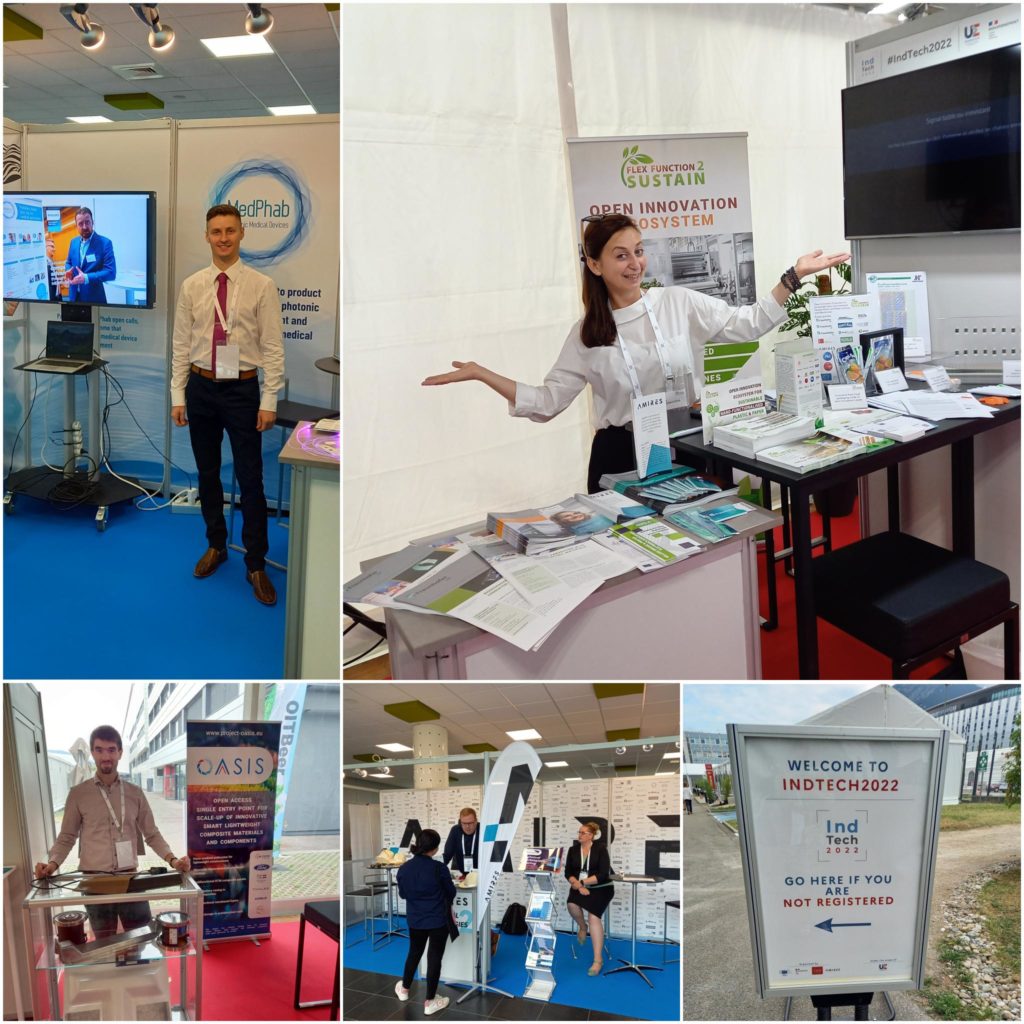
Smart2Go Project Finale in Oslo
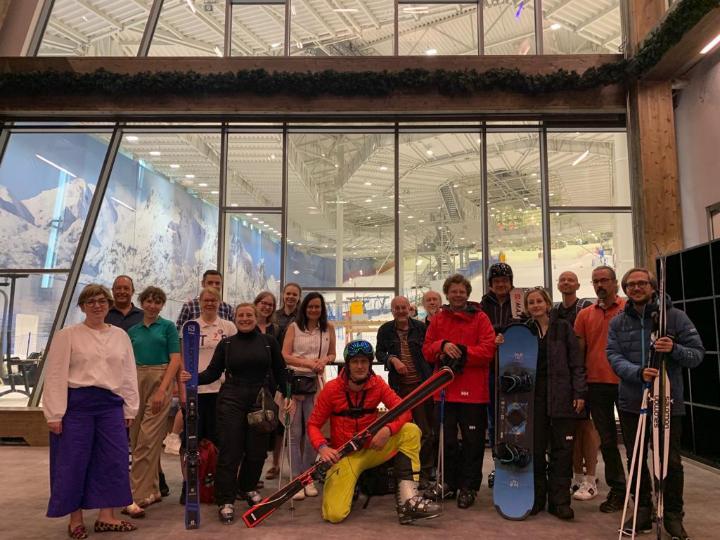 |
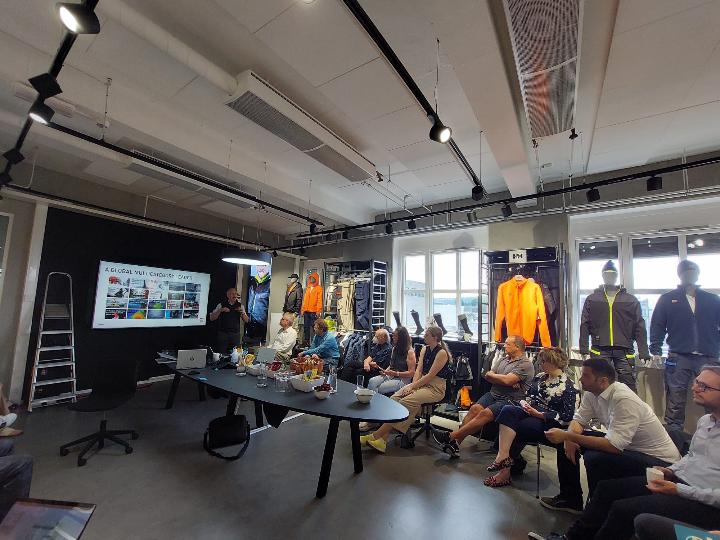 |
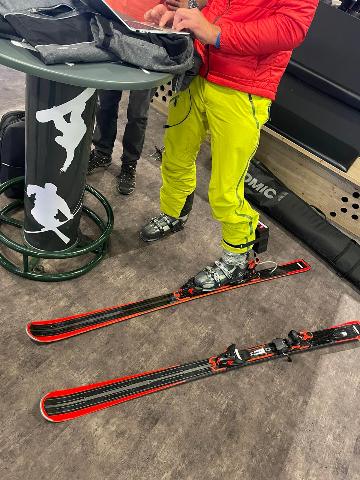 |
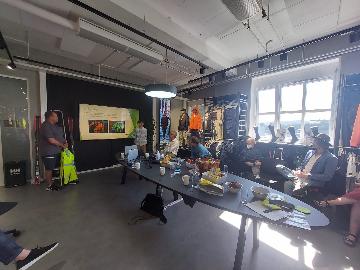 |
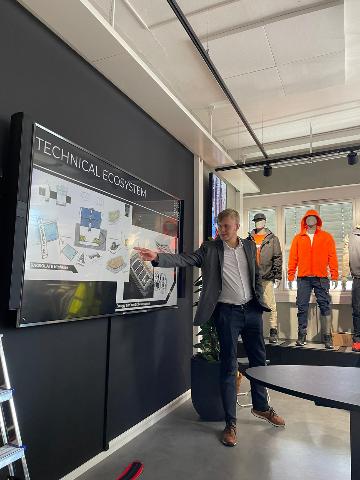 |
Additionally, the participants also had the chance to listen to short pitch presentations from the Smart2Go Design Contest Finalists and discuss with them the questions they had on developing their applications and ideas further. And lastly, EAB members or their colleagues finalized the meeting with presentations about current trends in the industry, which sparked exiting discussions. Overall, the meeting and workshop proved to mark a successful end to the project, establishing a base for further cooperation, both among the project partners and outside.
AMIRES at Sustainable Places Conference 2022
The Sustainable Places Conference is an annual conference which aims to foster networking and clustering between multidisciplinary experts, working towards more sustainable places. The event is renowned for showcasing results coming out of the EU Horizon 2020 Framework Programme via the participation of cutting-edge research and innovation projects. The agenda includes a thematic morning with roundtable discussions involving local stakeholders, parallel technical sessions and project-organized workshops which will explore the various conference themes and scientific publications in the field of sustainability.
During the event, AMIRES will present 4 projects from its Energy & Sustainability portfolio:
- CONDOR and ComBioTES will take part in a collaborative workshop Low-TRL Renewable Energy Technologies workshop. The workshop will bring together EU funded projects dealing with the challenge of researching, developing and demonstrating innovative, efficient, flexible, cost-competitive and environmentally safe technologies, which are still at a low Technological Readiness Level (TRL 3-4).
- Friendship will contribute to workshop RHC for Buildings and Industry Workshop 3.0, which will involve experts from the biomass, geothermal, solar thermal and heat pump sectors to discuss a common strategy for increasing the use of renewable energy technologies for heating and cooling for buildings and industry.
- Switch2Save will be presented in workshop Off-Site Plug-and-Play Prefab Systems. The workshop is structured around three topics: a) overview of the technological developments achieved in each project; b) based on the project developments group active-passive-hybrid technologies in terms of their technical characteristics; c) use the technology mapping to assess the technology potential to contribute towards NZEB and positive energy targets.
|
|
Discover the project FlexFunction2Sustain in a new video
Watch the new video about the FlexFunction2Sustain project to learn more about the Open Innovation Test Bed (OITB) for sustainable and smart products powered by nano-functionalized paper and plastic. The project aims to support small, medium-sized and large companies in the development and market launch of pioneering products through an ecosystem which:
- provides users an easy access to holistic innovation services through a Single Entry Point;
- covers the whole range of services in the field of nano-functionalised materials;
- offers complementary technical facilities as well as business solutions.
Enjoy watching!
Developing multimodal AI for Pancreatic Cancer: The PANCAIM M18 Meeting
The central idea of PANCAIM is to successfully exploit available genomic, imaging and clinical data to improve personalized medicine of pancreatic cancer patients by pooling data from almost 6000 patients at 5 clinical sites in Europe in a comprehensive online repository. Based on this data, combining manual and automatic annotation and analysis of features, the consortium will then develop algorithms through machine learning and AI training. These tools will help clinicians to make a more accurate prognosis and offer better treatment recommendations and outcome predictions for patients with pancreatic cancer, increasing the survivability and quality of life of those affected.
The PANCAIM M18 Meeting featured presentations of all work packages and a number of open discussions, during which partners shared progress and updates, discussed risks and challenges, and aligned on next steps. The common dinner at a local restaurant allowed team members to celebrate 1.5 years of successful project implementation and (finally!) get to know each other in person, facilitating even better future cooperation. After a very fruitful meeting, partners returned to their respective institutions with a renewed ambition for the project as well as a long to-do list for the coming months.
Visit the project website or download the project leaflet to learn more about the project and its current status!
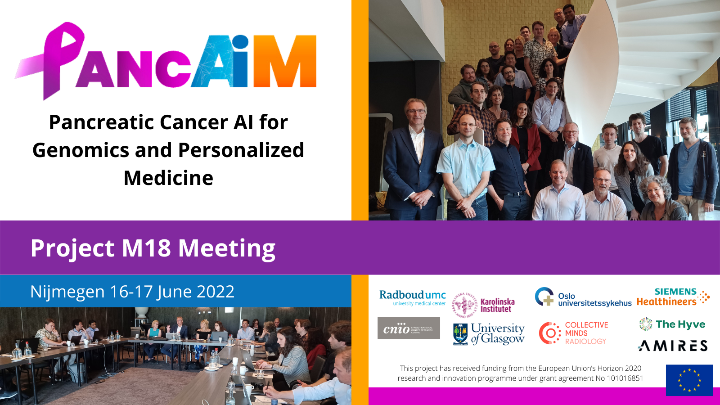 |
An exhaustive review on 3D liver cell models – ORGANTRANS technology is also there:
Nowadays, nanobiomaterials are extremely beneficial in many applications in health and medicine. Whilst nanobiomaterials offer various exciting new opportunities, their translation to the wider application in clinics is still slow. In this context, the #review published in Drug Delivery and Translational Research Journal by Melissa Anne Tutty, Dania Movia, Adriele Prina-Mello from Trinity Dublin College, Ireland presents the state of the art in the pre-clinical assessment of nanobiomaterials. In addition, this article describes the limitations of the current in vitro and in vivo liver models, and how tissue-mimetic 3D cell culture models can overcome such limitations, assisting in the translation of nanobiomaterials to the clinic.
Our project ORGANTRANS was mentioned in this article, as a bright example of the complex liver model creation enabled by innovative technologies, e.g. biofabrication offered by the #bioengineering company REGENHU. ORGANTRANS project consortium, coordinated by the Swiss Center for Electronics and Microtechnology (CSEM) and formed by eight partners, two of which are transplantation centers, generates a 3D bioprinting liver tissue platform to potentially replace liver transplantation for patients with end-stage liver failure. ORGANTRANS will cover the complete cycle of development from cell sourcing and tissue bioengineering to clinical trials. Moreover, it is ORGANTRANS’s ambition that this novel technique can not only be applied to hepatic systems but also to other organ systems in regenerative medicine. Find out more about the review and ORGANTRANS project HERE.
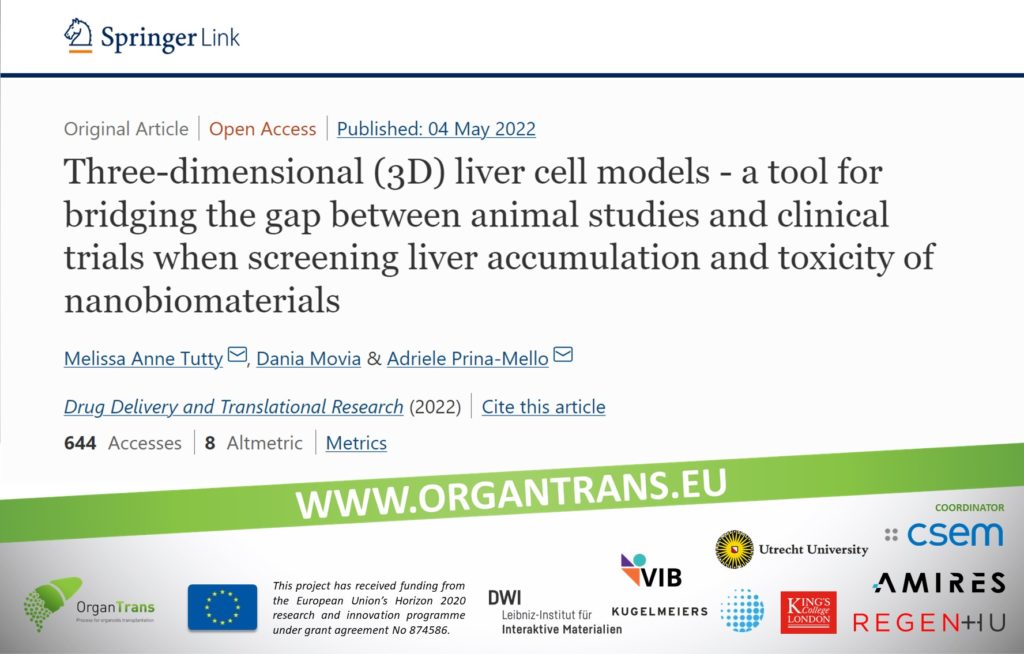
Sustainable and smart becomes real – world´s first organic photovoltaic cell on recycled material made by EU-consortium FlexFunction2Sustain
Read the Press Release announcing the outcomes of the FlexFunction2Sustain project.
|
|
M30 meeting of project MedPhab
After two and half years of the start of MedPhab, pilot line for photonics-based medical devices, the consortium was able to meet in person again in Oulu, Finland hosted by VTT on 15 and 16 of June 2022. Last time this happened was in January 2020 in Brussels during the kick off meeting, when plans of the pilot line were presented. From that moment until this meeting many things have happened in the progress of MedPhab: technology map was defined, model cases (in vitro and in vivo diagnostics) finalized and published, use cases (in vitro, in vivo diagnostics: hospital use and home use) defined their specifications and are going into prototyping and integration. In addition, we had the launch of the open calls, receiving so far 20 companies in-take forms and the preparation of the first drafts of business and sustainability models of MedPhab. During this meeting (Month 30) the advancements on each of these topics were presented and deeply discussed.
One and half years are awaiting ahead of us, contributing to MedPhab’s main objective: accelerate the photonic devices development and industrialization for medical applications. Do not miss any updates and consult HERE.
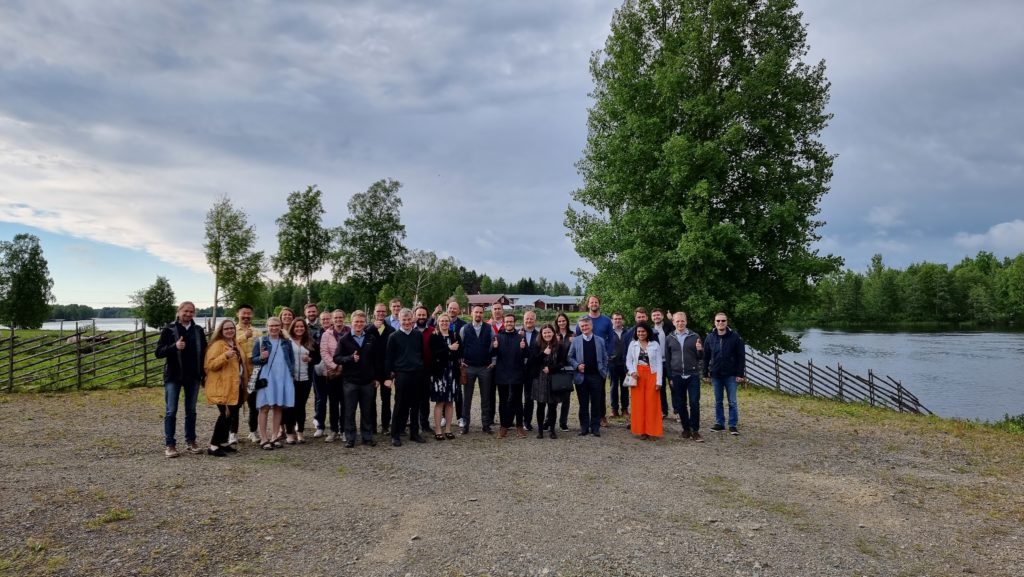
MEET OUR TEAM: Anna Ivanova
We would like to introduce our new colleague Anna who joined our team May 2022.
Anna responded to our opened position for a Ukrainians and we found her experiences as a great fit for a Junior Marketing Specialist position. We are honestly happy that we can be a support to her in these times. Moreover, we are thrilled to share that AMIRES together sent 2 100 € to the account of the Ukraine Ministry of Social Policy.
More about Anna, originally from Ukraine, she graduated from The Hague University of Applied Sciences in the Netherlands with a Bachelor’s degree in Public Administration.
Through her various academic and practical experiences, she obtained thorough knowledge in the fields of policymaking, memory politics and conflict resolution. Anna acquired a profound understanding of EU affairs and policies through her traineeship at EuroClio, where she worked on fundraising and outreach for several EU-funded projects. In her role as a Social Media Coordinator and Research Associate at the Institute for Historical Justice and Reconciliation, she supervised researchers and managed the online presence of the Contested Histories project.
In AMIRES, Anna is involved in H2020 projects Switch2Save and is supporting other projects in Energy & Sustainability programme.
Welcome to the team Anna!

Registration is open for the European Sustainable Energy Week 2022
The European Commission has opened on the 16th June a registrations for this year’s European Sustainable Energy Week (EUSEW) 2022. Under the theme “Going green and digital for Europe’s energy transition”, the event will take place from 26th to 30th September.
This year’s EUSEW will be organised in a hybrid format, both online and physical. Participants are invited to register and can chose to join the event on-site at the in Brussels or online to engage in discussions on different issues linked to the overall theme.
EUSEW 2022 highlights include:
- The EUSEW Policy Conference, from 26th to 29th September. Main topics include REPowerEU, the digitalisation and integration of energy systems, energy efficiency, renewables, consumers and a fair energy transition, decarbonisation policies and international cooperation. Sessions are organised by the European Commission and energy stakeholders and include high-level speakers to discuss, debate and share best practices.
- The prestigious Awards Ceremony for the European Sustainable Energy Awards, taking place on 26th September, in the presence of Commissioner for Energy, Kadri Simson, recognising individuals and projects for outstanding efforts across four categories: innovation, local energy action, woman in energy and young energy trailblazer.
- The third edition of the European Youth Energy Day , taking place on 26 September within the activities of the 2022 European Year of Youth.
- A series of networking activities during the whole week where participants can connect with other members of the sustainable energy community, including a hybrid energy fair that gives organisations and associations the opportunity to showcase their initiatives and interact with participants and a series of energy talks.
- The EUSEW extended programme, from 19 to 23 September, featuring 40 sessions leading up to the EUSEW Policy Conference.
- From June to September, locally organised Sustainable Energy Days taking place around the world to promote renewable energy and energy efficiency.
More information is available HERE.
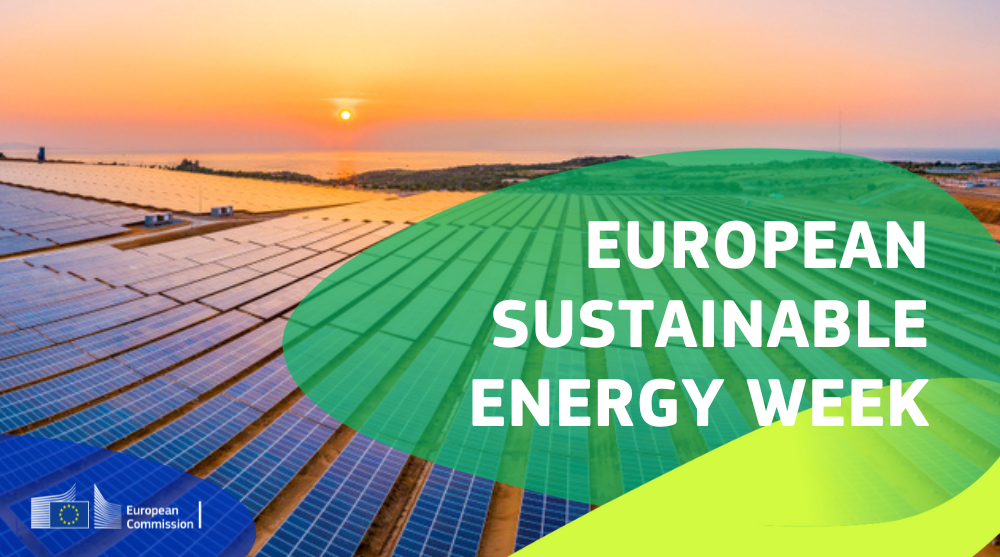
ORGANTRANS technical workshop: synchronization and testing of a 3D-bioprinting platform and a tissue maturation bioreactor
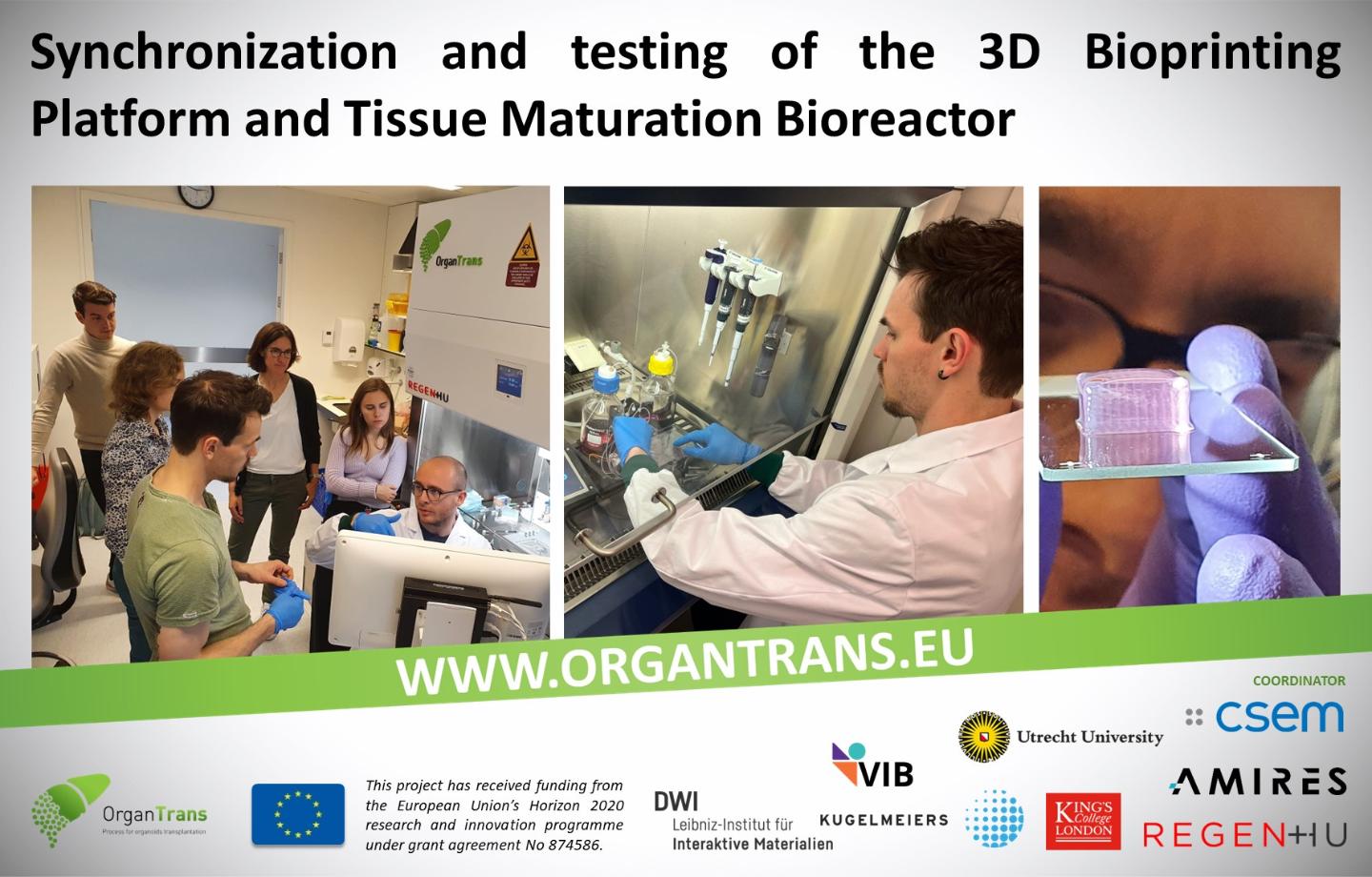 |
eCAP: Towards universal access to digestive disease diagnostics
On 4 May 2022, a kick-off meeting took place for the eCAP project: recipient of a €4.7 million grant from the European Union’s Research and Innovation Programme Horizon Europe. The aim of the project is to deliver a novel medical device combining a smart capsule with an e-health platform to enable better diagnostics, patient empowered disease management and hence, improved outcomes for patients with gastrointestinal (GI) diseases, a major source of population morbidity and care costs worldwide.
The consortium, composed of 10 partners from research organisations and industry across Europe and Kenya, will demonstrate the universality of the eCAP solution in clinical trials in France as well as low resource environments by bringing the device to patients who so far have had limited access to GI disease diagnostics.
AMIRES is proud to support the project management and dissemination activities in the project.
Read more on our plans in the press release here.
 |
WE ARE HIRING!
Do you like challenges and adventures? Do you want to climb with us not only to the mountain peaks?
Go beyond the Horizon with our team and join us!
To reinforce our team, AMIRES (Czech Republic) is opening positions for Project Manager of European R&D&I projects in Energy & Sustainability domain. The chosen candidates will be responsible for the overall administration and management support of H2020 / HE projects and will also actively contribute to the preparation of other project proposals.
Find out more HERE.
We are already looking forward to welcome you on board!
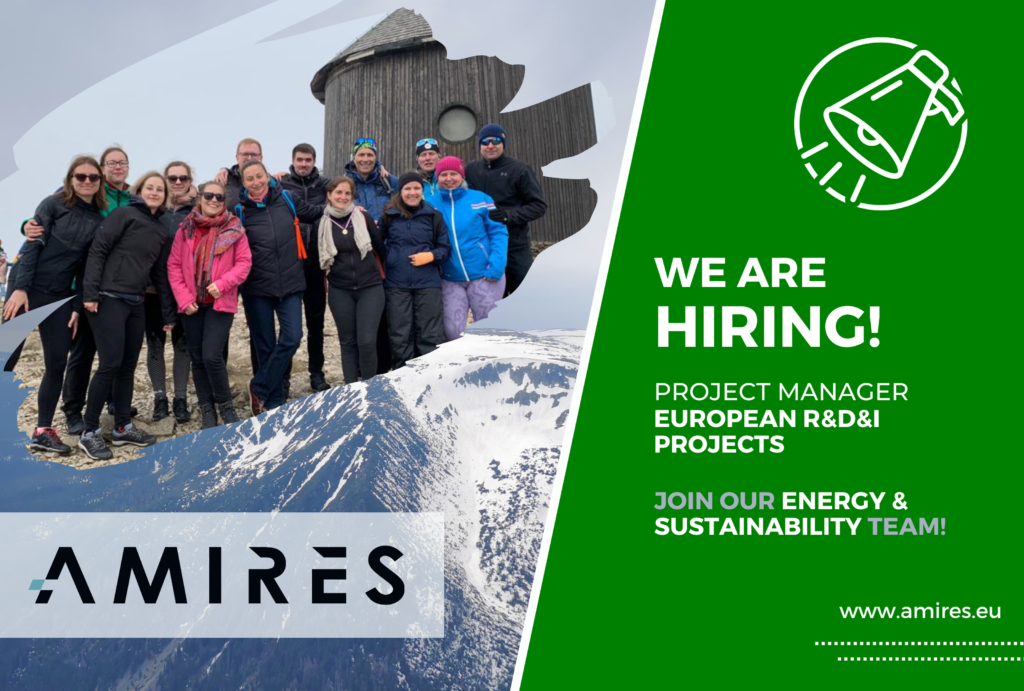
Thirty months of the ORGANTRANS project behind
On the 30th and 31st of May, the ORGANTRANS consortium met for the M30 meeting hosted by one of our partners, DWI Leibniz-Institute for Interactive Materials located in Aachen, Germany. The goal of this meeting was to share the latest progress and to discuss further steps needed for the final phase of the project. In principle, the entire development cycle from cell source and tissue engineering to a fully functional liver tissue 3D printing platform is almost finished. Nevertheless, the remained final phase of the project will include the synchronization and integration of work stages of all the systems and further testing in a relevant environment. The platform to create liver constructs developed within the ORGANTRANS project is a future alternative for organ transplantation medicine as it proposes a disruptive alternative to donor organs for patients with chronic end-stage liver diseases. Importantly, this research creates novel technologies that can be applied to other organ systems in the field of regenerative medicine.
To learn more about the project, click HERE.
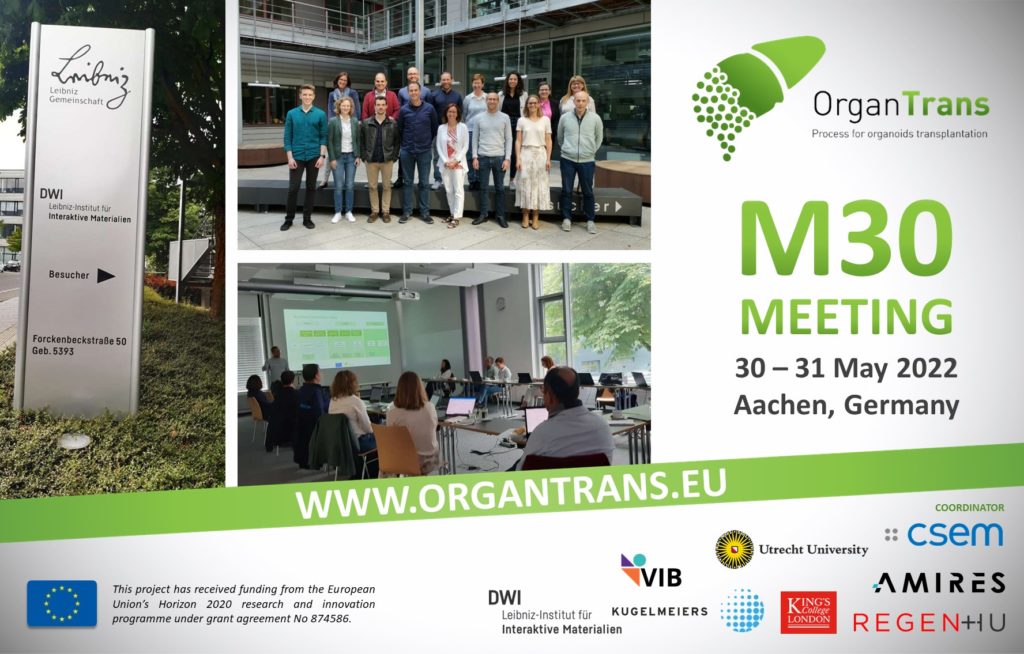
INSPIRE project meeting in Eindhoven
On 23-24 May 2022, the INSPIRE consortium met in-person for the first time at TU/e to celebrate the 17 months of successful project implementation and to review the progress achieved so far. INSPIRE project responds to the ever-increasing need of high-performance PICs by combining the three dominant photonic platforms, Indium phosphide, Silicon nitride and Silicon (CMOS), with the aim of creating and leveraging volume manufacturing techniques. The industrial viability will be validated through process transfer into a pilot line foundry process and multi-coupon transfer printing to enhance the throughput and yield of the transfer printing process. To gain insights regarding the route to volume production, the consortium invited a member of our Industrial Advisory Board, Hitesh Ballani Microsoft Research Cambridge who shared his views on the topic. As a part of the meeting, partners had the opportunity to visit TU/e´s lab and cleanroom facilities.
We are looking forward to continuing the work on the project for 2 more years!
Discover INSPIRE project HERE.
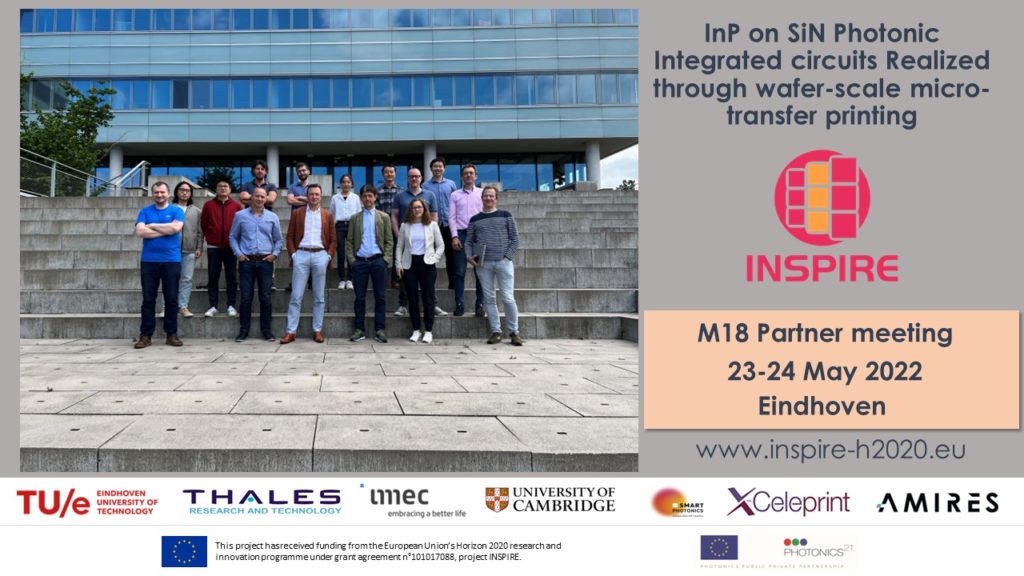
European Innovation Ecosystems work programme: upcoming calls worth €29.5 million
The European Commission has announced additional €11.7 million to strengthen the European Innovation Ecosystems.
The European Commission has adopted the amended European Innovation Ecosystems (EIE) 2021-2022 Work Programme under Horizon Europe. It provides new funding opportunities for deep-tech start-ups led by women and the EU angel investment industry on top of existing actions that aim to create more connected and efficient innovation ecosystems.
The amended work programme clarifies the COFUND rate in the context of the forthcoming EIE calls due to open for submission on 14 June:
HORIZON-EIE-2022-CONNECT-02-01: Implementing co-funded action plans for interconnection of innovation ecosystems (budget: €8 million)
HORIZON-EIE-2022-CONNECT-02-02: Stimulating innovation procurement (budget: €4.5 million)
Standard changes to the HORIZON-EIE-2022-SCALEUP-02-01 Expanding Investments Ecosystems call conditions for lump sum topics were applied.
The call has a total budget of €5 million and will open for submission on 21 June 2022.
More information is available here. The work programme document is available here.
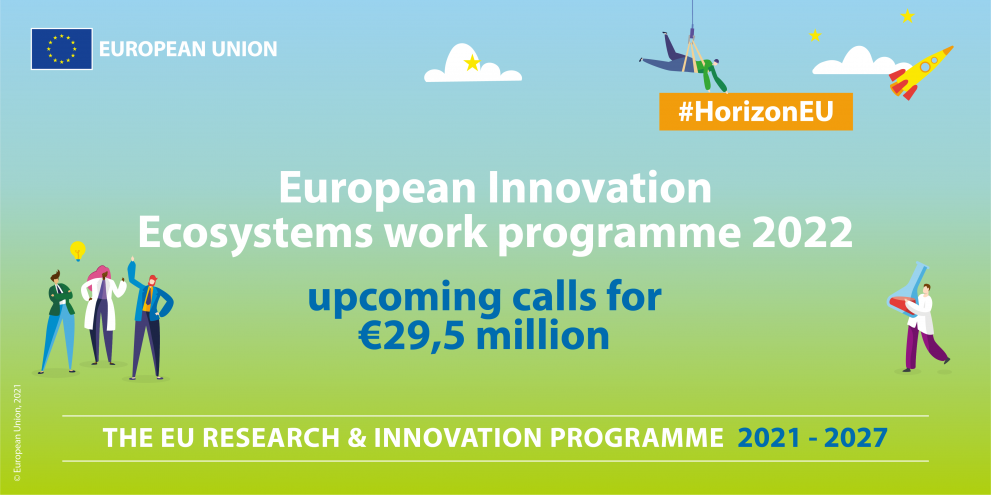
CONDOR: Successful completion of first 18 project months
On 19th – 20th of May, CONDOR team met to sum up the achievements for the first 18 months and to plan future actions in the project. Hosted by AMIRES in Prague, Czech Republic, the consortium had the chance to reunite after the COVID-19 outbreak, which represented the first in-person meeting for the team.
The CONDOR partners seized the opportunity to show their progress from a scientific perspective with regard to the project’s ultimate goal to develop an innovative renewable energy system for fuel productions. Each work package leader gave a presentation to share insight into the work performed for the development of CONDOR device. The partners reviewed the progress in the synthesis and modelling of molecular catalysts and the preparation of photoanodes for water, chloride or biomass oxidation, and (photo)cathodes for syngas production. The discussions also covered the ongoing parallel activities aimed at syngas conversion to fuels by thermal or photoactivated processes.
Summing up the first 18 months of the project, it is worth saying that the achieved results are aligned with the planned objectives. Overall, the project is well on track and the first 11 deliverables were submitted as well as the planned milestones were reached on time.
Coordinated by the University of Bologna, the CONDOR project connects well reputed technology development teams and key industrial partners. In the project, AMIRES is responsible for the project management and leads the work package dedicated to the communication and dissemination of results and exploitation activities.
More information for CONDOR project can be found HERE.
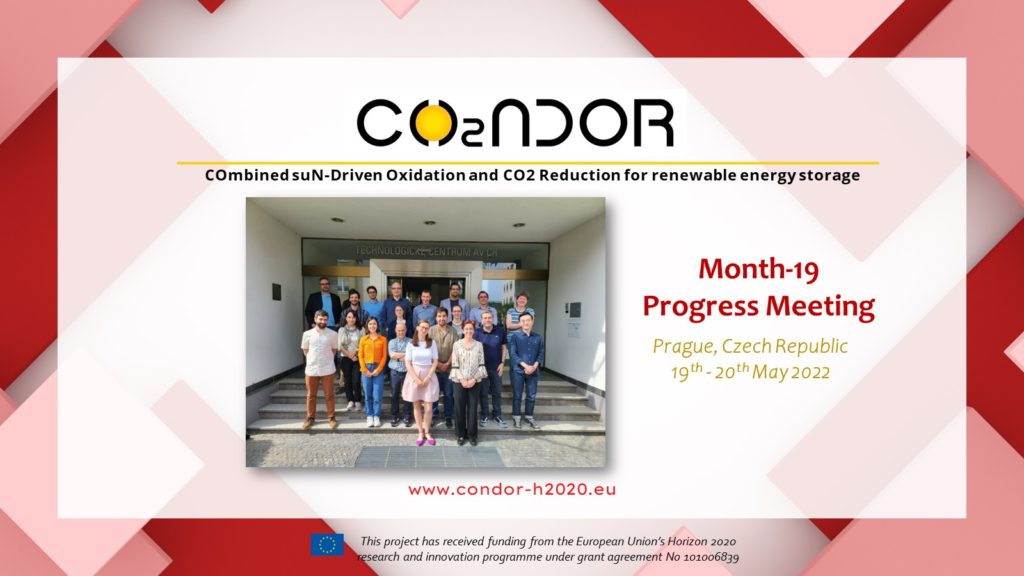
How can you use smart glass technologies for energy saving? Show us by joining the Switch2Save Architectural Design Competition!
Glass is considered one of the integral components of modern architectural design. Think about today’s office buildings, airport terminals, train stations and shopping centers – their designs often incorporate glass façades or roofs. Glass is attractive, versatile and provides a visual connection with the outside world, which is why large-area glazing remains a continuing trend.
However, large glass areas can significantly increase the energy demands for cooling and air conditioning in summer. In fact, modern buildings with large glass components consume up to 100% more energy each year than buildings with small windows. With the aim of reducing energy demands in buildings featuring glass façades, roofs or large window-to-wall areas, the EU-funded Switch2save project is holding an Architectural Design Competition to collect energy saving design concepts for such buildings.
The competition focuses on non-residential sites – either new or renovation projects – and sets no design restrictions regarding the site size, location or climate. Participants are invited to submit design concepts which include an optimum exploitation of the Switch2Save electrochromic (EC) and thermochromic (TC) smart glass technologies. These are transparent energy-smart materials with switchable total energy transmission values to control the transfer of solar radiation into the building. EC and TC technologies also have the added advantage of providing greater indoor lighting comfort than conventional mechanical window blinds.
The competition is open to young architects, students, and/or multidisciplinary teams that include building physicists or engineers and are led by young architects or students enrolled in an academic programme from an accredited educational institution. Teams can have up to three members of any nationality.

For more information about the competition terms, important dates and the exciting awards, check the Switch2Save website.
To participate in the competition, register HERE.
The Switch2Save (Lightweight switchable smart solutions for energy saving large windows and glass façades) project aims to help make electrochromic (EC) and thermochromic (TC) smart glass technologies more easily available and affordable so as to contribute to the EU’s goal to become climate-neutral by 2050. The project is demonstrating the potential of its two representative buildings – Greece’s second largest hospital in Athens and an operational office building in Uppsala, Sweden. A total of 50 windows and 200 m2 of glass façades will be replaced with a switchable smart glass solution, following which a “before–after” comparison will be conducted of the energy consumption in both buildings for one year.
1 year of Tumor-LN-oC: Working towards a Tumor-Lymph Node-On chip platform
The M12 meeting focused on sharing updates, jointly solving any challenges that occurred and planning the next steps, but also made time for informal discussions and networking between the partners. Agenda items mainly concerned the progress and future plans regarding the various Tumor-LN-oC components, which are currently being developed and tested independently by partners and will one day form the Tumor-LN-oC platform. Partners also discussed at length the experiments around cell migration and the interaction between the tumor and lymph node cells on the preliminary chips.
In its role as management, dissemination and exploitation partner, AMIRES led the sessions on project management, communication and dissemination efforts, as well as a structured dialogue on the future commercialisation efforts of the consortium.
The chip fabrication workshop in the TU/e Microfab laboratory on the last day gave all team members a hands-on experience of the various steps of manufacturing and assembling the Tumor-LN-oC microfluidic chip.
In order to reach the ultimate objective of the project – a TRL 5 tumor-lymph node-on-chip platform, which will connect surgically removed human primary tumors and lymph node tissue (LN) from the same lung cancer patient (a “biological twin” of the patient) – a lot of work remains to be done. Nevertheless, the platform, which will offer various analytical possibilities to analyse the cancer patient’s LN metastasis activity and monitor the treatment response, seems one step closer.
We are grateful to our partners for their commitment to the project and are looking forward to continuing the work in the next 3 years of project implementation!
Read more here!
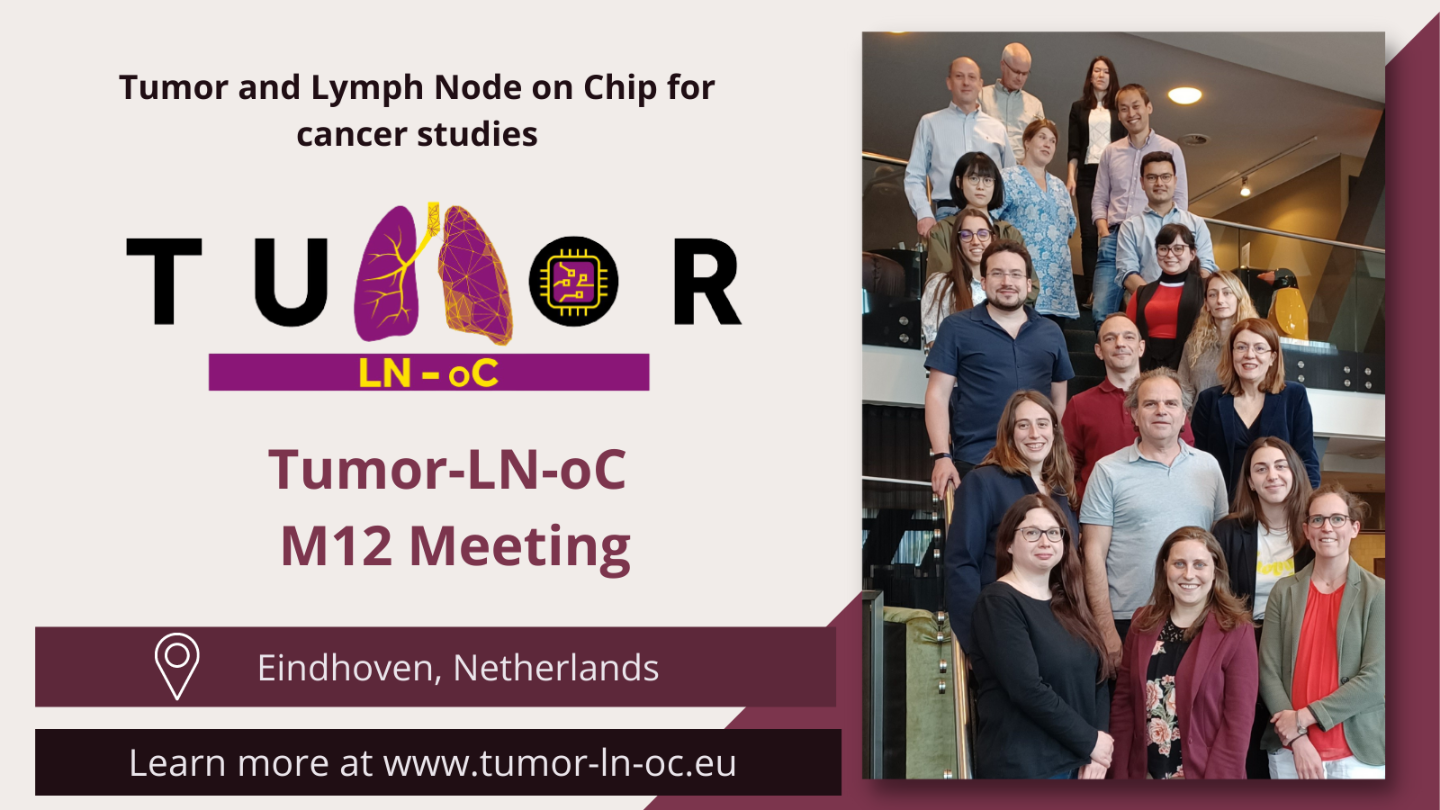 |
Halfway through FRIENDSHIP project
The Horizon 2020 project FRIENDSHIP reached the halfway milestone this month and for the occasion the whole consortium met for the first time, in Sweden.
The meeting started with the projection of the film: “Our Planet: Our Business” by David Attenborough, to remind about the vital role companies have in building a sustainable future.
On the agenda, an overview of the progress in the running Work Packages was presented. In addition to that, in the Third General Assembly, the consortium had also the opportunity to discuss management plans and implementations within the project. The second day, instead, was dedicated to technical discussions and to future collaborations among partners.
During the meeting, FRIENDSHIP also received very valuable feedback and suggestions by Mr. Thomas Ammerl, External Advisory Board member from BAYFOR.
The event was hosted by ABSOLICON who provided insight into the concentrated solar collectors they developed.
Future looks bright for FRIENDSHIP!
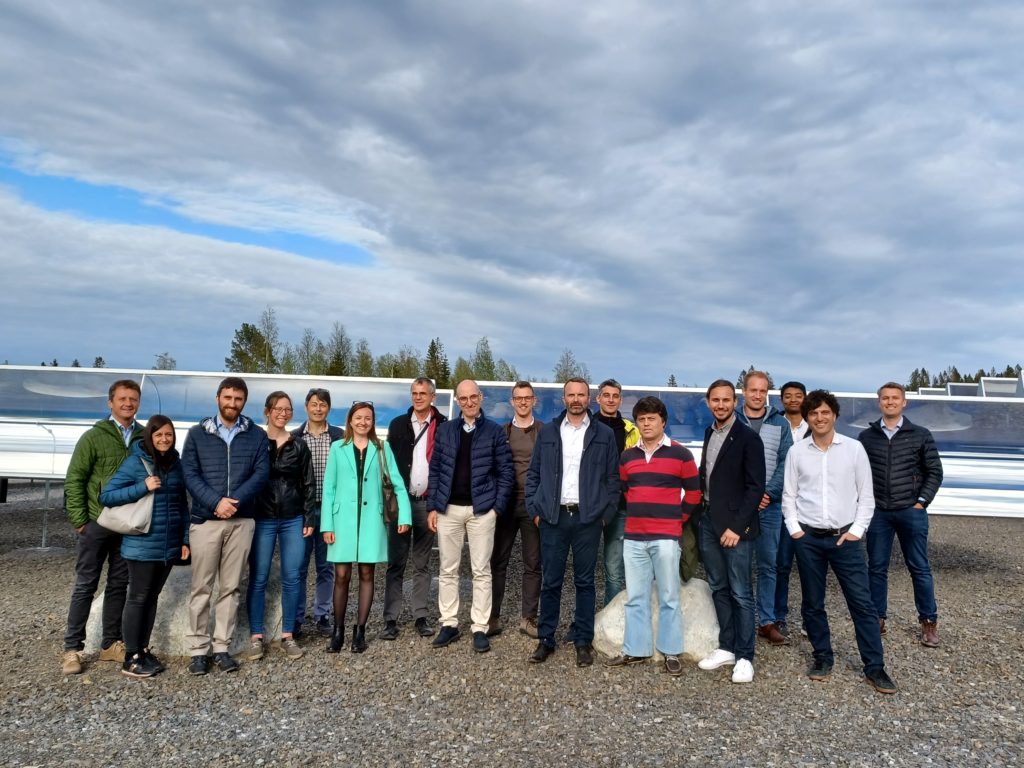
FlexFunction2Sustain in M24: what has been achieved?
Two years after the start of the project, FlexFunction2Sustain published an overview highlighting the achievements of the first half of its implementation. AMIRES, together with eighteen consortium members, coordinated by Fraunhofer-FEP , work to attain the ultimate goal to establish a sustainable Open Innovation Test Bed to boost innovations for sustainable plastic and paper products to reach the market faster.
The first half of the project was dedicated to set up both business model and legal structure of the ecosystem. In parallel, the technical facilities of the consortium members have been upgraded for processing of novel bio-based, bio-degradable and/or recyclable plastic and paper based materials that shall replace the state-of-the-art mineral oil based plastic products in e.g. packaging applications. All facilities and technological solutions developed within FlexFunction2Sustain are being verified in six industrial use case scenarios that cover food and non-food packaging, biodegradable security labels, switchable water filter membranes and innovative multi-functional electronic surfaces in automotive applications. At month 24 of the project, the partners successfully demonstrated roll-to-roll processing of bio-degradable micro-structured surfaces for security labels; roll-to-roll manufacturing of conductive PET based membranes for filter applications; demonstrators of fully recyclable drink pouches and operational organic solar cells that were deposited on recycled PET films. In order to accelerate the uptake of the OITB services, FlexFunction2Sustain launched an Open Call targeted to the interested external companies. Following a competitive selection process, up to 20 pre-commercial business cases (pilot cases projects) will be selected to receive discounted services from the OITB members.
Discover more about the main advancements by Month-24 by downloading the overview presentation HERE.
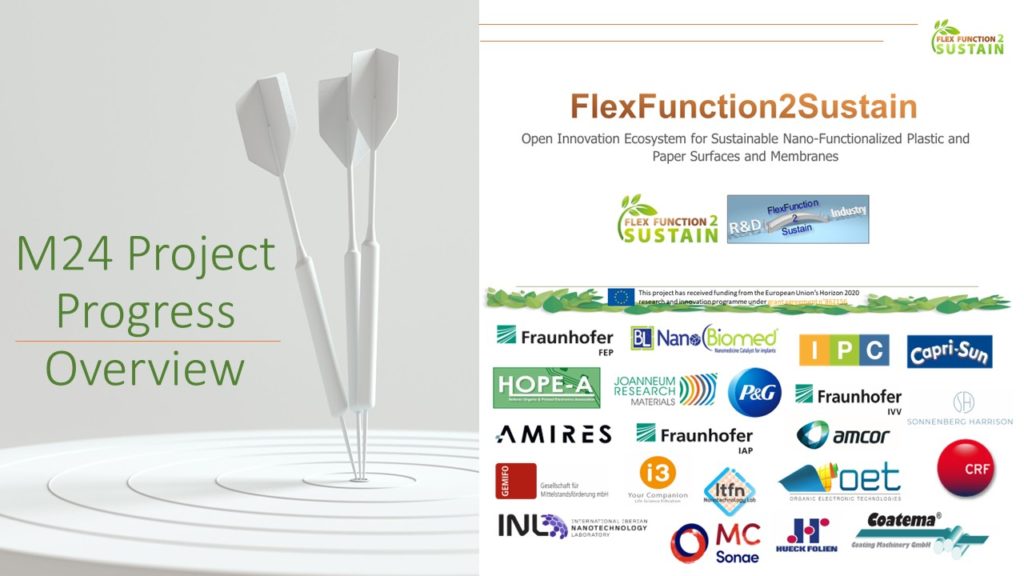
PROJECT FRIENDSHIP: Innovations on the ejector and absorption chillers
SINTEF and CEA are investigating different innovative solutions for absorption cooling at -20°C and -40°C from 100-250°C solar heat, in particular a GAX (Generator-Absorber heat eXchange) cycle based on commercial components, like Plate Heat Exchangers (PHE). This innovative design improves the heat and mass transfers, thus performance. In addition, manufacturing costs decrease, as the needed components are standardized and available in the market. A numerical study allows identifying the best solutions for the SHIP integration, giving an overview on the operating temperature ranges for each cycle. Thanks to these concepts, which led to the definition of technical sheets, a prototype of a GAX cycle for -20°C cooling will be realized, the choice on the final architecture will be made further on, when the market search will have provided the necessary economic data.
The work on the optimal design of the ejector chiller, targeting cold production down to 5°C (short term) and -10°C (long-term) is also being studied both on the process level and the component level. On the process level, SINTEF is working with the partners to optimize the cycle architecture and the choice of working fluid. On the component level, a detailed ejector model has been developed in a recently submitted publication. This model can for the first time can calculate the local entropy production through the ejector, which allows identifying the optimal ejector geometry as that which minimizes the entropy production.

Watch how was our MARVEL project symposium in Lugano | 13 April 2022
The symposium was attended by more than 90 experts and young investigators working in the expansive field of Extracellular Vesicles. Structured around keynote presentations from selected speakers, flash presentations, and posters from young investigators, the symposium facilitated the exchange of views on the current and future technology solutions in the expansive field of Extracellular vesicles and their applications in the healthcare sector.
The MARVEL symposium culminated with the Award Ceremony designed to encourage excellence in research and presentation skills in young investigators. The Ceremony was sponsored by the Journal of Extracellular Vesicles and Circulating Nucleic Acid where all the selected abstracts will be published. Awardees received certificates and a cash award of 250 dollars for the best poster and oral presentations. Vera Tscherrig, from the University of Bern, was awarded for the best oral presentation entitled “MicroRNAs in small extracellular vesicles (EVs) from Wharton’s jelly mesenchymal stromal cells and their potential neuro regenerative role”. The best poster presentation entitled “Development of breakthrough liquid biopsy diagnostic via novel exosomal biomarkers for patient stratification in prostate cancer” was presented by Alekhya Mazumdar from the University Hospital of Zürich.
We would like to express our cordial thanks to all who attended the symposium and helped make this event a success. We have much pleasure in thanking our keynote speakers (Edit Buzás, Benedetta Bussolati, Michele De Palma), MARVEL partners (CNR SCITEC ‘Giulio Natta’, CNR-ITM, Libera Università Vita-Salute San Raffaele, HansaBioMed Life Sciences Ltd and Paperdrop Diagnostics) and several organizations, in particular: SNSF Swiss National Science Foundation, USI Università della Svizzera italiana, Ente Ospedaliero Cantonale (EOC), for their support and the very efficient help during the symposium. The organizers gladly acknowledge also many other local people from USI Università della Svizzera italiana, where the event took place, who helped with the organization and ensured that in all instances the formal steps went smoothly.
Looking forward to meeting you at future events we are going to organize.
Follow us HERE.
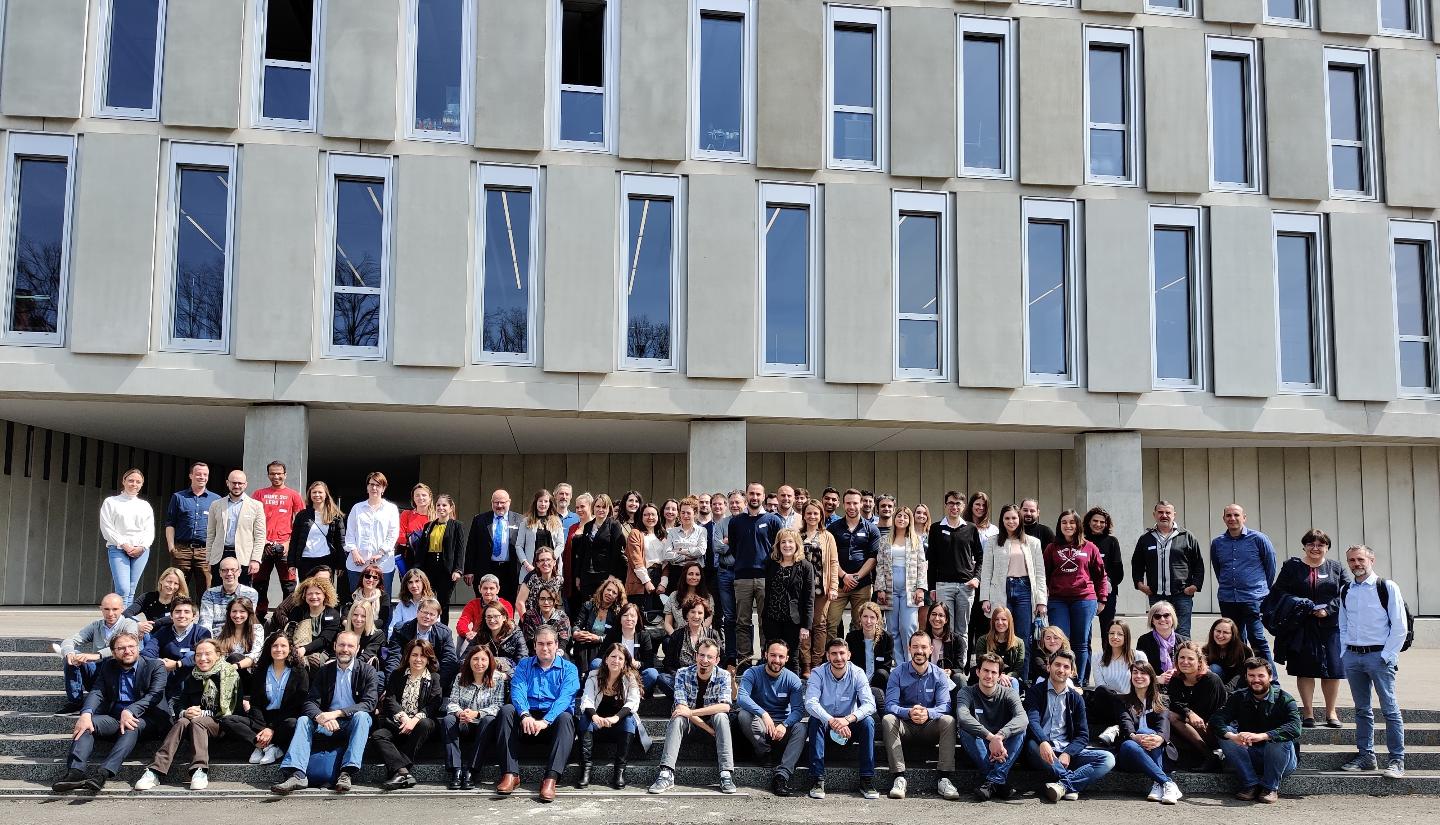 |
Tumor-LN-oC contributes to an innovative and resilient health industry in Europe
The European Health and Digital Executive Agency (HaDEA) has featured Tumor-LN-oC in a special article on its website for World Health Day. World Health Day is a global health awareness day observed annually on April 7th, which marks the anniversary of the founding of World Health Organisation (WHO). In the article, the agency underlined the project’s contribution to an innovative and resilient health industry in Europe.
The European Commission considers technical-scientific projects such as Tumor-LN-oC as key to accelerating the green and digital transition, to building a stronger European Health Union, and to strengthening the EU’s autonomy in key strategic value chains. Tumor-LN-oC was highlighted for contributing to the European efforts to an innovative and resilient health industry in Europe by using and enhancing technological developments in the fields of microfluidics, cell biology, cancer biology, physics and computer programming in order to study the metastasis through the lymphatic system and the interaction of primary tumours with LNs.
In particular, Tumor-LN-oC is finding a solution for a robust, automated tumour–lymph node-on-chip platform, which will connect, on a microfluidic chip, human tumour tissues and lymph nodes. It is known that in many cases, tumours use lymphatic vessels to spread and colonise downstream lymph nodes (LNs) – a better understanding of this process is thus key for developing effective therapies. For this reason, the project consortium is developing a microfluidic system which will connect surgically removed, human primary tumours and lymph node tissue from the same lung cancer patient, which will make it possible to offer personalised treatment to lung cancer patients based on the molecular characterisation of their own metastasising cells. Possible application areas of the developed technology include personalised medicine and metastasis diagnosis, as well as drug testing and discovery.
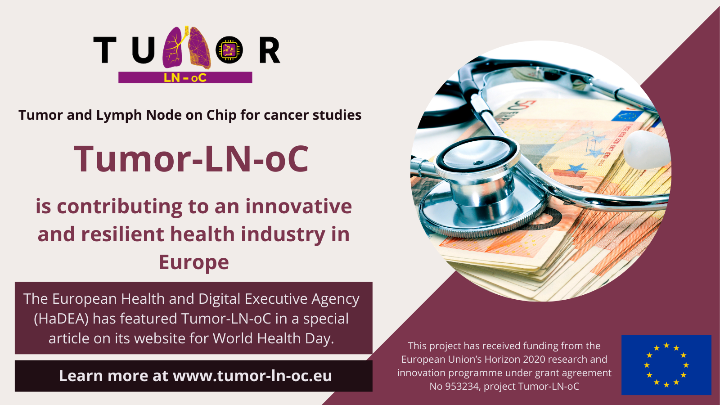 |
MEET OUR TEAM: Yevhen Horokhovatskyi, Ph.D.
Today we would like to introduce our team member Yevhen who started working for us in September 2020 as a Project Manager. He has a bachelor’s degree in Applied Physics from the V.N. Karazin Kharkiv National University in Ukraine. At the same university he obtained his Master of Science degree with honour from Medical Biophysics in 2014. In 2018 he received his Ph.D. in Cryobiology from the University of South Bohemia in Ceske Budejovice which was a part of the Horizon 2020 research infrastructure project.
During his studies he cooperated with leading specialists from all over the world and took part in several international research projects and development programmes as a coordinator as well as a member of a research team. Apart from that, he was also actively involved in supervising of master’s students, teaching, publication in scientific journals and presentation of research findings at international conferences. He also gained experience in implementation of new standards, legislation, quality assurance codes and audit during elaboration and production phases of medical devices.
In AMIRES, Yevhen is responsible for H2020 project MARVEL (Evolving reversible immunocapture by membrane sensing peptides: towards scalable extracellular vesicles isolation) and acts as a Dissemination Manager of ORGANTRANS project.
About his work Yevhen said: “I was looking for the way how to improve the world – with AMIRES I found it! Contributing to different projects that bring fantastic technologies into reality I feel that I contribute to improving the quality of life in our world, and this is perfectly aligned with my life philosophy”.
In his free time, he likes to invent different things or improve the existing ones. This refers to electronics, computer technologies, tuning of transport such as bikes or cars, and work with design in both virtual and material environments. Apart from this, he’s passionate about mobile photography and video making, which are also quite often applied for project dissemination. It is worth saying that the sports activities are not staying in the last place, cycling and workout are the most enjoyable for him. Traveling, seeing new cities and countries, and hiking in beautiful nature are also on his interest list.
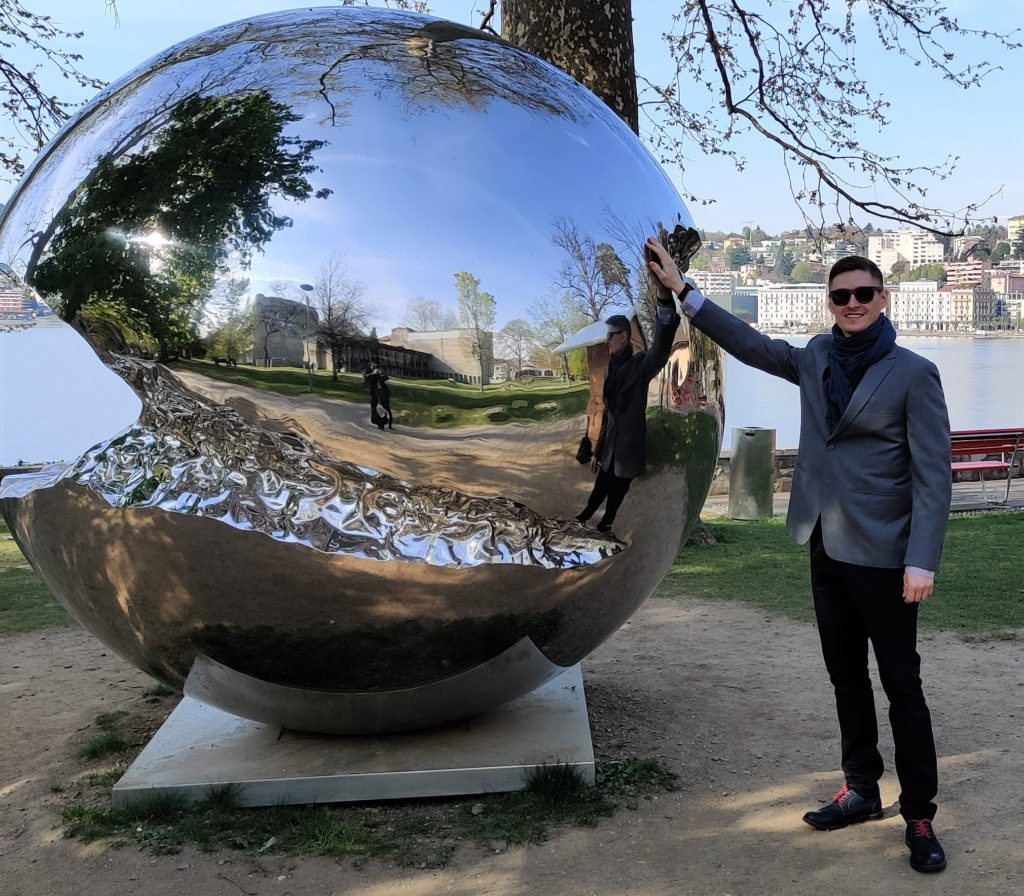
First results from the FlexFunction2Sustain Open Call
In September 2021, the FlexFunction2Sustain launched an Open Call for Pilot Case projects. The first round of evaluations resulted in four companies which were successfully selected. The winners will receive subsidized access to the innovation services of the FlexFunction2Sustain Open Innovation Test Bed (OITB) which supports and accelerates the development of novel products and technologies for smart and sustainable plastics and paper solutions. The selected projects will tackle the plastic pollution challenges by developing sustainable and flexible packaging and plastic films for agriculture. The successful applicants are companies from different European countries – France, Germany, Italy, Switzerland.
The FlexFunction2Sustain Open Call is targeted to Small and Medium-sized Enterprises (SMEs) & start-ups which wants to develop and test novel nano-functionalised plastic and paper membrane and surfaces. The next cut-off dates for application are: 29th of July 2022, and 27th of January 2023. Applicants can apply anytime during this period.
In the process, AMIRES is in charge of the preparation and execution of the Open Call and the establishment of a Helpdesk to provide a contact point for the potential applicants and address their enquiries about the application preparation and submission process.
For more information about the FlexFunction2Sustain OITB and the innovation services which will be provided to the Pilot Case projects, visit the project website.
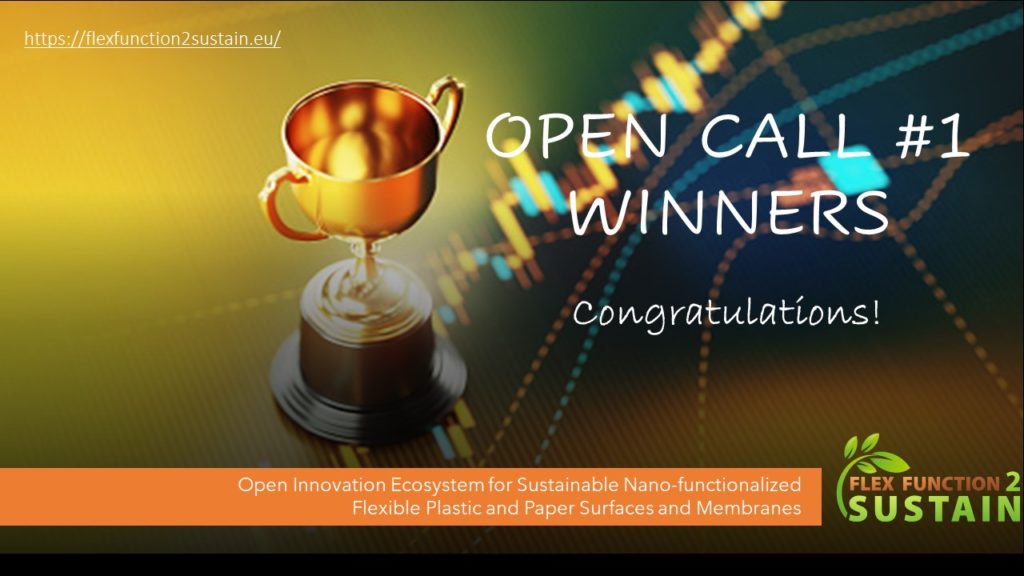
Project MARVEL: M18 review meeting and symposium
AMIRES together with the consortium of Marvel project met in Lugano, Switzerland where the review meeting took place on the 12th April. Moreover, the team was preparing for the MARVEL project symposium which took place on the 13th April. The EVengers team summed up the last 16 months of the project and it is worth saying that the achieved results are perfectly aligned with the planned objectives. Nevertheless, the project still have 12 months to polish the developments and deliver a multifaceted and versatile platform for scalable Extracellular Vesicles (EVs) isolation based on the developed peptide probes with high specificity and stability.
We are looking forward to the clinical application of Marvel platform in form of a novel kit for diagnostic of bladder cancer and integration of EVs in drug delivery for cardiac repair.
Track Marvel project progress HERE.
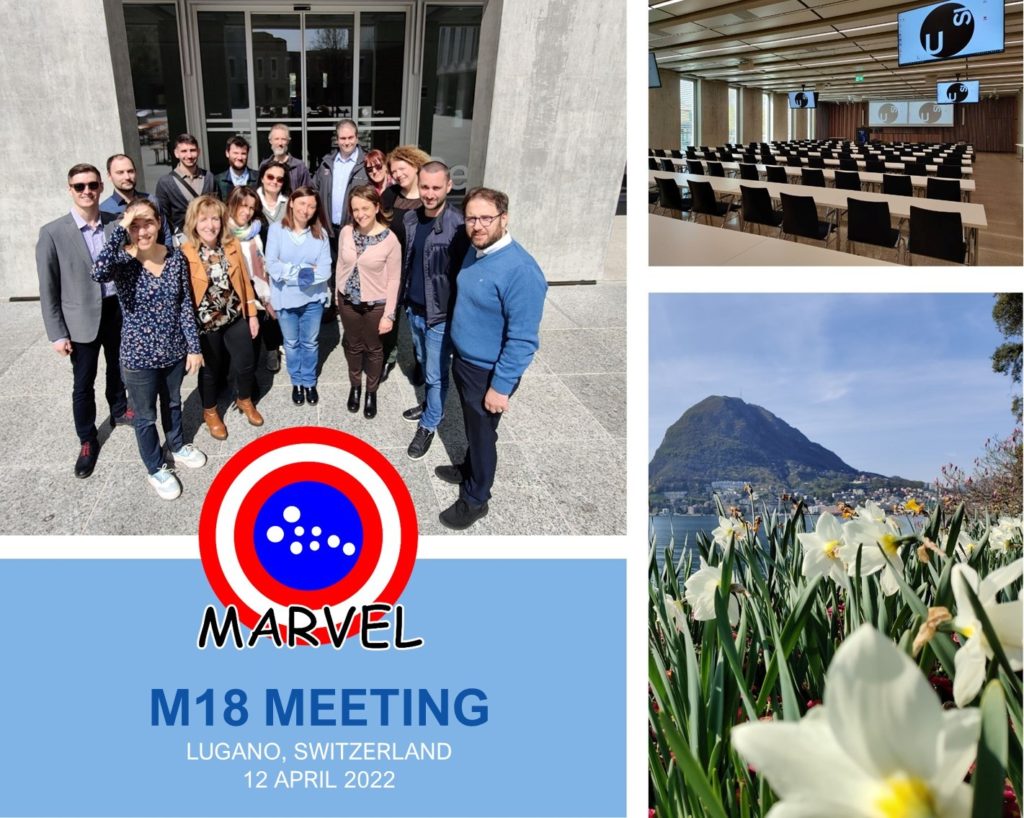
European Innovation Council publishes a report on realising the deep-tech entrepreneurial talent of Europe
On the 14th April the EIC published a report on realising the deep-tech entrepreneurial talent of Europe. In this report, the expert group recommends that the European Innovation Council (EIC) creates two ambitious deep-tech training programmes – the Trailblazer and the Pioneer – to foster technological solutions and realise human entrepreneurial talent.
The “raison d’être” of the EIC is to realise and accelerate breakthrough innovation for rapid market growth as well as to promote the European Union’s strategic autonomy. The European innovation ecosystem being fragmented, providers of solutions or proto-solutions are sparse and unwilling/ unable to take the necessary risk. The expert group recommends that the EIC takes the responsibility to grow the human talent, the scientific entrepreneurs who can bring the development of breakthrough technologies to the market. To attain these goals, they present how this could be done.
Read the full report HERE.
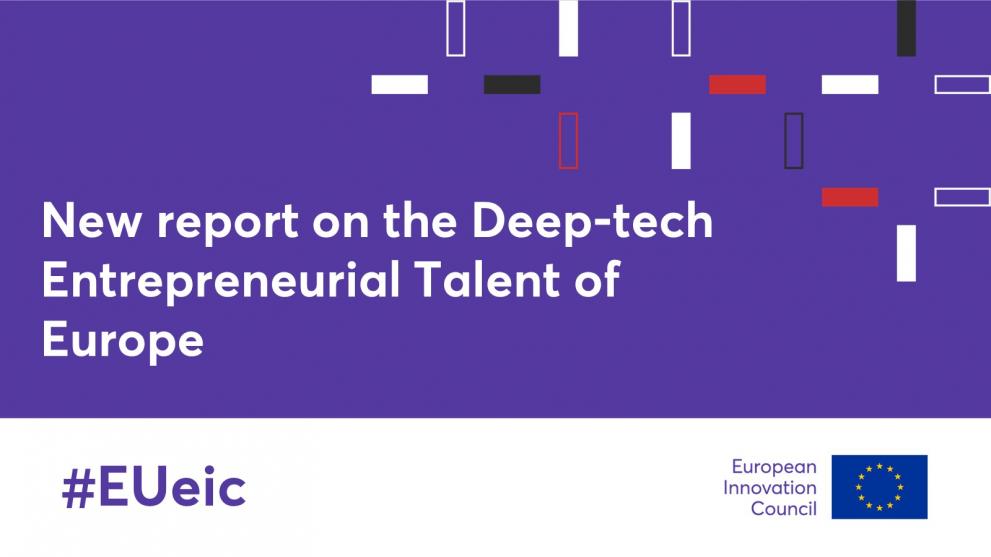
ComBioTES completed its first year
On the occasion of the first year of ComBioTES implementation, the project team met on 7th and 8th April 2022, in Grenoble (France), hosted by CEA.
At the beginning of the meeting, the coordinator of ComBioTES presented the project’s progress and summarized the first year of work. On the agenda, an overview of the achievements during the last 12 months in the running Work Packages was presented. In addition to that, in the Second General Assembly, the consortium had also the opportunity to discuss some management activities within the project.
The second day, instead, was dedicated to technical discussions and to answer some crucial questions that were still open. One of the partners from China, IEE-CAS, had the chance to present the progress of their work on Bio PCM and ice storage.
The meetings proved very fruitful on all fronts, and project partners reached a vision of the tasks at hand over the next months.
Visit ComBioTES website to know more about the project.
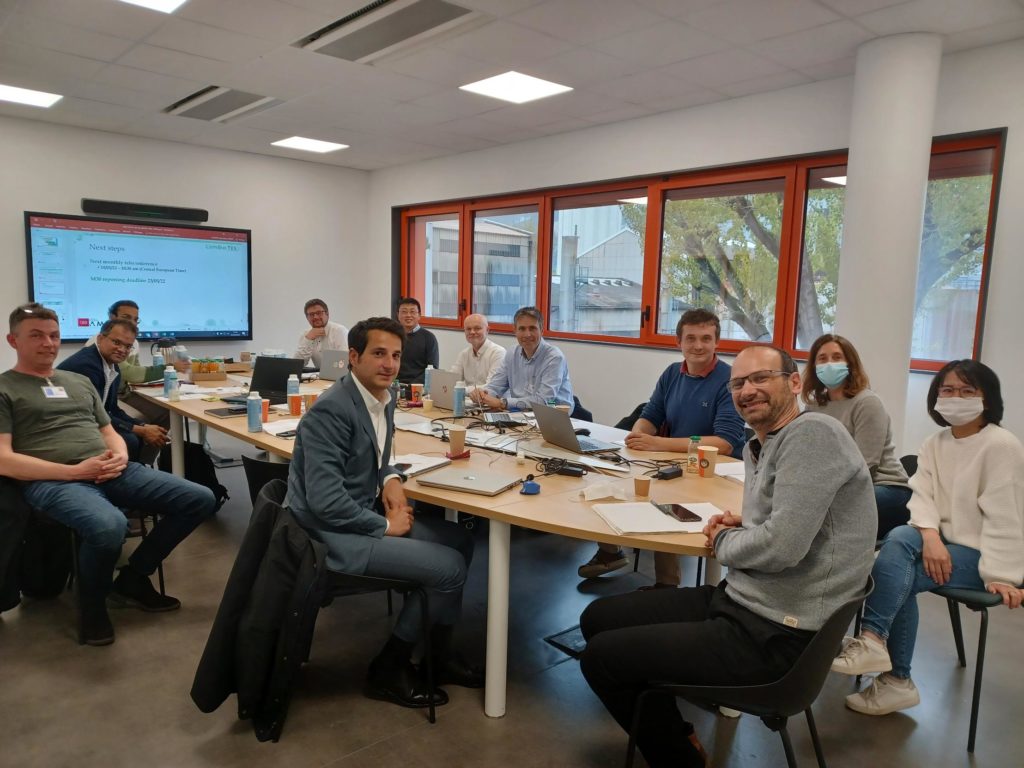
Watch the full recorded session of the VANGUARD online workshop
If you missed the chance to join us, you can watch the full recorded session HERE.
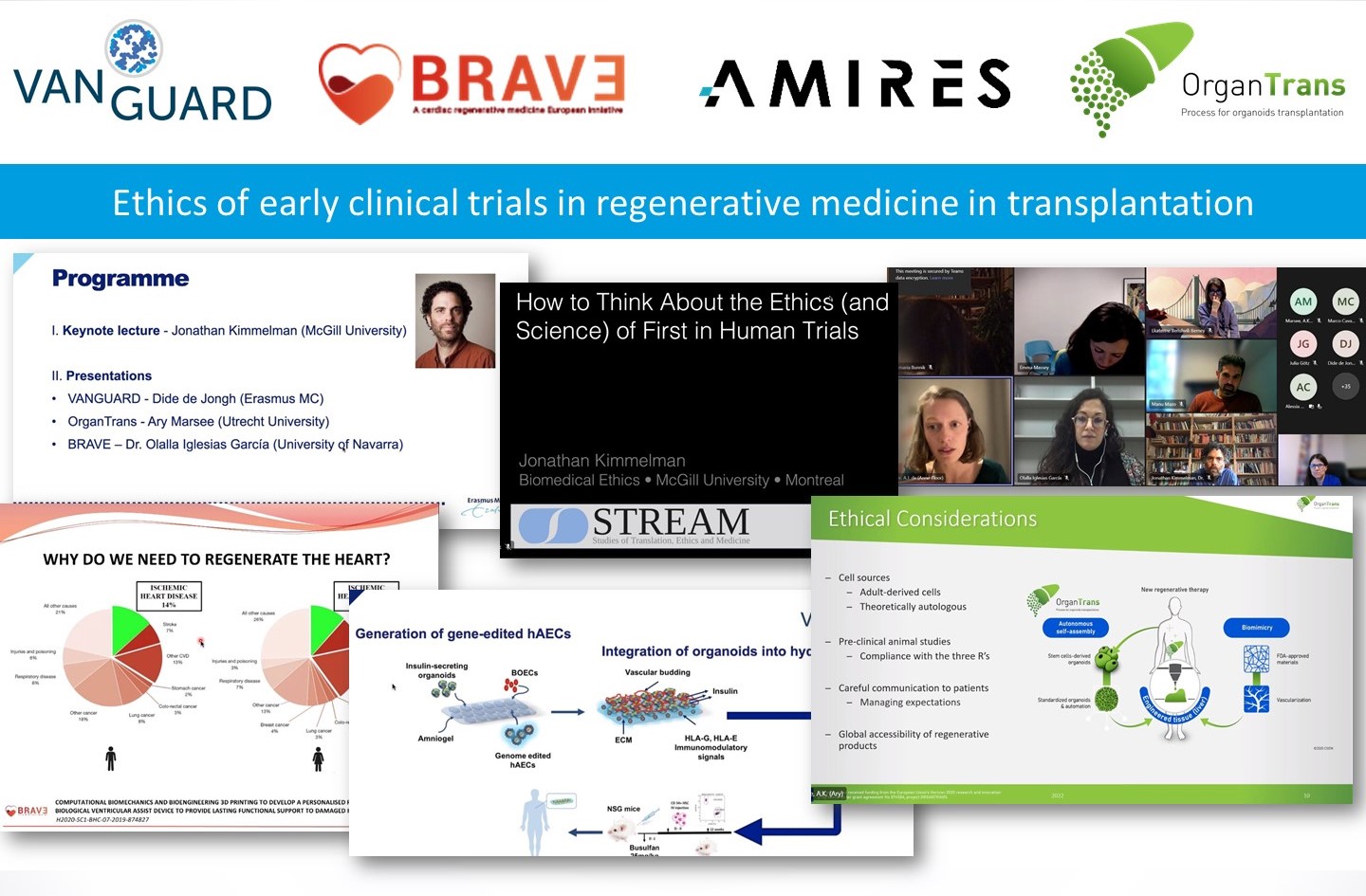 |
Project FRIENDSHIP: Publication on Nanofluids
FRIENDSHIP project is pleased to announce that our newest paper about nanofluids is now published online in the journal of Applied Thermal Engineering.
The paper, written by SINTEF Energy Research and CEA, is based on the research work on the use of nanofluids as heat-transfer fluids in solar collectors.
The article, A review of the use of nanofluids as heat-transfer fluids in parabolic-trough collectors, reviews the application of nanofluids to solar collectors, and parabolic-trough collectors in particular, at temperatures between 100 °C and 300 °C. Recent advances and research on nanofluids are presented, particularly the progress in understanding stability mechanisms, characterization, and preparation methods, as well as their thermophysical properties.
Congratulations to the authors!
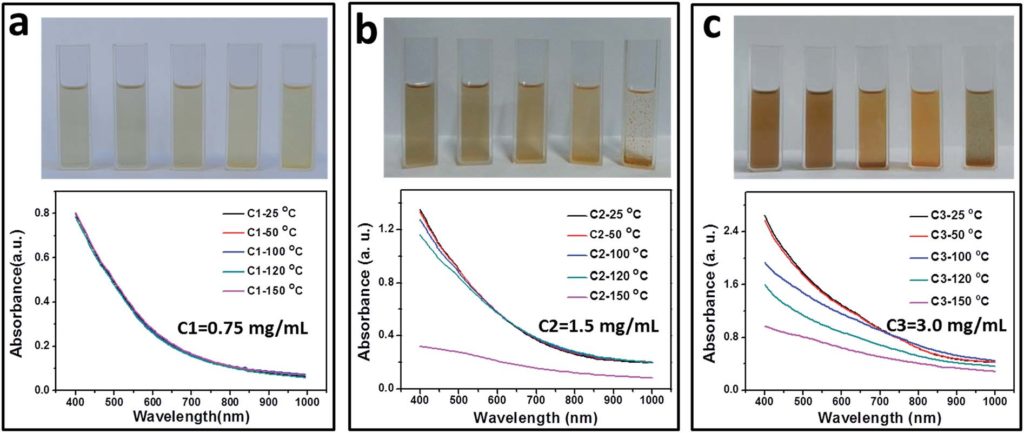
TAKEAWAYS: AMIRES AT LOPEC
In-person dialog and exchange are crucial and for flexible, organic and printed electronics, the LOPEC exhibition and conference is the place to be. LOPEC was able to celebrate a successful return as an on-site event after a two-year break!
A total of 156 exhibitors from 23 countries showed innovations and trends in printed electronics. The focus topics included mobility and smart living.
The Conference was also a great success with around 200 presentations. This makes LOPEC once again the world’s leading communication platform for technology, solutions, knowledge, and research in the printed electronics industry.
AMIRES was lucky to attend the whole week of events – starting by the OE-A meeting on Monday 21st March and continuing with the conference and exhibition from the 22nd till the 24th March – to meet project partners, long-term clients and to establish new connections. Several AMIRES projects were presented in booths, posters and by project partners and it was definitely a unique opportunity to strengthen our collaborations.
OE-A meeting
The OE-A, as the LOPEC organiser, initiated the week by organising a Members’ Meeting, which consisted of presentations and workshops within this year’s theme Mobility & Smart Living. Topics that were discussed were for example on marketing and recyclability of organic and printed electronics. After 3 years, new and existing members of the association could finally meet in person and benefit of this networking opportunity.
Project SmartEEs
The SmartEEs project aims to establish a sustainable EU-wide network in the field of Flexible & Wearable Electronics. The objective of SmartEEs is to help European industries accelerate their digital transition, offering them easy access to Flexible & Wearable Electronics technologies, products, and services throughout Europe.
The SmartEEs project promoted its results and demonstrated on various booths and organised a dedicated workshop focusing in detail on application experiments, training activities, and the presentation of the SmartEEs Marketplace.
LOPEC was also the perfect opportunity to introduce the European Flexible and Wearable Electronics Association (FWEA), which will serve as the continuation of the project, offering RDI & business development opportunities as well as access to finance, education & training, and guidance on electronics for a sustainable economy.
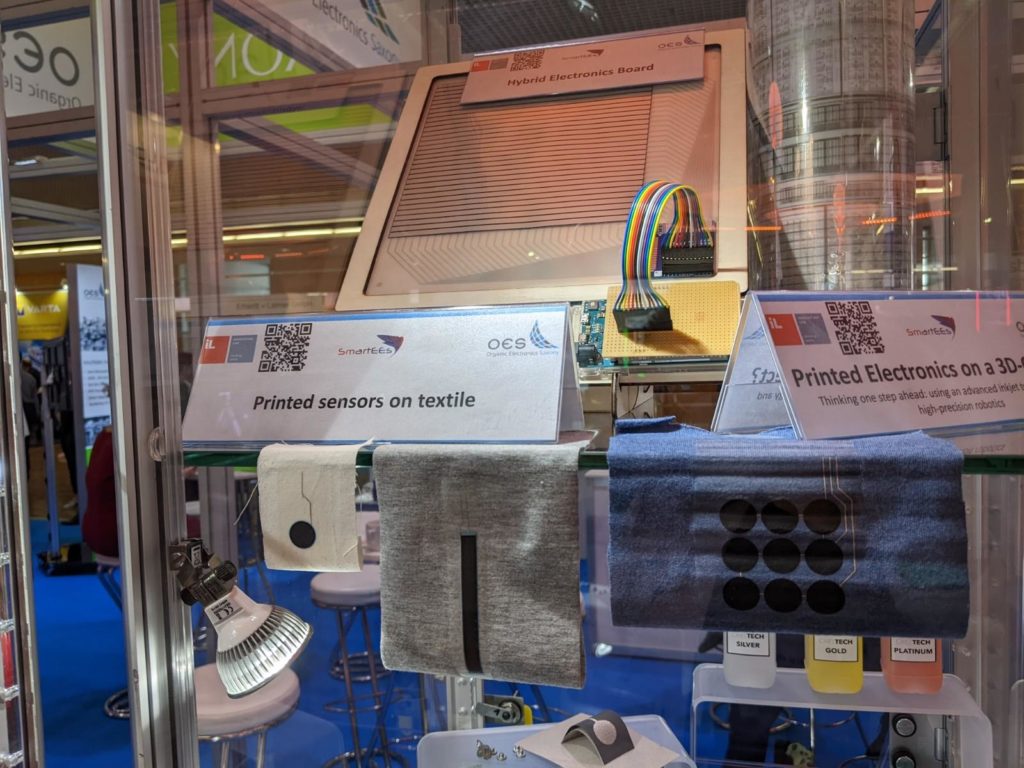
Project Smart2Go
The EU funded Smart2Go project was present at the LOPEC exhibition with the ATOMIC ski demonstrator with an integrated a piezoelectric component. The project coordinator, Matthias Fahland (Fraunhofer FEP) also participated as speaker at the LOPEC Conference, showcasing the project’s results.
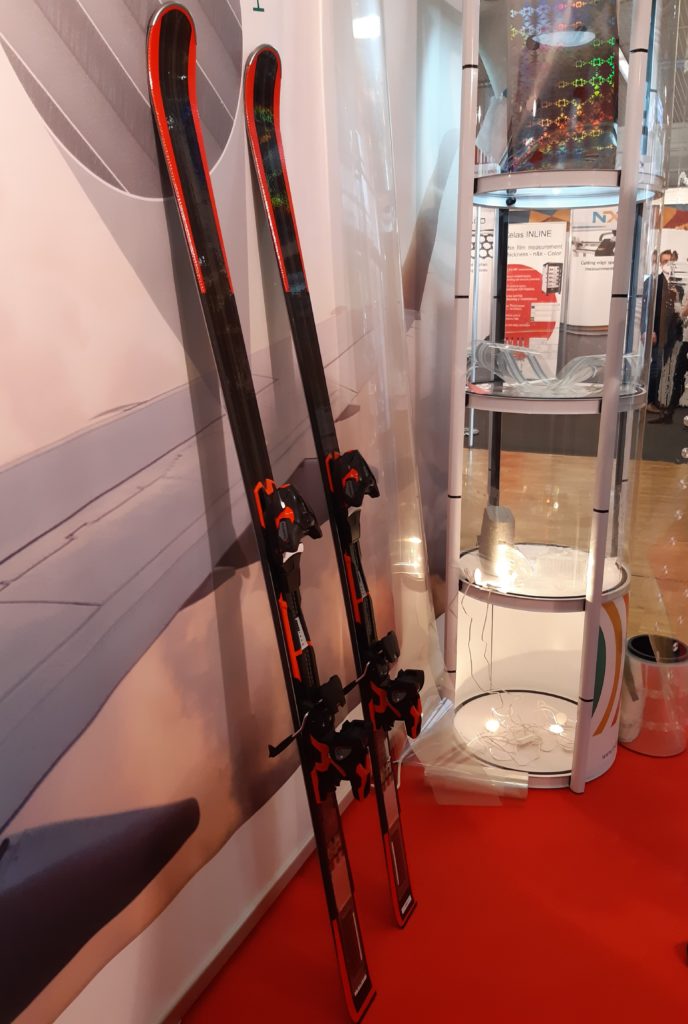
Project TINKER
The TINKER project, which targets developing miniaturised RADAR and LiDAR sensors using novel manufacturing techniques, was also lucky enough to be presented to exhibitors from all over the world, research and technology organizations and everyone involved within this rapidly evolving industry. Given this year’s theme of Mobility, the focus on sensor packages for autonomous cars was particularly fitting. The project coordinator Dr. Leo Schranzhofer from PROFACTOR GmbH presented at the Technical poster session on 23rd March, while the partner Notion Systems GmbH exhibited their products and technologies, along with their work in TINKER.
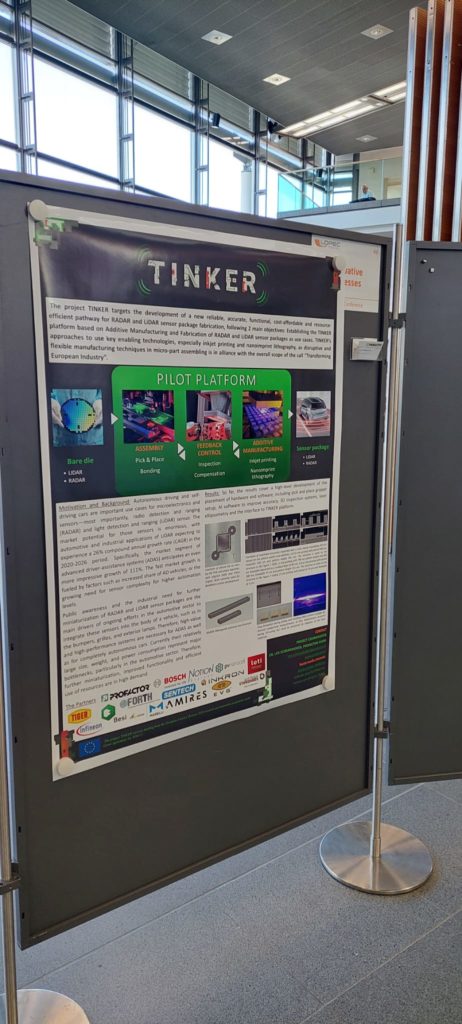
Project NanoQI
NanoQI project on the other hand, focuses on characterisation technologies, and several project partners also participated in this event, ensuring that their work, technologies and innovations, as well as the project itself could be presented to leading players in the field.
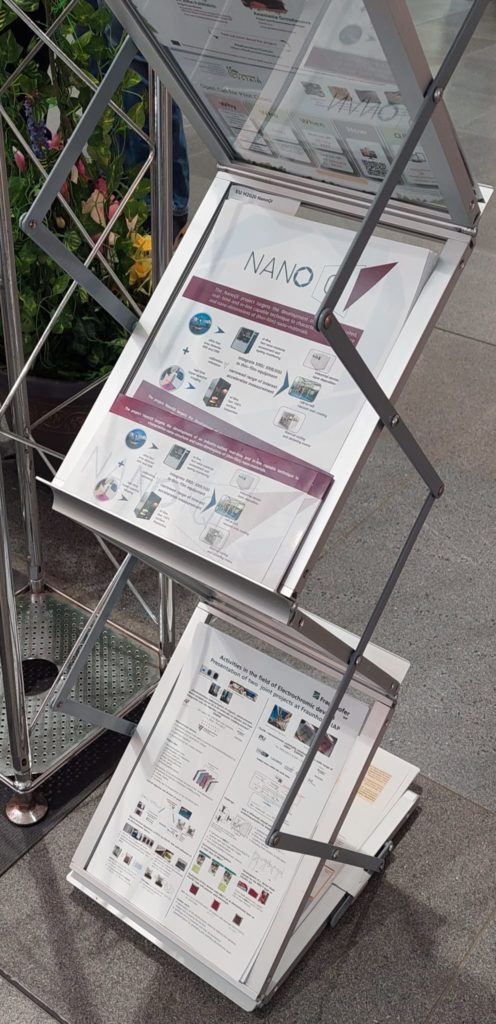
Announcing the Launch of the SmartEEs Association – we are ready for business!
The SmartEEs Association officially launches, opening its doors to companies, including Small and Medium Enterprises (SMEs), and research institutions to support the production and adoption of Flexible and Wearable Electronics (FWE) technology.
For a first glance at our technology offer, please visit the SmartEEs Association website, where you can also contact our front office . You can also have a look at the extensive SmartEEs2 marketplace, which is fully integrated into the Association’s offerings. Further, to stay up-to-date on all our activities and news from the FWE ecosystem, be sure to follow the new Association on LinkedIn @smartees-fwea and Twitter @SmarteesF.
Read the Press Release HERE!
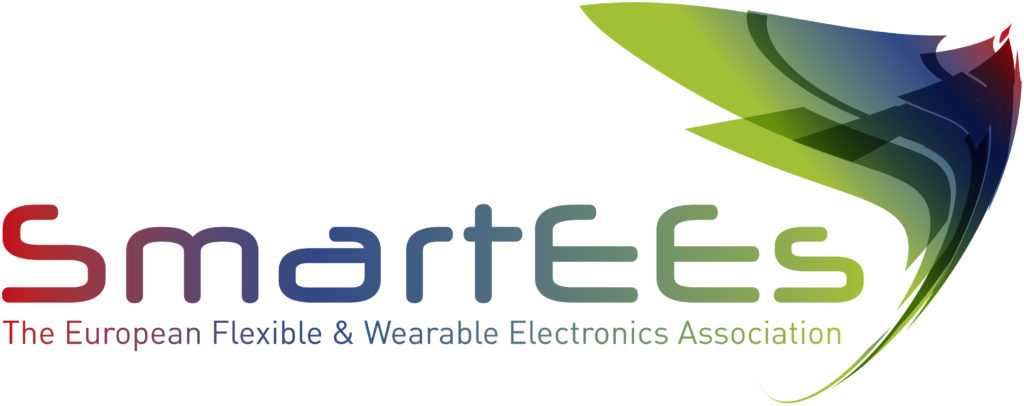
EU opens applications for the EU Prize for Women Innovators 2022
On the 8th of May, just in time for the International Women’s Day, the European Commission launched the call for application for the EU Prize for Women Innovators 2022. With this prize, the EU intends to celebrate women entrepreneurs behind game-changing innovations, raise awareness of the need for more women innovators and create role models for women and girls everywhere.
Women who are ordinary residents in an EU Member State or a country associated to Horizon Europe are eligible, if they are the founder or co-founder of an active innovative company registered at least two years ago. The Commission wishes to award women who have created the largest impact on the EU innovation ecosystem by transforming ideas into new and advanced products and services to benefit people and planet, and has therefore chosen 3 key criteria:
- Breakthrough innovation –applicants should demonstrate what makes their product or service unique, in relation to other existing solution
- Impact – applicants should describe how their innovation offers significant benefits for people and/or planet, and how the product or service addresses a specific societal need or challenge
- Inspiration –applicants should explain how they personally played a pivotal role in the success of their company, and have the power to lead and inspire other women and girls
Overall, 6 prizes in 2 categories will be awarded:
- Women Innovators: 3 prizes of 100 000€ each
- Rising Innovators (women under 35): 3 prizes of 50 000€ each
Deadline for submission is the 18 August 2022, results will be announced in November / December. Up to 20 highest-ranked applications in each category will be invited to a hearing with the jury.
For more information on the criteria and application click HERE.
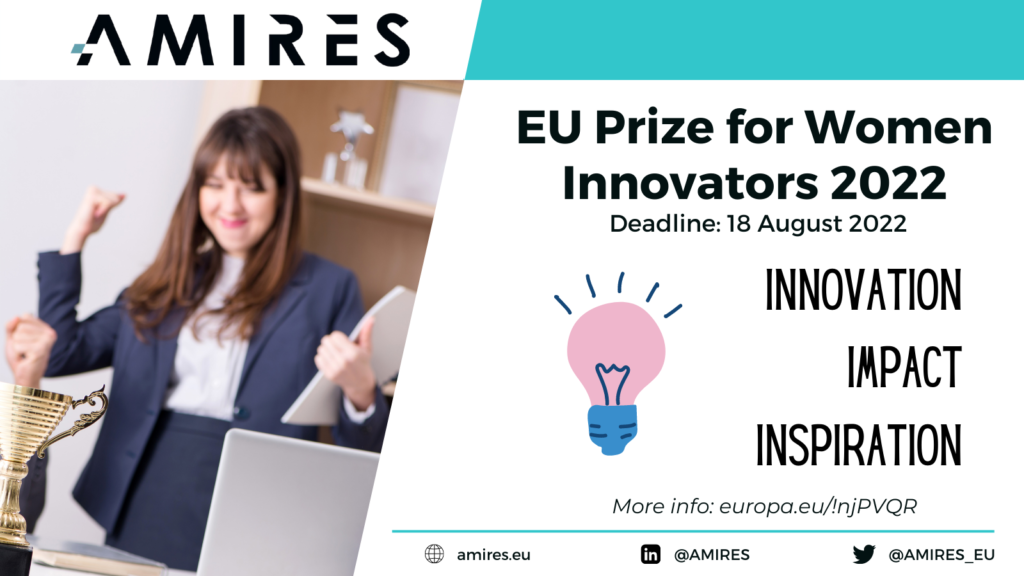
WE ARE HIRING, TWO POSITIONS OF PROJECT MANAGER OF EUROPEAN R&D&I PROJECTS ARE OPEN!
Are you passionate about Energy & Sustainability and Deep Tech topics? Is admin work not bothering you? Are you a team player? Do you wish to be part of international team? Do you want to learn and gain new experiences? If you answered YES, then we might be looking for you!
Job overview
To reinforce our team, AMIRES (Czech Republic) is opening positions for Project Managers of European R&D&I projects in Energy & Sustainability and Deep Tech domain. The chosen candidates will be responsible for the overall administration and management support of H2020 / HE projects and will also actively contribute to the preparation of other project proposals.
Main activities and responsibilities
In project administration and management:
- overall responsibility for the complete management of the project in close cooperation with the technical project coordinator;
- daily communication with international project partners;
- project progress monitoring;
- preparation and processing of technical and financial reports;
- maintenance and update of project web page;
- organisation of teleconferences / project meetings / workshops / conferences;
- community management.
In project proposals preparation:
- monitoring of suitable European R&D&I funding schemes;
- proposals structuring, commenting;
- collection of information from partners, processing of written inputs and background documents;
- business analytical activities;
- responsibility for the complete preparation and writing of respective parts of the proposals.
Experience and skills
- Master or doctoral degree (technical field is an advantage);
- experience with project administration, management or projects proposal writing (EU projects or H2020 projects are an advantage);
- fluent in English (both verbally and in written), French or German is an advantage;
- very good computer literacy and skills, professional user of MS Office (Word, Excel, PowerPoint, Outlook);
- strong communication (both oral and written in formal and informal situations), presentation and organisational skills;
- target oriented;
- responsibility, flexibility, ability to work both in team and independently;
- ability to work in multinational environment;
- willingness to travel;
- driving licence;
- knowledge of European R&D&I landscape is an advantage (H2020, HE, Structural Funds etc.).
We offer
- opportunity of self-realization in a small growing company with international focus;
- cooperation on excellent European collaborative R&D&I projects;
- further education and professional development;
- job location in Prague, the Czech Republic;
- expected to start work in spring 2022.
To apply for this position, please send your CV and motivation letter (both in English) to bajarova@amires.eu till March 30th 2022. Only candidates that will proceed to the next round of the job competition will be contacted by March 31st 2022.
More than 5000 people attended SLAS2022!
|
|
WE ARE HIRING, JOIN OUR TEAM:
Are you passionate about Energy & Sustainability topics? Is admin work not bothering you? Are you a team player? Do you wish to be part of international team? Do you want to learn and gain new experiences? If you answered YES, then we might be looking for you!
We are opening position of Project Manager of European R&D&I projects in Energy & sustainability domain:
Job overview
The chosen candidate will be responsible for the overall administration and management support of H2020 / HE projects and will also actively contribute to the preparation of other project proposals.
Main activities and responsibilities
In project administration and management:
- overall responsibility for the complete management of the project in close cooperation with the technical project coordinator;
- daily communication with international project partners;
- project progress monitoring;
- preparation and processing of technical and financial reports;
- maintenance and update of project web page;
- organisation of teleconferences / project meetings / workshops / conferences;
- community management.
In project proposals preparation:
- monitoring of suitable European R&D&I funding schemes;
- proposals structuring, commenting;
- collection of information from partners, processing of written inputs and background documents;
- business analytical activities;
- responsibility for the complete preparation and writing of respective parts of the proposals.
Experience and skills
- Master or doctoral degree (technical field is an advantage);
- experience with project administration, management or projects proposal writing (EU projects or H2020 projects are an advantage);
- fluent in English (both verbally and in written), French or German is an advantage;
- very good computer literacy and skills, professional user of MS Office (Word, Excel, PowerPoint, Outlook);
- strong communication (both oral and written in formal and informal situations), presentation and organisational skills;
- target oriented;
- responsibility, flexibility, ability to work both in team and independently;
- ability to work in multinational environment;
- willingness to travel;
- driving licence;
- knowledge of European R&D&I landscape is an advantage (H2020, HE, Structural Funds etc.).
We offer
- opportunity of self-realization in a small growing company with international focus;
- cooperation on excellent European collaborative R&D&I projects;
- further education and professional development;
- job location in Prague, the Czech Republic;
- expected to start work in spring 2022.
To apply for this position, please send your CV and motivation letter (both in English) to bajarova@amires.eu till March 18th 2022. Only candidates that will proceed to the next round of the job competition will be contacted by March 21st 2022.
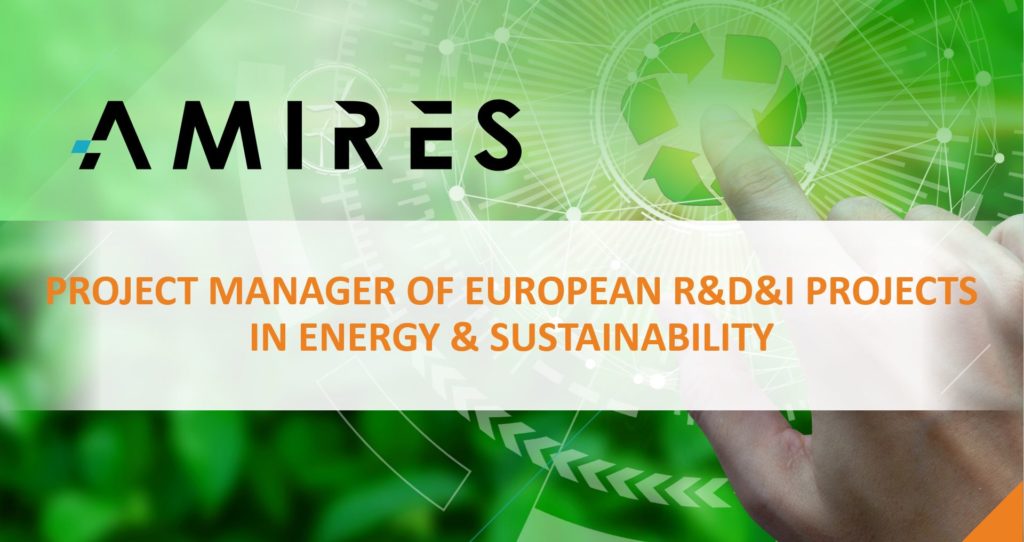
Project FRIENDSHIP: progress on the heat pump
In WP3, the initial concepts about the heat pump and its integration into SHIP200 are being investigated. Also, evaluations of different heat pump concepts, component, and system TRL level and cost have been performed.
Furthermore, Modelica was used for detailed investigation of both design and off-design operational performance and stability in order to assess operability and integrability of the heat pump.
This allowed for cost and technical estimations from rig vendors, who should modify their designs and products to adapt them for higher pressure ratings, using, among others, new sealing technologies.
An initial of test of the rig prior to modifications was conducted in early November, and the rig was connected to a steam process.
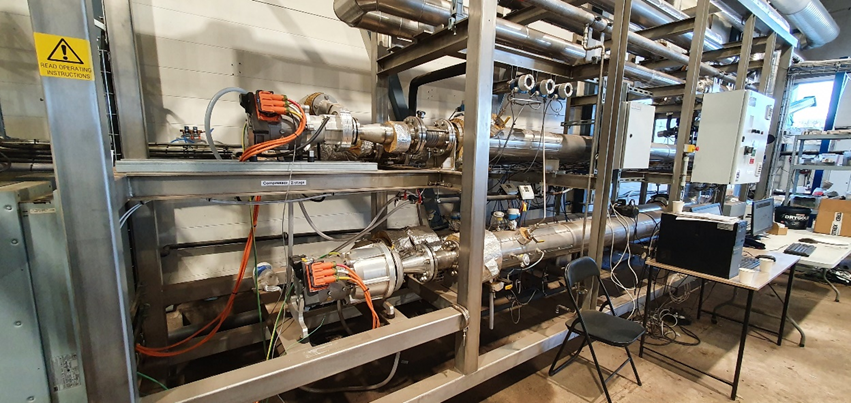
OASIS Marketplace launched
We are happy to announce that the OASIS Catalogue of Services has been turned into an online digital Marketplace using the Ecosystem Management Platform by AMIRES!
This online marketplace allows everyone to browse through the services of OASIS in an interactive manner using filters that make it easier to find the right service. The tool also allows for the customers to directly enquire about the services they are interested in. This Marketplace is a lively environment which will be kept updated with new/adapted services continuously.
This Marketplace tool is the one-stop-shop to find services related to the introduction of nanoparticles and nanointermediates in composite and aluminium materials via innovative production technologies. It also encompasses associated services like design, modelling, simulation, characterization, and also business support services to aid the market adoption of new solutions developed. The ultimate goal is introducing innovative products which are lightweight, smart and have improved mechanical, thermal or electrical properties.
The Marketplace can be found HERE.
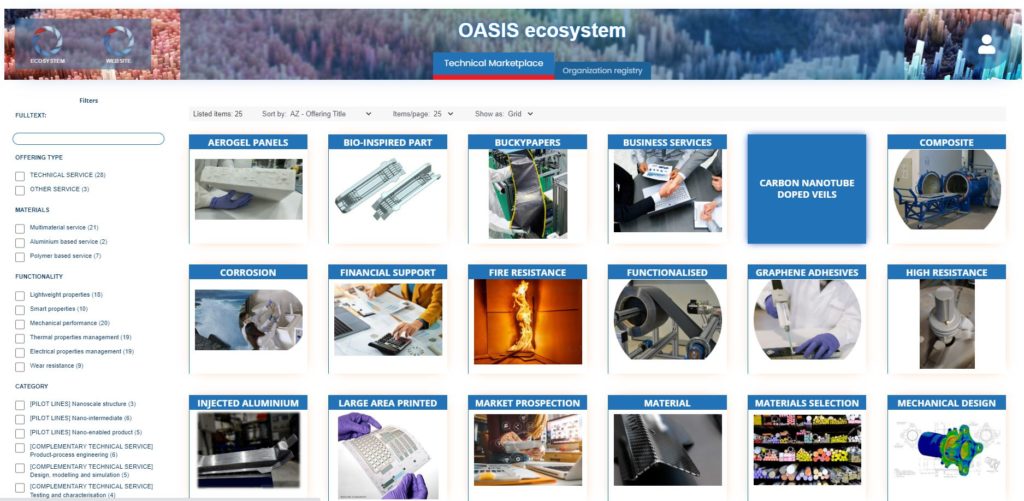
MedPhab pilotline supports companies to develop demonstrators through the open call for demo cases program
ABIMI (AMIRES, The Business Innovation Management Institute) leads the helpdesk for companies to participate in the open calls for demo cases on MedPhab pilot line. The first round of evaluations resulted in three companies which were successfully selected. 220K Euros from EU- MedPhab budget will be allocated for these demonstrator cases. These cases require technologies on biosensors, microfluidics and microscopy and spectroscopy for drug development and diagnostics applications. These companies are located in 3 different European countries! Agreements between the companies and MedPhab partners are ongoing, and the cases are expected to start during February.
If you are interested to receive high quality services in photonics technologies from MedPhab partners for development of your photonics-based medical devices demonstrators, participate in the open calls, contact our helpdesk@medphab.eu or visit MedPhab’s website.
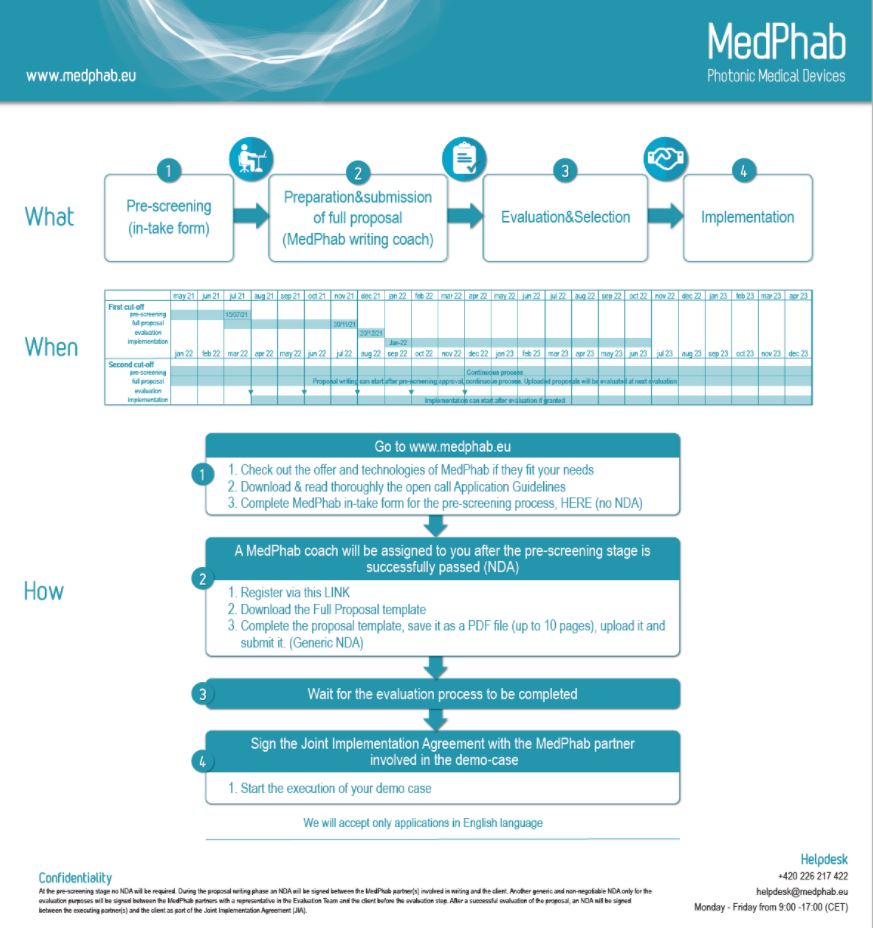
MEET OUR TEAM: KRISTIN SAAR
We are excited to welcome our new team member Kristin Saar who joined AMIRES as a Project Manager in February 2022. After graduating from a bachelor’s programme in Politics and Government at University of Tartu, Kristin obtained her master’s degree in European Affairs at Sciences Po Paris where she specialised in Social Policy. She developed a thorough understanding of EU policies while working at the EU Directorate of the Government Office of Estonia, Ministry of the Interior and Permanent Representation of Estonia to the EU.
Kristin has wide-ranging experience in the field of health and pharmaceuticals. Working at the Health Division of the Organisation for Economic Co-operation and Development (OECD), she co-authored a report on patient safety governance. Prior to joining AMIRES, she was advising global pharmaceutical companies in a public affairs consultancy in Brussels and a regulatory affairs consultancy in Prague.
In her free time Kristin enjoys biking, skiing, and going to the theatre.
In AMIRES, Kristin is involved in proposals and projects in Health & Biotech Programme.
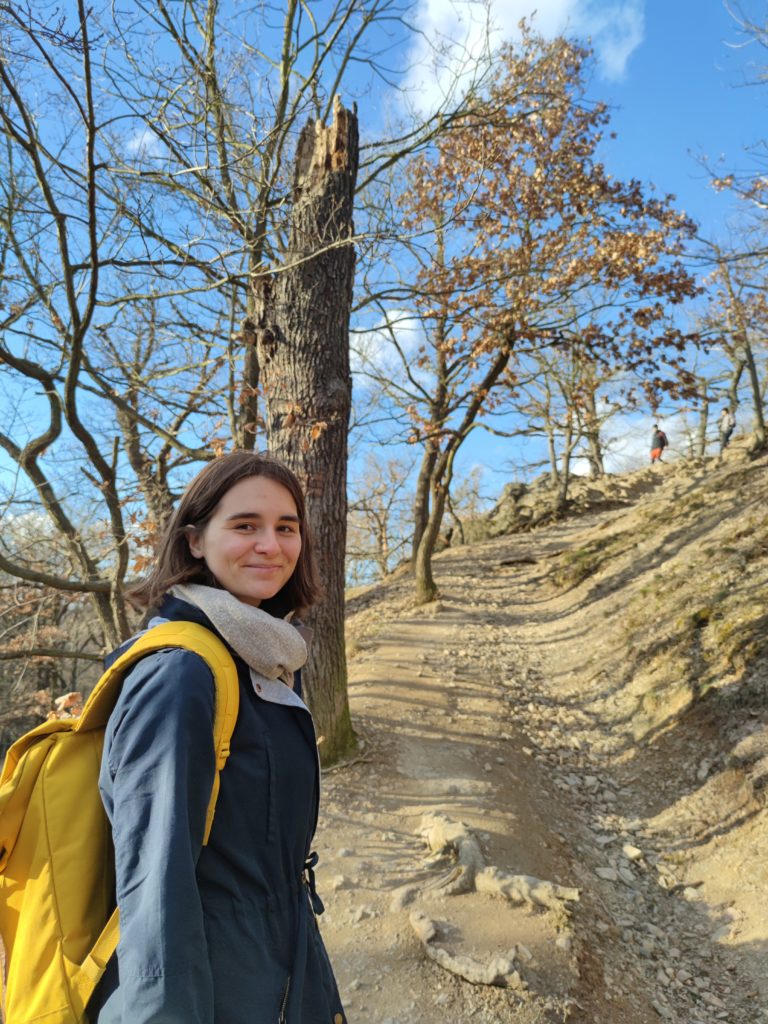
European Innovation Council (EIC): the biggest annual funding opportunities for innovators to scale up and capture global markets
The European Commission adopted the 2022 work programme of the European Innovation Council. It opens funding opportunities worth over €1.7 billion in 2022 for innovators to improve and create new markets.
It will also focus on innovation in:
- Quantum computing
- New generation batteries
- Gene therapy.
Launched in March 2021 as a major novelty of the Horizon Europe programme, the EIC has a total budget of over €10 billion between 2021 and 2027.
The 2022 work programme of the EIC has several new elements, simplifying the application process and contributing to EU policies such as:
- A new EIC Scale-Up 100 initiatives (with having already supported over 2600 SMEs and start-ups in the past since 2018, the aim is to identify 100 promising deep tech EU companies that have the potential to become “unicorns”)
- Equity investments above €15 million
- Stronger support to women innovators
To read full article, visit European Innovation Council newsroom.
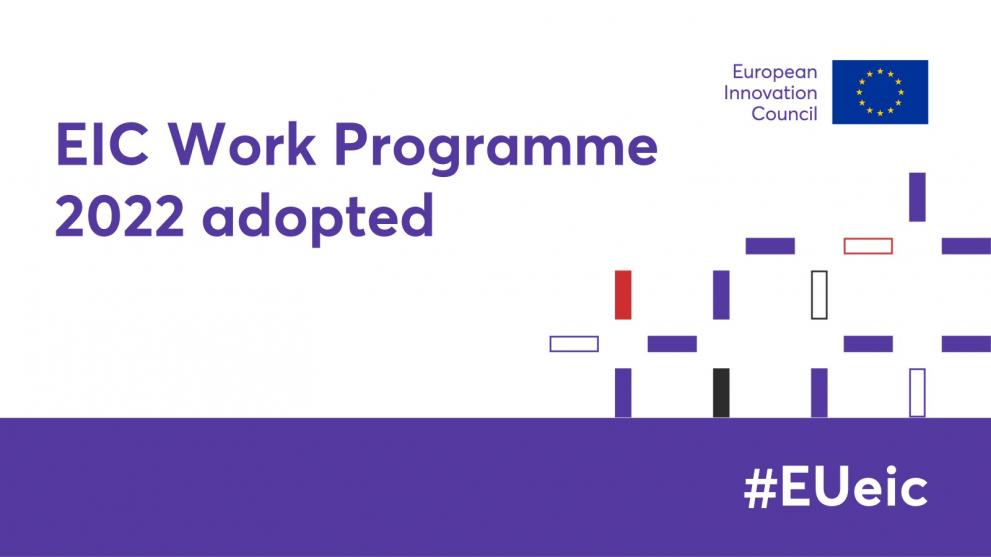
Project TINKER: Shrinking radar and lidar sensor packages
Chip Scale Review, one of the world’s leading semiconductor journals, has published our article dedicated to the progress in the TINKER project over the last eighteen months. You can find our article in the January/February issue which is available to download here:
READ CHIP SCALE REVIEW JAN/FERB 2022
The article “Shrinking RADAR and LiDAR sensor packages – an introduction to TINKER” was written in cooperation with the coordinator Dr. Leo Schranzhofer (Head of Functional Surfaces and Nanostructures, Profactor GmbH.) and consortium partners Dr. Martin Eibelhuber (Deputy Head of Business Development, EV Group, Austria) and Martina Chopart, MSc. (Project Manager, AMIRES s.r.o.). Thank you for this opportunity for collaboration.
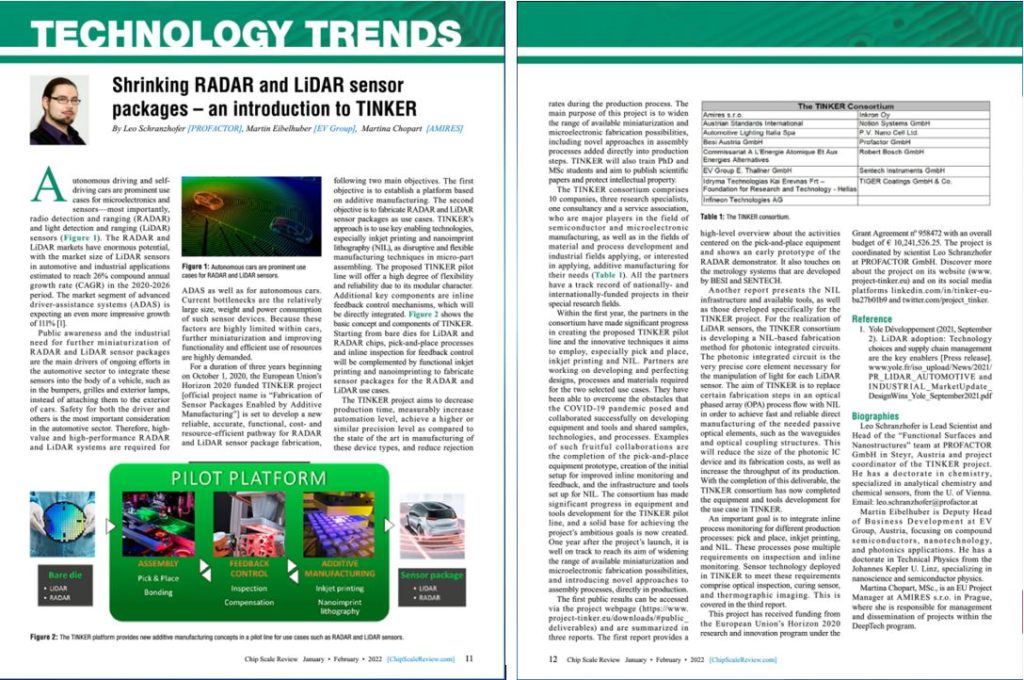
NanoQI M24 Meeting
Even though the turbulent times didn’t allow the NanoQI project partners to meet in person in Eindhoven as originally previewed, they still had the chance to reunite after six months on an online M24 Consortium Meeting on the 8th and 9th February 2022.
The goal of the meeting was to share their latest progress, get expert feedback from our External Advisory Board members and discuss all the operational and technical decision for the final phase of the project.
As the third year of the project approaches, we are wishing the whole consortium a great deal of success.
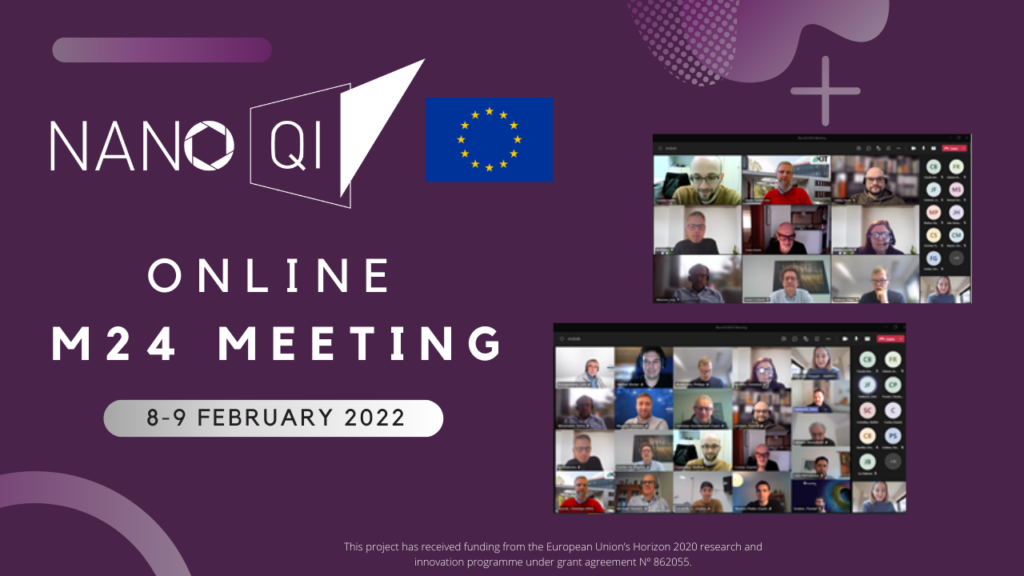
Smart2Go Design Contest – Apply until February 21
Visit https://smart2go-project.eu/smart2go-design-contest/ for more information.
Publication on absorber coatings
FRIENDSHIP project is glad to announce the publication of a scientific article on absorber coatings, written by our partner Kemijski inštitut – National Institute of Chemistry.
The paper is related to the research work on the development of the spectrally selective absorber coatings and refers to the challenges of selecting a low-cost and effective fabrication method, appropriate for industrial production, and of assessing the degradation rate and service life of these coatings.
The article, indeed, Review of the spectrally selective (CSP) absorber coatings, suitable for use in SHIP, reviews different types of mid- (100 < T < 400 °C) and high-temperature (>400 °C) absorber coatings and their fabrication methods, with an emphasis is on the solar absorptance, thermal emittance and the long-term (>10 years) thermal stability of the coatings.
Congratulations to the authors!
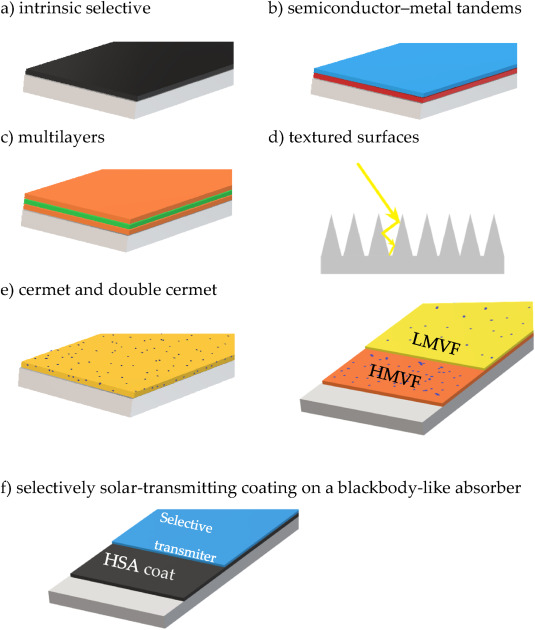
Digital Marketplace for EDIHs
AMIRES is offering a ready to use solution for the creation of digital marketplaces, which are essential for building and management of communities related to technologies, markets or regions. Customizable and user friendly tool is an ideal solution for all European Digital Innovation Hubs and similar projects. Apart from a digital marketplace, the tool allows the full ecosystem management, like sharing posts, tracking samples, simplifies CRM, analytics and more.
Take a look on already implemented marketplaces in:
Flexible and wearable electronics
Photonics-based medical devices
Training activities in Photonics
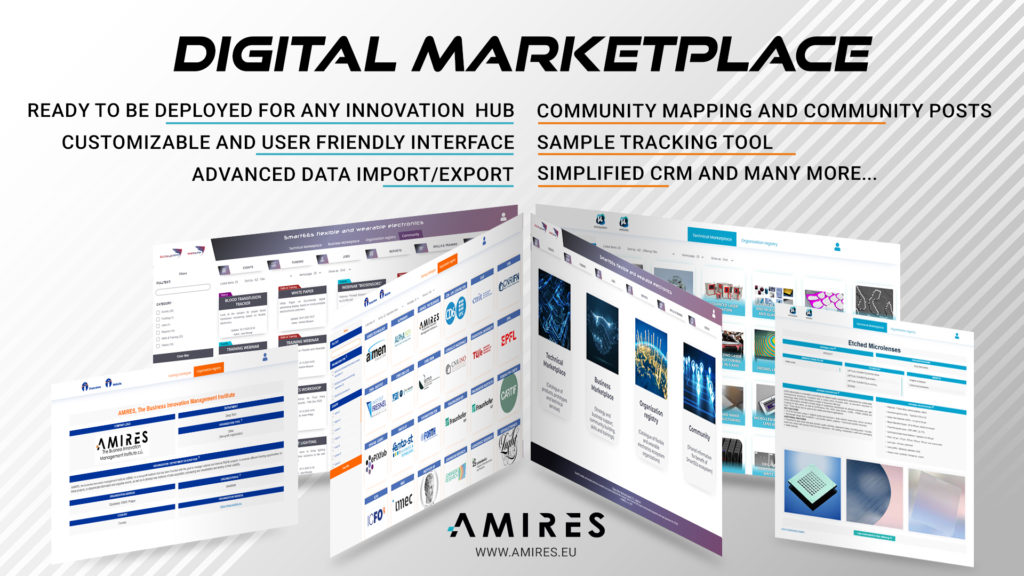
MEET OUR TEAM: JANA MWANGI
Our colleague Jana who joined us in December 2016 and who was on the parental leave returned to strengthen our forces.
Jana stayed work active even when she was on parental leave, in AMIRES we are proud that not only we care about Gender balance, we also support women with families, by giving them a chance to work as their parental responsibilities allow. We believe that it is important for women to stay active during maternity or parental leave as it is beneficial for connection with the team and work but also it helps the company to build a loyal team.
Back to Jana, she finished her International Master degree in Asia Pacific Affairs at the National Sun Yat-Sen University in Taiwan and has gained excellent insights into the world of economics and politics, and strengthened her analytical skills. Jana has accumulated good management skills from project management in one of the biggest company’s Research, Innovation and Development centre focused on ODE, OEM of small appliances in Asia. Her core duties were based in international trade and the expansion of businesses in Eastern and Central Europe. Specifically, she had identified and analysed data to determine company trends and new opportunities capable of bringing expansion.
About her job in AMIRES Jana says: “Over the last year, I witnessed enormous transformation of AMIRES in terms of management structure, new employees and new projects. Even though many things have changed I felt involved, and it eased my return after parental leave. Company’s progression, impact that we are doing in our projects and people around have kept me going in AMIRES for 5 beautiful years. I am always happy when I feel that project team trust me and rely on me in management aspect of the project”.
Currently, Jana acts as a project manager of POSEIDON (NanoPhOtonic devices applying SElf-assembled colloIDs for novel ON-chip light sources) projects, Community Manager in SmartEEs2 project and is also contributing to INSPIRE (InP on SiN Photonic Integrated circuits REalized through wafer-scale micro-transfer Printing).
We are happy to welcome Jana back!
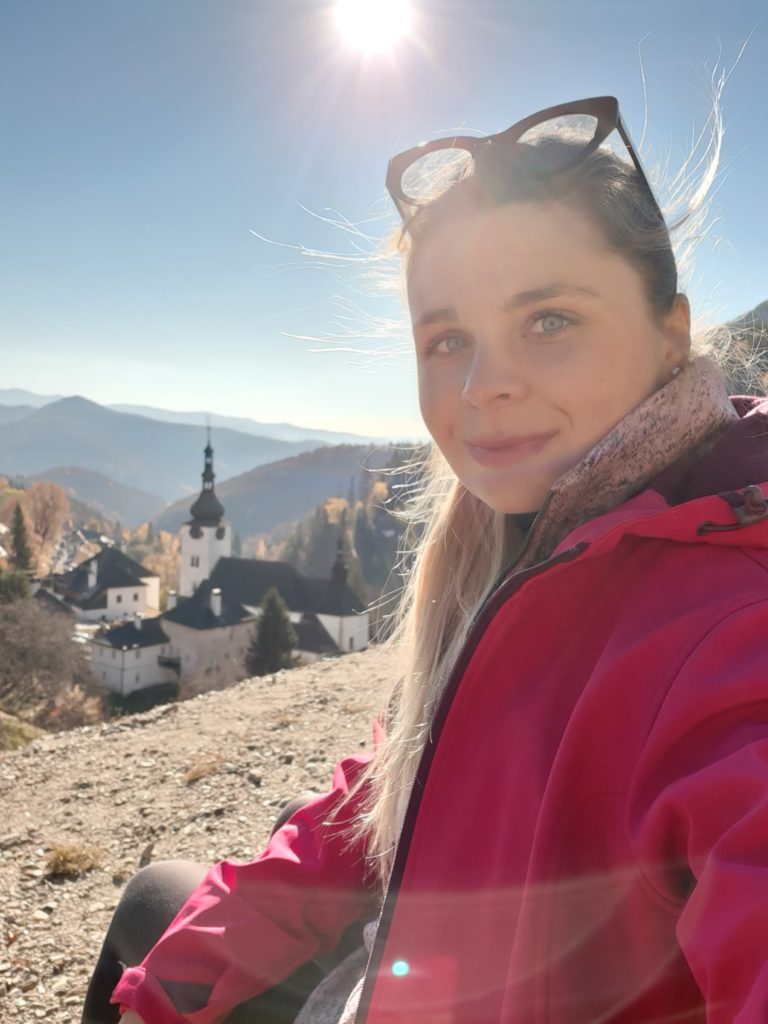
POSEIDON BRINGING LIGHT SOURCES ON CHIP
To read more the publication, prepared by University of Hull, Technische Universität Darmstadt, Friedrich-Alexander-University of Erlangen-Nürnbergcan, can be accessed here.
Switch2Save Architectural Design Competition will be launched 28/2/2022
Are you a student or a young professional in architecture / building physics or engineering? Do not miss your opportunity and take part in Switch2Save Architectural Design Competition to explore the possibilities offered by lightweight switchable smart glass solutions for energy efficient glass facades buildings.
Switch2Save project proposes advanced, low-weight solutions suitable for direct integration to windows and glass facades for the control of radiation energy transfer, without any impact on the building structure, while enhancing occupants’ comfort.
Switch2Save Architectural Design Competition aims to collect design concepts of non- residential buildings (new or renovation projects), featuring glass facades, roofs, or large window to wall areas, in any climatic context.
Switch2Save invites students and young professionals to present a design concept in which there is an optimum exploitation of the Switch2Save EC/TC smart functionalities, supported by a clear energy saving concept towards meeting the EU energy saving targets for buildings, while considering occupants’ comfort and wellbeing. In addition, the successful aesthetic integration of the IGUs will be evaluated, as well as the replication potential of the design approach.
Your’ll find more detailed information about the competition on Switch2Save website and in Switch2Save announcement.
Switch2Save competition will be launched 28/2/2022 during an on-line training event. To take part in the traning and competition launch, you can register here.
Calls for proposal: €60.5 million available to reform and enhance the European research and innovation system
A new call for proposals to fund projects that can reform and enhance the European research and innovation system is open until 20 April 2022. The applications will be evaluated by experts selected by the European Research Executive Agency (REA).
The call makes available €60.5 million to finance projects under 15 topics that will contribute to enhance:
- Support to policy makers
- Collaboration between national and R&I programmes and ecosystem actors
- Knowledge production, circulation and uptake of R&I results
- Responsible research and innovation
- Open access to research results
- Institutional transformations of higher education institutions
- Researchers’ careers
- Ethics and integrity in research and innovation
- Science education
- Science communication
- Gender equality in research
Links to individual topics can be found HERE.
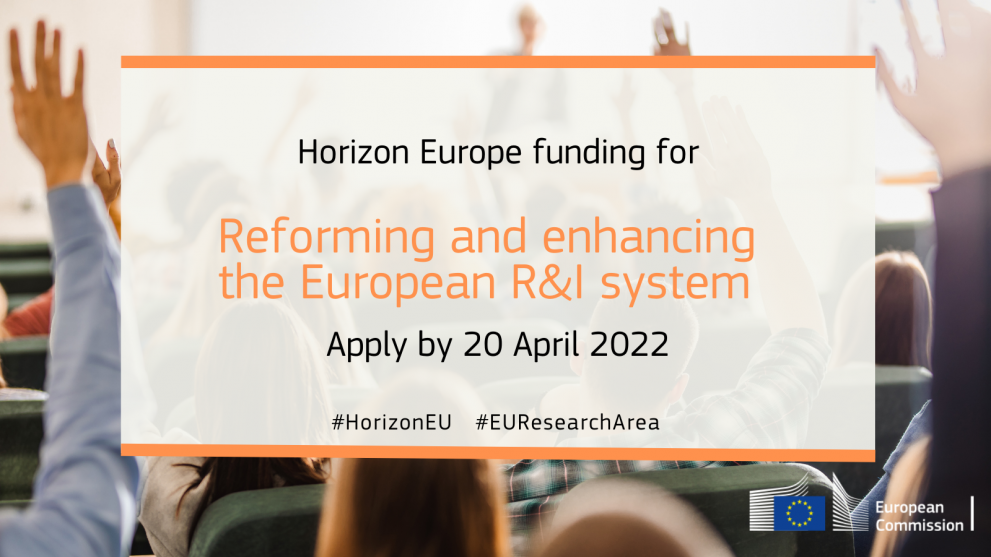
SPIE Photonics West showcased a portfolio of projects supported by AMIRES
SPIE Photonics West took place on 22-27 January 2022, bringing thousands of attendees to San Francisco to connect and share the latest research and products. Photonics West is the world´s largest annual optics and photonics conference and marketplace.
SPIE, the international society for optics and photonics, prepared a 3 major programme blocks:
BiOS, highlighting new research in biophotonics, biomedical optics, and applications of medical imaging; LASE, with its focus on the laser industry and applications; and OPTO, covering optoelectronics, photonic materials, and optical devices. A total of 4,000 technical presentations were included.
AMIRES has been involved in a number of leading European initiatives supporting the uptake of photonics technologies by industry. Visitors of Photonics West could learn about these projects on the dedicated booth and during Pilot Lines & Photonic Innovation Hubs Breakfast organised by European Photonics Industry Consortium (EPIC):
Mikko Karppinen, from VTT, presented MedPhab Pilot Line, the Europe’s First Pilot Line dedicated to Photonics-based Medical Diagnostics. MedPhab services are open to companies through their open call for demonstrator cases. Further information on MedPhab technologies and offering is available on MedPhab marketplace.
Jessica van Heck presented PHABULOuS Pilot Line, the European Pilot Line for Free-Form Micro-Optics, its one-stop shop for free-form micro-optics and the launch of the Open call for funding opportunities to implement free-form micro-optical components.
Stefano Aina spoke about JePPIX Pilot Line and how it enables fabless businesses to transition from first concept experimentation to industrial prototype and pre-production of Indium Phospide PICs with shared technology investments.
Anke Siegmeier presented PhotonHub Europe, the European Phototonics Innovation Hub providing companies, in particular SMEs and mid-caps, with open access and guidance to a broad range of services, such as “test-before-invest”, training and upskilling, business support and networking opportunities.
Furthermore, attendees had a chance to hear about INSPIRE project within Discussion on Integrated Photonics: A Key Enabler Driving Advances in Communications, Monolithic, and Hybrid Integration Solutions: Challenges and Opportunities. Project´s coordinator, Martijn Heck, participated as a panelist in the discussion and explained the concept of INSPIRE hybrid integration approach which combines the best of InP and SiN technology through micro-transfer printing, which is a great example of integration solution.
Take a look at the pictures of the event HERE.
Online meeting for the first 18 months of FRIENDSHIP
On 13th and 14th January, FRIENDSHIP consortium met together to discuss the project advancement in the first 18 months and to have the 1st Review Meeting. The meetings occurred online due to the Covid-19 restrictions in Europe.
On the first meeting day, the M18 meeting took place and the partners concentrated on the progress of the running Work Packages, their highlights, results, and challenges. In the end, the consortium members reached a clear vision of the directions to take and on the objectives to accomplish in the next 6 months.
During the second day, the Review meeting was held, and the discussion focused on past deviations, future risk assessment and mitigation plans. The Project Officer, Charles André Lemarie, also joined the meeting and provided valuable feedback on the behalf of the The European Climate, Infrastructure and Environment Executive Agency (CINEA).
FRIENDSHIP M18 and Review meetings were characterized by a collaborative and proactive behaviour of all the participants.
Exciting six months are ahead of us. Do not miss our next publications!

Artificial intelligence for pancreatic cancer: PANCAIM celebrates 1-year anniversary
Motivated by the idea of helping patients and improving their quality of life, as well as completing and consolidating the currently rather scattered research in the field, the PANCAIM project is centered around the consortium’s proposal to build a repository of available multi-modal patient data. Combining manual and automatic annotation and analysis of features from genomics, and medical imaging (radiology, pathology), this data will be used for machine learning and AI training. The developed algorithms will help clinicians to make a more accurate prognosis and offer better treatment recommendations and outcome predictions for patients with pancreatic cancer. This will increase thus survivability and quality of life of those affected.
At the project’s M12 meeting, which took place on Friday, 14th January 2022 online, the Consortium celebrated successfully completing the first 12 months of project implementation and reaching the 1-year milestone of PANCAIM. Partners presented their progress in their research and cooperation efforts and explained plans for the upcoming months. The project’s External Advisory Board (EAB) members shared valuable feedback and constructive feedback that will be taken into account during the remaining 3 years of the project. After a successful and insightful exchange on the sustainability of the project during the General Assembly meeting, PANCAIM partners are more inspired than ever to continue their work on the project in 2022 and reach the desired impacts.
To learn more about the project, please visit https://pancaim.eu/.
|
|
MEET OUR TEAM: Weronika Słomińska
We are happy to share that our team is growing!
Weronika joined our team in January 2022 as a Junior social Media Specialist for Innovation Projects.
Originally from Warsaw, Weronika graduated from the International Public Management bachelor programme at The Hague University of Applied Sciences in The Netherlands, where she acquired knowledge on public administration, EU affairs and policymaking. Throughout her practice-oriented studies, she had a chance to gain her academic experience in the Plekhanov Russian University of Economics, as well as professional experience in the Embassy of the Republic of Poland in Moscow.
In the last year of her studies, she entered the world of European projects and public funding, joining European Development Agency based in Prague, where she assisted in accessing financing and managing projects under Erasmus+ and Visegrad Fund. After graduation, she worked at EIT Urban Mobility Innovation Hub East, in which she was responsible for partner search, consortia coordination and writing applications for projects such as Horizon Europe, Interreg and Erasmus+ on behalf of the company.
In AMIRES Weronika is mainly contributiong to the preparation of Industrial Technologies 2022 conference.
We are happy to welcome Weronika to our AMIfamily and we wish her all the best!

Tumor-LN-oC publishes end-user survey
The Tumor-LN-oC Organ-on-Chip (OoC) platform to be developed is thus targeting the monitoring of complex processes such as tissue crosstalk and metastasis and will serve as a platform for parallel preclinical testing of drugs for individual patients aiming at Precision Medicine approaches.
In order to better understand the end-user requirements, the project team prepared a short questionnaire on end-users’ needs and requirements from an Organ-on-Chip (OoC) platform for metastasis diagnosis and drug testing. The survey includes questions related to the operation, the analysis time, the cost and other information that in the end will co-shape the platform that will be developed during the course of the project.
More information is available at https://tumor-ln-oc.eu/
If you or anyone you know would be interested in contributing, please fill out the questionnaire here and don’t hesitate to get in touch with the team. The Tumor-LN-oC consortium thanks you for your participation!
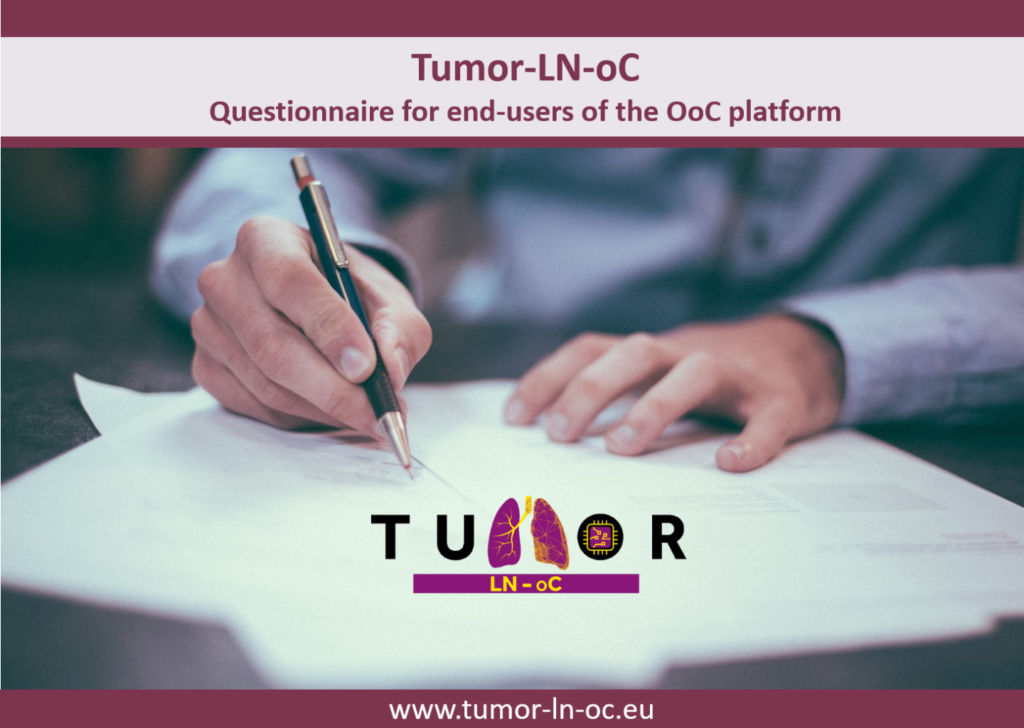
Smart2Go launches its Design Contest
Do you have an idea to implement electronics into a garment, accessories or other wearable item? You struggle with existing integration solutions? Smart2go project offers a flexible energy management platform which manages energy harvesting, energy storage as well as energy output and BLE based communication interface while allowing simple programming via the communication tools specified in the Handbook. Don’t miss this opportunity, you have time until February 21st to apply!
Design Contest
With the launch of this Design Contest, Smart2Go is supporting end-users towards the implementation of its unique flexible energy management platform. The components available in the platform are flexible batteries, super-capacitors, flexible solar cells and thermoelectric energy harvesting, piezo-electronic sensors and flexible OLED lighting. Finalists will have the opportunity to meet the experts and realize the finalist ideas together with them using cutting edge flexible technology components which only exists up to now on R&D level.
Judging criteria
The Smart2Go design competition jury will consist of technical and design professionals. The ideas will be judged by their evaluation criteria list:
- Design uniqueness: originality of the idea
- Market potential: design can be sold through channels familiar to the market segment
- User experience: how the design enhances user experience
- Feasibility estimation: technical feasibility and performance
- Sustainability: improve a green perspective on applications using the platform
For further details and instructions please read carefully the “Rules and Instructions” and the “Handbook” available on our WEBSITE. In case of any additional doubts feel free to contact mirabito@amires.eu.
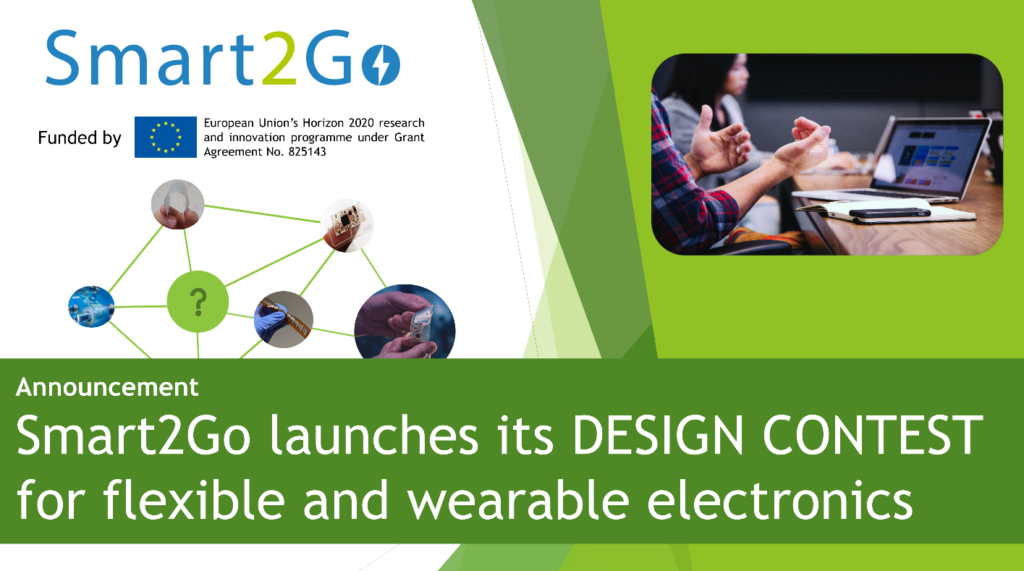
3D Bioprinting Platform to Engineer Organoid-Based Liver Constructs
A 3D bioprinting platform was developed in the ORGANTRANS project for the controlled assembly of live spheroids containing liver organoids into a bioconstruct. This instrument is one of the ORGANTRANS technology building blocks and it enables the mixing of hydrogel bioink precursors with live spheroids. The combination of biodegradable bioinks with a sacrificial biocompatible scaffold will promote medium perfusion and vascularization through the printed bioconstruct. To maintain the bioinks in a functional state the bioprinter comprises complex temperature controls together with integrated stirring that allows keeping live spheroids in suspension during printing. Functional validation of the technology with living spheroids is conducted in a cell biology laboratory to verify the viability of printed spheroids in the bioconstruct. Thanks to 3D bioprinting platform, the ORGANTRANS project aims at the creation of functional 3D liver tissues for the replacement of liver transplantation for end-stage liver failure patients.
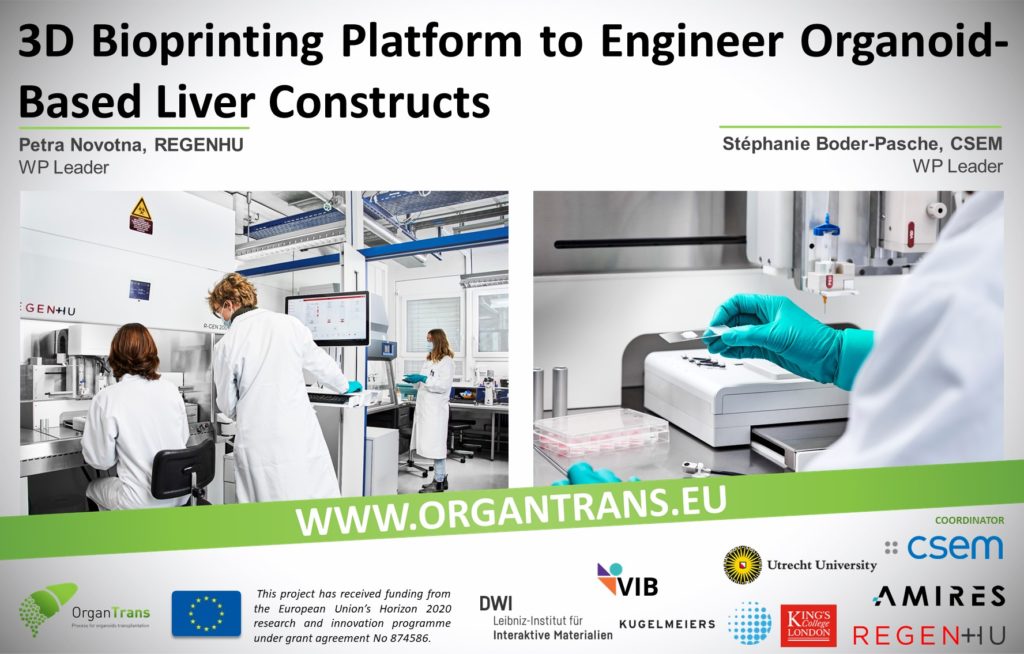
AMIRES member of European Quantum Industry Consortium (QuIC)
QuIC is a not-for-profit association established by several major business actors – large enterprises, SMEs, investors, and startups – from across Europe. The mission is to boost the European quantum-technology industry’s competitiveness and economic growth, and bolster value creation across the continent.
As new members we are excited to share that we will proudly contribute to build this vibrant community.
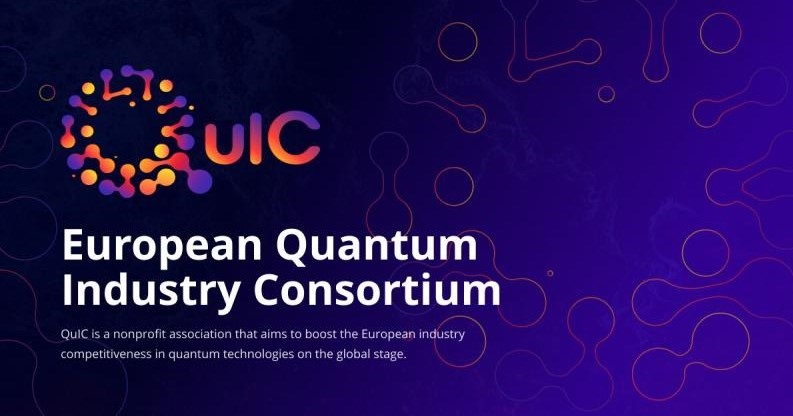
MEET OUR TEAM: ELEONORA ALAMARO
We are happy to introduce our new colleague Eleonora who joined AMIRES as Project Manager in October 2021. After obtaining her bachelor’s degree in Economics at Federico II University of Naples, she joined the European Master in Business Studies, an International joint degree that is composed of 4 semesters in 4 different European countries: Italy, France, Germany, Spain.
Due to her interest in sustainability and circular economy, she took part in a one-year SVE project in a social cooperative in Belgium, where she organized debates and events on organic food consumption. Before joining AMIRES, she was Schuman Trainee at the European Parliament, Directorate for Security and Safety, where she acquired wide knowledge about EU procedures and activities.
In AMIRES, Eleonora is involved in H2020 projects ComBioTES (Compact bio-based thermal energy storage for buildings) and FRIENDSHIP (Forthcoming Research and Industry for European and National Development of SHIP).
Welcome on-board Eleonora and we wish you good luck in your new role!
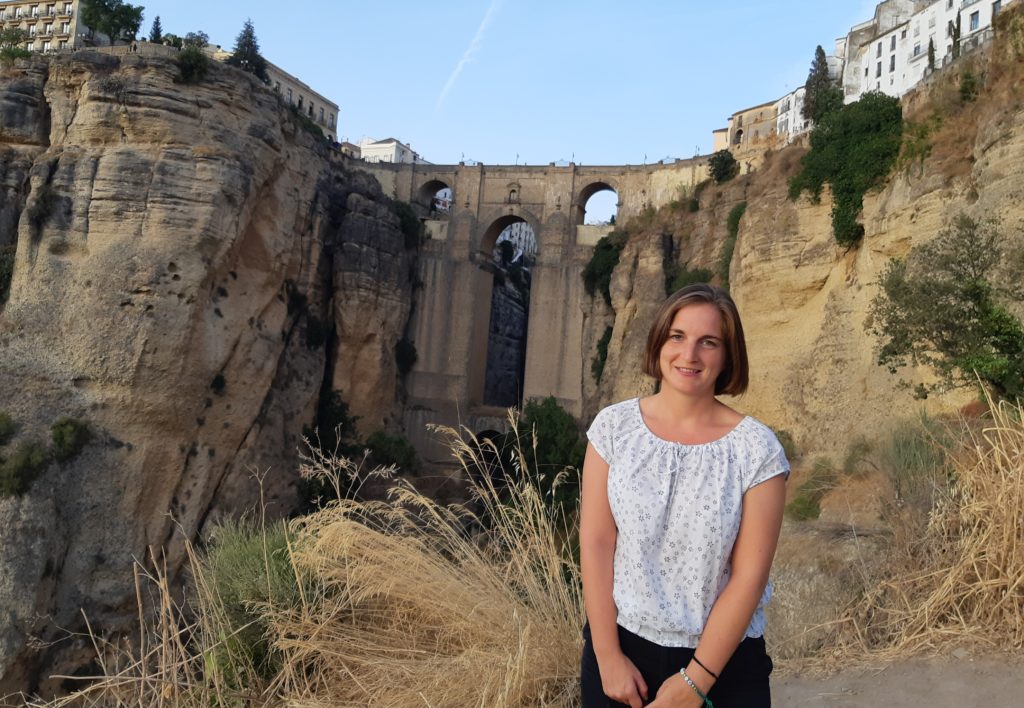
ComBioTES at the Mission Innovation Workshop
ComBioTES attended the Mission Innovation Workshop in Affordable Heating & Cooling of Buildings that was held online on 30th November. The workshop was very rich and constructive and gave a very clear steer on countries and members innovation priorities on heating and cooling. The purpose of the workshop was to look back on the results of Innovation Challenge 7 (IC7, MI 1.0) and look forward to the next phase (Innovation Community, MI 2.0).
Find the recording of the workshop HERE.
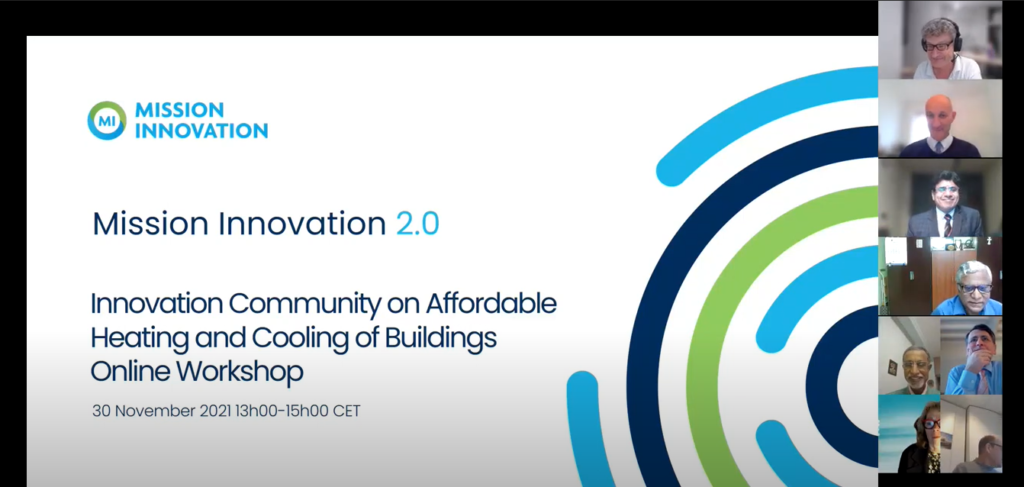
WE ARE HIRING: JUNIOR MARKETING SPECIALIST FOR INNOVATION PROJECTS
Are you a creative soul who thinks out of the box? Are you not scared of a field full of innovations and technologies? If you have good communication skills as well as analytical thinking and digital design is your passion, maybe we are looking for YOU!
To our team we are happy to welcome a new member who will help us to create and run projects promotion campaigns and their content including social media and email marketing.
If you feel that this position might be a fit for you, please see the full advert and let us know by 17/12/2021.
We are looking forward to meeting you!
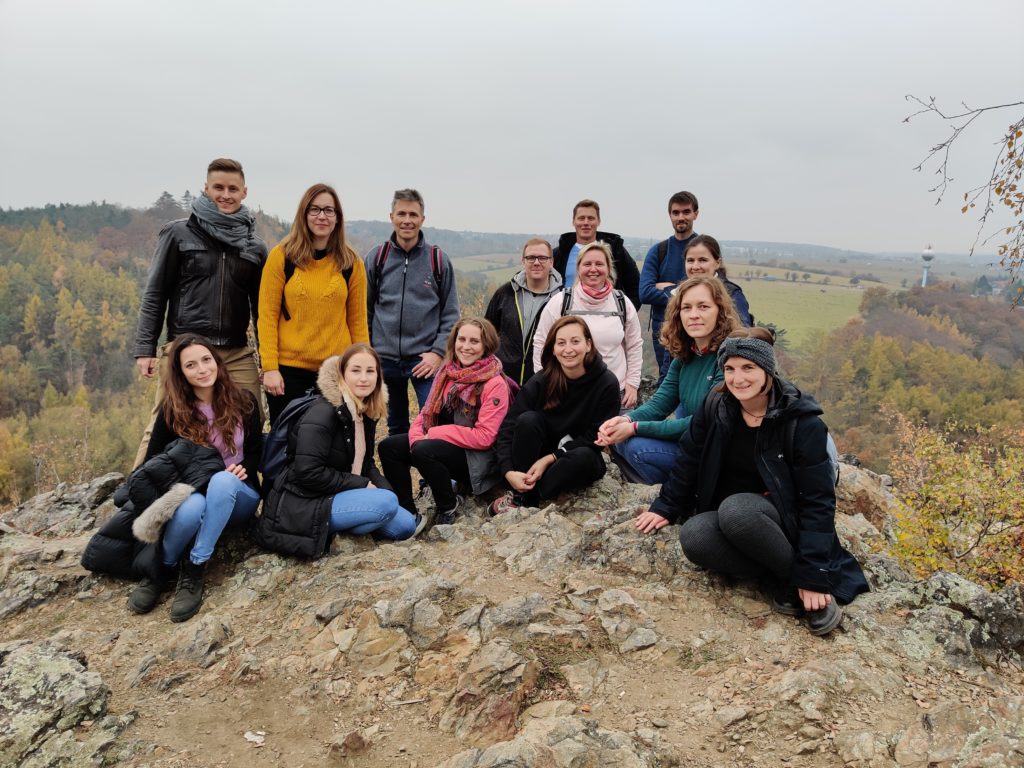
European Innovation Council impact report 2021: key numbers from the EIC performance
During November the European Innovation council (EIC) published the EIC Impact Report 2021.
This report contains the results and impact of the EIC pilot phase up to year 2020. During that period, the EIC supported 5500 start-ups and SMEs.
Moreover, in the document you will find information and data from EIC Fund, their investments which were entered in the first six month of 2021, as well as information which scientific breakthroughs as a basis for future innovations is the EIC generating.
Last but not least, the documents include new solutions for healthcare and the Green and Digital transitions.
To learn more, visit the European Innovation Council website.
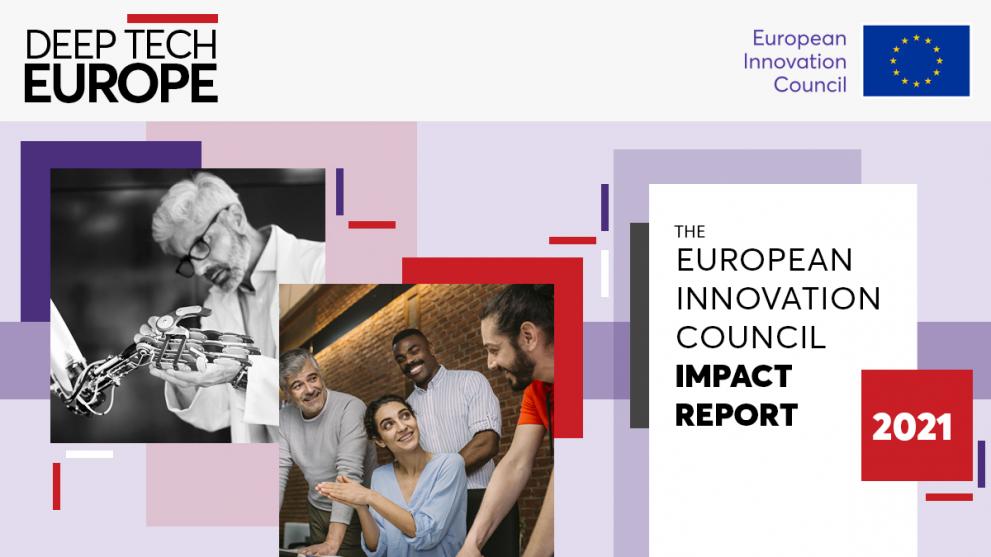
The European Commission has adopted three work programmes for the Digital Europe Programme
The programmes are:
- Main work programme: with a budget of €1.38 billion, it will focus on the areas of artificial intelligence (AI), cloud and data spaces, quantum communication infrastructure, advanced digital skills, and the wide use of digital technologies across the economy and society until the end of 2022
- First specific work programme: with a budget of €269 million until the end of 2022, focuses on funding in the area of cybersecurity
- Second specific work programme: with a budget of €329 million until the end of 2023, focuses on the set-up and operation of the network of European Digital Innovation Hubs.
The work programmes will be implemented mainly through grants and procurement procedures.
The first calls for the Digital Europe Programme were published in November, and more calls will be published in 2022.
For original article visit the News site of the EC.
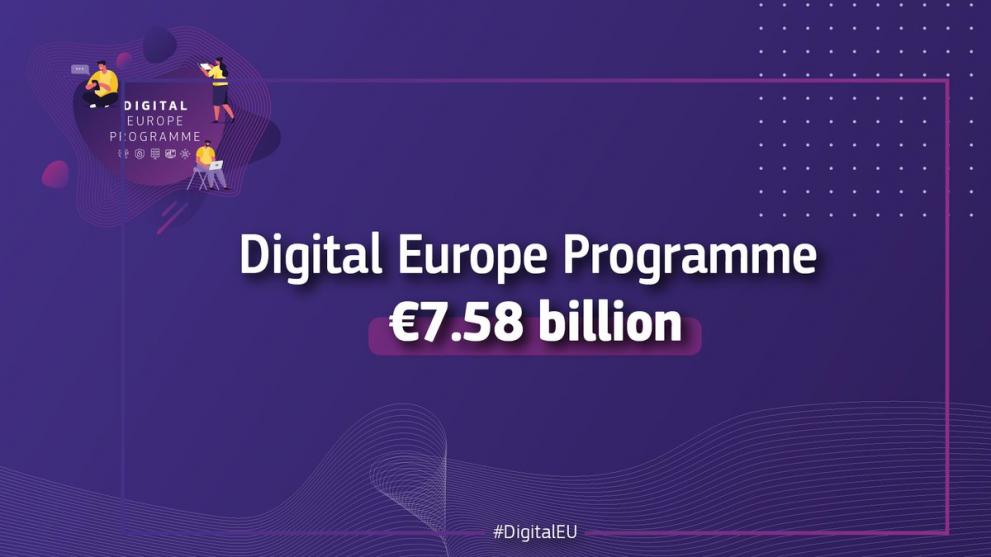
Project FRIENDSHIP: News from the solar fields
The integration of the PTC and Fresnel solar fields into the whole FRIENDSHIP solution is progressing at a good pace! The BoP (Balance of Plant), P&ID (Piping and Instrumentation Diagram), and BOM (Bill of Materials) for the different types of collectors, as well as the first concepts for their sizing and energy simulations have all been precisely defined. Discussions between partners are ongoing, to adapt these elements to different user cases and select the best HTF (Heat Transfer fluid) – for nanoparticles based HTFs, please refer to this article.

One of the key aspects to enhance the output of the solar fields is to produce better coatings: a kind of material able to absorb the solar rays and transfer the heat to the HTF. Several types of absorber coatings are studied, as you can see in the picture below: ageing studies, as well as absorptivity measurements, are being made by Absolicon, CEA and NIC.
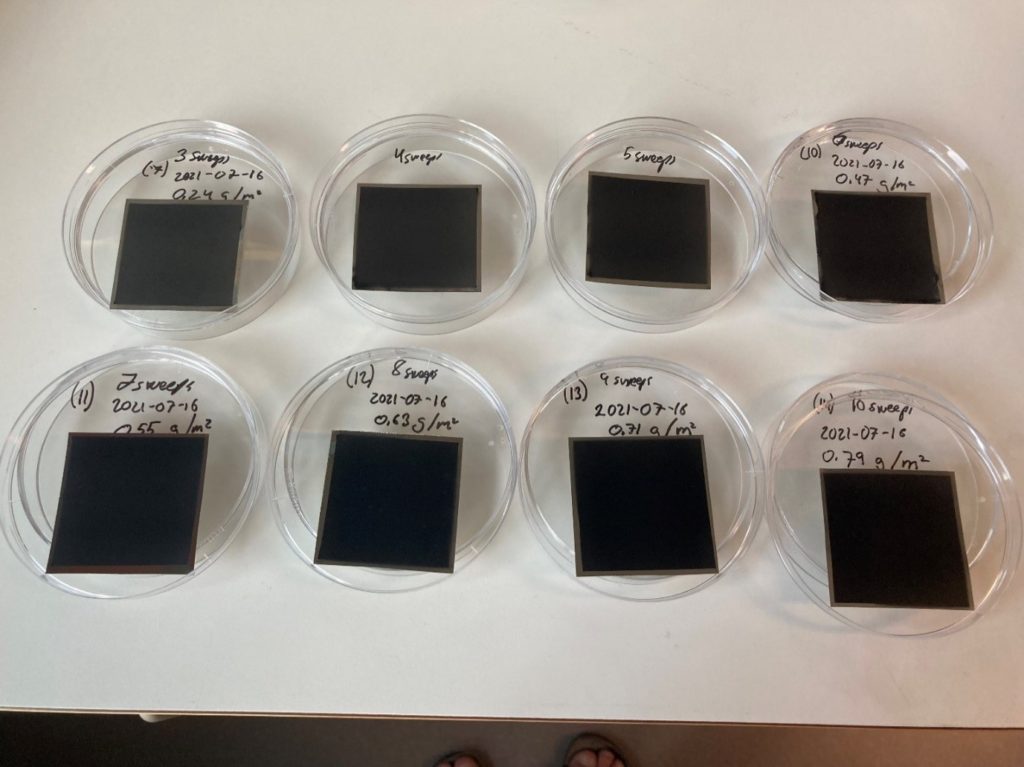
Photonics-based medical devices ecosystem open for registration of key stakeholders
Do you belong to the ecosystem of photonics-based medical devices but you are not part of MedPhab consortium? Do your capabilities complement those from MedPhab partners? Do you have prototypes, products or services that contribute to the ecosystem and would like to share that information with the ecosystem? Register your organisation and your items here on MedPhab marketplace, part of the Community Management Platform (CMP), check the guidelines for publications HERE.

Time to wrap-up the MOSAIC project
The consortium held its final event on the 25th November, welcoming a broad public from all over Europe and further, both online and in the premises of CENER in Sangüesa (Spain). Although the day was cloudy, the participants who travelled there had a chance to behold the prototype with their own eyes and follow the operations with the receiver and the tracking system. The online participants could get an impression of what the prototype looks like through a virtual visit, available here.
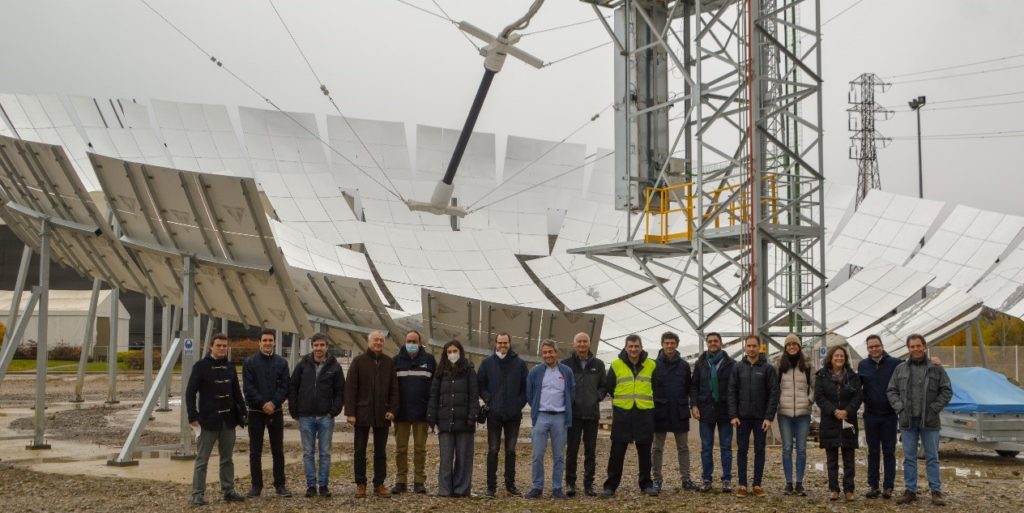
The event also featured several speakers from the consortium and one guest, who all gave technical details about the different parts of the prototype and the implementation of this innovative technology in the future.
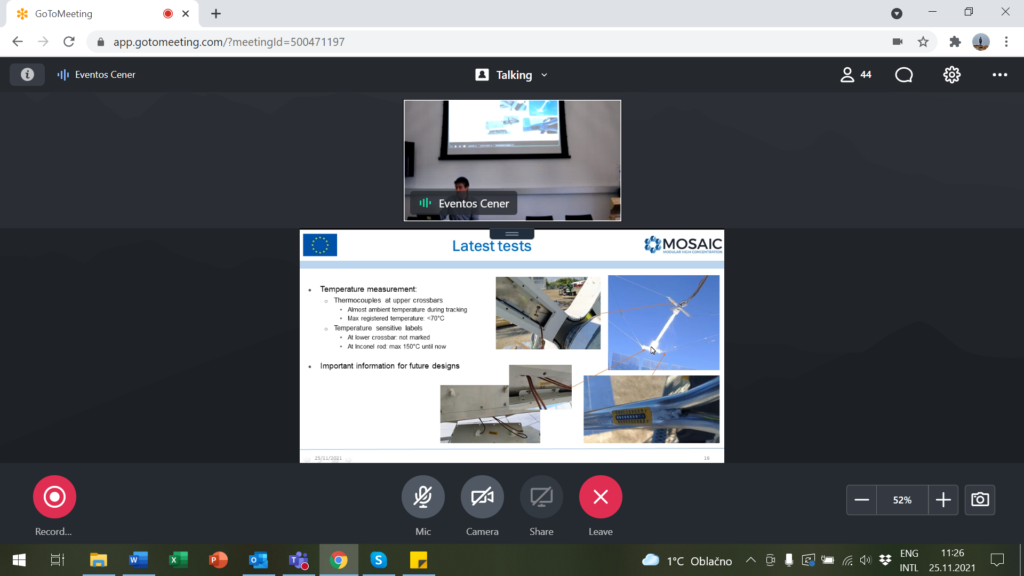
The audience, in particular the members of the External Advisory Board, thanked the whole consortium for their hard work during these past five years and expressed their interest in seeing the further developments of the concepts studied in Sangüesa. It is now time to enhance the MOSAIC technology and pave the way for its commercialization!
Soon a short, final video will be shared, that describes the project as a whole and shows how it can be essential in the energetic transition. Stay tuned for this last piece of the mosaic!
Tumor-LN-oC reaches Month 6 of the project
Within Tumor-LN-oC (Tumor and Lymph Node on Chip for cancer studies), the consortium is developing a tumor-lymph node-on-chip platform which will connect primary surgically removed tumor and lymph node tissues from the same lung cancer patient. The platform will thus serve as a “biological twin” of the patient, making it possible to study the interaction of primary tumors with LNs for individual patients and thereby monitor the LN metastasis process. This information could lead to novel diagnostic tools and therapeutic approaches for lung cancer. More information is available HERE.
We´re looking forward to the next 6 months of the project realization and future achievements!

MARVEL Project – 1 YEAR ANNIVERSARY
One year after the start of the project finally had first in-person meeting. On 15th and 16th November 2021, the EU-funded MARVEL project team has met at the MARVEL M12 meeting organized by the CNR SCITEC ‘Giulio Natta‘ partner in Milan, Italy. During the meeting, the achievements of the first 12 months of the project were highlighted and it was discussed the next steps and upcoming activities.
On the one hand, the first year was dedicated to the analysis of technical requirements and specifications as well as the selection of the criteria for the system demonstration. In addition to this, specific attention was given to the biological sample’s parameters, their selection, and processing. On the other hand, a strong focus was on the development of new affinity peptide ligands that outclass antibody-based isolation methods in terms of capturing efficiency, versatility, and cost-effectiveness. These achieved targets will introduce a breakthrough in current Extracellular Vesicles (EVs) isolation standards.
The next year will be mostly focused on the integration and optimization of the developed technology into several systems, leading to ground-breaking innovations for EVs deployment in cardiac repair and the non-invasive diagnosis of bladder cancer.
Follow our progress on Marvel Official Webpage.
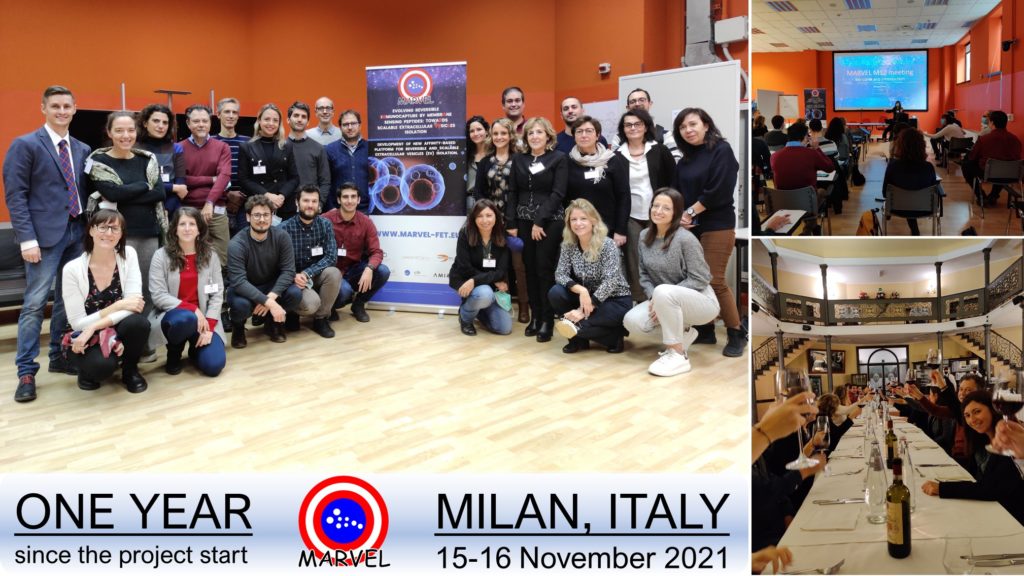
Discover project TINKER in a new video
Watch the new video about the TINKER project to learn more about the use of microelectronics and RADAR and LiDAR sensors for autonomous or self-driving cars and to discover a novel fabrication pathway that will allow further miniaturization, without compromising on accuracy, functionality or efficiency.
PHABULOuS launches its Technical Marketplace
Are you a potential user of free-form micro-optics or you are a technology provider offering such services? Then take a look at our newly launched Technical Marketplace. You will find here various offerings from design and origination services to tooling and metrology services. Plus of course the offerings for prototyping and volume production. For suppliers that are not listed yet, we offer the opportunity to list your products in this marketplace.
One-stop-shop for free-form micro-optics
With the launch of this Technical Marketplace, PHABULOuS is connecting the value chain and supporting end-users towards the implementation of free-form micro-optics. The marketplace consists of easy to use filters to drill down to the specific offerings. Once the matching offering has been found, end-users can contact any supplier directly with their enquiry.
Main source of orientation
The aim of this marketplace is to be the main source of information towards the implementation of free-form micro-optics. For this, we encourage all suppliers and other relevant stakeholders within the micro-optics community to contact the Pilot Line Front Office about the possibilities for a listing. Listings will be free of charge for all European companies for the entire duration of the project (till 2024). So, act fast and benefit from this great opportunity. Contact the PHABULOuS Pilot Line Front Office at info@phabulous.eu .
Visit the PHABULOuS Marketplace.
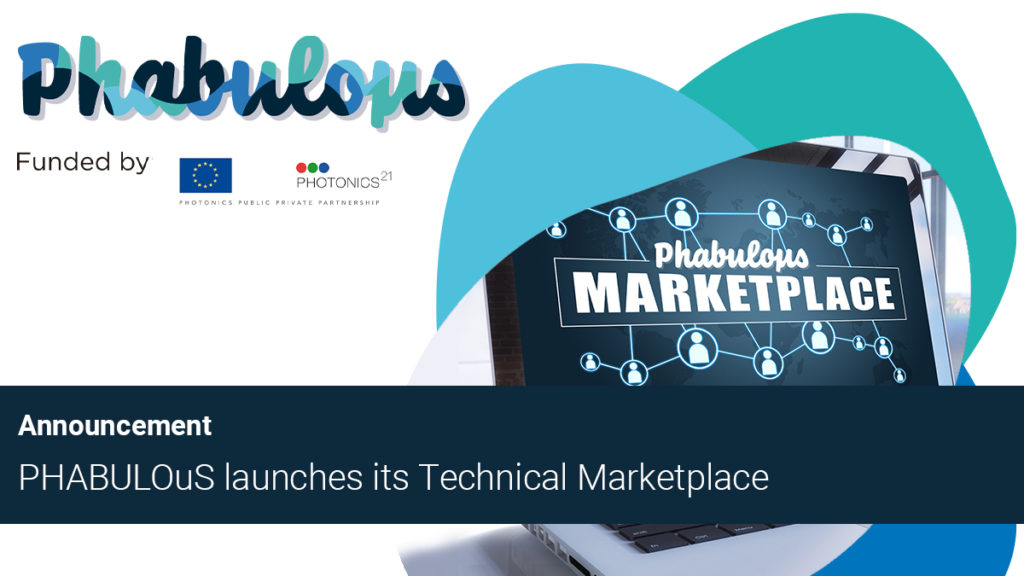
Last chance to register for the MOSAIC final event
The consortium is delighted to invite you to the final event of MOSAIC, in the form of a visit of the prototype and a series of conferences relative to innovative CSP technologies. Given the particular sanitary conditions affecting the whole Europe, the event will be both physical, in the form of conferences and a visit of the prototype in Sangüesa, Spain, and re-transmitted online; but we can only recommend you the physical visit of the prototype, as you will have a unique chance to see it with your own eyes !
Only a few places remain for the physical version ! You can still register for the online version until the day of the event.
Registration takes place HERE.
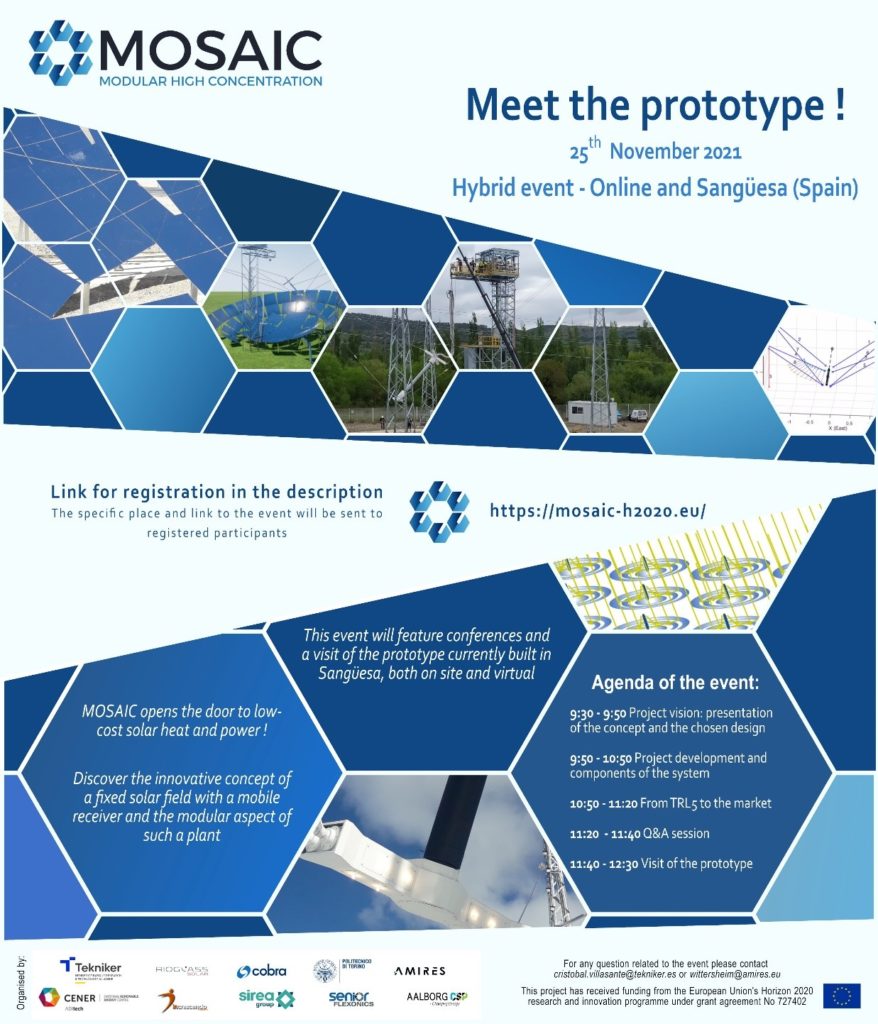
PROJECT MOSAIC: Final tracking system tests are ongoing
The final stage of the MOSAIC project has started. With the construction of the solar field completed, the final tests and tune-ups on the prototype are being carried out. The receiver, controlled by a tracking system made of actuated cables and a control loop, moves over the solar field, following during the whole day the path of the sun and collecting the maximum amount of energy.
As you can see in the video below, the receiver shines brightly when in the tracking position. The HTF is circulated through the receiver by the means of two special hoses, which connect the receiver to the skid tower. Temperature probes at the entry and exit points measure the thermal gap achieved by the effect of the solar heating.
Different tests are being carried out to check and improve the accuracy of the tracking system and the global performance of this innovative thermo-solar plant system. If you wish to have more detailed explanations and a closer look on the prototype, don’t forget to REGISTER to the final event.
ComBioTES: half year of common work
On 20th and 21st October 2021, the EU-funded ComBioTES team has met up online to sum up and discuss the achievements of the first 6 months of work. In fact, the project ComBioTES was started in November 2019, but due to internal problems of one of the partners, it was immediately suspended for 18 months. Now everything is back on track, first prototypes have been developed and are soon to be tested. The project’s objective is to develop a modular compact thermal energy storage (TES) solution for heating, hot tap water and cooling, fully adapted for electricity load shifting.

One Year Anniversary of project TINKER – 2nd Press Release
One year after the start of the project, the second press release is published to highlight the achievements of the first 12 months of the TINKER project. The partners have been working on developing and perfecting designs, processes and materials required for the two selected use cases.
They have been able to overcome the obstacles that the Covid-19 pandemic posed and collaborated successfully on developing equipment and tools and shared samples, technologies, and processes.
We are already anticipating the results of the upcoming years and we look forward to continuing our participation.
Read the press release HERE.
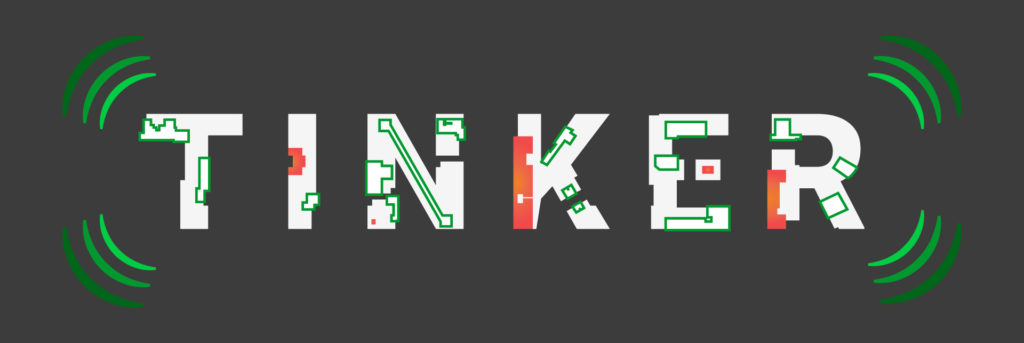
TEAMBUILDING IN AMIRES
The teambuilding is an important part of every company culture. In non-professional environment people are more relaxed and opened. This time was well deserved and very much needed. And frankly speaking, we did enjoy to the fullest.
First day starting with breakfast, continuing by a hike to the brewery in Unětice where we find out how to make beer and had a chance to taste it directly from the tank.
Second day we “sweat” our ideas and brainstormed about future.
Well, no more words needed, see for yourself:
Ejector, nanofluids and heat pump: read FRIENDSHIP’s latest publications
This month, project FRIENDSHIP has released three scientific works available in open-access: one article in a specialized journal and two public deliverables. The links can be found here.
The article, Choked liquid flow in nozzles: Crossover from heterogeneous to homogeneous cavitation and insensitivity to depressurization rate, compares two theoretical methodologies, based on delayed equilibrium models, to available experimental data on the critical mass flow rates of CO2 and H2O through nozzles, and achieves a very good predictability. This work is particularly useful for the development of the ejector chillers in WP4.
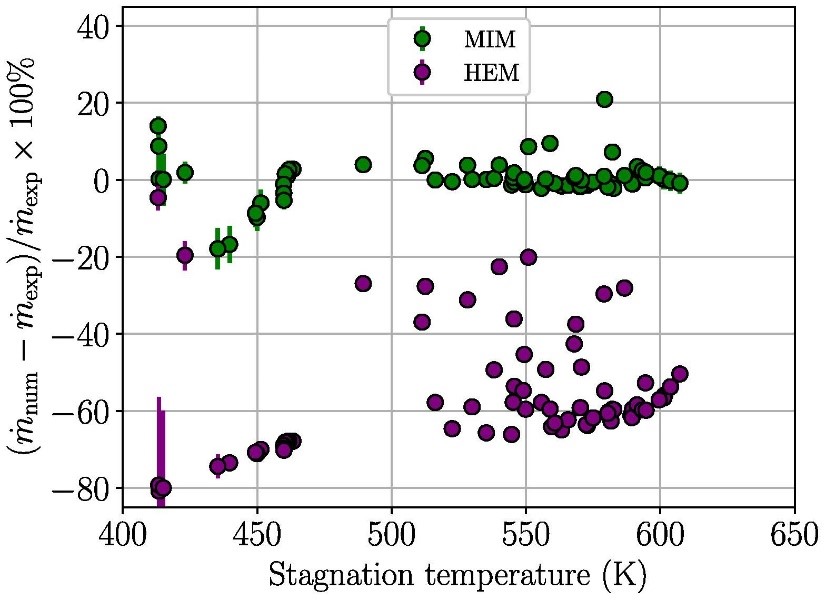
The two deliverables focus on a literature review of nanofluid based HTF and the integration of the heat pump to the whole SHIP200 system, respectively.
The literature review, D2.4, presents recent advances and research on nanofluids at high temperatures and the application of nanofluids to solar collectors, focusing on their enhanced thermophysical properties, but also the important challenges with the use of nanofluids, especially their stability at temperatures above 100 °C.
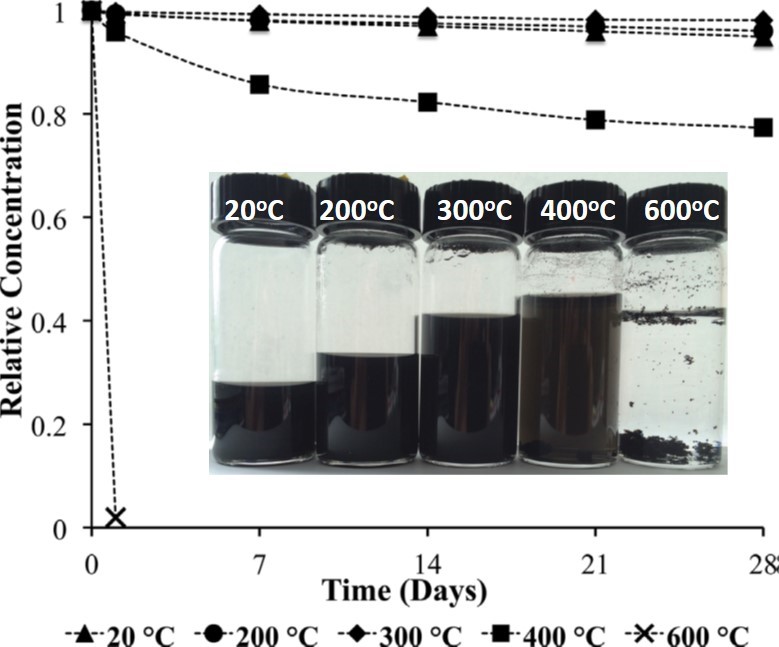
The D3.1 presents an evaluation of two initial heat pump concepts and integration principles for SHIP200: a high-temperature concept based on water/steam (R718) for short term heat delivery up to 200°C and a reversed Brayton heat pump concept based on CO2 (R-744) for long-term heat delivery up to 250°C. Model improvements to both concepts will be made to improve simulation accuracy and performance in the next months.
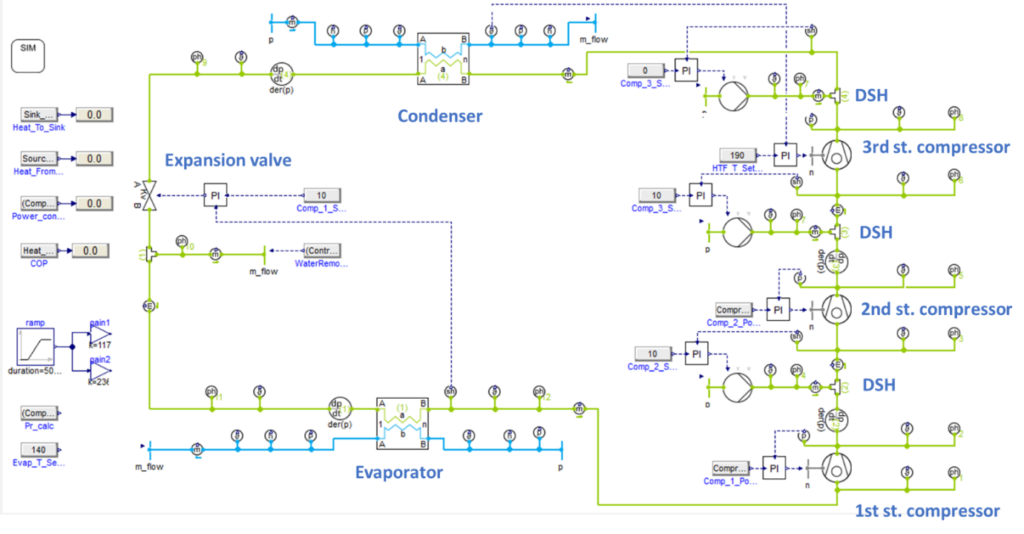
News from project Mosaic: The solar field is complete
After several months of installation of the electrical and mechanical parts of the prototype, the solar field was the last major element to be assembled on the field. This phase of the works, started in September, was completed and canted by 28th October, and the prototype has finally achieved its final, impressive look:
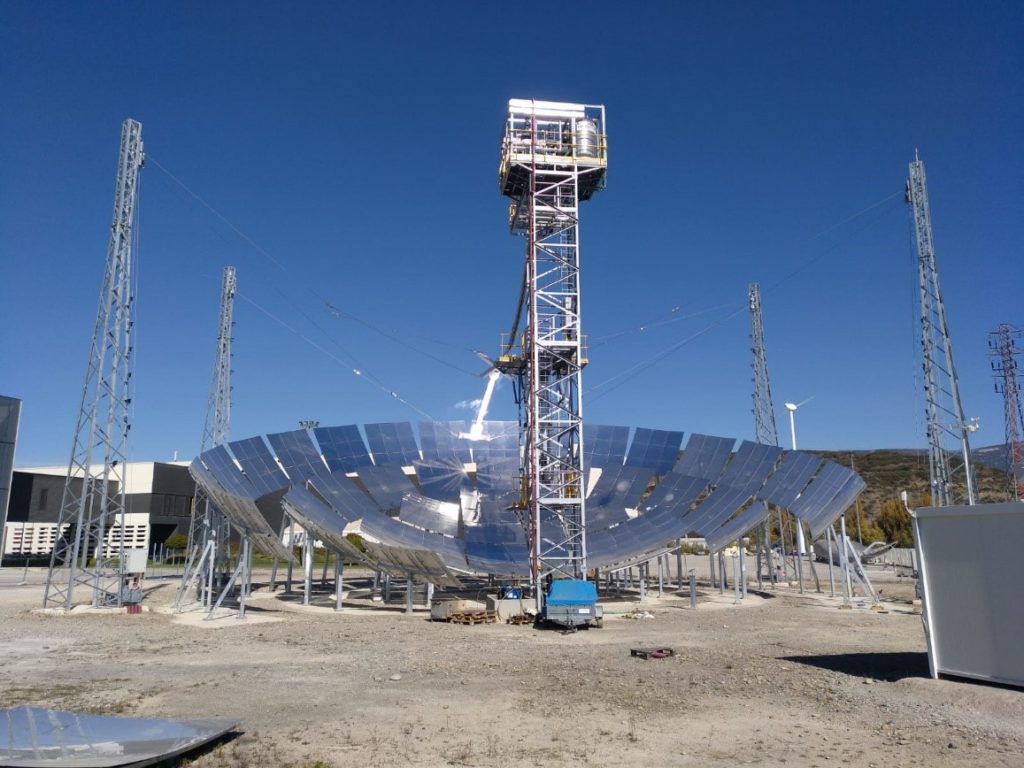
On the following video, you can observe how some of the latest mirrors were assembled in the outer rings of the solar field.
Additional installations (grounding and sprinklers system) should be executed during the coming days, as well as the final tests of the project, concerning the tracking system and the receiver heating. If you wish to have more detailed explanations and a closer look on the prototype, don’t forget to register to the FINAL EVENT.
Elaboration of modified membranes for extracellular vesicles isolation and purification by the tangential flow filtration
MARVEL project partner, CNR-ITM, is currently working on the elaboration of a highly selective membrane that will be integrated into the Tangential Flow Filtration system in order to isolate and purify the specific EVs subpopulations.
Extracellular vesicles (EV) are cell-derived membranous structures ubiquitously found in all biological fluids that act as signaling vehicles in both physiological or pathological mechanisms. Nowadays, the potential applications of these nanoparticles are attracting increasing interest in the fields of medicine, cosmetics, and nutrition. However, the manufacturing of EVs is currently challenging and is characterized by low yields. In addition to this, the main drawback of the existed size-based EV isolation methods is the presence of a large number of nanoparticles with the same size as small EVs (<200 nm) and of other contaminant molecules after the isolation process.
In the MARVEL project, one of the planned goals is to overcome these challenges through the integration of the modified with the hybrid probes membrane unit into the current Tangential Flow Filtration (TFF) system. The membrane will be modified with the specific peptide probes which are characterized by a high affinity for clinically relevant EV protein markers. In particular, the surface of the membrane is functionalized with the highly selective hybrid probes for specific EVs subpopulations isolation. The planned further optimization of the functionalization process will lead to the development of a highly selective membrane without altering the structural properties, which are responsible for the separation process. This system will offer new opportunities in the design, rationalization, and optimization of EVs isolation and purification processes with significant reduction of contaminants.
More information about the project is available HERE.
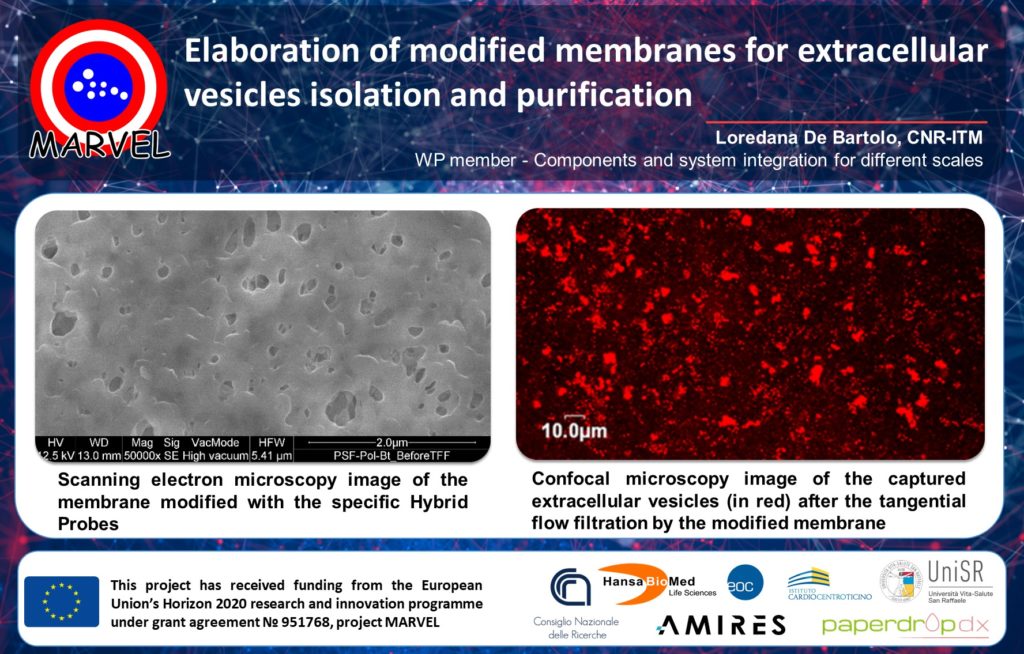
AMIRES S.R.O is celebrating an important anniversary
It’s been 10 years since we entered the business of supporting inventions and innovations to make better future for all of us. During this time, we enabled many new partnerships and collaborations and had clients from across Europe, from Oulu to Catania and from Dublin to Tel Aviv. We helped fundraise several hundreds of millions € via dozens of collaborative projects.
The real success is, however, when the funded projects bring a strong advantage to European companies and organizations in the form of new products, processes, or services. This is the part when our mission usually ends, but it is profoundly engraved in our early client discussions and approaches. Our continuous aim is to keep repeating this whole process again and again for bringing the best results to Europeans, in the form of digitization and manufacturing, but going to more fundamental needs like clean air, soil and water, access to green energy or having the best possible disease detection or treatment in place for us, our families, our children.
For this mission, we are honoured to work with the most innovative organizations and companies which select us as a partner. This ecosystem brings a rich and productive environment for new concepts and project planning. The world struck by Covid-19 pandemic is showing us the fragility of the system as we know it and allows reflections about many aspects of business. We are available to assist in all forms of innovations towards economical and societal sustainability.
The most important ingredients for the success are our AMIRES colleagues. I can’t thank enough to all of them (including the past colleagues) for sharing the same passion for innovation and for better future at one side and for the support of excellent coordinators and consortia on the other. Personally, my biggest satisfaction is brought by the AMIRES team full of curious professionals, continuously developing their leadership and empathy skills. The individuals operating in a multinational environment, supporting cutting edge technologies and European companies (irrespective of the size), will be ready to respond to challenges, which we will face in the future. Only with such a team we are now ready to take part in new actions, initiatives, events and ventures.
Congratulations AMIRES!
Rudolf
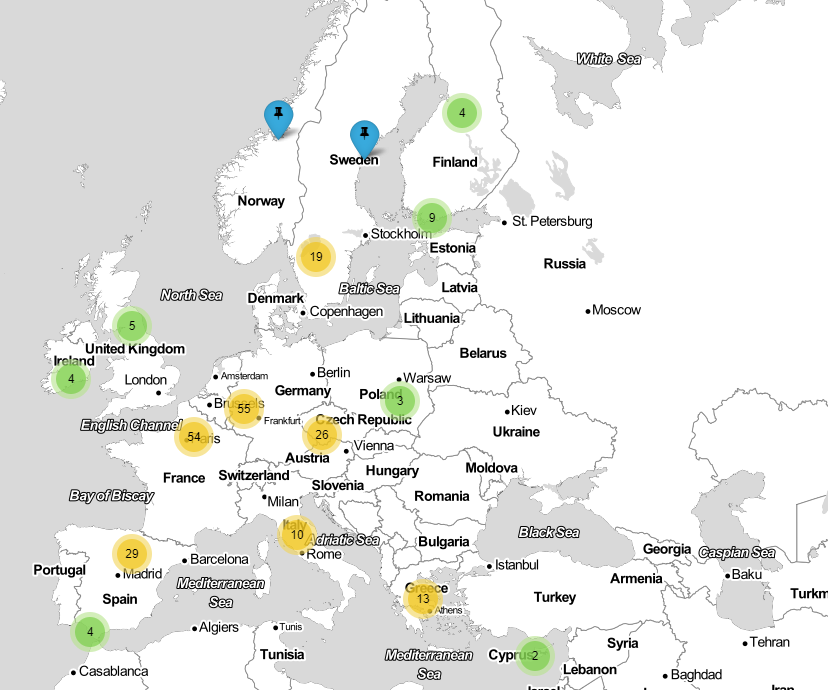
Webinar Recording: How to apply for FlexFunction2Sustain Open Call
On 5th October 2021, FlexFunction2Sustain organized a webinar to introduce the Open Call for Pilot Cases. The event was specifically aimed at informing companies about the possibilities to apply to develop and test novel nano-functionalised plastic and paper surfaces and membrane.
Prior to that there was a session with information about the FlexFunction2Sustain project and details on the Open Innovation Ecosystem – core competencies, service portfolio and application examples.
The video recording that was taken during the webinar is available here:
More information about the conditions of the Call can be found here. Further assistance is available through the Helpdesk by phone to +420 226 217 422 or by email to helpdesk@flexfunction2sustain.eu (Monday – Friday from 9 AM to 5 PM CEST).
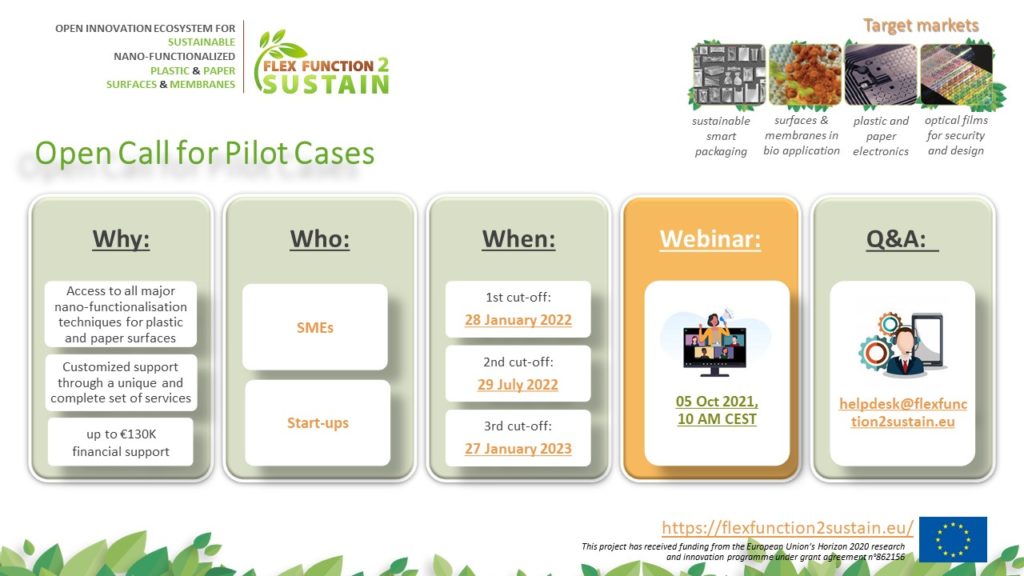
Registration for EIC summit is open
On the 18th October the European Innovation council announced that the European Innovation Council Summit 21 is open for registration. Due to the Covid restriction there are only limited spots available for attending on-site in Brussels. The summit will be also available online. For registering, click here.
The event will offer an opportunity for European start-ups, innovators in SMEs, researchers, corporates as well as potential investors and venture capitalists to connect and network.
You will have the opportunity to join interactive pitching sessions and participatory workshops where you can find out more about early stage and impact investments, innovation procurement, swarm robotics and space technology.
Mariya Gabriel, the European Commissioner for Innovation, Research, Culture, Education and Youth will officially launch the EIC Forum and announce the winners of the EIC Women Innovators Prize and the iCapital Award. Moreover, there is the opportunity to meet the winners of the European Innovation Procurement Awards.

MedPhab review meeting
On September 22, MedPhab completed the first EC review meeting after 18 months since the start of the project in January 2020. During this meeting, achievements and highlights of the pilot line were presented to the EC Project Officer (PO) and three external reviewers. The main topics included: the progress of the pilot line operational processes through the establishment of the Front Office, the technology maturation through the model and use cases, the technology modular mapping, launch of the open calls, dissemination to stakeholder groups, and business planning.
The pilot line has encountered some challenges mostly due to the universal obstacle of the pandemic which has delayed the on-site progress. However, mitigation strategies have been implemented succesfully. During an open discussion, the reviewers and PO have acknowledged the efforts of the consortium and provided valuable feedback to further strengthen the establishment of MedPhab photonics pilot line dedicated for medical diagnostics.
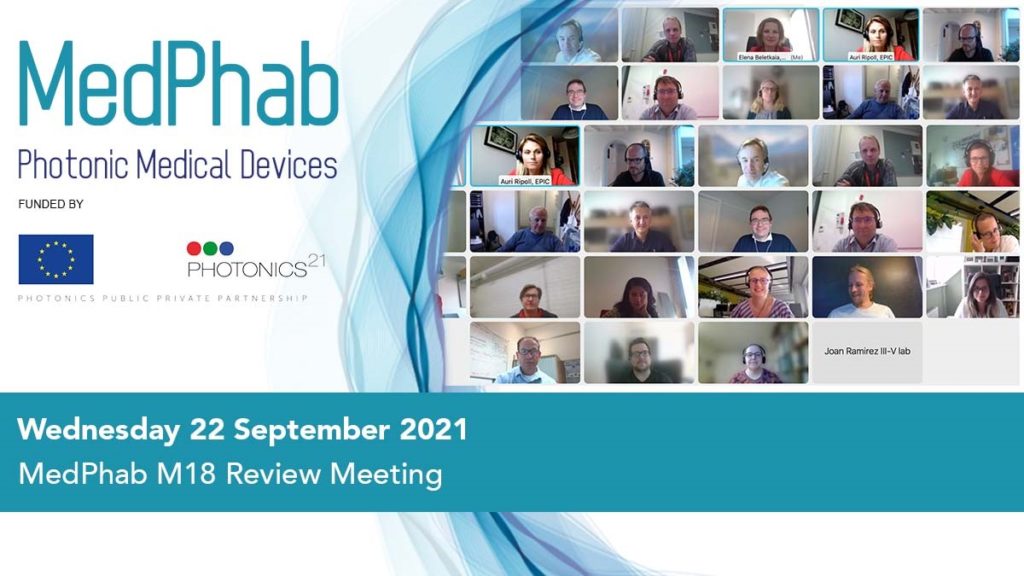
Ukraine joins Horizon Europe and Euratom Research and Training Programme
On the 12th October 2021 after the Summit of European Union and Ukraine, the leaders of the European Union and its Member States finalized the association of Ukraine to Horizon Europe, the EU research and innovation programme (2021-2027) and the Euratom Research and Training Programme (2021-2025). Ukrainian researchers and innovators can now participate under the same conditions as entities from EU Member States.
This alliance between the EU and Ukraine will be strengthen by the cooperation in science, research and innovation. Moreover, it will help to deliver on common priorities, such as the twin green and digital transition.
The full news is available on the European Commission NEWS site.
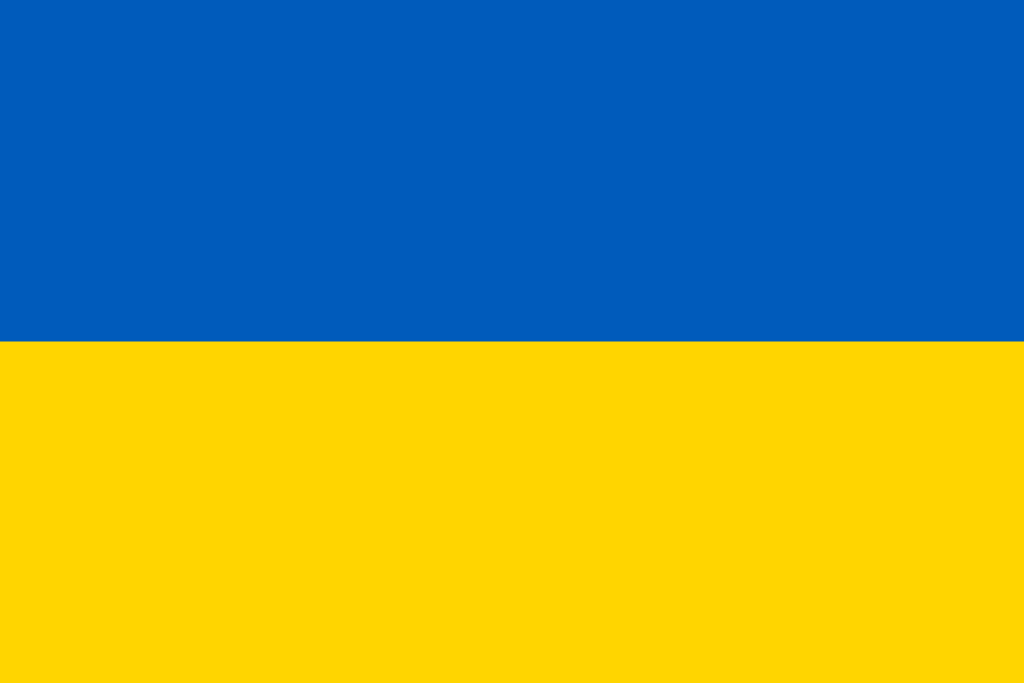
FRIENDSHIP at Sustainable places and SolarPaces 2021!
In September/October, FRIENDSHIP was represented by our partner CEA at two major European events: at Sustainable Places 2021, held both online and in Rome (Italy), on 30th September; and at SolarPaces 2021, held online from 27th September to 1st October. The Project Coordinator, Valéry Vuillerme, highlighted the progress and results achieved during the first year of the project, while Fabio Aste and Pierre Garcia presented the latest achievements in the work packages dedicated to the absorption chillers and the heat storage respectively. Two papers, as well as a presentation, were submitted in the process. You can find more information here and here.
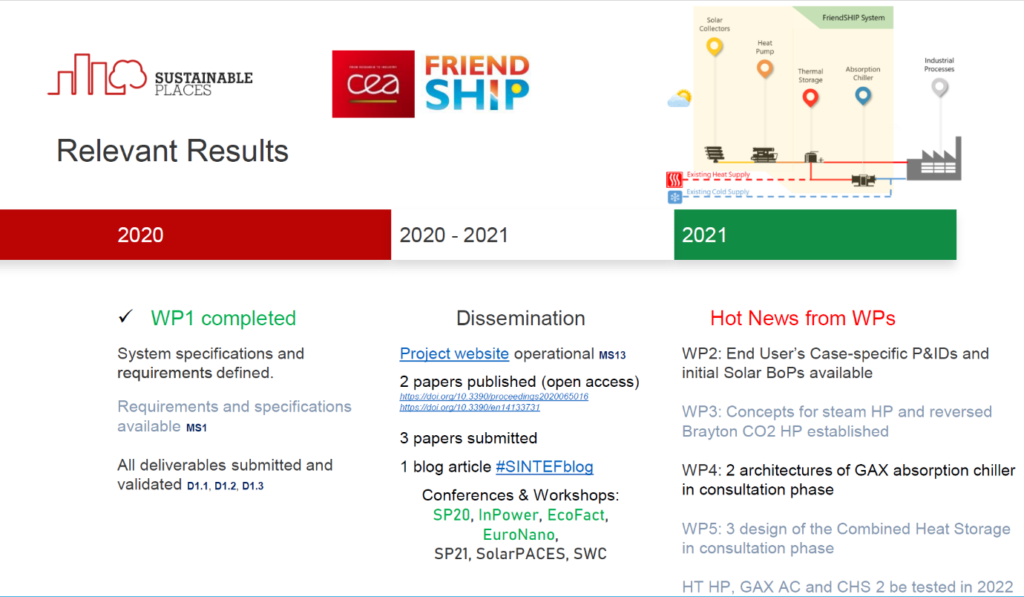
Horizon Europe guidance on gender equality plans (GEPs)
The European Commission has published a guidance on gender equality plan (GEP) which is a new eligibility criterion of the Horizon Europe calls for proposals with deadline of 2022 and beyond. This obligation applies to all public authorities, research organizations and higher education institutions from the Member States and the countries associated to the Framework Program. The equivalent strategy of GEP will also be accepted.
The 54-page handbook was published by the European Commission’s Directorate-General for Research and Innovation (DG RTD) on 27 September 2021 and is available HERE.
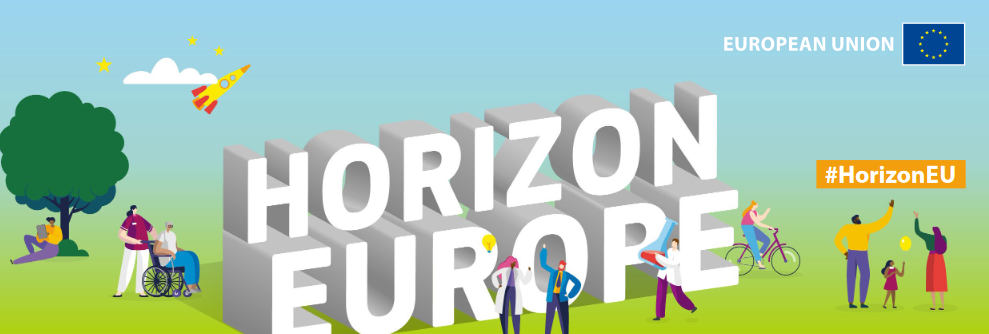
Commission launches EU missions to tackle major challenges
On the 29th of September The European Commission launched five new EU missions.
EU missions aim to tackle big challenges in health, climate and the environment, and to achieve ambitious and inspiring goals in these areas.
Five missions will aim to deliver solutions to key global challenges by 2030:
- Adaptation to Climate Change: support at least 150 European regions and communities to become climate resilient by 2030;
- Cancer: working with Europe’s Beating Cancer Plan to improve the lives of more than 3 million people by 2030 through prevention, cure and solutions to live longer and better;
- Restore our Ocean and Waters by 2030;
- 100 Climate-Neutral and Smart Cities by 2030;
- A Soil Deal for Europe: 100 living labs and lighthouses to lead the transition towards healthy soils by 2030.
With its Communication on EU missions adopted on the end of September, the Commission is giving them the go-ahead, after the approval of the missions’ individual plans this summer.
Full article is available here.
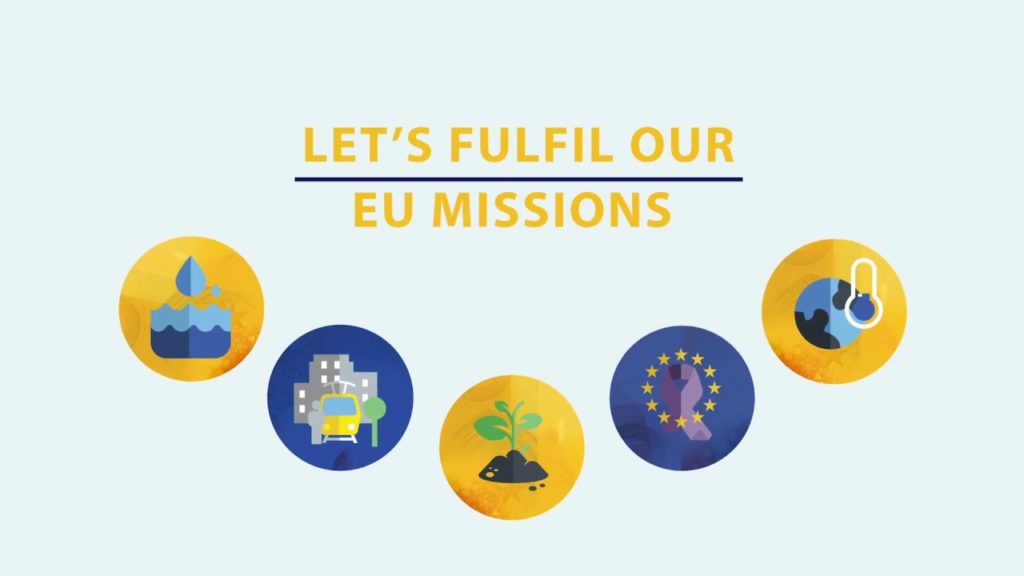
MANUELA – Design for metal AM WORKSHOP – 21ST OCTOBER | 10:00-11:30
Renown experts from CSEM will present the general workflow of metal AM, details of the process focusing on re-design for AM, and finally 6 use cases from different industrial sectors acting as examples.
You can REGISTER HERE – or directly JOIN MEETING HERE.
You can find more information about the project on the MANUELA website.
|
|
|
|
PANCAIM Open Webinar: AI in Genomics and multi-omic data integration for pancreatic cancer
The Horizon2020-funded project “PANCAIM – Pancreatic cancer AI for genomics and personalized Medicine” will combine genomics and imaging phenomics using AI to generate breakthrough knowledge to increase understanding of PDAC biology and patient stratification.
In the context of WP3, the consortium is organising an open webinar with the topic of “AI in Genomics and multi-omic data integration for pancreatic cancer”.
The webinar will take place on Wednesday, 10. November 2021, 9-10 AM via Microsoft Teams.
Following thematic areas will be covered:
- Welcome and brief introduction to the core idea of PANCAIM (Henkjan Huisman, Radboud University Medical Center)
- Molecular Taxonomy and Precision Medicine in Pancreatic Cancer (David Chang, University of Gloasgow)
- AI models for prognosis and treatment predictions (Tero Antero Aittokallio, Oslo University Hospital)
- Multi-omic approaches and data integration in pancreatic cancer (Núria Malats, Spanish National Cancer Research Institute)
- Questions and Answers
In addition to the PANCAIM consortium members, interested guests are welcome to participate in the webinar. If you would be interested to attend, please register your participation until Sunday, 07.11.2021 by email to the PANCAIM project manager, Kristin Aldag (aldag@amires.eu), in order to to receive the link to join. Any specific questions to the presenters are welcome in advance to the same email.
For more info, please visit the Pancaim website.
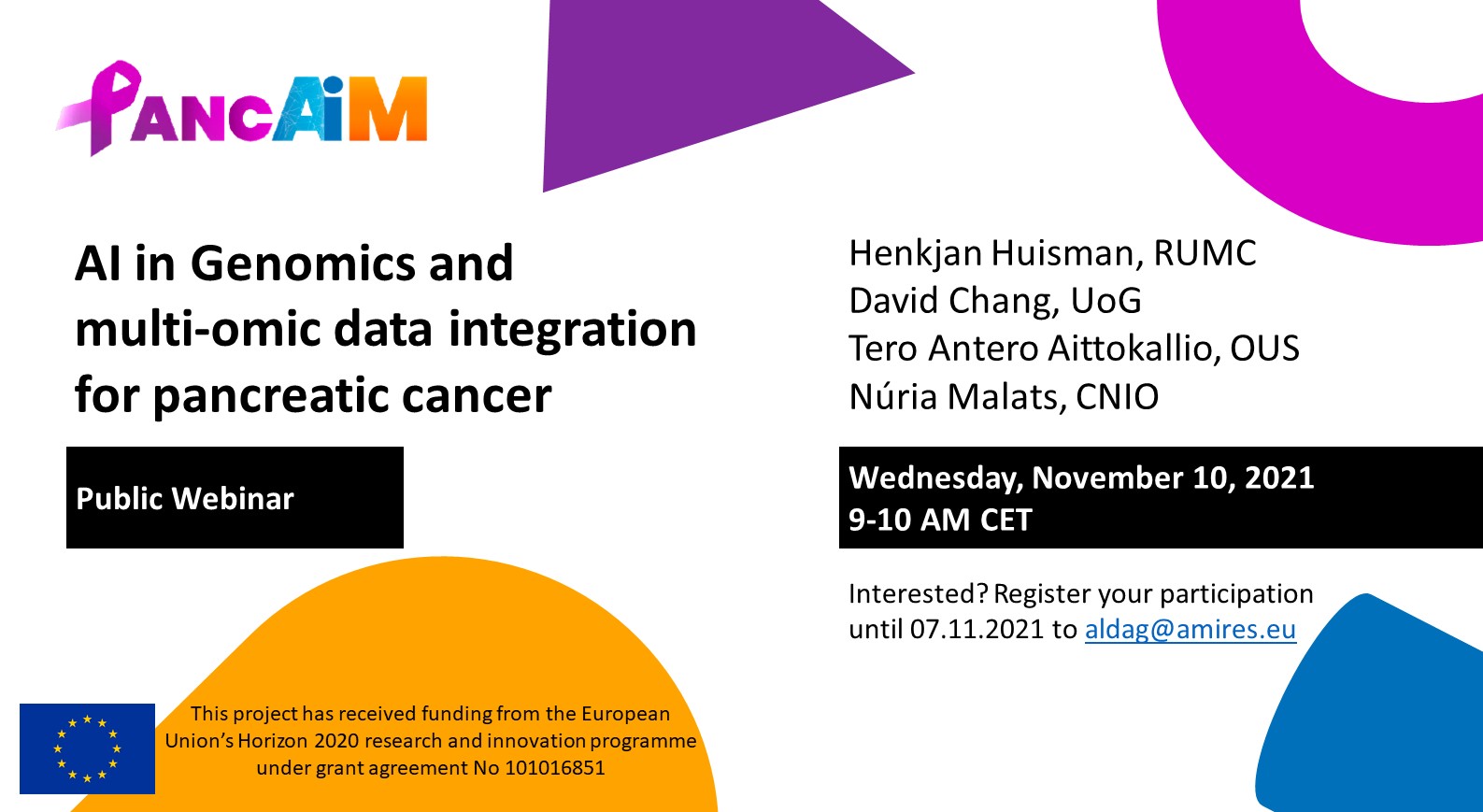 |
Workshop on JePPIX Demonstrator Open Call: Pilot Line for InP Photonic Integrated Circuits
Agenda:
“Pilot Production for InP PICs” Kevin Williams, Professor and Chair of the Photonic Integration group at TU Eindhoven
“Maturity of the design flow and PDK” Katarzyna Lawniczuk, Senior Photonics Engineer at Bright Photonics
“Fabs and their offer” Nazanin Shafiee, Business Development Manager at SMART Photonics
“Automated testing” Axel Schönau, Research Associate at Fraunhofer HHI
“Open Call” Marika Kurova, Project Manager at AMIRES
“Investment opportunities” Antonio Raspa, Innovation Manager at EPIC
After the presentations, there will be a networking session at wonder.me.
Please, register via this link.
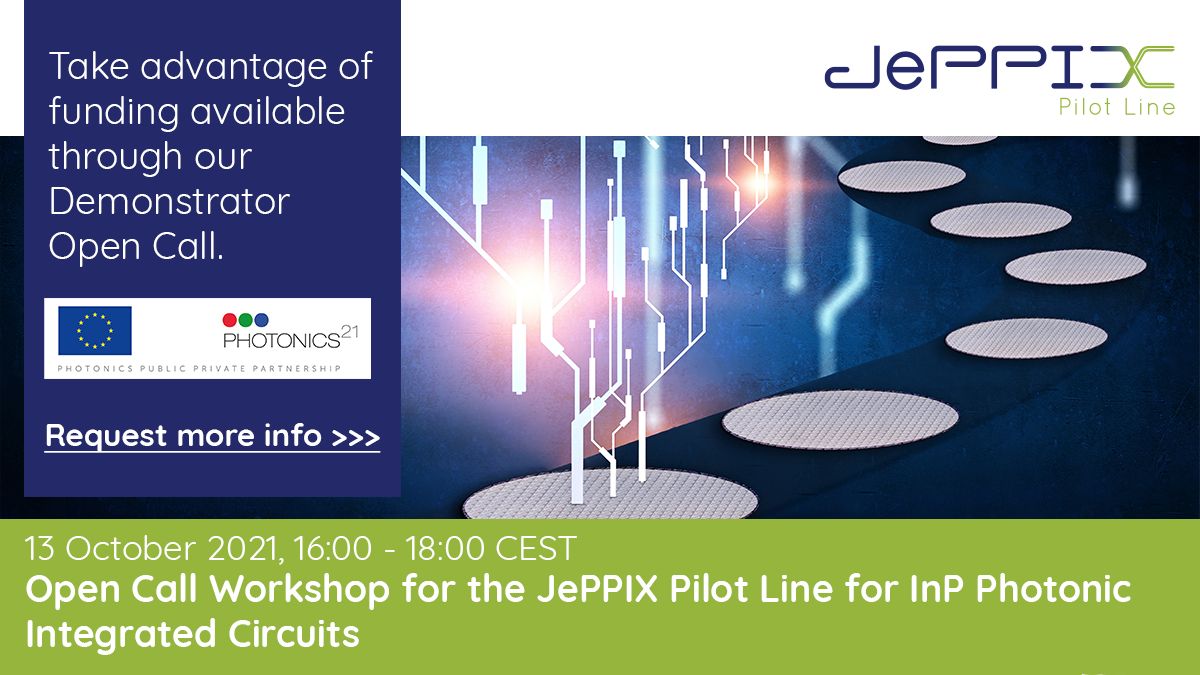 |
MARVEL poster won the first prize among 76 competitors at the 2nd EVITA symposium
We were happy to contribute to the preparation of the MARVEL project poster which won the first prize among 76 competitors at the 2nd EVITA symposium organised by the Italian Society for Extracellular Vesicles and held on 20-22 September 2021 in Italy. It is the first in-person meeting that we attended to share our first results since the COVID19 outbreak. The event was attended by more than 150 researchers and scientists presenting their work on Extracellular Vesicles. Our poster titled “Hydrophobic effects in membrane sensing peptides for small Extracellular Vesicle isolation and analysis” showed the important results on the development of a new generation of membrane-sensing peptides for EV isolation and further their analysis. Apart from participating in the poster session, MARVEL project was showcased during the pre-meeting session. You can find more information about the presented result and MARVEL project here.
More information about the event is available here.
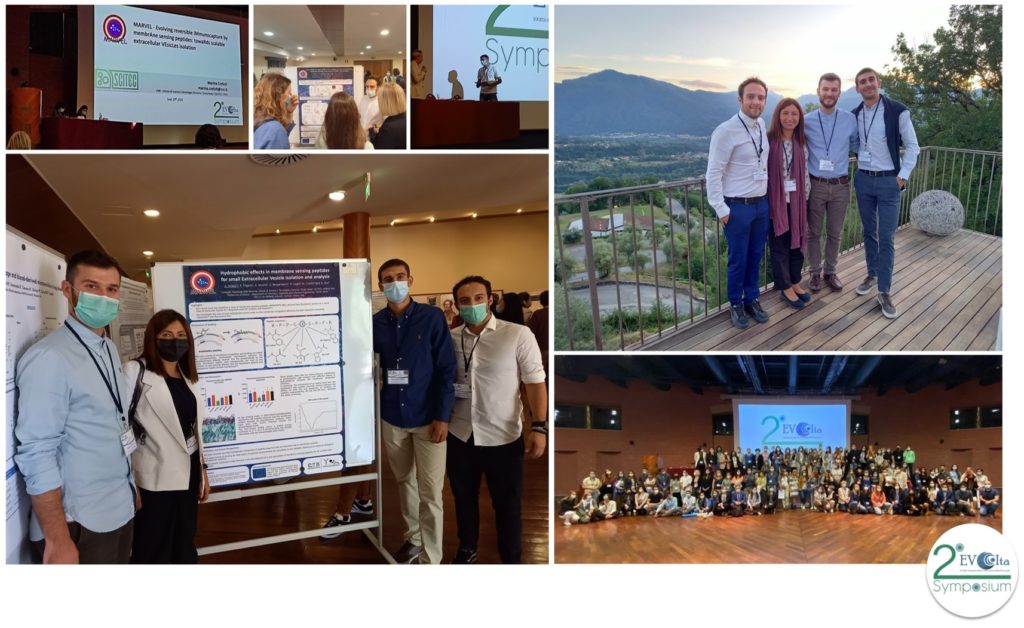
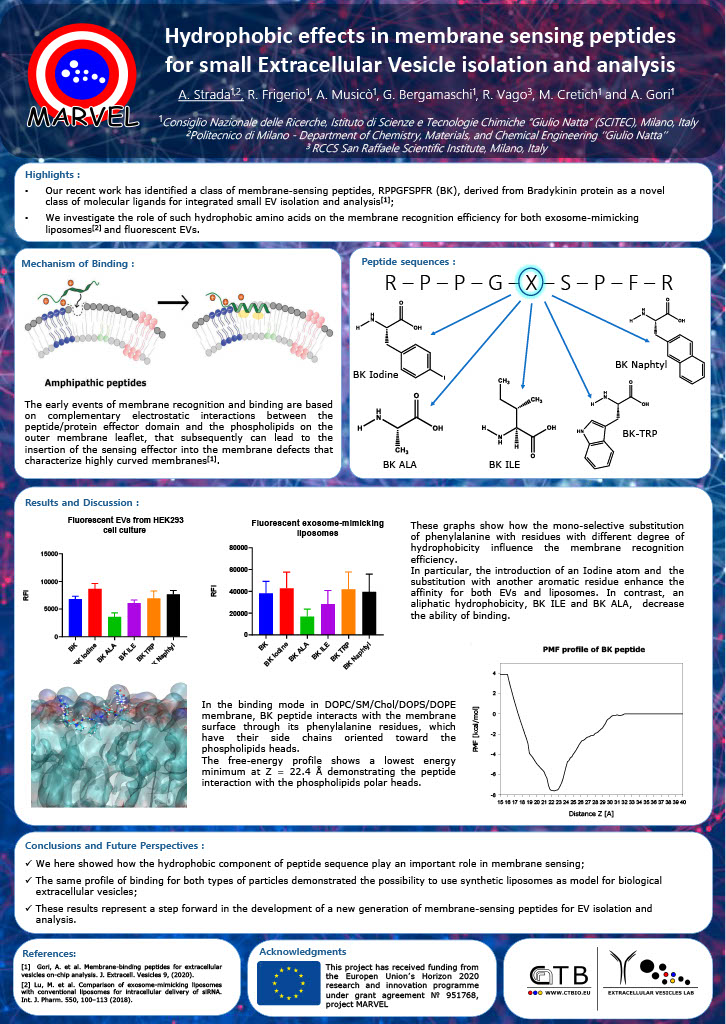
Webinar: MedPhab – Photonics pilot line for medical diagnostics
This webinar introduces MedPhab, presenting MedPhab technology capabilities and how to work with the pilot line. By registering here for the event, participants may find a solution to a product development problem. The Webinar will take place on October 28, 2021 and five MedPhab partners will speak about MedPhab, including Mariana Pacheco Blanco, MedPhab project manager and Programme manager at AMIRES who will present MedPhab Community management platform (CMP).
MedPhab pilot-line CMP includes a technical marketplace, the virtual catalogue of capabilities of the whole Photonics-based medical devices ecosystem. Although at this moment MedPhab partners technical services are visible, during October 2021, non-MedPhab partners will be able to register their organisation and offering (prototypes, products and services). This platform is a community building tool that allows lowering the barrier for photonics technologies adoption by companies interested in medical applications. Therefore, through CMP third parties interested in MedPhab services can submit their enquiries via the in-take form.
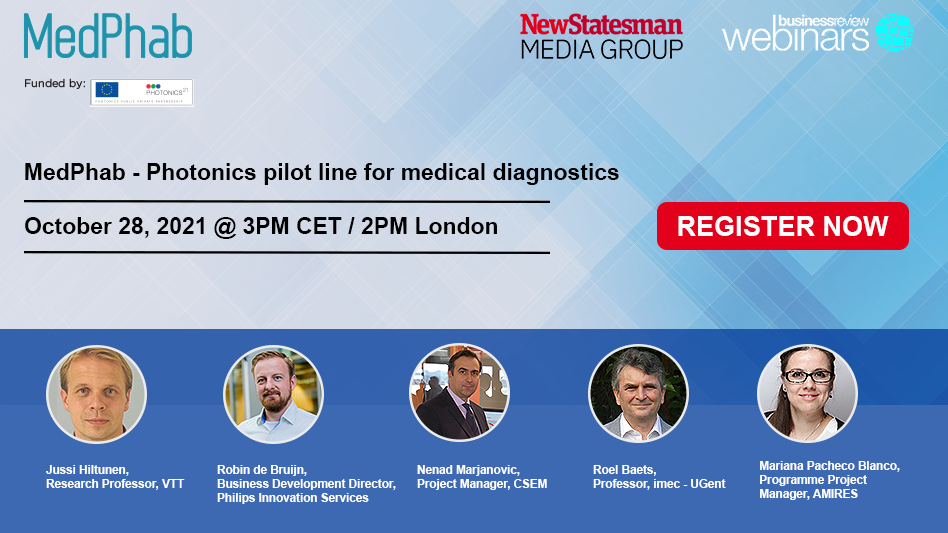
3D-bioprinted synthetic hydrogel for liver transplantation
A fully synthetic PEG-based hydrogel is 3D-bioprinted along with a biocompatible sacrificial material that is used to create channels in the printed construct. The channels will then allow for the formation of a vascular network inside the hydrogel. This construct is an essential block in the ORGANTRANS project in the creation of a liver tissue 3D printing platform which aims to replace liver transplantation for end-stage liver failure patients. Additionally, this platform can be scaled to other organ systems, as organoid technology is one of the largest parts of regenerative medicine.
More information is available on OrganTrans website.
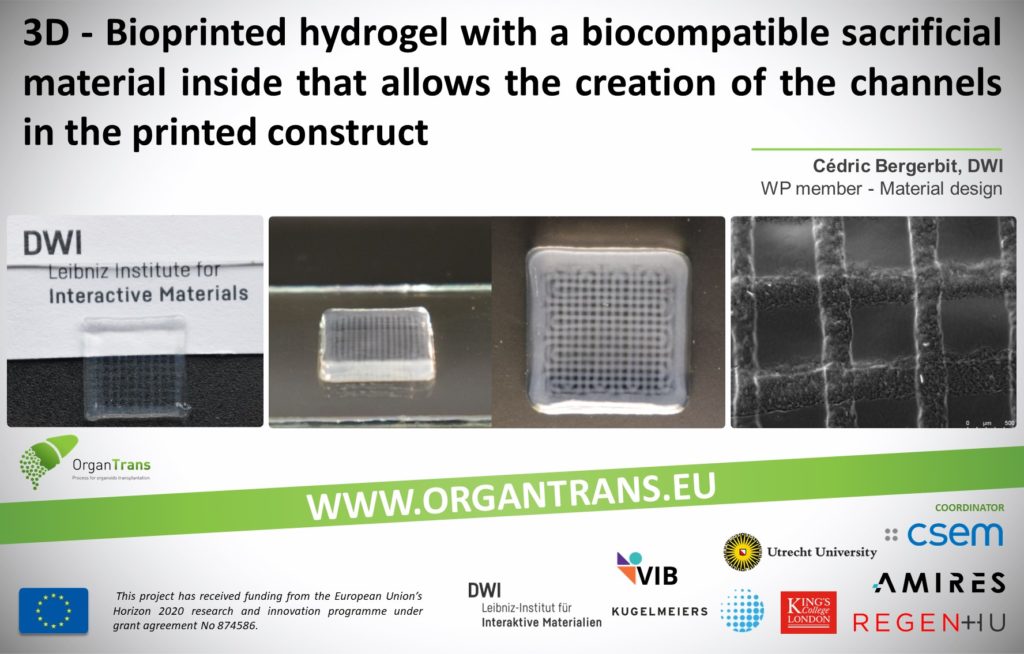
Save the Date: Info-Days for Horizon Europe Cluster 1 and Cluster 6
On the 4th October the European Commission announced a new series of info-day for Horizon Europe Cluster 1 and Cluster 6 will be held virtually between 25th and 29th October 2021.
The info-days will present the topics of the Horizon Europe Cluster 1 (Health) and Cluster 6 (Food, Bioeconomy, Natural Resources, Agriculture and Environment) work programme 2022 and will give the opportunity to prospective applicants to learn more about funding under the two clusters of the new programme.
Info-days calendar:
25-26 October 2021: Cluster 6 info-days,
27 October 2021: Cluster 6 brokerage event,
28 October 2021: Cluster 1 info-days,
29 October 2021: Cluster 1 brokerage event.
For a detailed agenda and more information, visit the event website.
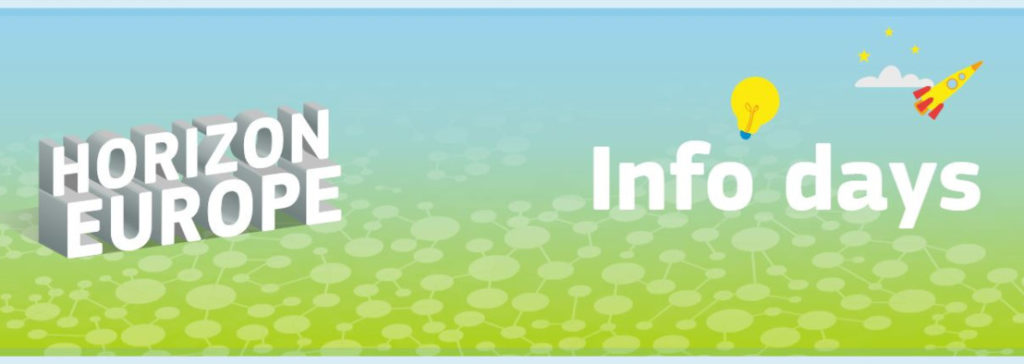
Iceland and Norway are the first countries associated to Horizon Europe
On the 24th of September 2021 the Joint Committee of the European Economic Area (Iceland, Liechtenstein, Norway, and the EU) adopted the relevant decision for Iceland and Norway, which makes them the first to be associated to Horizon Europe, which allows the entities in those two countries to participate in Europe’s €95.5 billion research and innovation programme, under the same conditions as entities from the EU Member States.
This is an opportunity to continue and deepen cooperation in science, research and innovation, focusing on common priorities: the twin green and digital transition, public health and Europe’s competitiveness in the global landscape.
Joint efforts will aim to address environmental problems in the Arctic, develop hydrogen and carbon capture technologies, boost data-driven innovation, and more. This early association also enables these partners to get involved from the outset in the European Partnerships.
Iceland and Norway have a long history of association to the EU Framework Programmes for Research and Innovation, starting in 1987 for Norway and 1994 for Iceland, with a win-win cooperation throughout the years.
For the full article click HERE.
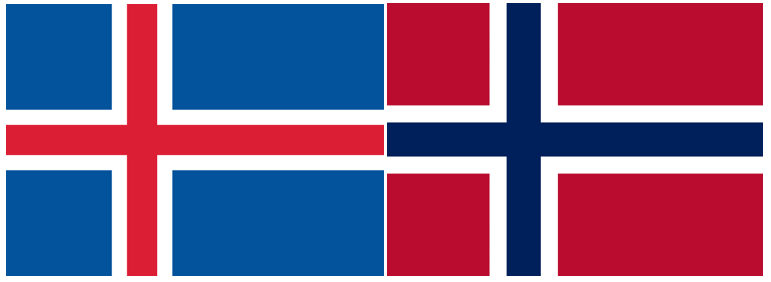
Horizon Europe: Federal Council submits transitional measures to Parliament for non-accessible programme components
In July 2021 it was announced that Switzerland will be treated as non-associated third country in Horizon Europe.
On 17 September 2021, the Federal Council therefore decided to initiate transitional measures until Switzerland achieves its stated aim of full association.
Under non-associated third country status, researchers and innovators in Switzerland are able to participate in most Horizon Europe collaboration projects. The accessible programmes will not be funded by European Commission but will be funded by the State Secretariat for Education, Research and Innovation (SERI). However, the participation in individual projects will not be possible – including grants from the European Research Council (ERC), the European Innovation council (EIC) and certain Marie Skłodowska-Curie Actions (MSCA). Submissions from Switzerland under the first calls of 2021 for ERC (Starting Grants and Consolidator Grants) and EIC (Accelerator) projects are still being evaluated by the European Commission. If the evaluations are favourable, SERI can fund these researchers and businesses directly.
The Federal Department of Economic Affairs, Education and Research (EAER) is charging the Swiss National Science Foundation (SNSF) with the task of implementing transitional solutions. The transitional solutions will be based as far as possible on the European calls but will have their own deadlines for project submissions.
The transitional solutions should compensate the lack of participation in ERC Advanced Grant and MSCA 2021 Postdoctoral Fellowship calls as well as for ERC Starting Grants and Consolidator Grants for 2022 in the event that Swiss researchers are not entitled to submit project proposals for these calls.
The EAER will launch further transitional measures through Innosuisse, the European Space Agency ESA and other actors.
The planned transitional measures will be submitted to Parliament in the winter session in the form of an addendum to the 2022 budget.
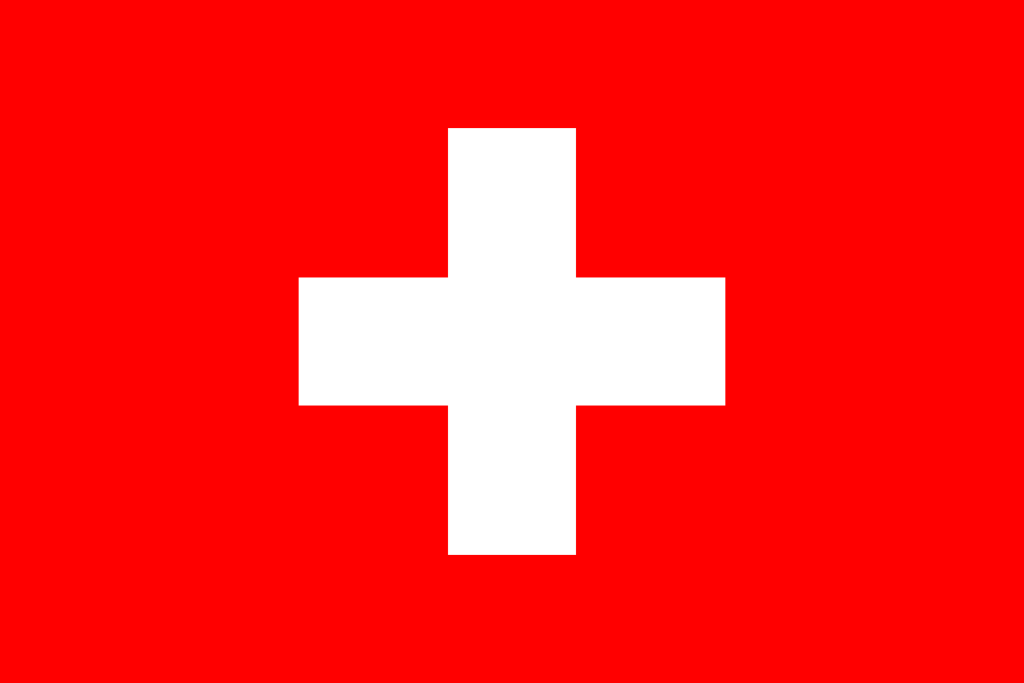
Latest news and developments from Horizon Result Platform
The first is the new forged partnership with Enterprise Europe Network (EEN) – EEN can offer a services tailored to projects results needs expressed on the Horizon Results Platform.
Euronews Business Planet featured Horizon Results Platform solutions in a story on EU R&I results valorisation, focusing on the award-winning MedTech company, RedZinc and their innovative video telemedicine solution. Full article is available here.
HRP Quality Assurance campaign was launched to address existing project results on the Horizon Result Platform.
If you would like to learn more about D&E ongoing activities and future opportunities check European IP Helpdesk Bulletin No. 4/ September 2021.
On HRP TV soon you will be able to see the interview with Prof. Dr. Davede Iannuzzi, European Research Council grantee sharing essential elements to successfully take your invention from university to market or you can listen to Cyril Demaria, enture capital fund manager, as he targets key benefits in using the Horizon Results Platform.
|
|
PHABULOuS Pilot Line Association announces its new Head of Business and Sales
We are proud to announce that the PHABULOuS Pilot Line Association has hired its first official employee and is now fully operational! With the help of Jessica van Heck as Head of Business & Sales, the pilot line front office is ready to offer accelerated innovation and production cycles from prototyping to piloting up to large volume production. Curious to see what free-form micro-optics can do for you? Take a look at www.phabulous.eu or read the full press release at https://lnkd.in/ehBXN.
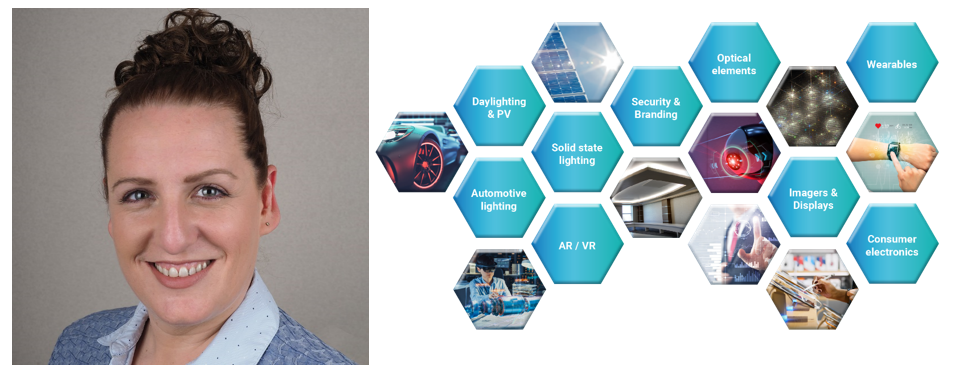
News from the MOSAIC construction site: the solar field is being installed
A major phase of works has started in the MOSAIC project: the solar field assembly. This highly essential element, acting as the concentrator of the solar rays, is composed of 43 modules of mirrors divided in 3 zones: a central skull-cap, and 2 concentrical rings of modules.
Each module is composed by a group of mirrors placed on a metallic frame at a very accurate position. The frame with the mirrors is placed on the correspondent support. Once the module is completed, it is necessary to check and adjust the orientation of the frame, so that it is precisely oriented towards the receiver and provides the maximum heat concentration, allowing for higher temperatures in the heat transfer fluid.
Supports in the central skull-cap are already placed and the first frames with mirrors have also been installed on them. The works are on course and will continue during the following weeks until the entire solar field is completed.
Join the FlexFunction2Sustain Open Call Webinar on 5th October
For the opening of the application process, FlexFunction2Sustain is organising a webinar on 05th October 2021 at 10:00-11:00 CET/CEST. During the online seminar, information will be provided about:
- What services do we provide for the winners?
- Purpose and background of the Open Call;
- Selection and execution processes;
- Eligibility criteria and conditions;
Subscribe to the webinar by completing the registration form under the following link.
More information about the conditions of the Call can be found here. In case of questions, you can contact the helpdesk at helpdesk@flexfunction2sustain.eu.
We’ll be looking forward to supporting your innovative ideas!
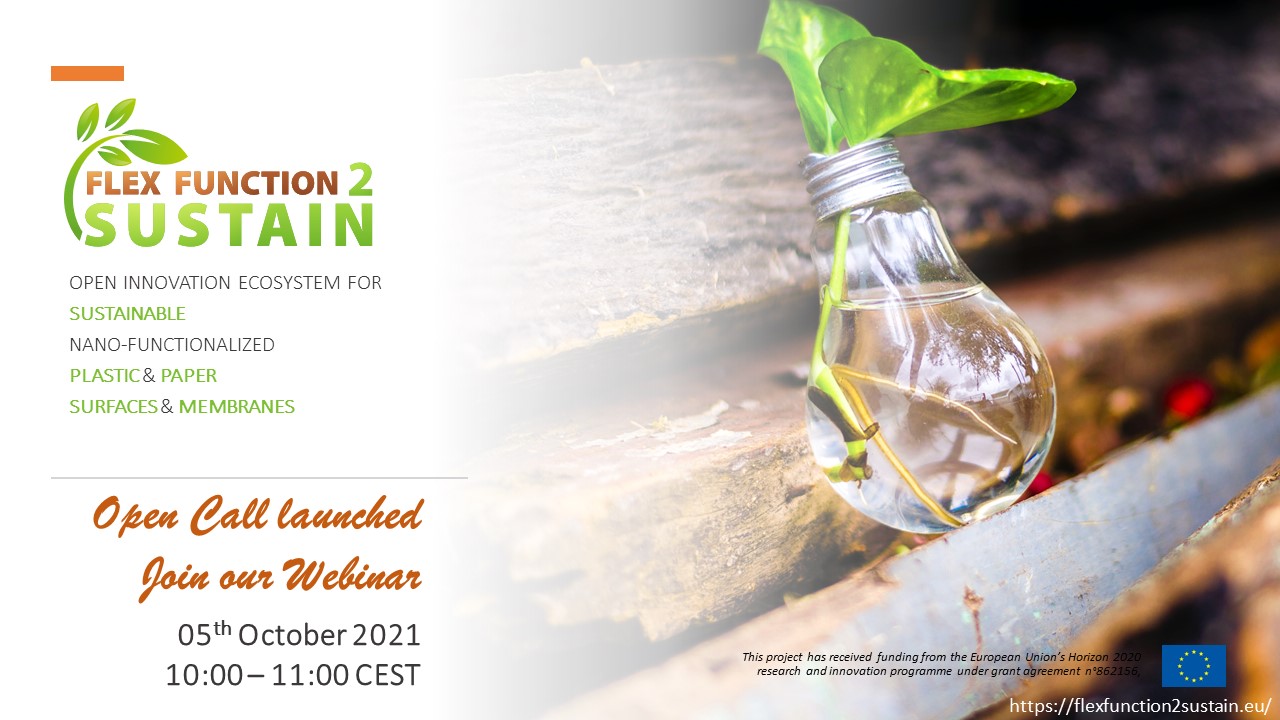 |
WE ARE HIRING!
Are you passionate about Energy & Sustainability topics? Is admin work not bothering you? Are you a team player? Do you wish to be part of international team? Do you want to learn and gain new experiences? If you answered YES, then we might be looking for you!
We are opening position of Project Manager of European R&D&I projects in Energy & sustainability domain.
For more information click HERE.
We are already looking forward to welcome you in our team!
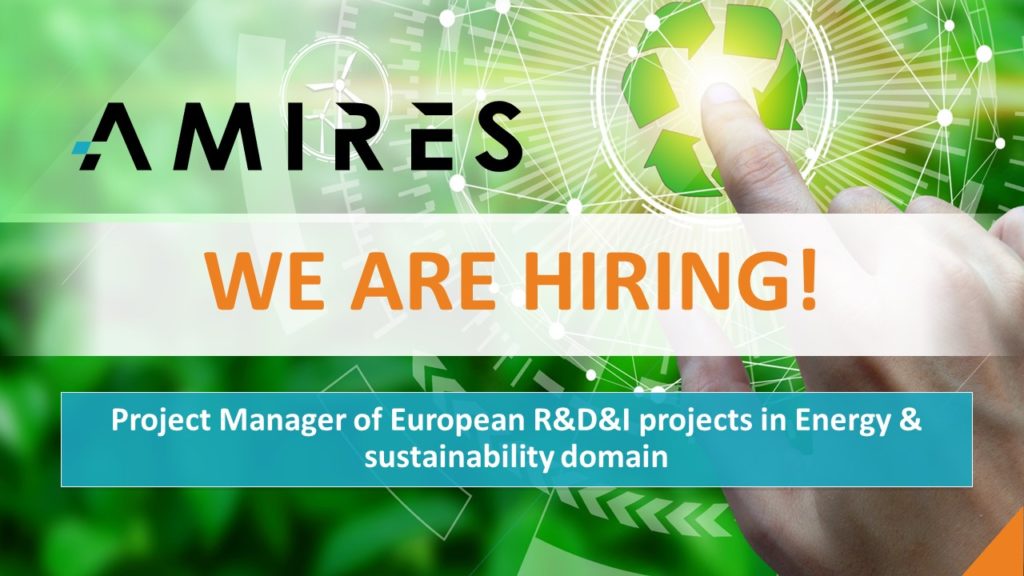
PhotonHub Press Release on demo and experience centers
|
|
![training picture 3[1]-720x405.jpg](https://my.incomaker.com/content/files/6bc73631-0f0a-11ec-ba23-47b235304af8.jpg) |
Boosting organ-on-chip technologies for lung cancer research: Tumor-LN-oC issues first press release
The project kicked off in May 2021 and is progressing steadily. In this context, it is our pleasure to share that the consortium just published its first press release. It contains more information on the launch of the project, as well as its objectives and expected impact, and is publicly available here: https://tumor-ln-oc.eu/wp-content/uploads/2021/09/Tumor-LN-oC-press-release.pdf
Tumor-LN-oC aims to offer a comprehensive solution for a robust, automated tumor-lymph node-on-chip platform that will connect primary surgically removed human tumors and LN tissue from the same cancer patient. This will allow to study the interaction of primary tumors with lymph nodes, identify their chemical signature, and offer personalized treatment relying on molecular characterization of lymph node metastasizing cells. Thereby, the project will significantly advance the fields of microfluidics, cell biology, cancer biology, physics, and computer programming and software development.
For more information, we invite you to visit the project website and encourage to use the contact form to get in touch with us – we’re looking forward to seeing you over at https://tumor-ln-oc.eu/ !
|
|
Women in Flexible and wearable electronics – SMARTEES project
Our AMIwomen working on Flexible and Wearable Electronics proudly present the SmartEEs2 Marketplace: a virtual catalogue for products, prototypes and technologies. You can find more information here: https://marketplace.smartees2.eu/
“No matter gender stereotypes are, we follow our interest that is thriven by innovation“
Enjoy watching!
Tumor-LN-oC website has been launched!
Tumor-LN-oC proposes the development and validation of a tumor-lymph node-on-chip platform that will connect primary surgically removed human tumors and lymph node tissue from the same lung cancer patient. The research and proposed technologies will provide added value to the EU cancer diagnostics and pharmaceutical industries. and lower the barriers associated with the application of OoC technology in disease diagnosis and therapy.
To learn more about the project team as well as the objectives and envisioned impact of Tumor-LN-oCs, you are welcome visit the project website which is now available here: https://tumor-ln-oc.eu/ There, you will also find the contact form to get in touch with the partners for additional information. The news section will be regularly updated with the latest news about the project´s progress.
We are looking forward to your visit!
 |
Discover the FlexFunction2Sustain Project Handbook!
We are pleased to announce officially the release of the FlexFunction2Sustain Project Handbook. It is an advertising material presenting the Open Innovation Test Bed (OITB) for nano-functionalisation technologies that enable sustainable and smart plastics and paper-based products.
The Handbook aims at highlighting the core competencies and unique products and services of the ecosystem and what benefits it brings to their customers. In order to present the capabilities of the OITB, the Handbook provides a quick overview on the facilities covering all major nano-surface processing techniques for flexible plastic and paper surfaces and membranes. In addition to that, six application examples are presented to demonstrate how technical services of the OITB can be combined to solve complex industrial problems involving smart nanotechnologies and materials.
Click HERE to download the Handbook and follow the project website to not miss any project progress!
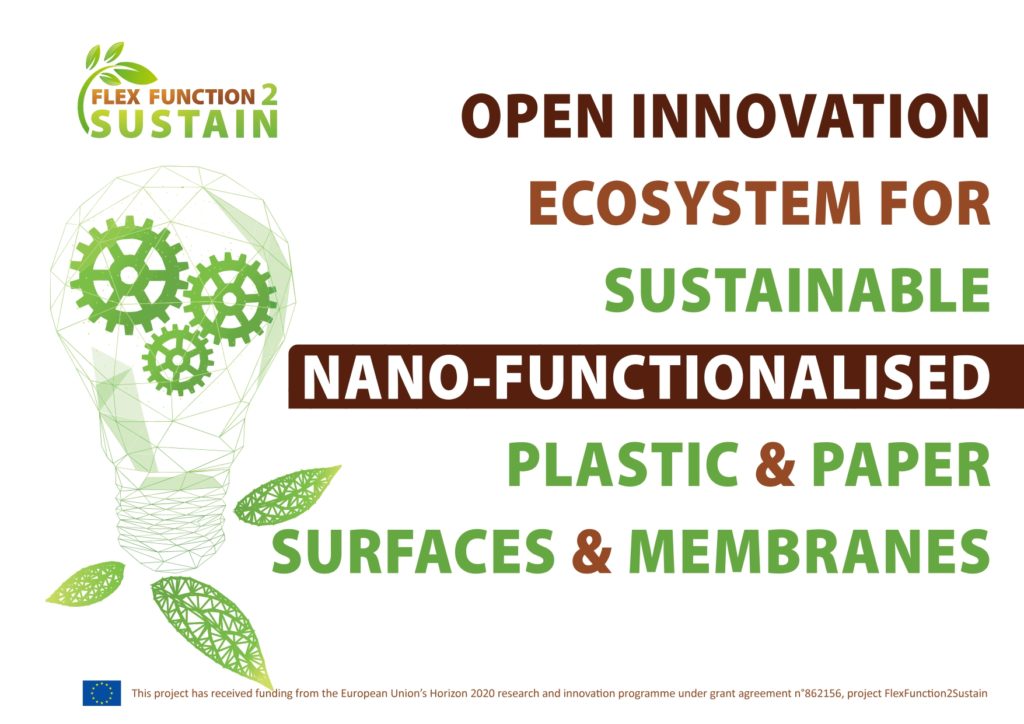
Meet our team: Lenka Bajarová
Lenka is Managing Director of AMIRES in the Czech Republic and in September 2021 she will be celebrating an important milestone, 10 years in the company. Lenka started to work for AMIRES in 2011 shortly before the Czech branch of the company was founded and since then, she has been responsible for overseeing and managing its operations.
Before joining AMIRES Lenka gained her experience in European Union’s Framework Programme for R&D as a National Contact Point for several FP7 priorities. She was working in this position for 5 years and was also a Deputy Head of the Department National Information Centre for European Research, co-leading team of Czech FP7 NCPs. During the Czech Presidency of the Council of the European Union in 2009 she was actively involved in the preparation of two conferences – EUFORDIA 2009 (impact assessment of research and development) and EuroNanoForum 2009.
In AMIRES, during the last 10 years, Lenka was personally involved as Project and Dissemination Manager in many FP7 and H2020 projects such as AMBASSADOR (Autonomous Management System Developed for Building and District Levels), PI-SCALE (Bringing flexible organic electronics to pilot innovation scale), SABINA (Smart bi-directional multi energy gateway) or currently Switch2Save (Lightweight switchable smart solutions for energy saving large windows and glass facades). At the same time, she has been overseeing management activities in other projects with AMIRES involvement. Building on this broad experience, she has contributed to the set-up of internal management procedures for EU projects supported by the company and to the transfer of this knowledge and internal standards to new colleagues. Lenka has been also involved in proposal preparation at this moment especially in the Horizon Europe Widening topics.
About 10 years in AMIRES Lenka says: “It is amazing to see, how the company has grown during the last 10 years, both in scope of the AMIRES team itself (raising from 2 team members at the beginning to 18 employees currently) as well as with the portfolio of the services we are ready to provide to our clients. I am very happy I accepted the challenge Rudolf (our CEO) gave me at the beginning and that I has been able to contribute to this amazing adventure. I had the opportunity to work in different research and innovation topics with people with different background (scientific, industrial, business) and I learned a lot (both professionally and personally) thanks to that. It is great to be part of the AMIRES family that I hope will continue to grow in the 10 years ahead of us.”
Apart from the AMIRES family, Lenka is dedicated also to her own family, to which she currently dedicates all her free time.
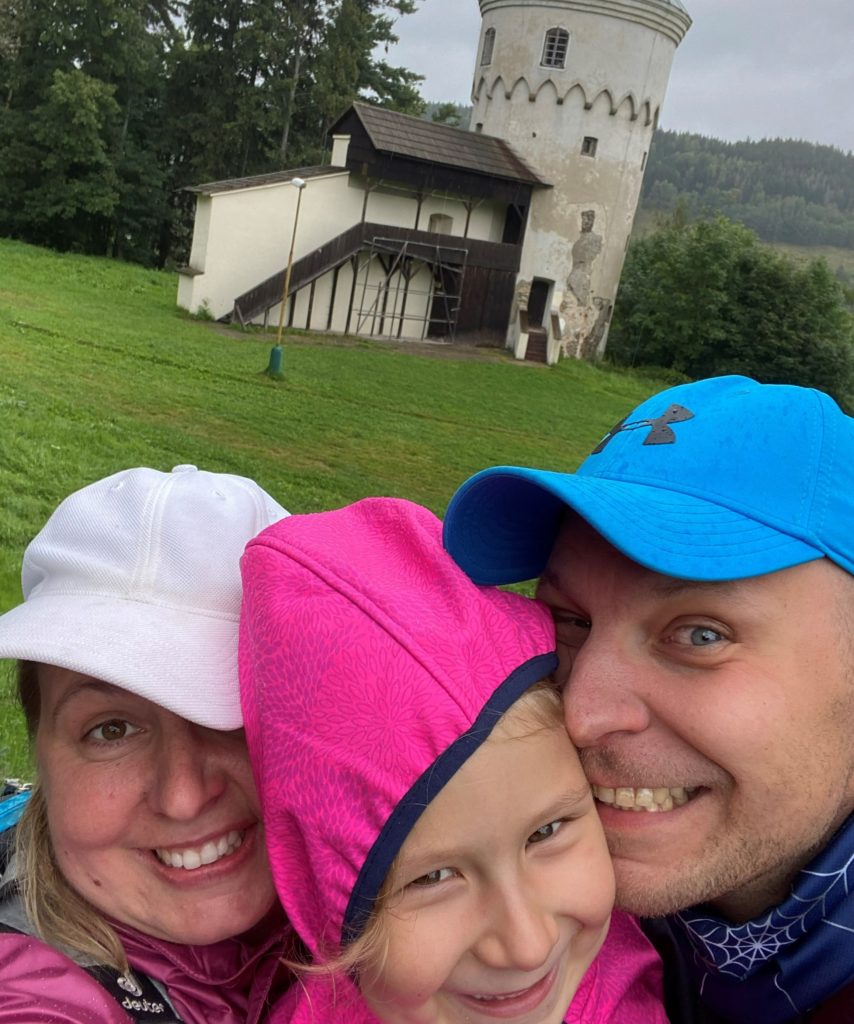
Internship at AMIRES
Thanks to cooperation with IAESTE that is an international, non-governmental, non-profit organization that brings together students and academics around the world and strives for the professional and personal development of students and young graduates we were happy to welcome during this summer our intern Erik who arrived from Norway. Within six weeks Erik was a great help while working on different tasks related to our projects. Erik is young talented focus-oriented person which we believe will be a great colleague and great employee for any company in a future.
Here is what he says about his internship:
“I am Erik Møller Steen, this year’s summer intern at AMIRES, and I study for a Master of Science in nanotechnology with a specialization in bionanotechnology at the Norwegian University of Science and Technology. The background for my choice of studies is an interest in science and technology, and a wish to study a field at the scientific forefront with great potential. This has given me a broad scientific background, but through my studies I have also had courses in project management and finance that made me realize their importance in several aspects of getting research out of the laboratories and to the market and real-world applications. I wanted to explore this further and how it is done in practice. AMIRES is involved in several aspects of research projects and innovation they are highly relevant in that regard, which is why I applied for an internship at AMIRES through IAESTE, an organization that coordinates internships for students throughout the world.
That is a choice I don’t regret! Here I got the possibility and trust to contribute to several aspects of project management previously unknown to me, giving me the opportunity to learn and gain new experiences. Through my various tasks I have worked with projects highly relevant to my field of study and gotten insight into how research is developed into innovative products through cooperation between universities, research institutes and SMEs. By help and guidance from great colleagues I have contributed to the day-to-day organization of projects, market research and reporting, and thus feel that my work is useful and valued.
The diversity of tasks has given me a range of experiences that are truly valuable, and I am certain they will be useful in my future career. My colleagues at AMIRES have done a great job welcoming me, and the international and open environment gave me a wonderful summer in Prague. Thank you, I hope we´ll meet again!”
We would like to thank Erik once again and we hope to meet him in the future. Good luck Erik!

Open call: Equality platform for the energy sector
On the 17th August the European Commission (EC) launched a call for action to stakeholders in the energy sector who would be interested to become members of a new platform on equality in the energy sector. The “Equality platform for the energy sector” will be established in October, therefore the European Commission calls on organizations, governments, private sector, universities and civil society to join. With this platform, the Commission aims to bring together energy stakeholders in their commitment towards equality and offer a forum to discuss and exchange good practices for diverse and inclusive workplaces.
The European Commissioner for Energy, Kadri Simson will officially launch the platform at the European Union Sustainable Energy Week (EUSEW) on 25th October 2021.
Registration to the EUSEW will open on 7th September 2021.
The Commission is asking for applications for membership from any stakeholder in the EU energy sector that:
- has taken action to improve equality in their area of activity or business
- wishes to share experiences and be at the forefront of change in the energy sector
- wants to create innovative approaches and develop inclusive and diverse environments that support progress
To join, applicants should send an e-mail to ENER-EQUALITY@ec.europa.eu which contain:
- the e-mail subject should be “Equality platform – reply to the call to action”
- the body of the email should include a description of the actions implemented to promote equality in the organisation’s activities
- the applicant should include information showing that those actions are SMART – Specific, Measurable, Achievable, Realistic and Time-bound.
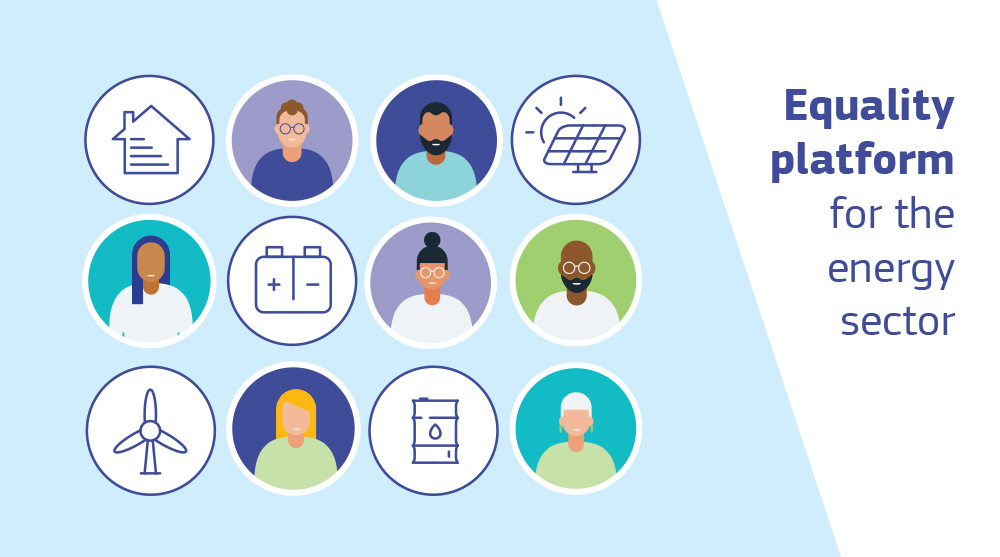
Save the date for European Innovation Council Summit
The event will be opened by European Commissioner Mariya Gabriel, the event will be filled with inspiring keynotes, workshops, pitching sessions, prestigious the European Innovation Council (EIC) prizes including the Women Innovators Prize. Moreover, the EIC Forum will be officially launched.
The Summit will attract high-growth European start-ups and innovators, in particular SMEs, researchers, corporates as well as potential investors and venture capitalists. It will provide a unique platform for all the participants to network and make business contacts.
The core programme of the event will focus on the EIC (Startup to Scaleup), ecosystem policy and emerging technologies. Startups, innovative researchers and others can find out about future funding opportunities from the EIC.
More information will follow.
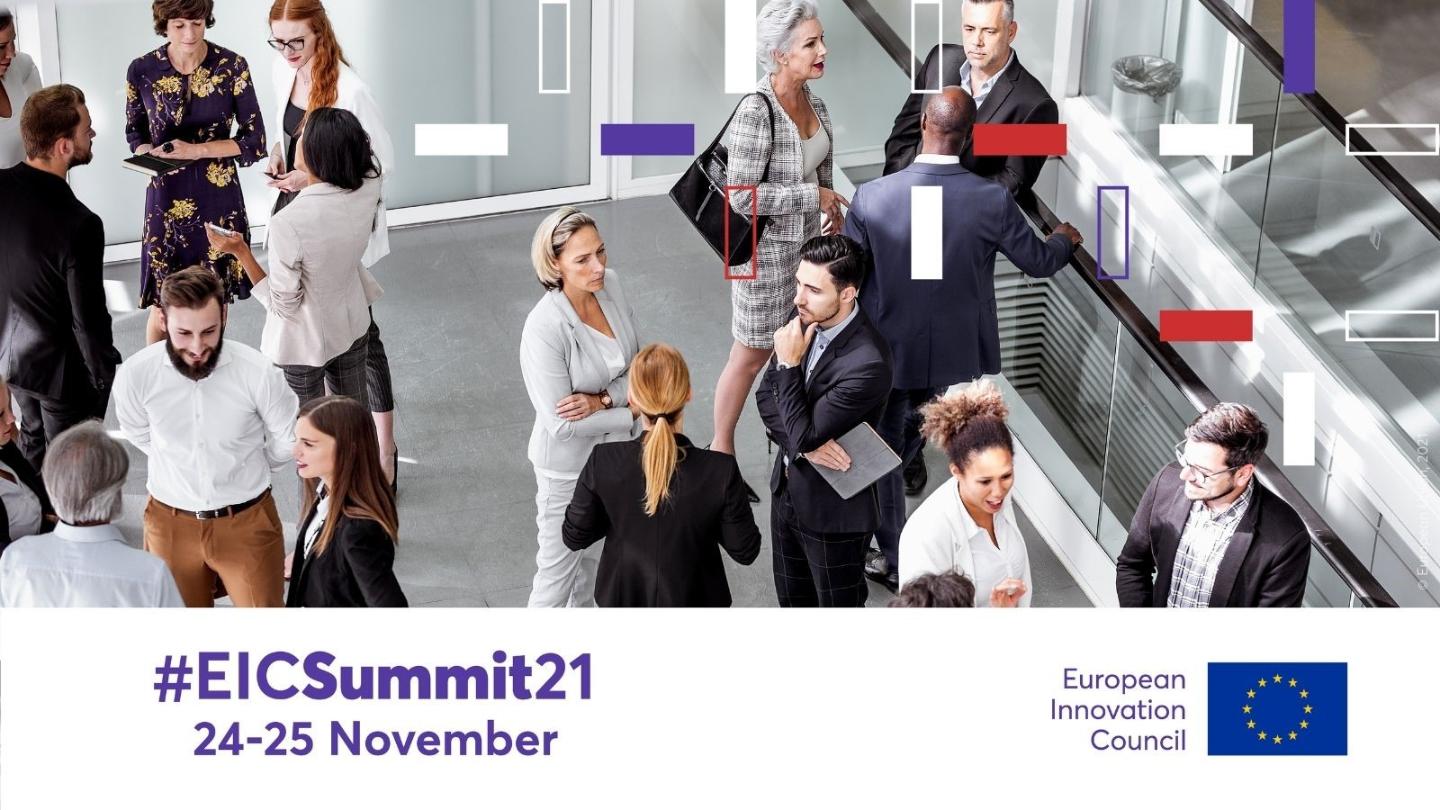 |
The European Commission launched call for expression of interest for working group on offshore renewable energies
Following on from last year’s Commission Strategy for Offshore Renewable Energy, the aim of the working group will be to help contribute to reaching the EU’s offshore renewable energy ambitions and to define the challenges which the sector faces together with implementation bottlenecks for reaching the 2030 and 2050 goals.
Application form is available HERE.
|
|
FlexFunction2Sustain releases its Catalogue of Physicochemical and Functional Characterisation Services
Find out the Catalogue of Physicochemical and Functional Characterisation Services HERE.
|
|
The European Commission published first Annotations for the Horizon Europe model grant agreement
The document is available HERE.
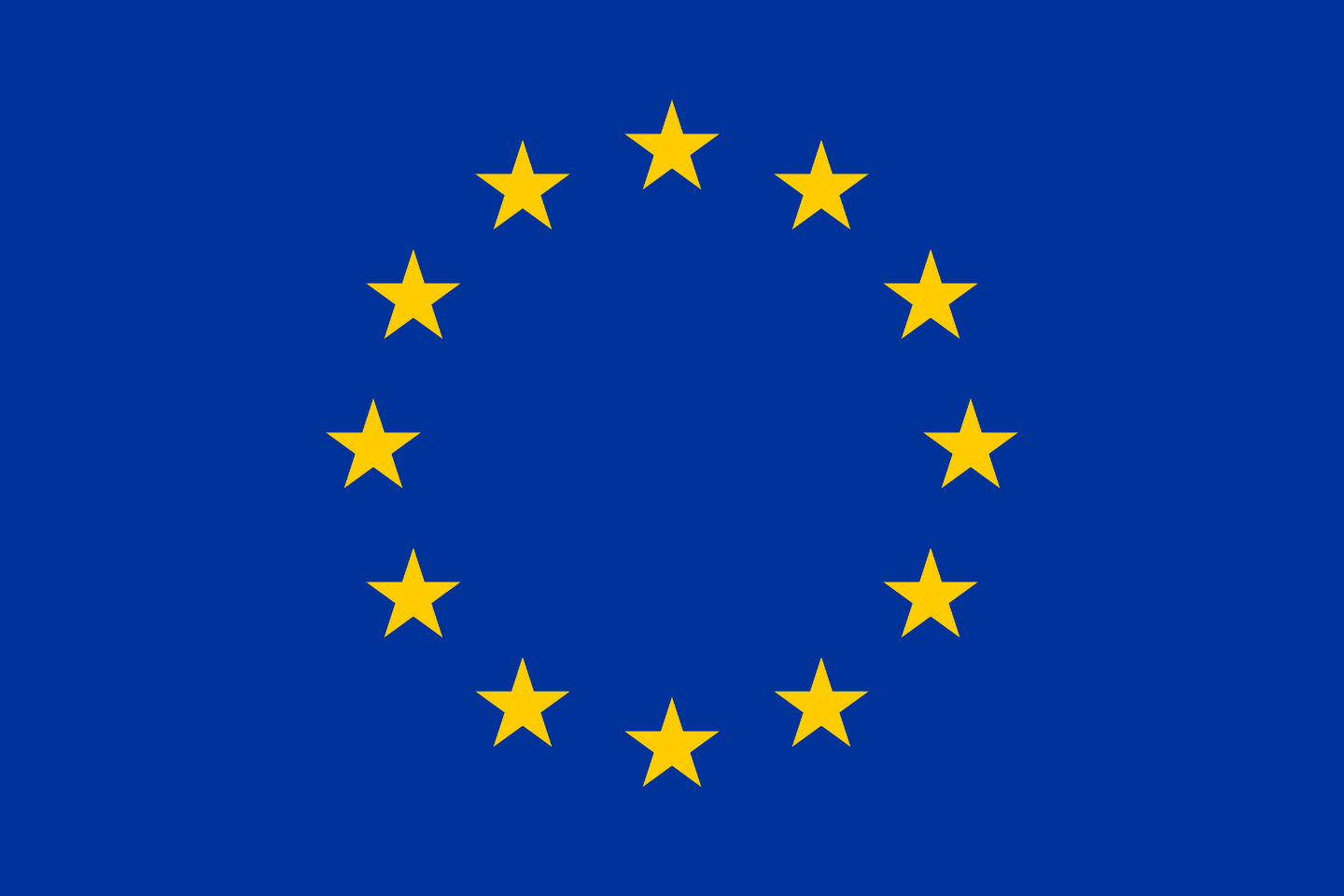 |
ComBioTES: back on track!
|
|
|
|
The project’s website is still in construction, but you can already find more information on the preliminary website. In the coming months, the first progress and results will be shared on the newly created website and on social media: see you there!
Switzerland will be treated as a non-associated third country in Horizon Europe
The Parliament has already approved CHF 6.15 billion in funding for Swiss participation in the Horizon package, as well as the possibility of direct funding for researchers in Switzerland.
For all calls in 2021 for which researchers and innovators from Switzerland have no possibilities to make submissions or evaluations, SERI is preparing proposals for suitable transitional measures as part of the federal credit and budget process.
For more information, click HERE.
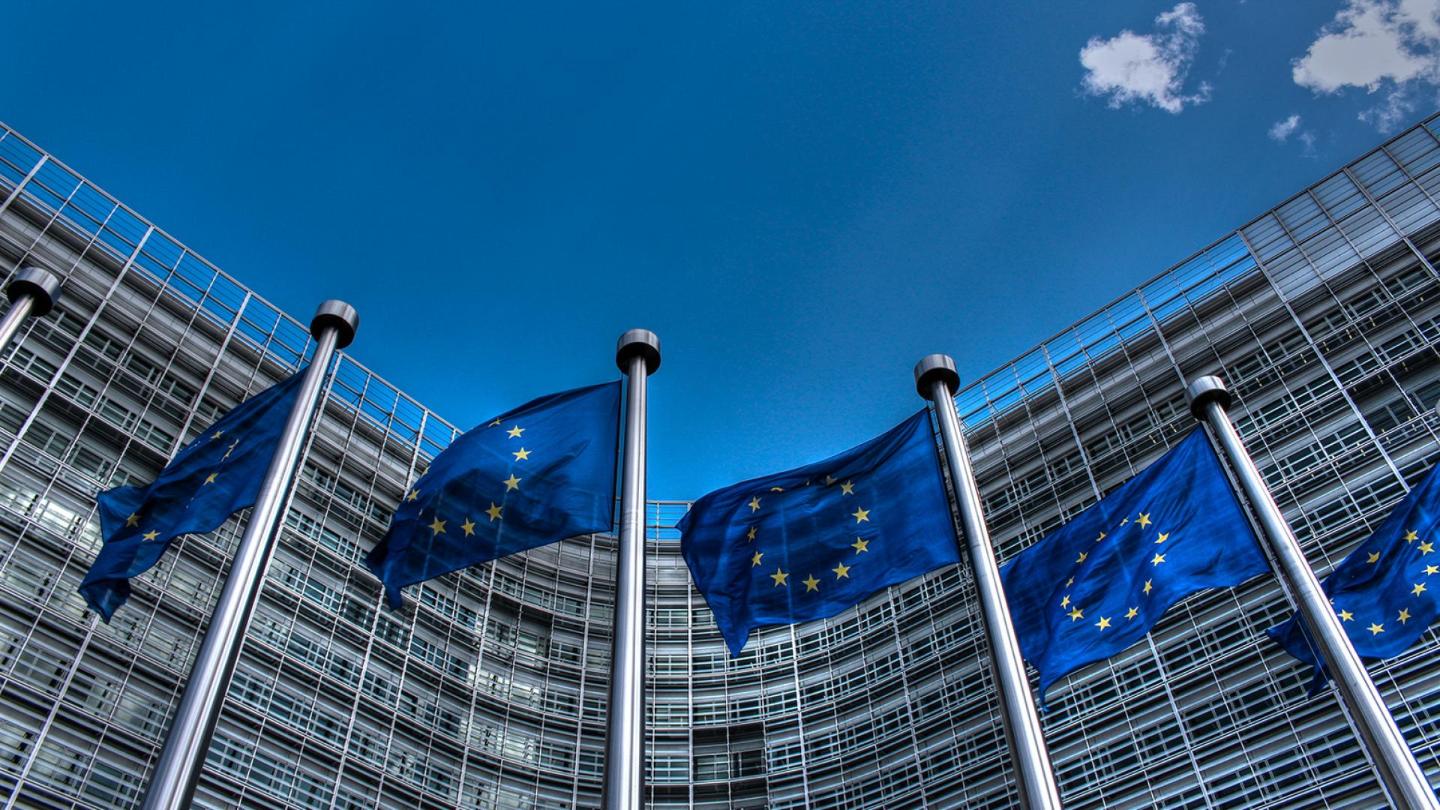 |
The European Research Council’s plans for 2022
On the 14th of July, 2021 the work programme established by ERC Scientific Council for the coming year was adopted by the European Commission, therefore, thanks to this funding 8,000 jobs for post-doctoral fellow, PhD students and other research staff will be created in ERC grantees’ teams.
Here are few highlights from the plan:
- Synergy Grants – support a small group of two to four principal investigators to jointly address ambitious research problems that could not be addressed by the individual researchers and their teams working alone.
- Four Proof of Concept funding rounds will take place under this work programme
- Public engagement with Research Award. The awards will recognize three ERC grantees, with a prize of €10,000 each, in the three categories: “Involve” for citizen science, “Inspire” for public outreach, and “Influence” for media and policy. The competition is expected to open on 5 October 2021.
- Gender equality plans at host institutions. he institutions to host ERC grantees must have a gender equality plan or an equivalent strategic document in place at the time of the signing of the grant and for the duration of the project.
For the whole article, visit The European Research Council and to read the plan click HERE.
|
|
AMIRES publishes GENDER Equality manifesto
European Commission, UN, scientists and stakeholders around the world have one same goal: reach gender equality. AMIRES shares the same vision and interest to reach gender equality, within the company and through the organisations with which collaborates.
AMIRES believes that a successful team is based on diversity and acknowledging the importance of a multidisciplinary approach. AMIRES is as well an example of social and cultural diversity. Therefore, we have learned that tackling situations from different angles provides more efficient and effective solutions thanks to a multidisciplinary and enriched vision. Read our Gender manifesto, which is signed by not only our directors, but also by our employees, showing their commitment. Gender equality is possible to be reached together; because we are in this together.
The Manifesto is available HERE.
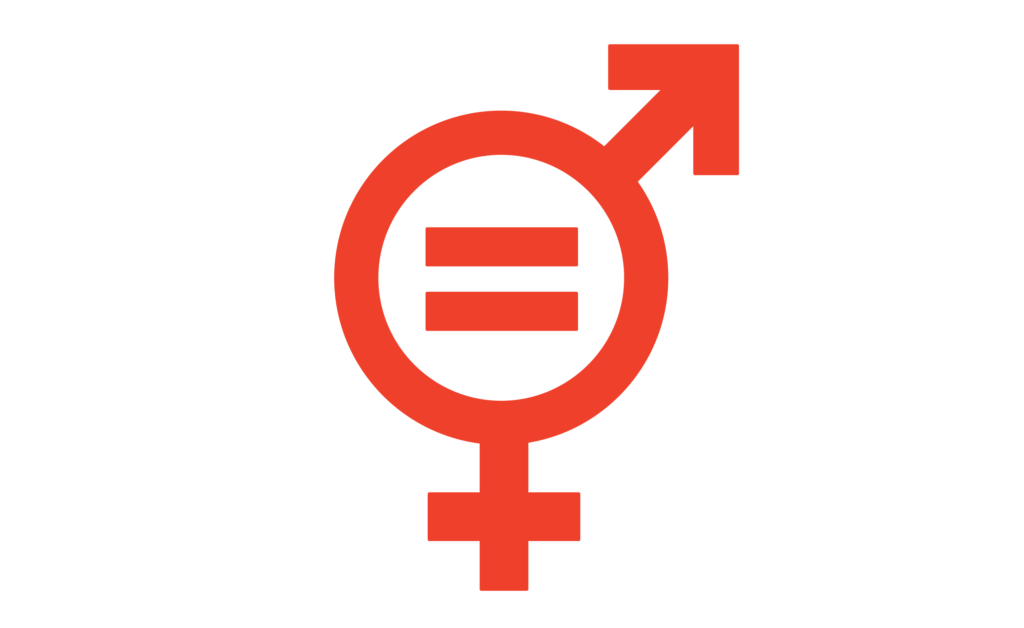
Discover the steps of the construction of the MOSAIC prototype!
Our consortium, made of European partners from 6 countries, has regularly published news about the construction site in Spain. To make the process clearer, we have created this explanatory video that sums up the important milestones along the progress of the construction, as well as the roles of each partner and the steps ahead. It will be updated with the remaining steps, once the project is completed in November.
Enjoy watching !
More on https://mosaic-h2020.eu/
Meet our team: Michael ten Donkelaar
He has a degree in Environmental Science from Wageningen University in the Netherlands and has 20 years of consulting and research experience in different positions in the Czech Republic and in the Netherlands. He is an experienced project manager of EU funded R&D projects in the field of energy conservation, renewable energy and sustainable transport.
In AMIRES, Michael is managing the RoLA-FLEX project (addressing Innovative manufacturing processes for flexible photovoltaics and wearable displays), the BOOSTER project (Boost Of Organic Solar Technology for European Radiance) and is responsible for project proposal preparation.
About his work he said:
“The scope of work is really broad, and you get involved in many innovative R&D projects focusing on cutting-edge technologies. The team spirit at AMIRES is excellent, focused on getting work done but always with time for informal gatherings “
After work Michael likes to spend time with his family, go for a cycling tour or read a good book.
|
|
PANCAIM: Six months completed!
More information are available at www.pancaim.eu.
|
|
News from MOSAIC: receiver placed in the oven!
The MOSAIC project has reached a new important milestone: the first access of the receiver to the oven for heating-up procedure testing. On 15th June, the prototype site was ready for this manoeuvre, which allows the receiver to be placed inside the oven for heating process or to prevent high temperature losses from the receiver (during night, for example).
The complete manoeuvre in this specific installation consists of the following steps:
- The receiver is placed by means of the tracking system control in a vertical position, just in front of the oven. The upper crossbars of the receiver are laid on a specific retractable support.
- This support moves to the oven, placing the receiver in its right position.
- The doors of the oven close. The isolation parts of the receiver at its ends fit with the oven doors, so the receiver is kept in an isolated space, where the heating-up process can take place.
|
|
When the receiver is needed to move from the oven to the workspace, the inverse manoeuvre is carried out.
See the whole process in this video (accelerated 20 times):
From now onwards, the prototype can be tested with HTF preheating at intermediate temperatures, a previous step before the solar field is built and the higher temperatures are reached.
For more information visit MOSAIC website.
The European Innovation Council (EIC) Accelerator: Over 2000 start-ups and SMEs submissions, Al platform with new functionalities
The very large majority of the applicants (663) requested blended finance (grant combined with equity investment), while 138 asked for grants without equity. 375 companies applied for the Open call to fund breakthrough innovations in any field of technology and application, while the majority (426) applied for support to develop breakthrough innovations in Strategic Digital and Health technologies (223) or to address the Green Deal challenge (203).
Proposals are now being evaluated by independent experts and the successful companies will be invited to pitch in front of a Jury of investors and business experts during September with results expected in October.
New applicants can submit their application at any time, with no cut-offs, using the EIC Al platform. As per the previous official statement, the Al-based platform needed several improvements which are now done and the platform has new functionalities to help with preparing the application.
For the whole statement, visit the EIC news.
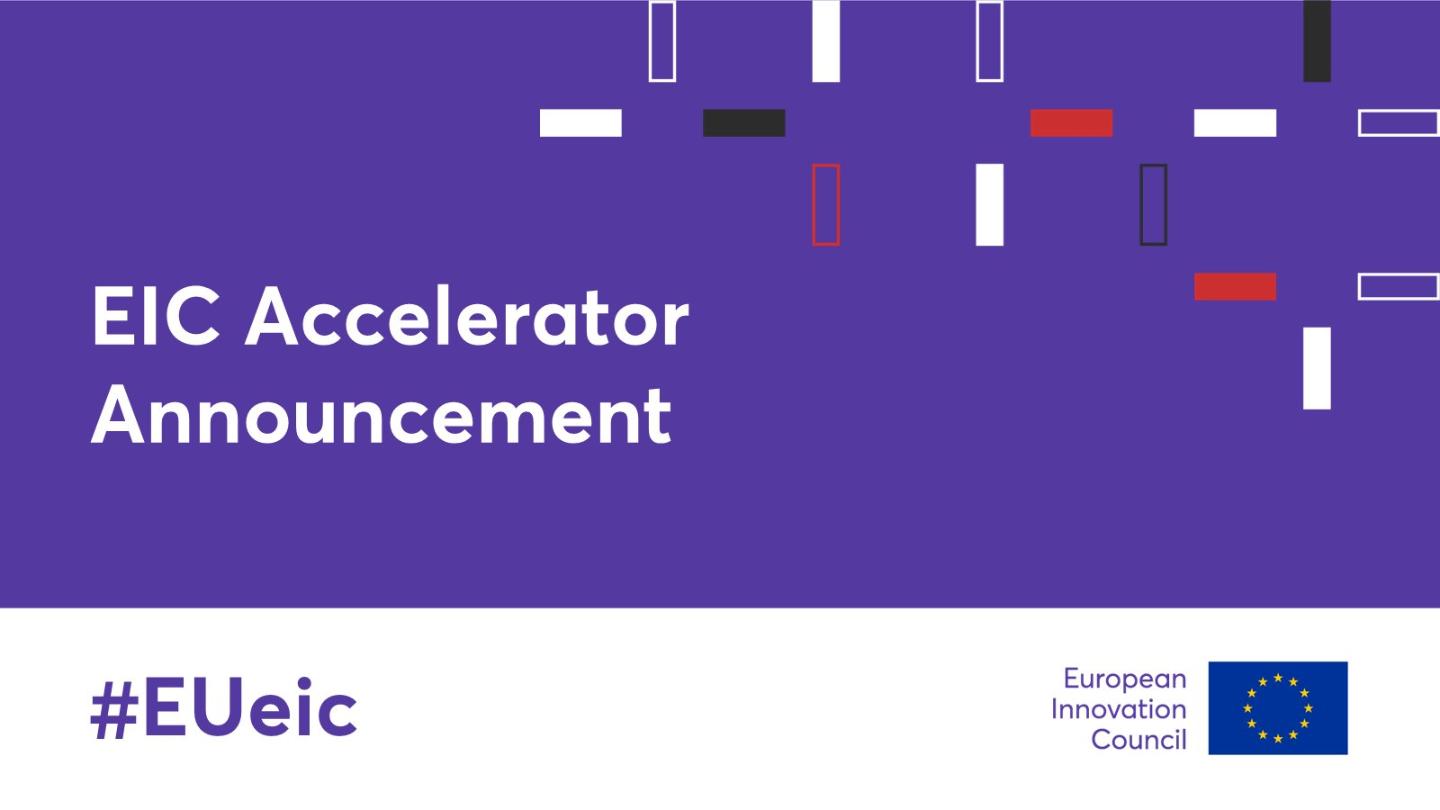 |
The European Institute of Innovation and Technology launches its Strategic Innovation Agenda for 2021-2027
The EIT’s new strategy was kicked off with a hybrid launch event online and live from the International Iberian Institute of Nanotechnology in Braga, Portugal and organised under the auspices of the Portuguese Presidency of the Council.
Following the introductory policy session, four thematic sessions were held each focusing on the key areas of the EIT’s new strategy: strengthening the EIT Community’s impact, increasing the entrepreneurial and innovation capacity of higher education institutions, strengthening the EIT’s regional development efforts, through the Regional Innovation Scheme, and setting up two innovation communities dedicated to the cultural and creative sectors and industries (2022) and to water, marine and maritime sectors and ecosystems (2026).
For the full press release click here.
|
|
The Pathfinder Challenge calls worth €132 million are open
The European Innovation Council (EIC) Pathfinder Challenges built on cutting-edge directions in science and technology to create new market opportunities. For each Challenge, the EIC will support a carefully crafted portfolio of projects that jointly explore different perspectives, competing approaches or complementary aspects of the Challenge. With its five Pathfinder Challenges for the 2021 call, it calls for high-risk/high-gain research and development, venturing into new interdisciplinary areas.
List of 5 Challenges:
- Awareness inside
- Tools to measure and stimulate activity in brain tissue
- Emerging technologies in cell and gene therapy (CGT)
- Novel routes to green hydrogen production
- Engineered living materials
The deadline for submission of proposals is on 27 October 2021.
For more information visit the EIC News.
|
|
PHABULOus: Takeaways from Workshop on Advances in design, fabrication and applications of free-form micro-optics and new membership in Swissphotonics
PHABULOuS and PHENOmenon came together to organize a joint workshop on advances in design, fabrication and applications of free-form micro-optics. The two day event gathered 100 registered participants and focused on available technologies for production of polymer and hybrid micro-optics, and the advances of direct laser writing, two-photon polymerization and microreplication technologies for industrial production of custom and freeform optical surfaces. If you missed the workshop and you would like to learn more, the video recordings can be accesses on the PHABULOuS YouTube channel.
PHABULOuS membership in Swissphotonics
In addition to becoming a part of EPIC-European Photonics Industry Consortium, the PHABULOuS Pilot Line Association has recently extended its membership to include Swissphotonics. As collaborations grow we see great potential and interest in the services the PHABULOuS project can offer in the field of free-form micro-optics!
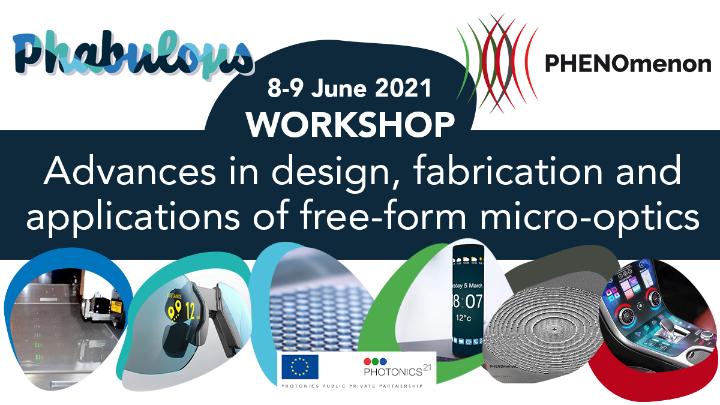
The halfway is behind, but the next halfway is still ahead, wish us luck!
On 8 July, the ORGANTRANS team has met to sum up the achievements for the last 18 months and to plan future actions in the ORGANTRANS project. The main building blocks of this ambitious project have already been completed, such as spheroids production, hydrogel stabilization, bioprinting, and construct formation. Currently, partners work on optimizing and combining together these building blocks into one standardized process. Altogether, they will allow assembling a novel 3D bioengineered liver construct towards transplantation for regenerative medicine.
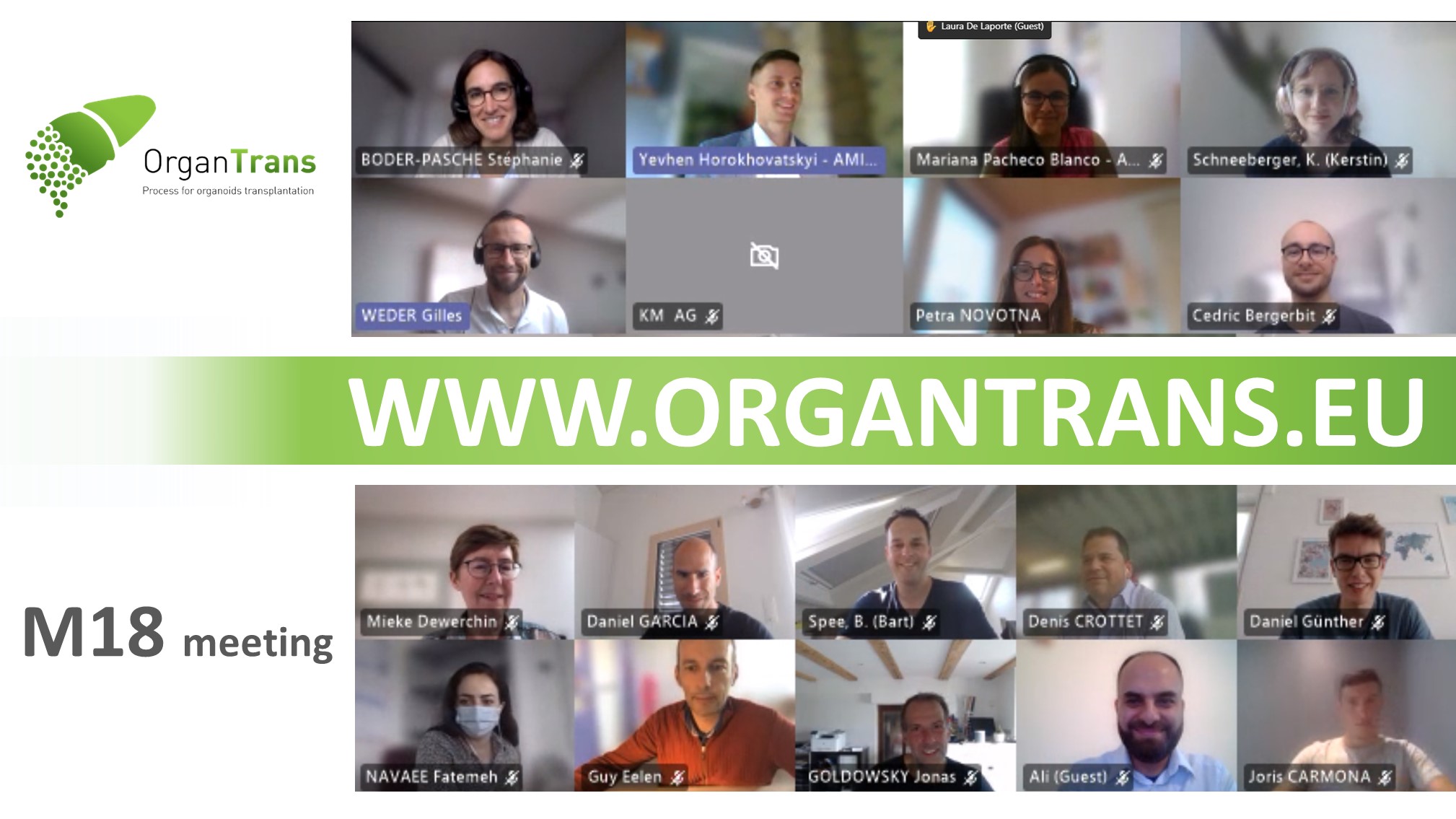
Horizon Europe Work Programmes are published!
The European Commission has adopted the main Work Programmes of Horizon Europe for the period 2021-2022 which will receive a total of €14.7 billion in funding.
Around €5.8 billion in total – will be invested in research and innovation to support the European Green Deal and the Union’s commitment to make the EU the world’s first climate-neutral continent by 2050.
Europe’s Digital Decade – the development of core digital technologies will be supported with around €4 billion over 2021-2022.
Around €1.9 billion in total will go towards helping repair the immediate economic and social damage brought about by the coronavirus pandemic. In line with NextGenerationEU the funding will contribute to building a post-coronavirus Europe that is not only greener and more digital but also more resilient for the current and forthcoming challenges.
The Horizon Europe 2021-2022 work programmes:
- Marie Skłodowska-Curie Actions
- Research Infrastructures
- Health
- Culture, Creativity and Inclusive Society
- Civil Security for Society
- Digital, Industry and Space
- Climate, Energy and Mobility
- Food, Bioeconomy, Natural Resources, Agriculture and Environment
- European Innovation Ecosystems
- Widening Participation and Strengthening the European Research Area
- Missions
All Work Programmes are available on the Funding & Tenders Portal.
Commission and industry invest €22 billion in new European Partnerships to deliver solutions to tackle major societal challenges
The European Commission launched 11 new European Partnerships together with industry, to boost investments in research and innovation and to overcome major climate and sustainability challenges, towards making Europe the first climate neutral economy and delivering on the European Green Deal. The Partnership will also deliver on the EU’s digital ambitions for the next decade, Europe’s Digital Decade. They will receive over €8 billion from Horizon Europe. The total commitments, including those from private partners and from Member States, amount to around €22 billion.
The eleven European Partnerships are:
- European Partnership for the European Open Science Cloud.
- European Partnership for Artificial Intelligence, Data and Robotics.
- European Partnership for Photonics (light-based technologies).
- European Partnership for Clean Steel – Low Carbon Steelmaking.
- European Partnership Made in Europe.
- European Partnership Processes4Planet.
- European Partnership for People-centric Sustainable Built Environment (Built4People).
- European Partnership towards Zero-emission Road Transport (2Zero).
- European Partnership for Connected, Cooperative and Automated Mobility.
- European Partnership for Batteries: Towards a competitive European industrial battery value chain.
- European Partnership for Zero Emission Waterborne Transport.
The Commission adopted on the 14 June 2021 Memoranda of Understanding to launch the Partnerships, which will start their operations immediately. A signature ceremony for the Memoranda of Understanding will take place at the European Research and Innovation Days on the 23 June.
For more information visit The European Commission Press corner.
European Research and Innovation Days
European Research and Innovation Days is the European Commission’s annual flagship Research and Innovation event which brings together policymakers, researchers, entrepreneurs and the public to debate and shape the future of research and innovation in Europe and beyond.
The event will take place online on the 23 and 24 June 2021.
This year marks the start of Horizon Europe, the most ambitious EU research and innovation programme ever and will be a decisive moment to strengthen the European Research Area.
The event is all about collaboration: bringing together individuals and experts from all areas to build connections and ignite a brighter future.
For more information and the programme click here.
MedTech industry investments analysis report
Innovation success and product placement into the market of any industry requires not only technical excellence but also access to capital. The capital sources usually start with own resources, family and friends. However, this may not be enough and start-ups or spin-offs usually search for external capital, which is crucial to bring the ideas and technologies further. Who are the main organisations investing in Medical Devices, Health Care, Health Diagnostics, Nanotechnology, Medical or Life Sciences in Europe?
At AMIRES, we mapped the investors in those fields and we share the summary on this analysis here. Furthermore, if you are interested in obtaining more detailed information on this analysis or to request similar analysis for a different domain / area or further segmentation, contact us.
The analysis prepared by us is available here.
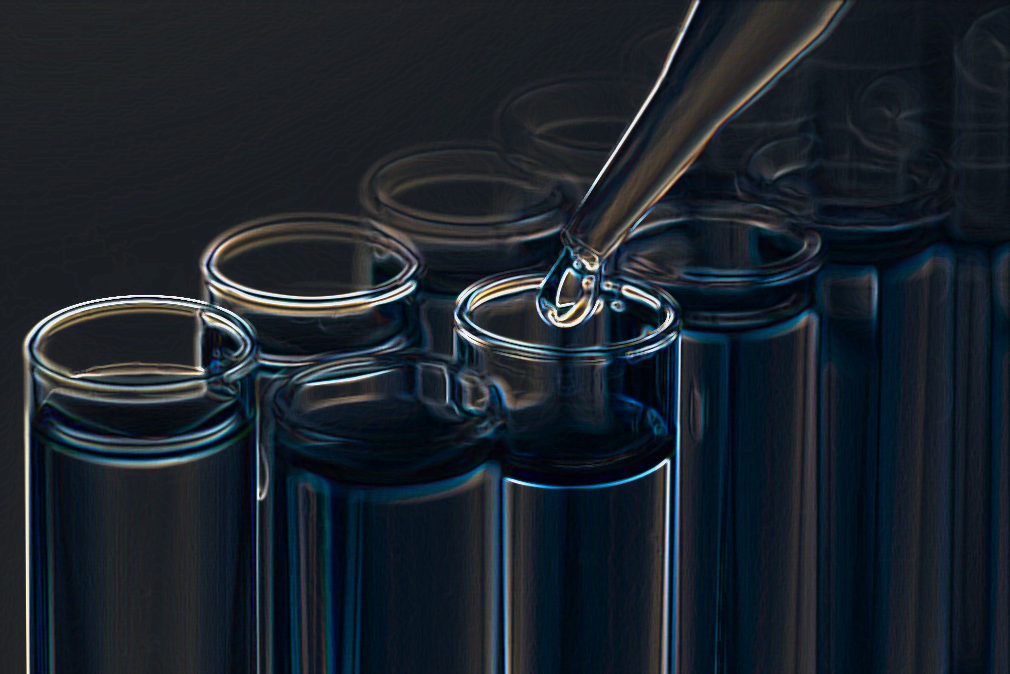
Save the dates for Horizon Europe Info Days 2021
The European Commission announced on the 1st June that the first edition of the Horizon Europe Info Days will take place from 28th June to 9th July 2021.
The event will give the opportunity to prospective applicants and other stakeholders of EU research and innovation to get information and ask questions about news, main funding instruments and processes of Horizon Europe (HEU).
The Horizon Europe Info Days will address 9 themes, each featuring a programme of exclusive discussions and hands-on sessions, dedicated to a different cluster or part of the new programme.
Online events:
28.6.2021 – Infrastructures
29 -30.6. 2021 – Cluster 4 – Digital, industry & space
30.6.2021 – Cluster 3 – Civil security for society
1.7.2021 – Cluster 2 – Culture, creativity & inclusive society
1.7.2021 – The Marie Skłodowska-Curie Actions: What is new under Horizon Europe
2.7.2021 – Cluster 1 – Health
5 – 6.7.2021 – Cluster 5 – Climate, energy & mobility
7 – 8.7.2021 – Cluster 6 – Food, bioeconomy, natural resources, agriculture & environment
9.7.2021 – European Research Area (ERA) & Widening
The Horizon Europe info-days will be open for participation without prior registration.
For more information and practical details, visit the event website.
News from the European Innovation Council (EIC): Women Leadership Programme for innovative entrepreneurs and researchers & Statement on Gender & Diversity in EIC
The European Commission has launched the Women Leadership Programme to provide a dedicated programme of mentoring, skills enhancement and networking for women entrepreneurs and researchers in EIC supported projects.
Furthermore the EIC has launched mentoring and coaching programme for aspiring women researchers and innovators: the EIC Women Leadership Programme (WLP) where women can apply as of 3 June, 2021. 50 of them will get the training and get a chance to work with personal mentors to define and follow their business strategies. This programme will be extended to projects selected under the new WomenTechEU scheme.
In addition to that, on the 3 June, 2021 the European Innovation Pilot Advisory Board has published a Statement on Gender and Diversity which is urging the EIC and other innovation actors to take actions and achieve balanced representation of women and men along the entire innovation chain. It was pointed out that the EIC already made progress by increasing the number of women-led companies awarded with EIC Accelerator funding from 8% to 29%. Moreover, the women represent 50% of the jury members that recommend EIC funding and 42% of the business coaches that advise and mentor EIC supported start-ups.
To learn more visit European innovation Council / News.
Open call for proposals for Enterprise Europe Network for 2021 and beyond
The European Innovation Council and SME Executive Agency (EISMEA) opened the call for proposals to setup Enterprise Europe Network after 2022. The call is following the adoption of the Single Marker Programme (SMP).
The Network was launched in 2008 and since then played an important role in facilitating the access of European SMEs to the Single Market and third country markets. It is also providing growth-oriented, integrated business and innovation support services to help them compete.
The European Commission is looking for proposals for the next Network, as the current one is due to expire at the end of 2021, at first for the period from 1 January 2022 to 30 June 2025. The Network will be funded under the new Single Market Programme (SMP) which succeeds the COSME Programme.
The available budget of the call amounts to EUR 164,5 million and it is expected to contribute to the SMP objectives, improving the competitiveness and sustainability of SMEs in Europe and promoting entrepreneurship.
The deadline for submission of proposals is 11 August 2021 17:00 (Brussels time).
For more information visit EISMEA News, information how to apply, go to the EU Funding & Tenders Portal.
Promoting the huge potential of OITBs for EU competitiveness
On May 4th, the FlexFunction2Sustain, supported by the Safe-N-Medtech Open Innovation Test Bed (OITB), organised a public workshop with the core aim of promoting the OITB ecosystem to relevant stakeholders and Industry. The event gathered over 100 representatives of the most relevant participants in this ecosystem: industry, academia, research and technology organisations and business support actors. The workshop took place as a satellite event of the EuroNanoForum 2021, organised under the auspices of the Portuguese Presidency of the Council of the European Union.
In the opening session, Peter Dröll, Head of Prosperity Directorate at the European Commission DG RTD, highlighted the importance of the OITB as a key element in the EU ecosystem for research and innovation by providing integrated support to innovators at different stages of technological development. Dr. Rudolf Fryček, CEO of AMIRES, introduced the idea behind the EU Open Innovation Ecosystem, and how it can help industry to get their ideas realized to products.
The workshop helped creating a common understanding on how OITBs can make industries’ life easier. End-users’ talks where industrial stakeholders provided feedback on how the OITB are delivering their services and boosting innovation revealed the expectations of users towards an OITB. First and second generation OITBs presented their portfolio of services and added value to customers.
Find out the summary of the workshop here, watch the full recorded session here, and download the presentations here.
PANCAIM project has organised the story mapping workshop
On May 20-21st, the WP2, led by Collective Minds Radiology and the Hyve, hosted a story mapping workshop in Barcelona. Organizing this workshop was an important step in the process towards a successful PANCAIM project whose aim is to develop AI-assisted clinical applications that efficiently merge genomics and imaging phenomics to assist clinicians in each of the personalized medicine diagnostics areas (Prognostication, Prediction, Monitoring). To understand priorities and deployable releases of the final platform and also to achieve the user friendliness of the platform, the workshop gathered representatives from the PANCAIM consortium in each of the following groups: Data providers (data owner/uploader), Clinical expertise (data annotators), Repository users (researchers), AI developers and AI validators.
Join us at the workshop on “Advances in design, fabrication and applications of free-form micro-optics”
Two EU funded projects PHABULOuS and PHENOmenon have come together to organise a workshop to present the available technologies for production of polymer and hybrid micro-optics, and the advances of direct laser writing, two-photon polymerization and microreplication technologies for industrial production of custom and freeform optical surfaces. This two day event held on 8-9 June 2021, will present additional information on the progress and status of both projects, as well as provide an opportunity for further discussion and exchange between worldwide researchers.
For more information on the workshop or to register please click here.
Open call for applications for the selection of members of the EIC board
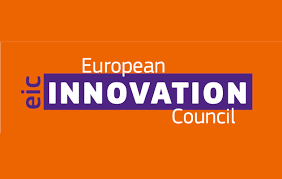
On 27 May, 2021, the European Innovation Council (EIC) launched a call for expression of interest for new EIC board members. The EIC funding worth over €1 billion aims to help scale up start-ups and small and medium-sized businesses that have the potential to achieve high impact. While over half of the funding is open to breakthrough innovations in any field, €495 million are earmarked for innovations that support the European Green Deal as well as digital and health technologies.
The EIC Board acts as the “voice of the innovator”, to ensure all EIC activities are innovator-centric and to promote the EIC as the investor of choice for researchers and innovators with visionary ideas.
The Board advises directly the European Commission, the EIC and European Innovation and SME Executive Agency (EISMEA, henceforth referred as ‘the Agency’) as the dedicated implementation structure, and interacts with a number of full time EIC Programme Managers with leading expertise in their fields. It also liaises with the EIC Fund, as the investment arm of the EIC, as well as with the European Research Council (ERC), the European Institute of Innovation and Technology (EIT) and other innovation programmes and initiatives.
EIC is looking for innovators – entrepreneurs, investors and venture capitalists, corporate leaders, researchers and academics with leading expertise in fields relating to future and emerging technologies, breakthrough and disruptive innovation, starting and scaling businesses, innovation ecosystem builders, and innovation experts. The Commission will select between 15 and 20 members with estimated start in September 2021.
The application deadline is 30 June, 2021.
More information available: EC News and European Innovation Council.
MedPhab launches platform for photonics-based medical devices ecosystem
MedPhab pilot-line launches its Community management platform (CMP) which includes a technical marketplace, the virtual catalogue of capabilities of the whole Photonics-based medical devices ecosystem. Although at this moment MedPhab partners technical services are visible, in the second half of 2021, non-MedPhab partners will be able to register their organisation and offering (prototypes, products and services).
This platform is a community building tool that allows lowering the barrier for photonics technologies adoption by companies interested in medical applications. Therefore, through CMP third parties interested in MedPhab services can submit their enquiries via the in-take form.
To learn more, register here for the Webinar on June 3, 2021, in which five MedPhab partners will speak about MedPhab, including Mariana Pacheco Blanco, MedPhab project manager and Programme manager at AMIRES who will present CMP.
Join OASIS’ interactive workshop June 10th, 2021
On June 10th project OASIS will host an interactive online workshop for companies and institutions looking to innovate their products/services with nanotechnology and advanced materials.
Participants will get to hear about what services OASIS can offer them, what are the conditions for applying a project in its opencall and what projects have already been successfully supported by OASIS.
The other half of the workshop will be dedicated to direct networking with providers of specific services and diving deeper into the technologies on offer.
You can register for the event HERE
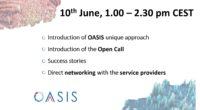
A new strategy for the European Commission’s international cooperation in research and innovation
On the 18th of May 2021 the European Commission adopted a Communication on its Global Approach to Research and Innovation. The aim is to take a leading role in supporting international research and innovation partnership, and to deliver innovative solutions to make our societies green, digital and healthy.
The strategic priority for the European Union (EU) is to bring together the best minds from around the world. However, the EU as well pointed out that there are still geopolitical tensions rising as well as the human rights and fundamental values are questioned. The response to all mentioned is to lead by example, promoting multilateralism, openness and reciprocity together by cooperation with the rest of the world. The new Horizon Europe framework program remains open to cooperation with third countries, now offering the opportunity to join for non-European countries that share European values and have a strong scientific profile.
Two main aims of the strategy are:
- it aims for a research and innovation environment that is based on rules and values, and it is also open by default, to help researchers and innovators around the world work together in multilateral partnerships and find solutions to global challenges
- It aims to ensure reciprocity and a level-playing field in international cooperation in research and innovation.
To achieve its goals, the EU will support researchers and their organizations to help accelerate sustainable development in low and middle-income countries as well with a “African initiative” under Horizon Europe. The European Commission highlight that Horizon Europe, the next EU research and innovation framework programme 2021-2027 will be the main key for implementation of this strategy.
To read an original article click HERE.
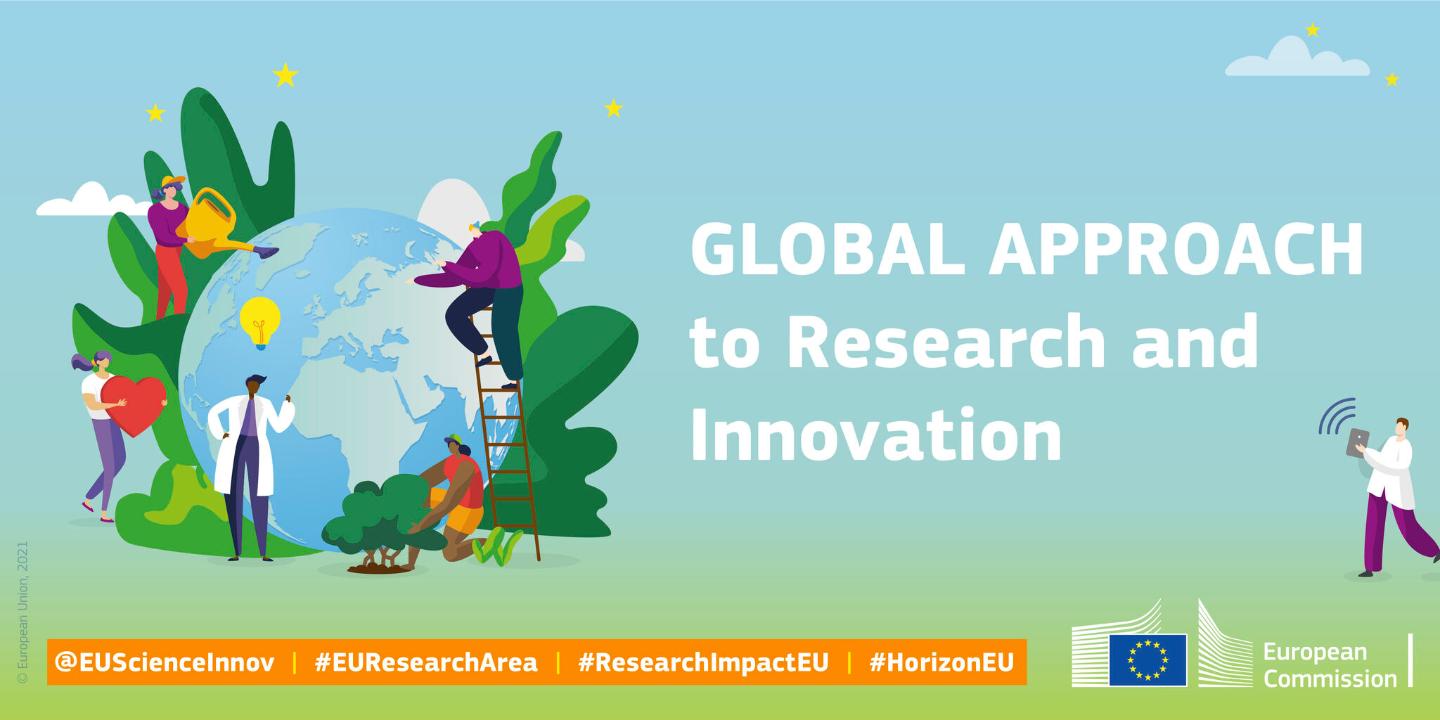
FRIENDSHIP: one year completed!
European Innovation Council postponed the proposals from 16th June until 6th October
Last week the EIC published on its twitter that they stopped new submissions from start-ups which were due on the 16th of June.
The official statement stated that they need to make several improvements to the Al-based platform which are expected to be introduced on 22nd June.
Before 16th June, the EIC has over 1,000 submissions to review. That is why it decided to stop new submissions for the first round of funding. Entrepreneurs who did not submit their pitches yet are left stranded as submissions closed without warning. Companies will now have to wait for reopening of the submission platform, with full proposal deadline on 6th October, to secure funding.
Based on the comments on official EIC twitter account, many people disagree with this decision and complain, because of the effort/budget investments done so far. One of the reasons is that start-up need a clear visibility of rules and timeline for funding.
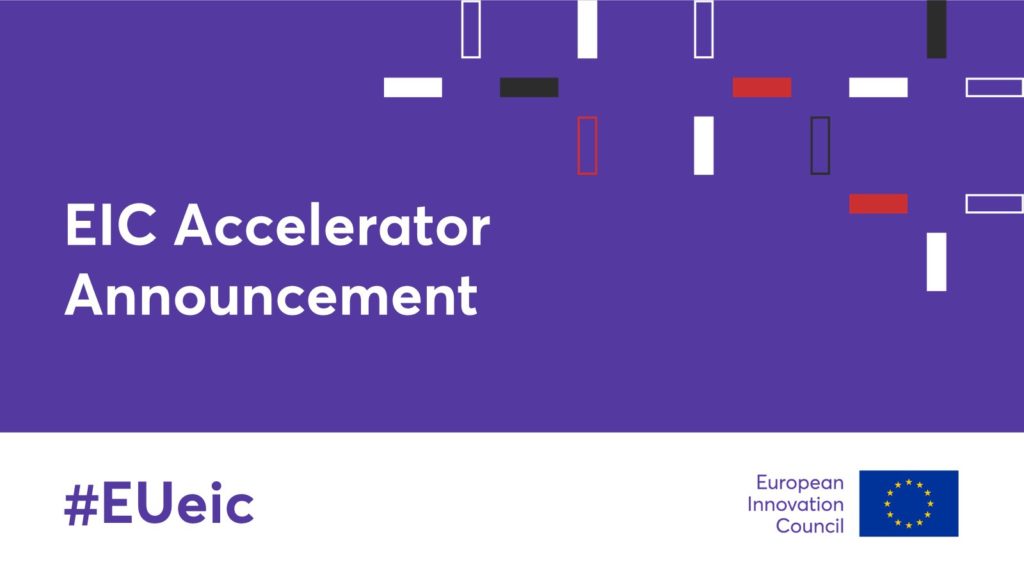
Tumor and Lymph Node on Chip breakthrough: Tumor-LN-oC
Tumor-LN-oC aims to offer a comprehensive solution for a robust, automated tumor-lymph node-on-chip platform that will connect primary surgically removed human tumors and LN tissue from the same cancer patient. This will allow to study the interaction of primary tumors with lymph nodes, identify their chemical signature, and offer personalized treatment relying on molecular characterization of lymph node metastasizing cells.
More information will be shortly available at https://tumor-ln-oc.eu/.
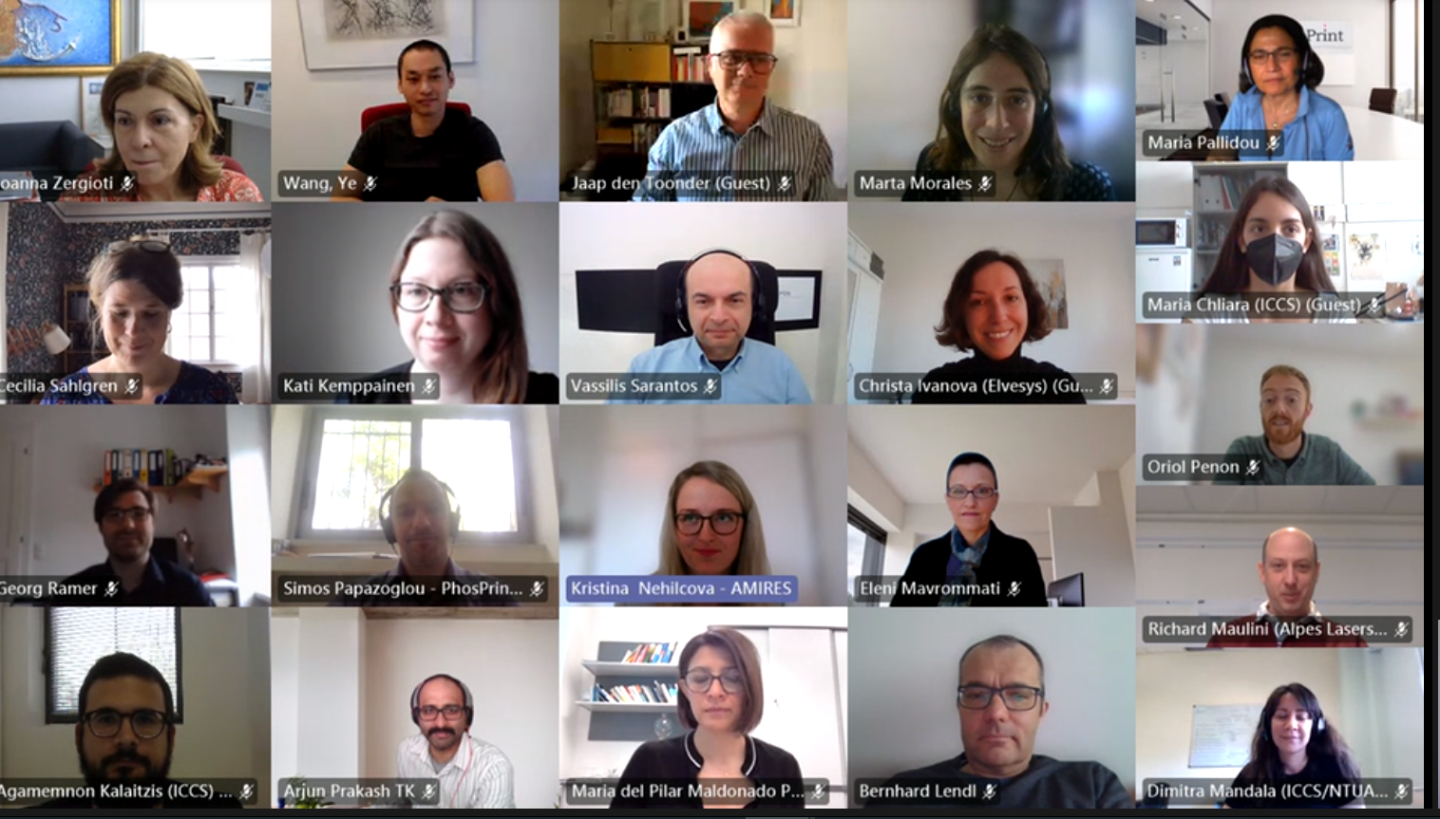
AMIRES is HIRING!
Are you passionate about research and technology innovation? Are you target oriented, responsible and flexible? If time management and team spirit are no strangers to you then we are looking for you!
Apply for our newly opened position by sending your CV and motivation letter (both in English) to Bajarova(at)amires.eu till May 19th, 2021.
Only candidates that will proceed to the next round of the job will be contacted by May 21st, 2021. For more information click HERE.
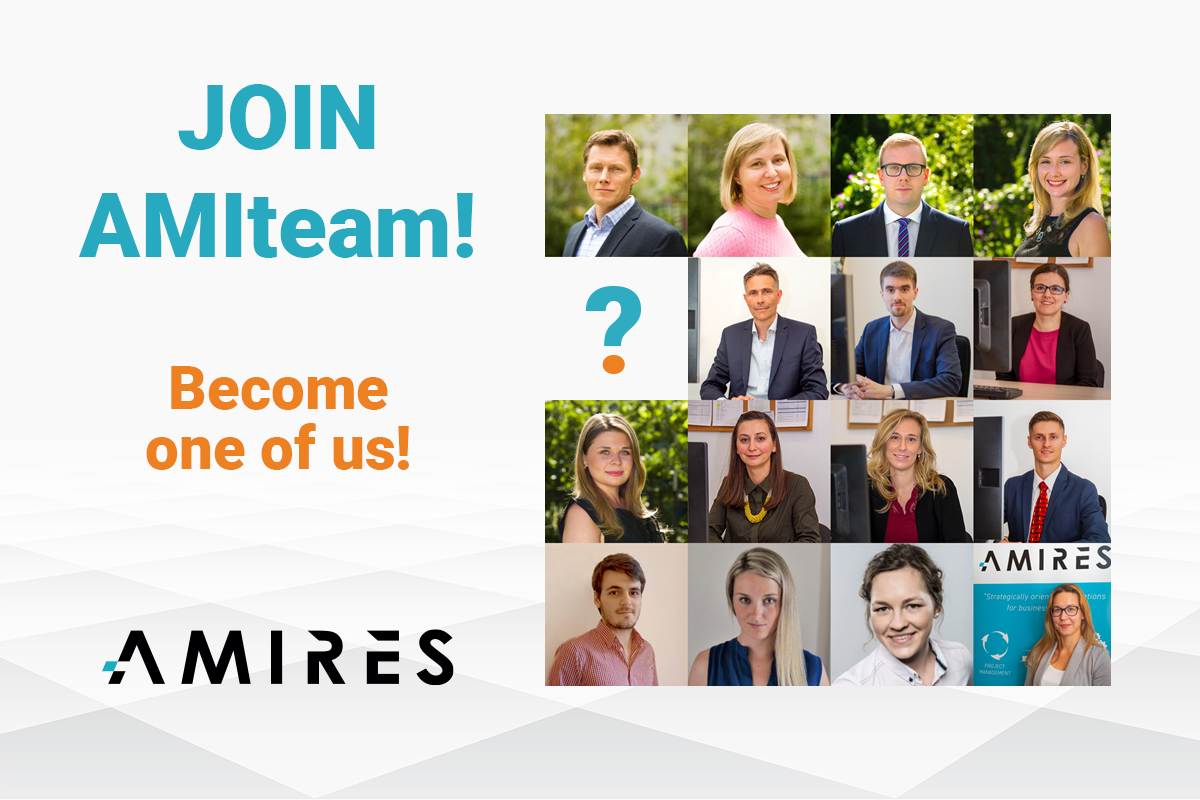
Thank you for making successful the intensive Virtual Regenerative Medicine Workshop “FROM LAB TO CLINIC”
Don’t miss the next Webinar on “NEXT GEN ORGAN-ON-CHIP & ORGANOIDS! More information is available HERE.
A significant milestone reached in MOSAIC project: real receiver installed!
During the last months, different systems had been tested by means of a dummy receiver connected to dummy hoses, simulating work conditions. Once the tests were completed, both the receiver and the hoses were replaced by the real ones. The operation was carried out from 20th to 22nd April and needed the participation and the cooperation of different partners and their subcontractors. The thermal installation is now complete with its real components.
The elevation of the ensemble was performed by means of a crane which lifted the real hoses, already connected to the receiver, while the receiver itself was lifted by the tracking system cables, in a coordinated operation. The hoses’ end, opposite to the receiver, was connected to the skid installation, on top of the main metallic tower.
In the following days, the system will be filled with HTF, and then the thermal loop system will be ready for the different tests that will assess its fine working. In a few weeks the solar field will be installed, before the final period of set-up tests starts.
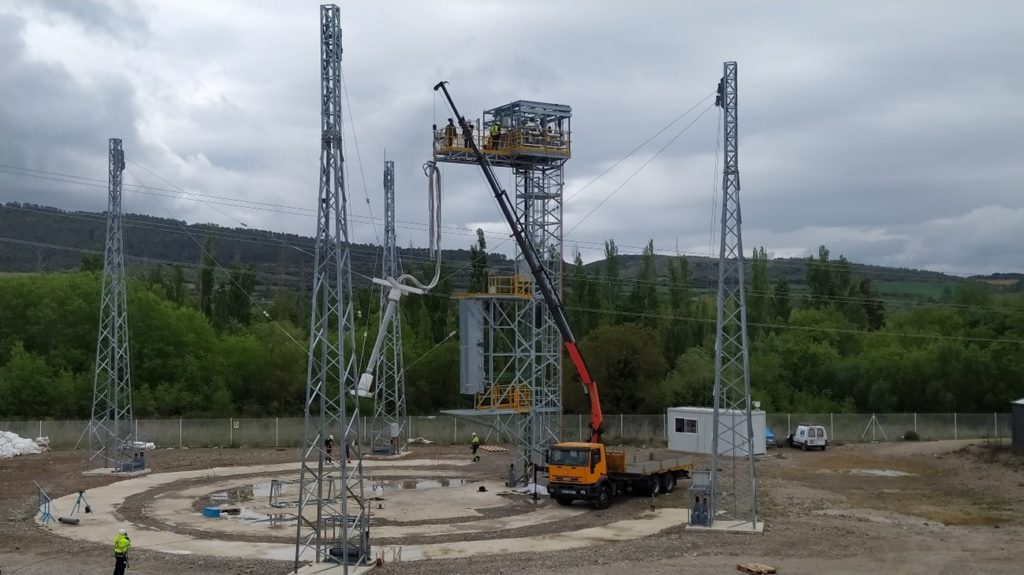
New Service Offer: 3D design, modelling and rendering
AMIRES is excited to offer an additional support for innovation projects! Do you need to show your product or prototype visualization to investors, to funding agency or to test how it will be looking or interacting in modelled environment?
Now we offer to our clients to design and visualize a concept and create attractive images and animations using 3D models. Our consultants will guide you by using the tools (Blender, SketchUp, Solidworks, Dialux) to your needs and propose realistically looking models.
Examples of applications of this service:
- Design and create engineered components and innovative concepts to analyse their structure and interactions
- Visualize the installation of a product or production line in a building or a natural environment, foresee the obstacles and the space available
- Render realistic images of products, infrastructure, interiors, buildings, landscapes
- Plan the illumination of an internal or external space
- Create short animations (under 30 seconds) which are ideal for dissemination purposes
- Test some physical properties in simulations
The service includes the whole process of 3D modelling: design, conversion of 2D plans or images to a 3D geometry, texturing, physics, environment. The fields of applications is very broad, including health and biotech, material sciences, photonics, smart systems, energy generation and energy efficiency.
For more information contact Dr. Rudolf Fryček.

Coronavirus: HERA Incubator & new calls with support of €123 million for urgent research into coronavirus variants
European bio-defense preparedness plan – “Hera Incubator“ – The Health Emergency Preparedness and Response Authority started in February 2021 to prepare Europe for an increased thread of coronavirus variants. For Europe to react properly HERA Incubator will bring together science, public authorities and industry. HERA Incubator will focus on detecting new variants of the virus to accelerate the development of new vaccines and its production. More information is available here.
As one of the actions under the HERA Incubator the European Commission introduced a measure to speed up the authorization of adapted COVID-19 vaccines. It will allow companies to act faster when it comes to the gathering evidence, moreover it will authorize adapted vaccines with a smaller set of data submitted to the European Medicines Agency. The measure will now go to the European Parliament and Council before entering into force. For original article, click here.
This April, the European Commission announced the mobilization of €123 million to support research of coronavirus variants. It is a first emergency funding under Horizon Europe. The aim is to fight the coronavirus, act to prevent, alleviate and respond top the impact of coronavirus variants in line with the mission of HERA Incubator.
On 13th April new calls were launched, future funded projects are expected to rapidly advance the knowledge of Coronavirus, develop vaccine candidates, support research and data sharing. The deadline for submission is 6th May 2021.
Horizon Europe calls:
- FAIR and open data sharing in support to European preparedness for COVID-19 and other infectious diseases
- Research infrastructure services for rapid research responses to COVID-19 and other infectious disease epidemics
- Vaccines & therapeutic clinical trials to boost COVID-19 prevention and treatment
- Cohorts united against COVID-19 variants of concern
Source: EC – Audiovisual Service, European Union, 2021, ID: P-049389/00-05, 3/2/2021, Brussels, available: https://audiovisual.ec.europa.eu/en/photo/P-049389~2F00-05
European Innovation Council opened EIC Accelerator calls worth €1B to help start-ups and SMEs
Ensuing step after announcement of funding opportunities the European Commission has opened the first EIC Accelerator calls with funding worth over €1 billion. Half of the funding are earmarked for European Green Deal and to the digital and health technologies.
Usually, projects which are under the bigger risk and need more time to fulfill the results are struggling to receive the financial support. Therefore, EIC Accelerator focuses on technological and scientific breakthroughs which need longer time frame before returns are generated as well as bigger funding. This together will help innovators to attract the full investment amounts.
Last but not least, the European Commission also opened the EIC Pathfinder programme, which is supporting daring ideas for new technologies. High risk, high gain, cutting-edge science – these concepts are more than welcome in EIC Pathfinder programme. For the full article click here.
Calls opened at this moment are:
- EIC Pathfinder (deadline 19.5)
- EIC Accelerator Open Call Challenge (deadline 9.6)
- The European Capital of Innovation Awards (deadline 15.7.)
- EU Prize for Women Innovators (deadline 30.6.)
- Facing Societal Challenges Award (deadline 29.7.)
- Innovation Procurement Strategy Award (deadline 29.7.)
- Procurement Leadership Award (deadline 29.7.)
More information about calls are available HERE.
How to be successful in Horizon Europe (focus: Health)
MEET OUR TEAM: Roman Pašek
Roman recently celebrated two years with AMIRES. He started as a Project Manager in March 2019 and due to his hard work, excellent skills and mindset he became a Programme Manager soon after. Roman is currently leading our Deep Tech group. In AMIRES Roman is managing the OASIS project (Open Access Single entry point for scale-up of Innovative Smart lightweight composite materials and components), acts as Dissemination Manager of H2020 project MANUELA (additive MANUfacturing using mEtal pilot Line) and is responsible for H2020 project proposals preparation.
He is also helping companies in achieving their business goals via business innovation coaching, where he’s mostly been working with companies in the area of Internet of Things.
About his work he said:
“Working at AMIRES has been a blast so far! The scope of activities is diverse and so have been the opportunities for growth. The team is excellent, the working ethic is demanding, yet flexible, and the coffee machine produces a decent productivity booster.”
In addition to his work in AMIRES, since 2015 Roman has also been cooperating with the Technology Agency of the Czech Republic and is a member of three different programme Boards assessing a wide variety of R&D projects. Even though Roman is a family man with two children, he always finds some time to play his favorite guitar or read a book.
Horizon Europe first strategic plan 2021-2024
Horizon Europe is a funding programme for research and innovation with a budget of €95.5 billion. The programme is starting this year and will last until 2027.
The first plan for four years sets the strategic orientations for the targeting of investment. This secure that EU research and innovation actions participate to EU priorities.
Part of the strategic plan are also four strategic orientations:
- Promoting an open strategic autonomy by leading the development of key digital, enabling and emerging technologies, sectors and value chains;
- Restoring Europe’s ecosystems and biodiversity, and managing sustainably natural resources;
- Making Europe the first digitally enabled circular, climate-neutral and sustainable economy;
- Creating a more resilient, inclusive and democratic European society.
Moreover, the European co-funded and co-programmed partnerships together with EU missions are identified and supported through Horizon Europe. The strategic plan addresses a several of horizontal issues, such as gender.
The first call for proposals will be published in late spring 2021 and will be presented in details at the European Research and Innovations Days which be held on 23-24 June 2021.
For original article and more information click HERE.
Last chance to register! Virtual Regenerative Medicine Workshop, 28 APRIL 2021
The full program and more information on the speakers and the registration can be found HERE
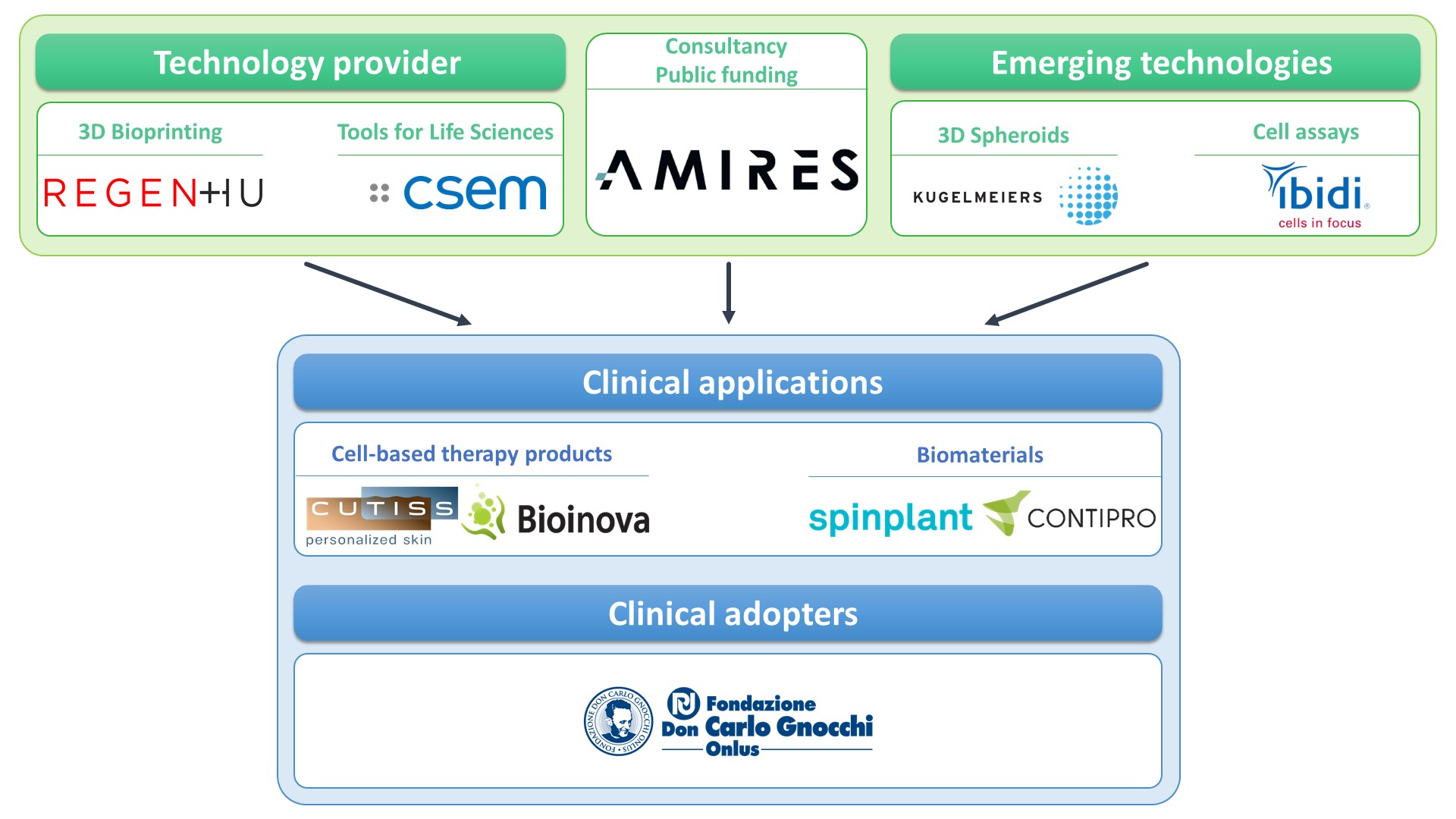
Open Access Research Publishing Platform
One of the standard methods of working under its research and innovation funding programmes is open science. ORE is supported by a Scientific Advisory Board, which provides guidance on publishing policies, therefore the researchers are assured that the policies and guidelines are of the highest standards. To learn more about advantages and platform itself click HERE.
Picture source: https://open-research-europe.ec.europa.eu/blog/accelerating-knowledge-sharing
Webinar: MedPhab open call to support photonic medical device innovation
This programme will be launched soon, having as first cut-off on July 15, 2021, and to explain all steps needed for participation, MedPhab is organising a Webinar on May 11, 2021 11:30 CEST. If you are interested in learning more about MedPhab and about how you can participate in the Open Call tune in to this webinar. More information about the Webinar HERE, and about MedPhab open call HERE
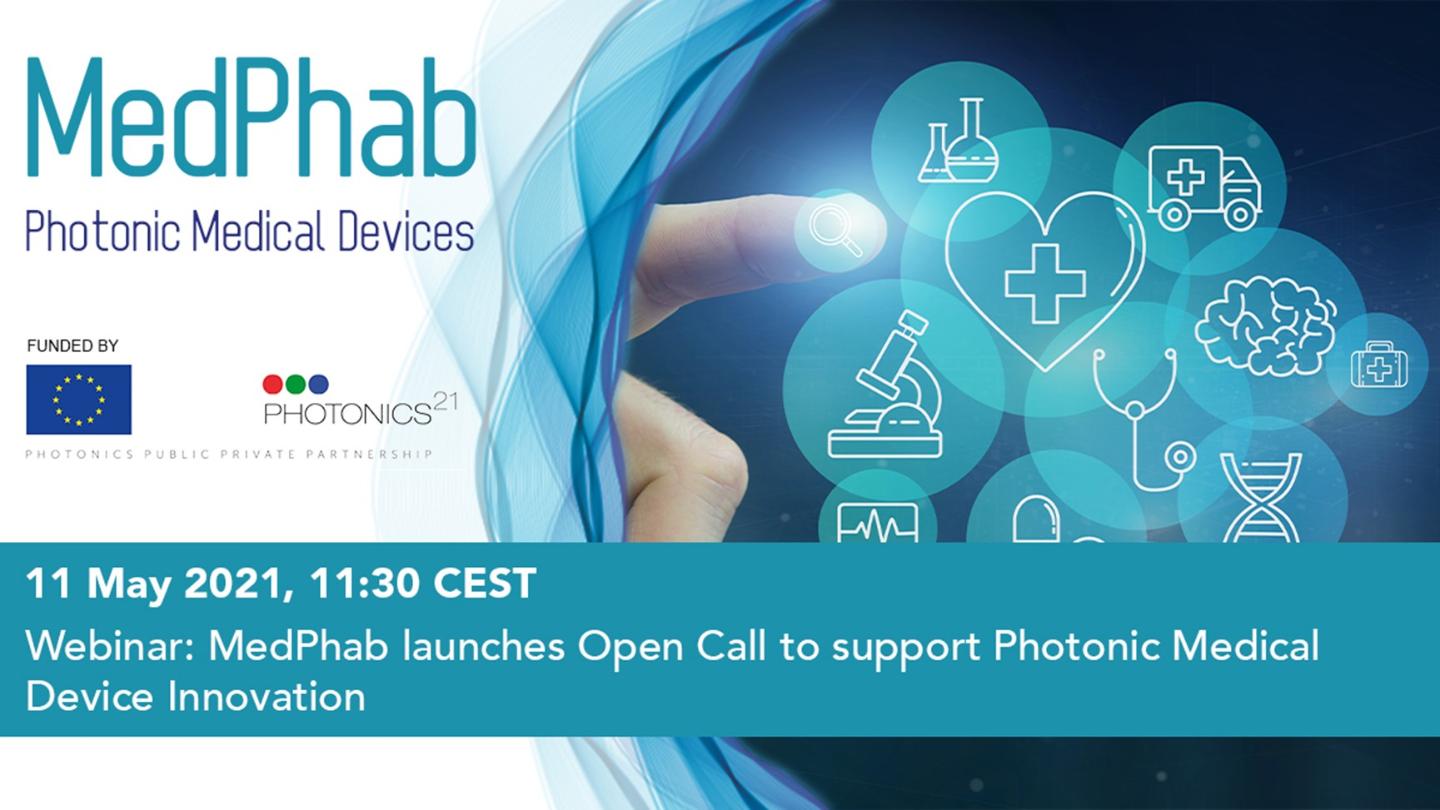
EU launched new support scheme for women in Deep Tech
Thematically on the day that is internationally dedicated to women (8.3), the European Commission announced a new initiative called “Women TechEU”.
The aim is to support women leading deep tech start-ups in Europe. It is funded under European Innovation Ecosystem Work Programme of Horizon Europe and it will offer first-class coaching and mentoring to female CEOs and founders. Moreover it will be a targeted funding to help them to take their business to the next level.
“Women-led companies are on the rise” – the full view is that it is not only a matter of fairness, but also a major case of using Europe´s full potential of excellence in science and businesses. As per the latest statistics at least 25% of applications invited for the second stage of evaluation should come from the women-led companies.
To support the idea and fulfill the aim a call for mentors has been launched.
For more information and to view a original article, click HERE.
The MOSAIC project is entering its final phase!
The consortium aims at constructing the prototype of a fixed semi-Fresnel solar concentrator and an ad-hoc mobile receiver. This novel approach of CSP plants will optimize the cost of the installation per Kwh; besides, it will be modular and scalable to adapt to the needs of the solar industry and energy demands.
The prototype at Cener facilities in Sangüesa is on its way towards its final state, as depicted in this video created by Increscendo:
Here is a brief overview of the last works carried out on the construction site:
- The mounting towers for the mobile elements and the oven have been erected.
- The mechanical, optical and electrical elements of the tracking system have been installed and are being tested.
- The innovative dummy hoses have been connected to the receiver.
- The meteorological station has been connected to the tracking system, and the DCS of the whole prototype has been updated to achieve a full control of the plant.
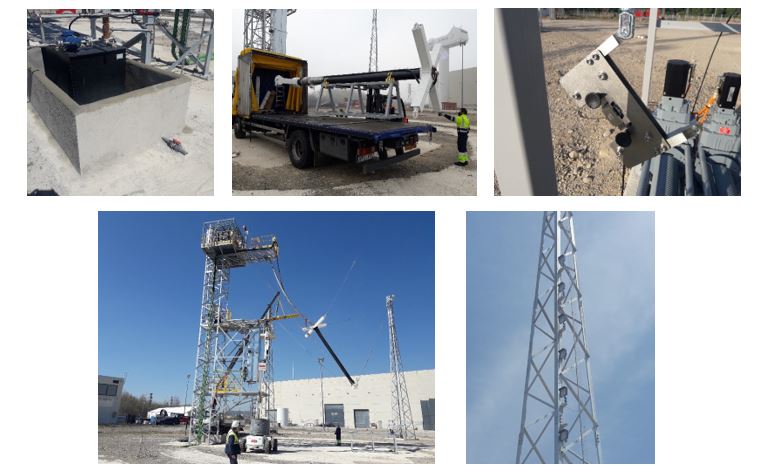
The next key step will be the installation of the field of the solar mirrors, along with the evaluation of a watering system for the mirrors.
For more information, do not hesitate to visit the MOSAIC website. For the latest news about the tracking system by Tekniker, click HERE.
AMIRES at EuroNanoForum 2021!
The conference is held on May 5th – 6th , 2021 with the main topic: Role of Nanotechnology and Advanced Materials for innovation, competitiveness, and sustainability in Europe and on a global scale.
Not only experts across different sectors will be part of the conference, but Exhibition Hall and Poster sessions will be available to visit as well.
AMIRES will disseminate projects across Health & Biotech, Energy and Sustainability, New Materials and Flexible & Wearable Materials as well as Deep Tech domain.
Registration for potential interested parties is free of charge. For more information visit official EuroNanoForum website.
Open positions for Deep Tech and New Materials and Flexible & Wearable Electronics domains!
Project Manager of European R&D&I projects in Deep Tech domain
Project Manager of European R&D&I projects in New Materials and Flexible & Wearable Electronics domain
Are you passionate about Advanced Manufacturing, Artificial Intelligence, Photonics or Flexible & Wearable Electronics? Are you target oriented, responsible and flexible? If time management and team spirit are no strangers to you then we are looking for you!
Apply for our newly opened positions by sending your CV and motivation letter (both in English) to Bajarova(at)amires.eu till April 21th, 2021.
Only candidates that will proceed to the next round of the job will be contacted by April 23th, 2021.
For more information read HERE.
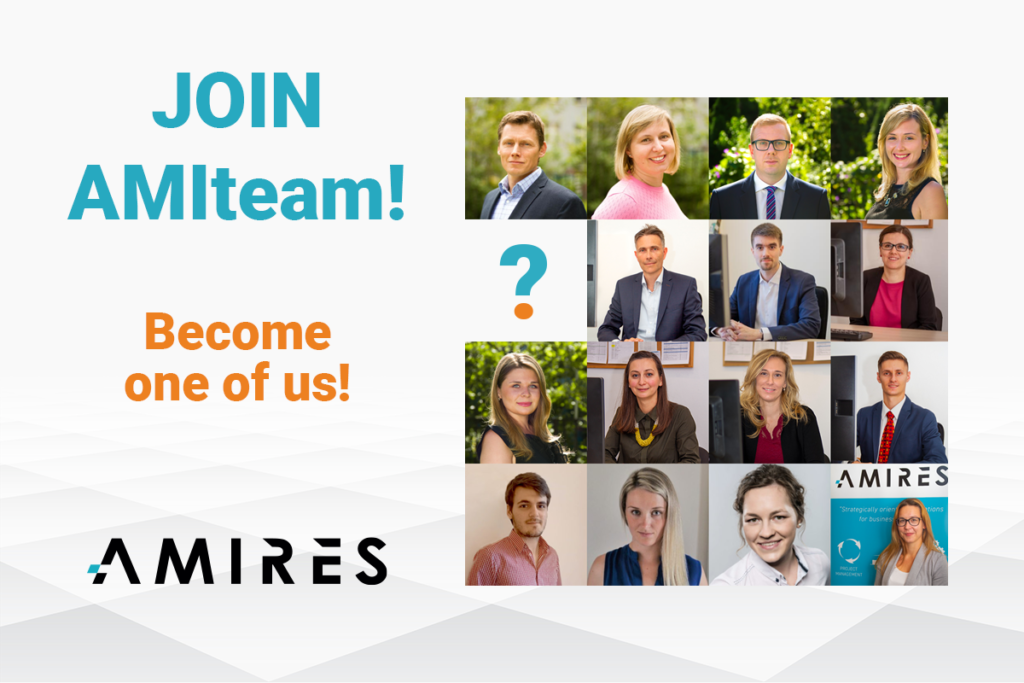
OITBs as a service to the Industry – Virtual Workshop on May 4, 2021. Register now!
The European Commission has invested approx. 250 million euro in Open Innovation Test Beds (OITBs) with the aim to bring nanotechnologies and advanced materials within market reach by providing access to demonstration and upscaling facilities as well as advisory services to advance technologies from laboratory validation to prototypes in industrial environments. Up to today, 25 OITB projects have been launched in six technology domains.
The objective of the workshop is to take stock from current policy initiatives and Open Innovation Test Beds in order to get new ideas to support the Advanced Materials European Innovation Ecosystem in the context of Horizon Europe. OITBs, related clustering initiatives and end-users will have the opportunity to share their experience, expectations and new ideas to bring nanotechnologies and advanced materials within the reach of companies and users. The event is targeted to representatives from the OITBs, Industry, Industry Associations, other projects likely to integrate results to OITB service portfolio and the European Commission.
The workshop will be held on 4th May 2021, 14:00 – 17:30 CEST as Online Event and will feature two sessions:
1. About OITB and about user expectations to the European Open Innovation Ecosystem;
2. OITB as a Service for Industry: Introduction to the service portfolio of established OITB
If you are interested to join the event, please register through the EuroNanoForum Website.
Participation is free of charge!
Looking forward to discussing with you about the fast-track to turn your ideas to market-ready innovations!
PANCAIM website has been launched!
AMIRES as a coaching support to LIGENTECH
LIGENTECH is a B2B company manufacturing Photonic Integrated Circuits (PIC) for customers in high-tech areas such as communication on ground and space, Quantum technologies, LiDAR and Biosensors.
Managing Director of LIGENTECH Michael Geiselmann shared:
“Coach Rudolf Frycek’s help focused on the business plan and fundraising, and more specifically the EIC Accelerator, a European scheme helping start-ups in the field of new technologies. “Thanks to the coaching, we won this grant, continues Michael Geiselmann. We are therefore very happy. It will allow us to finance the growth of our company for two years and also to be able to switch to large-scale manufacturing of our technology.”
We thank for the trust the LIGENTECH put in us.
AMIRES can help you identify new opportunities in the field of technology and in finding the most suitable solutions to your needs and technical challenges. For more information visit Our Services.
For original article click HERE.
Press Release – PHABULOuS Announcing the establishment of the PHABULOuS Pilot Line Association
PHABULOuS announced a big milestone with the establishment of its independent PHABULOuS Pilot Line Association, moreover after the review process the pilot line is now the 20th official partner of the projects in Public Private Partneship with Photonics21.
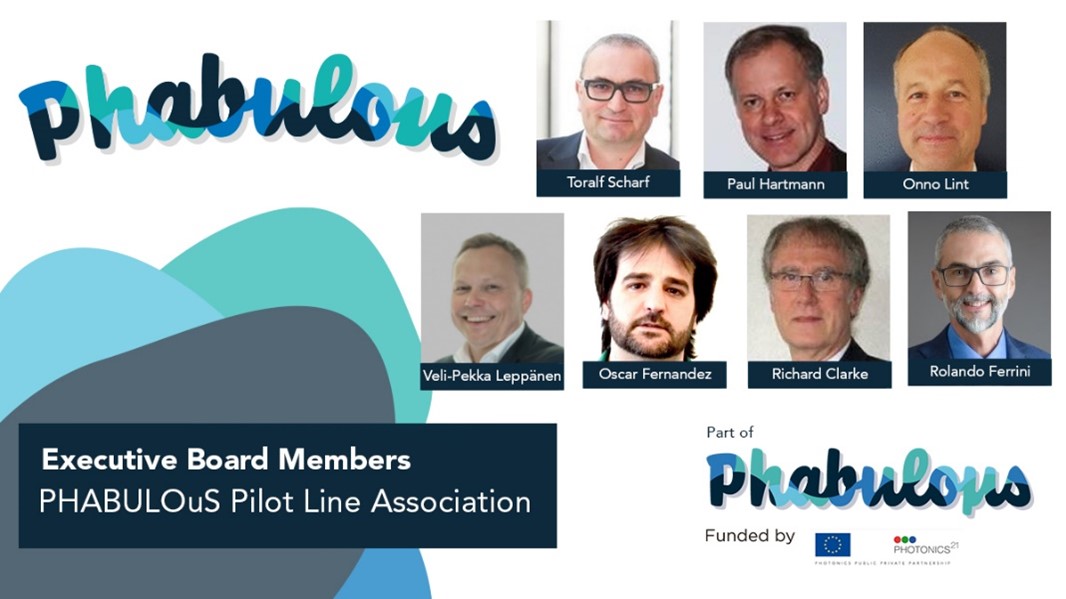
PrintoCent Webinar on SmartEEs cases
On the 16th March, 2021 the Webinar on success stories of EU-SmartEEs organized by PrintoCent and VTT presented together seven projects.
AMIRES as a business coaching partner of SmartEEs was proud to support the project IoTflexNode – the IoT device that fits and bends, the project by Fuelium SMARTK7 – Smart cassette, Adaptive Architecture Systems (FLXilight) – MESH – modular adaptive skin for high efficiency buildings and last but not least O.light by ESYST – Modern Smart Lighting.
During the presentation, our CEO Rudolf Fryček presented a digital Marketplace for Flexible & Wearable Electronics.
The Marketplace offers Innovation companies the possibility to explore innovative offerings, based on flexible electronics. Moreover, the digital marketplace offers information and contacts to the leading European organizations involved in flexible & wearable technologies research, development, integration and commercialization. The SmartEEs Marketplace is a place to innovate the business of SMEs, Mid-caps and Large companies while scouting for new business opportunities with flexible electronics technologies and to connect supply (ready to integrate products, prototypes, services) & demand (designers, integrators, solution providers, vendors), and to facilitate the promotion of innovative products.
To learn more about SmartEEs, click HERE.
Virtual Regenerative Medicine Workshop “FROM LAB TO CLINIC”
Take the opportunity, participate and find out more about incredible technology, modern trends, and interests of the key players in this field. Establish your new network for future collaborations! You can find below the list of companies presenting at this event.
Companies
Clinicians
Standardizers
Innovators
Researchers
Policy maker
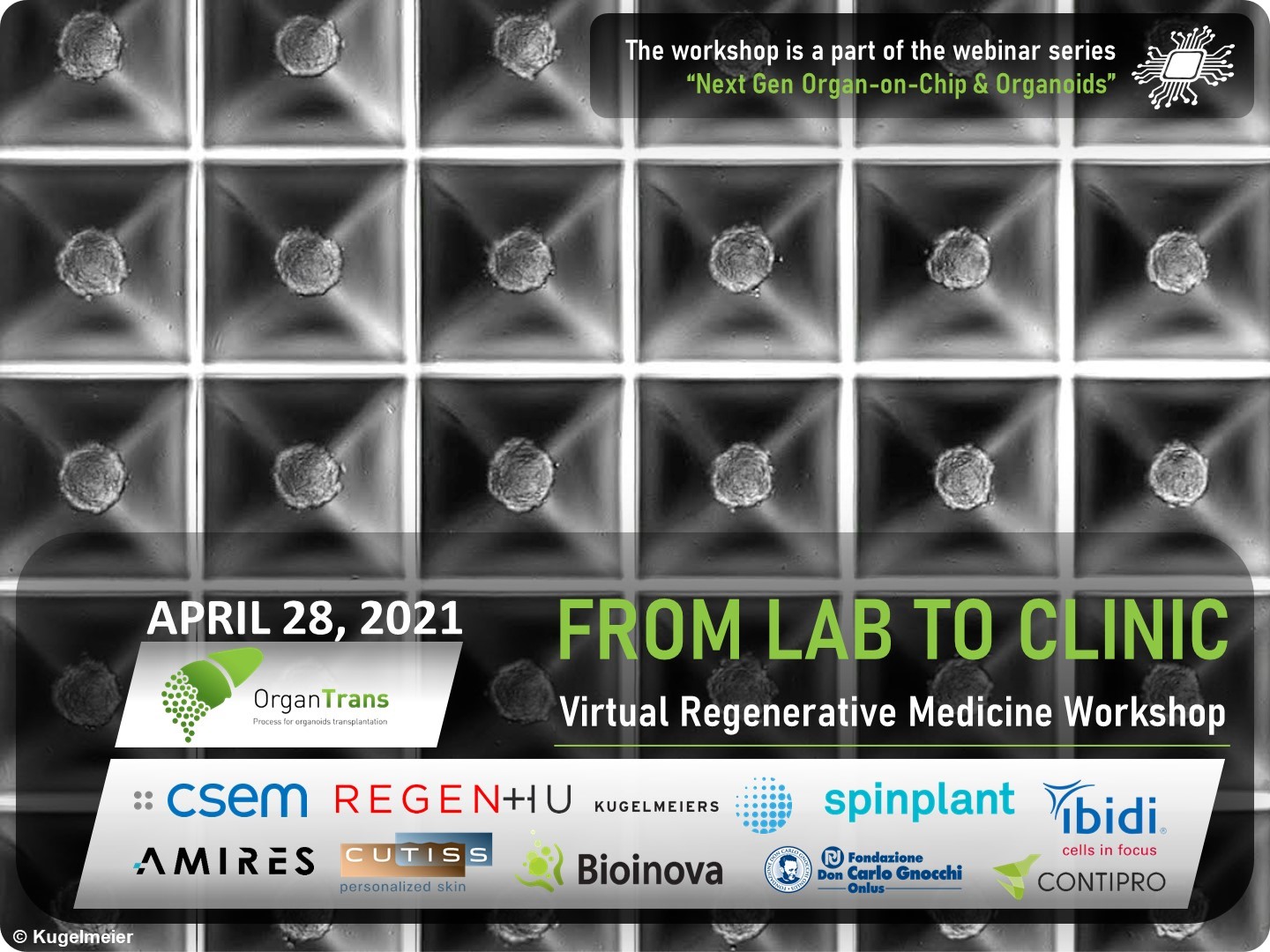
Open position in Deep Tech!
Without our highly dedicated team our job and results will not be a success. Our team is our pride. To support growth, we are looking for highly motivated people to join our team in Prague for position of Project Manager of European R&D&I projects in Deep Tech domain.
Are you passionate about Advanced Manufacturing, Artificial Intelligence and Photonics? Are you target oriented, responsible and flexible? If time management and team spirit are no strangers to you then we are looking for you!
Apply for our newly opened position of Project Manager of European R&D&I projects in Deep Tech domain by sending your CV and motivation letter (both in English) to Bajarova(at)amires.eu till April 6th, 2021. Only candidates that will proceed to the next round of the job will be contacted by April 7th, 2021. Read HERE for more.
#podnikám SmartEEs2 – Inovujte s ohebnou elektronikou
SmartEES2 (Sustainable ecosysteM for the Adoption, Ramp-up and Transfer of Emerging Electronics Solutions) může nabídnout jak finanční podporu na vývoj a validaci prototypu nebo koncových produktů s využitím z dostupných technologii, tak i podporu při realizaci.
Nepromeškejte šanci se dozvědět důležité informace a možnost diskuse s našim CEO Rudolfem Fryčkem.
Seminář je určen jak pro zkušené, tak pro začínající podnikatele.
Více informací se dozvíte ZDE
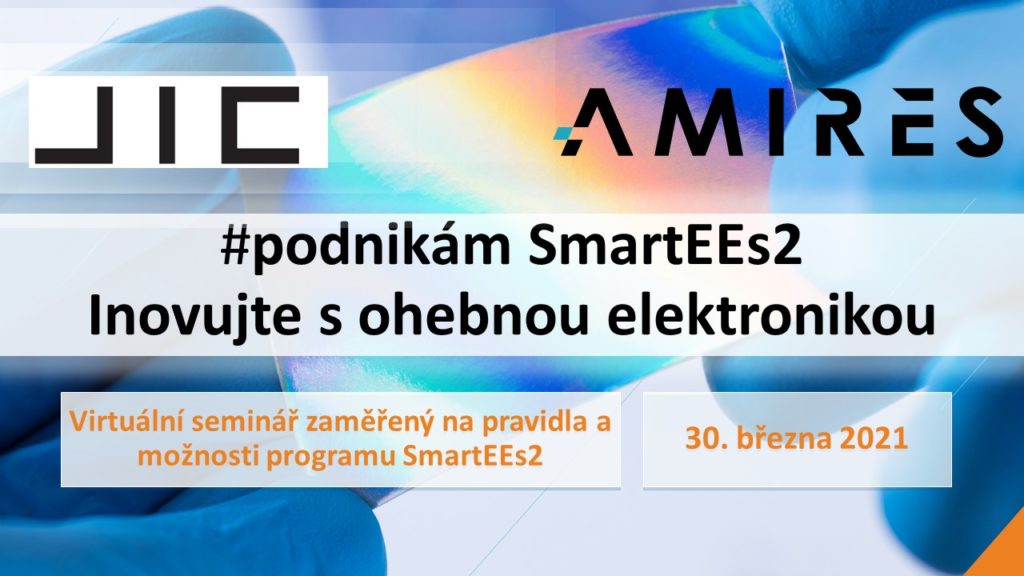
OASIS Open Call 1st cut-off winners announced!
- Trixell (France)
- S.Z.T.K. “TAPS” – Maciej Kowalski (Poland)
- Thales Alenia Space (France)
- Décathlon (France)
- Universidad del País Vasco UPV/EHU (Spain)
- AT-P AVIATION Sp. z o.o. (Poland)
Congratulations and let the development of their exciting Democases begin!
CONDOR website is now alive
Stay tuned for our latest news and keep yourself up-to-date with details on our dissemination activities. If further questions remain, an online Contact form is available to get in touch with us. We are looking forward to hearing from you!
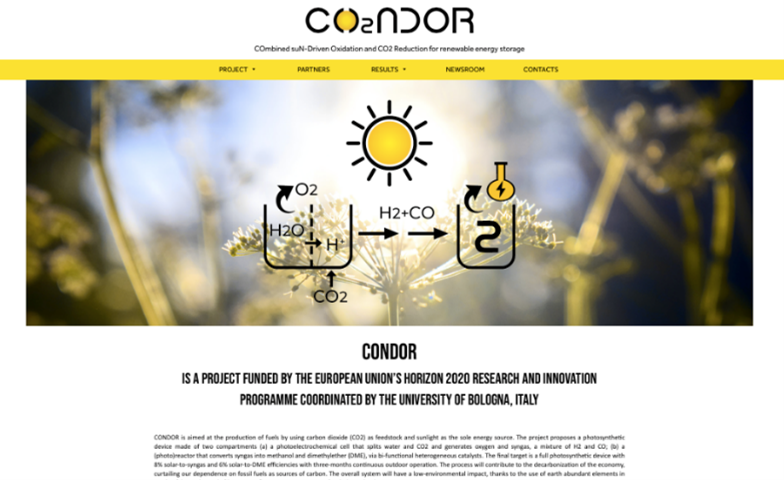
INSPIRE project aims to revolutionize photonic integrated circuit technology
New H2020 project INSPIRE will revolutionize photonic integrated circuit technology by combining highest optoelectronic efficiencies in InP photonics and lowest optical loss in SiN photonics, in a single platform through wafer-scale micro-transfer printing technology.
The project, coordinated by Eindhoven University of Technology, was launched on 1 January 2021. Partners in the project are IMEC (BE), Smart photonics (NL), X-CELEPRINT (IE), Thales (FR), University of Cambridge (UK) and Amires (CZ). Further details are available in the project´s first press release here.
Welcome our new team member!
AMIRES team is growing again! We are happy to welcome our new colleague Marika who joined us in March.
Based on the Marika´s experience which she gained at the University of Chemistry and Technology in Prague and in the Czech Liaison Office for R&D in Brussels, we believe that she is a great fit to our team. Her experience with EU Research & Innovation landscape will make our team even stronger.
In AMIRES, Marika is involved in the Deep Tech domain, specifically she is covering the PICs portfolio. In line with that she is in charge of H2020 projects InPulse (Indium-Phosphide Pilot Line for up-scaled, low-barrier, self-sustained, PIC ecosystem) and INSPIRE (InP on SiN Photonic Integrated circuits REalized through wafer-scale micro-transfer Printing).
To learn more about our team click HERE.
Marika, welcome to our team, we are looking forward to working with you!
PANCAIM´s first PRESS RELEASE
European (EU) H2020 funded PANCAIM project, officially started on 1st January, 2021, will develop trusted impactful AI applications for regular clinical use to help clinical decision-makers to give the right treatment to the right patients at the right time, and at the right cost and improve treatment outcomes of PDAC patients.
Read the Press Release announcing the launch of the PANCAIM project.
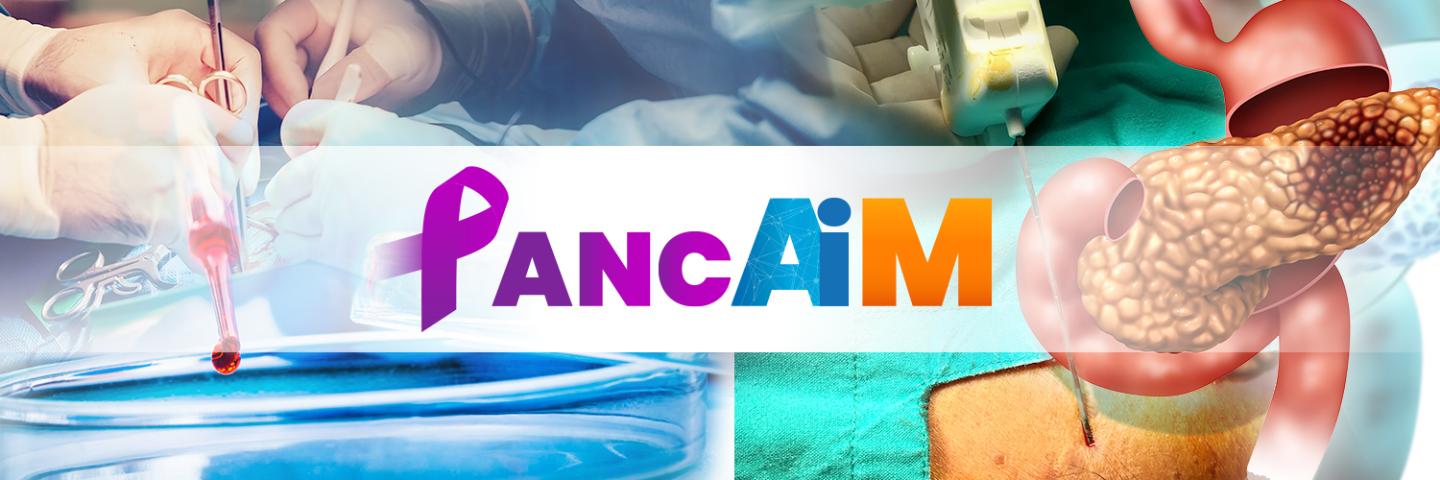
The JePPIX Pilot Line has launched a Demonstrator Open Call offering pre-commercial InP PIC production
The Call is now open and applicants are able to apply anytime until 12 November 2021. Up to 15 selected Demonstrator Open Call applicants will receive pioneer funding of up to 50% in in-kind contributions. The Call encourages applications from eligible companies of any size, and addressing any market segment, who are ready to take their InP PIC-based products to piloting readiness level and are willing to share high-level information about their demonstrator cases.
Demonstrator Open Call participants will have the opportunity to receive support from experienced specialists from the JePPIX Pilot Line consortium covering design, test and characterization, consultancy, and software support, among others. Piloting fabrication runs will additionally further process robustness and reliability, and contribute to accelerating your time to market, and lowering your development costs.
Information on eligibility criteria and application guidelines can be found here. Further assistance is available through the Helpdesk by phone to +420 226 217 422 or by email to helpdesk@jeppix.eu (Monday – Friday from 9 a.m. to 17.00 p.m. CET).
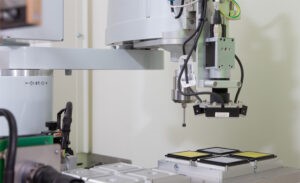
MARVEL website has been launched!
Our new website is fully responsive, meaning that you can view it with ease on any device, whether in the office, at home, or on the move! Amongst the features, the website contains integrated social media buttons for Linkedin and Twitter, to foster improved communication with the broad public. We will be constantly updating our content with information about the project progress, achievements, and events connected to us on the News & Events page. You can also sign up for our updates or to contact us directly through the contact form.
Visit us HERE
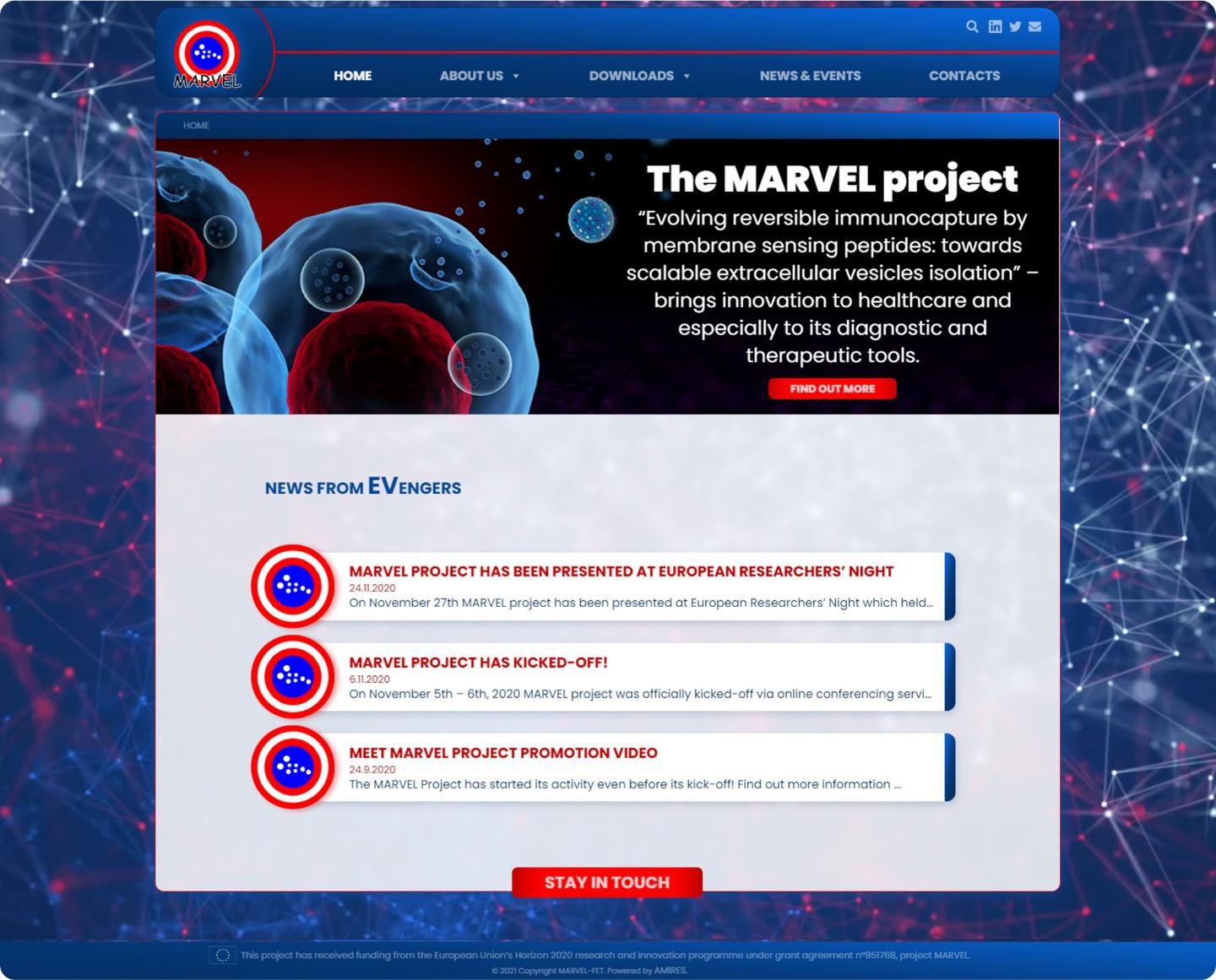
NEW GRANTS TO BEST RESEARCHERS
The first work programme includes three main calls for proposals for frontier research actions for a total amount of €1.9 billion: Starting Grants, Consolidator Grants and Advanced Grants. The European Research Council (ERC), an EU public body for funding of scientific and technological research, will manage this Work programme.
Three main Calls for Proposals:
- The first call is “Starting Grants” which will support top researchers to start their own independent research team or programme. The call will be launched on 25 February, with a budget of €619 million and a deadline of 8 April.
- The second call, the “Consolidator Grants“, for researchers who are consolidating their own independent research team or programme will open, with a budget of €633 million. The deadline for applications is 20 April.
- The third call, the “Advanced Grants”, will be launched on May 20, for leading advanced investigators, with a budget of €626 million and deadline on 31 August.
The European Research Council awards grants through open competitions to projects headed by starting and established researchers. As its sole selection criterion is scientific excellence, it strives to attract top researchers from anywhere in the world to come and stay in Europe.
The UK will be part of Horizon Europe. The UK government announced the UK will associate to Horizon Europe, the EU’s research and innovation programme 2021-2027. Association will give UK scientists, researchers and businesses access to funding under the programme on equivalent terms as organisations in EU countries.
• Read the ERC 2021 Work Programme
MEET OUR TEAM: Mariana Pacheco Blanco
Mariana studied the bachelor in biomedicine in Puebla, Mexico (BUAP). Since then she has been interested in pursuing a scientific career and become passionate about immunology. Mariana continued her study in Mexico City where she obtained a master’s in science, working in an immunology laboratory (CINVESTAV-IPN) and finally completed doctoral studies abroad. Germany brought a good opportunity for her in the Max Planck Institute. After that she moved to the Czech Republic due to personal links, where she stayed in a postdoctoral position at BIOCEV- having fun in the lab however she was inclined to make a switch in her career, and she said:
“Amires has been the perfect place. I can still be in contact with science but also with the knowledge and technology transfer for the development of innovative products. Working at Amires provides me a broader overview of scientific and technological development in Europe and be in the core of leaders in Research organisations and companies.”
In addition to her work at Amires, Mariana participates in voluntary activities. For example, she is a mentor in the programme “Leader Women in STEM”, organized by the US Foundation USMX leaders network. This programme has Mexican women, around the world mentoring high school students from rural areas in Mexico, in addition it provides leadership training in a cycle of 6 months. Since December 2019 she is coordinator of Science, technology and Innovation (STI) of the Mexican Network in the Czech Republic and organizes communication of science articles in the Czech chapter website (in Spanish). Since December 2020 she is part of the Commission of this network that coordinates STI in Europe.
Mariana believes that “It is very important to communicate science”, you can read her articles in the communication website: Immunobites.
Recently she participated in the first Meeting of BUAP Alumni: Legacy and Perspective of Biomedicine at BUAP in the world, which took place on 12-14 January, 2021 in Mexico. Students from the Bachelor of Biomedicine or interested in studying this or similar careers, were the main audience. They could listen Biomedicine BUAP Alumni, who are located in different scientific positions in Mexico and the World. The audience could see the open opportunities that bring the study of this bachelor or similar scientific studies. Mariana had the opportunity to present to alma mater in Mexico her career path, with the title “From bugs to multidisciplinary groups”. Listen to her motivated (HERE from min 25, in Spanish), about her start in Puebla, Mexico City, Germany to the Czech Republic and her involvement in multidisciplinary groups searching for scientific and technological innovation.
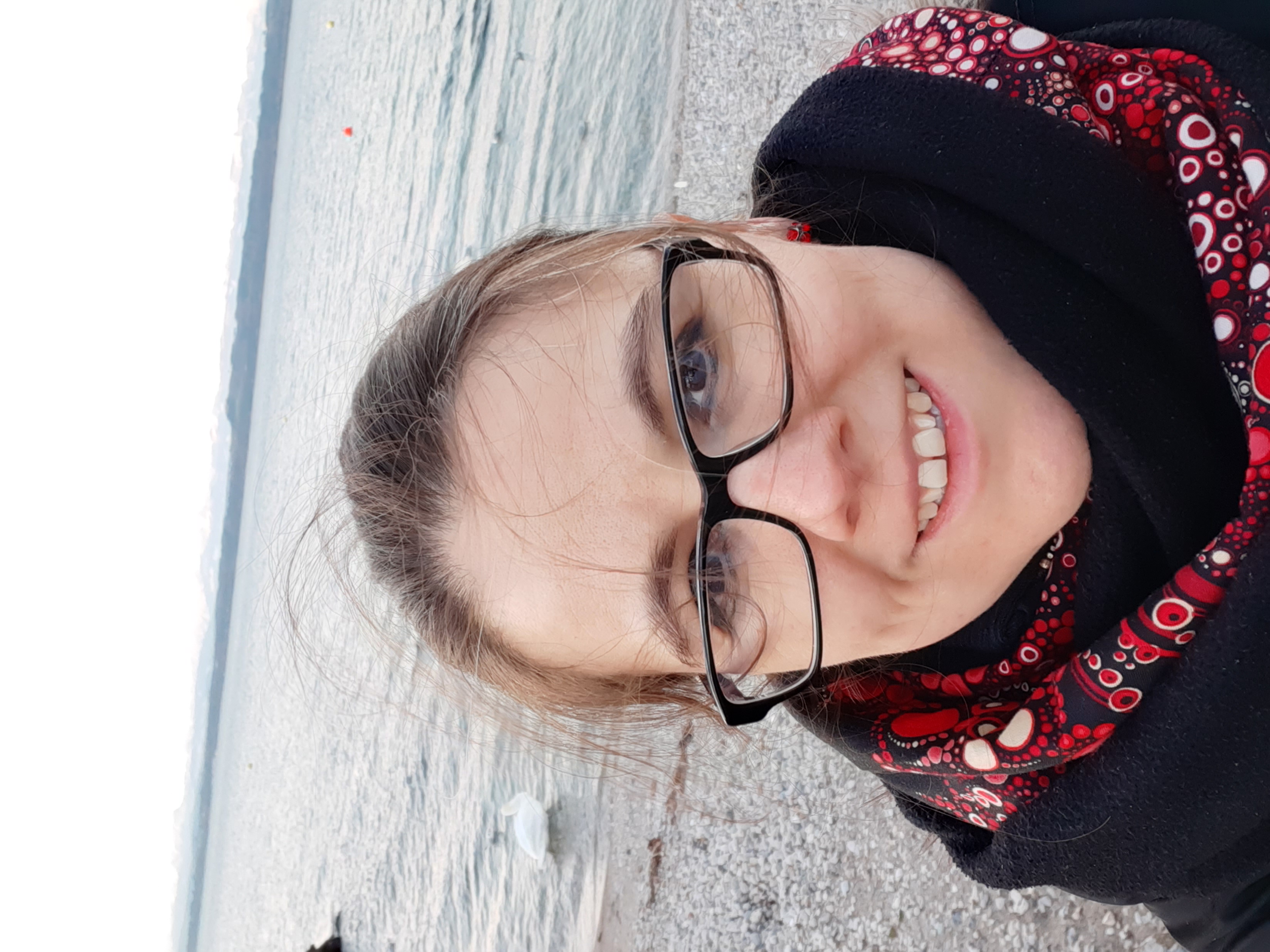
SABINA delivered a set of modular solutions to help reduce buildings and districts carbon emissions as well as overall operating costs
SABINA was an EU funded H2020 research and innovation project that aimed to develop new technology along with financial models that would connect, control and actively manage thermal and electric networks using generation and storage assets in order to exploit synergies between electrical requirements and the thermal inertia of buildings, whilst allowing aggregators to provide flexibility and balancing services to the grid. SABINA aimed to maximise the usage of variable renewable energy sources by converting excess electrical energy to heat or cold and storing it using the thermal inertia of buildings. Provision for aggregation at district level were provided to maximise the effect of SABINA. SABINA lasted for 4 year and finished in October 2020 with AMIRES as a partner responsible for project management and dissemination.
A set of critical factors are required to enable deployment of any new technology focussed on energy and carbon reduction in any market. While any technology may be proven in test environments deployment in real word settings can often be subject to other outside influences that should be reviewed prior to attempting deployment. Policies already exist in a number of member states that supports the introduction of innovative new technologies to deliver on a common EU carbon target. The interplay between the market, technology development and policymaking align itself well to the wider deployment of SABINA either as a technology supporting market and policy ambition or as a seed for transformative change in countries seeking to scale up ambition in carbon reduction. As part of our work on SABINA the partners assessed which markets in EU member states were already undertaking a reasonable level of demand side response at a national strategic level. Based on IEA data the findings demonstrate that a large proportion of the EU would be viable for SABINA deployment on the basis that flexibility and aggregation markets either already exist or are ramping up activity.
As the SABINA system relies on critical and regular data streams and the ability for swift response to them much of the successful deployment of the system will be dependent on the maturity of smart grids within any EU member state. The viability of SABINA is dependent on a number of key Net Zero transitions within any host member state. The challenge to enable the switch over from gas to electricity for our heating brings a number of critical risks in supply and demand of energy, placing greater pressure on our national energy infrastructure and requiring low and zero carbon generation to provide demand in a way that reduces our contribution to climate change. In order to provide the additional demand required to support the electrification of heating and vehicles in a sustainable way significantly higher levels of renewable deployment is needed.
Coupled with an increase in overall demand it will be important to develop technologies that can support swift demand side response, much greater flexibility in smart energy systems and digitalisation of operational control – SABINA can play a leading role in supporting this.
More information related to SABINA is available here.
FROM LAB TO CLINIC – Virtual Regenerative Medicine Workshop
The workshop is a part of the webinar series “Next Gen OoC & Organoids”.
More information coming soon…
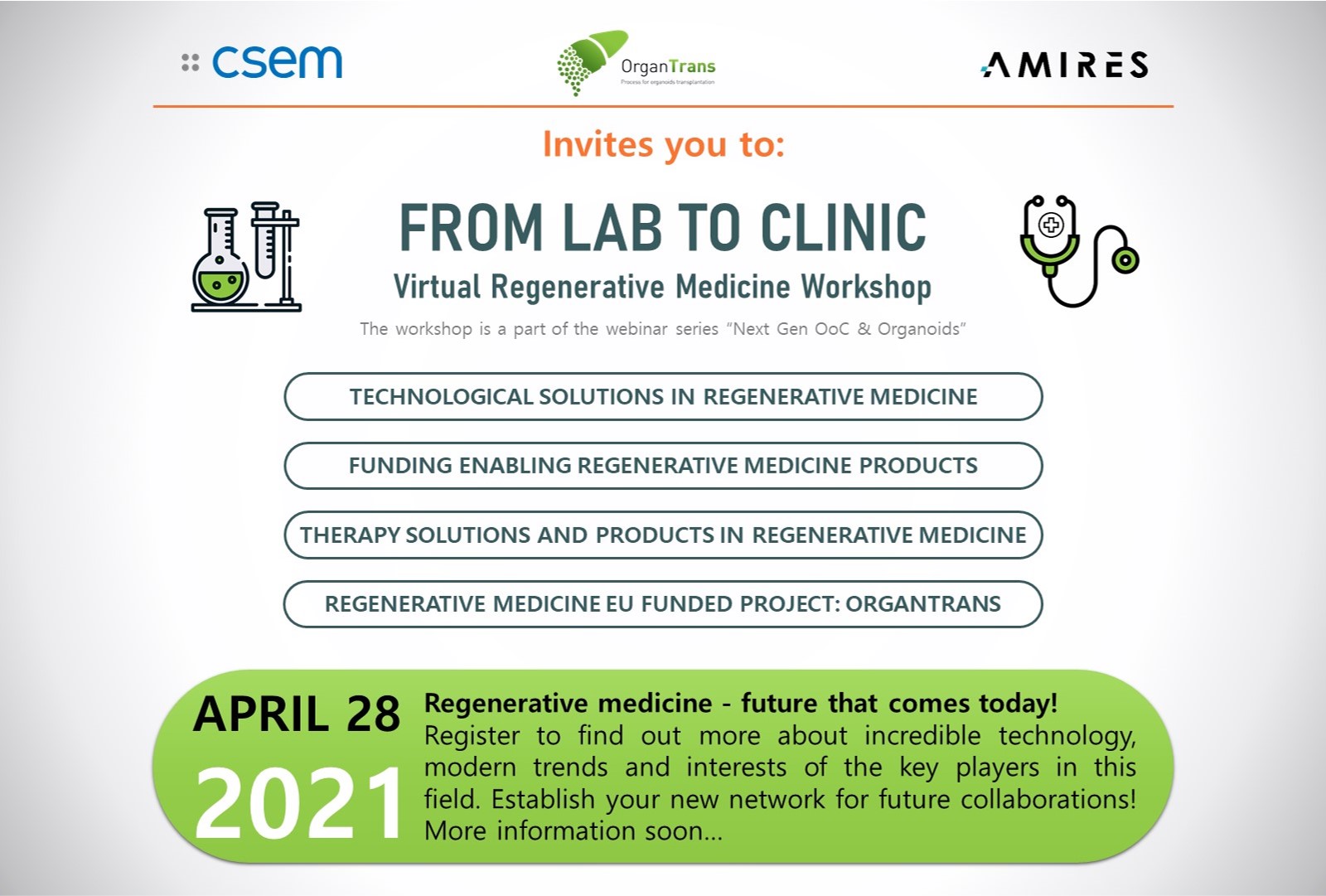
Get INSPIRED!
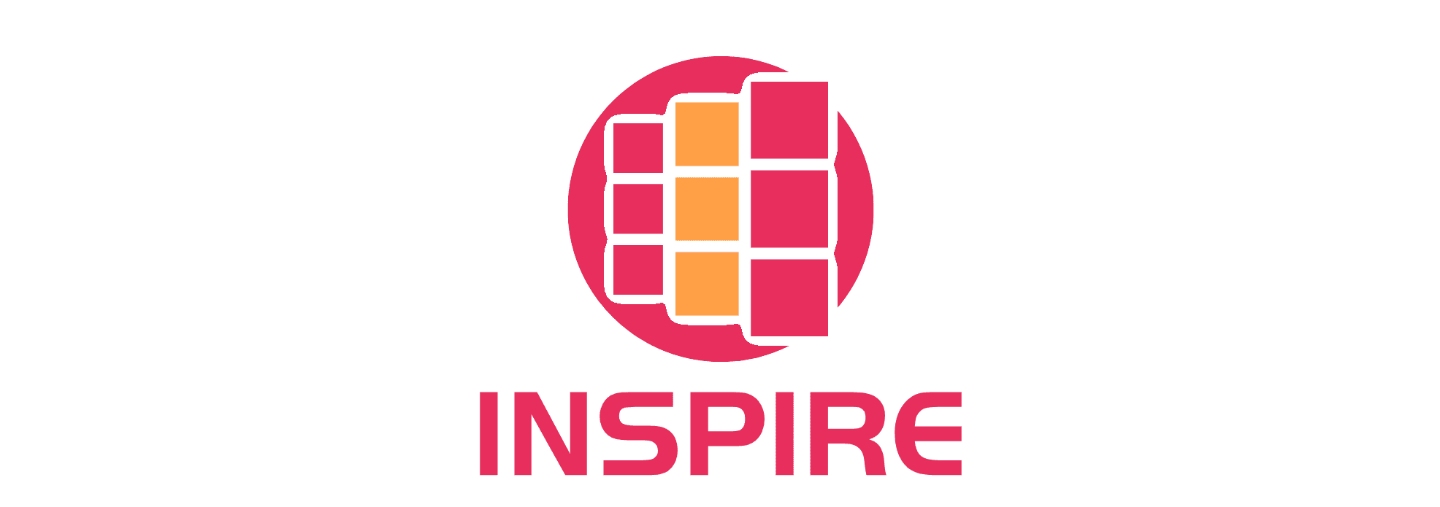
Read more information about the aim and consortium that AMIRES is also part of
HERE.PANCAIM project has kicked-off!
PANCAIM will develop trusted impactful AI applications for regular clinical use to help clinical decision-makers to give the right treatment to the right patients at the right time, and at the right cost and improve treatment outcomes of PDAC patients.
More information will be shortly available at www.pancaim.eu.
AMIRES – Female power in STEM
Being that AMIRES is a company that seeks business innovation, through pushing the state-of the art technologies and advancement in Science in different fields, we count on excellent human resources, and great representation of women.
From 17 AMIRES team members, 10 are excellent female professionals in a high leadership position. Lenka Bajarova, AMIRES Managing Director, has outstanding scientific project management expertise and leads the AMIRES team. Moreover, from the other 9 women, 8 lead at least 1 EU funded project in STI (Science, Technology and Innovation). These incredible women share discussions, lead events and stir the outcomes of high-quality STI projects, whose consortia consist of companies, research centers, innovation centers, universities and even hospitals.
The Health Programme Manager, Martina Nesverova, is a senior team member with expertise in the Health and Biotech fields. With her thriving trajectory she has successfully led the preparation of proposals, which have been funded mainly by extremely competitive EU funding programmes. In addition, she had started long-standing partnerships with companies and research organisations not only in the Czech Republic.
A successful team is based on diversity and acknowledging the importance of a multidisciplinary approach. The AMIRES female team is a perfect example of this, bringing up a combination of skills and knowledge that encompasses different fields such as business, political sciences, international affairs, languages, biomedicine and even forensic entomology. Therefore, in AMIRES we have learned that by tackling situations from different angles provides more efficient and effective solutions from a multidisciplinary and enriched vision.
Science is not only found in a laboratory or in a university office, but is everywhere, and we need representation of women at all levels. At AMIRES we are showing it and we are making it our strength. Choosing AMIRES is choosing gender equality and empowerment of women in STEM.

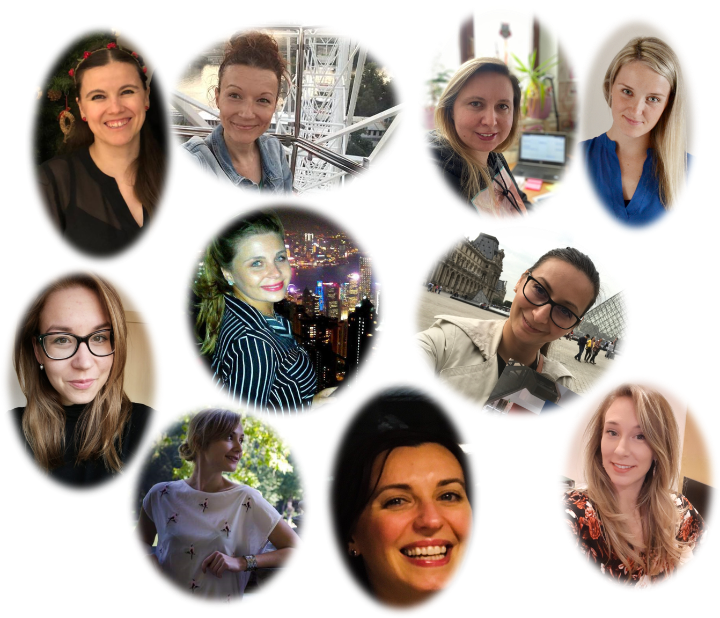
TINKER WEBSITE LAUNCH
Visit https://www.project-tinker.eu/ and take the journey with us. We will keep you updated about the project´s progress and latest news.
So keep your eyes open.
This is just a start!

AMIRES looking for new team member!
We are proud of the work we do, and our success is primarily the result of our passionate team of dedicated people. To support our growth, we are looking for highly motivated people to join our team in Prague for a position of Project Manager of European R&D&I projects.
If you are interested in new technologies, great at communication, familiar with European R&D&I funding, have analytical mind set and organizational skills and like challenges, then our job proposal is for you. Read HERE for more.
Good News for the EU and Beyond
This is a big support for researchers and SMEs.
Read more https://ec.europa.eu/commission/presscorner/detail/en/IP_20_2345
The world of “Photonics for Medical devices”
We, at AMIRES are very glad to be part of such an essential and powerful value chain impacting European business and healthcare products, improving lives!
You can see this event HERE
Flexible Electronics Report
Discover more in-depth analysis of flexible electronics within the Horiozon 2020 Programme, created by John Kennedy Mwangi, AMIRES. The analysis includes:
- NUMBER OF PROJECTS OVER THE YEARS
- DISTRIBUTION OF PROJECTS AMONG THE FUNDING INSTRUMENTS
- PROJECT RANKING IN TERMS OF FUNDING
- THE KEY PERFORMERS
- THE DOMINANT PRIVATE FOR PROFIT ENTITIES
- NUMBER OF PROJECTS PER COUNTRY
Full report HERE
SmartEEs2 Webinar takeaways
Can flexible and wearable technologies innovate your products and services? How to get technical, business and financial support for testing it?

On December 4, 2020, AMIRES organized a webinar in the framework of the SmartEEs2 project. This webinar was specifically aimed at informing companies in Central Europe about possibilities to participate in the open calls for Application Experiments.
Within SmartEEs2 five Calls for Application Experiments are opened inviting interested companies to submit their application experiment proposals. Selected Application Experiments will demonstrate the transfer of flexible and wearable electronics technologies into new products / series of products, processes, business models and business opportunities. The next, already third, Call for Application Experiments is open until the 15th of January 2021.
At the workshop, participants were informed about the SmartEEs2 project and its objectives and how to submit a proposal in the Call for Application Experiments. The webinar also included two examples of companies that were supported through the first SmartEEs project.
Webinar presentations
| Presentation title | Speaker |
| Introduction to the workshop | Michael ten Donkelaar, AMIRES |
| Introduction to SmartEEs2 | Rudolf Fryček, AMIRES |
| Company testimonial 1 – ESYST | Jaroslav Sochor, ESYST, Czech Republic |
| Company testimonial 2 – IDEA | Gianluca Di Buo, IDEA, Italy |
| SmartEEs2 registration process | Minja Maric, AMIRES |
Webinar recordings
Upcoming Regenerative Medicine workshop…stay tuned
Due to the combination of the following: end of the year duties, the upcoming Christmas break and the difficult time of the sanitary situation, we need to postpone this event for Spring 2021. We apologize for the change of plans, however we want to assure you a high-quality experience through the newest trends in Regenerative Medicine. We thank you for your understanding and please stay tuned!
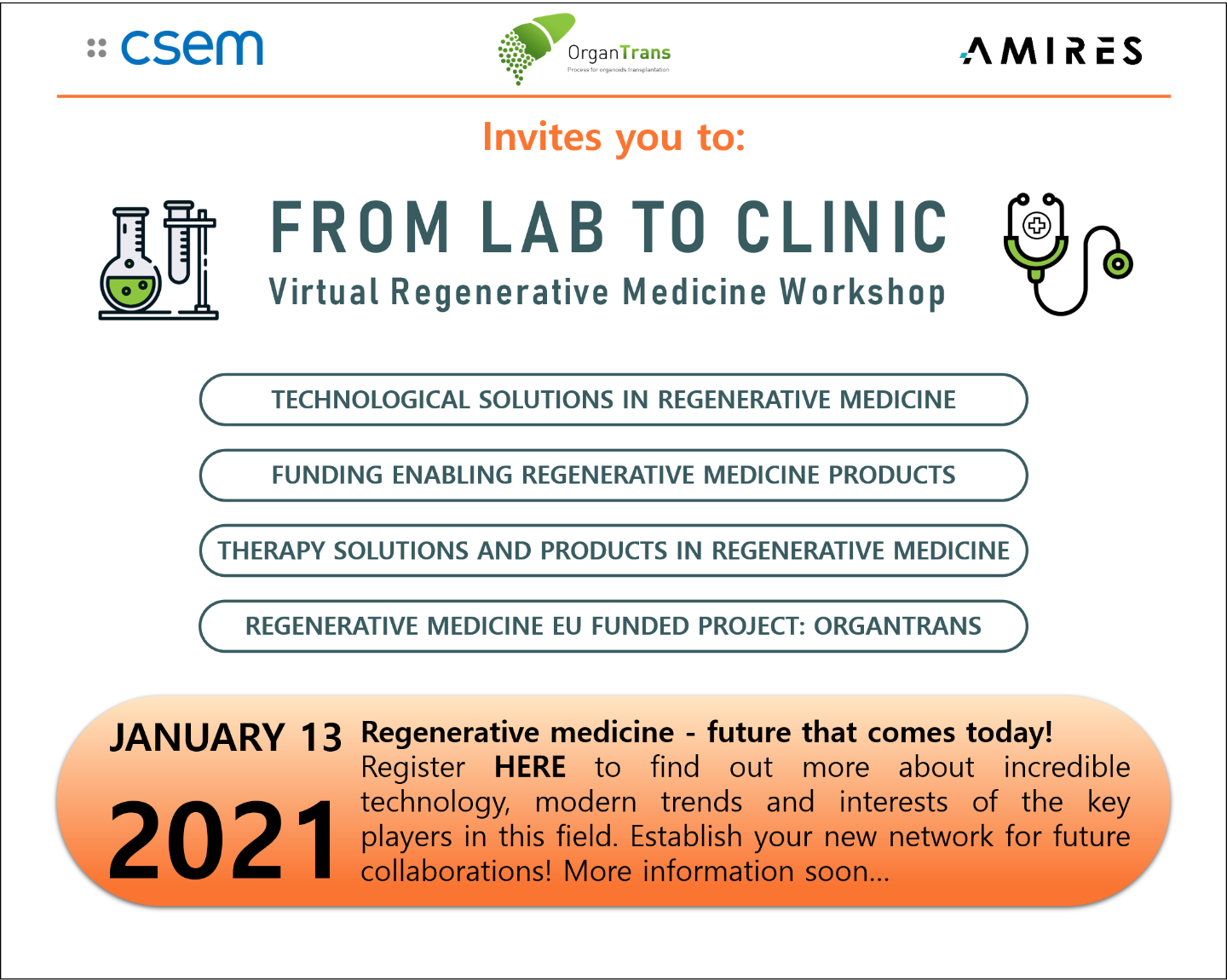
MedPhab at virtual medical tech exhibition COMPAMED
Next generation of renewable energy technology! CONDOR project launched
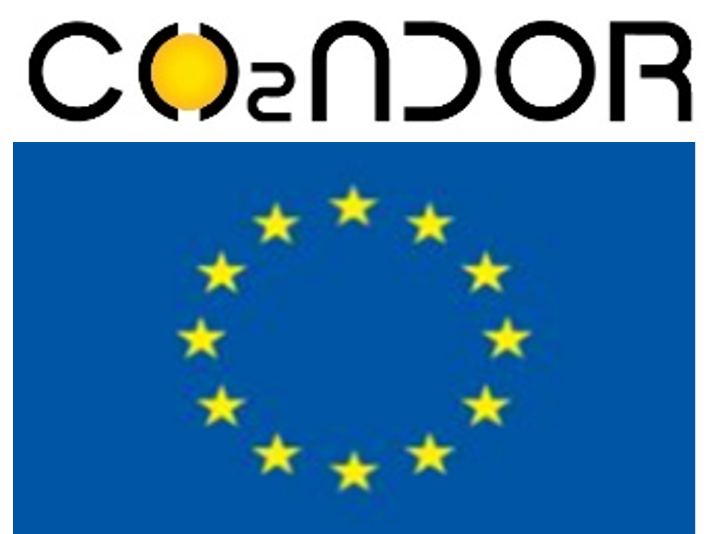
Read more information about the aim and consortium that AMIRES is also part of HERE.
MANUELA project’s Open Call has been launched’
The Open Call will have two cut-off dates on 31st March and 30th September after which the best proposals for Business Development Cases will be selected. You can find all the details on MANUELA’s website here – https://manuela-project.eu/open-call/ – or you can contact its helpdesk at helpdesk@manuela-project.eu.
The Call is open for companies of any size and from any industry. In case you are interested we strongly encourage you to check the technical feasibility of your idea with us prior to submitting a proposal.
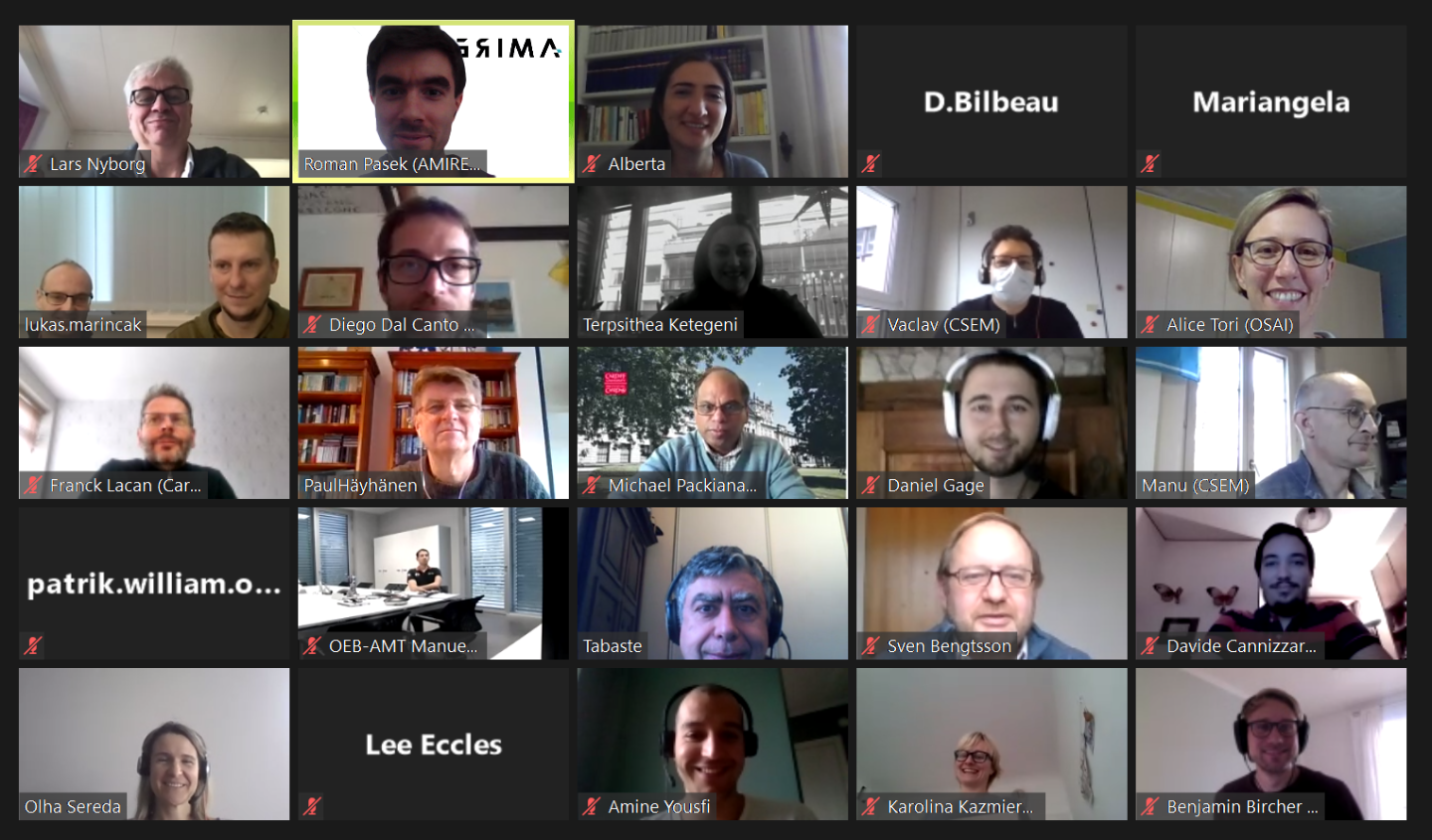
SmartEEs Tuned Another Application Experiment to Bring Lighting Comfort With a Healthier Solution
There were two main problems: lack of intelligent lighting luminaires and low lighting comfort resulting in unhealthy solutions for lighting interiors, which disturb hormone production and thus prevent an undisturbed circadian rhythm. SmartEEs solution, with the service provider – Fraunhofer FEP was developing human-centric light by LED/OLED combination. Development of esthetically pleasing smart lights, utilizing both LED and OLED for their emission capabilities of required wavelengths. By combining two separate tuneable-white modules, the color temperature range of emitted light was expanded, which improves quality over standard human-centric lights. By adding smart control on top the resulting lights should offer a wide range of applications and features such as usage statistics which may lead to more effective use in the future and thus lower power consumption. AMIRES, as a SmartEEs business provider for this case, identified growth potentials by analyzing market segments and further business opportunities throughout the business coaching sessions.
Watch ESYST’s story to bring lighting comfort and healthier solutions to life with SmartEEs support.
MARVEL project has kicked-off!
MARVEL project, whose full name is “Evolving reversible iMmunocapture by membrane sensing peptides: towARds scalable extracellular VEsicLes isolation” – will develop new diagnostic and therapeutic tools using extracellular vesicles. This innovative technology can help to detect bladder cancer and provide therapeutic treatment of cardiovascular diseases, which are among leading causes of deaths in the world nowadays.
Extracellular vesicles are membranous particles that are released from a cell. They are found in biological fluids such as blood and urine and they are involved in communication between cells. Extracellular vesicles act as signalling “vehicles” in both physiological and pathological mechanisms. These characteristics make them fundamental in the development of innovative methods in diagnostics, therapy, and industrial biomedical applications. Therefore, MARVEL’s goal is to upgrade the existing technology for reversible extracellular vesicles isolation and move beyond the analytical scale. This is crucial for the manufacturing scale production of extracellular vesicles and further their deployment in cardiac repair and non-invasive diagnosis of bladder cancer.
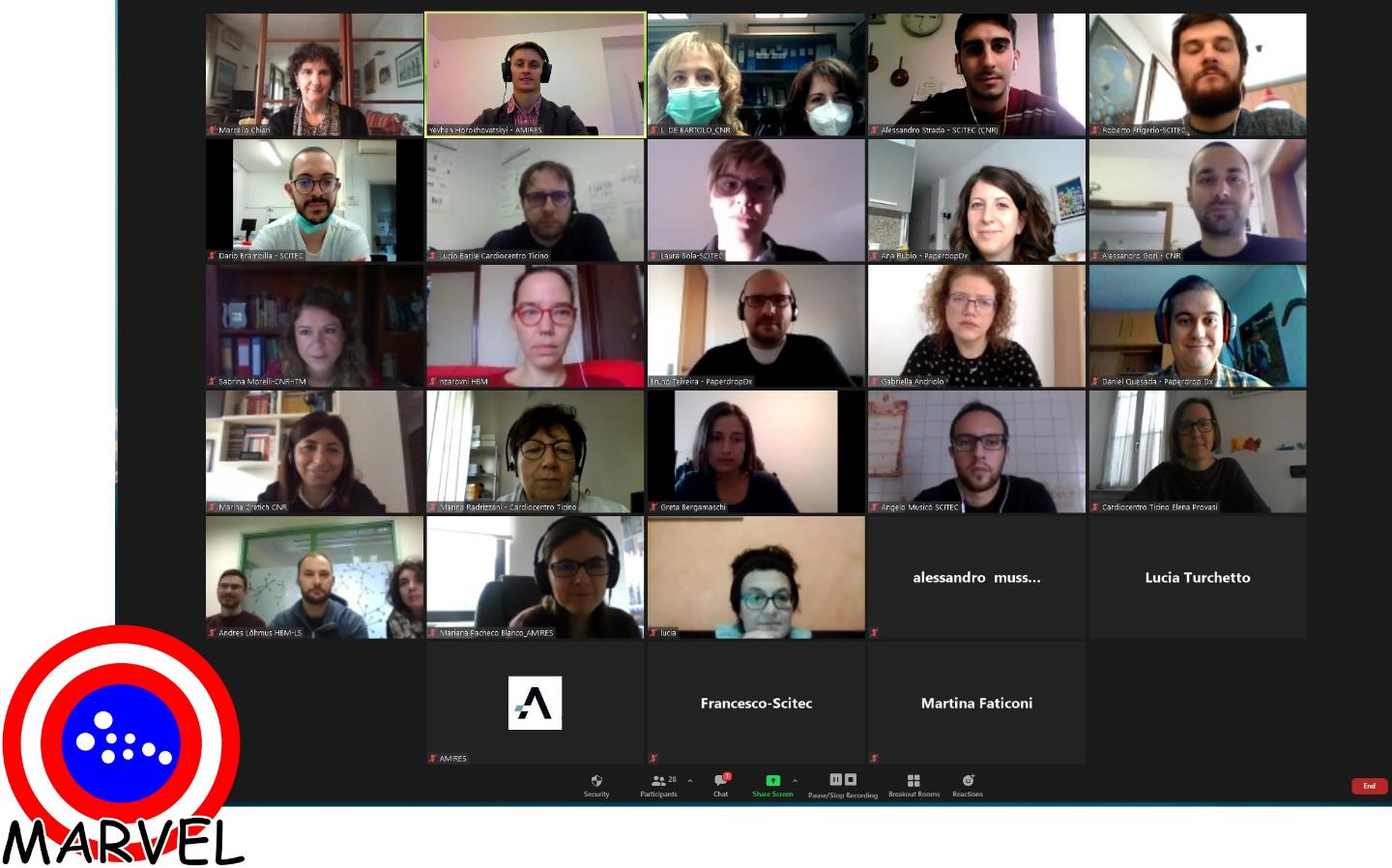
Next generation of renewable energy technology: CONDOR
CONDOR aims at developing a modular device for the production of fuels by using water and carbon dioxide as feedstock and sunlight as the sole energy source. The projects will develop a photosynthetic device made of two compartments: (a) a photoelectrochemical cell that splits water and CO2 and generates oxygen and syngas, a mixture of H2 and CO; (b) a (photo)reactor that converts syngas into methanol and dimethylether, via bi-functional heterogeneous catalysts. The final target is a full photosynthetic device with 8% solar-to-syngas and 6% solar-to-DME efficiencies with three-months continuous outdoor operation. CONDOR has the ambition to become a basis for the next generation of non-fossil fuel production technologies as it proposes an innovative approach that brings both techno-economic (cost reduction, higher efficiency, lower technological and manufacturing complexity) and environmental (reduced CO2 emission, reduced energy for production, reduced usage of rare materials) advantages in comparison to current solutions for renewable production of methanol and dimethylether.
The project’s innovation potential in terms of scientific and engineering activities is possible by combining the interdisciplinary approach, complementary competences and international collaboration. Coordinated by the University of Bologna and with AMIRES participation, the CONDOR consortium is unifying well reputed technology development teams and key industrial partners, specialised in nanomaterials preparation and characterisation by operando microscopy and spectroscopy, homogeneous and heterogeneous catalysis, photochemistry/photoelectrochemistry, PEC engineering and assessment of the environmental and socio-economic impact of the proposed technology, including life cycle assessment.
Additional information about the CONDOR project can be found at: https://condor-h2020.eu/
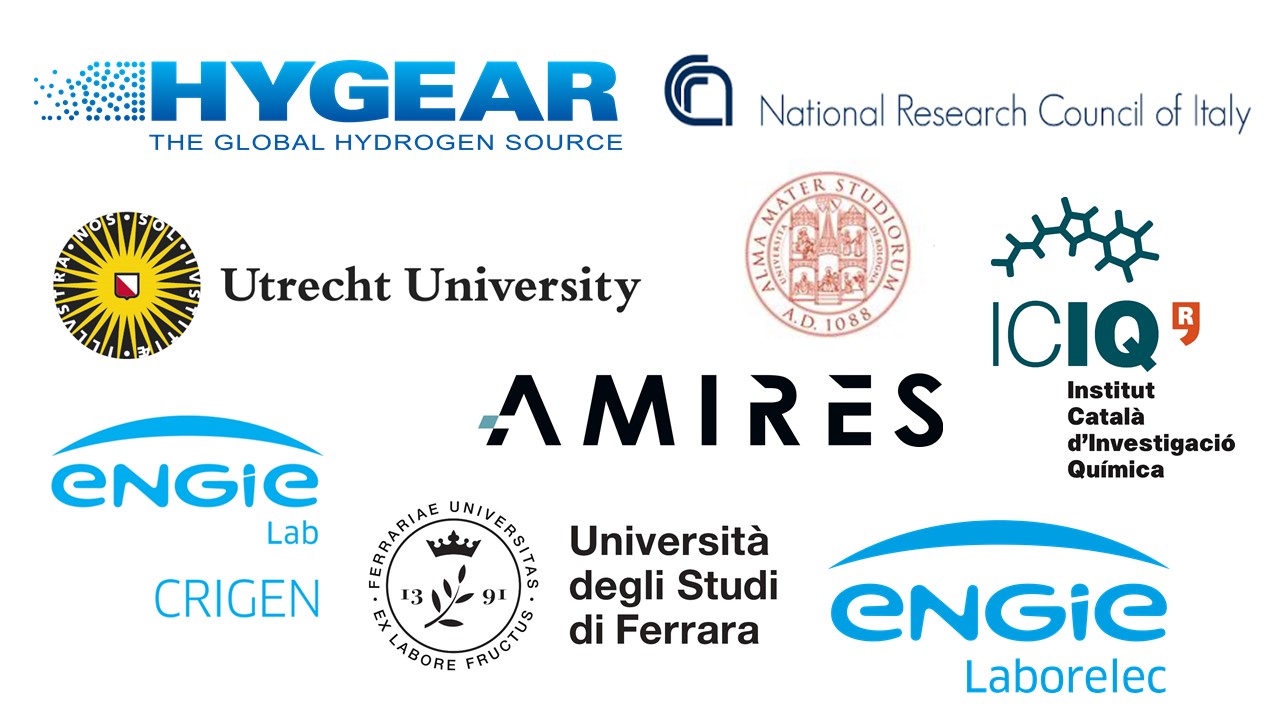
TINKER’s first PRESS RELEASE
Read more details and stay updated!
AMIRES looking for new team member!
We are proud of the work we do, and our success is primarily the result of our passionate team of dedicated people. To support our growth, we are looking for highly motivated people to join our team in Prague for a position of Project Manager of European R&D&I projects.
If you are interested in new technologies, great at communication, familiar with European R&D&I funding, have analytical mind set and organizational skills and like challenges, then our job proposal is for you. Read HERE for more.
2021 COMMISSION WORK PROGRAMME
A European Green Deal
A Europe fit for the digital age
An economy that works for people
A stronger Europe in the world
Promoting our European way of life
A new push for European democracy
A full list of the 44 new policy objectives under the six headline ambitions are set out in Annex 1 of the 2021 work programme.
AMIRES IS AMONG WINNERS OF EU DATHATHON 2020
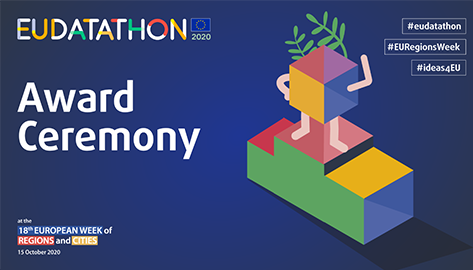
EU Datathon is an annual open data competition organized by the Publications Office of the EU since 2017. The main goal is to stimulate innovation and transform the interaction between citizens and the EU administration. There were four categories according to the challenge to be addressed:
- A European Green Deal (Challenge 1),
- An economy that works for people (Challenge 2),
- A new push for European democracy (Challenge 3)
- and a Europe fit for the digital age (Challenge 4).
Our team, consists of John Kennedy Mwangi, Rudolf Fryček, Roman Pašek and Lenka Bajarova, submitted the proposal for the competition by May 3, 2020, for the CHALLENGE 2 and we were selected as one of the 12 finalists from among 121 proposals on May 29th, 2020. Over the following months, we developed the EU4Regions platform and presented it on 15th October on the Digital event during the European Week of Regions and Cities.
Our platform EU4Regions emerged number 2 in challenge 2. EU4Region, the application created by AMIRES helps identify unknown patterns, causal relations and changes resulting from the injection of EU funds in various regions. It maps the state of cohesiveness and inclusion of EU regions through funding. The open data from EU CORDIS EU, RegioEvaluation and Eurostat were used to determine whether EU funding is helping our regions. The app should help policymakers adjust financial support. We are grateful to be part of creating new value for citizens through innovation and promoting the use of open data.
Visit our virtual stand addressing Cohesion & cooperation here or watch our final speech below.
Proposals for EU Missions for a Greener, Healthier and More Resilient Europe
The five mission proposals submitted by the Mission Boards, the independent experts advising the Commission, are:
- Conquering Cancer: Mission Possible. Targets by 2030: more than 3 million lives saved, living longer and better: achieve a thorough understanding of cancer, prevent what is preventable, optimise diagnosis and treatment, support the quality of life of all people exposed to cancer, and ensure equitable access to the above across Europe.
- A Climate Resilient Europe – Prepare Europe for climate disruptions and accelerate the transformation to a climate resilient and just Europe by 2030. Targets by 2030: prepare Europe to deal with climate disruptions, accelerate the transition to a healthy and prosperous future within safe planetary boundaries, and scale up solutions for resilience that will trigger transformations in society.
- Mission Starfish 2030: Restore our Ocean and Waters. Targets by 2030: filling the knowledge and emotional gap, regenerating marine and freshwater ecosystems, zero pollution, decarbonising the blue economy, and revamping governance. These mutually supportive objectives will enable the regeneration of the water cycle as a whole.
- 100 Climate-Neutral Cities by 2030 – by and for the citizens. Targets by 2030: support, promote and showcase 100 European cities in their systemic transformation to climate neutrality by 2030 and turn these cities into innovation hubs for all cities, benefitting quality of life and sustainability in Europe.
- Caring for Soil is Caring for Life. Targets by 2030: at least 75% of soils in the EU are healthy for food, people, nature and climate. The proposed mission combines research and innovation, education and training, investments and the demonstration of good practices using “Living labs” (experiments and innovation in a laboratory on the ground) and “Lighthouses” (places to showcase good practices).
The Commission will announce its final selected missions at the end of 2020. The missions will launch in 2021 as part of Horizon Europe, the next EU research and innovation programme.
More information HERE.
Photonics Digital Innovation Hub Secures €19 Million to Boost SME Growth and Ensure Europe’s Global Competitiveness
PhotonHub will provide a broad range of services and capabilities covering:
• training and upskilling supports
• “test before invest” innovation support
• supports to find investment
PhotonHub Europe will commence operations from early 2021 and will be operating a continuous open call for companies to apply for its support services. Applications for support will be facilitated online through the PhotonHub website located at www.photonhub.eu.
Read first PhotonHub Europe press release highlighting the essence of photonics in traditional industrial base HERE
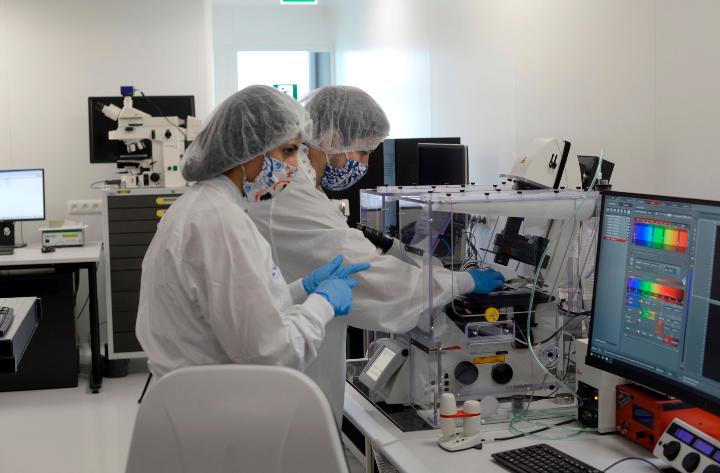
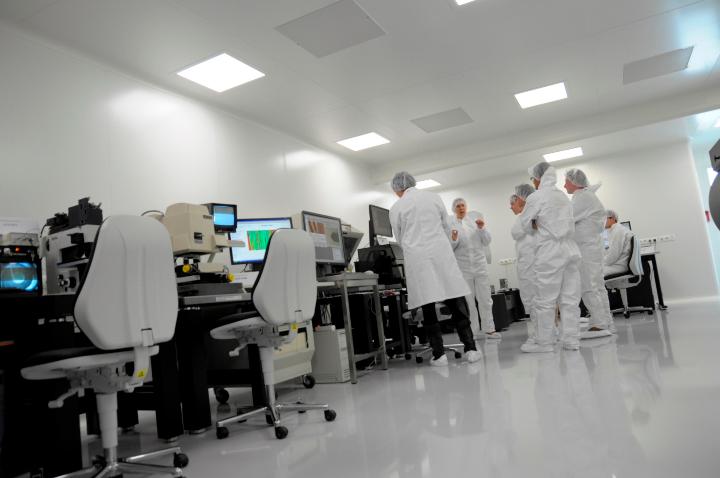
From flexible plastic and paper surfaces and membranes to sustainable ecosystem
The virtual event was opened by Rudolf Frycek, CEO of Amires, and John Fahlteich, Group Leader at the Division: Plasma Technology at Fraunhofer-FEP and also coordinator of FlexFunction2Sustian project. The topic on sustainable and smart packaging was presented by the speakers Jakub Pedzinski (Capri Sun), Marlos Silva (Sonae MC), Wolfgang Lohwasser (AMCOR Flexibles). They shared interesting insights on the development of the industry by addressing the new challenges for reducing the environmental impact of the packaging and undertaken approaches to move to a more “circular” world. High-impact future innovative solutions for smart plastic films for design, optics and security were presented by Jaakko Raukola (ISCENT), Rafael Michalczuk (Swarovski), Tomáš Těthal (IQ Structures), Stephan Trassl (Hueck Folien) and André Kalio (Schreiner Group). Apart from the company profile, each speaker provided information on the in-house machines and process developments. Examples for the application of smart plastic films as well as thriving innovations and ideas for the products of tomorrow were also provided during the presentations. In addition, Alexander Schmidt (Sonnenberg Harrison Partners mbB) presented an overview of the intellectual property landscape of the nanofunctionalised surfaces.
At the end, John Fahlteich had the pleasure to introduce the new Horizon 2020 funded project FlexFunction2Sustain as the latest European initiative for enabling novel solutions and products for plastic and paper-based flexible materials and films. Apart from providing more details on the concept of the Open Innovation Test Bed, he informed the participants about the future possibilities and EU support offered for innovative SMEs and industries in the framework of the project. Learn more about FlexFunction2Sustain here.
The workshop represented a perfect opportunity to learn about the latest developments and industrial applications in the field of sustainable packaging and smart plastic films and possibilities to integrate polymer films, paper and membranes in existing or new products. With the motivation from speakers and a chance to interact with key industry stakeholders, it was truly an event to remember. Stay tuned for the next events organised in the framework of FlexFunction2Sustian project by checking the project website.
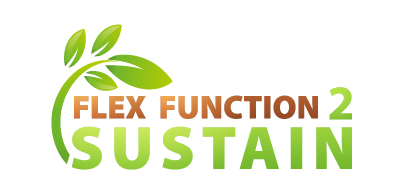
Join the last in OASIS series of webinars!
OrganTrans and RegenHU as part of the current and Future Perspectives on 3D Bioprinting
TINKER Kick-off meeting
On October 14-15th, 2020, TINKER project was officially kicked-off via online meeting and coordinated by scientist Leo Schranzhofer at PROFACTOR GmbH with AMIRES participation.
In the period of 3 years, starting from 1st of October 2020, European Union´s H2020 funded TINKER project is set to develop a new reliable, accurate, functional, cost- and resource efficient pathway for RADAR and LIDAR sensor package fabrication, using “key enabling technologies, especially inkjet printing and nanoimprint llithography”. The main aim is to establish the TINKER platform based on Additive Manufacturing and Fabrication of RADAR and LIDAR sensors packages as use cases.
The TINKER consortium consists of 10 the most excellent industrial companies, 3 research specialists, one consultancy and a service association, who are major players in the field of semiconductor and microelectronic manufacturing, as well as in the fields of material and process development and industrial fields applying or interested in applying AM for their needs.
More information will be shortly available at www.project-tinker.eu.
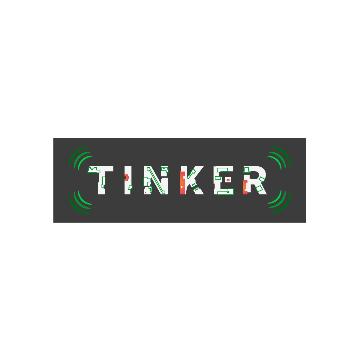
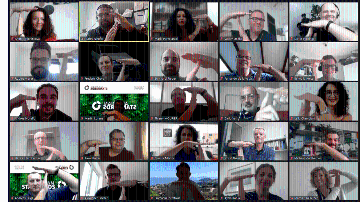
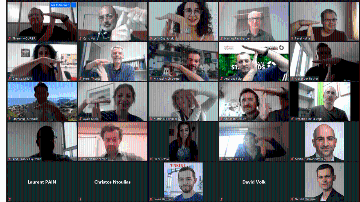
MARVEL: the beginning!
You can find out more about the project and MARVEL team by watching a promo video HERE.
Ideas, trends and networking: Virtual workshop on Applications and Industrialisation of Functional Polymer Films, Paper and Membranes. Register now!
Join OASIS’ next Open Call Webinar
KEY FACTS REPORT ON ICT
The COVID-19 Data Portal- Accelerate Coronavirus Research
European Council Adopts Conclusions on the EU Budget for 2021-2027
EUROPEAN CAPITAL OF INNOVATION 2020
Save the date: Web Workshop on Applications and Industrialisation of Functional Polymer Films, Paper and Membranes
FRIENDSHIP: Better Industrial Solar Heating Solutions
Traveling, handshakes, vaccines and stamps
3Dprint.com glances at OrganTrans and regenHU
MacKenzie explained that OrganTrans uses regenHU’s 3D bioprinters to produce organoid-based liver constructs with organoid laden bioinks. He describes that if the feasibility of the approach in a mouse model will be verified, it will be groundbreaking for the disease, showing its potential as an alternative to transplantation for patients suffering from end-stage liver disease.
regenHU is a pioneer and global leader in tissue and organ printing technologies converging digital manufacturing, biomaterials, and biotechnology to lead transformational innovations in healthcare. regenHU are committed to provide disruptive technologies that will enable the community to make regenerative medicine a reality, to cover today’s researchers and tomorrow’s industrial biofabrication needs.
He emphasized that 3D bioprinting is currently behind 3D printing in other applications, however, it is expanding in Europe. And the role of projects like OrganTrans and companies, such as regenHU are pushing the technology onward.
Continue reading here the complete text of the interview.
My stay at AMIRES
Open position in Health and Biotech sector
Are you passionate about the newest technological trends in medical technologies and medicine in general? Are you target oriented and responsibility, flexibility, team spirit or time management are no strangers to you? MS Office is your best friend and you are not worried to organize calls, take minutes or prepare presentations? Do you enjoy working in multinational environment with English as the main communication language? Are you ready to cooperate with excellent European R&D&I organisations, SMEs, hospitals and large industries? Then AMIRES is looking for you!
Apply for our newly opened position of Project Manager of European R&D&I projects in Health and Biotech sector by sending your CV and motivation letter (both in English) to bajarova(at)amires.eu till August 14 2020. Only candidates that will proceed to the next round of the job competition will be contacted by August 18 2020.
SmartEEs2 Call for AEs – 10 proposals selected for the 1st cut-off date
FlexFunction2Sustain website is now live!
AMIRES looking for Office Manager / Executive Assistant
Are you responsible, proactive, diligent? Do you enjoy working on different administrative and organisational tasks having colourful daily routine? Would you like to support our multinational team and help to strengthen its team spirit? Are you a proficient user of Microsoft Office? Do you speak fluently Czech and English? Then AMIRES is looking for you.
Apply for our newly opened position of Office Manager / Executive Assistant by sending your CV and motivation letter (both in English) to bajarova(at)amires.eu till August 5 2020. Only candidates that will proceed to the next round of the job competition will be contacted by August 7 2020.
Join the OASIS Open Call webinar on 16th July
OASIS Open Call has been launched!
Marketplace: Virtual Catalogue for Flexible and Wearable Electronics is Live!
Medical Devices Development, As Fast As Light?
Findings of the General Data Protection Regulation Review
The Key Measures Needed to Achieve the European Green Deal
AMIRES is One of the EU Datathon Finalists
AMIRES looking for new team member!
We are proud of the work we do, and our success is primarily the result of our passionate team of dedicated people. To support our growth, we are looking for highly motivated people to join our team in Prague for a position of Project Manager of European R&D&I projects.
If you are interested in new technologies, great at communication, familiar with European R&D&I funding, have analytical mind set and organizational skills and like challenges, then our job proposal is for you. Read HERE for more.
Virus can connect people!
The interaction during these two intense days resulted in 2164 multi-disciplinary teams, from different countries and brought innovative ideas and solutions to COVID19 pandemics in different subjects. The winners in topics of health and Life, Business Continuity, Social & Political Cohesion, Remote Working & Education and Digital Finance received 3000 -5000 Euros that were sponsored by different companies, such as Caixa Bank Payments and Consumer, Huawei, AXWAY, EY. They were additionally invited to participate in the Matchathon that was held from 22 to 25 May on the new EIC COVID Platform. This second event enabled match-making with end-users, and provided access to other funding opportunities from across the EU. The closing ceremony occurred on June 2, 2020 as the “Accomplishment day”. More information HERE
Substantial reduction of plastic waste in the world: FlexFunction2Sustain project
Key Enablers of the Progress in Biosensor
Breakthrough Advancements in Organic Large Area Electronics
MedPhab on EPIC webinar “In vivo imaging”
THE MANUELA PROJECT HANDBOOK IS OUT!
ORGANTRANS website is up
Join the Global Response
The Virus Knows No Borders
ORGANTRANS in video lecture on Regenerative Hepatology
Collaborative Work on COVID19 Research
InSCOPE finishes but its Pilot Line continues
